Wellstar Children’s Hospital of Georgia dedicates new lobby to pioneering Pediatric Surgeon Dr. Charles Howell
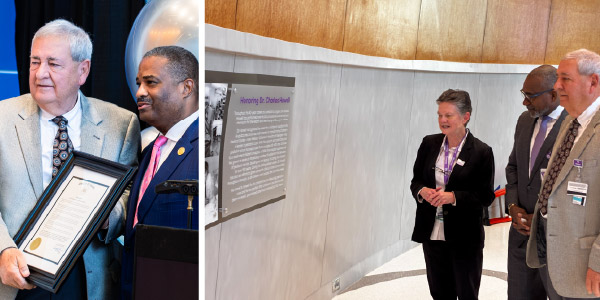
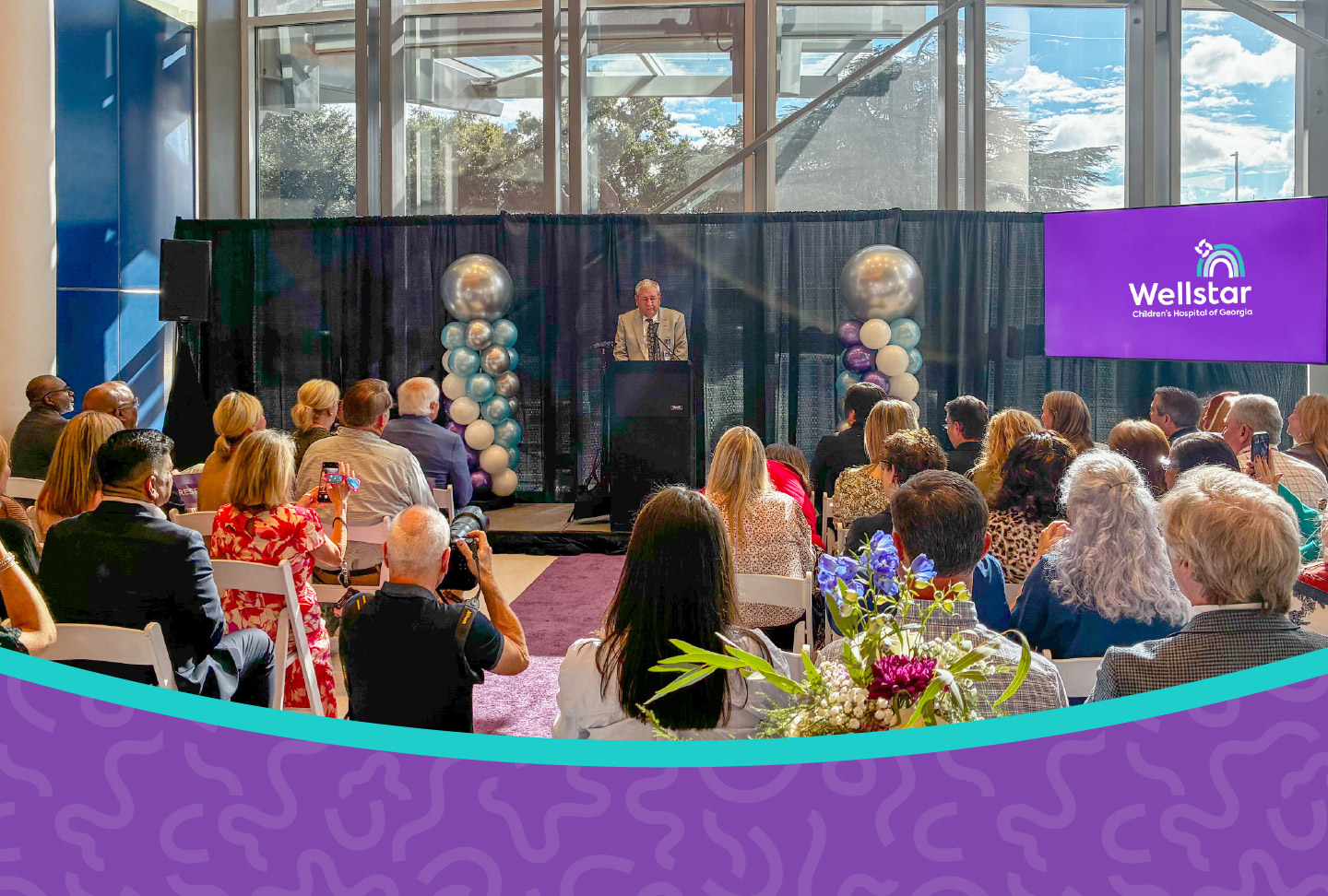
Wellstar Children’s Hospital of Georgia dedicates new lobby to pioneering Pediatric Surgeon Dr. Charles Howell

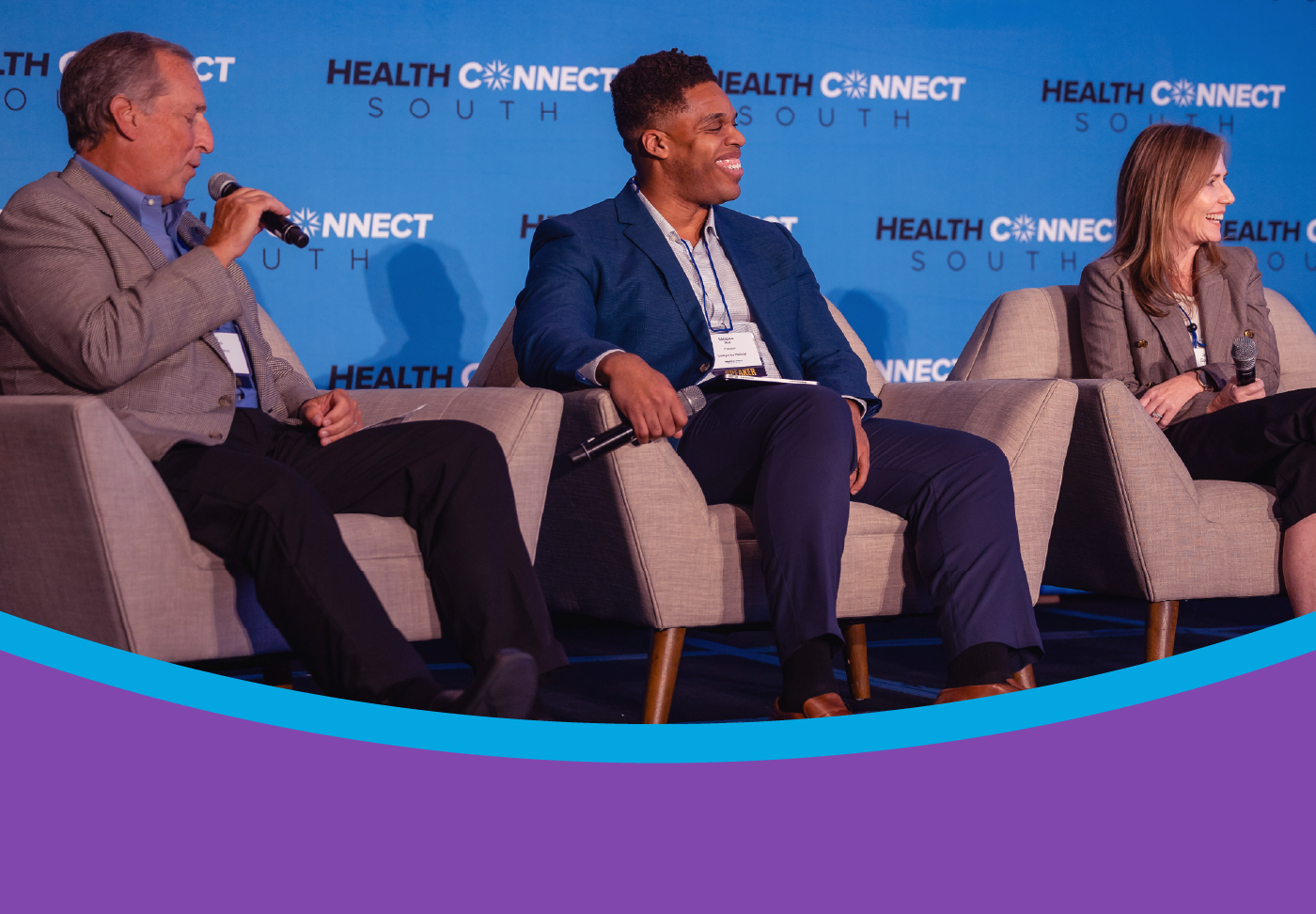
Catalyst by Wellstar Joins Health Connect South to Drive Healthcare Innovation
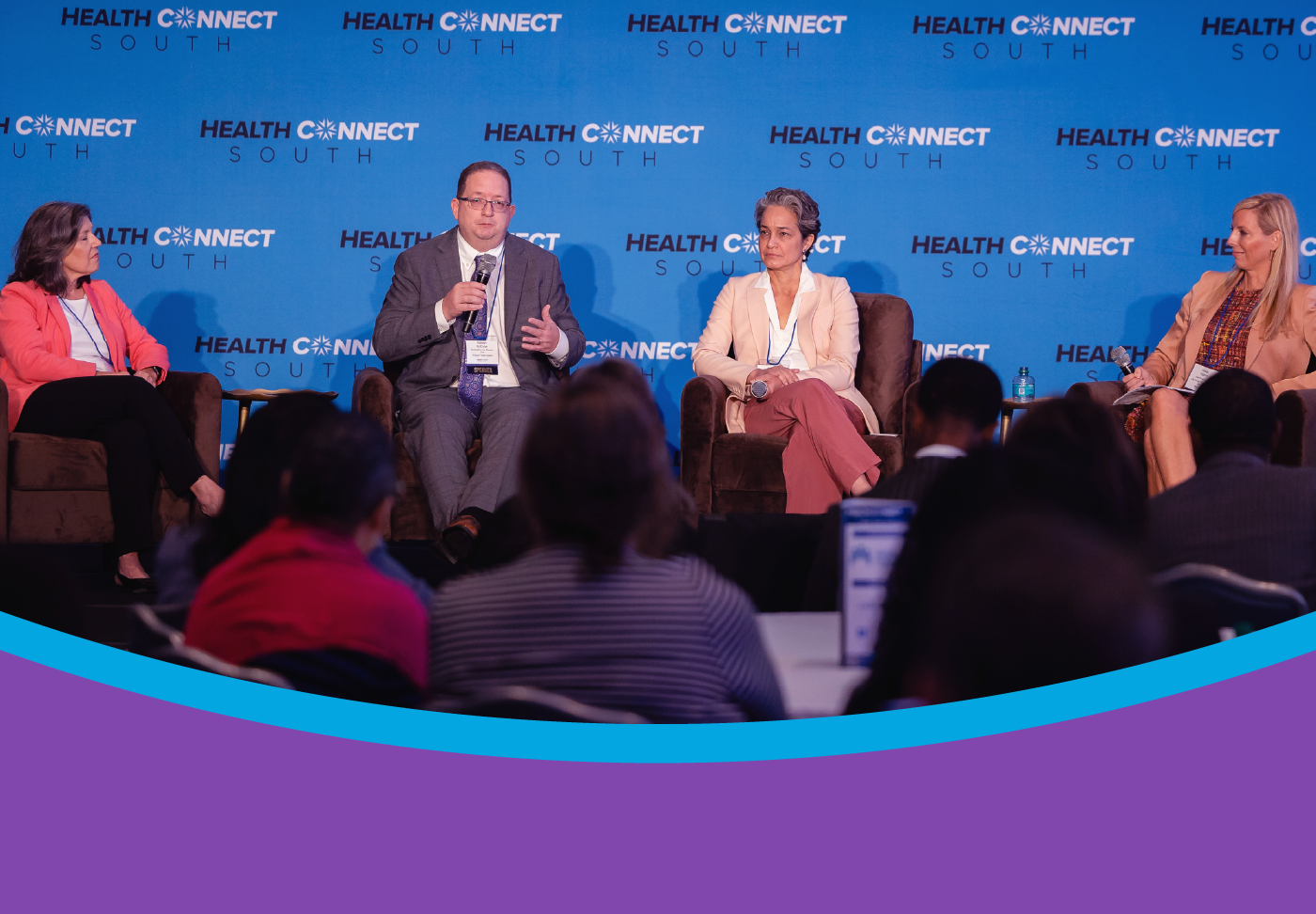
Wellstar Leader Addresses Rising Cancer Rates in Younger Women at Health Connect South
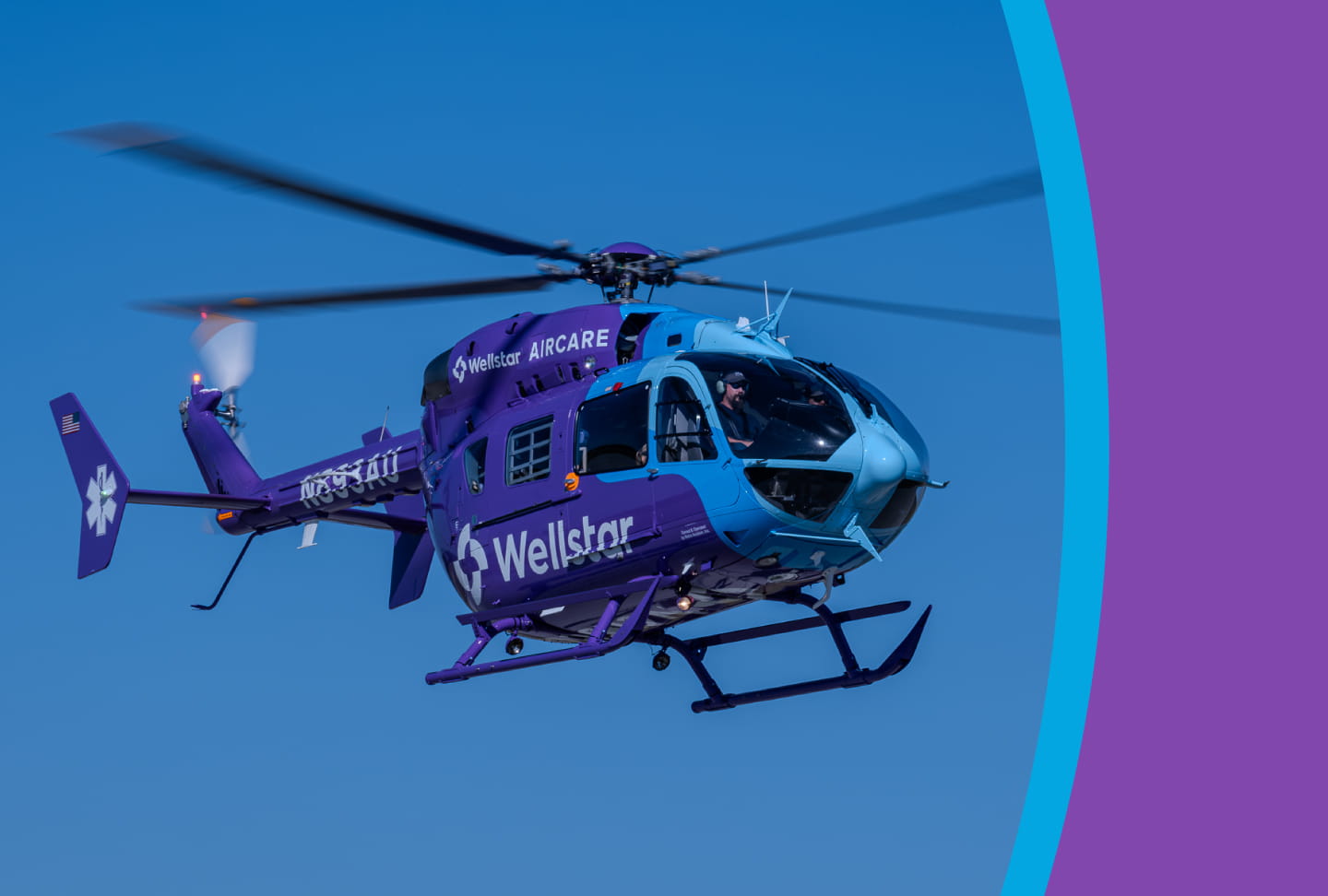
Wellstar AirCare Completes First ECMO Patient Transport
When every second counts, having access to advanced technology and expert care can make all the difference. On September 10, Wellstar AirCare completed its first patient transport using extracorporeal membrane oxygenation (ECMO)—a lifesaving therapy for people with severe heart or lung conditions.
Taking Flight with Lifesaving Technology
For months, Wellstar teams prepared for this moment. Perfusionists, cardiovascular surgeons, flight crews and many others came together to ensure that patients who need ECMO could safely and quickly receive it—even when ground transportation was improbable or impossible.
Their work paid off. This month, AirCare One lifted off with its first ECMO patient on board. The crew worked quickly to stabilize the critically ill cardiovascular patient and minimize bedside time at the referring hospital. Once in the air, they successfully transported the patient to the ECMO center.
“The AirCare and ECMO teams made this success possible through countless hours of planning, education, crew resource management, dry runs, training flights and simulations,” said Zack Lancaster, executive director of Air Medical Transport. “The program is safe, efficient and ready, and it will be a game-changer for many.”
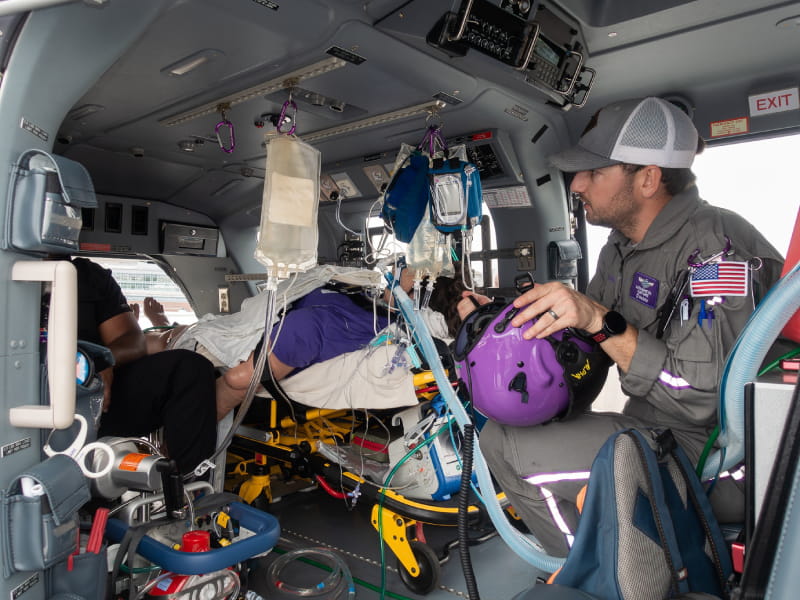
What Is ECMO?
ECMO is an advanced therapy that supports patients with serious cardiac or pulmonary conditions such as heart attack or pneumonia. By temporarily taking over the work of the heart and lungs, ECMO gives the body time to heal after trauma, organ failure or in preparation for major surgery.
Wellstar Kennestone and Wellstar MCG Health Medical Centers are among the few facilities in Georgia with the expertise and technology needed to provide this advanced treatment.
Expanding Access to Care
The successful AirCare transport marks an important milestone for Wellstar—and for the communities we serve. With the ability to rapidly transport ECMO patients by helicopter, more people across Georgia can reach lifesaving care when they need it most.
“This mission represents a new chapter for AirCare—not only as Wellstar’s dedicated critical care transport team, but also as a trusted regional partner in ECMO patient care,” Lancaster said.
Following the transport, leaders at the referring hospital praised the AirCare team for their professionalism and expertise, noting that Wellstar is now their first choice for advanced cardiovascular ICU and cardiac support transport.
Learn more about Wellstar AirCare.
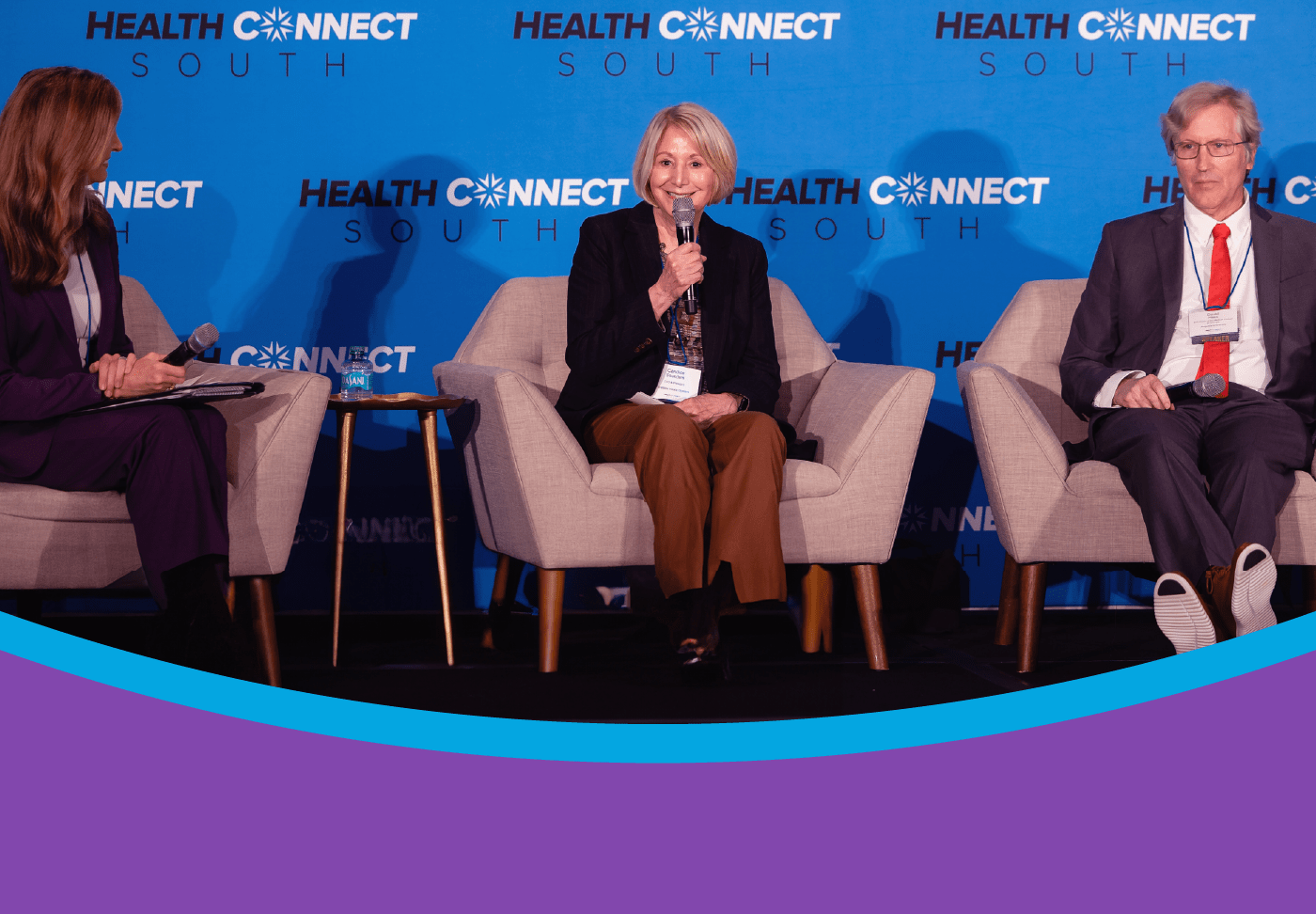
Health Connect South Brings Augusta University, Medical College of Georgia and Wellstar Leaders Together on Better Healthcare for All of Georgia
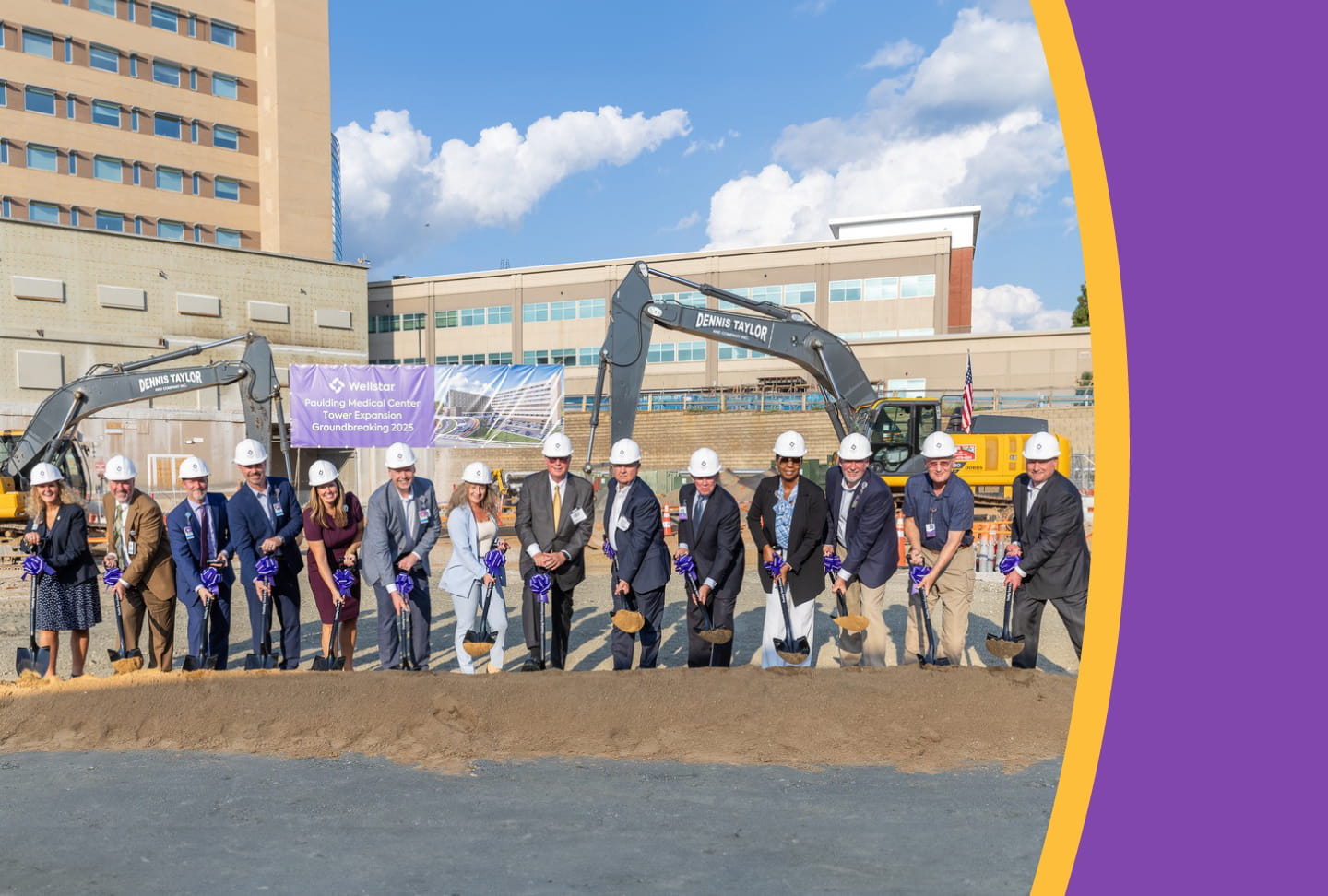
Wellstar Paulding Medical Center Breaks Ground on $300 Million Expansion

Wellstar Spalding Introduces Stigma-Free Transport for Behavioral Health Patients
In a compassionate step forward for mental health care, Wellstar Spalding Medical Center has launched a new initiative to more quickly and safely transport patients in need of psychiatric care to specialty care facilities.
People in the Spalding community no longer have to wait in emergency departments for extended periods—sometimes days—until a secure ride in a marked law enforcement or EMS vehicle is available. Now, patients who need this type of specialty care are transported within hours in a discreet, unmarked SUV. The approach preserves each patient’s dignity and accelerates access to critical inpatient psychiatric care.
“This innovative approach not only improves logistics but also reinforces Wellstar’s commitment to treating every person with dignity and care,” said Kevin Smith, president of Wellstar Spalding. “It’s a win for our patients, our staff and our community.”
Each year, Wellstar Behavioral Health serves about 19,000 people, many of whom enter the health system through hospital emergency departments. When patients require transfer to an inpatient psychiatric facility, transportation delays can lead to prolonged emergency department stays and slower treatment for all patients. The root of the issue lies in the limited availability of secure transport options, which are typically restricted to EMS or law enforcement vehicles.
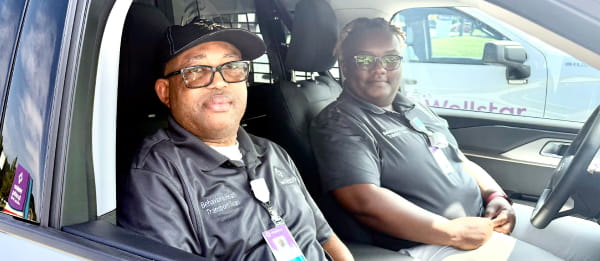
To address this challenge, Wellstar Spalding leaders teamed up with the health system’s Behavioral Health service line to develop a creative and compassionate solution, starting with the hospital in Griffin. With funding from the Wellstar Foundation, the team purchased and outfitted an unmarked SUV designed specifically for the safe and respectful transport of patients needing behavioral health care.
Wellstar Spalding has hired several specialized officers to operate the vehicle. These officers receive training from Wellstar’s behavioral health team—including suicide risk assessment and response—ensuring patients are transported with both safety and empathy.
“This is a good example of our service line coming together with hospital leaders to use out-of-the-box thinking, allowing us to serve with compassion,” said Dr. Ryan Breshears, chief behavioral health officer at Wellstar.
Trish Velasco, Wellstar’s assistant vice president of behavioral health, emphasized the role of community support.
“The generosity of those in our community who donate to the Wellstar Foundation made this possible,” she said. “Their contributions are directly improving patient experiences and outcomes in a very tangible way.”
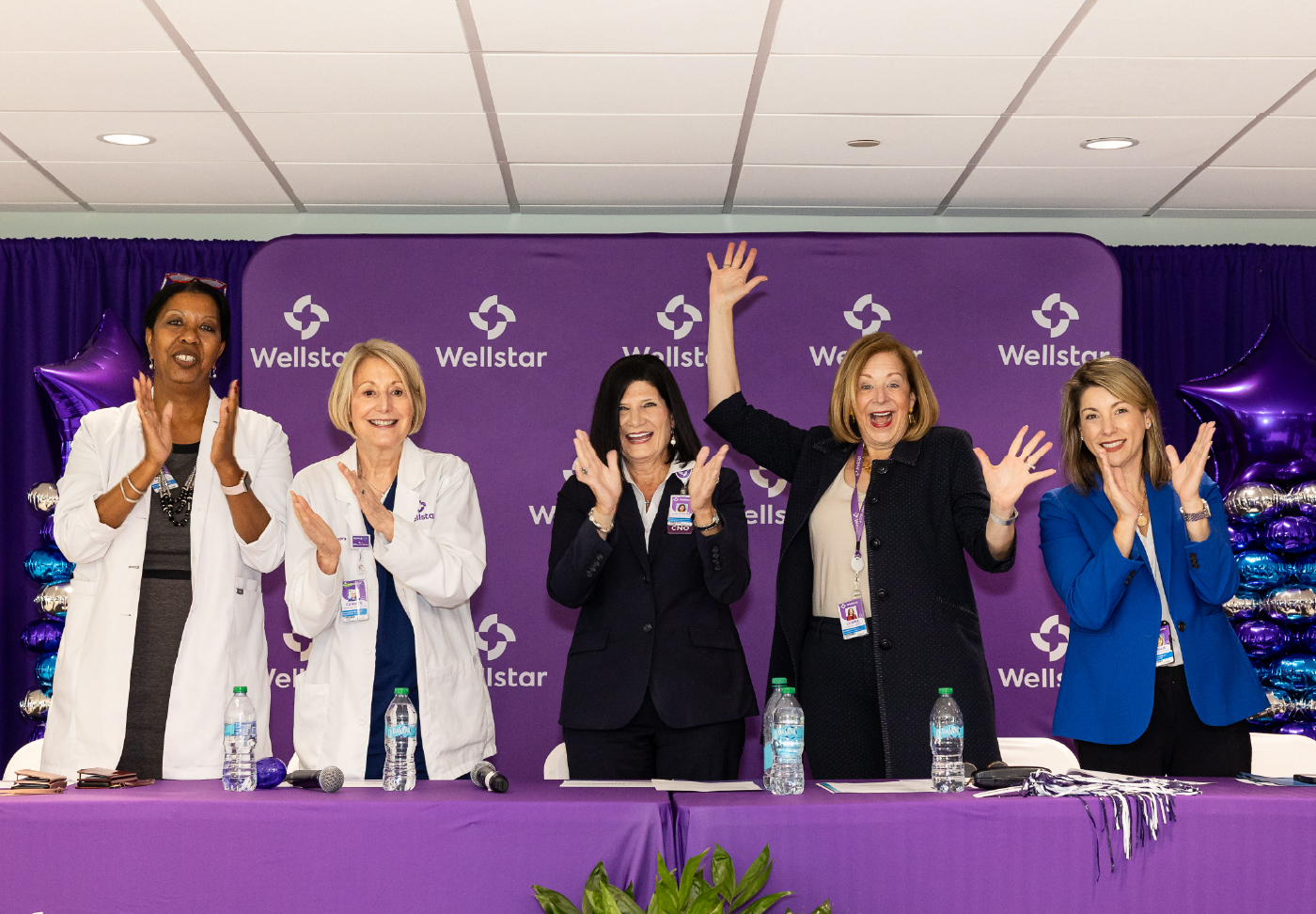
Wellstar Kennestone Achieves ANCC Magnet Recognition® for Nursing Excellence
Wellstar Kennestone Regional Medical Center has achieved Magnet recognition, the highest national honor for nursing excellence. The honor reflects the nursing staff’s professionalism, teamwork and superiority in patient care. The American Nurses Credentialing Center’s Magnet Recognition Program® distinguishes organizations that meet rigorous standards for nursing excellence.
With this credential, Wellstar Kennestone joins the global community of Magnet-recognized organizations. Only a small and select group of U.S. healthcare organizations has achieved Magnet recognition due to the complex requirements and meticulous evaluation process, with only 14 in Georgia. This prestigious honor further underscores Wellstar Kennestone’s commitment to world-class, compassionate, and personalized care.
“This achievement reflects the exceptional skill, dedication, and heart of our nursing team and how they partner to care for our patients, families and each other,” said Candice L. Saunders, president and CEO of Wellstar Health System. “It serves as a vital benchmark within our community, affirming the exceptional quality of patient care we provide.”
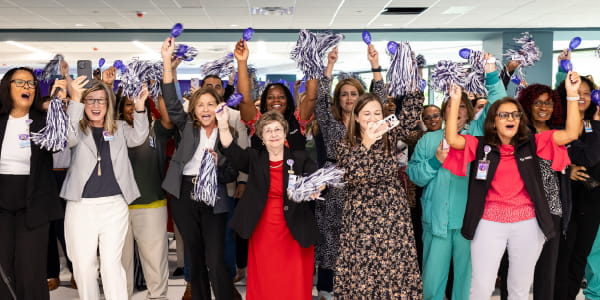
Magnet recognition is the gold standard for nursing excellence and is a factor when the public judges healthcare organizations. U.S. News & World Report’s annual showcase of “America’s Best Hospitals” includes Magnet recognition in its ranking criteria for quality of inpatient care.
Research demonstrates that Magnet recognition provides specific benefits to health care organizations and their communities, such as:
“At Wellstar Kennestone, we believe world-class healthcare should be accessible right where people live,” said Hospital President Lorrie Liang. “When our neighbors, friends and family need exceptional care, they don’t have to travel far—it’s right here in Marietta. That belief is now affirmed in a powerful way.”
“We are profoundly honored to have achieved Magnet recognition—an esteemed distinction that represents the pinnacle of nursing excellence,” said Marianne Hatfield, vice president and chief nursing officer at Wellstar Kennestone. “We celebrate this accomplishment and remain committed to providing compassionate care to every patient, every time. It is a powerful reminder of what’s possible when we lead with purpose. It also underscores Wellstar Kennestone’s steadfast commitment to fostering a culture of excellence and innovation.”
The Magnet Model provides a framework for nursing practice, research, and measurement of outcomes. Through this framework, ANCC evaluates applicants across a number of components and dimensions to gauge an organization’s nursing excellence. The foundation of this model comprises various elements deemed essential to delivering superior patient care. These include the quality of nursing leadership and coordination and collaboration across specialties, as well as processes for measuring and improving the quality and delivery of care.
“Magnet recognition validates our team's dedication to evidence-based practices, which drive superior patient outcomes, enhances both patient and staff satisfaction, and contributes to more efficient and compassionate care,” said Mary Chatman, executive vice president of acute care operations for Wellstar Health System. “This achievement is a testament to the relentless pursuit of excellence that defines our organization and inspires us to continue raising the standard of care for those we serve.”
ABOUT ANCC’S MAGNET RECOGNITION PROGRAM The Magnet Recognition Program—administered by the American Nurses Credentialing Center, the largest and most prominent nurses credentialing organization in the world—identifies health care organizations that provide the very best in nursing care and professionalism in nursing practice. The Magnet Recognition Program is the highest national honor for nursing excellence and provides consumers with the ultimate benchmark for measuring quality of care. For more information about the Magnet Recognition Program and current statistics, visit www.nursingworld.org/magnet.
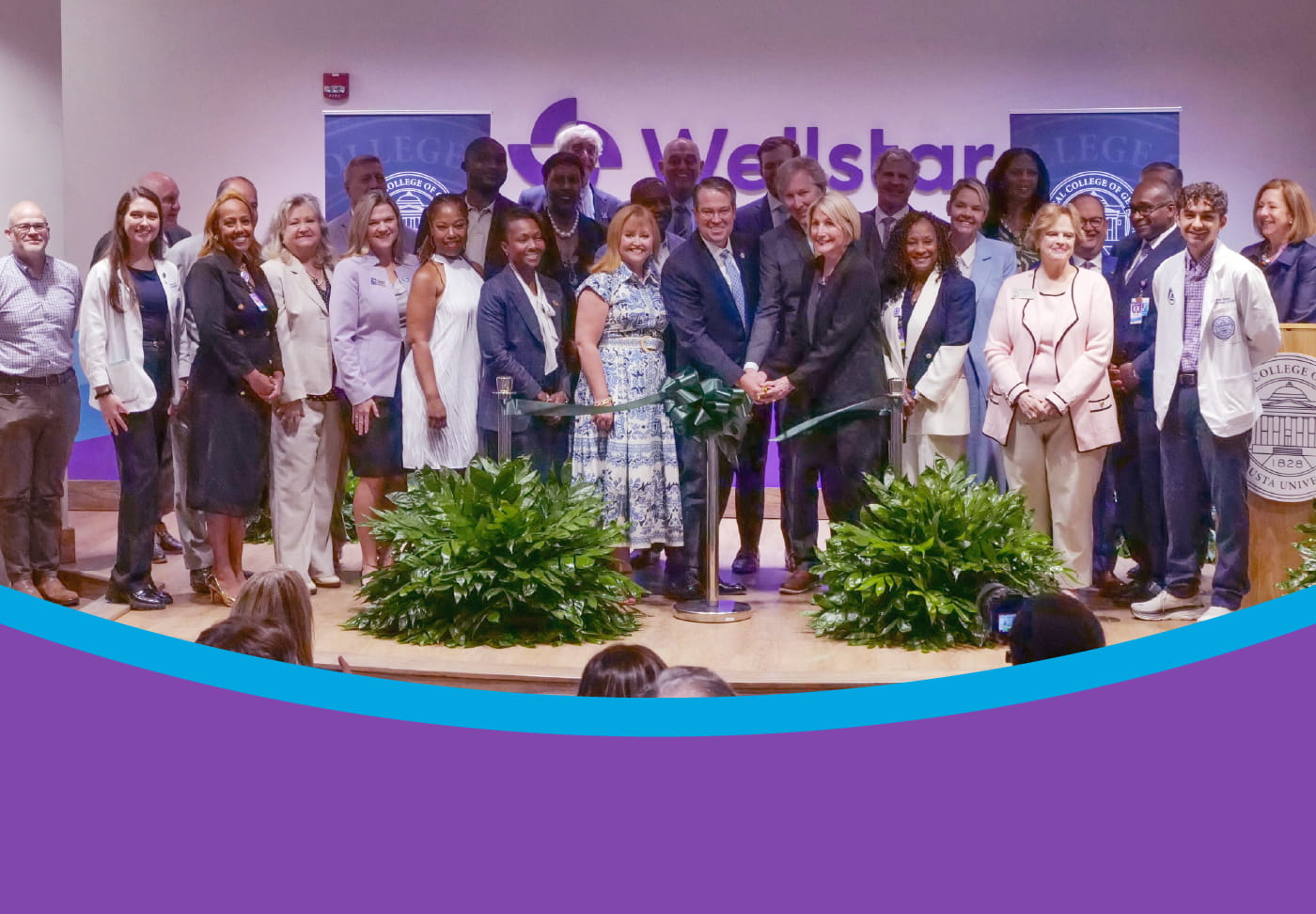
New Medical College of Georgia Campus Opens at Wellstar Kennestone
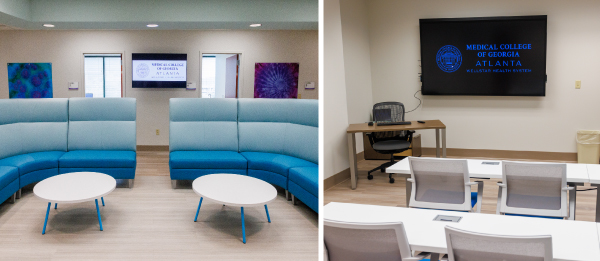

Top Marks for Heart Care at Wellstar Kennestone Regional Medical Center
Wellstar Kennestone Regional Medical Center has received several major commendations highlighting the high level of heart care continuously provided to patients—putting Wellstar’s cardiothoracic surgery program among the top in the nation. The Marietta-based heart care program received:
These recognitions demonstrate Wellstar’s commitment to keeping advanced heart care close to home.
“These accomplishments speak volumes about the skill, precision and teamwork of our cardiothoracic team,” said Dr. Richard Myung, medical director of cardiothoracic surgery at Wellstar Kennestone. “We’re proud to deliver exceptional outcomes for patients from across the Southeast who have some of the most complex heart conditions.”
STS ratings reflect not only surgical excellence, but also the quality of care patients receive in the critical 30-day period following surgery.
“This extraordinary recognition reflects the world-class quality of care offered by Wellstar,” said Lorrie Liang, president of Wellstar Kennestone and Wellstar Windy Hill. “To achieve this gold standard, a health system must demonstrate both clinical excellence and rigorous standards for follow-up care. At Wellstar, we provide all of this, along with a warm, people-centered experience. It’s what we call ‘PeopleCare.’”
These results highlight the importance of a multidisciplinary approach—one that includes surgeons, anesthesiologists, perfusionists, nurses, cardiologists, respiratory therapists, rehabilitation specialists, critical care specialists, hospitalists, advanced practice providers and many others.
“This achievement is a testament to the entire care continuum,” said Steve Cermak, executive director of cardiovascular service line and hospital operations at Wellstar Kennestone. “From the operating room to recovery and rehabilitation, every team member plays a vital role in delivering outstanding outcomes.”
Among the three-star rankings is CABG. This procedure is commonly performed to treat people having a heart attack or other conditions including coronary heart disease with chest pain, multiple blocked coronary arteries or serious heart failure. The procedure is performed by cardiovascular surgeons at Wellstar Kennestone—Dr. Theresa Luu, Dr. James Burke and Dr. Richard Myung—who work as part of a large multidisciplinary team to give every patient the highest quality care at every step of the process, from diagnosis through surgery and recovery.
“This amazing recognition is about the great lengths we go to care for our patients, and why people travel from across the region to receive their care at Wellstar Kennestone,” added Director of Wellstar Cardiothoracic Surgery Services and the Structural Heart and Valve Program Karrie Davis. “We care for every patient like they’re a family member or close friend. That’s why we hold ourselves to the highest standards.”
Wellstar Center for Cardiovascular Care offers patients care close to home across Georgia communities at more than 25 cardiovascular locations, with more than 110 cardiologists and cardiothoracic surgeons standing ready to provide heart care for both routine and complex heart conditions. Wellstar also has one of the largest cardiovascular rehabilitation programs in Georgia, which helps patients improve their long-term outcomes.
The Joint Commission has also awarded Wellstar Kennestone with a Gold Seal of Approval in conjunction with the American Heart Association’s Heart-Check mark and certification as a Comprehensive Cardiac Center for the third consecutive time.
For the certification, Wellstar Kennestone underwent a rigorous, unannounced onsite review. During the visit, a team of Joint Commission reviewers evaluated compliance with related certification standards including evaluating the care of the cardiac patient at every touch point in the cardiac care continuum with ongoing process improvement and health promotion for patients, as well as the community. Joint Commission standards are developed in consultation with healthcare experts and providers, measurement experts and patients. The reviewers also conducted onsite observations and interviews.
The hospital first received the two-year certification in 2019. This recertification makes the third cycle—or sixth year—it has remained in place. Wellstar Kennestone was the first hospital in Georgia and remains the only one in the state to hold the comprehensive certification.
From prevention to post-cardiac event recovery, our well-connected and collaborative heart care team is dedicated to empowering you to regain your strength and independence. We offer top-quality cardiovascular care including diagnostics, treatment, psychological support and ongoing monitoring all focused on your well-being. Learn more about award-winning heart care at Wellstar.
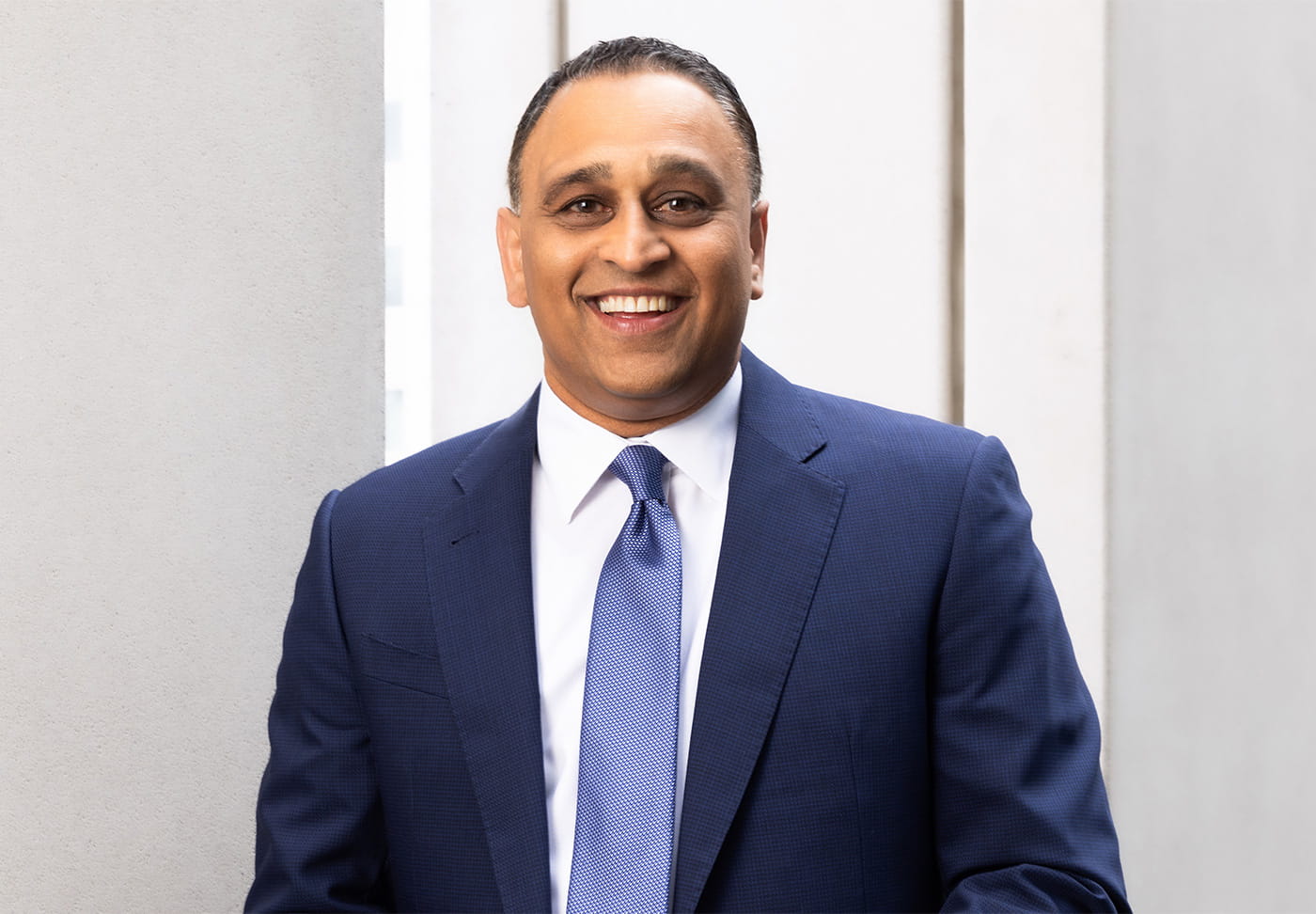
Wellstar Selects Ketul J. Patel to Lead Next Chapter of PeopleCare

Playing it Safe Ahead of the 4th of July Holiday
As we look forward to the Fourth of July holiday, fireworks, swimming, and grilling offer plenty of fun summer activities for families across Georgia. However, it's important to be cautious with fireworks, which can quickly turn your Independence Day celebrations sour.
While public fireworks displays have safety measures in place, fireworks at home may be less safe, especially for kids. According to the U.S. Consumer Product Safety Commission, an estimated 14,700 people were injured by fireworks in 2024, with burns accounting for 37% of all emergency room visits.
Dr. Joanna Dolgoff, a Wellstar pediatrician and representative for the American Academy of Pediatrics, warns that the most common injury from fireworks is a hand burn.
“But it can be worse, such as a hand fracture, cuts or even the loss of a finger,” she said. “Facial injuries, including burns and eye injuries, are also common. If you're going to handle fireworks, please be very careful.”
Dr. Earl Stewart Jr., an internal medicine physician and medical director of health equity with Wellstar Health System, has seen many times how climate and extreme weather can impact health. He reminds families that summer celebrations can bring a range of seasonal health risks.
“We often see more water-related injuries this time of year, such as drownings, boating accidents, and even head or spine injuries from diving into shallow water,” he said. “And with Georgia’s extreme heat, it’s important to plan ahead to avoid heat exhaustion, heat stroke and sunburns. Even surfaces like metal components of playground equipment and seat belts can cause burns after they’ve been exposed to the sun for long periods.”
Dr. Stewart also noted the importance of being mindful of summer pests and plants.
“Insect bites, allergic reactions, poison ivy, bee stings and even snake bites can quickly turn a fun day outdoors into a medical emergency. Vigilance and preparation equate to staying safe and alive,” he said.
As for sparklers, Dr. Dolgoff cautions parents not to underestimate their danger.
“Sparklers burn at about 2,000 degrees Fahrenheit—hot enough to melt some metals. They account for a high percentage of injuries, emergency room visits, and fires every year. The sparks can cause burns and eye injuries.”
She also recommends soaking used sparklers in a bucket of water before discarding them.
If your family plans to participate in Fourth of July activities, remember the word FIRE with these essential safety tips:
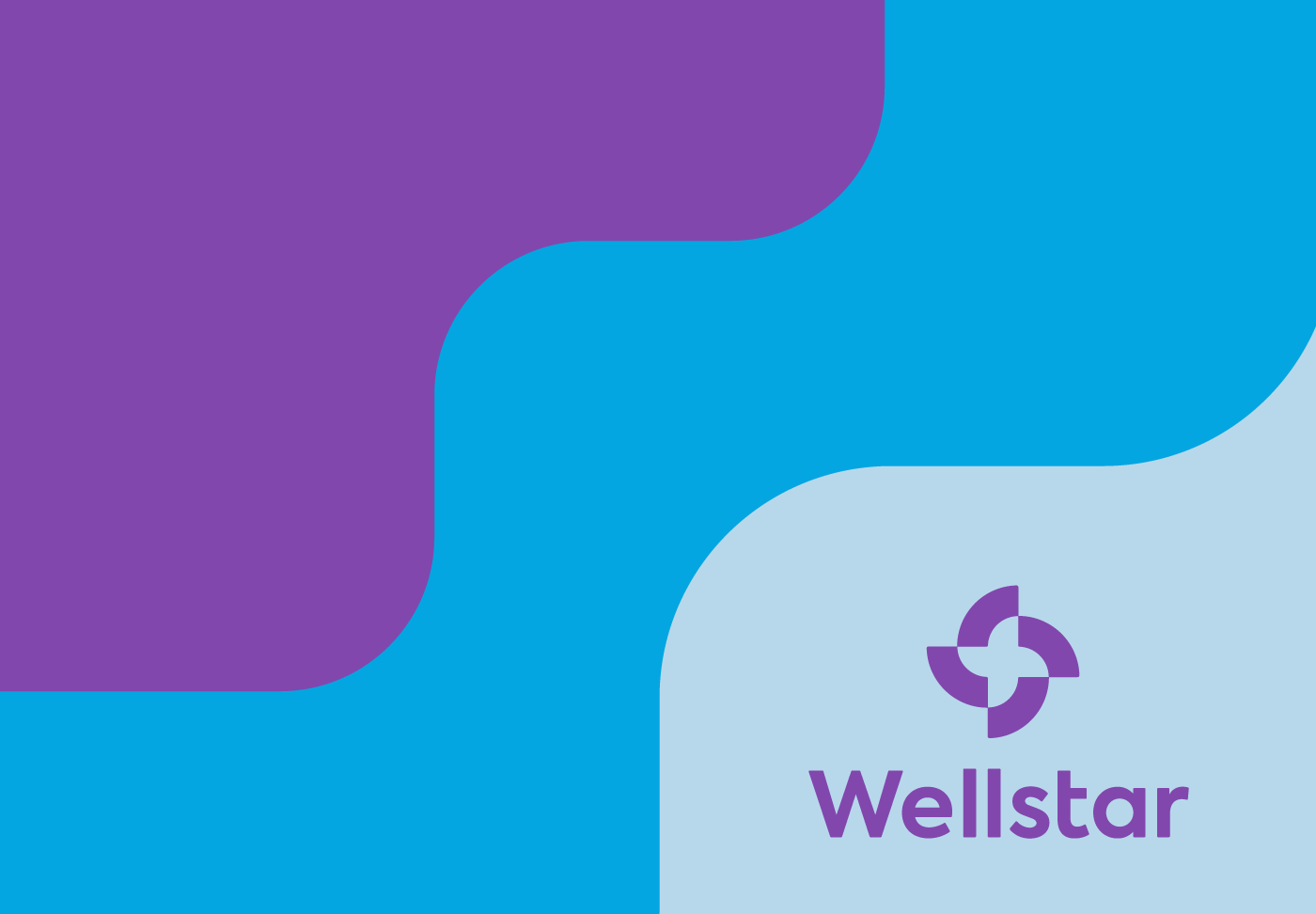
Demolition Marks a New Beginning in the Heart of Atlanta
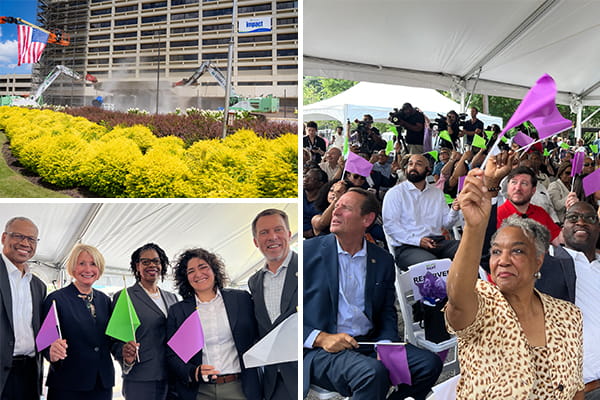
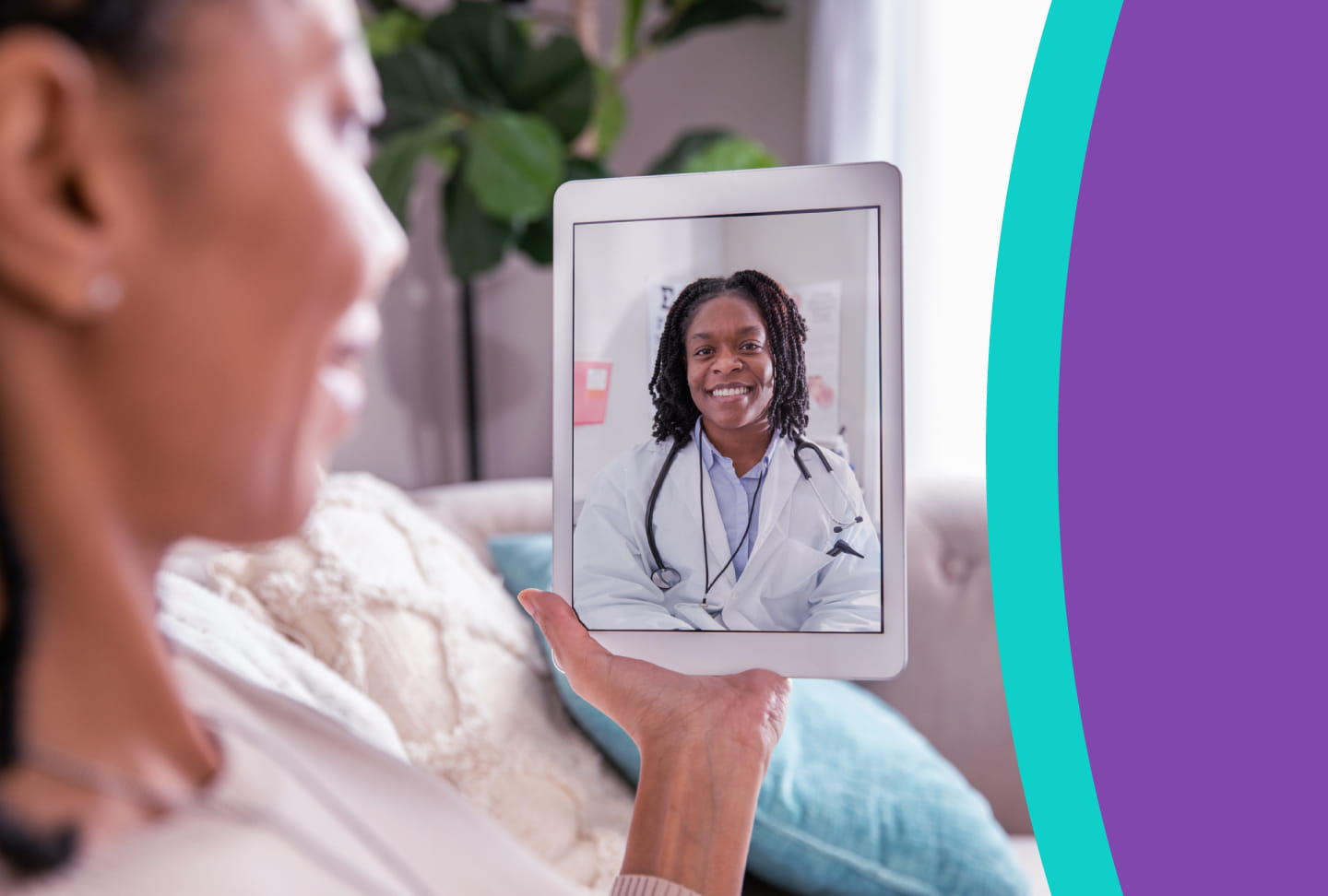
Powering Progress: Key Insights from Wellstar's Community Transformation Program
We are excited to share the results of an insightful evaluation of Wellstar’s Community Transformation Program (CTP), completed by our partner, WE Public Health. This evaluation marks an important milestone as we continue to drive meaningful community-level change through the work of the Wellstar Center for Health Equity (WCHE) and our dedicated grantees.
Each year, CTP invites local organizations in Metro Atlanta to request support for a new or existing tech-based initiative that addresses health disparities in our communities. Nineteen organizations have received grants through the program, including eight in the most recent group. To measure the impact of this program and study how Wellstar’s support has helped these organizations further their reach, we partnered with WE Public Health for an evaluation of CTP.
WE Public Health is a consulting firm focused on advancing health equity through strategic partnerships, capacity building and community engagement. Their work empowers organizations and communities to address health and social challenges with a specific focus on justice and equity.
WCHE partnered with WE Public Health to develop a comprehensive monitoring and evaluation strategy because we recognized the importance of a thorough evaluation to help understand the impact and sustainability of our CTP. The evaluation reviewed the first three groups of Community Transformation Program (CTP) grantees (2020 to 2023) to assess how effectively they improved access to medical care and social services through technology. Findings guide program improvements, support communication with stakeholders and help achieve industry recognition.
Key evaluation domains included:The evaluation highlighted the alignment of the CTP with Wellstar’s commitment to addressing social determinants of health, or factors that can affect a person’s well-being, including access to food, housing and transportation. Our CTP focused on six key areas identified through Wellstar's 2019 Community Health Needs Assessment (CHNA). WCHE launched the CTP in response to a technology equity gap identified in the assessment. The program addresses the need to improve access to medical care and social support services for vulnerable, marginalized and underserved communities.
The evaluation also demonstrated that CTP grantees are having a significant impact on health outcomes. While the estimated reach from our program’s services exceeds 13,000 people, of those nearly 2,250 people benefited specifically from either mental and/or physical health interventions. The estimated cost avoidance from emergency department visits for these patients ranged from $225,000 to over $1 million. This not only underscores the financial impact of the program, but also reflects its success in preventing the need for emergency care.
A key aspect of the CTP was its emphasis on integrating technology solutions to enhance health services. According to the evaluation, six out of seven grantee organizations interviewed reported continuing use of the technology solutions funded through the CTP, indicating strong buy-in and long-term benefits. These positive findings reflect the success of the program in providing grantees with the resources and support to test and scale innovative solutions in a low-risk environment.
Grantees and partners reported positive experiences working with Wellstar team members, highlighting our emphasis on collaboration, capacity building and fostering strong relationships. The evaluation emphasized the effectiveness of Wellstar's supportive approach, which allowed grantees to explore new solutions while minimizing risks.
One of the most valuable outcomes of this evaluation was the expert guidance provided on how to strengthen and scale the program. WE Public Health offered strategic recommendations focused on deepening community partnerships, supporting long-term sustainability and enhancing evaluation practices. These insights will serve as a roadmap as we continue refining the CTP to maximize impact and equity.
The findings from this evaluation affirm the transformative impact the CTP has had on both the health outcomes of individuals and the broader community. By fostering partnerships, addressing key social determinants of health and investing in sustainable technology solutions, the CTP is helping to create lasting change in the communities we serve.
As we continue to work with WE Public Health, we are excited to build upon these results and expand our efforts to address health inequities across Georgia. The partnership between Wellstar, WE Public Health and our grantees continues to serve as a model for how community-driven programs can drive sustainable improvements in health and well-being.
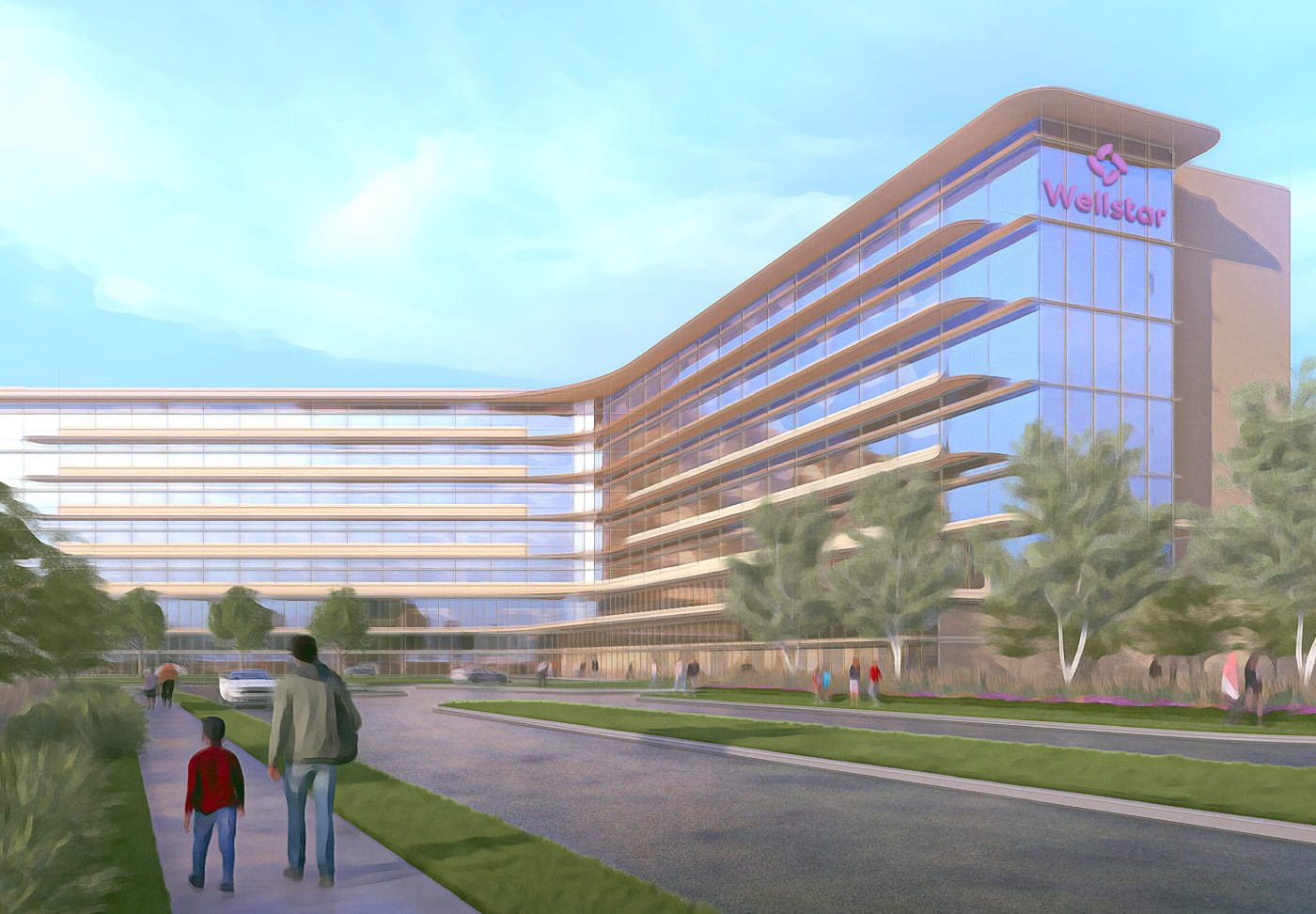
Proposed Wellstar Hospital in Acworth Would Strengthen Access to Care, Create Jobs
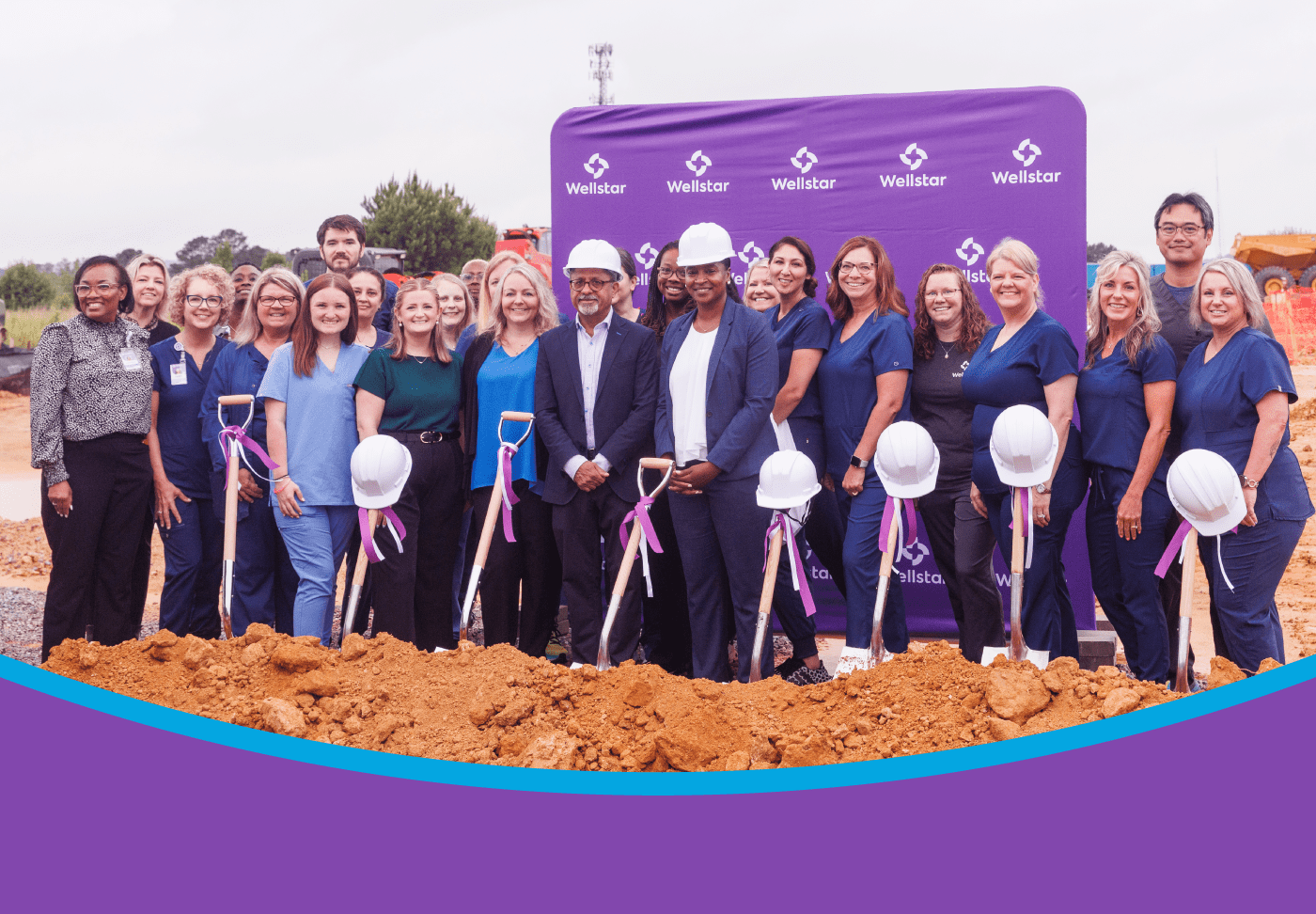
Wellstar Breaks Ground on New Cancer-Care Facility in Cartersville
CARTERSVILLE, Ga. (June 13, 2025) — Wellstar Health System, in partnership with Northwest Georgia Oncology Centers, celebrated a major milestone Friday with the ceremonial groundbreaking of its new medical oncology and infusion facility in Cartersville.
Held at the future site at 65 Cloverleaf Drive, the event marks a significant step forward in expanding access to advanced, patient-centered cancer care for residents of Bartow County and the surrounding communities.
“This new facility represents our commitment to delivering world-class cancer care close to home,” said Dr. Michael Andrews, Wellstar’s chief cancer officer. “We’re investing in the health of this community with a space designed to provide advanced treatment options with compassionate, personalized support.”
The 15,000-square-foot facility—slated to open in early spring 2026—will double Wellstar’s infusion capacity in the region. It will feature:
Patients will benefit from a full spectrum of services, including medical oncology, hematology, immunotherapy, chemotherapy, and outpatient infusion therapy. The facility will also house an onsite infusion pharmacy with a dedicated clinical pharmacist.
“Our goal is to make cancer care more accessible and less overwhelming,” said Rebeccah George, executive director of operations for outpatient oncology and infusion. “This facility will allow patients to receive cutting-edge treatment in a supportive environment, right here in their own community.”
Dr. Michelle Ojemuyiwa, hematologist and oncologist with Northwest Georgia Oncology Centers, emphasized the importance of local access to care.
“Cancer is a journey no one should have to travel far to face,” she said. “This new facility will allow us to deliver the latest treatments with the compassion our patients deserve—right here in Cartersville.”
The new facility underscores Wellstar’s mission to deliver innovative, high-quality care tailored to each person’s needs. A dedicated team of five oncology providers—including two medical oncologists and three nurse practitioners—will lead care at the location.
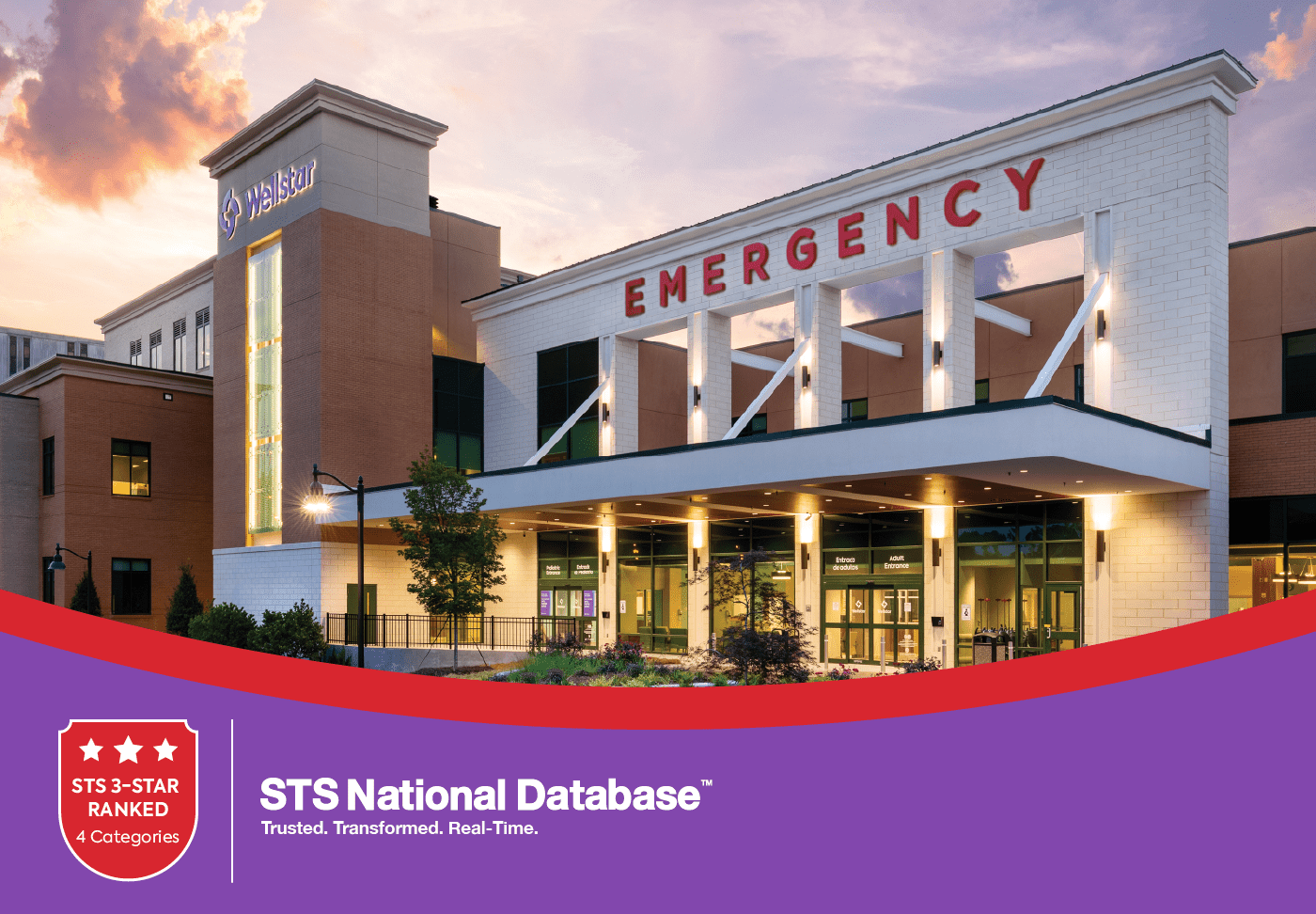
Wellstar Kennestone Achieves Elite National Recognition in Cardiothoracic Surgery

Small and Rural Hospitals Receive Lifeline From Digital Care Network
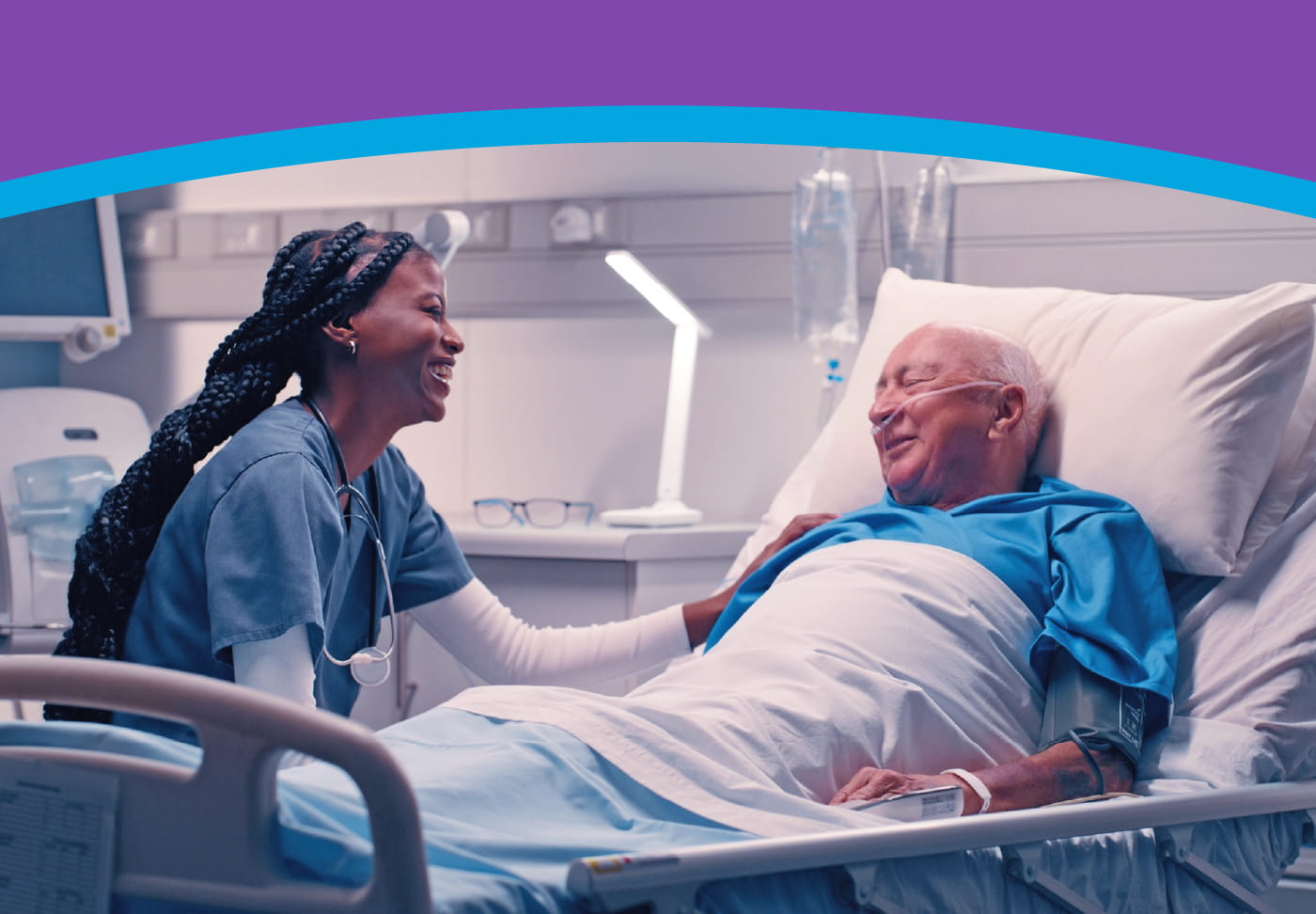
Wellstar Proposes New Acworth Area Hospital To Meet Community Need
To address the growing need for hospital beds in Acworth and the surrounding areas, Wellstar Health System is proposing to build a new 230-bed hospital, filing its Letter of Intent with the Georgia Department of Community Health. A Letter of Intent is the first step in the process to obtain a Certificate of Need for a new hospital.
The new hospital would be located on Cobb Parkway across from the Wellstar Acworth Health Park. Wellstar’s long history of service to this community makes it the ideal partner to continue to meet the area's growing healthcare needs. The project will be supported by Wellstar Health System resources, including Wellstar Kennestone Regional Medical Center and Wellstar Paulding Medical Center, and numerous primary, urgent and specialty care locations, which will further enable the project to provide high-quality care in an integrated, coordinated and efficient manner.
Wellstar will file a detailed Certificate of Need application on or before June 23, 2025, that will include architectural renderings and how the hospital would address the community’s health and wellness needs.
“Wellstar is improving access to care, and this new hospital is the latest in a series of projects that do just that,” said Candice L. Saunders, president and CEO of Wellstar Health System. “The area is growing so much that even when our new tower at Wellstar Kennestone opens next year, the region will need more hospital beds. A new hospital in Acworth would fill a crucial need for the region’s medical care.”
Wellstar is improving access to care for communities across Georgia through more than $1.4 billion in major projects, including:
The new hospital would be part of a Wellstar system that provides more than $1 billion each year in charity and uncompensated care—more than any health system in Georgia. Wellstar is also a leader in medical education through its partnerships with academic institutions, accelerates healthcare technology and innovation, and is recognized by Fortune magazine as one of the 100 Best Places to Work in America.
“Access to healthcare has been expanding throughout Cobb County, but we still have an unmet need for hospital beds in the northern portion of our county,” said Lisa Cupid, chairwoman of the Cobb County Board of Commissioners. “Wellstar is deeply committed to our region, and we’re grateful that they recognized this need and are stepping forward with a solution.”
“Acworth’s population grew fivefold in ten years, and we continue to attract people who want to live and work in our area,” said Tommy Allegood, mayor for the City of Acworth. “The City of Acworth has been expanding our critical infrastructure and creating a place where families will want to stay for generations. A hospital would be extremely beneficial to our community, and we appreciate Wellstar’s willingness to meet our need.”
Wellstar is headquartered in Cobb County and is deeply involved in the area, tracing its heritage to 1950 when Kennestone Hospital opened. In keeping with its community roots, Wellstar will establish a community advisory council to honor every voice throughout the Certificate of Need process.
“My patients are from all walks of life, but they share a desire for a hospital that’s closer to home, especially those who have chronic conditions or are elderly,” said Dr. Michaele Brown, a Wellstar primary care doctor in Acworth. “We live in a vibrant, growing area. Our patients’ access to all levels of healthcare should be just as vibrant and that includes a hospital where they can quickly get the level of care they need when they need it.”
“We will involve the community in every step of this process, and make sure this hospital meets the community’s needs for generations to come,” said Saunders.
In addition to providing care for generations of families, Wellstar actively supports community health and well-being through partnerships with nonprofit, civic and business organizations, as well as academic institutions. Through these partnerships, Wellstar serves all of its neighbors’ needs, ranging from access to healthcare to food and housing insecurity to educational support and career development.
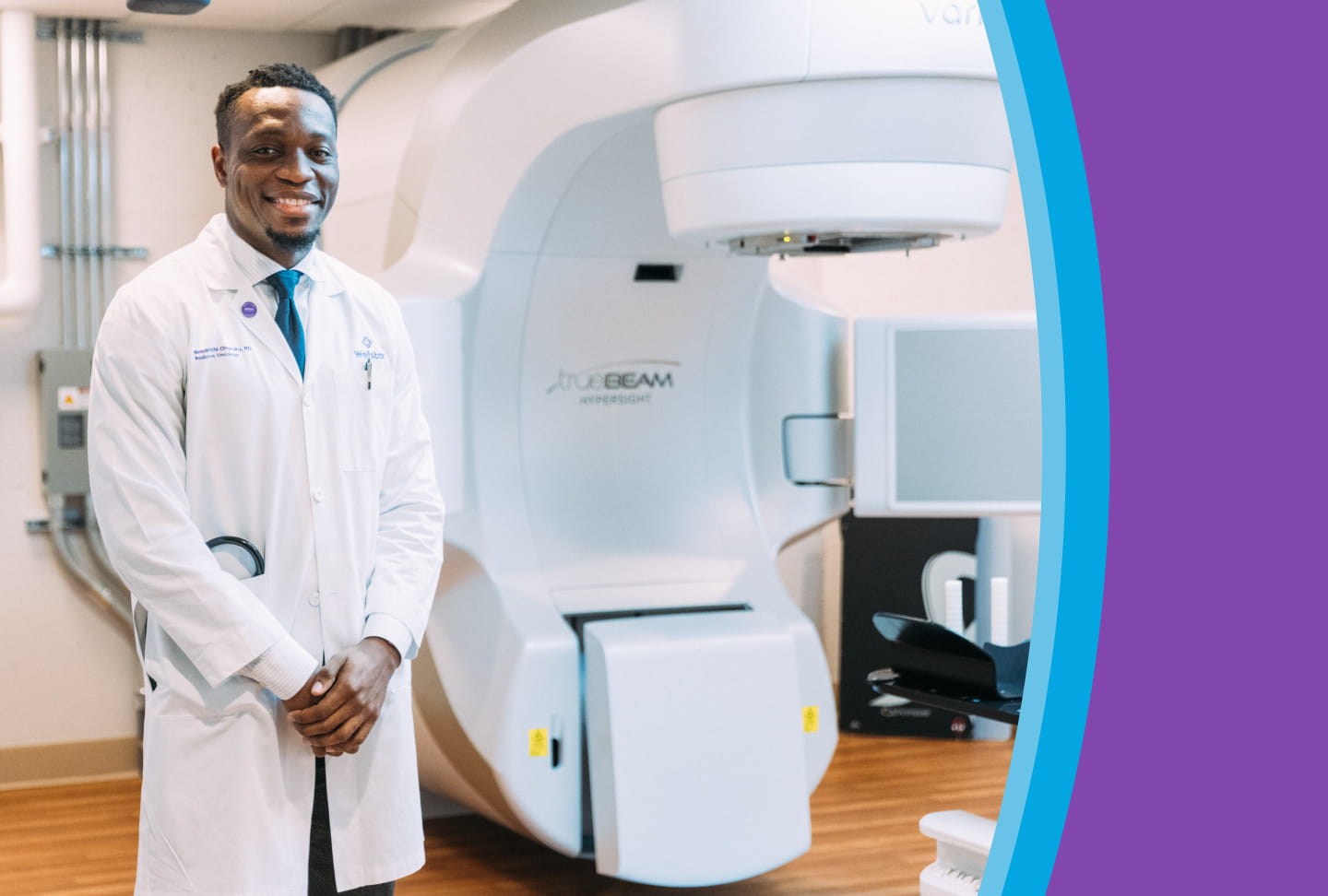
Wellstar Cobb Cancer Center Expands Treatment Services
.jpg?rev=0c641d247be3492db97099991e0fef7f)
Women's Health Summit: Great Strides, But More Work to Do
To celebrate Women’s Health Month, more than 150 executives gathered Thursday at The Studio Theatre in Sandy Springs for insightful discussions on advancing women’s health in Atlanta and throughout Georgia.
The Women's Health Summit, presented by the Atlanta Business Chronicle and Wellstar Health System, featured two panels of experts and a keynote address by renowned health and wellness expert Emma Lovewell.
Cheryl Preheim, anchor at 11Alive (WXIA), welcomed attendees and served as a moderator.
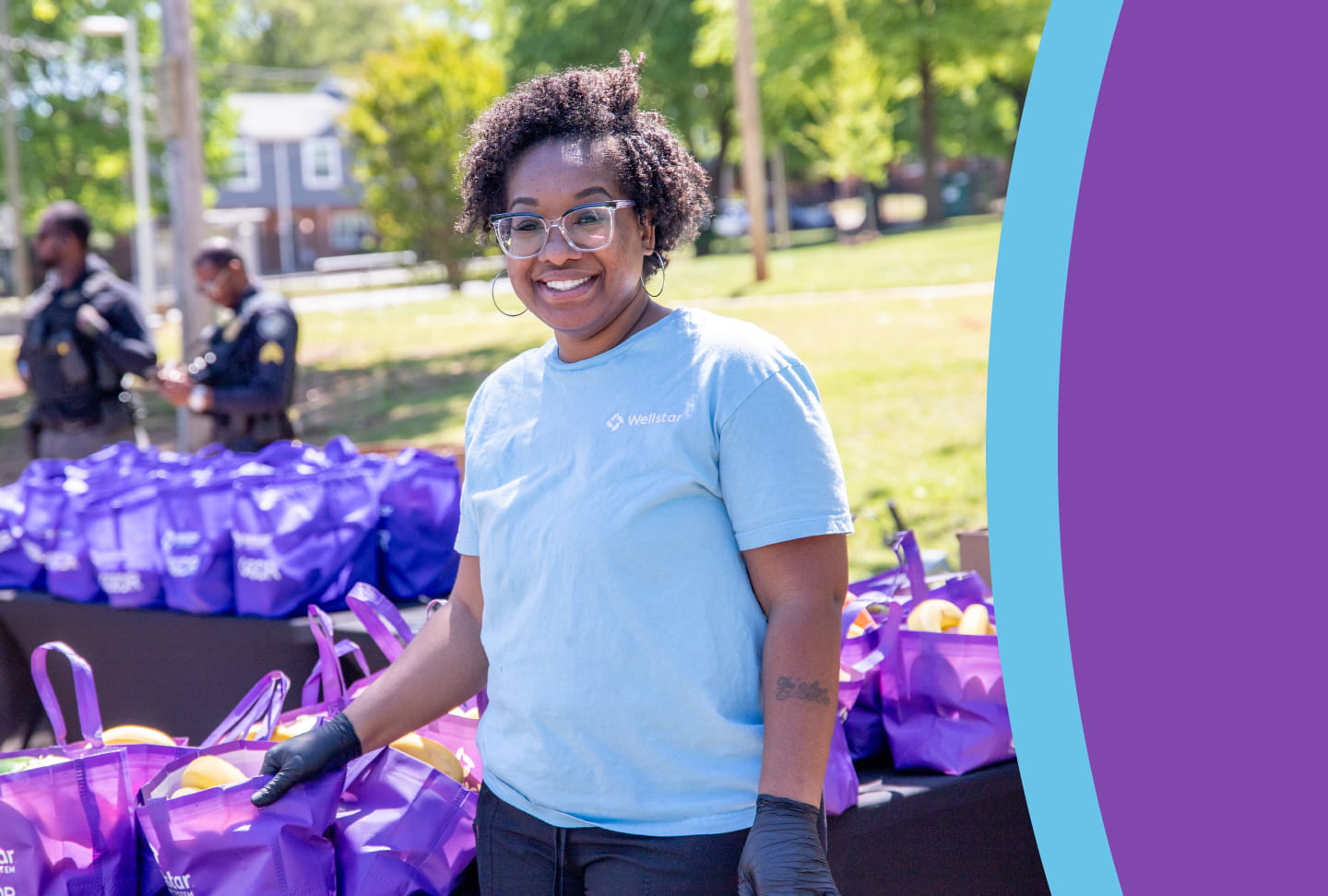
Wellstar Partners with March of Dimes & Center for Black Women’s Wellness on Mobile Markets
The Wellstar Goodr Mobile Market season has kicked off 2025 with a new site in South Fulton County. March of Dimes, in collaboration with the Center for Black Women’s Wellness (CBWW), was selected as a new partner and site for the markets brought to you by Goodr, Wellstar Community Health and the Wellstar Foundation.
CBWW serves women, men and children throughout metro Atlanta through a host of programs and services aimed at optimizing health, strengthening families and communities, and advancing health equity. Over the past 36 years, the center has created a legacy in Atlanta that ensures people will always have access to quality healthcare and wellness programming.
March of Dimes leads the fight for the health of all moms and babies. They support research, education and advocacy, and the organization provides programs and services so that every family can get the best possible start. These mobile markets build on March of Dimes’ existing partnerships with CBWW.
Food insecurity can negatively affect someone’s pregnancy and health outcomes, according to March of Dimes Director, Maternal & Child Health Collective Impact Tamara Mason.
“Every mom should have the ability to have a healthy pregnancy and deliver a healthy baby full-term, regardless of a woman's race or where she lives,” Mason said.
The mobile markets are in their fourth year of operating drive-through food giveaways and health and wellness education distribution for pre-registered individuals.
“Our partnership with March of Dimes and the Center for Black Women's Wellness through the Wellstar Mobile Market is a pivotal initiative to ensure equitable access to food,” said Rae-Anne Pinckney, director of community health programs and partnerships for Wellstar. “By offering nutritious foods alongside vital health education, we empower communities to make informed choices, paving the way for a healthier and more vibrant future for all.”
For more information about mobile markets and other community health programs at Wellstar, visit wellstar.org/community. To register for food at any of the upcoming mobile markets, go to wellstarmobilemarket.com.

Art Pharmacy Partners With Wellstar for Innovative Health and Wellness Program
Art Pharmacy, which connects people to arts and culture events to support health and well-being, is partnering with Wellstar Health System to address the isolation and loneliness epidemic. This new program enables participants in the Wellstar Live to the Beat heart health program to further improve their overall health with opportunities to engage in fun, non-clinical community events that boost mental health and reduce loneliness.
“We are grateful to Wellstar and the Community Health team,” Art Pharmacy CEO Chris Appleton said. “Working with individuals in hypertension control and stress management is important to our work as an organization and aligned with our mission to improve the health and well-being of our members through social prescribing.”
Art Pharmacy’s solution uniquely combines decades of research in the field of arts and health with the care model of social prescribing to address some of the nation’s most challenging health problems.
Social prescribing is a model of care delivery that enables health professionals to formally prescribe non-clinical community activities—including the arts, movement, nature and service—to improve patient health.
According to the U.S. Department of Health and Human Services Office of the Surgeon General, poor social relationships, social isolation and loneliness can increase the risk of heart disease by 29 percent and risk of stroke by 32 percent. Additionally, people with strong perceptions of community belongingness are 2.6 times more likely to report good or excellent health than people with a low sense of belongingness. In addition to Georgia, Art Pharmacy’s social prescribing model has been adopted in Arizona, California, Connecticut, Massachusetts and New York.
“Our nation has an epidemic of loneliness that can contribute to people suffering from heart disease, stroke and premature death,” said Dr. Earl Stewart Jr., medical director of health equity for Wellstar. “Meaningful social engagement can help people overcome isolation and improve their behavioral health. We’ve found great success with our Live to the Beat heart health program, and we’re now working with Art Pharmacy to further improve participants' overall health.”
Art Pharmacy drives clinical and quality outcomes with its healthcare partners through its tech-enabled, human-powered social prescribing solution. Art Pharmacy will connect participants to community-based activities with protective and therapeutic benefits to their mental health and well-being. To increase adherence and utilization, patients will have access to a broad range of activities and care navigation services. Arts-based social prescribing is an effective, evidence-based way to support patients with mental health needs, reduce social isolation and loneliness, and promote adherence to co-morbid treatment plans.
As a non-profit health system, Wellstar works to ensure every person has access to personalized care that helps them spend more time being a person, rather than a patient. The Live to the Beat program is a community outreach program offered through the Wellstar Congregational Health Network, which partners with local faith communities to connect congregants with community health resources.
To learn more, contact Art Pharmacy at [email protected] or visit artpharmacy.co.
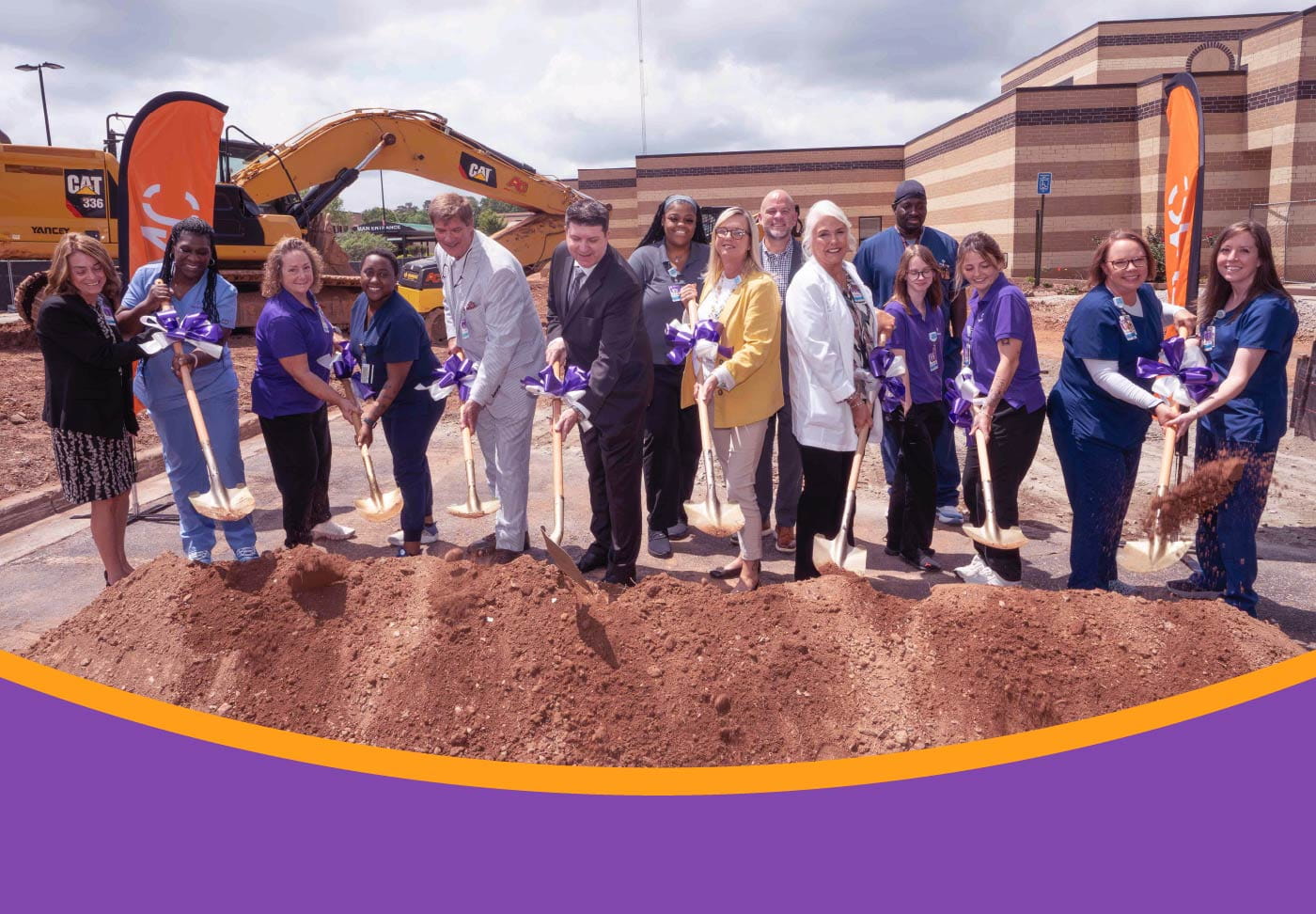
Wellstar Expanding Cancer Care in Spalding County

Wellstar Breaks Ground on Cancer Care Facility in Spalding County
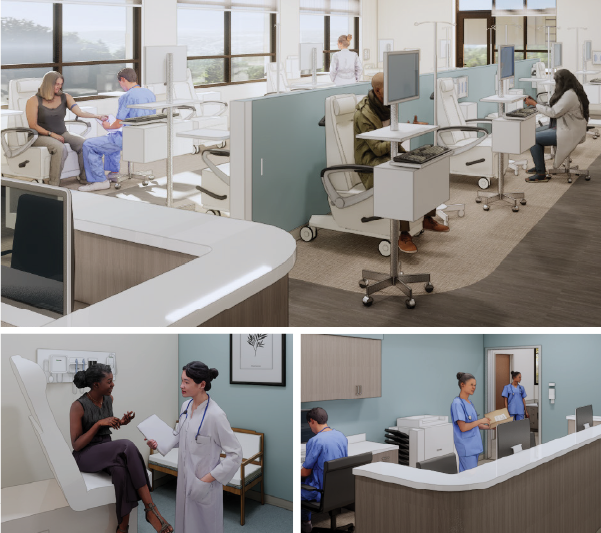
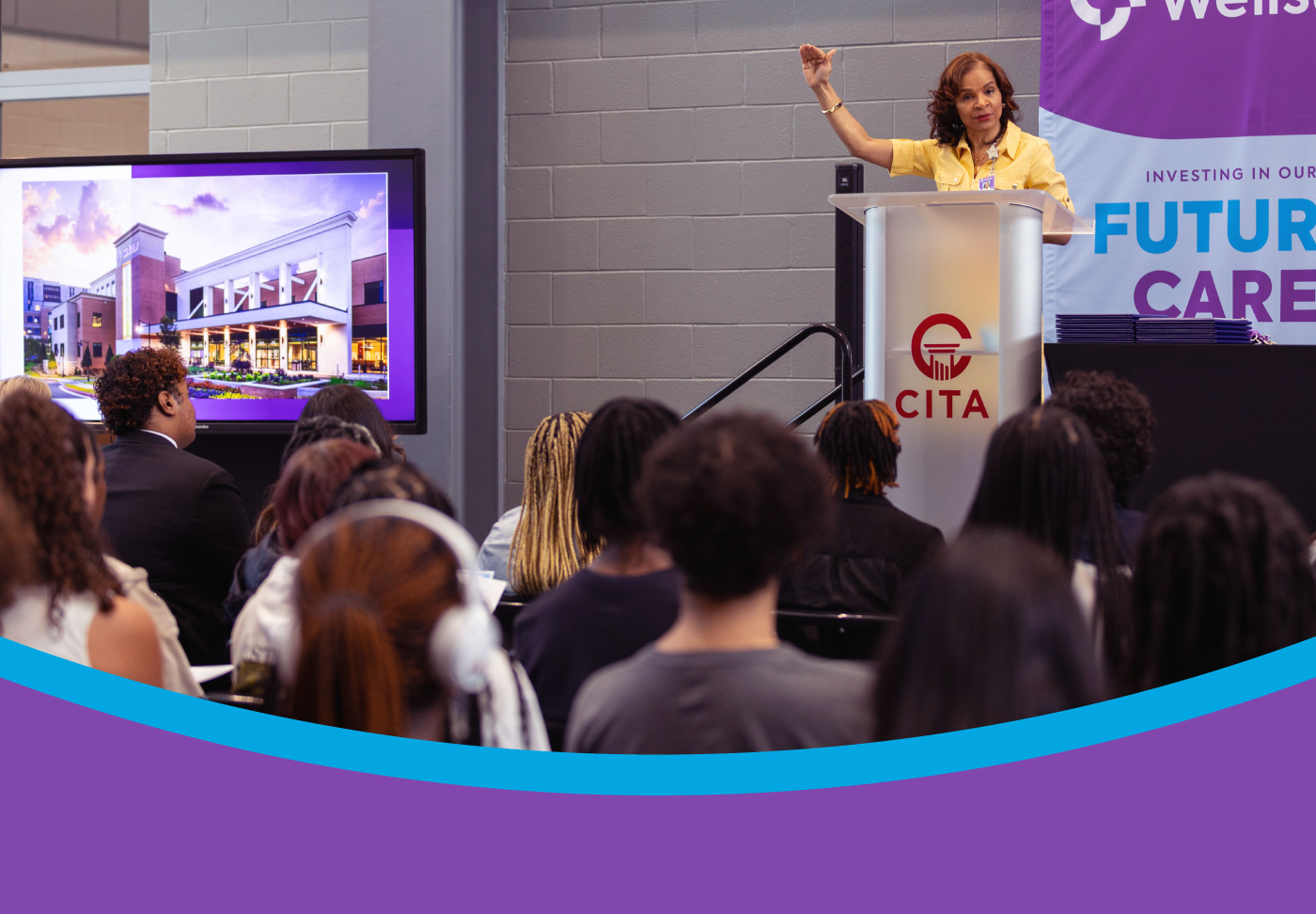
CITA Partnership Blossoms for Wellstar with 12 New Employees
Republished with permission of Cobb County Schools
This article was originally published by Cobb County Schools April 18, 2025.
The historic and unique $2 million partnership between the Cobb Innovation and Technology Academy (CITA) and Wellstar Health System has flourished with twelve new employees for the healthcare company. A signing day celebrating the dozen students as trailblazers in a bold new initiative was held at CITA earlier this week. The soon-to-be Cobb graduates will quickly transition to being Wellstar employees in June and begin working directly in the healthcare industry.
"They're not just getting a high school diploma, they're getting industry certifications along with it," said Wellstar Director of Talent Acquisition Tuqwan Jordan. "We make sure that they are employed, that they are employable, and that they have the necessary skills. We want them to continue to develop in their education and reach their career goals. We are extremely proud of them."
"If you choose us, we choose you right back," agreed Evelyn Rosenthal, Wellstar assistant vice president of leader and employee development. "If you believe that you can reach the stars, Wellstar will bring the ladder to help you climb and get up there. We're going to support you and make Wellstar a career destination, meaning you start today and just stay with us until you retire."
Rosenthal stressed that this support went all the way to the top at Wellstar, including retiring President and CEO Candice L. Saunders. It is most fitting that the inaugural class of interns—now employees—enter the company as Saunders is exiting. She was behind the CITA partnership from day one, being a role model herself of what's possible at Wellstar. Saunders was a former nurse who worked her way up through leadership positions to become CEO in 2015.
Some students signed job offers for Wellstar Cobb Medical Center, while others signed with Wellstar Kennestone Regional Medical Center. Some are pursuing nursing, some physical therapy, some emergency and triage, but all will benefit from Wellstar's decades of experience as a proven healthcare leader.
"The exposure to the industry that comes from this partnership is second to none," said CITA Director Dr. Tiffany Barney. "Wellstar has been a phenomenal partner for us. These students were so well-prepared that Wellstar said they felt comfortable hiring them on the spot after their interviews. That's a testament to our outstanding healthcare pathway teaching team at CITA.
"That endorsement of the CITA staff didn't stop with Dr. Barney. Joe Muturi, one of the students heading to Wellstar Cobb in June, also praised the technology academy and his experience there."
If I could scream at the top of the tallest mountain that you should join CITA, I would. I've gotten so many opportunities here as well as a bunch of certifications. Because of CITA and Wellstar, I am prepared to be the healthcare professional I always wanted to be!" Joe said with a smile.
Joe's classmate, Maritza Pacheco, will be heading to Wellstar Kennestone after graduation and was equally enthusiastic. "These weren't just experiences for a resume. They were moments that transformed how I see myself and my future," she said thoughtfully.
"One of the most stirring moments in my journey was using my bilingual abilities to translate for patients," Maritza continued. "That moment of connection when fear melts into understanding in a patient's eyes is a feeling I carry in my heart every day. This journey has given me something priceless: the certainty that I belong here."
Other Wellstar patients were equally impressed with the CITA students. Health Science teacher Sheri Drake described a few of the comments she received from both mentors and patients. "They said, 'Your students are so professional. Your students have the ability to communicate better than any other students we've seen. Your students have so much compassion and empathy for our patients." Drake revealed that some patients even went so far as to send thank-you notes to the school for the students' professional demeanor and attitude.
"This past year has been an amazing partnership, and I am so proud of each and every one of them," she concluded with emotion and joy in her voice about the inaugural class of Wellstar signees.
Congratulations to the following CITA students for signing with Wellstar Health System: Jossie Aguilar, Anahi Blanco, Christian Crane, Jose Guevara, Eden Iyare, Momodou Jallow, Monika Meneses, Joe Muturi, Ximena Paniagua, Aaliyah Reeves, Maritza Rojas and Jacqueline Vazquez.
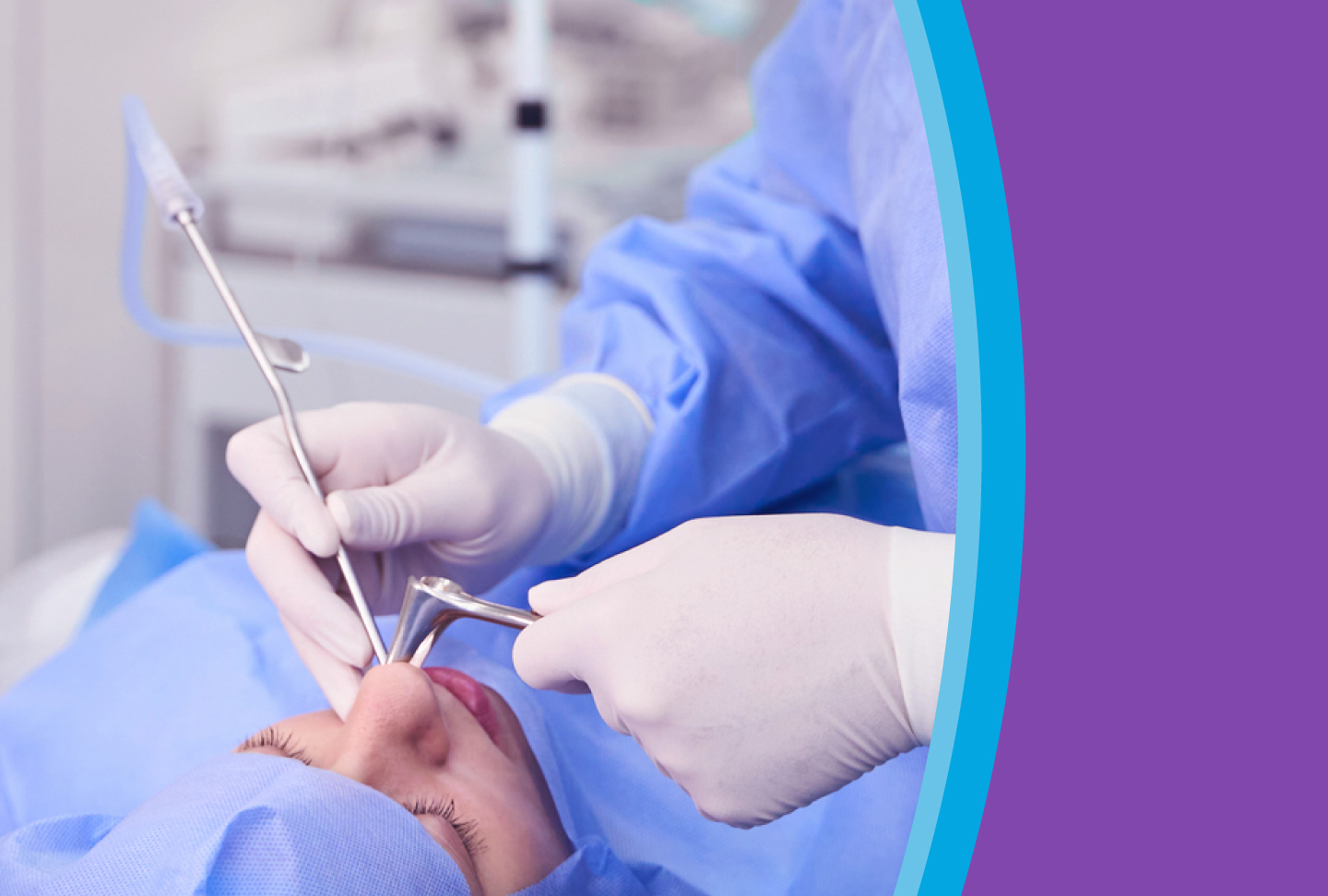
Wellstar MCG Health achieves medical first: Procedure offers hope for aneurysm patients
Neurosurgeons at Wellstar MCG Health Medical Center achieved a new surgical approach to treat an aneurysm behind the eye. It’s called endoscopic endonasal clipping of a superior ophthalmic aneurysm. The procedure for an aneurysm in this location is believed to be the first of its kind performed through the nose. This innovative technique offers a promising alternative for patients with complex aneurysms, particularly younger individuals.
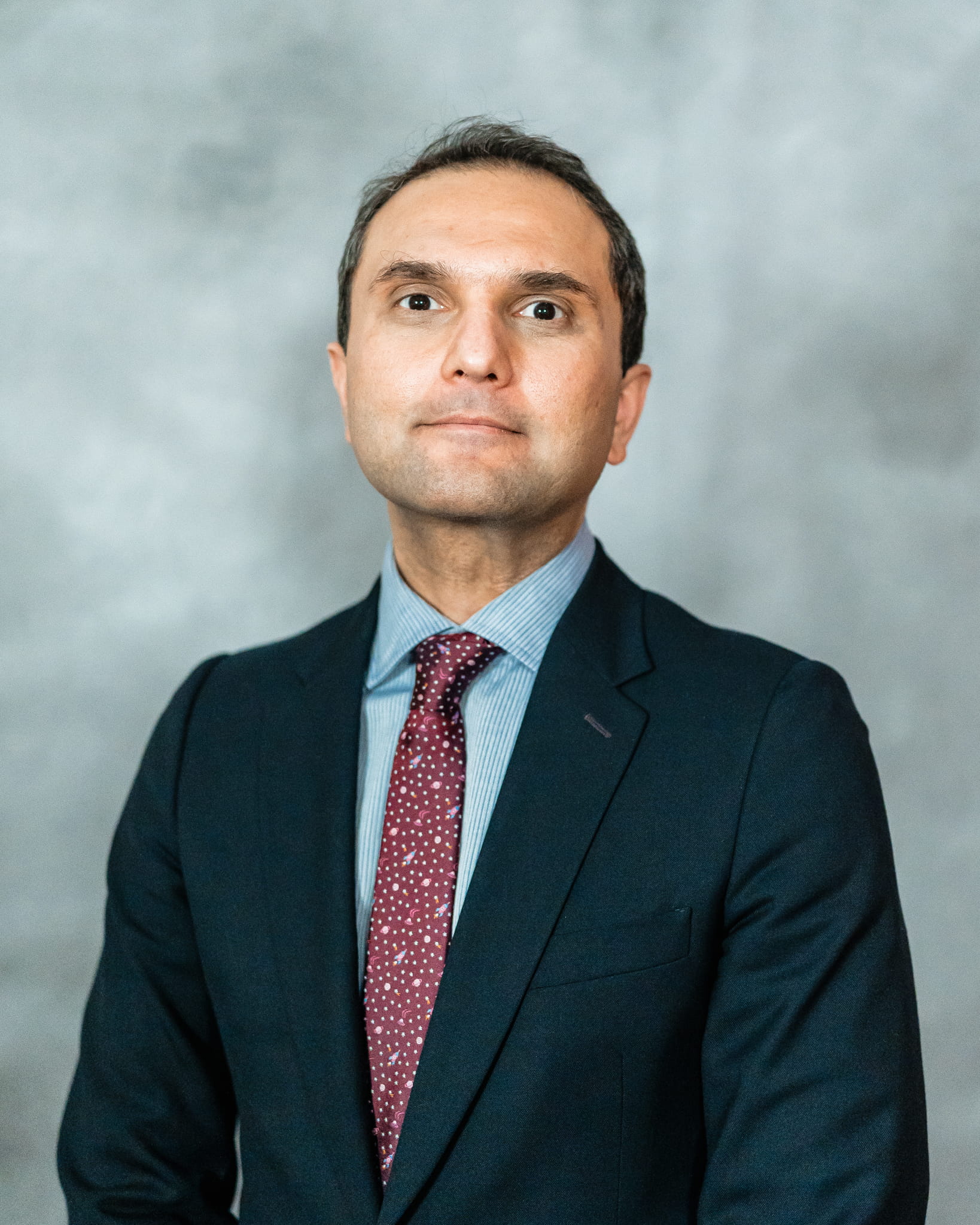 Dr. M. Salman Ali, director of Skull Base, Pituitary and Surgical Neuro-oncology and assistant professor of Neurosurgery at Augusta University, led the team in this pioneering procedure performed at Wellstar MCG Health. An aneurysm, as Dr. Ali explains, is a “weak spot in a blood vessel in the brain,” prone to rupture, which can be life-threatening. Located near the eye, the superior ophthalmic aneurysm is a rare and challenging condition.
Dr. M. Salman Ali, director of Skull Base, Pituitary and Surgical Neuro-oncology and assistant professor of Neurosurgery at Augusta University, led the team in this pioneering procedure performed at Wellstar MCG Health. An aneurysm, as Dr. Ali explains, is a “weak spot in a blood vessel in the brain,” prone to rupture, which can be life-threatening. Located near the eye, the superior ophthalmic aneurysm is a rare and challenging condition.
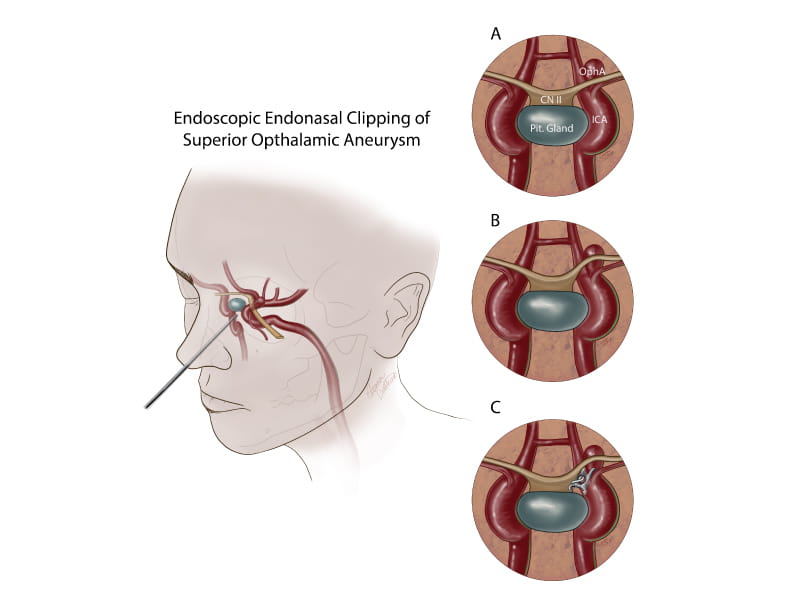
Image provided by Augusta University Medical College of Georgia Department of Neurosurgery.
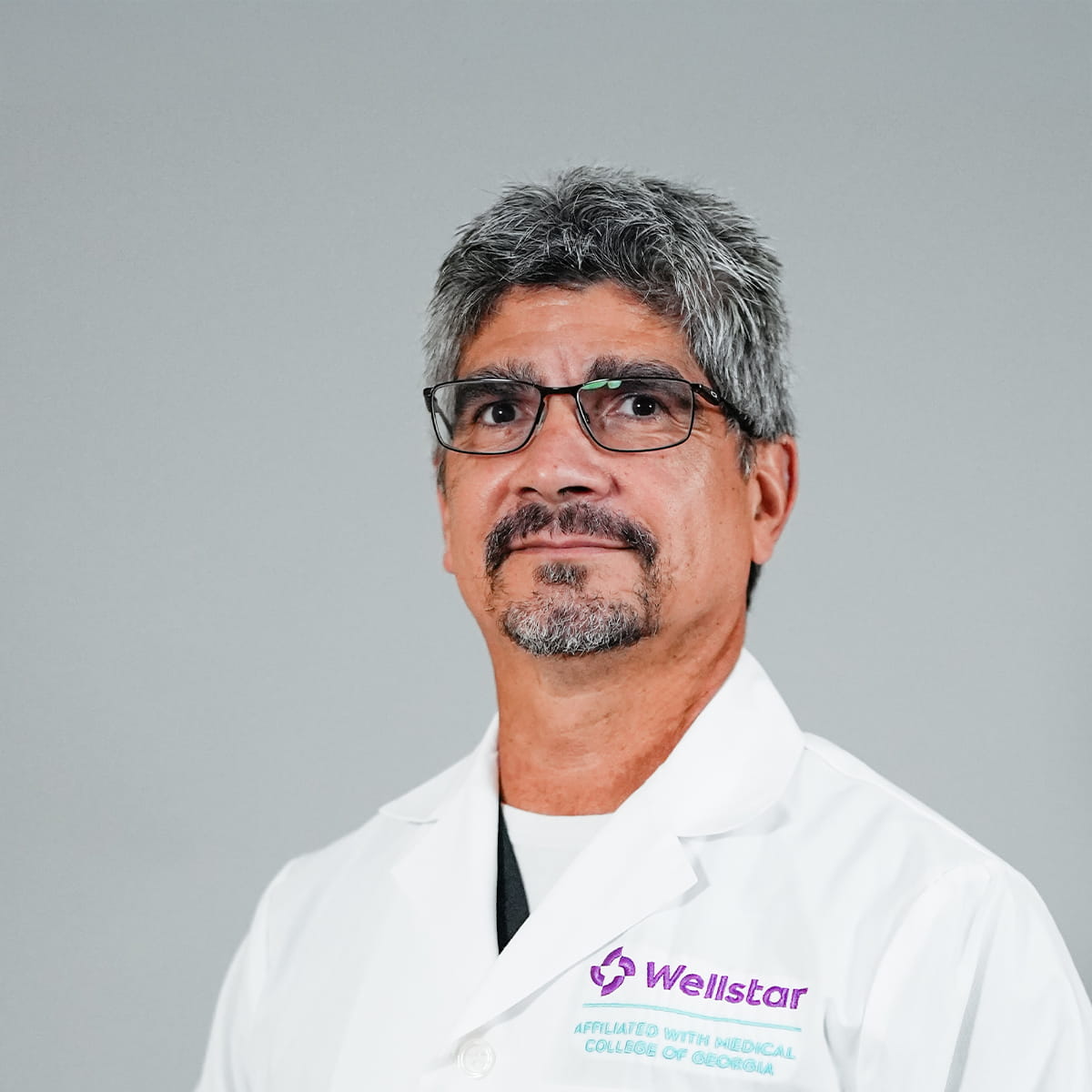 “MCG Neurosurgery has been here for many years and we have a long tradition of teaching and research,” said Dr. Fernando L. Vale, neurosurgeon and Department of Neurosurgery chair at Augusta University. “We bring teams together, use advanced technology and pay close attention to the complex details for the better outcome of our patients. Working as a team can create better science.”
“MCG Neurosurgery has been here for many years and we have a long tradition of teaching and research,” said Dr. Fernando L. Vale, neurosurgeon and Department of Neurosurgery chair at Augusta University. “We bring teams together, use advanced technology and pay close attention to the complex details for the better outcome of our patients. Working as a team can create better science.”
Traditionally, superior ophthalmic aneurysms were treated with open brain surgery and significant brain tissue manipulation. While endovascular techniques with the use of stents—tubes that support weak artery walls—are now more common, they carry a recurrence risk and require lifelong medication.
This was a concern for Dr. Ali, whose patient was only 36 years old. Thus, he and his team proposed clipping the aneurysm through the nasal cavity instead. This minimally invasive technique offered a treatment with no incisions or brain tissue manipulation, a significantly lower recurrence rate and no need for long-term medication.
"I thought it was the best thing for the patient," Dr. Ali emphasized, explaining his decision to pursue this approach.
The procedure required a multidisciplinary team including ENT surgeons, interventional vascular surgeons, neuro-anesthesiologists and neuromonitoring specialists—and a carefully executed surgical plan.
“This could not have been possible without this wonderful team,” Dr. Ali said.
The patient, who found out about her aneurysm from routine imaging after a car accident, was discharged only two days after the surgery and is recovering well. Dr. Ali stressed the importance of offering patients options and empowering them to make informed decisions.
"This prioritizes the patient and surgical excellence,” he continued.
Dr. Ali hopes this procedure will become a treatment option for people with hard-to-reach aneurysms in the future, offering them a better quality of life.
This achievement not only benefits patients but also serves as a valuable learning experience for medical residents and fellows who were in the operating room that day.
“Seeing is believing,” Dr. Ali said, highlighting the importance of academic medicine in advancing surgical techniques. “When students see someone else do it, why can’t they do it? It’s our duty to be better than the surgeons before us. The students now have more technology and better anatomical understanding—their outcomes will be even better than ours.”
Learn more about neurosurgery at Wellstar MCG Health Medical Center.
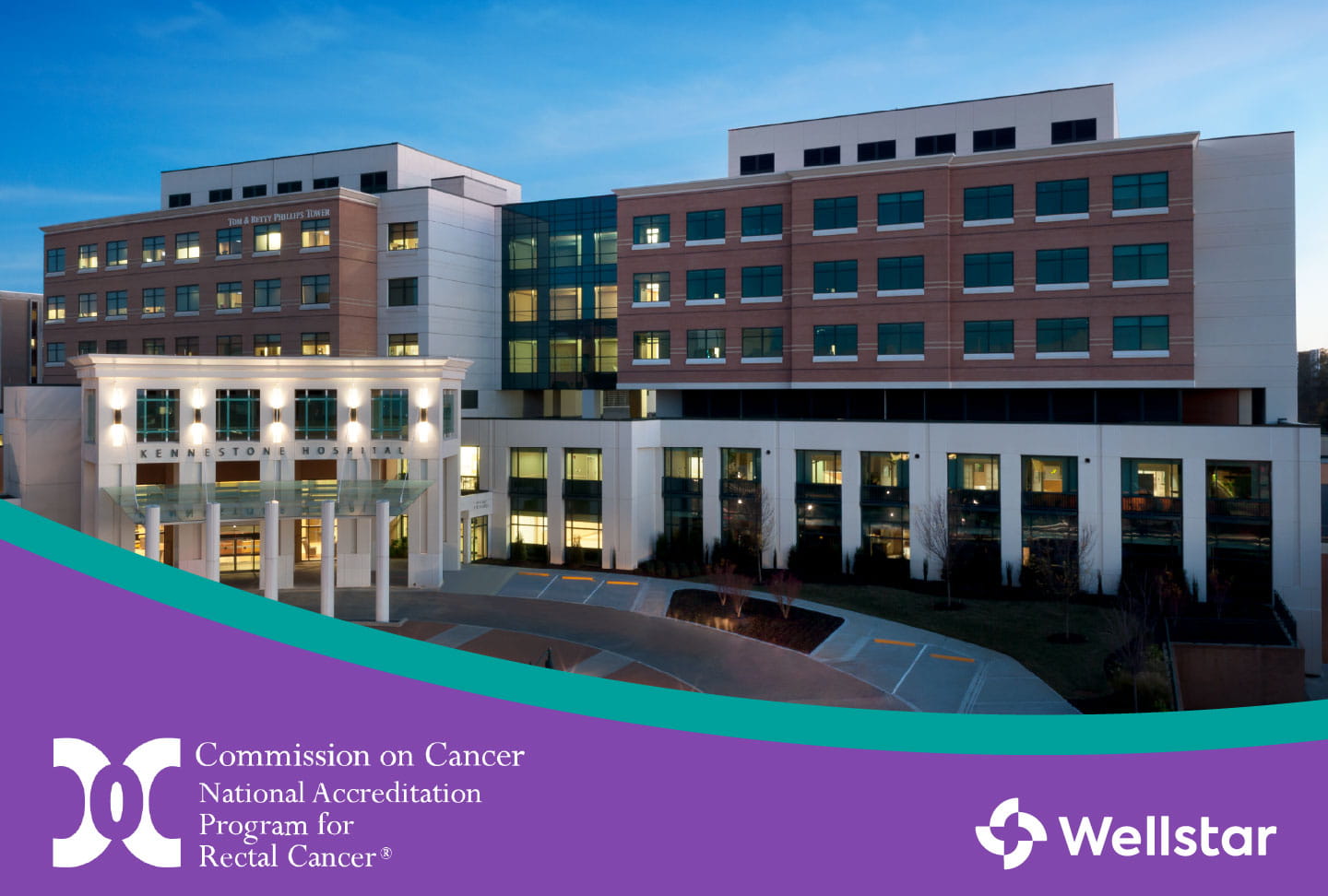
Wellstar Kennestone Regional Medical Center Renews Accreditation for Rectal Cancer Program
Wellstar Kennestone Regional Medical Center has earned another three-year accreditation from the National Accreditation Program for Rectal Cancer (NAPRC), a quality program of the American College of Surgeons. This accreditation demonstrates our commitment to providing personalized, high-quality cancer care close to home for patients in Georgia.
To achieve voluntary NAPRC accreditation, a rectal center must demonstrate compliance with the NAPRC standards addressing program management, clinical services and quality improvement for patients. Centers are required to establish a multidisciplinary rectal cancer team that includes clinical representatives from surgery, pathology, radiology, radiation oncology and medical oncology.
At Wellstar, rectal cancer patients have a multidisciplinary team on their side through every step of treatment. Each patient works with a nurse navigator to schedule appointments with specialists. Patients meet with a medical oncologist, as well as a surgical oncologist or colorectal surgeon. Imaging and lab tests are reviewed by a multidisciplinary board of rectal cancer physicians, efficiently providing patients with input from several experts in cancer care. During the course of treatment, that multidisciplinary board will continue to follow the patient and discuss the best next steps, tailoring care to fit each patient’s individual needs.
Additionally, the program at Wellstar Kennestone met standards addressing the clinical services that the rectal cancer program provides, including Carcinoembryonic Antigen (CEA testing), Magnetic Resonance Imaging (MRI) and Computerized Tomography (CT) imaging for cancer staging, which allow patients to start treatment within a defined timeframe. Rectal cancer programs accredited by the NAPRC undergo a site visit every three years and are also accredited by the American College of Surgeons Commission on Cancer.
“Our patients are surrounded by a team of experienced rectal cancer experts who provide the highest level of personalized care,” said Wellstar Surgical Oncologist Dr. Sahir Shroff, who serves as the rectal cancer program chair. “We are proud to be the first medical center in metro Atlanta to receive this important accreditation. Our pioneering efforts to adhere to the most rigorous standards and combine the latest technologies and techniques help us achieve excellence in rectal cancer care for our patients.”
Accreditation by the NAPRC is granted only to those programs that are committed to providing the best possible care to patients with rectal cancer. The NAPRC provides the structure and resources to develop and operate a high-quality rectal center. Accredited programs follow a model for organizing and managing a rectal center to ensure multidisciplinary, integrated, comprehensive rectal cancer services. Wellstar Kennestone earned its first accreditation in 2022.

Pop-up Grocery Markets to Tackle Food Insecurity
Goodr, the innovative social impact company dedicated to ending food waste and hunger, and Wellstar Health System are teaming up for a fourth consecutive year to bring free, fresh food directly to communities throughout Metro Atlanta with a series of pop-up grocery markets.
The pop-ups will occur over five months: April, May, June, September and October.
For many Georgia families, accessing healthy food isn’t just a challenge—it’s a crisis. According to an October analysis by the Georgia Budget and Policy Institute, 1.6 million Georgians received benefits through the Supplemental Nutrition Assistance Program (SNAP, also known as food stamps).
Georgia is home to some of the largest food deserts in the country. Without nearby grocery stores, many residents rely on fast food and convenience stores, increasing their risk for chronic illnesses like diabetes, hypertension and heart disease. These mobile grocery pop-ups aren’t just about food—they deliver dignity, better health and hope.
“Health and wellness begin with access to nutritious food, which is a struggle for too many people in our community,” said Elise Lockamy-Kassim, assistant vice president for Wellstar Community Health and the Wellstar Center for Health Equity. “At Wellstar, we’ve found an exceptional partnership with Goodr and our network of community organizations to provide wholesome foods and health information.”
Each event will distribute approximately 20,000 pounds of fresh food, helping alleviate food insecurity for thousands of families. In addition to groceries, many events will offer free health screenings, nutrition education and wellness resources, reinforcing the connection between food and long-term health.
“These markets are more than just an opportunity for families to receive free groceries—they are a lifeline,” said Jasmine Crowe-Houston, founder and CEO of Goodr. “I’ve spoken with mothers who skip meals so their children can eat, seniors forced to ration what little they have and workers who spend most of their paycheck just to put food on the table. Thanks to Wellstar’s continued sponsorship, we serve those who need it most and work towards a future where no one must go hungry.”
All Wellstar Mobile Markets will be drive-thru events. Families must pre-register to attend (one registration per household) at wellstarmobilemarket.com or by emailing [email protected].
APRIL WELLSTAR MOBILE MARKET EVENTS:
Roswell
Thursday, April 3, 2025 | 5 – 6 PM
Roswell Organization for Community Development
Location: Zion Missionary Baptist Church
888 Zion Circle, Roswell, GA 30075
Registration now open
LaGrange
Saturday, April 5, 2025 | 10 – 11 AM
First Presbyterian Church - LaGrange
Location: AMC CLASSIC LaGrange 10
201 Main St., LaGrange, GA 30240
Registration now open
Griffin
Thursday, April 10, 2025 | 5 – 6 PM
New Mercy Baptist Church
730 Park Road, Griffin, GA 30224
Registration opens March 31
Douglasville
Thursday, April 17, 2025 | 10 – 11 AM
First Presbyterian Church of Douglasville
9190 Campbellton St., Douglasville, GA 30134
Registration opens April 7
Jackson
Tuesday, April 22, 2025 | 5 – 6 PM
Butts County Life Enrichment
Location: Jackson United Methodist Church
409 E 3rd St., Jackson, GA 30233
Registration opens April 14
Details on the May, June, September and October events will be released at a later time.
Wellstar and the Wellstar Foundation first partnered with Goodr in 2020 to tackle food insecurity during the pandemic. Initially focused on the pop-up Mobile Markets that provide food and fresh produce to thousands of families each year, the partnership has evolved to also include a Surplus Food Recovery service where unused food from hospitals is donated to community organizations.

Wellstar and Colquitt Regional Medical Center Expand Training for Women’s Health Physicians
Wellstar Health System and Colquitt Regional Medical Center are launching a new residency track to train obstetrics and gynecology (OB/GYN) physicians in Marietta and Moultrie. The program is unique in that it will provide new physicians with the opportunity to train in both suburban and rural areas of Georgia.
Known as Graduate Medical Education (GME), Wellstar Kennestone Regional Medical Center's OB/GYN residency program has been approved for a rural track at Colquitt Regional in Moultrie. This rural track expansion will ultimately grow to a complement of four OB/GYN residents training on-site at Colquitt Regional at one time. Each resident physician in training will spend time at Wellstar Kennestone in Marietta, but the majority of their training will be completed at Colquitt Regional.
“This program will create opportunities for physicians specializing in women’s and maternal health to train and build their careers in rural Georgia,” said Colquitt Regional President and CEO James Matney. “It’s wonderful how Wellstar is reaching out to other health systems to help meet our local needs. Our community is encouraged and appreciative that Wellstar is helping train physicians who will care for people in rural areas across the state.”
Georgia currently ranks among the worst states in the nation for maternal care. According to the March of Dimes, more than one-third (34.6%) of Georgia counties are maternity care deserts and do not have a single obstetric healthcare provider. Additionally, Georgia is higher than the national average for maternal mortality and inadequate prenatal care. However, many maternal deaths are preventable by improving access to care.
Since 2015, 66% of physicians in training at Colquitt Regional have stayed in and near Moultrie to build their careers with residency programs that include Family Medicine, Psychiatry and General Surgery. Wellstar and Colquitt Regional aim to improve access to women’s health and maternal care in South Georgia through the new residency program.
“We have a shared goal of improving the health and wellness of every person in Georgia. This new program is another step toward meeting the critical need for physicians in rural Georgia,” said Wellstar President and CEO Candice L. Saunders. “Doctors are more likely to stay in communities where they train, which makes partnerships among health systems like Wellstar and Colquitt essential to our success.”
Including its partnership with Augusta University’s Medical College of Georgia (MCG) at Wellstar MCG Health Medical Center, Wellstar operates five teaching hospitals in the state—Wellstar Kennestone, Wellstar Cobb, Wellstar Douglas and Wellstar Spalding Medical Centers. Wellstar recently announced that its Wellstar Paulding and Wellstar West Georgia Medical Centers are also becoming designated teaching hospitals.
“Becoming a physician is an extremely rewarding experience, and that’s magnified in rural areas,” said Dr. Val Akopov, senior vice president of Wellstar Medical Group. “The physicians who train in this new program will see and feel the joy of working in a rural community.”
“Meeting the needs of people in South Georgia has always been our mission,” said Dr. Daniel York, director for OB/GYN residency at Colquitt Regional. “Our new women’s health program will go a long way to providing our region with qualified physicians in rural areas. We have enjoyed working with Wellstar to get this program approved.”
In the last decade, Wellstar has grown its GME program from 14 trainees in 2016 to nearly 300 today, many of whom have remained with Wellstar and in Georgia. Through Wellstar’s partnership with Augusta University’s Medical College of Georgia, Wellstar MCG Health is the primary clinical training site for more than 500 GME positions. With the new residencies, Wellstar will support more than 860 physicians in training.

Hand Surgery: Precision & Compassion
Dr. Justin Kunes, Wellstar pediatric orthopedic and hand surgeon
Hand surgery is a unique and intricate field that combines the precision of microsurgery with the compassion required to treat patients of all ages. My journey into this specialized area of medicine comes from a deep passion for helping individuals regain function and improve their quality of life. This article explores my dedication to pediatric hand surgery and minimally invasive adult hand surgery, including arthroscopy and ultrasound-guided procedures such as carpal tunnel and trigger finger release.
The Beginnings of a Passion
From an early age, I was fascinated by the complexity of machines, computers and tools. Until high school, I was convinced that I should become an engineer. However, in the last month of high school I shadowed an orthopedic surgeon and told myself, “I’ll go to medical school if I can do that!” During my medical training, I was fortunate to be able to help many patients in the emergency department to return to their lives and work by treating their hand injuries. I became enamored with the hand’s intricate network of bones, tendons, nerves and muscles that allow for an incredible range of motion and dexterity. Also, in treating children during residency, I wanted to learn more about the growing hand and how I could help children gain the most function. This fascination led me to direct my career in medicine toward a particular focus on hand surgery and pediatric orthopedics.
Pediatric Hand Surgery: A Delicate Balance
Pediatric hand surgery is a particularly rewarding aspect of my practice. Children with congenital hand differences or traumatic injuries require specialized care that addresses both their physical and emotional needs. The challenge lies in the delicate balance of performing intricate surgeries on tiny, developing hands while ensuring minimal disruption to their growth and development.
One of the most fulfilling aspects of pediatric hand surgery is witnessing the resilience and adaptability of young patients. Their ability to recover and adapt to new circumstances is truly remarkable. Whether it is correcting a congenital anomaly like syndactyly (webbed fingers) or repairing a traumatic injury, the goal is always to restore function and enable these children to lead active, fulfilling lives. My favorite pediatric hand surgery is the index pollicization, in which I convert the index finger into a thumb for children who are born without a thumb.
Minimally Invasive Techniques: The Future of Hand Surgery
In recent years, minimally invasive techniques have revolutionized the field of hand surgery. These approaches offer many benefits, including reduced pain, faster recovery times and smaller scars. My practice has increasingly incorporated these techniques, particularly arthroscopy and ultrasound-guided procedures, to provide the best possible outcomes for my patients.
Arthroscopy: Precision Through Small Incisions
Arthroscopy is a minimally invasive surgical technique that involves the use of a small camera, called an arthroscope, to visualize the inside of a joint. This allows for precise diagnosis and treatment of various hand conditions without the need for large incisions. In my practice, arthroscopy works well for conditions such as wrist ligament injuries, ganglion cysts and early-stage arthritis.
The advantages of arthroscopy are myriad. Patients experience less postoperative pain, shorter hospital stays and quicker return to daily activities. Additionally, the smaller incisions result in less scarring, which is particularly important for hand surgery, where stiffness can lead to delayed recovery since tissues must stretch to recover.
Ultrasound-Guided Procedures: Real-Time Precision
Ultrasound-guided procedures have also become a cornerstone of my practice. This technique involves using ultrasound imaging to guide the placement of needles or surgical instruments in real-time. It is particularly useful for conditions such as carpal tunnel syndrome and trigger finger, where precise targeting of the affected area is crucial.
For carpal tunnel syndrome, ultrasound guidance allows for accurate placement of the needle during corticosteroid injections or for the release of the transverse carpal ligament. This results in effective symptom relief with minimal discomfort for the patient. Similarly, for trigger finger, ultrasound guidance ensures precise release of the constricted tendon sheath, leading to improved outcomes and faster recovery.
The Human Connection: Building Trust and Empathy
While the technical aspects of hand surgery are undoubtedly important, the human connection is equally vital. Building trust and empathy with my patients is at the core of my practice. Each patient comes with their own unique story, and understanding their concerns and goals is essential for providing personalized care.
In pediatric hand surgery, this often involves working closely with both the child and their family. Explaining the surgical procedure in a way that is understandable and reassuring helps to alleviate anxiety and build confidence in the treatment plan. For adult patients, particularly those undergoing minimally invasive procedures, clear communication about the benefits and expectations of the surgery is crucial for informed decision-making.
Continuing Education and Innovation
The field of hand surgery is constantly evolving, with new techniques and technologies emerging regularly. Staying at the forefront of these advancements is a priority for me. I am committed to continuous education and regularly attend conferences, workshops and training sessions to refine my skills and learn about the latest developments in hand surgery.
Innovation is also a key aspect of my practice. I actively participate in research studies and collaborate with colleagues to explore innovative approaches and improve existing techniques. This commitment to innovation ensures that my patients receive the most advanced and effective treatments available.
Conclusion: A Lifelong Commitment
My passion for pediatric hand surgery and minimally invasive adult hand surgery comes from my desire to make a meaningful difference in the lives of my patients. The ability to restore function, alleviate pain and improve quality of life is incredibly rewarding. As I continue this journey, I remain dedicated to providing compassionate, cutting-edge care to all my patients, young and old.
Hand surgery is more than just a profession for me; it is a lifelong commitment to excellence, empathy and innovation. Each day brings new challenges and opportunities to gain experience and grow, and I am grateful for the privilege of being able to help my patients achieve their best outcomes.
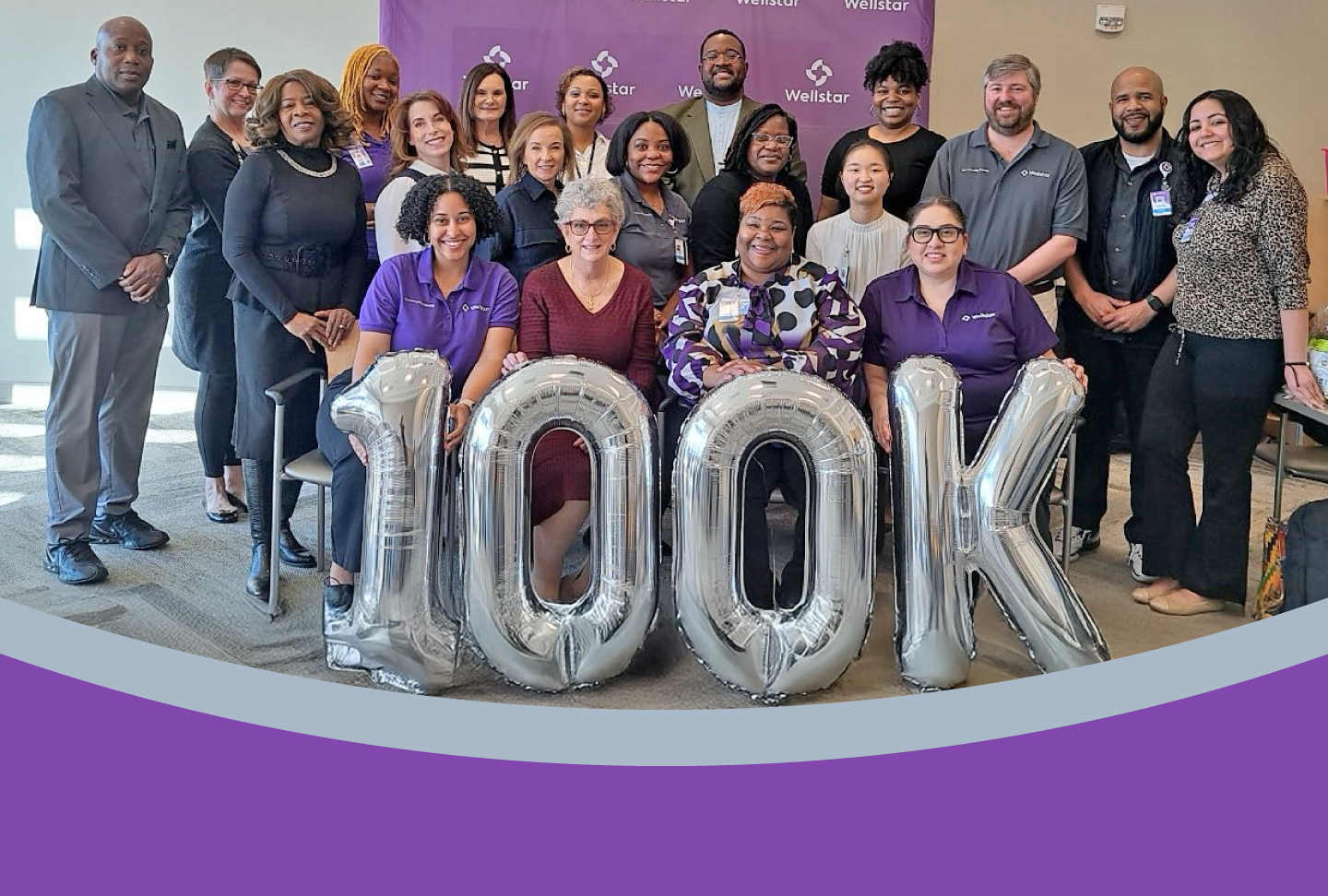
Wellstar Delivers PeopleCare to our Communities
Wellstar is committed to enhancing the health and well-being of every person we serve, every time. While our clinical teams provide expert care at our facilities, our community outreach teams meet our neighbors where they are—in the communities where we live and work.
Wellstar Community Health and Wellstar Center for Health Equity (WCHE) bring PeopleCare everywhere, and the teams have now reached the impressive milestone of over 100,000 engagements with local households to help meet their health needs. WCHE, established in 2019, addresses social determinants of health. These are factors that affect someone’s well-being, such as access to food, housing and transportation.
“This work is driven by Wellstar team members who see beyond Wellstar’s walls,” said Elise Lockamy-Kassim, Wellstar assistant vice president for community health and WCHE.
A patient’s ZIP code, or the area where they live, is the top determinant of their health outcomes, according to Dr. Earl Stewart, Wellstar primary care physician and the health system’s medical director of health equity.
“Do people have access to affordable healthy food options, or in their ZIP code, is it only fast food? Do they have green space where they can walk and exercise? Do they have reasonable access to sustainable employment?” Dr. Stewart said. “In their ZIP code, are we dealing with environmental justice issues where there may be a fossil fuel burning power plant just down the street and there's contamination in their water or food supply?”
WCHE works to ensure everyone can live to their fullest potential and access the care they need, no matter where they’re located.
Shortly after the inception of WCHE, the team faced the challenge of the COVID-19 pandemic. By leveraging relationships with internal partners at Wellstar as well as external community organizations, the team expanded access to vital care and health information.
Programs included walk-up COVID-19 family testing and vaccination, distribution of masks and safety kits to at-risk communities, and dissemination of Spanish-language educational information. Teams administered more than 10,000 COVID-19 vaccines.
Through the Wellstar Congregational Health Network—our partnership with local faith communities—Wellstar made testing, vaccines and accurate health information more accessible to the people we serve by hosting events at places of worship and virtual town halls in collaboration with faith communities.
WCHE has continued partnerships with communities of worship to expand access to behavioral health resources. Wellstar’s Soul Support program, which also uses the Congregational Health Network, provides congregations with behavioral health education and resources like the Question, Persuade, Refer (QPR) suicide prevention workshop. This workshop trains congregation leaders and members to recognize signs of suicide and navigate mental health emergencies. Soul Support has trained more than 500 people to respond to mental health concerns.
Food insecurity and poor nutrition may lead to a higher risk of developing chronic diseases like obesity, hypertension and diabetes. To address this inequity, WCHE has several initiatives to expand access to healthy foods.
“You can tell a patient, 'You have to do better with your diabetes and eat healthy,' but if they don't have access to affordable healthy food options, they're going to get what they can afford,” Dr. Stewart said.
Wellstar Mobile Markets, in partnership with Goodr, bring fresh produce, meat, shelf-stable items, milk and other beverages to partner sites in the communities Wellstar serves. At the mobile markets, a benefit specialist from Wholesome Wave Georgia, another nonprofit increasing access to healthy foods, helps connect families with additional resources.
The Food as Medicine program, a collaboration with Feeding the Valley Food Bank, is another program combating food insecurity. Primary care patients in the LaGrange area are screened for food insecurity concerns, then if needed, connected with a meal program tailored to their health needs. Participants receive 10 healthy, prepared meals each week for 90 days. They also gain access to Cooking Matters classes held at Wellstar West Georgia’s Enoch Callaway Cancer Center, where they can learn to shop for and cook healthy meals on a budget.
While Wellstar provides comprehensive care at its own facilities, we also know the power in partnership. By teaming with other community clinics and nonprofits, we can have a greater impact and reach more people across our service area. Partner clinics within the Wellstar Community Clinic Network receive a variety of benefits from Wellstar partnership, including resource advocacy, reduced-cost lab and imaging services for patients, and community benefit programs.
“We aim to connect individuals—whether they’re insured or not—with a trusted healthcare provider, which may be a community clinic that is in partnership with Wellstar,” Lockamy-Kassim said.
WCHE is also expanding access to telehealth services so people can get care wherever they are. A partnership between Wellstar, Family Life Restoration Center in Mableton and Giving Health, a Georgia-based telemedicine provider, provides 24/7 access to primary care clinicians and mental health counselors. Over one year as a participant in Wellstar’s Community Transformation Program, Giving Health enrolled over 600 new patients, conducted over 850 telehealth visits and addressed over 250 social determinants of health needs through referrals. More than 450 patients reported accessing care they would have simply gone without had a telehealth option not been available.
WCHE has also facilitated more than 2,500 community-based cancer screenings. One example of these efforts is the ColoCare Connect Program, which aims to improve access to colorectal cancer education and screenings by providing fecal immunochemical tests to community clinics serving high-risk populations.
Through additional partnerships with Wellstar Cancer Care and Wellstar Gastroenterology, WCHE also presented the Nourish to Flourish series to further educate community members about screenings. Participants walked away with educational resources, fresh groceries and a slow cooker to promote healthy eating habits at home.
Live to the Beat. Powered by Wellstar. is an initiative of WCHE and Wellstar’s cardiovascular care team, in collaboration with the American Heart Association, the CDC Foundation and Million Hearts. Participants meet monthly with a Wellstar Community Health team member to have their blood pressure checked and discuss ways to keep their heart healthy, such as proper nutrition, exercise and caring for mental health.
Wellstar’s partners in the initiative are now looking at ways to bring the program to other communities nationwide to expand access to heart care and education.
“We want WCHE to be not only a beacon for health equity done right in the areas Wellstar serves in the state of Georgia,” Lockamy-Kassim said. “We want our work to be modeled across the U.S. as a way to ensure all people have access to the care they need to live their best life.”
If your organization or congregation is interested in partnering with Wellstar Community Health or WCHE, email [email protected] or [email protected].
To get connected with no-cost or low-cost resources, including food, housing and transit needs, visit wellstar.findhelp.com.

Hip & Knee Replacement Considerations
Dr. Eric Kiskaddon, Wellstar orthopedic surgeon
There are more than 1 million hip and knee replacement surgeries performed in the United States each year, primarily for patients experiencing debilitating arthritis pain in those joints. That number is expected to grow considerably as the population ages and looks to maintain an active lifestyle. However, despite being one of the most common elective orthopedic procedures performed today, many patients whose quality of life could benefit from such a surgery are often hesitant because they know friends or family members who have had a total joint replacement with a poor outcome. That is why helping patients understand what to expect during and after surgery, and how to optimize their health prior to the surgery, is crucial to any successful joint replacement procedure.
Before undergoing total joint replacement surgery, it is vital for a patient to be as medically optimized and strong as possible. This means working on range of motion exercises for the affected joint and doing light strengthening exercises on a consistent basis in order to increase joint and muscle movement, reduce stiffness and pain, and maintain flexibility. In addition, encouraging patients to practice good diabetic control, stop the use of nicotine products and optimize their weight by making healthy lifestyle choices also helps to reduce the risk of infection after surgery and improve patient satisfaction and recovery. These are incredibly important factors for patients to discuss with their surgeon when considering joint replacement surgery in order to increase the likelihood of having a complication-free surgery.
Prior to surgery, patients should be able to meet with their surgeon and care team to discuss the procedure in detail and have all their questions answered regarding post-operative complications, mobility, pain management and the impact on their lifestyle and daily activities. Finding a surgeon who prioritizes sitting with patients and taking the time to answer their questions ahead of surgery is imperative. Further, meeting with the anesthesia care team and participating in instructional classes related to hip and knee replacement helps patients feel at ease with undergoing the surgery and managing the recovery process.
Patients are often concerned about the hospital stay, including what will happen the day of surgery and after the surgery. Thanks to advancements in surgical techniques, many hip and knee replacement surgeries can now be performed as outpatient procedures. This allows patients to go home on the same day as their surgery, often with the support of home health and physical therapy services. For those who have more complex medical problems, an overnight stay is typically recommended.
Pain control techniques have vastly improved in recent years, and surgeons and anesthesiologists now work together to use a variety of methods to treat patients’ pain. These include nerve blocks, medications infiltrated around the actual hip or knee joint and medications administered after surgery that target multiple pain receptors and help keep pain manageable. At Wellstar Orthopedics & Sports Medicine, we ensure that patients are up and walking within a couple of hours of surgery with an assistive device. Most patients no longer require a blood transfusion due to better anesthesia techniques as well as medications that now slow blood loss during surgery, which also contributes to a faster recovery.
After surgery, patients can expect to need a walker for anywhere from a few days to several weeks. Most patients don’t need an assistive device by three to four weeks after surgery, but this does vary. Patients often return to driving around three to four weeks after surgery. In my practice, we typically close the incision with sutures underneath the skin, eliminating the need for patients to return to the office for suture or staple removal. In addition, the bandages we use are waterproof, making it easy for patients to shower after surgery. The total recovery time following joint replacement surgery is usually two to three months. Most patients benefit from attending weekly physical therapy sessions during this time to assist with regaining full joint range of motion, increasing strength throughout the lower extremity and regaining independence with functional activities such as ascending and descending stairs and getting up from a couch.
For those who are interested in doing their homework prior to surgery, there are excellent resources available to patients on both the American Academy of Orthopedic Surgery and American Association of Hip and Knee Surgeons websites. But the most important step for patients as they prepare for joint replacement surgery is to consider choosing a surgeon who has additional fellowship training in hip and knee replacement, is willing to answer their questions and proactively share what to expect, and who they ultimately trust to perform the surgery. Taking the time to find a surgical team that is committed to enhancing patients’ well-being and helping them achieve the best possible outcome will increase the odds of a successful joint replacement.

Empowering Communities: A Heart Health Collaboration with the American Heart Association and Wellstar Congregational Health Network
In today's fast-paced world, maintaining good heart health has never been more important. The collaboration between the American Heart Association and the Wellstar Congregational Health Network (CHN) is making meaningful progress in empowering four local churches to prioritize heart health. Wellstar CHN identified these partner churches in Metro Atlanta as facing significant gaps in the tools needed to support the well-being of their congregations. This initiative aims to increase awareness about high blood pressure, provide necessary tools for monitoring heart health, and save lives by ensuring these churches have CPR-trained staff and are equipped with devices like automated external defibrillators (AEDs).
Collaborating to achieve community well-being
The American Heart Association has long been at the forefront of cardiovascular health education, advocacy and research. By joining forces with Wellstar, which is dedicated to improving health and wellness in Georgia, the organization is expanding its reach into local communities.
The Wellstar CHN, which works closely with churches and faith-based organizations, has been committed to serving congregants’ physical, mental, and spiritual well-being for over 20 years. This collaboration represents an impactful move toward offering practical solutions to help address heart disease, the leading cause of death in the U.S.
Making early detection a priority
A key initiative under this collaboration is the establishment of blood pressure monitoring stations within the churches. These stations are designed to provide easy access for community members to check their blood pressure regularly. High blood pressure, often called the "silent killer," can lead to serious health complications such as heart attacks, strokes, and kidney failure if left undiagnosed and untreated.
By placing blood pressure monitoring stations in church spaces, people are encouraged to regularly monitor their health in a familiar, supportive environment. The program also provides educational materials on how to maintain healthy blood pressure levels, empowering individuals with the knowledge they need to act early.
These stations serve as a gateway to better health, helping people detect high blood pressure and seek medical advice sooner.
Providing access to lifesaving tools in churches
Another vital part of this collaboration is the provision of AEDs to participating churches. An AED is a portable device that can deliver an electric shock to someone experiencing sudden cardiac arrest (SCA), which can be fatal without prompt intervention.
Placing AEDs in churches means congregants and visitors have access to lifesaving tools in a cardiac emergency. These devices are easy to use, with step-by-step instructions, and they can dramatically increase the chances of survival if used quickly.
The goal is to equip churches with not just AEDs, but also the training to use them effectively. The American Heart Association provides training for church staff, volunteers and congregants so they can act confidently in the event of a cardiac emergency. For many people, churches serve as central gathering points within a community, making them ideal locations for AEDs to be readily available.
Building stronger communities through heart health
The American Heart Association and Wellstar CHN partnership is about more than providing tools—it is about building a healthier, more resilient community. By focusing on heart health, these initiatives aim to reduce the risks of heart disease and cardiac emergencies. They also foster a culture of wellness, where faith-based organizations can be hubs for health education and support.
Churches play a significant role in their communities, offering spiritual guidance and physical and emotional support. By embracing these heart health initiatives, they become even more integral in shaping healthy futures for everyone who walks through their doors.
Looking ahead to a healthier future
This joint effort between the American Heart Association and the Wellstar CHN is a shining example of how local groups can work together to make a tangible impact. By providing blood pressure monitoring stations, AEDs, and ongoing health education, the organizations are helping to save lives, prevent heart disease, and empower communities to take proactive steps toward better health.
As heart disease continues to affect millions of individuals each year, collaborations like these are crucial in shifting the narrative from reactive to proactive health care. Together, we can create a healthier future for ourselves, our families and our communities.
A big thank you to the churches below for empowering their members by hosting these heart health educational programs and providing the tools needed to improve their health and well-being. Your work in the community is inspiring.

Wellstar Accelerates Training Next Generation of Caregivers

Wellstar Center for Health Equity Awards Grant Funding to Eight Local Organizations to Improve Patient Access and Care Through Technology
Everyone deserves high-quality healthcare and social services—no matter where they live. But people in many communities simply don’t have access. At Wellstar Center for Health Equity, we believe technology can be part of the solution. That’s why we created the Community Transformation Program (CTP) in 2020.
Each year, CTP invites local organizations to request support for a new or existing tech-based initiative that addresses health disparities in our communities. The winners receive a $10,000 grant to help fund their initiative. They also receive capacity-building support through:
This holistic approach ensures each organization’s tech initiative thrives. To date, CTP has touched over 18,000 lives in vulnerable populations across Metro Atlanta and beyond.
Meet our fifth cohort of partner organizations
This year, CTP chose eight organizations to be part of our growing network of difference-makers. These partners exemplify the diverse approaches needed to tackle our region’s complex challenges.
Each organization is in a unique position to make a profound impact. They include:
.jpg?la=en-us&h=300&w=600&rev=d03cbe6dd3c84cd280a26cf59efa223e)
A history of success
The organizations participating in CTP make a difference—sometimes in unexpected ways. Last year, Bethesda Community Clinic transitioned from being a brick-and-mortar practice to a fully mobile healthcare model. The clinic used CTP funds to equip their mobile health vehicle with telehealth kits. Patients sit inside the clinic’s vehicle, and doctors meet with them virtually. The doctors use the kits to conduct a full health assessment. This new model enables many more patients to receive care they otherwise may not have access to.
The Georgia Bureau of Investigation learned about the clinic’s care model and enlisted them to bring these telehealth kits into hotels. This model provides care to victims of human trafficking and serves as a lifeline for rescue. The FBI is now exploring this model as a standard nationwide.
A shared vision for a healthier Georgia
This year’s CTP partners represent another step toward a Georgia where every individual can achieve their full potential. Wellstar is transforming lives by empowering our partners to address inequities with innovative, community-focused solutions. Success stories like this demonstrate that when we work together, there’s no limit to what we can do.
Learn more about Wellstar Center for Health Equity and our initiatives
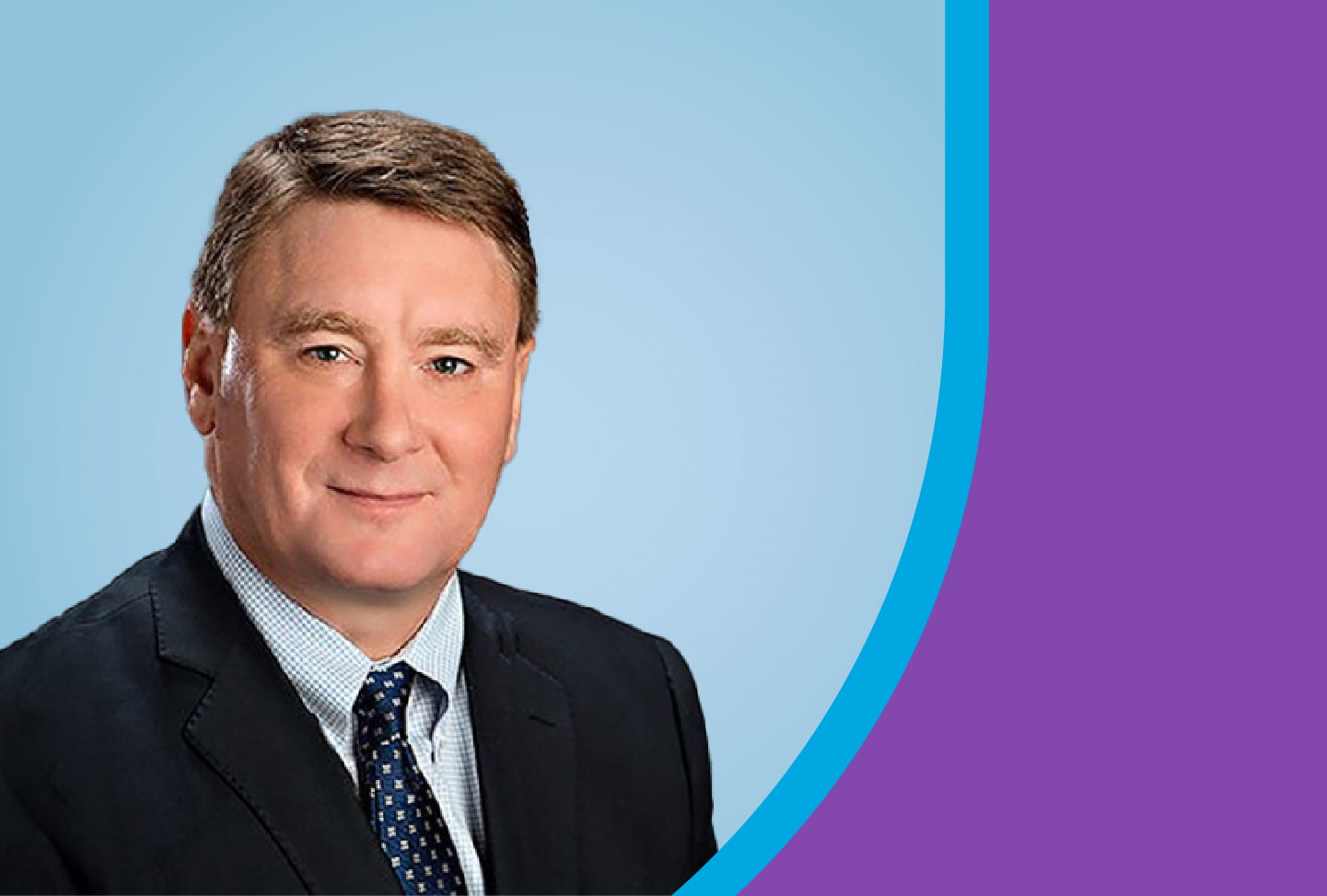
John Kerndl Joins Wellstar as Executive Vice President and Chief Financial Officer
John Kerndl has joined Wellstar Health System as executive vice president and chief financial officer. He will provide strong financial stewardship as the nonprofit health system continues to grow and expand access to care for Georgians across the state.
“John’s wealth of experience in healthcare financial leadership will allow us to invest in the technologies, resources, services and, most importantly, the people that enable us to deliver world-class care to the patients and communities we serve,” said Candice L. Saunders, President and CEO of Wellstar Health System.
Over his 30-year career, John has held senior executive positions in healthcare organizations across the nation. Most recently, he served as chief financial officer for Traditions Health, a $350M hospice and home health system consisting of 113 locations in 18 states. In this role, he oversaw all financial planning and analysis activity, treasury, central intake, revenue cycle, information technology and security, supply chain, risk and insurance, accounting, and managed care, among other responsibilities.
John previously worked as the EVP and chief financial officer for Beth Israel Lahey Health, a Boston-based health system consisting of 10 acute care campuses, 4,000 physicians and 35,000 team members. He also served as EVP and chief financial officer for Beaumont Health System, the largest care provider in Michigan.
John received his Bachelor of Business Administration from Georgia State University and his Master of Business Administration from the University of Chicago.

Wellstar MCG Health to Exhibit Local Black Artists
Wellstar MCG Health Medical Center will celebrate Black History Month with an art exhibition showcasing Black artists from the Augusta area February 26 from 9 AM to 4 PM in the Professional Building Lobby.
The Beauty of Black Art, sponsored in partnership with the Lucy Craft Laney Museum of Black History and the Greater Augusta Arts Council, will be free and open to the public. Wellstar commemorates Black History Month as part of the health system’s dedication to diversity, equity, inclusion and belonging (DEIB).
“When we lead with respect and embed equity at every level of our organization, we improve health outcomes, job satisfaction and quality of life for our patients, team members and communities we serve,” said Le Joyce Naylor, Wellstar senior vice president and chief diversity, equity and inclusion officer. “It declares, ‘I see you,’ and everyone deserves to experience this profound sense of belonging.”
Wellstar provides diversity, equity, inclusion and belonging training for team members at every level of the organization to cultivate an environment where everyone is valued, welcomed and heard.
“Our DEIB program is threaded throughout the fabric of our organization and is evident through the work and efforts of our 30,000 plus team members from across the health system,” said Wellstar President & CEO Candice L. Saunders. “We remain steadfast in our commitment to six key areas of focus as we move forward—advancing workforce diversity, creating a culture of inclusion, building cultural competence, promoting health equity, improving community engagement and enhancing supplier diversity.”
At Wellstar, team members can join business resource groups to connect with colleagues from similar backgrounds or with shared experiences. The February 26 event is sponsored by the Women of Color in Leadership and Men of Color in Leadership business resource groups at Wellstar MCG Health. Through business resource groups, events, team member training and other initiatives, Wellstar creates spaces for conversations about diversity, equity, inclusion and belonging and supports team members, patients and community members.
“Wellstar focuses on listening to every voice, creating an inclusive workplace and engaging the community,” said Bernard Roberson, Wellstar MCG Health DEIB manager.
Artists highlighted at The Beauty of Black Art include:

Growing Partnership With Ser Familia Serves Latino Community
At Wellstar, our doors are open to everyone. Whether it’s an individual with a life-threatening health crisis or a family looking for a new primary care provider, we’re here to help.
Sometimes, it’s not enough to welcome people in. We also need to go out into the communities we serve to meet people where they live, work and play to ensure they receive high-quality care.
To meet more of our neighbors where they are, we partner with organizations like Ser Familia. Founded in 2001 in the Metro Atlanta area, Ser Familia equips Latino families with the tools, resources and skills they need to thrive. Ser Familia’s extensive wraparound services include support groups, family workshops, mental health counseling and educational programs. In recent years, Ser Familia has expanded its footprint with new locations across Georgia and Puerto Rico.
The power of working together
Wellstar Center for Health Equity has a long-standing relationship with Ser Familia. For example, Wellstar provides grant funding so Ser Familia can employ Spanish-speaking community health professionals. These professionals have a unique ability to provide health information where it is needed most. They can:
Also, Wellstar physicians participate in Ser Familia community health outreach programs serving Latino communities.
Excitement about a planned health clinic
In the near future, Ser Familia plans to open a health clinic with the support of Someone Cares, Inc. of Marietta, another Wellstar partner. The clinic will provide comprehensive primary care, including health, education and preventive services. Nurse practitioners will see patients at the clinic under the guidance of physicians at Someone Cares. And, if patients need care that Ser Familia does not offer, the nurse practitioners can refer them to a Someone Cares provider.
When organizations like Wellstar and Ser Familia work together, we accomplish far more in our communities than we could separately by making better use of our resources. Most importantly, we help people find the care they need where they need it.
Learn more about Wellstar Center for Health Equity.
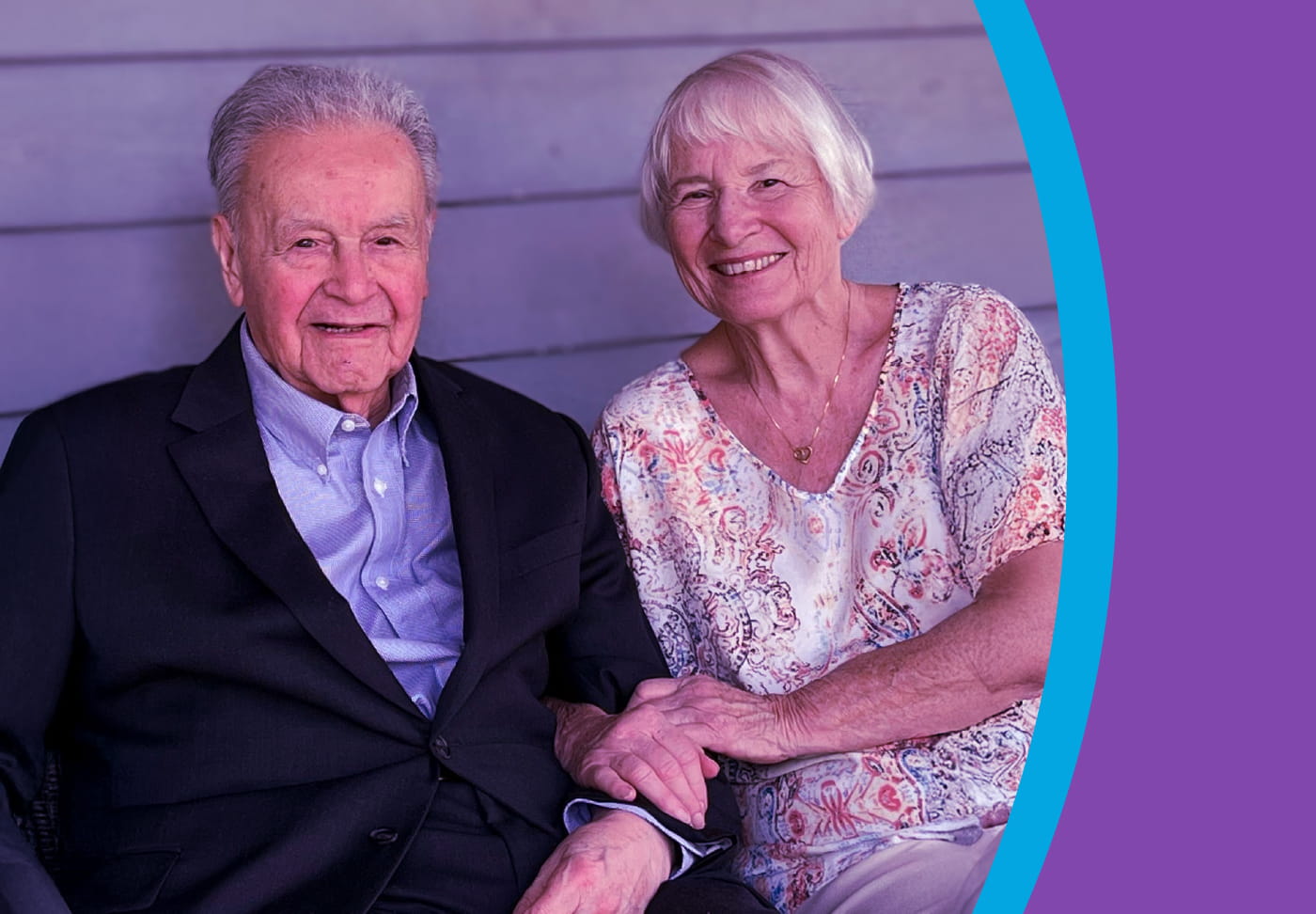
Wellstar MCG Health Medical Center Provides Hospital-Level Care in Patients’ Homes

Coale Peace Named 2025 National Champion for the Children’s Miracle Network

Wellstar Partners with Feeding the Valley to Improve Food Access and Nutrition
Wellstar Center for Health Equity and Wellstar West Georgia Medical Center have launched the Food as Medicine program. In partnership with Feeding the Valley Food Bank, this initiative supports Wellstar’s strategy to improve food access in high-need communities.
Patients will be screened during primary care visits at offices in the LaGrange area for food insecurity. Clinicians will then connect patients who screen positive for food insecurity to a medically tailored meal program offered by Feeding the Valley.
Participants will receive 10 healthy, prepared meals each week for 90 days. They will also gain access to Cooking Matters classes held at Wellstar West Georgia’s Training Center, where they will learn to shop for and cook healthy meals on a budget. By equipping patients with practical nutrition knowledge, budget-friendly cooking skills and a three-month supply of healthy meals, Wellstar aims to support people in making lasting, health-boosting changes to their diets and overall well-being. While food insecurity is a concern identified by our Community Health Needs Assessment, diabetes and other diet-related illnesses are also a major threat to our community’s well-being.
Wellstar is increasingly working toward healthy food solutions that address both food access and health. Our efforts with Wellstar Mobile Markets, in partnership with Goodr, and our food rescue initiatives, in collaboration with Goodr and Second Helpings Atlanta, show our commitment to increasing food access.
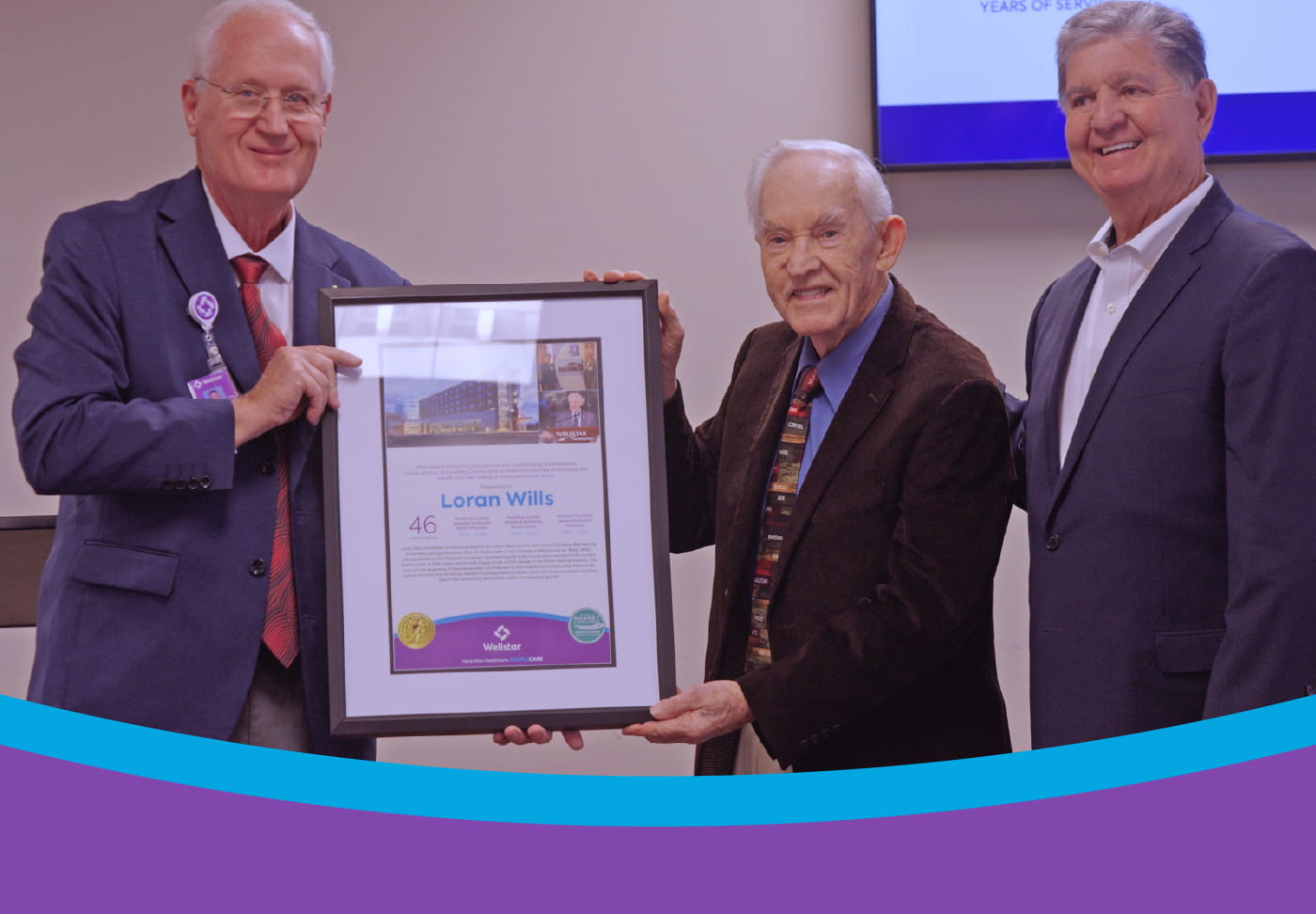
Loran Wills, 93, Retires from Paulding County Hospital Authority
Keep reading
Wellstar Expands Obstetrics and Gynecology Services in Spalding, Upson Counties
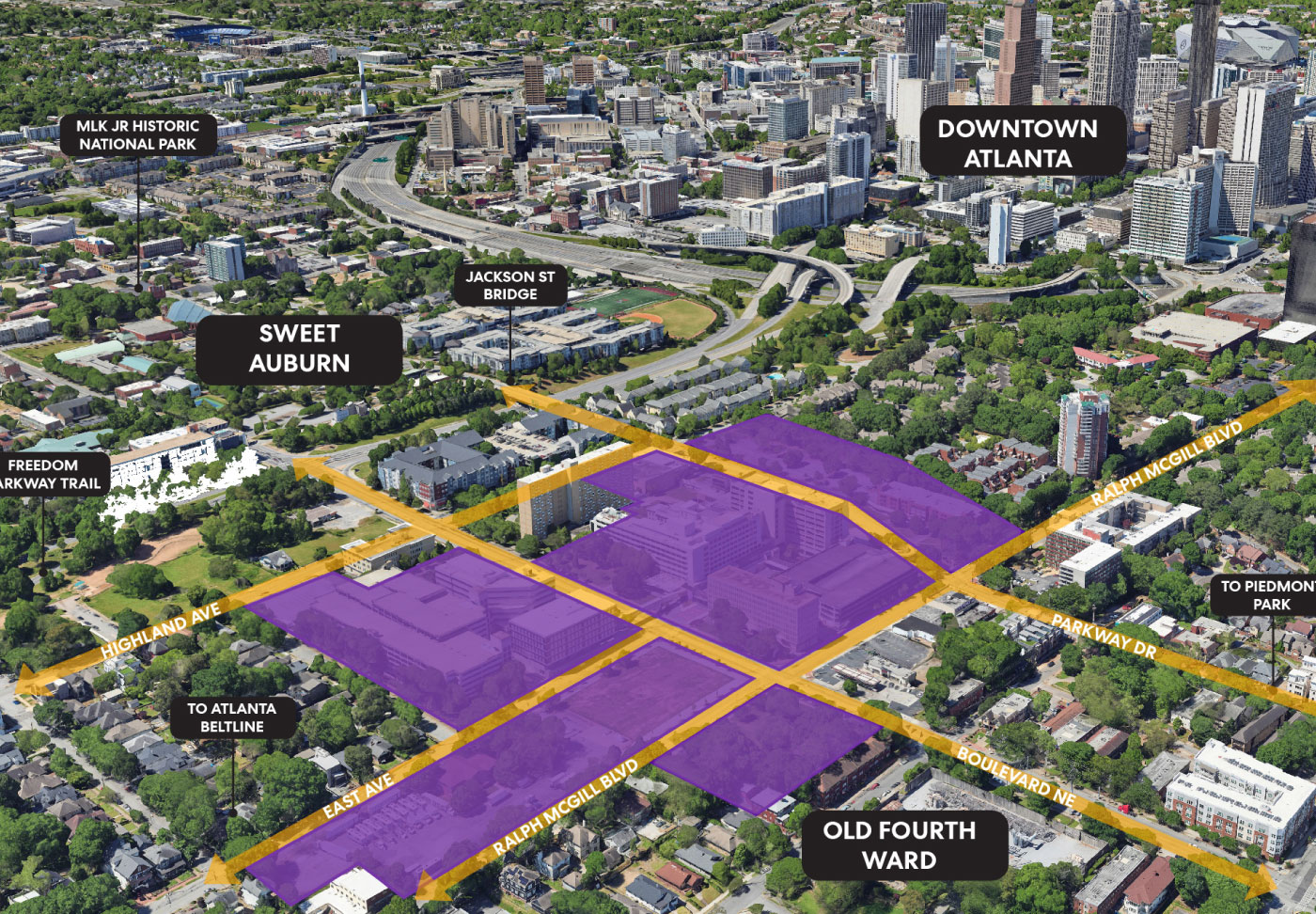
Wellstar and Integral Advance Redevelopment Project
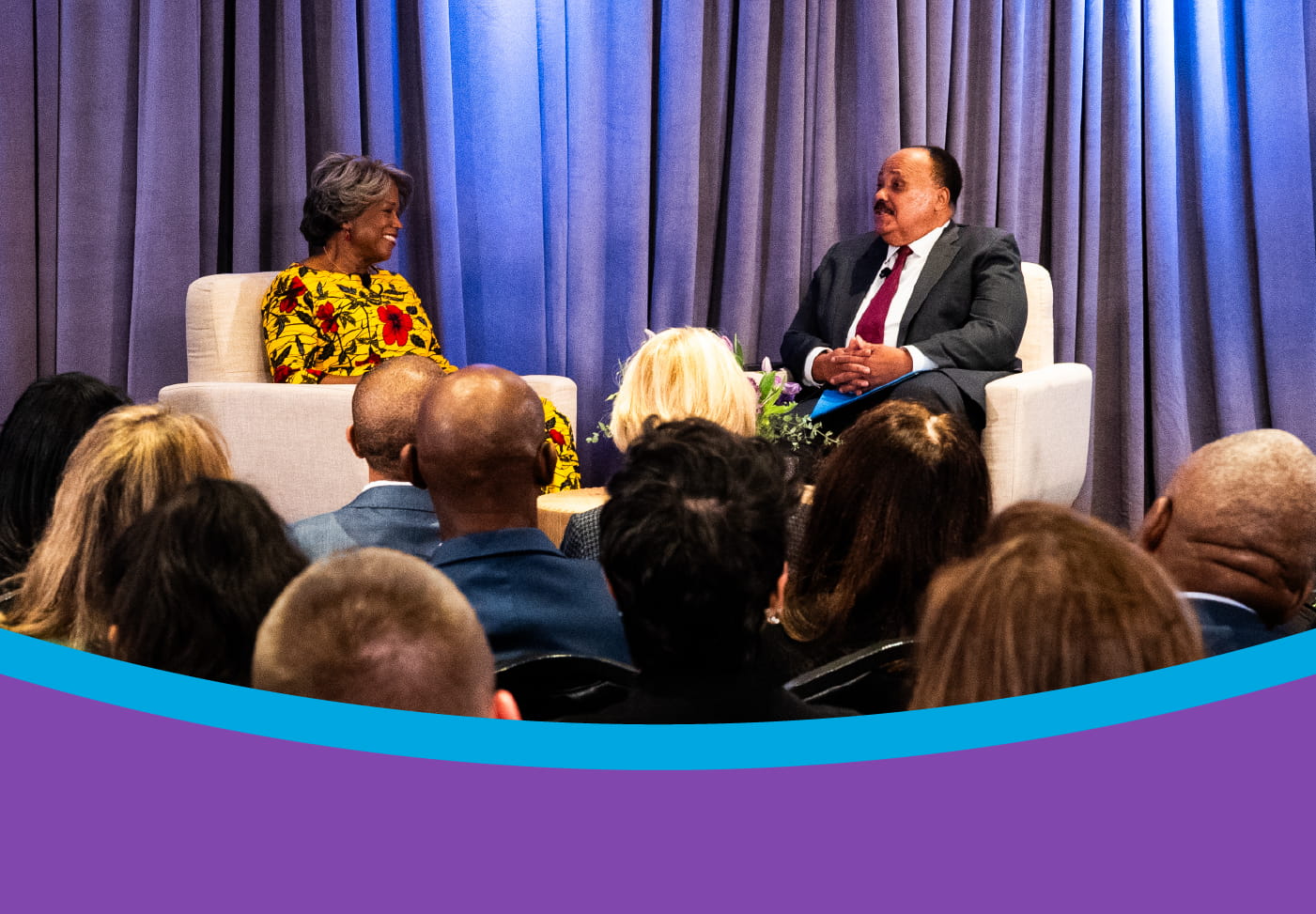
Wellstar Presents: A Conversation With Martin Luther King III
In a heartwarming display of camaraderie, Wellstar team members gathered across the system to honor Dr. Martin Luther King Jr.'s life and legacy as part of the health system’s annual program to recognize his profound impact on civil rights in the United States. This year, the program featured a compelling conversation with his eldest son, Martin Luther King III.
A humanitarian and civil rights activist in his own right, King sat down with nationally renowned journalist Monica Kauffman Pearson to discuss his parents' legacy of nonviolent and peaceful activism, and how their influence continues to shape his own life and efforts. The conversation centered on one of his father’s most famous quotes: "The time is always right to do what is right."
King discussed the importance of using constructive dialogue in times of conflict, sharing insights into how his late mother, Coretta Scott King, successfully convinced President Ronald Reagan in 1983 to sign into law a bill that created Martin Luther King Jr. Day as a federal holiday.In the conversation, Kauffman Pearson asked King how his father's legacy extends to health equity.
“I think we're making small steps. We need to accelerate it to gigantic steps,” King said, encouraging people to consider an important question: “What are you going to do to make your community, your nation, our world better?”
“Like Martin Luther King III, I believe we have a responsibility to make the world a better place,” said Candice L. Saunders, president and CEO of Wellstar Health System. “In healthcare, we seize that opportunity one patient at a time, serving with compassion and honoring every voice as we work together to enhance the health and well-being of every person we serve.” View excerpts of the conversation here.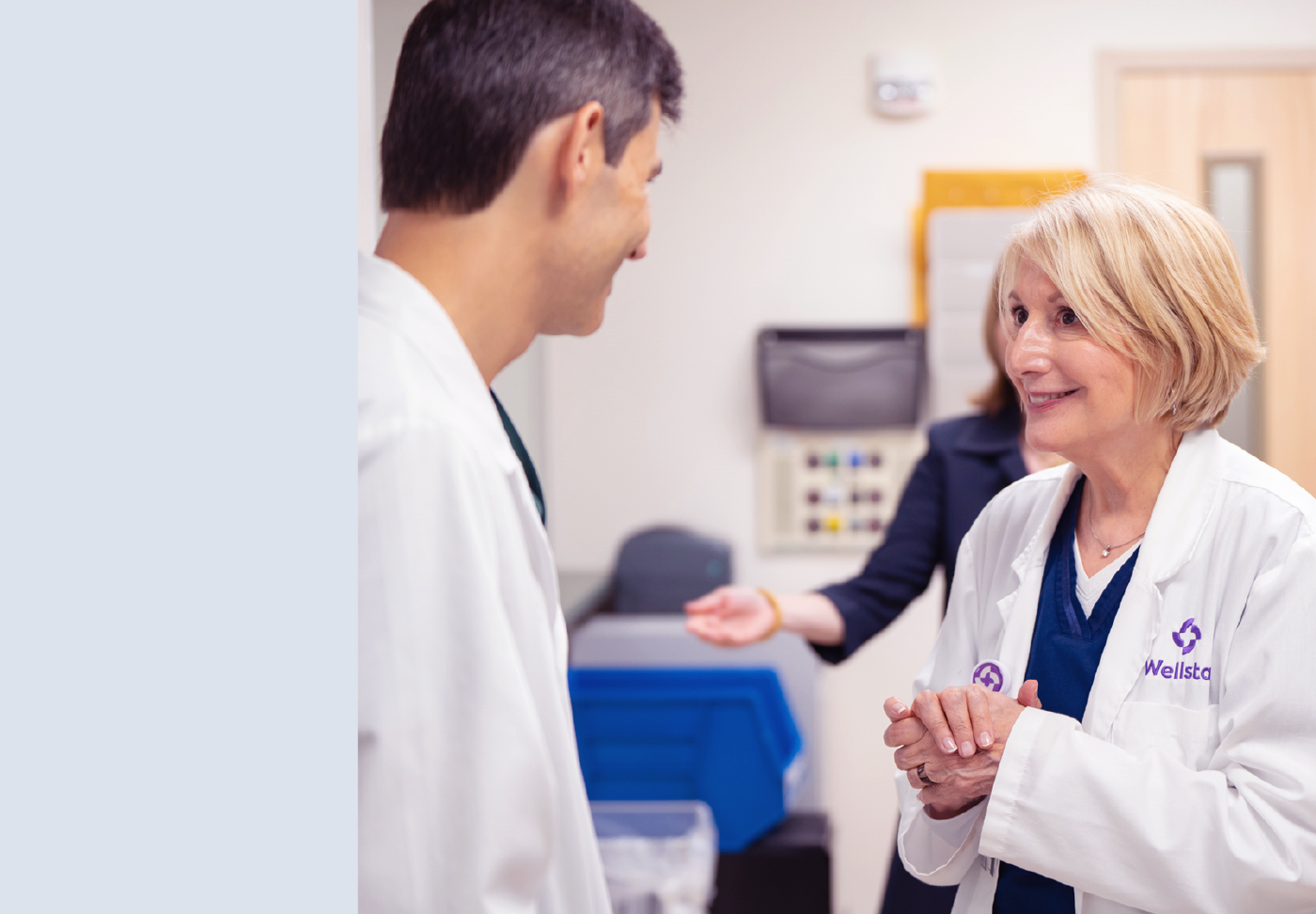
Wellstar CEO Candice L. Saunders to Retire
MARIETTA, Ga. (Jan. 15, 2025) – Wellstar Health System announced today that President and CEO Candice L. Saunders has shared her intention to retire at the end of the nonprofit’s fiscal year on June 30, 2025, after an exceptional career of service and accomplishment.
Saunders joined Wellstar in March 2007 as president of Wellstar Kennestone Regional Medical Center. She was promoted to executive vice president and chief operating officer of Wellstar Health System in May 2013 and was appointed president and CEO in July 2015.
Saunders has guided Wellstar’s growth from its roots as a small group of community hospitals into a leading nonprofit health system with 11 hospitals, more than 400 medical offices, and 33,000 team members serving more than 3 million patients each year in 148 of Georgia’s 159 counties. Today, Wellstar is a national leader in charity and uncompensated care, providing more than $1 billion annually in healthcare to patients who are uninsured or under-insured.
“Candice is a compassionate caregiver and a visionary leader,” said Frank Ros, chairman of the Wellstar Board of Trustees. “Under her leadership, Wellstar has forged new community partnerships, implemented new care models and clinical innovations, and advanced cutting-edge technologies that are improving health outcomes and enhancing the patient experience. As a result, Wellstar has become an essential provider of quality healthcare for Georgia.”
“I will leave with a full heart. I feel fortunate to have had the opportunity to lead Wellstar and work with so many talented leaders and caregivers, all committed to our vision of providing world-class healthcare to every person, every time,” said Saunders. “I’m so proud of our team and all we’ve accomplished together.”
The announcement begins a planned six-month succession process. The Wellstar Board of Trustees will retain an executive search firm and create a CEO search committee that will be led by Ros. The national search will include internal and external candidates. Saunders will remain engaged after June through an appropriate period to ensure a smooth leadership transition.
Saunders started her career as a critical care nurse and still regularly puts on scrubs to make rounds at Wellstar facilities and listen to doctors, nurses, patients, and families. She is known for her emphasis on building a positive workplace culture and developing strong leaders. During her tenure, Wellstar has received numerous awards as a great place to work, including Fortune’s list of 100 Best Companies to Work For in America.
With the belief that the patient should be at the center of every activity, Saunders led Wellstar’s launch of the PeopleCare brand, created a rigorous strategic planning process, and established new mission, vision, and values statements that prioritize the consumer experience.
Saunders was the architect of the successful partnership between Wellstar and Augusta University’s Medical College of Georgia to create Wellstar MCG Health, strengthening healthcare in the Central Savannah River Area and enhancing medical education in Georgia. She led an expanded partnership with Kennesaw State University and its Wellstar College of Health and Human Services, helping to increase the number of much-needed nurses in Georgia.
One of Wellstar’s significant innovations during Saunders’ tenure was the launch of Catalyst by Wellstar, which supports the development of early-stage technologies with the potential to improve health outcomes and the patient experience.
After Wellstar’s difficult decision to close Atlanta Medical Center following an unsuccessful two-year effort to find partners, Saunders forged a partnership with The Integral Group, a nationally recognized Atlanta-based firm, to develop a community-based plan for the future of the site. The work is being guided by a land-use plan unanimously approved by the Atlanta City Council with support from Atlanta Mayor Andre Dickens and the leadership of the local neighborhood association.
Saunders served on the Boards of Trustees of the American Hospital Association and the Georgia Hospital Association, where she also served as chairperson. She serves on the Boards of Directors of the Coalition to Strengthen America’s Healthcare, the Metro Atlanta Chamber of Commerce, the Cobb Chamber of Commerce, and the Board of Trustees for the Kennesaw State University Foundation. She also belongs to the Downtown Rotary Club among many other civic organizations. Modern Healthcare named her to its lists of Top 25 Women Leaders and Top 50 Most Influential Clinical Executives. In 2022, she was recognized by the Atlanta Business Chronicle as Atlanta’s Most People-Focused CEO. In 2025, she was named to Georgia Trend’s list of 100 Most Influential Georgians for the 9th consecutive year.
# # #
ABOUT WELLSTAR HEALTH SYSTEM
Wellstar personalizes the patient experience. We call it PeopleCare and it's only possible thanks to our 33,000 team members who provide compassionate care for every stage of life. PeopleCare also means we serve our communities as a non-profit health system, providing more than $1 billion annually in charity care and community programs, and operating the largest integrated trauma network in the State of Georgia. We embrace innovation and technology, nurture early-stage companies through our venture firm Catalyst by Wellstar, and train future generations of caregivers with academic institutions including the Medical College of Georgia. Wellstar honors every voice, earning Newsweek's recognition as one of America’s Greatest Workplaces for Diversity, and one of Fortune's 100 Best Companies to Work For. To learn more, visit Wellstar.org.
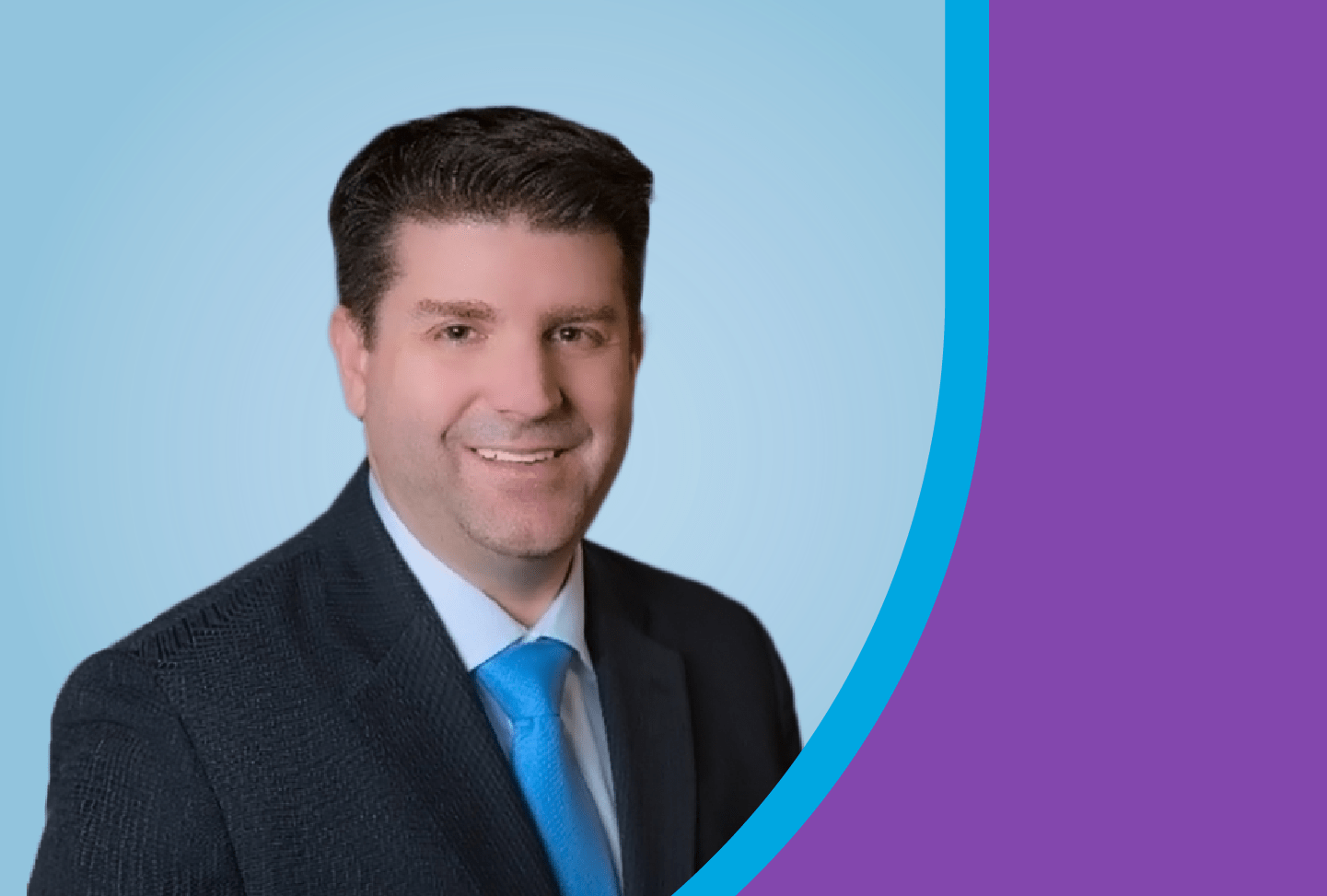
Wellstar Announces Kevin Smith as President of Wellstar Spalding Medical Center and Wellstar Sylvan Grove Medical Center
Wellstar Health System has selected Kevin Smith to join Wellstar as Senior Vice President and President of Wellstar Spalding Medical Center and Wellstar Sylvan Grove Medical Center. Smith brings a wealth of experience spanning over 20 years in healthcare operations, organizational leadership, and community engagement. He will work alongside the current local leadership team to set strategy and implement Wellstar’s commitment for continuous improvement.
Wellstar continues to increase access to care in Spalding and Butts counties, opening new primary care and neurology clinics in 2024 and previously opening or expanding clinics for cardiology, oncology, orthopedics and gastroenterology. Last year, Wellstar’s Spalding and Sylvan Grove hospitals provided $16.7 million in uncompensated care, and nearly 3,000 people in Spalding and Butts counties benefited from a Wellstar Community Health program. Wellstar also recently expanded its graduate medical education program at the hospitals, knowing that new physicians are more likely to stay in the communities where they begin their careers.
“Kevin’s experience includes both small rural and larger urban markets, making him ideal to lead our continued commitments to PeopleCare in Spalding and Butts counties,” said Mary Chatman, PhD, RN, executive vice president of acute care operations for Wellstar. “In addition to leading our local teams, Kevin will collaborate with executives across the Wellstar system, partner with our physician enterprise, and engage with community partners to advance healthcare in the region.”
Most recently, Smith served as Vice President and Chief Operating Officer at Atrium Health Wake Forest Baptist-High Point Medical Center, where he oversaw operations for a more than $440 million revenue organization with key service lines including Oncology, Heart/Lung/Vascular and Behavioral Health.
Smith holds a Doctor of Philosophy in Industrial/Organizational Psychology, a Master of Health Administration, and a Bachelor of Science in Radiological Sciences. He is a Fellow of both the American College of Healthcare Executives and the Association for Medical Imaging Management, reflecting his commitment to healthcare excellence and innovation.

Wellstar MCG Health is a Partnership Built on Progress
Candice L. Saunders and Russell Keen
We have a responsibility.
The nurse who sits at the bedside, holding a patient’s hand; the professor committed to training the next generation of caregivers; the hospital system executive seeking innovative technology to advance healthcare. They’re united by a shared sense of responsibility — to care for others.
That powerful commonality and our cultural alignment has been the underpinning of the successful partnership between Wellstar Health System and Augusta University’s Medical College of Georgia. In the year since Governor Brian Kemp, our state legislators and the University System of Georgia’s Board of Regents put their trust in us to create Wellstar MCG Health, we’ve improved healthcare in the Central Savannah River Area and enhanced medical education for future generations of Georgia caregivers.
From the beginning, we knew our people would be the key to our success. They’ve committed their lives to caring for others, and we’re committed to caring for them. It’s why we prioritized pay raises, enhanced mental health support, and now offer additional resources to help them take care of themselves and their families. Thanks to their feedback, we’re also investing in their career growth, with programs like CareerCare, which provides funding to help further their healthcare careers.
Supporting caregivers extends beyond those on our team. We’re also expanding the pipeline of clinicians to address our state’s chronic physician and nursing shortages. The Medical College of Georgia is the fourth largest medical college in the country, and the second-largest sponsoring institution for graduate medical training. By bringing academic excellence and advanced research together with deep healthcare experience and extensive resources, we’re able to offer innovative academic teaching models that ensure more physicians are trained in a modern clinical environment. Together, we’re building the healthcare workforce of the future.
As we address the need for more caregivers, we can’t overlook the need to expand access to care. To do that, we’ve increased digital health services and launched mobile care vans to serve rural communities. We’re looking ahead too, building the first hospital in Columbia County, the largest county in the state without its own hospital. Opening this 100-bed, Level II trauma center means people will have better access to the expert, compassionate care they need, right in their own backyard.
For the facilities already serving the area, there are now 129 new doctors, four new urgent care centers, and we’ve introduced innovative technology to improve patient care. We’re the first hospital in Georgia to use Galleri cancer testing, for example, which allows us to use just one blood test to detect more than 50 types of cancer earlier than ever before. We also have two new magnetic resonance imaging (MRI) suites featuring state-of-the-art machines for faster scanning.
Another piece of technology new to WMCG ensures our caregivers have the tools they need to give people the best care possible. It’s called Epic, an electronic medical records system, and it lives up to its name. With Epic, our caregivers now have improved data access for more accurate diagnoses, better treatment plans, and improved patient outcomes. Epic allows students to learn on modern technology, it facilitates research and makes it easier for patients to access their medical records. We invested approximately $175 million in this technology, along with other upgrades, and completed the implementation almost two full years ahead of schedule. It's a game changer and we couldn't be prouder of how the team came together to get this technology up and running.
Georgia’s leaders have put their faith in this partnership, an honor we take seriously. As we continue our work to create a healthier future for all Georgians, we’re committed to collaboration and financial sustainability, because we know our communities depend on us today and for generations to come. Improving the health and well-being of every person we serve isn’t just our responsibility, it’s our privilege, and none of it is possible without our dedicated team members. It’s heartwarming to see the way they embrace each other as one team. In the wake of hurricane Helene, their compassion hasn’t wavered as they care for patients and each other, a testament to their strong bonds. This is a team that cares deeply about each other and the communities we serve; a team that empathizes and uplifts; a team with determination and heart. With that kind of spirit, we can accomplish anything.
Candice L. Saunders is president and CEO of Wellstar Health System and Russell Keen is president of Augusta University.
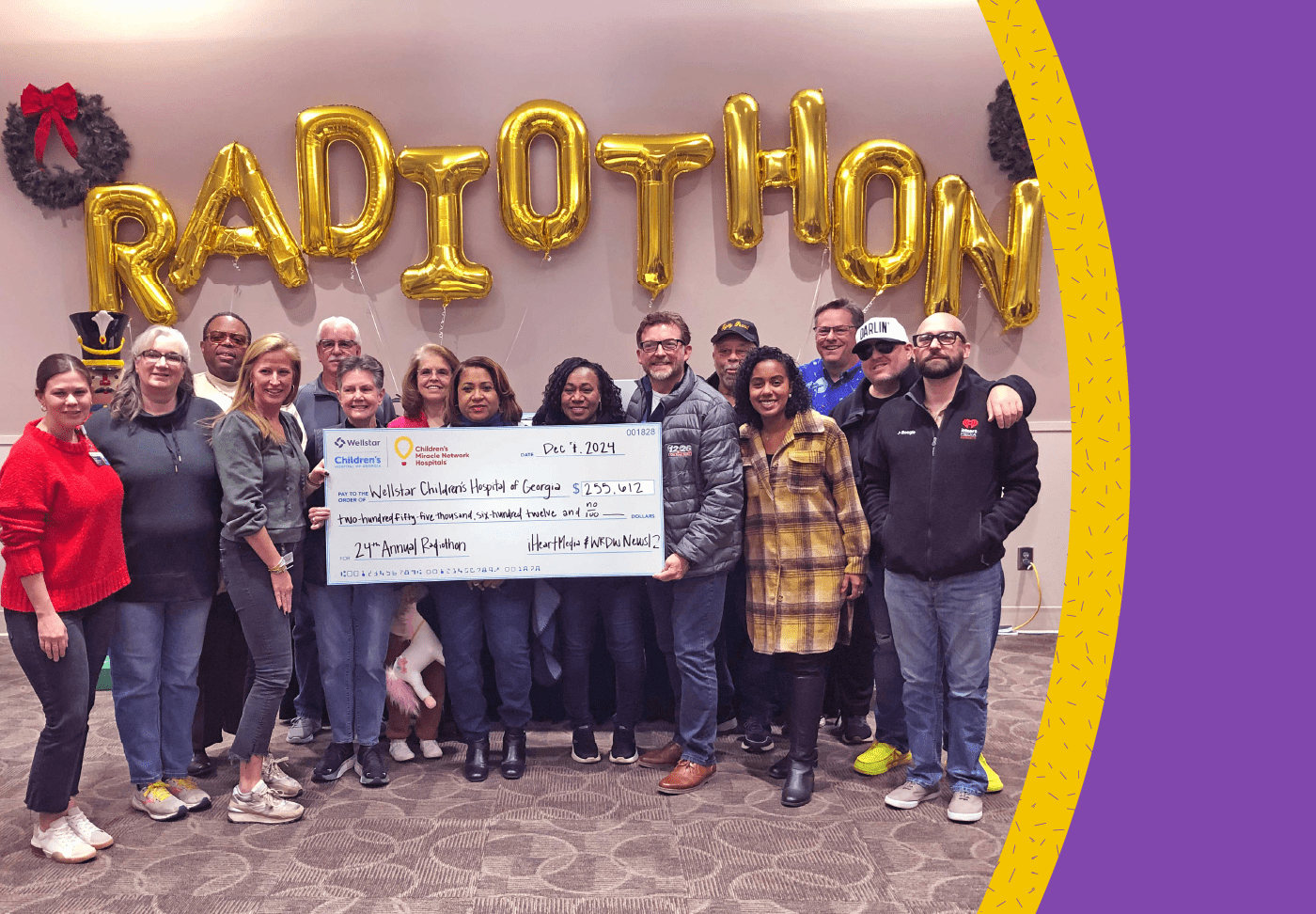
24th Annual iHeartMedia Cares for Kids Radiothon Raises $255,612 for Wellstar Children’s Hospital of Georgia
Christmas music and cheers filled the halls of Wellstar Children’s Hospital of Georgia Dec. 5 through 7 as listeners and viewers of local iHeartMedia radio stations and WRDW-TV generously supported patients and families for the 24th consecutive year.
In the end, the community pledged $255,612 to support Wellstar Children’s.
iHeartMedia generously donated the 72 hours of airtime to the cause while three of its popular radio stations—104.3 WBBQ, 96.3 Kiss FM and 105.7 The Bull—and WRDW News 12/NBC 26 broadcast live from the hospital.
“The children’s hospital could not survive without the support of the community. I’m just so grateful for everyone’s support,” said Dr. Valera Hudson, pediatrician-in-chief of Wellstar Children’s. “No children’s hospital thrives without philanthropy; 100% of the money that’s raised is used directly to help the children we take care of here. All of the funds stay right here at the Wellstar Children’s Hospital of Georgia.”
Wellstar Children’s is a not-for-profit hospital with specialists who care for pediatric patients with a range of conditions, including the most complex conditions.
Some of the patients who have been treated at Wellstar Children’s shared their stories with DJs and reporters throughout Radiothon. For example, 9-year-old Kensley Woodberry began developing spots on her hands and feet that became so painful, she could no longer walk. She stopped eating and refused to play. A team of specialists at Wellstar Children’s diagnosed her with juvenile dermatomyositis, a rare autoimmune disease that causes the body to attack its own muscles and leads to inflammation throughout the body.
This past summer, Kensley attended Camp Joint Venture, a summer camp for children with rheumatic conditions. It gives kids like Kensley the opportunity to enjoy the summer camp experience while a team of medical personnel is nearby in case they are needed. The camp is one of several summer camps funded through Radiothon.
Radiothon also allows for purchases of comfort items like Zaky Hugs, which mimic the warmth and security of a parent’s touch for babies in the NICU; red wagons for transporting young patients around the hospital; and sensory toys for children with autism. These are only a few of the items that bring joy, comfort or care to young patients that the hospital could not purchase without community support.
Though Radiothon has concluded, donations can be made throughout the year by calling (706) 721-4004, by emailing Wellstar Children’s Director of Philanthropy Catherine Stewart or through the Cares for Kids Radiothon website.
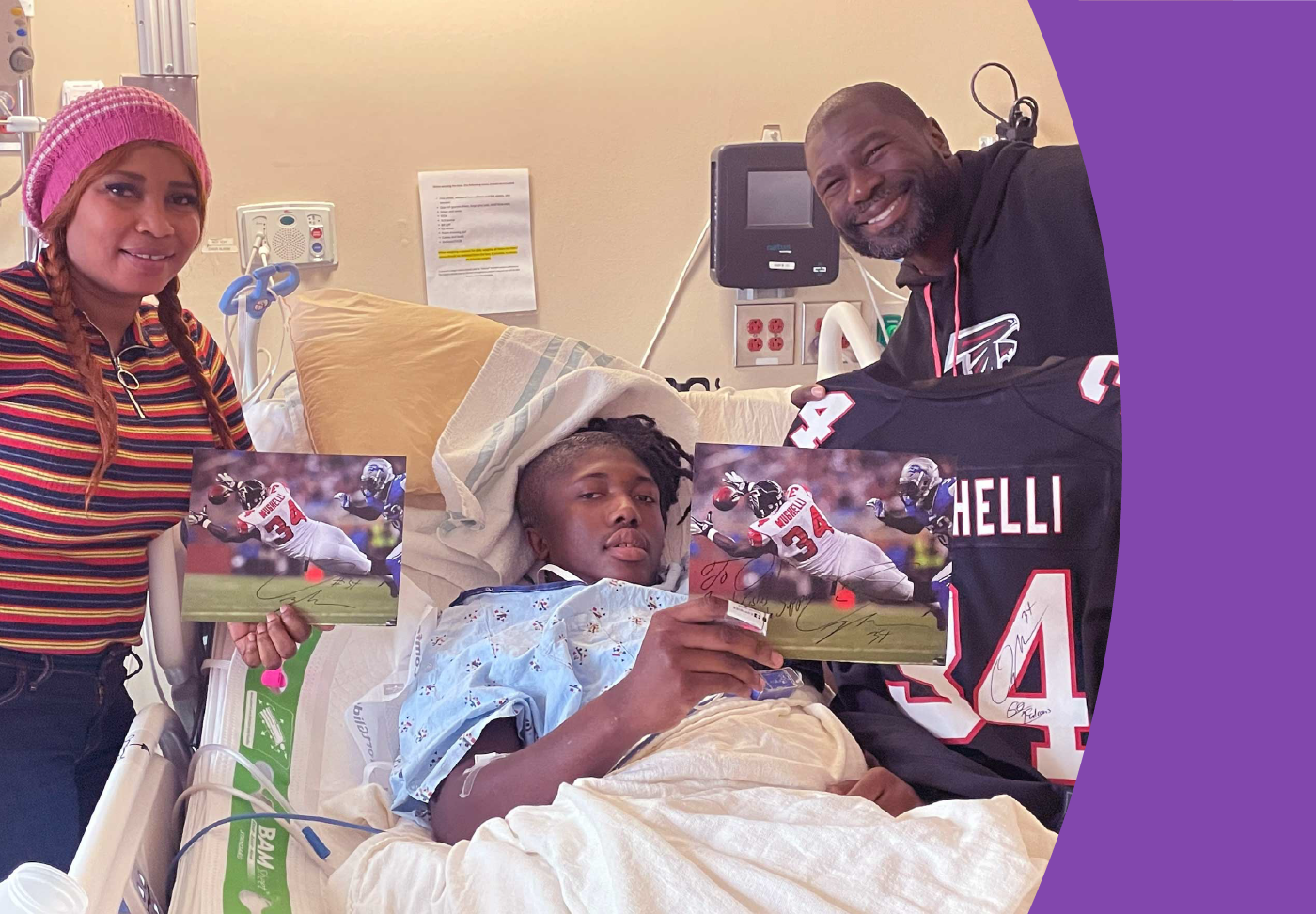
Former Falcons Player Surprises Wellstar Patient After Football Injury
A Wellstar patient recovering from a brain injury got a surprise visit Thursday from a former Atlanta Falcons player in celebration of the teenager’s graduation from the intensive care unit of Wellstar Kennestone Regional Medical Center in Marietta.
Oheneba “O.J.” Appiah, 17, who plays linebacker for the football team at Archer High School near Lawrenceville, sustained the brain injury during a football game last month.
“After the game, he said he was dizzy, and that’s when he passed out,” said his mom, Elizabeth Appiah.
“I met O.J. on the worst day of his life,” said Dr. Phillip Parry, a Wellstar neurosurgeon. “He had a life-threatening bleed inside his head, and we took him to surgery immediately.”
O.J. has come a long way during his 20-day stay in intensive care.
“His miraculous recovery is a testament to the care he received and an inspiration to us all to continue doing what we do every day,” Dr. Parry said.
“We are so grateful to God,” O.J.’s mother said. “The team here is great, and the nurses are amazing.”
Wellstar Kennestone’s neuro-ICU team, called “5 Blue East,” bonded with O.J. and his family over their love of football. The team members said it’s been great witnessing O.J.’s recovery and seeing his personality come back.
Former Atlanta Falcons and Pro Bowl player Ovie Mughelli visited O.J. during a special surprise party Thursday. Mughelli gave O.J. a signed jersey and photo from his professional football days and shared advice.
“You had a hard situation happen to you, but you can do hard things,” said Mughelli, encouraging O.J. to “ask for help up front.”
The young football player had just one question for the former NFL player: “How do you get an offer?”
By working hard and building relationships, Mughelli responded. He also stressed the importance of focusing on school. After learning O.J. had never been to a Falcons game, Mughelli invited him to attend one next season.
Wellstar Kennestone President Lorrie Liang, who also stopped by to congratulate O.J., noticed Mughelli’s gift.
“Now you have a jersey to wear during rehab,” she said to O.J.
But O.J. didn’t feel like waiting. He put on the jersey almost immediately.
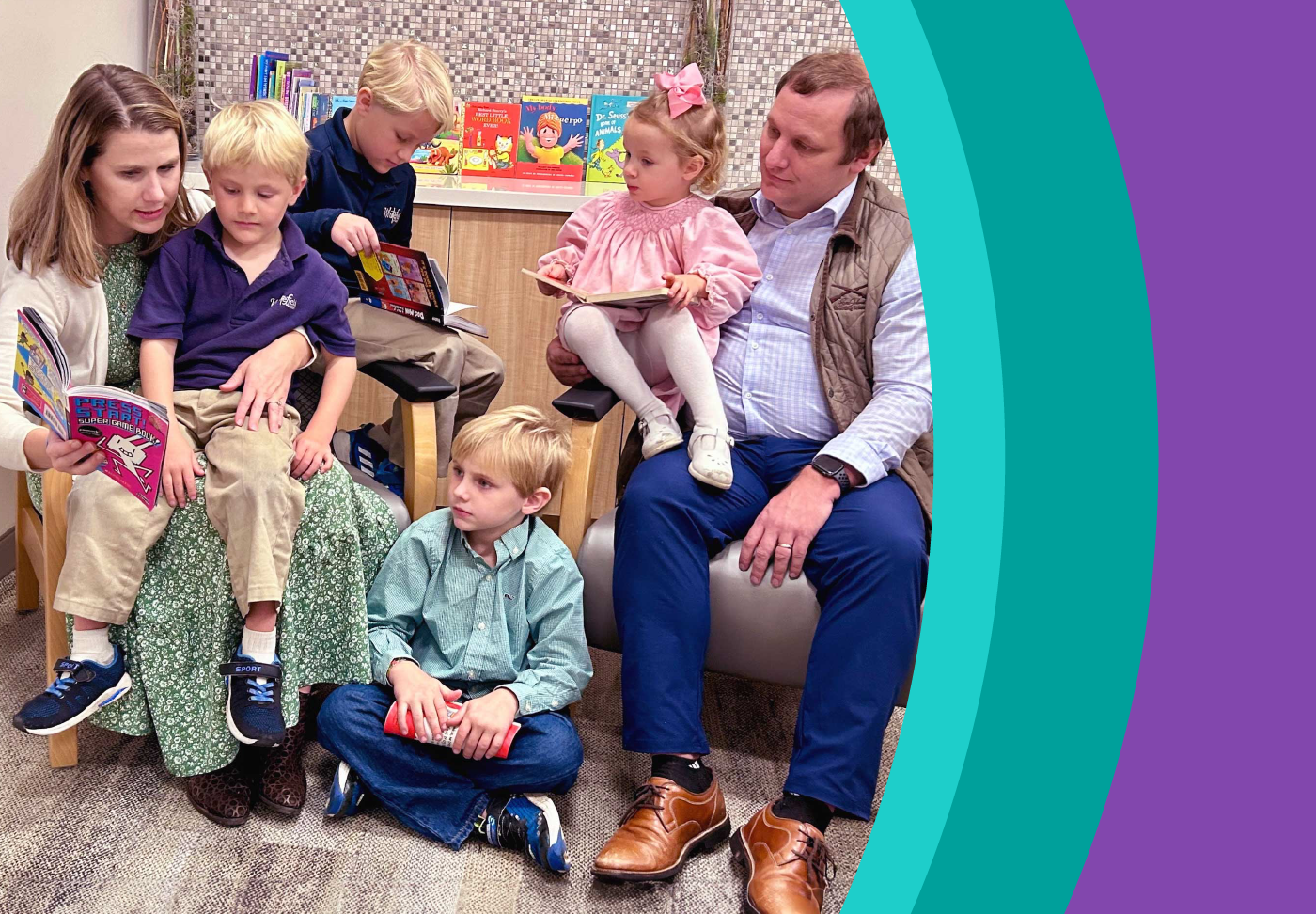
On Giving Tuesday, Local Mom Urges Donors to Consider Wellstar’s Small TALK Program
Carter Fawcett has been reading to her four children since before they were born. As a fifth grade teacher, she knows the importance of immersing children in words, stories and songs, starting when they’re still in the womb.
“While I was pregnant with my firstborn, reading and singing to him was my whole attachment to motherhood,” she said. “The other three were just along for the ride, even in my belly, listening to me read aloud to my toddlers.”
Fawcett’s children are patients of Dr. Melissa Boekhaus, a pediatrician at Wellstar Pediatric Adolescent Center in Smyrna. Fawcett was thrilled to learn that the practice had implemented a literacy program called Small TALK, made possible thanks to generous donations from the Wellstar Foundation.
“I love knowing that Wellstar encourages families to read together,” she said.
Wellstar is the only health system in Georgia that provides a high level of literacy support throughout the entire spectrum of pediatric care, from pre-birth through third grade and beyond.
During various touchpoints, from prenatal care to pediatric well-child visits, Small TALK teaches parents and caregivers to tune into their child’s interests and activities. By regularly asking open-ended questions, even to newborns, children learn how to become conversational partners.
“We encourage parents to use their home language and speak in complete sentences using complex vocabulary to lift their child’s language and grow their understanding of the world,” said Lisa Liedke, manager of Small TALK for Wellstar. “Talking, reading, playing and singing together helps even the youngest children establish these skills.”
“Parents are their children’s first and best teachers,” Liedke said. “Empowering the family to have this intentional engagement carries this role from Wellstar to home.”
Small TALK allows healthcare professionals to work closely with families, explaining and coaching how to produce early healthy brain development and language acquisition. These conversations help monitor early development, address concerns and encourage early interventions through referrals if necessary.
“Just as children need food nutrition to grow their bodies, they require language nutrition to grow their brains,” Liedke said.
“If you’re looking for a charitable cause to support on Giving Tuesday, please consider the Wellstar Foundation,” said Fawcett. “Small TALK reaches children across all socioeconomic levels, setting them up with the foundational language tools they’ll need for educational success before they even start kindergarten.”
To learn more about the Wellstar Foundation or to make a tax-deductible donation, visit wellstar.org/give.
Language Development
Small TALK Timeline
.jpg?rev=e623251622ee4116956d7bf55a43cffe)
We’re Offering No-Cost Telehealth to Underserved Communities
Many people in low-income neighborhoods go without essential healthcare services, with reasons including lack of insurance, unreliable transportation or inflexible work schedules. At Wellstar Center for Health Equity, we’re excited to offer a simple solution for people living in northwest Atlanta: no-cost digital health services. Digital health services, also called telehealth or telemedicine, allow people to schedule virtual visits with a healthcare professional to access the care they need—when they need it.
This solution is possible thanks to a partnership between Wellstar, Family Life Restoration Center in Mableton and Giving Health, a Georgia-based telemedicine provider. To participate, people can sign up at Family Life Restoration Center. Then, they can schedule online telehealth appointments using a phone, smart device or computer. The program provides 24/7 access to:
Participants can use the digital health service for up to a year. Staff and volunteers at Family Life Restoration Center can help participants apply for Medicaid and find a primary care practice when they are ready.
Health and wellness success with telehealth
While the telehealth program is new, Giving Health has provided telehealth for low-income and uninsured people since 2019. They also offer after-hours digital health services for many clinics in the Wellstar Community Clinic Network.
Family Life Restoration Center is also part of the Wellstar Community Clinic Network, which was launched nearly 10 years ago to better serve the most vulnerable and under-resourced people in our communities.
Many people in Mableton and other areas in South Cobb County are living below the poverty line. Many do not have a primary care provider or health insurance. Round-the-clock access to telehealth can make a significant impact on people’s lives, helping them experience better health and avoid unnecessary trips to the emergency department.
The Family Life Restoration Center provides community members with food, clothing, spiritual encouragement and referrals to nearby social services. Wellstar has worked with the center for over a decade to meet the community’s needs, including vaccination clinics, health screenings and patient education programs.
Check out the Wellstar Find Help Tool
Another way we’re meeting health needs in our community is with the Wellstar Find Help Tool. It allows people to search for free or reduced-cost resources, including:
The tool, available in several languages, is one of several Wellstar initiatives to improve the health well-being of every person we serve by connecting them with resources such as nutritious foods, housing and education.
Learn more about the Wellstar Center for Health Equity.
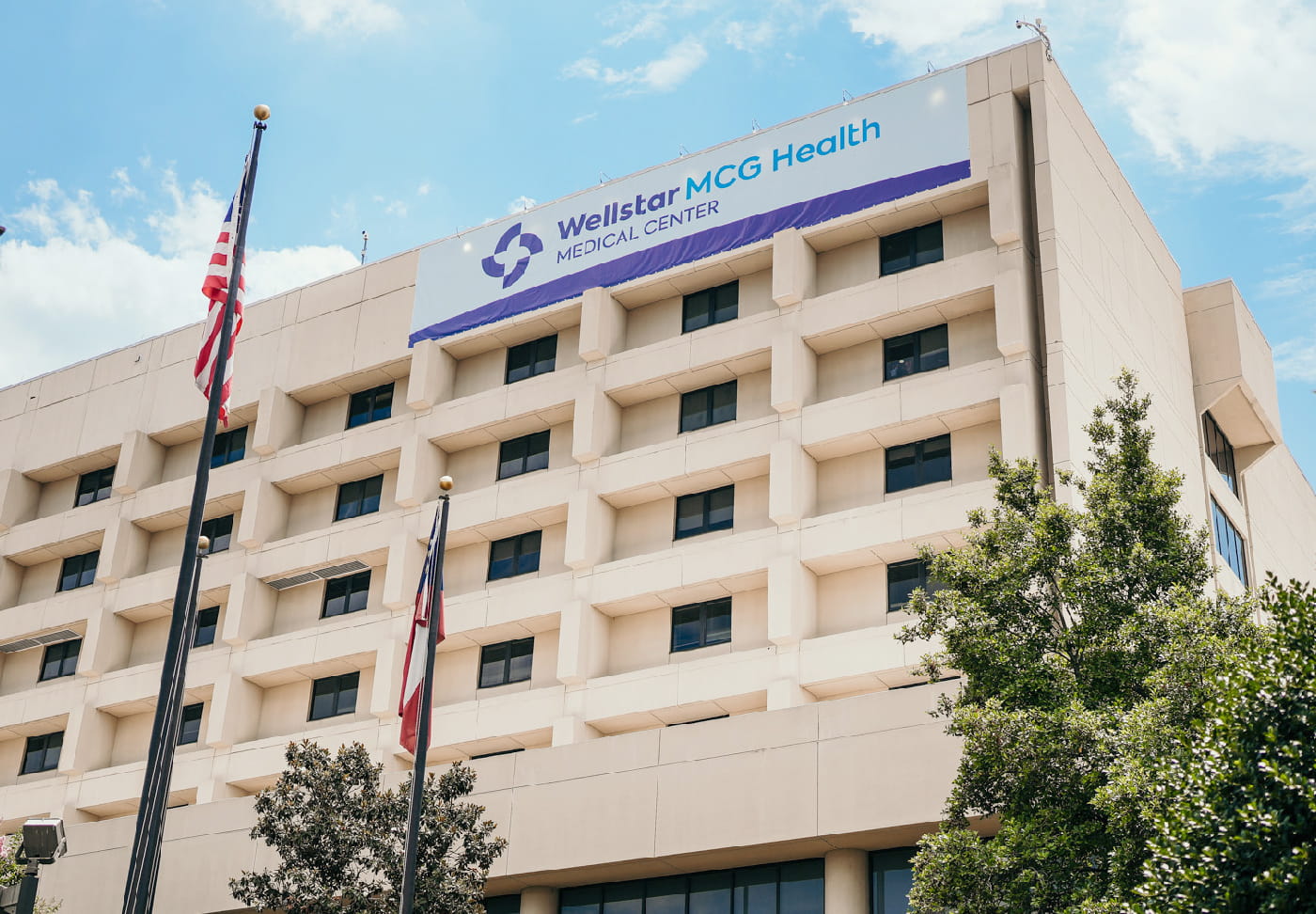
Wellstar Health System Releases 1-Year Progress Report on Affiliation with Augusta University’s Medical College of Georgia
AUGUSTA, Ga. (Dec. 2, 2024) – Wellstar MCG Health is transforming healthcare in the state and advancing medical education for the next generation of caregivers. A new 1-year progress report details the significant strides that have been made since Wellstar Health System and Augusta University’s Medical College of Georgia (MCG) joined forces last year.
This strategic affiliation combines Augusta University’s academic excellence and research capabilities with Wellstar’s extensive healthcare expertise and resources. Since beginning the partnership on Aug. 30, 2023, Wellstar MCG Health has improved access to care, made substantial investments in facilities, and expanded innovative programs aimed at serving Georgia’s unique healthcare needs.
Highlights from the Year-One Progress Report:
“We’re proud of the progress we’ve made in this first year,” said Candice L. Saunders, president and CEO of Wellstar Health System. “From expanding access to care and enhancing our facilities to investing in our people, we’re dedicated to a brighter, healthier future for Georgia. This partnership is a testament to what we can achieve when we bring together academic and healthcare excellence.”
Dr. Russell Keen, president of Augusta University, added, “A great example of how Wellstar and Augusta University are collectively improving the lives of Georgians is the ongoing collaboration between MCG researchers and clinicians in the Georgia Cancer Center, the Children’s Hospital of Georgia and the MCG Center for Telehealth. I couldn’t be more pleased with the collaborative spirit, shared passion and culture of innovation that permeate Augusta University and Wellstar Health System.”
The Wellstar and Augusta University/Medical College of Georgia partnership will continue to evolve and expand its impact, with projects such as the new Wellstar Columbia County Medical Center, affiliated with the Medical College of Georgia, slated to open in 2026, which will bring acute care services to Georgia’s largest county without an existing hospital.
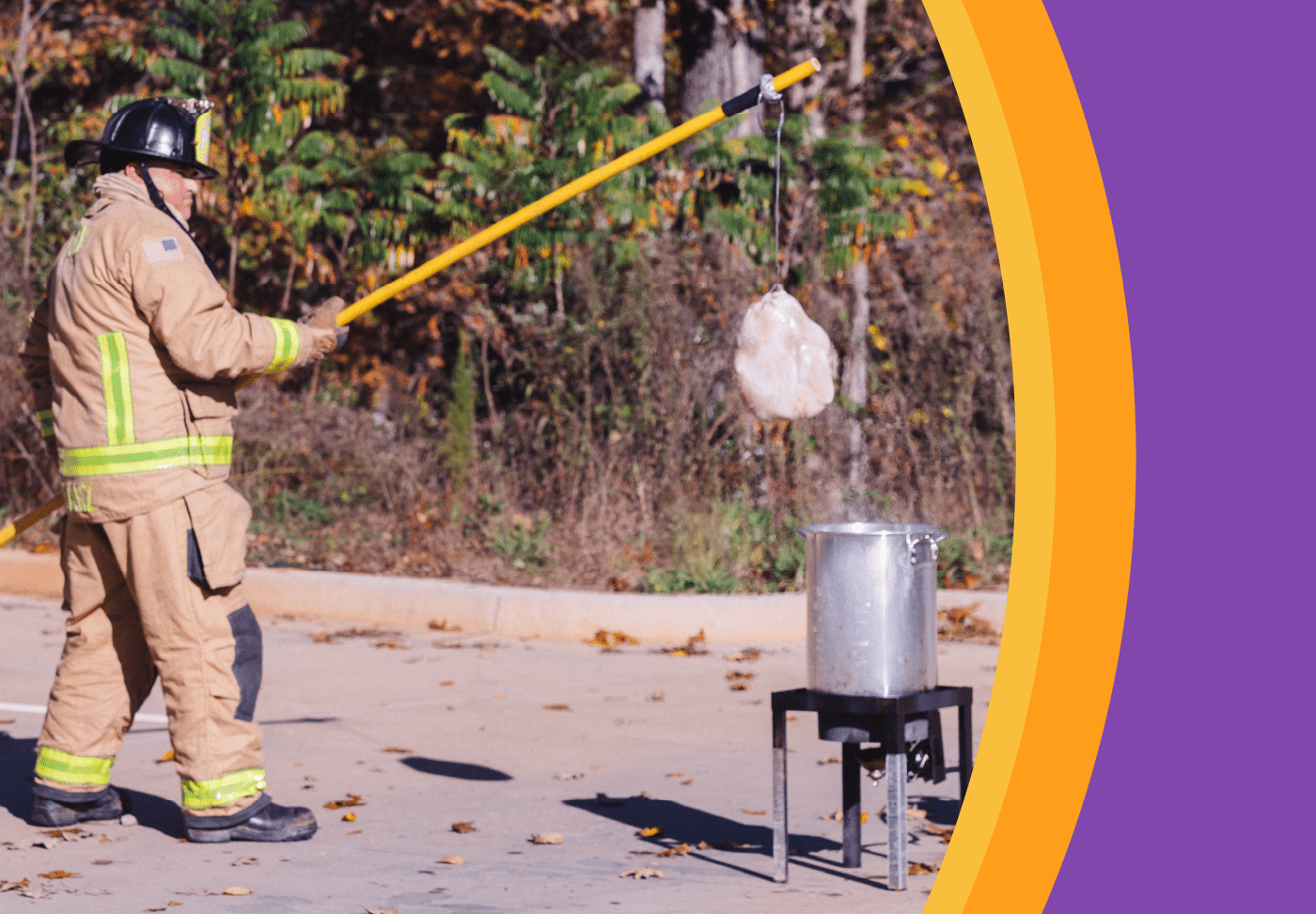
First Responders Warn About Dangers of Improper Turkey Frying
In a fiery demonstration on Wednesday, nurses from the Joseph M. Still Burn Centers at Wellstar Cobb Medical Center joined Cobb County firefighters to showcase why it’s essential to be vigilant during the holidays to prevent burn wounds and fires.
News cameras began recording as firefighters in full gear used a long rod to lower a frozen turkey into a fryer full of overheated vegetable oil. Immediately, a violent splash of hot oil spilled from the fryer and burst into a flash flame that extended 5 feet outward and roughly 20 feet high. It would have been a disaster if that scenario had played out during a family’s Thanksgiving feast.
At the demonstration, team members from the Burn Center at Wellstar Cobb told reporters that cooking mishaps are among the most frequent causes of the burn injuries they treat and shared safety tips that can help keep the holidays merry and bright.
“Please be extremely careful while deep frying your turkeys this holiday season,” said nurse Imani Hence of Wellstar Cobb’s inpatient burn unit. “Everyone loves fried turkey, but we have seen a lot of instances where turkey fryers have tipped over, causing significant burn injuries from the grease.”
Burn Program Manager Nadine Lynch said it’s crucial to maintain a “kid-free zone” around cooking areas, whether indoors or outdoors.
“It’s wonderful when the whole family pitches in, but make sure to keep hot liquids away from table edges,” she said. “Use potholders when cooking. Unplug cooking sources when no longer needed and use long-handled tools for grilling and frying.”
Emily Black, clinical coordinator at Wellstar Cobb’s burn, wound and hyperbaric outpatient clinic, said that when kids are out of school during the holidays, more accidents happen.
“We see a great many hand burns from children touching hot stoves, oven doors and glass screens on fireplaces,” Black said. “With kids home and cooking for themselves, we see an even greater number of hot water, tea and ramen noodle burns as well.”
What to do if someone suffers a burn:
What not to do if someone suffers a burn:
The sooner you’re seen at a burn center, Lynch said, the better your outcome.
Turkey fryer fire safety:
What to do if a grease fire occurs:

Support Children’s Health During iHeartMedia Cares for Kids Radiothon
This holiday season, you can support Wellstar Children’s Hospital of Georgia, a Children’s Miracle Network hospital, by tuning in to the 24th Annual iHeartMedia Cares for Kids Radiothon.
Tune into 104.3 WBBQ, 96.3 KISS FM and 105.7 The Bull or watch News12 NBC26 to hear stories of hope, healing and inspiration as patients and families share how Wellstar Children’s has had a positive impact in their lives.
December 5 & 6
6 AM to 7 PM
December 7
8 AM to 1 PM
Wellstar Children’s offers dedicated, world-class care to the youngest patients in our state and beyond. The hospital is home to a 24/7 Pediatric Emergency Room, a dedicated Level II Trauma Center, a Level IV NICU and the only Level I PICU outside of Atlanta.
Giving is easy! Here’s how:
Learn more at caresforkidsradiothon.com.
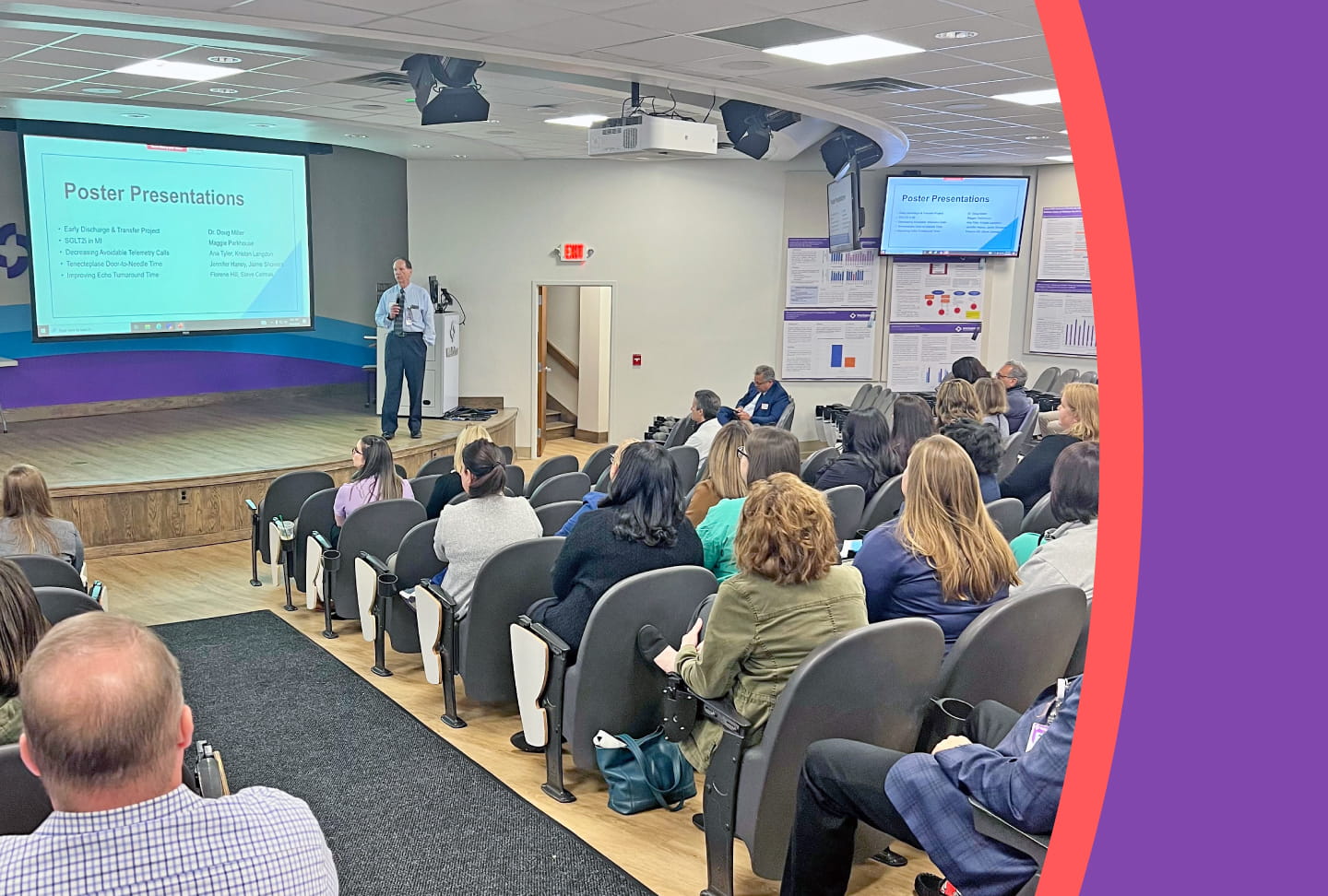
A Heart for Collaboration: Wellstar Cardiovascular Quality Forum 2024
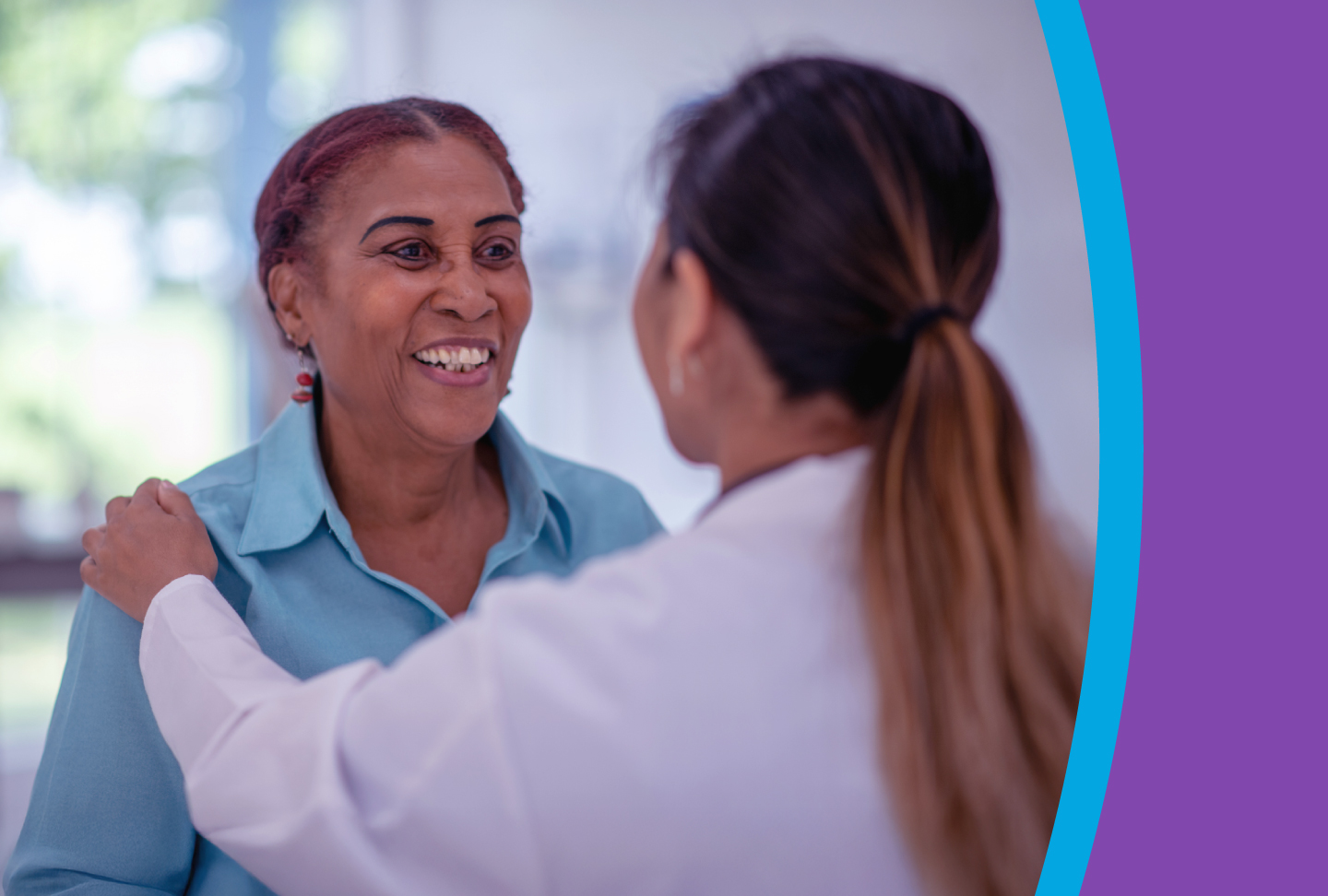
Wellstar & Someone Cares Team Up to Serve Vulnerable Communities
It’s simple for many of us to find a primary care physician or advanced practice provider that we trust and feel comfortable with. By booking online or making a quick phone call, we can make an appointment and feel confident about the level of care we will receive. We know how and where to get the help we need when we need it.
Many people lack access to care, making their path to high-quality care more challenging. It could be because they don’t have insurance, are unable to pay for medical services or don’t have a way to get to their appointments. This isn’t how it should be.
At Wellstar, we believe every person deserves to live their healthiest life, regardless of their circumstances. The Wellstar Center for Health Equity has partnered with local clinics like Someone Cares to make healthcare accessible to everyone in our communities.
A safe and welcoming space
People who rely on Someone Cares include those who are underinsured or have difficulty accessing healthcare due to transportation or financial issues. The clinic is a one-stop shop that offers care at a brick-and-mortar location in Marietta. Services include:
In addition to their Marietta clinic, Someone Cares has two mobile units. They travel to communities throughout metro Atlanta to provide HIV and STD testing, health screenings, health education and vaccinations. It’s a convenient option that allows people to get the care they need, where and when they need it.
Someone Cares also offers specialized services for individuals in the transgender community, including gender-affirming hormone therapy.
How Wellstar supports Someone Cares
Wellstar and Someone Cares began their partnership in 2023 when the organization was applying to become a Federally Qualified Health Center (FQHC).
FQHCs are community-based centers that receive funds from the federal government to provide primary healthcare services in underserved areas. FQHCs typically work with a hospital or health system to ensure patients have easier access to services that are unavailable in the primary care setting, such as inpatient behavioral health services.
Someone Cares will officially become a FQHC in February 2025. The designation allows them to expand their services, further supporting vulnerable communities.
Each partnership is unique
Someone Cares is one of about a half-dozen clinics in the Wellstar Community Clinic Network. The Wellstar Center for Health Equity launched the network eight years ago to serve the most under-resourced populations in our communities better.
Each partnership is unique and customized to the community-based clinic’s needs. A few examples of the services we provide include:
We’re grateful for our Community Clinic Network partners, who help Wellstar create a healthier Georgia for all. Together, we’re making a difference in people’s lives across the state.
Learn more about the Wellstar Center for Health Equity.
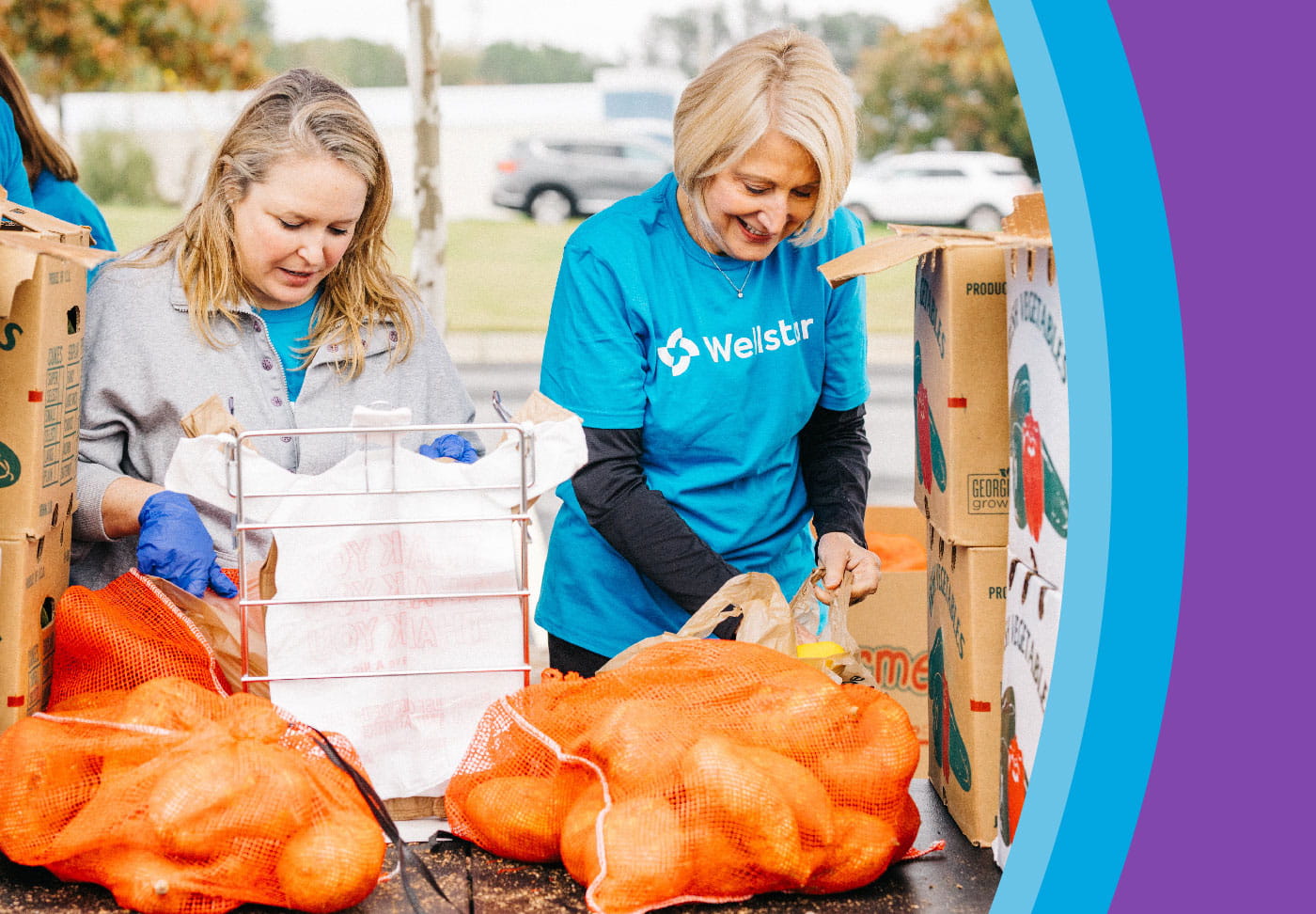
Wellstar Team Members Tackle Hunger and Housing Challenges
More than 450 Wellstar team members fanned out across metro Atlanta, West Georgia, Augusta and beyond on November 14, volunteering their time to improve access to healthy food and housing by supporting 20 local, community-based organizations.
They packed and distributed food, assisted in community gardens, and sorted food and clothing donations.
“It warms my heart to see so many team members participating in our annual Day of Service,” said Candice L. Saunders, president and CEO of Wellstar Health System. “As a nonprofit, community-based health system, our mission is to enhance the health and well-being of every person we serve, and it’s always exciting to expand that mission outside the walls of our facilities.”
Wellstar volunteers participated in service projects for the following nonprofit organizations: Atlanta Community Food Bank (Atlanta and Marietta), Covenant House (Atlanta), Douglasville Community Garden (Douglasville), The Drake House (Roswell), Feeding the Valley Midland Warehouse (Muscogee County), Five Loaves & Two Fish Food Pantry (Griffin), Food Well Alliance – Roswell UMC Giving Garden (Roswell), Golden Harvest Food Bank (Augusta and Aiken, S.C.), Helping Hands of Paulding County (Dallas), LaGrange Personal Aid (LaGrange), MUST Ministries (Marietta Donation Center and Mobile Pantry at the VA Clinic), North Fulton Community Charities (Roswell), Our Giving Garden (Mableton), The Salvation Army (Atlanta, Griffin and Marietta), Sweetwater Mission (Austell) and the Warehouse of Hope (Douglasville).
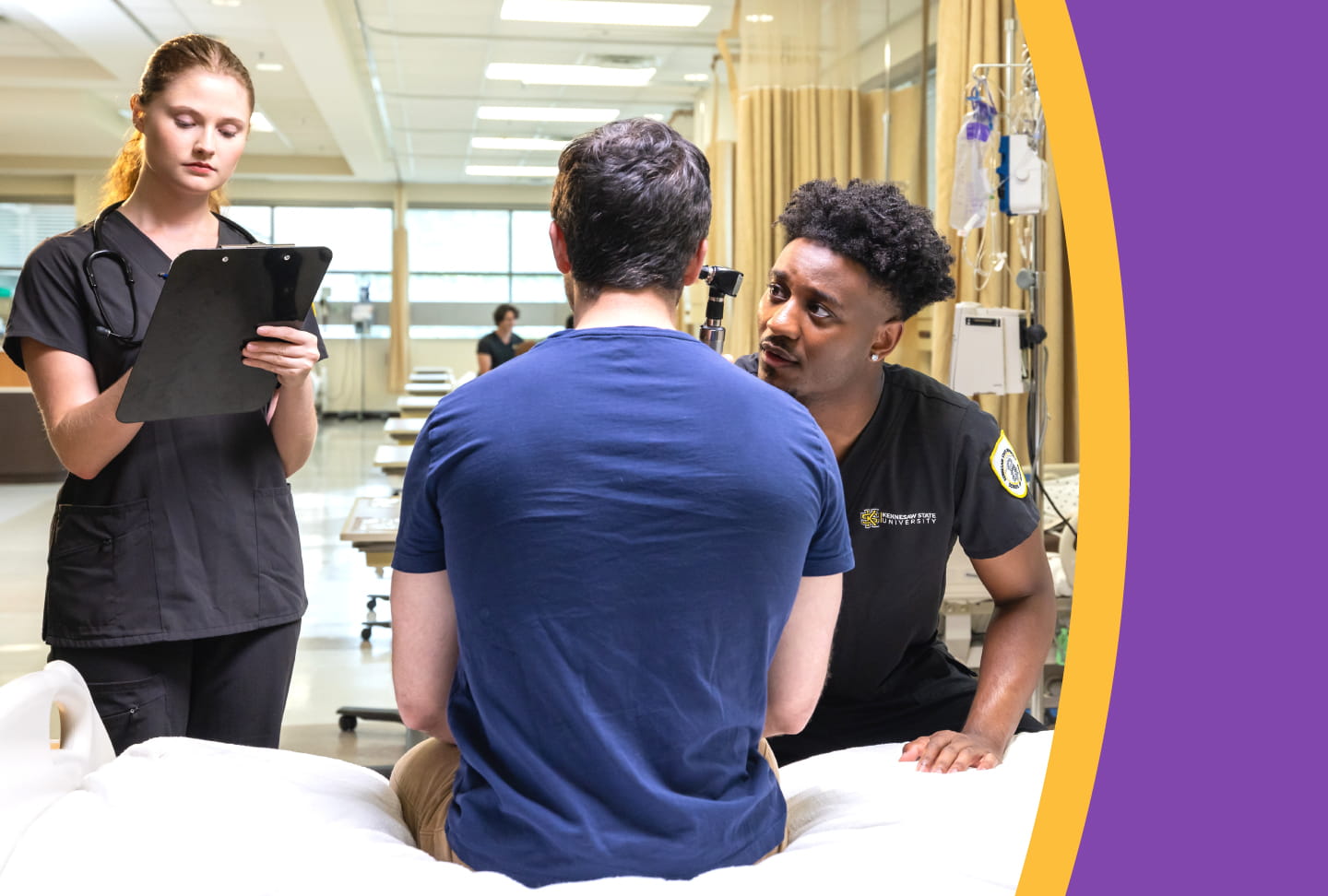
Kennesaw State and Wellstar Double Nursing Student Enrollment
KENNESAW, Ga. (Nov. 12, 2024) — Kennesaw State University (KSU) and Wellstar Health System have doubled the number of students at KSU’s Wellstar School of Nursing in the last four years, helping to fill the need for more nurses in Georgia.
The nationwide shortage of nurses is hitting Georgia particularly hard. Georgia currently has 21 percent fewer registered nurses than it needs and is expected to see the second-highest estimated shortage in the U.S. by 2035, according to the federal Health Resources Service Administration (HRSA).
“Our partnership with Wellstar not only enhances the educational opportunities for our students, but also makes a significant impact on the future of healthcare in Georgia,” said Kennesaw State President Kathy S. Schwaig. “Together, we are ensuring that more nurses are entering the workforce, highly trained and dedicated to providing essential care and support.”
To grow KSU’s Bachelor of Science in Nursing enrollment, Wellstar in 2020 committed nearly $9 million over five years to fund nursing scholarships and the hiring of new nursing faculty and staff. As a result:
“At Wellstar, we have a responsibility to create pathways for our communities’ future healthcare workers,” said Candice L. Saunders, president and CEO of Wellstar Health System. “By working closely with Kennesaw State, we’re helping more students pursue medical careers through scholarships and the additional faculty to teach them. This collaboration is critical to help meet Georgia’s need for more healthcare workers.”
The Wellstar scholarships at KSU can be combined with the state-provided HOPE and Zell Miller Scholarships, which are helping thousands of Georgia students attend an in-state four-year college or university, as well as other tuition assistance. Wellstar also offers its nurses and other clinical team members tuition reimbursement for ongoing education at KSU throughout the career.
“Wellstar Health System’s generous support directly addresses the critical nursing workforce need,” said Monica Swahn, dean of KSU’s Wellstar College of Health and Human Services. “Our commitment to excellence has remained steadfast, and as we look to the future, we will continue to lead and innovate in shaping the next generation of nurses.”
According to the U.S. Bureau of Labor Statistics, nurses in metro Atlanta earn on average about $45 per hour, or $95,000 per year plus benefits, depending on their area of specialty.
The longstanding KSU-Wellstar partnership’s success supporting community health and well-being is outlined in the 2024 Wellstar School of Nursing annual report.
Kennesaw State has been collaborating with Wellstar for decades. Wellstar currently manages the University’s on-campus student health clinics and is the named donor of the College of Health and Human Services and its School of Nursing.
Wellstar, on top of its previous $18 million in contributions to KSU, recently committed $25 million to expand the relationship. Wellstar provided the lead funding commitment for a new state-of-the-art training and conditioning complex for KSU student-athletes, pending approval by the Board of Regents of the University System of Georgia, along with a new Center for Research on Human Sport Performance and Wellbeing. Beginning July 1, 2026, Wellstar will be the exclusive orthopedics and sports medicine provider, partner, and sponsor of the KSU Athletics Association, providing key services for Kennesaw State student-athletes.
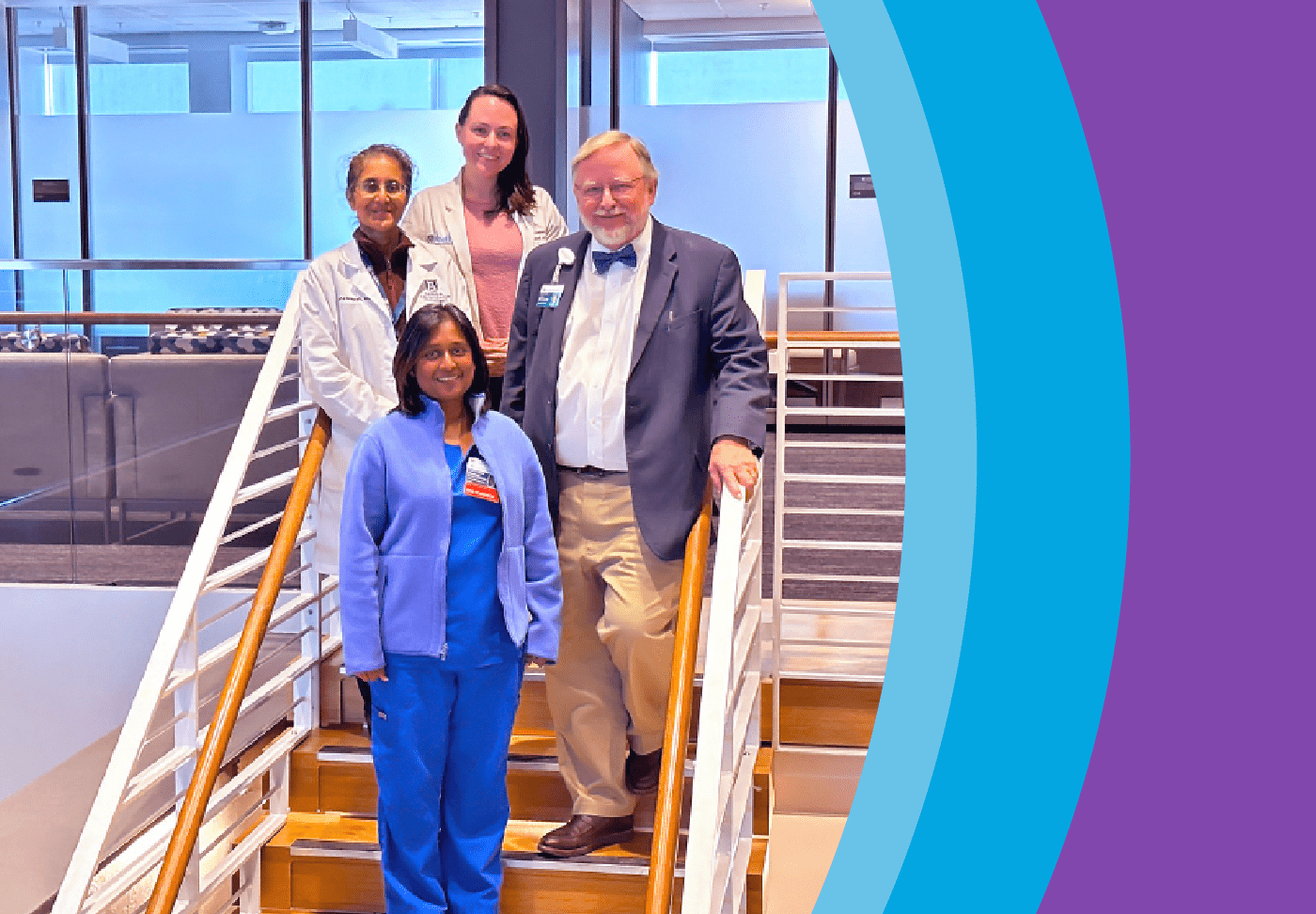
Wellstar Georgia Cancer Center’s Pharmacogenomics Program may Help Reduce Side Effects From Chemotherapy for Some Patients
The Wellstar Georgia Cancer Center Pharmacogenomics Program (CaPP) has launched pharmacogenomics testing services for the center’s patients and oncologists. Pharmacogenomics employs genetic sequence alterations in drug metabolism genes to predict toxicity.
The tests measure changes in genes that make proteins that metabolize common chemotherapy drugs. If a patient has a mutation in these genes, their metabolism will not handle the drug properly. This may cause the patient to become sick.
“These tests can help people avoid severe toxicity from chemotherapy. We want to optimize treatment for patients who need a lower dose when they have any gene mutation,” said Dr. John W. Henson, director of neuro-oncology at the Medical College of Georgia and the Wellstar Georgia Cancer Center. The Pharmacogenomics Program is co-led by Henson in the Hereditary Cancer Clinic and Dr. Katherine Saunders-Wohlfrom in Oncology Pharmacy.
The program’s initial focus will be on patients with gastrointestinal cancers in conjunction with Dr. Asha Nayak. Henson said this is where the biggest impact will come right away. Other service lines, including breast cancer, will benefit as more testing is done.
“This is a valuable message to the community,” said Henson. “CaPP services will include testing support, report interpretation, document management, clinician consultation, and patient and family consultation.”
Henson also thanked Dr. Brandy D. Gunsolus in Clinical Laboratory Science for her help with the program, saying she was instrumental in developing the order process.

Grant Provides No-Cost Support for Pregnant Women and New Parents in Three Georgia Counties
Lead Khristen Flennoy is on a mission. As the new director of the Wellstar Healthy Start program, she wants to enroll hundreds of women in Butts, Spalding and Troup counties in a program that cares for mothers and babies before, during and after childbirth.
“There is a great need to expand women’s health services in Butts, Spalding and Troup counties, and we’re grateful for the resources the Healthy Start grant provides,” said Flennoy. “After an extremely competitive application process, Wellstar is now part of Healthy Start’s 33-year legacy of improving the health of women and families. I am ecstatic to lead the charge alongside a dynamic team to create a lasting impact for the people in these communities.”
For the first time in her new role, Flennoy led a community consortium meeting on Friday, October 25. The group was formed to serve as a voice for the community after Wellstar received the $5.5 million Healthy Start federal grant from the U.S. Department of Health and Human Services’ Health Resources and Services Administration. The highly competitive grant invests in communities to improve health outcomes before, during and after pregnancies.
According to the Georgia Department of Health, maternal deaths during pregnancy are increasing. Black women are twice as likely as white women to die from pregnancy-related causes. Wellstar is the first grant recipient in the state to embed the Healthy Start program in its OB/GYN offices.
Participants include pregnant women, new moms of babies up to 18 months old, and fathers and other caregivers. So far, more than 50 participants in Butts, Spalding and Troup counties have signed up. Many are already receiving the services at no cost, which include case managers, nurse navigators and doula services, as well as classes on pregnancy and infant care, parenting and nutrition. The grant also covers transportation needs.
“This grant allows us to better connect clinical expertise with community support to improve the health of women and families in Georgia counties that have the greatest need," said Preston Hendrickson, assistant vice president of Women’s Health at Wellstar. “We’re thrilled about the opportunities that the Healthy Start grant will make available to families that live, work and play in Butts, Spalding and Troup counties.”
A family’s income or insurance status does not factor into who qualifies. Any expectant or new parent can receive care through the program. To apply, fill out the confidential questionnaire at wellstar.org/healthystart.
This article is supported by the Health Resources and Services Administration (HRSA) of the U.S. Department of Health and Human Services (HHS) as part of an award totaling $5.5 million with 0% financed with nongovernmental sources. The contents are those of the author(s) and do not necessarily represent the official views of, nor an endorsement by, HRSA, HHS or the U.S. government.
.jpg?rev=e49b00e4e51e434aaf29b244ed69b74b)
Wellstar Announces Redevelopment Vision for Former Atlanta Medical Center Site
ATLANTA, Ga., Oct. 17, 2024 – Wellstar Health System announced today that redevelopment of the former Atlanta Medical Center campus is set to begin in the coming weeks, led by The Integral Group and guided by the land-use plan unanimously approved by the Atlanta City Council last month with support from Atlanta Mayor Andre Dickens.
“We will work closely with the city to build on its revitalization plan and bring to life our shared vision of a thriving, healthy addition to the Old Fourth Ward,” said Candice L. Saunders, president and CEO of Wellstar Health System.
To lead the redevelopment process, Wellstar has engaged The Integral Group, a nationally recognized, Atlanta-based firm that specializes in creating spaces that reflect the needs, character and history of their community.
The City of Atlanta placed a zoning moratorium on the property in 2022 and renewed it three times, most recently in June 2024. The moratorium expired October 15, 2024.
“For nearly two years, our administration has worked with purpose and intent on a thoughtful plan for the next chapter for this property,” said Mayor Dickens. “Through direct engagement with the Old Fourth Ward and surrounding stakeholders, we now have an opportunity to create an inclusive, forward-looking and thriving new development that meets the community’s needs for affordable housing, green space and safe streets—while maintaining some medical use and retaining the neighborhood’s unique character. I appreciate Wellstar moving forward with this community-driven project while our administration continues to explore options to meet the healthcare needs of residents on the Southside.”
The vision for the 22-acre campus includes a vibrant, diverse mixed-use neighborhood with affordable housing, residential properties, community and public green space, neighborhood-level retail, new street access, commercial uses, and health and well-being resources.
“At Integral, we believe that transforming a community requires more than just development—it requires a commitment to understanding and addressing the core needs of the people who live there,” said Egbert Perry, chairman of The Integral Group. “This project is a tremendous opportunity to create a lasting impact. It will honor the history of the area while shaping a vibrant, sustainable future.”
The nature of the health and well-being component will be determined in collaboration with community stakeholders as part of Integral’s comprehensive planning process and will include an in-depth analysis of the area’s healthcare needs.
Over the next few weeks, Integral will develop an implementation plan and engage with neighbors and community stakeholders to gather further feedback. The revitalization effort will take place in phases over several years, with community input at every stage. In response to the neighborhood’s desire to see progress quickly, Integral expects to apply for permits soon with the goal of beginning demolition of certain aging structures in the first quarter of 2025.
“This is a long-awaited new beginning for the Old Fourth Ward community," said Atlanta City Councilor Amir Farokhi. “These properties have enormous potential to meet our city’s and the neighborhood’s need for more dense, mixed-use development, including, hopefully, new housing.”
“The Old Fourth Ward sits at a crossroads of our city. This is a vital investment in the growth and advancement of this historic neighborhood for the betterment of all who live here,” said Tom Boyle, president of Old Fourth Ward Neighborhood Association. “We are ready to move ahead quickly with the next steps for this site and we are eager to work together throughout all phases of this project.”

Wellstar Partners with Social Cascade to Tackle Health Inequity Through Technology
The Wellstar Center for Health Equity has teamed up with Social Cascade, a health literacy platform designed to modernize patient education, to address health inequities across Georgia. This partnership is part of Wellstar’s Community Transformation Program and represents a shared commitment to improving health outcomes by using technology to bridge the gap between healthcare providers and patients. However, the partnership is about much more than what can be accomplished through technology; it is about empowering patients and making meaningful progress toward health equity.
At Wellstar, we have long believed that every person deserves the opportunity to live their healthiest life, regardless of their circumstances. The Center for Health Equity is committed to making healthcare accessible, equitable and dignified for everyone in Georgia. By implementing systemwide programs that address health disparities, Wellstar is creating lasting change across the state. Now, Social Cascade joins us in championing this important work that ensures everyone can access quality care, regardless of their background or circumstances.
A collaborative approach to health equity
Improving health inequities requires teamwork. No organization, policy or program can solve these complex issues alone. Wellstar’s new partnership with Social Cascade uses a collaborative approach to make a meaningful difference in the community.
Here’s how it works: Wellstar has identified five Georgia-based clinics and advocacy organizations focused on reducing health inequities. Social Cascade will give those clinics full access to its innovative AI-powered solutions to help them more easily reach the patients they serve and strengthen patient engagement. The five participating organizations are:
These clinics and advocacy organizations serve some of the most vulnerable populations, offering crucial services to individuals and families who may face barriers to healthcare access. Together, Wellstar and Social Cascade aim to amplify their reach, ensuring their patients receive timely, accurate health information through the social media platforms they already use.
Leveraging technology to improve health outcomes and access
Many individuals struggle to find, understand and apply health-related information, leading to poor health outcomes and difficulties navigating an already complex healthcare system. Social Cascade’s role is to help improve this situation by making health information more accessible and actionable for patients through the organizations and providers patients already know and trust.
With Wellstar’s support, Social Cascade will help participating groups:
Both Wellstar and Social Cascade envision a future where organizations across Georgia can more easily connect with their patients, improve access to care and positively impact the social determinants of health in their communities over time. Our organizations look forward to sharing the positive outcomes of this partnership and continuing to drive change in healthcare through innovation and collaboration.
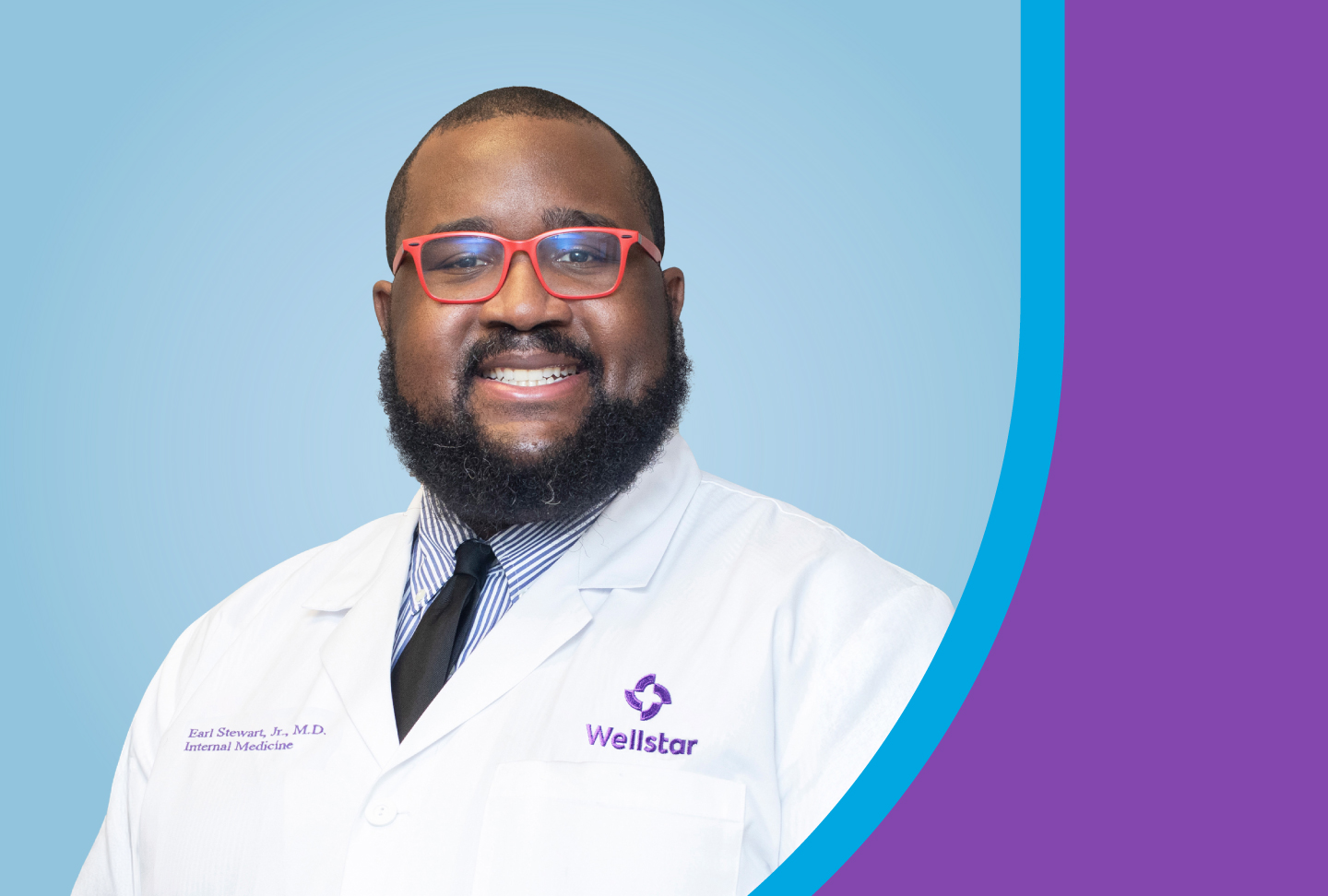
Dr. Earl Stewart Jr. Takes on New Role as Medical Director of Health Equity, Committed to Improving Healthcare Access and Inclusivity
We are pleased to announce that Dr. Earl Stewart Jr. has accepted the role of medical director of health equity at Wellstar.
Dr. Stewart, a native of Augusta, graduated with honors from Mercer University and Meharry Medical College. He completed his internal medicine residency at Brown University. His clinical interests include heart disease prevention, the effects of the environment and climate on health, health equity and the connection between spirituality and medicine.
He is a fellow of the American College of Physicians and a member of the National Medical Association, the American Association for Physician Leadership and the Arnold P. Gold Foundation for Humanism in Medicine. He actively serves in various capacities at both the state and national levels with these organizations.
"Growing up in Augusta, I saw family members in rural areas near Augusta struggle to access healthcare,” Dr. Stewart said. “That experience shaped my desire to improve access to care, which remains a key driver for me today."
His passion for making a difference is rooted in the belief that everyone should have access to the care they need, no matter where they live or their background. This personal connection continues to fuel his dedication to creating more inclusive healthcare.
"Many of us from underrepresented groups pursue medicine to advocate for equitable healthcare for those with similar experiences,” said Dr. Stewart on the importance of community care. “Despite advancements in care, these issues still persist."
In his new role, Dr. Stewart will partner with executive leadership and nursing teams to develop strategies for fostering diversity, equity and inclusion at Wellstar, leading initiatives to improve patient experiences, enhance cultural competency, boost employee engagement and strengthen community partnerships.
Dr. Stewart emphasized collaboration and innovation saying, "We are working to implement the PREVENT (Predicting Risk of cardiovascular disease EVENTs) tool to more accurately assess cardiovascular risk for patients,” he said. “We are also gearing up for the 2025 Community Health Needs Assessment to improve care, clinician data resources, and partnerships focusing on addressing the health care needs for all we serve, especially underserved groups."
Additionally, Dr. Stewart will help guide the Wellstar Center for Health Equity in addressing social determinants of health and reducing disparities.
"Improving diversity, equity and inclusivity in healthcare is no longer optional for health care systems—it's a requirement,” said Dr. Stewart. “Accreditation, certification and reimbursement all depend on it and we must embrace this new reality."
Reflecting on his roots, Dr. Stewart is ready to give back to the community he grew up in. "I'm thrilled that these initiatives will extend to Wellstar MCG Health Medical Center, Wellstar Children's Hospital of Georgia and Wellstar Georgia Cancer Center in Augusta, where I first learned the ropes and prepared for a career of practicing medicine."
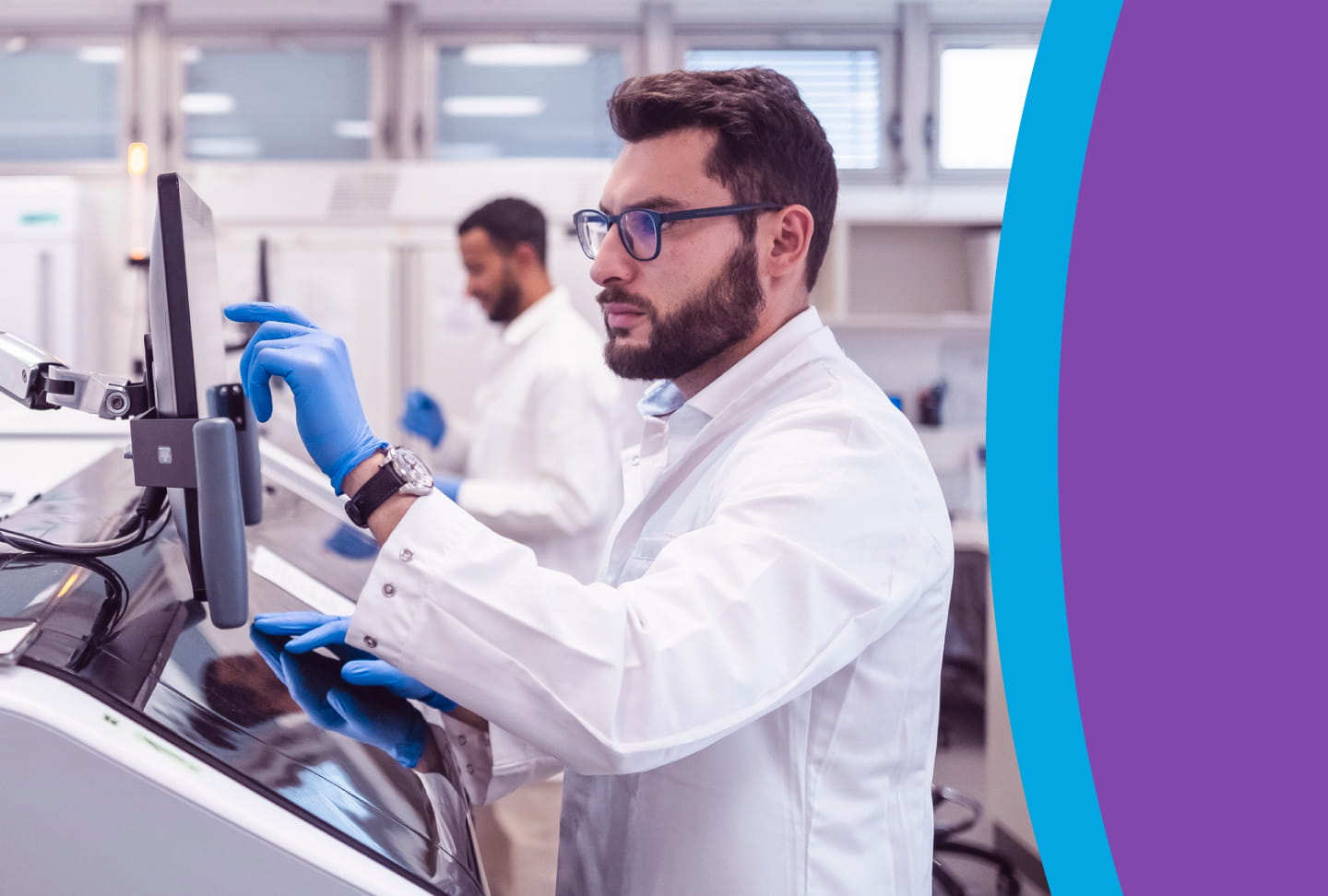
Wellstar MCG Health to Offer Blood Test That Can Detect More Than 50 Types of Cancer
In 2023, an estimated 610,000 people will die of cancer in the U.S. It’s the second leading cause of death in the nation, just behind heart disease.
That’s partly because detecting cancer early is essential to treating it. Yet recommended screenings like mammograms, Pap tests and colonoscopies only screen for a handful of individual cancers.
That’s why the new Galleri Multi-Cancer Early Detection (MCED) blood test being offered at Wellstar MCG Health Medical Center is revolutionary. It can detect more than 50 kinds of cancer using about 1.5 tablespoons of blood.
Dr. Brandy Gunsolus, who oversees pathology utilization for Wellstar MCG Health, said the vast majority of the cancers Galleri can detect don’t currently have any other type of screening method. This is particularly important for more lethal cancers that aren’t typically caught until later stages, she said.
“To be able to catch a Stage II or even a Stage I ovarian cancer or pancreatic cancer, which you typically don’t catch until Stage IV, is completely life-changing,” she said. “It gives patients an increased chance of survival.”
In addition to looking for cancerous cells to determine if cancer is present, the test can also indicate in which organ system the cancer likely started. This lets the doctor know which additional tests to perform to verify the presence of cancer, such as a CT scan of a patient’s lungs.
The Galleri test development was supported by what is believed to be one of the largest study programs in genomic medicine, with more than 20,000 participants at more than 140 clinical study sites, including the Mayo Clinic, Cleveland Clinic and Dana-Farber Cancer Institute. Its false-positive rate—the rate in which the test detects a cancer signal when there is no cancer present—is 0.5%.
Gunsolus said she started vetting the Galleri process this past spring. Wellstar MCG Health is the first hospital in Georgia to offer the test.
“It’s a process where pathology looks at the lab and the test itself to ensure it’s a legitimate test and not a scam,” she said.
While the test is a breakthrough, Gunsolus said she isn’t expecting high demand at the start because the test is not currently covered by insurance, although that’s expected to change in the next 12 to 18 months. The test is offered at a discounted rate of $799 for patients at Wellstar MCG Health. The regular price is $950 for patients outside of the health system. However, patients can use funds from their FSA or HSA to pay for the test, and a payment plan is available.
“Even though insurance doesn’t cover it yet, we wanted to go ahead and offer it for individuals like me who are very high risk,” she said. “This is a life-changing screen.”
Gunsolus said she plans to take the test because her four grandparents died from cancer, and her father has cancer.
“I’m willing to put out additional money until the test is covered because it’s not a matter of if I get cancer, but when,” she said.
The Galleri test is recommended for those 50 or older at elevated cancer risk. Those interested in taking the test can call (706) 721-9335.

Surgery Center of Columbia County and AU Health Imaging Transitioning to Wellstar Facilities
Effective November 2, 2024, Surgery Center of Columbia County and AU Health Imaging will be transitioning to Wellstar Outpatient Surgery Center Columbia County and Wellstar MCG Health Imaging Wheeler Road, respectively.
This change is part of Wellstar’s ongoing commitment to enhance the quality of care we provide and to ensure that our patients receive the most comprehensive and integrated care. As a result, patients will have greater access to a broader range of medical services, specialists, and advanced technologies within our hospital network.
While transitioning to a hospital-based entity will result in changes to the billing and payment process, it is our goal to make this transition as simple and convenient for patients as possible. Moving forward, patients will receive billing statements from two entities: Wellstar MCG (Hospital) for services rendered during treatment, and Wellstar Medical Group (WMG) for physician services. Our surgery and imaging services will stay at their current locations and our team members remain committed to providing world-class patient care and services to our community.
We encourage patients to contact their insurance carrier and/or Wellstar Customer Service at 956-STAR (770-956-7827) with any questions.
Thank you for entrusting Wellstar with your care. It is our privilege to serve you.
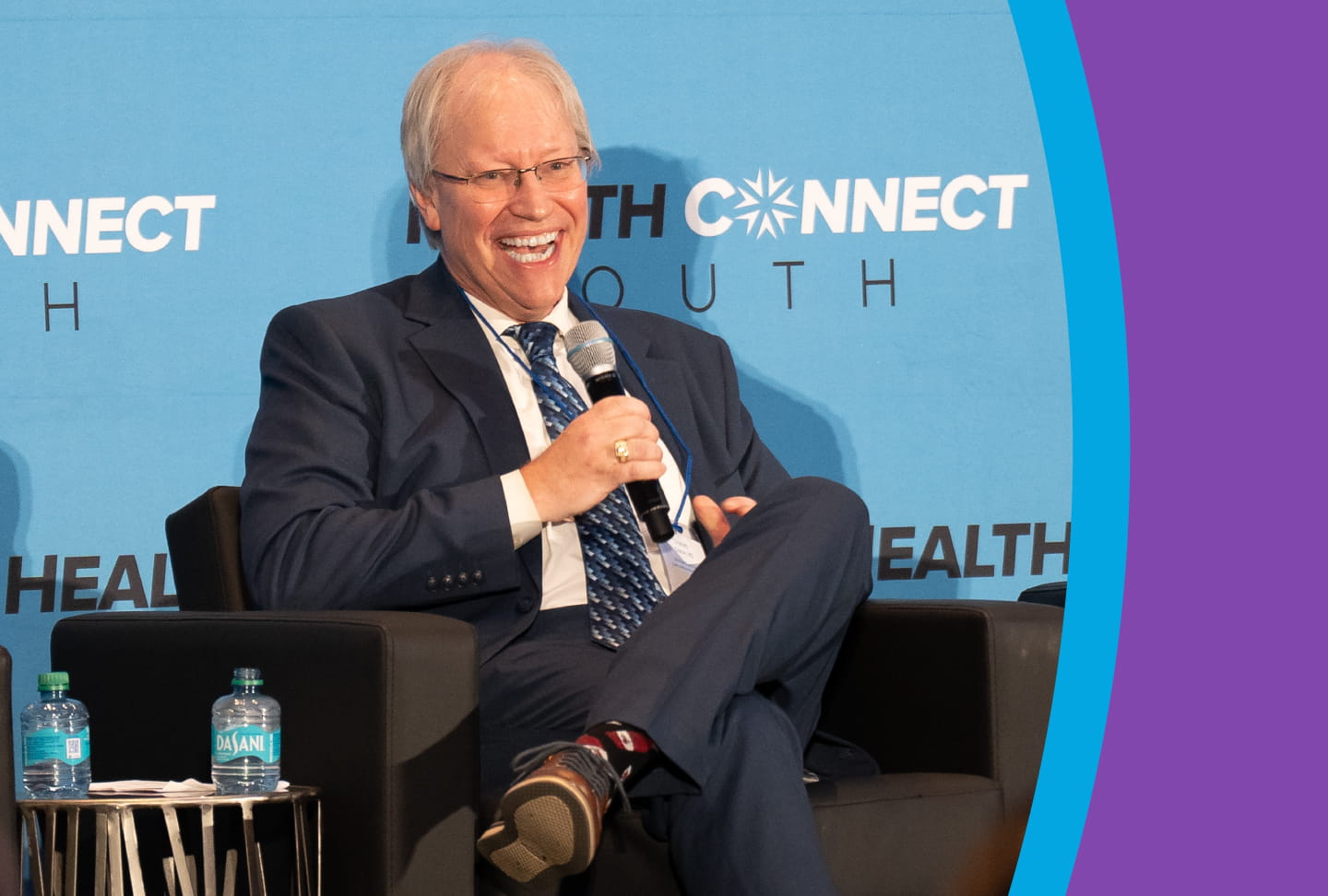
Wellstar Uses Innovation and Technology to Improve Healthcare: Highlights from Health Connect South Conference
At the recent Health Connect South conference, Dr. Charles Craton, Quality Medical Director of Primary Care at Wellstar Health System, participated in an impactful panel discussion titled “Driving Innovation in Your Backyard: Helping Local Startups Get Off the Ground.” The discussion brought together Dr. Craton and other medical experts to explore how innovation and technology are shaping healthcare access and outcomes across the state.
“Part of my role as the Quality Medical Director is to provide great evidence-based care, but I also want to make it easier on our primary care doctors and help reduce burnout,” Dr. Craton explained.
He highlighted Catalyst by Wellstar's pilot program, developed in collaboration with MapHabit, a company dedicated to helping individuals with cognitive disorders. The technology allows patients living with Alzheimer’s disease, intellectual and developmental disabilities, autism, and traumatic brain injuries to live more independently. After learning about MapHabit, Dr. Craton reached out for more information.
“We don’t have great tools for these conditions,” he said. “While we have medication to slow disease progression, this is a tool that can help a lot of people live a better life.” Matt Golden, CEO of MapHabit, was also a panelist. He discussed the growing prevalence of Alzheimer’s, asking audience members to raise their hands if they knew someone affected by the disease. Nearly 80 percent of attendants raised a hand.
“Ten years ago, you might have only had half that response, but unfortunately, Alzheimer’s disease is exploding as people live longer,” Golden shared.
The collaboration between Wellstar and MapHabit is a testament to Wellstar’s ongoing commitment to innovative care. The pilot program, currently taking place in Douglasville and through Population Health Managers, involves ten primary care physicians and 75 families from these practices. The study includes a diverse population, with 65% of study patients being African American, ensuring that the findings and benefits of the program are relevant and beneficial to a wide range of communities.
MapHabit is the first company to use the spared memory system through visual cues and applied behavioral analysis—proven habit-building techniques that benefit people with cognitive decline. The system allows caregivers to set up step-by-step guides for specific tasks they want their loved ones to learn. Patients can follow these visual steps and, over time, perform daily activities without thinking through each step, using a preserved area of the brain. This unique approach helps drive independence for neurodiverse individuals.
Dr. Craton shared that they are halfway through enrolling participants in the pilot, which serves as a proof of concept, and early results have shown improved outcomes. His vision is to see the tool implemented across the entire Wellstar system.
“My ultimate goal is to conduct a full study and publish comprehensive data,” Craton said.
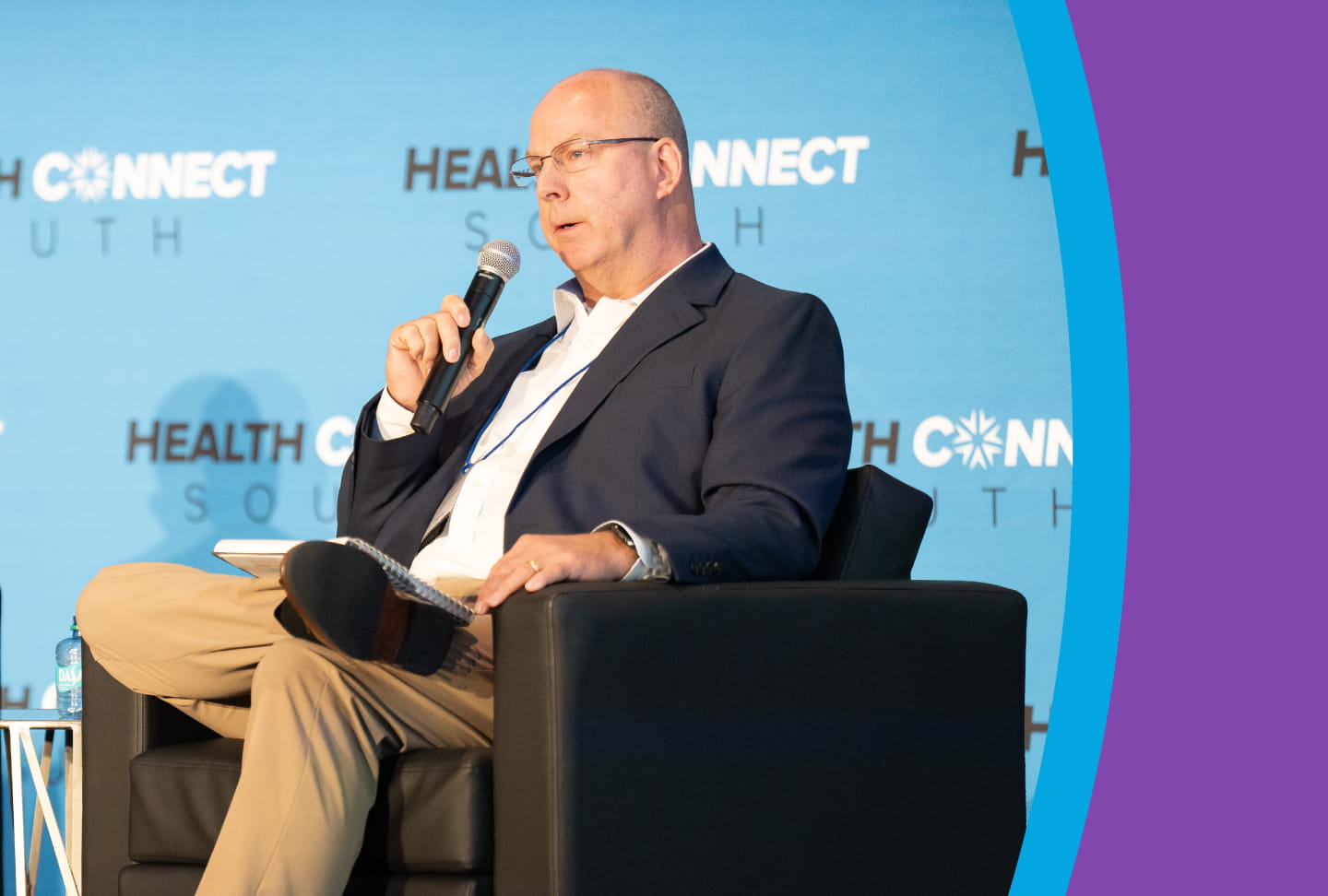
Wellstar Leads the Way in Using Technology to Improve Patient Experience
Wellstar’s commitment to safely streamlining the flow of information was among the highlights at a gathering that brought together more than 1,200 health leaders from across the South.
Bob Speakman, Wellstar’s VP and Chief Technology Officer, participated in a panel discussion titled, “The Rise of the Digitally Native Health Care Consumer” at Health Connect South’s annual event Wednesday at the Georgia Aquarium. Speakman gave insights into Wellstar’s partnership with CLEAR, the technology company that provides biometric travel document verification systems at airports and stadiums across the U.S.
In May, Wellstar became the first healthcare system to pilot a program that allows patients to efficiently check in for appointments using CLEAR’s technology integrated into Epic’s kiosks and tablets. The technology uses facial recognition to verify a patient’s identity and streamline the check-in process safely and reliably. Wellstar pioneered the development of this solution in partnership with CLEAR and Epic.
“Everything we’re doing is based around the patient experience,” Speakman said. “We’re trying to make things better, easier, less stressful. Our objective is to replace the clipboard.”
As patients of all ages become more comfortable with having technology at their fingertips, Wellstar continues to lead the way in exploring the application of smart-phone and other technology innovations in the healthcare setting.
During the gathering, Speakman also said he’s excited about healthcare innovations surrounding artificial intelligence.
“I’m excited about the AI stuff. It’s going to be a game changer,” he said.
Other participants in the Health Connect South panel discussion were David Bardan, General Manager and Head of Healthcare for CLEAR, and Dr. Priyanka Agarwal, Founder and CEO of HealthEx. Ryan Howels, Principal of Leavitt Partners, served as the moderator.
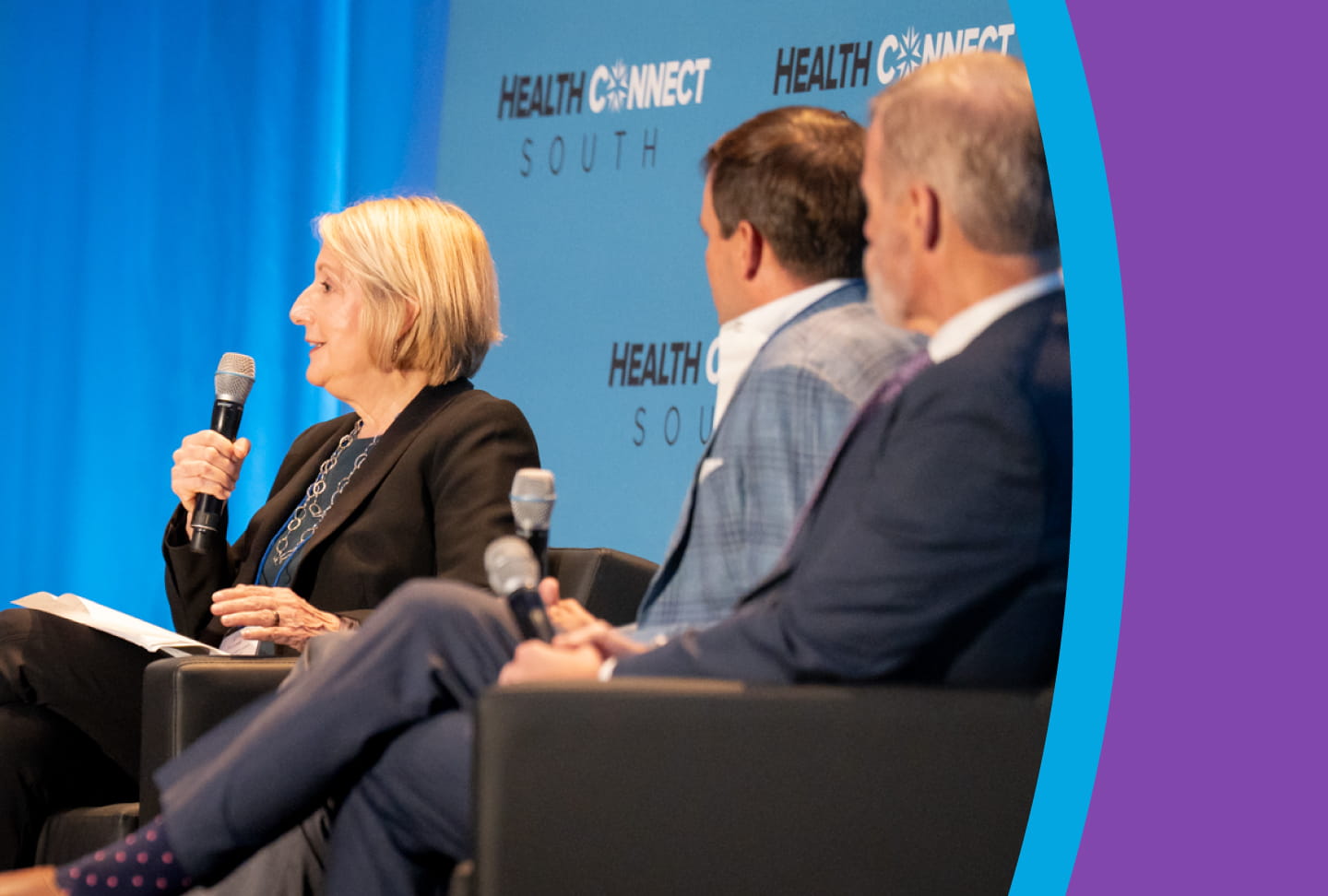
Improving Health Through Collaboration: Health Connect South 2024
Each year, leaders and innovators from across the Southeast come together at Health Connect South to discuss the health needs of our communities and how local systems and organizations can collaborate to address these needs. This year's event, held on September 18 at the Georgia Aquarium, convened healthcare, finance and community leaders to discuss shared solutions for challenges like healthcare accessibility, workforce shortages and health outcomes.
During a panel discussion with other healthcare leaders, Wellstar Health System President and CEO Candice L. Saunders explained how healthcare collaborations can improve access to care and workforce development, and the importance of leveraging technology and innovation to improve the lives of our communities.
"As we look at the future of healthcare, where we're going, what's happening in the healthcare industry from an overall cultural transformation and all the other opportunities and challenges that we face, we see a different future for healthcare— one that is much more holistic, more proactive," said Saunders.
Wellstar knows the importance of collaboration and has long worked with community partners and local systems to enhance the health and well-being of every person it serves across the region.
Last August, Wellstar announced a partnership with the University System of Georgia and the Medical College of Georgia (MCG) in Augusta to create Wellstar MCG Health. The organizations' shared vision for effectively addressing the unique needs of people and communities across Georgia has inspired several programs and initiatives to expand access to care and develop the healthcare workforce of the future.
"As we focus on our biggest problems and opportunities, we must use technology, including AI, to augment care and help our caregivers. But we also want to make sure we can make it more human. We can't forget the important human connection in health care, which we all need to protect," she continued.
Saunders also shared how leveraging innovative technology to advance telehealth has presented significant opportunities for Wellstar and Wellstar MCG Health to reach patients and clinicians in every corner of the state. Through the Rural Hospital Virtual Care Network, pioneered by Augusta University Health, rural hospitals can receive support from local systems like Wellstar for particularly challenging procedures. The network also helps address significant health disparities across rural Georgia, such as maternal and cardiovascular health.
The panelists also discussed the issue of recruiting and retaining clinicians to address the shortages health systems and hospitals have faced in recent years. According to the federal Health Resources Service Administration, Georgia currently has 21% fewer registered nurses than the state needs. The state is expected to see the second-highest shortage in the country by 2035. That's why, as Saunders shared, the Wellstar College of Nursing at Kennesaw State University, in partnership with Wellstar, is working to double the number of students in the next four years, ensuring a strong pipeline of new nurses to address the shortages we continue to see.
"You must have partners; the health systems cannot do this alone. And how do we help people continue to learn and grow? We know that it is not only really good for patient care but also good for business," Saunders continued.
Through Wellstar's partnership with MCG and other state medical colleges and universities, work is underway to expand residency programs to educate hundreds of future clinicians statewide. Students at MCG will also be trained to use Epic, ensuring they are prepared to use the latest digital tools as technology continues to evolve and drive innovation in care delivery.
Wellstar team members also have significant opportunities for professional development and advancement, such as the CareerCare program, which provides funding for tuition in select healthcare career pathways and expands professional development, education and growth opportunities.
Wellstar is proud to partner with organizations across the state to meet Georgians' healthcare needs now and for years to come. Together, these organizations can create the healthcare workforce of the future, leverage technology to increase affordability and accessibility of care, and improve the health of the patients and communities they serve.

Leading healthcare institutions in the Central Savannah River Area (CSRA) have joined forces to enhance collaboration and address critical healthcare needs in the region. The inaugural meeting of the CSRA Healthcare Leadership Council convened Dec. 12, 2023.
Comprising the top executives from the area’s foremost hospitals, the council includes Ralph Turner, president of Wellstar MCG Health Medical Center; Joanna Conley, chief executive officer of Doctors Hospital; Lily Henson, chief executive officer of Piedmont Augusta; and Robin Jackson, medical center director of the VA Augusta Health Care System.
Wellstar MCG Health’s Ralph Turner emphasized the significance of collaboration among healthcare leaders. “Sometimes there’s a focus on competition among hospitals, but we have a common goal of wanting to take care of the people in our community.”
Joanna Conley added: “At Doctors Hospital, our mission is that, above all else, we are committed to the care and improvement of human life. By convening regularly, we can strengthen our partnership and elevate the level of care across the CSRA.”
Robin Jackson of VA Augusta Health Care System said the council is about sharing resources, knowledge and best practices. “Quality healthcare doesn’t happen in isolation. It starts with partnership. The communication and collaboration coming out of the CSRA Healthcare Leadership Council will only strengthen the quality of care we deliver to local veterans and the wider community.”
The group’s monthly meetings will focus on recurring topics such as community health and emergency preparedness for the area.
“Piedmont Augsuta is creating real change across Georgia, in part through partnerships that empower our communities with education and access to seamless, hassle-free, high-quality care,” said Lily Henson. “By embracing the future and exemplifying teamwork and connections, we can make a positive difference in every life we touch.”
The council’s monthly meetings will rotate among participating facilities, fostering inclusivity and equitable engagement. These gatherings will serve as forums for discussing pressing healthcare issues and identifying collaborative opportunities to enhance patient care and community well-being.
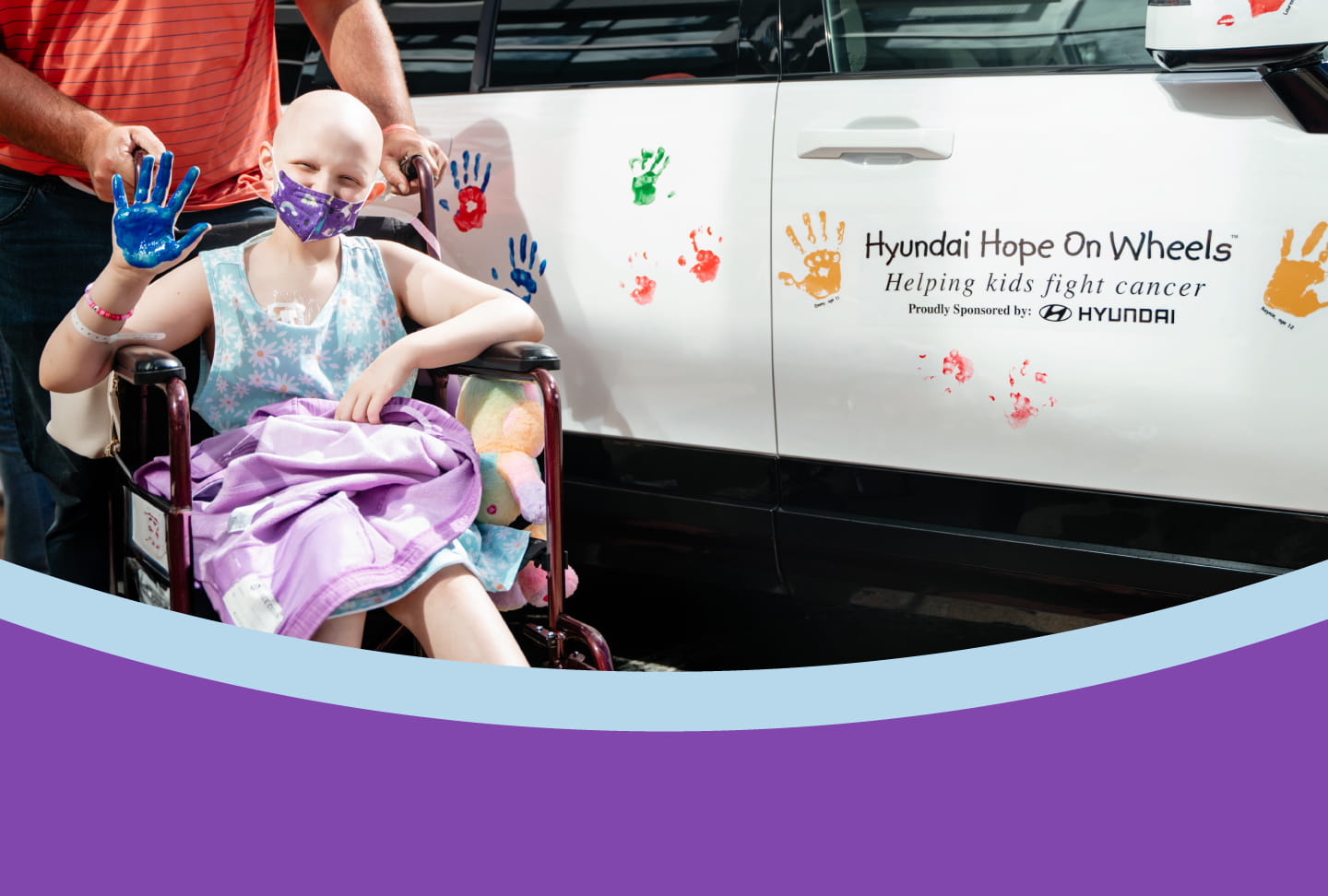
Hyundai Hope on Wheels Awards $400,000 Grant for Pediatric Cancer Research at Wellstar Georgia Cancer Center & Children's Hospital
AUGUSTA, Ga. (Aug. 8, 2024) – With courage that belies her 15 years, Harper Mathis stepped to the podium at Wellstar Children’s Hospital of Georgia and spoke to visitors from Hyundai, Wellstar Health System, Wellstar Children’s, Wellstar Georgia Cancer Center and Augusta University. When she finished, there wasn’t a dry eye in the house.
“This is my second chance at life,” she told them. “Without this trial, I don’t know if I would be here today. I just got the best MRI I’ve gotten in a while.”
On Thursday, Harper and other patients at Wellstar Children’s made their mark for kids battling cancer across the country by pressing their paint-covered hands onto white stickers, which were then placed on a new white Hyundai Santa Fe. The effect is a custom handprinted paint job to commemorate Hyundai Hope on Wheels’ $400,000 grant for pediatric cancer research.
Each year, Hyundai Hope on Wheels visits children’s hospitals across the U.S. to donate a two-year Scholar Hope grant to researchers working to improve outcomes and treatments for children diagnosed with cancer. The annual event also raises awareness for pediatric cancer research.
The $400,000 Scholar Hope grant will fund Dr. Ted Johnson’s research project titled, “Novel measurement of molecular immune activation to predict response to pediatric immunotherapy.” Dr. Johnson is a pediatric hematologist-oncologist at Wellstar Children’s and co-director of the Pediatric Immunotherapy Program at Wellstar Children’s and Wellstar Georgia Cancer Center.
Dr. Johnson and his research team are working to define the mechanisms that suppress the body’s immune response and allow tumor survival, so they can identify ways to counteract those processes and fortify the immune system to fight the tumor instead.
“This grant represents another critical pledge in our fight against pediatric brain tumors,” Dr. Johnson said. “This investigation is important because the more we understand about how these tumors quietly advance, the closer we will get to developing better treatments and therapies. This could positively impact care for children with brain tumors by improving their quality of life.”
This is the fourth Hyundai grant awarded to Dr. Johnson, who has received a total of $925,000 in Hope on Wheels funding since 2011 for his pediatric immunotherapy studies. The current Scholar Hope grant will fund research to measure the immune system’s activation and response to pediatric immunotherapy.
Harper and her family, who are from Michigan, have spent nearly six months at Wellstar Children’s to participate in the study.
“It means the world to me that Dr. Johnson has made his life all about this trial because I needed it so badly and so do other kids,” Harper said. “So many people don’t understand how meaningful this all is and how grateful and thankful we are."
Hyundai Hope on Wheels is a nonprofit organization committed to finding a cure for childhood cancer. The organization provides grants to eligible institutions nationwide that are pursuing critical research aimed at improving treatments and saving lives.
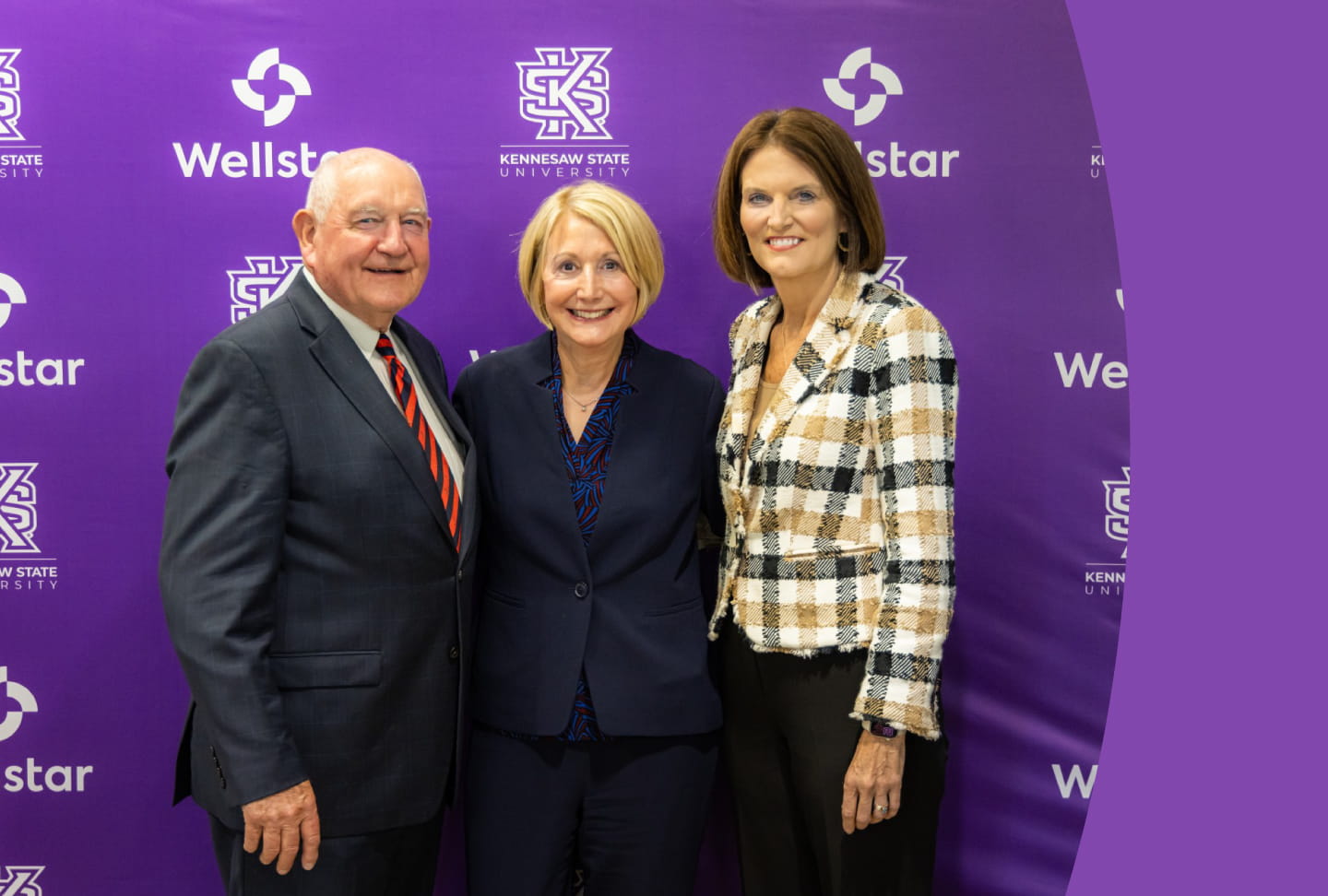
Wellstar Commits $25M to Expand Partnership with Kennesaw State
KENNESAW, Ga. (Aug. 13, 2024) — Kennesaw State University (KSU) and Wellstar Health System (Wellstar) today announced a new collaboration to support the health, wellbeing, and performance of KSU student-athletes. The partnership has three main components:
Today’s agreement builds on a longstanding partnership between the two institutions. Wellstar manages the University’s on-campus student health clinics and is the named donor of KSU’s Wellstar College of Health and Human Services and its Wellstar School of Nursing. In 2020, Wellstar made a $9 million funding commitment to help KSU double enrollment in its Bachelor of Science in Nursing program, which is helping meet Georgia’s urgent need for nurses.
“We are grateful to Wellstar for their continued generosity and support of Kennesaw State’s mission,” said KSU president Kathy S. Schwaig. “Their latest contribution comes at an exciting and pivotal time for the University, and it will further strengthen our ability to train the next generation of healthcare providers, as well as to support athletic programs that will benefit our students for years to come.”
“We congratulate Kennesaw State for growing its healthcare programs and expanding its medical research,” said Candice L. Saunders, president and CEO of Wellstar Health System. “We appreciate the opportunity to take an active role caring for our community’s athletes and providing the next generation of athletes with opportunities to improve their physical and mental wellness, on and off the field.”
Subject to approval by the Board of Regents of the University System of Georgia, the Sports Performance Complex and the Sports Medicine and Training Center will provide comprehensive services to more than 450 student-athletes, including injury prevention and treatment, physical therapy, and hydrotherapy, and will contain a strength and conditioning suite, training table, locker rooms, and new weight room. In addition, the complex will provide a new home for KSU’s football program with team and position meeting rooms, coaches’ offices, and a team locker room.
Wellstar’s funding will also support the creation of the Center for Research on Human Sport Performance and Wellbeing in the Wellstar College of Health and Human Services. The center will engage in research and teaching that explores technological methods to improve sport performance and athletes’ overall well-being.
Officials from KSU and Wellstar celebrated the agreement at a signing ceremony held on the Kennesaw campus, which comes 10 months after the University launched its most comprehensive fundraising campaign, The Campaign for Kennesaw State.
KSU competes in NCAA Division I in eight men’s sports and 10 women’s sports. Since joining Division I in 2005, KSU has won 61 conference championships across a range of women’s and men’s sports.
Earlier this month, KSU assistant coach Daniel Haugh competed in the Summer Olympics in Paris in the hammer throw, becoming the first former student-athlete in Kennesaw State’s Division I history to compete in the Olympics twice. Current student Emma Hunt competed in the Paris Olympics in sport climbing. Other recent success has included the KSU men’s basketball team making a memorable March Madness run to the NCAA Tournament in 2023, and track and field standout Isaiah Rogers winning the national championship in the weight throw.

Wellstar Urgent Care Clinic in Stockbridge to Transition Operations to Southside Medical Center Sept. 3
Effective Sept. 3, Southside Medical Center will assume operations of the Wellstar Urgent Care clinic in Stockbridge. The Wellstar Stockbridge urgent care location will remain open through Thursday, Aug. 29, before transitioning operations to Southside and reopening on Sept. 3.
There will be no loss of services. After Sept. 3, Southside will continue to provide urgent care services and, in the future, expanded primary care services like immunizations and annual wellness visits will also be available. Patients will notice new signs and new staff but will continue to receive the same high-quality care from our partners at Southside that they have come to expect at this location.
We have kept our patients top of mind throughout this process, developing a thorough communications plan to notify them of this change. We will reach out to patients in the community to provide more information about this change through signage, postcards and electronic messages.
As part of this next phase of our partnership, Wellstar is contributing nearly $1 million in operational funds and donating medical equipment to ensure a successful transition of care in Stockbridge. We are committed to working closely with the Southside team to ensure a smooth transition of care.
The clinic will continue to be open seven days a week from 8 a.m. to 7:30 p.m. Urgent care services are available via appointment or walk-in and care will continue to be provided to all patients regardless of their ability to pay.
We appreciate the opportunity to serve as your healthcare partners, and we hope you will continue your care with us after this transition. Thank you for entrusting us with your care.
For more information on Southside Medical Center, visit SouthsideMedical.net.

Playing it Safe Ahead of the 4th of July Holiday
As we look forward to the 4th of July holiday, fireworks, swimming, and grilling offer plenty of fun summer activities for families across Georgia. However, it's important to be cautious with fireworks, which can quickly turn your Independence Day celebrations sour. While public fireworks displays have safety measures to protect us, fireworks at home may be less safe, especially for kids!
According to the United States Consumer Product Safety Commission, over 10,000 individuals were treated in ERs for fireworks-related injuries in 2022, 38% of which were burns.
With summer camps in full gear and celebrations right around the corner, Wellstar sat down with Dr. Danny Branstetter, the chief medical officer of Wellstar Kennestone Regional Medical Center, and Dr. Joanna Dolgoff, a Wellstar pediatrician and representative for the American Academy of Pediatrics, to learn their safety tips for staying safe while we celebrate this holiday.
According to Dr. Dolgoff, "The most common injury from fireworks is a hand burn. But it can be worse, such as a hand fracture, cuts, or gashes, or even the loss of a finger," Dr. Dolgoff continued. "Facial injuries, including burns and eye injuries, are also common. If you're going to handle fireworks, please be very careful."
We can be so caught up in the excitement of summer that we don't realize there are other seasonal injuries we should be careful to avoid. Dr. Branstetter reminds us that we see more water injuries like drownings and near drownings, water ski and boating accidents, and even head, neck and spine injuries from diving in shallow water.
He went on to share that with extreme heat, we should plan ahead to avoid heat-related exhaustion, stroke, and sunburns. And to be careful to prevent burns from items that can get hot from the summer sun, like playgrounds and seat belts.
And let's not forget those pesky summer critters, "insect and plant illnesses – from mosquito bites and allergic reactions to poison ivy, bee stings and snake bites."
As a pediatrician, Dr. Dolgoff often works with new parents who wonder if sparklers are safe. She stresses that parents should "not underestimate the danger of sparklers. Sparklers burn at about 2,000 degrees Fahrenheit, which is hot enough to melt some metals. They account for a high percentage of injuries, emergency room visits, and fires every year. The sparks can cause burns and eye injuries." And she added, remember to soak all sparklers in a bucket of water before throwing them away!
If your family plans to participate in holiday activities, remember the word FIRE with these essential safety tips!
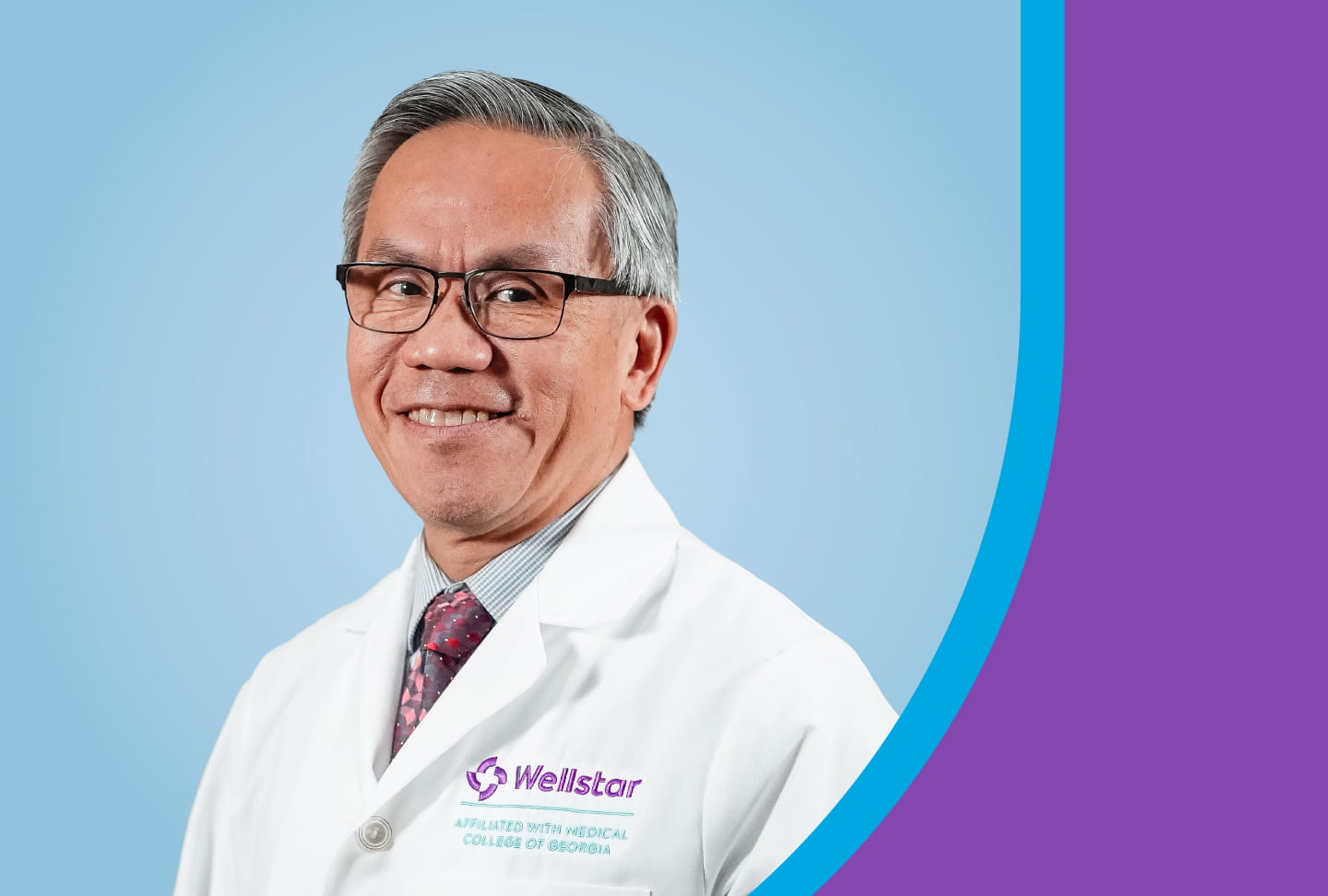
Meet Dr. Angello Lin, New Section Chief of Transplant Surgery at Wellstar MCG Health
Dr. Angello Lin, the new transplant surgery section chief at Wellstar MCG Health Medical Center, had a light bulb moment when he took three years off during his 23-year tenure as a surgeon at the Medical University of South Carolina.
He took a break to spend time in Savannah with his father, who had turned 90 and was having health issues. During that time, Dr. Lin had time to think and realized that although he had become a transplant surgeon because the work seemed dynamic, his work had not been very dynamic lately. He had been solely focused on performing the transplantations and taking care of patients for 14 years.
“I started to wonder if I could add some dynamism back by finding different and better ways to do a transplant,” he said.
The break served him well as Dr. Lin went on to become the first surgeon to successfully connect a pancreas and a kidney before putting it into the patient’s body, rather than putting them in separately. Implanting them as one organ with one arterial inflow and one venous outflow reduced the patient’s time in the operating room from four to six hours to two to three hours, making the procedure safer and giving patients the potential for a quicker recovery.
Dr. Lin, who graduated from Emory School of Medicine, found a renewed sense of purpose in innovation in surgery and decided he wanted to work at a hospital that would encourage his innovation. That led him to Wellstar MCG Health’s transplant center, which has received grants from the Mason Trust Foundation to enhance transplant research, education and patient care. The transplant center also performed a record 105 kidney transplants last year. “The surgery department here is very supportive of me trying new ways of doing things, and I was drawn to that,” he said.
Dr. Lin joined the hospital in February and is already working on a pilot project that infuses therapeutics that will hopefully reduce injuries to kidneys after transplantation from ischemia repercussion. He will also help the transplant center restart its pancreas transplant program.
Dr. Lin spends his time outside the hospital with his wife and three daughters: Jasmine, 24, who plans to go to medical school; Camille, 21, who is studying to become a pilot; and Abigail, 13, who is in eighth grade.
Born in Taiwan, Dr. Lin moved to Tybee Island as a teen and later graduated from Emory with a bachelor’s in chemistry. He first became interested in transplant surgery during his general surgery rotations as a fourth-year resident when he saw the difference transplantation made in patients’ lives. One story that stands out to him was when he was taking care of a retired chemistry professor, a liver transplant recipient who was near death. Although the patient was depressed, he told Dr. Lin about himself, including his favorite movie—"Dead Poets Society”—and about his dream to travel the world. The next day, Dr. Lin came into the patient’s room, stood on a chair and recited the famous poem from the film to encourage the patient.
“O Captain! my Captain! rise up and hear the bells,” he said. “Rise up—for you the flag is flung—for you the bugle trills.”
The patient went on to recover and sent Dr. Lin postcards from his travels around the world.
“After a successful kidney transplant, patients are so grateful and will say, ‘I can go to the bathroom again!’” he said. “They are excited to be able to do the everyday things our bodies do that we take for granted. It’s very touching.”
Following residency, Dr. Lin became the first trainee to complete Emory’s transplant fellowship in 2000.
Now Dr. Lin estimates he’s performed over 1,500 transplant surgeries. The most difficult part of the job remains working around the nationwide organ shortage. He has to be ready to drop everything when an organ is ready to be donated and, sadly, he also has to tell patients that they are at the mercy of the waitlist.
“They look to us to be the miracle workers, and some days we come close,” he said.
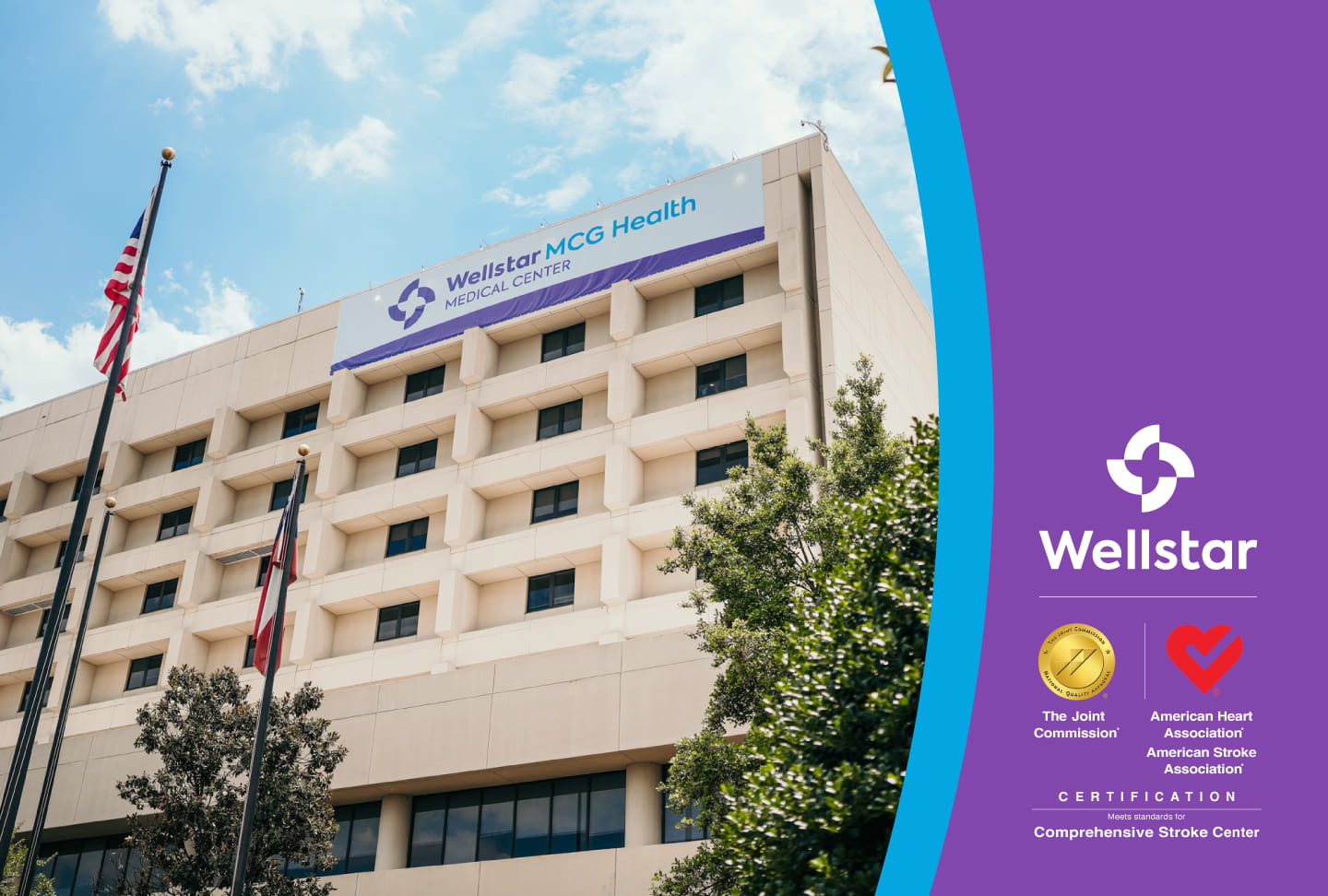
Wellstar MCG Health’s Stroke Center Renews its Best-in-Class Certification
Georgia’s oldest comprehensive stroke center at Wellstar MCG Health Medical Center was approved by The Joint Commission to renew its best-in-class certification.
The healthcare accrediting body has four advanced stroke certifications. Wellstar MCG Health has once again earned its most demanding certification—the Comprehensive Stroke Center (CSC) certification—which was designed for hospitals that can treat complex stroke cases.
Wellstar MCG Health’s stroke center, which provides care to a thousand patients annually, was the first hospital in Georgia to get the CSC certification when it was first offered in 2013.
Every two years, the program must get recertified, a process that requires surveyors from The Joint Commission to visit the center to observe practices and collect data, such as complication rates.
This year, two surveyors spent two days in April doing a comprehensive review of the stroke center.
Dr. Scott Rahimi, neurosurgical director of the stroke center, said this year’s review was the best they’ve had since becoming a CSC in 2013.
“This year we took care of more stroke patients than any other facility in the CSRA,” he said.
Eight hospitals in Georgia have the CSC certification, including Wellstar Kennestone, Wellstar MCG Health and Wellstar North Fulton Medical Centers, but Wellstar MCG Health is the only in the region with the advanced certification, said Stroke Program Manager Amanda Howard.
“This particular survey was very rewarding and made it worth all the hard work we do taking care of patients,” she said.
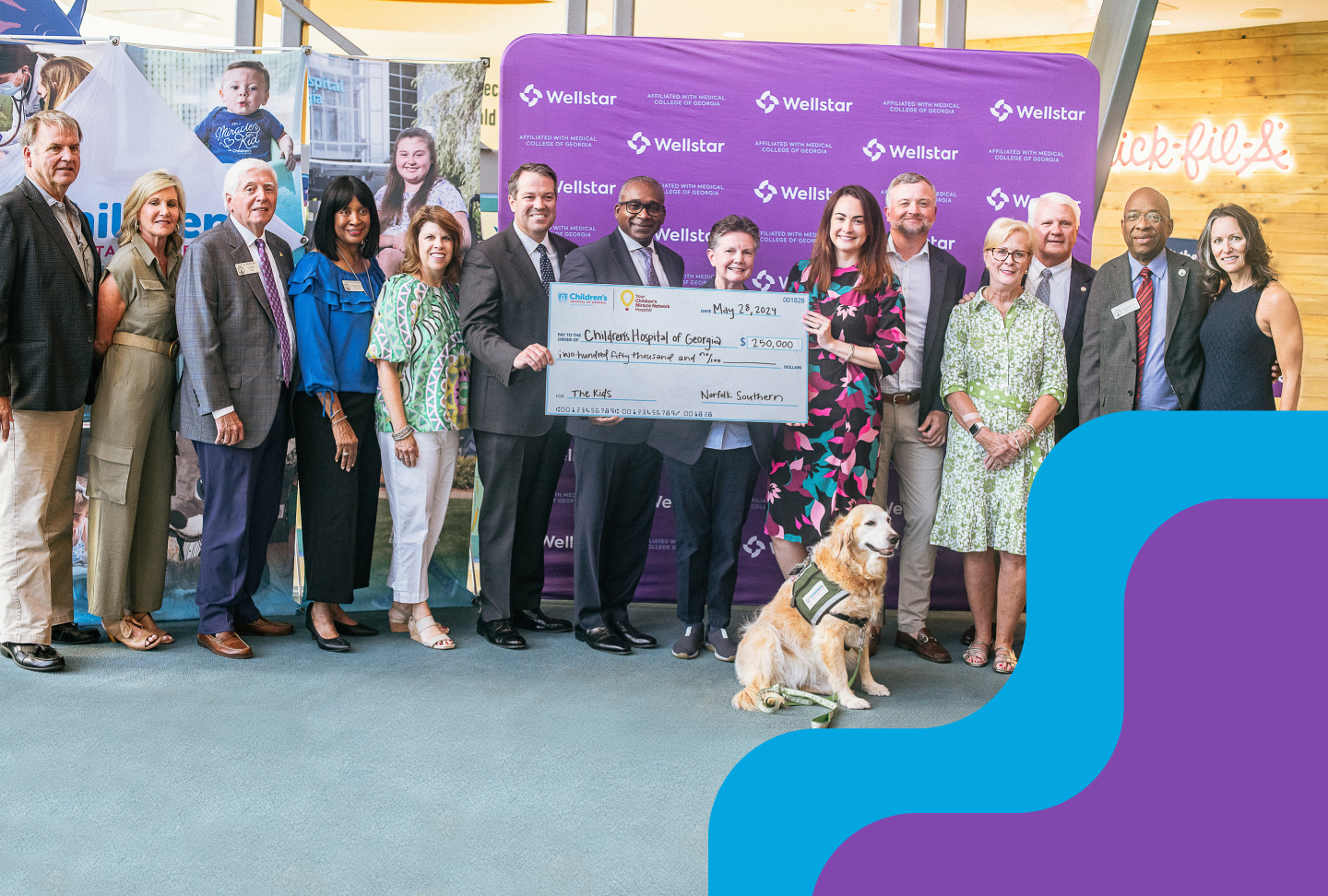
Norfolk Southern Donates $250,000 to Children’s Hospital of Georgia to Support Pediatric Behavioral Health
Representatives from Norfolk Southern, members of Wellstar Children’s Hospital of Georgia Philanthropy Board and Georgia Speaker of the House Jon Burns were all in Augusta to present Wellstar Children’s Hospital of Georgia with a donation of $250,000.
The funds will be used to support the Kisner Foundation & Friends Center for Pediatric Development, Behavioral Health and Wellness, which is expected to begin construction this fall. The center will bring together a variety of pediatric mental and behavioral services already offered at Wellstar Children’s Hospital of Georgia in partnership with Augusta University into one location. It will offer a multidisciplinary approach to care tailored to each child’s needs and will include services like testing and evaluation; referrals for psychotherapy and mental health services; physical, occupational and speech therapy; and connections for parents to ancillary services.
“Norfolk Southern is honored to support Wellstar Children’s Hospital of Georgia with a $250,000 donation for the vital development of a mental and behavioral health center. Our commitment to investing in initiatives that build strong, thriving communities aligns perfectly with the hospital’s mission to provide top-tier pediatric care. We believe that enhancing mental health services for children is a critical step toward fostering overall well-being and resilience for future generations,” said Kristin Wong, director corporate giving at Norfolk Southern.
The center will cost about $6 million to build. Along with construction costs, donations are used for programs already in place that will move into the completed center, such as testing materials for autism, learning disabilities and developmental delays.
“We offer those services now, but they’re scattered across our campus. We envision a place where we can bring these services together to make it more convenient and more accessible for our patients and their families. The money you’re donating today is going to help us move forward faster with that renovation,” said Wellstar Children’s Hospital of Georgia Pediatrician-in-Chief Dr. Valera Hudson.
Hudson, who is also the department chair of pediatrics at the Medical College of Georgia at Augusta University, emphasized that Wellstar Children’s Hospital of Georgia, and thereby the Kisner Center, will serve children in Augusta and across Georgia.
Jon Burns, the Speaker of the House for the Georgia House of Representatives, thanked Hudson for her tireless efforts to serve children across the state and pledged to continue his support for initiatives that improve the mental healthcare for children. He also thanked his wife, Dayle, and fellow Wellstar Children’ Hospital of Georgia philanthropy board members King and Beth Rocker for their efforts in helping to facilitate Norfolk Southern’s support, as well as board member Carol Parrish and state representatives Jodi Lott, Gloria Frazier, Butch Parrish and Karlton Howard.
“Public dollars can’t do it all. It takes partnership between the private sector and the public sector,” he said. “It takes a group of people working together to get things done.
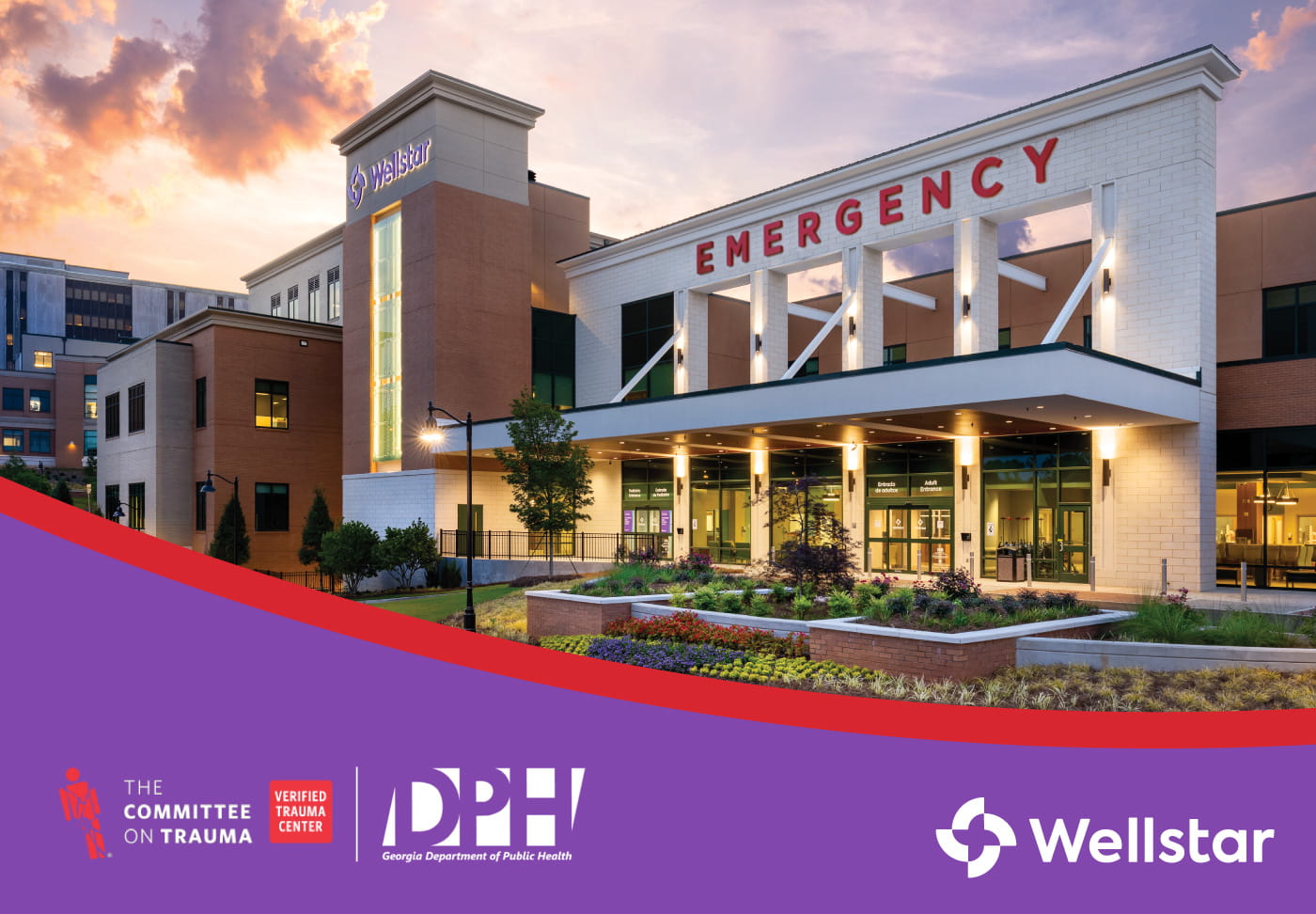
Wellstar Kennestone Regional Medical Center Designated a Level I Trauma Hospital
MARIETTA, Ga. (May 31, 2024) – Wellstar Kennestone Regional Medical Center has achieved the prestigious Level I Trauma Center verification from the American College of Surgeons and designation from the Georgia Department of Public Health State Office of EMS and Trauma. The ACS verification is the gold standard for trauma centers nationwide.
Each hospital verified by the American College of Surgeons as a Level I Trauma Center must demonstrate that it provides the highest level of trauma care. The evaluated criteria range from prevention through rehabilitation across the broadest spectrum of injuries, as well as academic research that helps improve trauma outcomes.
“Wellstar strives to provide compassionate, world-class care to every person, every time. The designation of Wellstar Kennestone Regional Medical Center as a Level I Trauma Center further strengthens the network of quality trauma care that exists across Metro Atlanta and Georgia,” said Candice L. Saunders, President and CEO of Wellstar Health System.
Level I verification requires consistently delivering a high level of clinical expertise for a wide range of severe injuries at all times, and further improves patient outcomes through trauma research and education.
The Wellstar Trauma Network is the largest integrated trauma network in the State of Georgia with two Level I trauma centers (Wellstar Kennestone and Wellstar MCG Health Medical Centers), one Level II (Wellstar North Fulton Medical Center), one Level III (Wellstar Cobb Medical Center), and three Level IV (Wellstar West Georgia, Wellstar Paulding and Wellstar Spalding Medical Centers), along with a Pediatric Level II Trauma Center (Wellstar Children’s Hospital of Georgia at Wellstar MCG Health Medical Center) in Augusta.
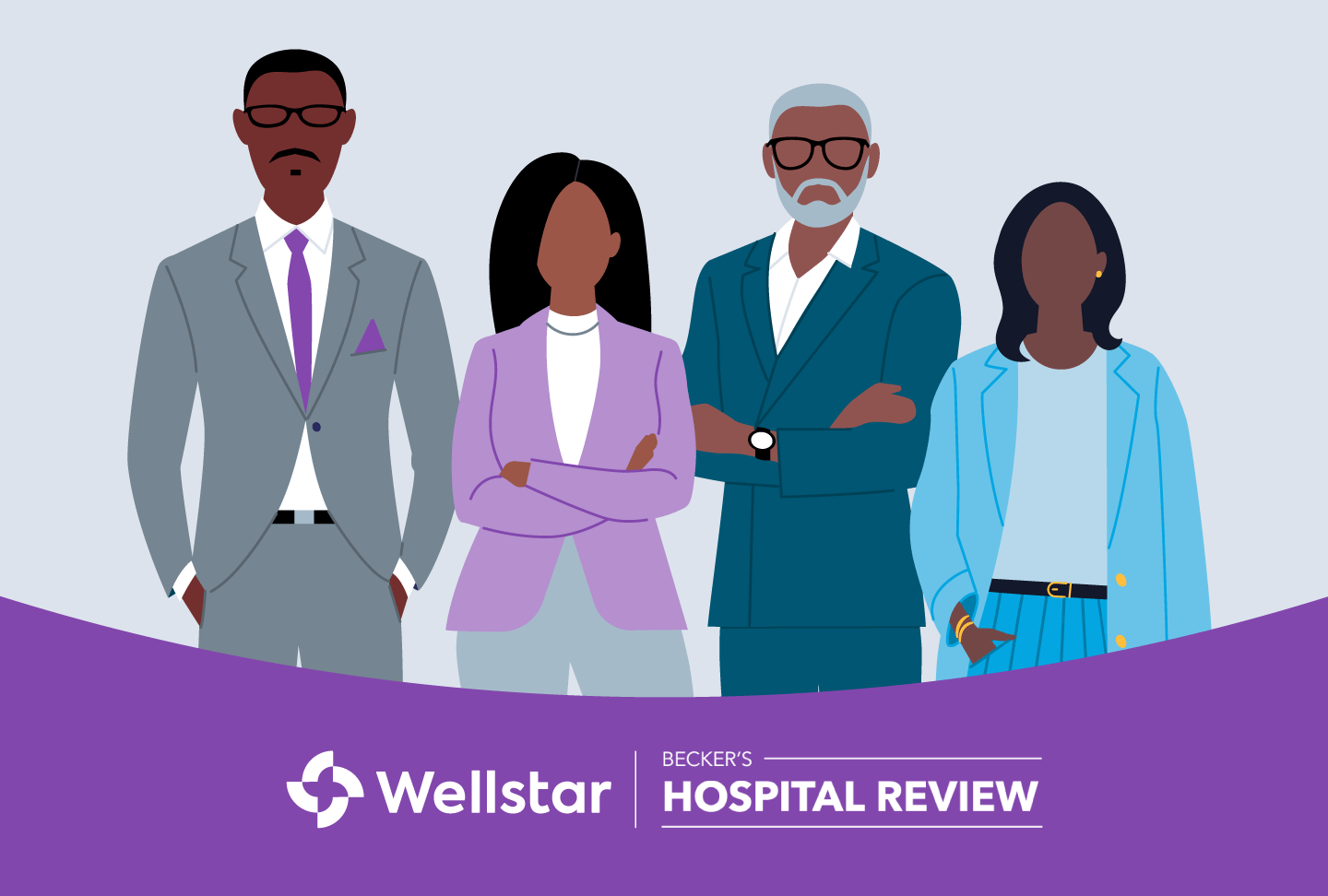
Becker’s Hospital Review Recognizes Black Healthcare Leaders to Know for 2024
Wellstar is proud to celebrate four of our leaders who have been selected for Becker’s Black Healthcare Leaders to Know. Becker’s Hospital Review is one of the hospital industry’s leading publication for insights and information.
At Wellstar, we value the unique perspectives, backgrounds, and ideals of all who come through our doors. By leveraging our similarities and differences, collectively, we create healthier communities. Our engaged and diverse workforce learns and grows while providing our patients with world-class healthcare.
Join us in congratulating our recognized leaders: Le Joyce Naylor, senior vice president and chief diversity, equity and inclusion officer, David Jones, executive vice president and chief human resources officer, Mary Chatman, RN, PhD, executive vice president of Acute Care Operations, and Ralph Turner, president of Wellstar MCG Health.
Le Joyce Naylor. Senior Vice President and Chief Diversity, Equity and Inclusion Officer at Wellstar Health System (Marietta, Ga.). Ms. Naylor offers systemwide thought leadership, strategic thinking and program direction for Wellstar Health System's diversity, equity and inclusion initiatives. Her responsibilities include the design and implementation of programs to advance diversity efforts, achieving measurable outcomes and leading the health system's diversity and inclusion advisory council. Among her many accomplishments are the formation of 11 business resource groups, the recalibration of 11 diversity and inclusion councils, and the engagement of team members in inclusive virtual and in-person conversations about everyday topics.
David A. Jones. Executive Vice President and CHRO at Wellstar Health System (Marietta, Ga.). Mr. Jones is executive vice president and CHRO for Wellstar. In this role, he has overall systemwide responsibility for establishing, enabling and maintaining organizational effectiveness and a positive employee relations environment. He is responsible for providing senior executive leadership and oversight for the delivery of HR solutions to the business, including human capital strategy, culture design and change management, team effectiveness, workforce planning, performance management planning, succession management, diversity and inclusion, and employee relations. Previously, he served as CHRO at Stanford University and Oakland, Calif.-based Kaiser Permanente's senior vice president of national human resources. Mr. Jones' nearly 30-year career in human resources has spanned across the healthcare, academic and corporate sectors.
Mary Chatman, RN, PhD. Executive Vice President at Wellstar Health System (Marietta, Ga.). Dr. Chatman's leadership and collaborative work ethic can be seen throughout the health system. She manages a team of more than 10,000 staff members. Dr. Chatman is a seasoned leader with over 30 years of healthcare experience.
Ralph Turner. Senior Vice President and Hospital President of Wellstar MCG Health (Augusta, Ga.). Mr. Turner was appointed as Wellstar MCG Health president in April 2024. He assumed the role after serving on an interim basis. Wellstar MCG Health includes a 478-bed adult hospital, 154-bed Children's Hospital of Georgia, the Georgia Cancer Center, and over 80 outpatient clinics. Prior, he served as senior vice president and president for Hiram, Ga.-based Wellstar Paulding Medical Center since 2022.
Congratulations to our leaders!
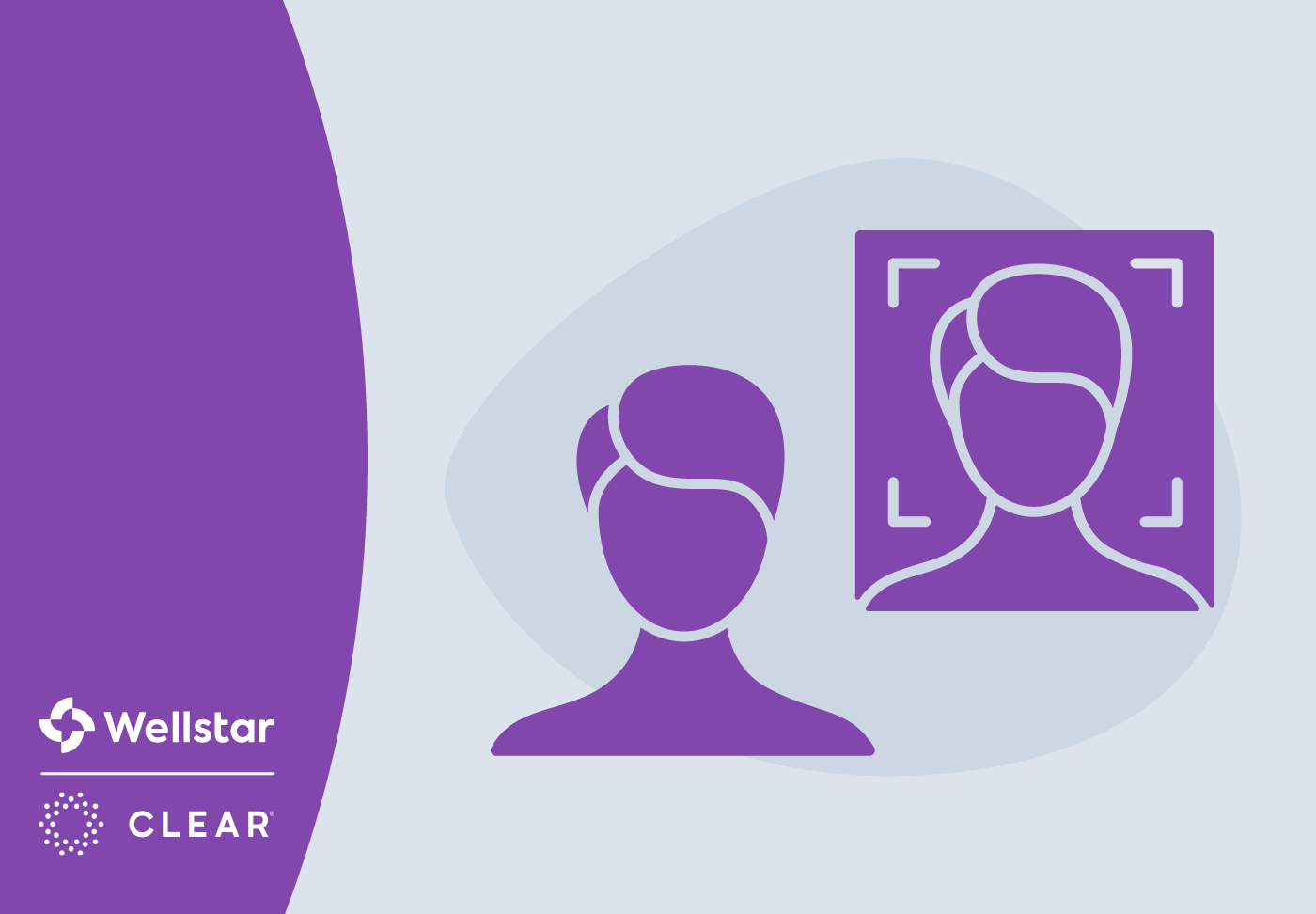
Wellstar Transforms Patient Check-in with CLEAR
Wellstar and CLEAR are launching an initiative that simplifies and speeds up the patient check-in process.
Wellstar patients who opt-in to use this free service can verify their identity with CLEAR before their appointment to simplify check-in once they arrive. It only requires two steps:
Why CLEAR?
CLEAR’s technology is trusted and secure. At the heart of this first-of-its-kind partnership is CLEAR's pioneering integration with Epic, a leader in the electronic health records market, to power seamless patient registration and on-site check-in. Wellstar co-developed the integration and is the first health system to utilize the CLEAR Verified technology application.
“Identity is foundational to making patient experiences safer, easier and more efficient in healthcare,” said CLEAR CEO Caryn Seidman Becker. “CLEAR’s collaboration with Wellstar and Epic will bring frictionless and secure check-in for patients. With the launch of this seamless experience, CLEAR is one step closer in our effort to replace the clipboard in healthcare.”
CLEAR’s identity platform is secure and HIPAA-compliant, and many patients may already be familiar with the technology. It’s used locally at Hartsfield-Jackson Atlanta International Airport and State Farm Arena.
Keeping care convenient
This new check-in option reflects the Wellstar vision of delivering world-class healthcare to every person, every time.
“Our patients’ time is precious. Introducing CLEAR’s proven, secure technology will help make the check-in process even more efficient and safe,” said Dr. Hank Capps, executive vice president and chief information and digital officer for Wellstar. “We are committed to building an ecosystem of care that includes technologies that have never been used in healthcare. When combined with compassionate care from Wellstar clinicians, we will deliver a truly world-class experience.”
CLEAR check-in is available at:
Register now and try the experience at your next appointment: clearme.com/wellstar.
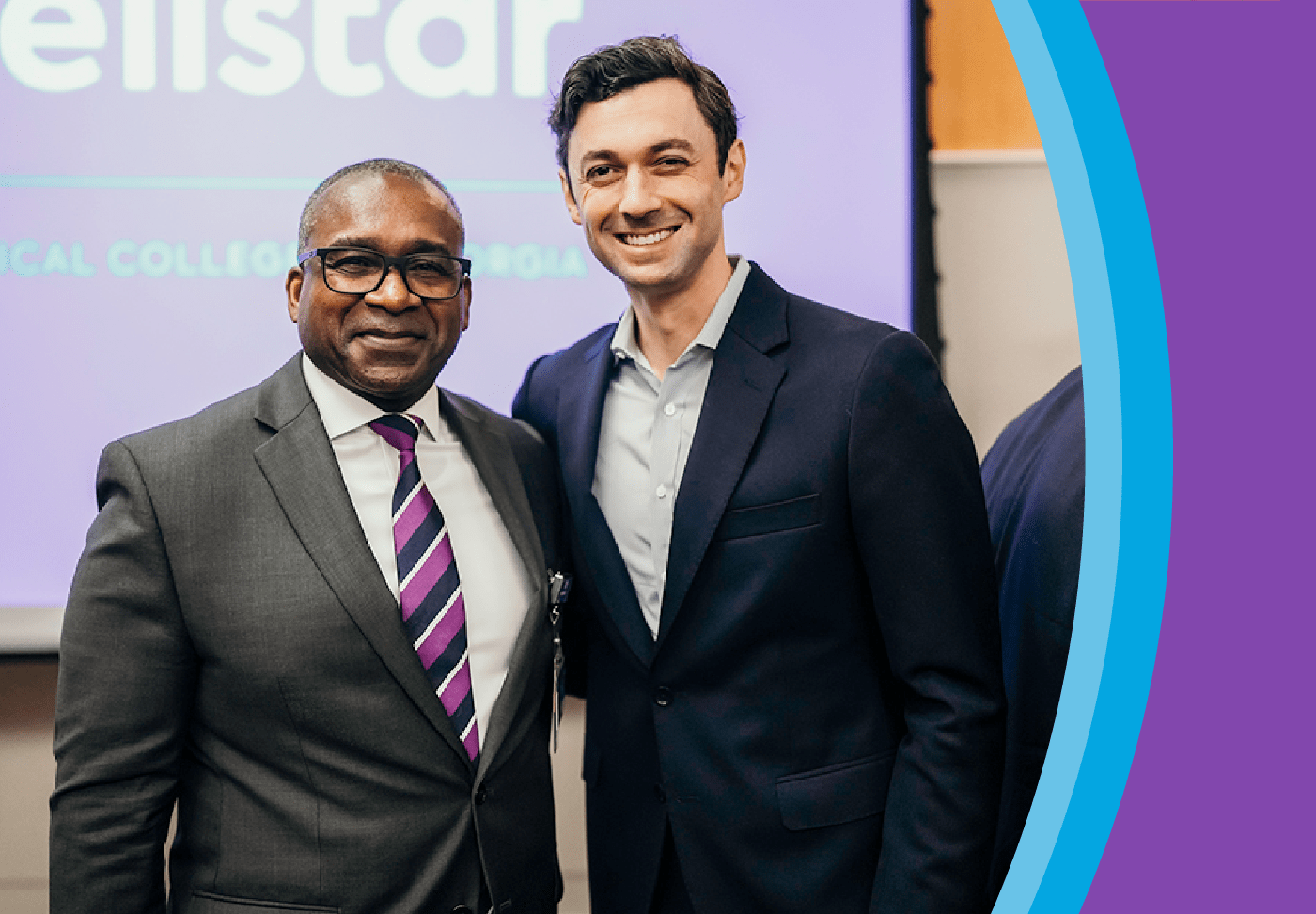
Wellstar MCG Health Medical Center opens new MRI suites with funding secured by Sen. Jon Ossoff
U.S. Senator Jon Ossoff joined Wellstar and Wellstar MCG Health Medical Center leadership in cutting the ribbon on two new MRI suites that feature state-of-the-art magnetic resonance imaging (MRI) machines. The machines were purchased with $3.5 million in federal funds that Ossoff secured with bipartisan support from the U.S. Senate in March 2022.
The critically needed units are located in newly designed and built MRI suites that are conveniently located between Wellstar MCG Health and Wellstar Children’s Hospital of Georgia. The updated technology allows for faster image scanning, better quality scans, and better patient access and comfort for adults and children. The new machines and suites replace two aging machines that were located in different parts of the medical campus.
“Senator Ossoff listened to our friends at Augusta University when they shared how adults and children in Augusta and throughout Georgia would benefit from two new, state-of-the-art MRI machines,” said Ralph Turner, president of Wellstar MCG Health. “Today, we celebrate Senator Ossoff’s leadership and work to obtain federal funding that will improve the healthcare experience for people across our great state for years to come.”
“The technology in these new machines is phenomenal and will make a noticeable difference in the care of every patient and physician who uses them,” said Dr. Annette Johnson, department chair for radiology at Wellstar MCG Health and academic chair and professor of radiology and imaging at the Medical College of Georgia at Augusta University. “These state-of-the-art machines can compensate for patient breathing and other motion, anticipating the patient’s movement and modifying the scanning techniques to adapt to the motion. This level of sophistication results in a higher quality scan in less time.”
For context, a typical MRI exam consists of five to 10 individual scans, each of which takes several minutes to complete. If a patient moves during one of the scans, the scan must be repeated. This happens frequently since it’s very hard for people to be perfectly still for long periods of time.
“If everything goes perfectly, the whole exam for a cervical spine MRI, for example, should take 25 minutes. But if the patient moves a little bit during the exam, it may take 10 or 15 additional minutes because scans have to be repeated, which makes the experience more difficult to tolerate as a patient,” said Johnson.
Cutting down the amount of time spent in the machine is a win-win-win. In addition to improving the quality of the scans, it is more comfortable for the patient, reduces wait times for other patients and allows for more patients to be seen.
“I don’t know if it qualifies as AI, but it’s super-smart technology,” said Johnson. “It’s motion-sensing and even predicts the patient’s movements. This results in fewer repeat scans, which improves the patient experience and enables more people to receive scans.”
Wellstar MCG Health also has a mobile MRI machine that is located outside of Professional Building One.
“This will be so much better for our patients, being closer to other support services for pediatric patients and wayfinding for all patients. All patients who receive a MRI will now got to the same waiting room, instead of three different waiting rooms,” Johnson said.
The new machine has a stronger gradient within the magnetic field, Johnson explained, which translates to higher-resolution, thin-section imaging. This means, for example, that radiologists and other physicians will be able to more clearly see the margins of a prostate cancer or the valves of the heart.
“You can see fine detail so much better, so you can make more confident diagnostic and treatment decisions,” she said. “You can get literally a half a millimeter slice thickness with this new equipment. That’s huge for us as we help patients and physicians make the best possible decisions for a person’s care.”
The new technology also improves the ability to adapt to individual patient body shape and to better scan patients who have implanted devices such as pacemakers.
Radiology Manager Felicia Ford said she is very happy to begin working with the new machines. She even volunteered to be among the first people to be scanned, just to test it.
Ford is looking forward to providing her patients with a better experience in addition to better quality MRI scans.
“It’s really nice,” she said. “I was impressed. It’s comfortable.”
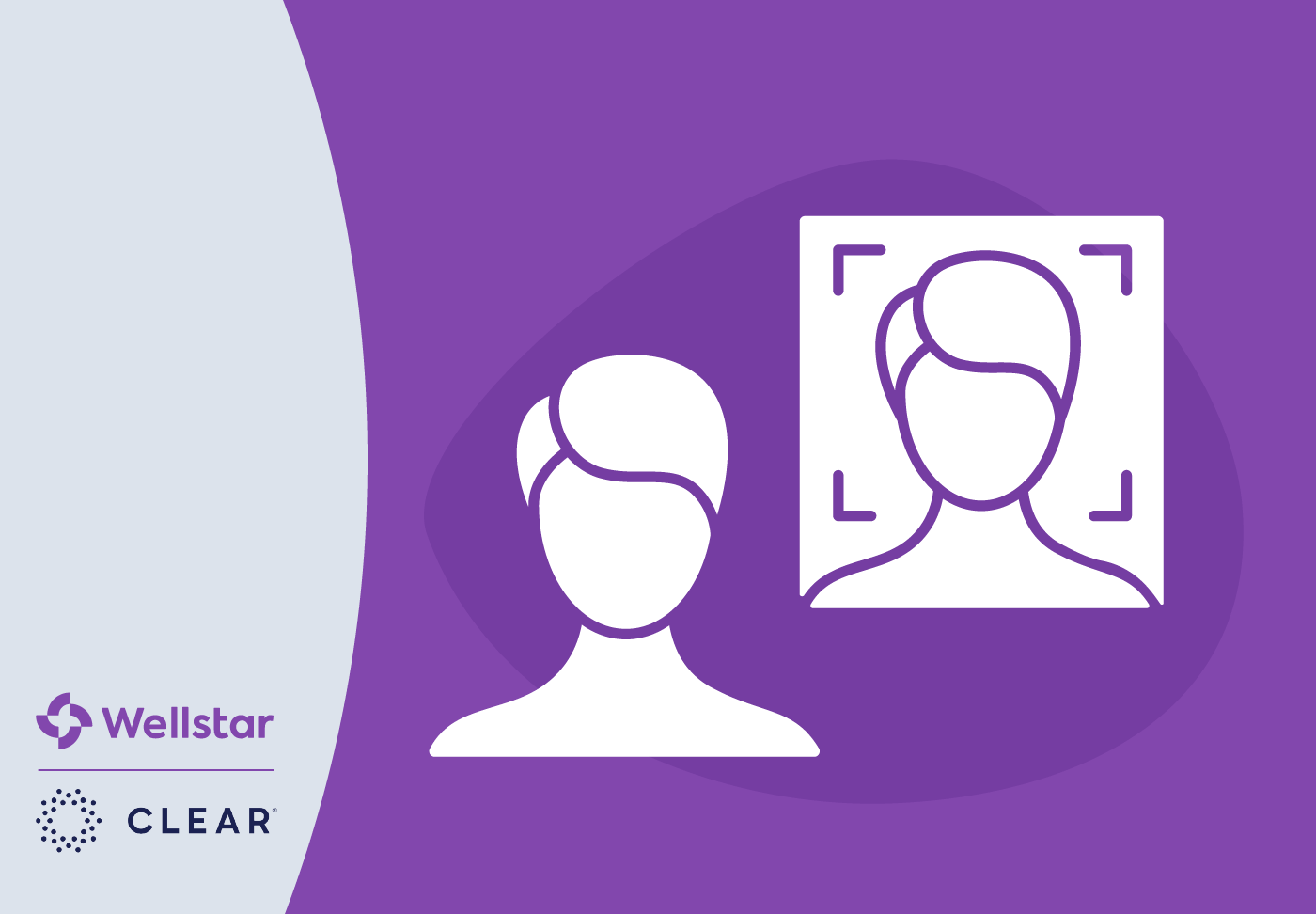
CLEAR Partners with Wellstar Health System to Launch Seamless and Secure Check-in Across Locations
Atlanta, GA -- CLEAR (NYSE: YOU), the secure identity company, and Wellstar Health System, one of the largest healthcare systems in Georgia, are launching a new initiative to further simplify and speed up the patient check-in process. The first pilot location is live with further rollout expected in the second half of 2024.
CLEAR has successfully integrated with Wellstar to enable patient registration and on-site check-in through CLEAR Verified. Wellstar co-developed the integration and is the first health system to utilize the CLEAR Verified technology application, which will become an out-of-the-box integration that CLEAR can easily implement for other healthcare partners who use Epic.
Wellstar patients who opt-in to use CLEAR’s proven technology will enjoy a smooth on-site check-in by simply verifying their identity ahead of time. Wellstar patients will receive a text a few days before their scheduled appointment to check-in using CLEAR. On appointment day participating patients simply need to take a selfie at the Wellstar CLEAR Verified kiosk to check-in for their appointment.
“Identity is foundational to making patient experiences safer, easier, and more efficient in healthcare,” said CLEAR CEO, Caryn Seidman Becker. “CLEAR’s collaboration with Wellstar Health System will bring a streamlined and secure check-in experience for patients. With the launch of this new experience, CLEAR is one step closer in our effort to replace the clipboard in healthcare.”
“Our patients’ time is precious. Introducing CLEAR’s proven secure technology will help make the check-in process even more efficient and safe,” said Dr. Hank Capps, FAAFP, EVP and Chief Information and Digital Officer for Wellstar Health System, and President of Catalyst by Wellstar. “We are committed to building an ecosystem of care that includes technologies that have never been used in healthcare. When combined with compassionate care from Wellstar clinicians, we will deliver a truly world-class experience.”
About CLEAR
CLEAR's mission is to create frictionless experiences. With more than 22 million members and a growing network of partners across the world, CLEAR's identity platform is transforming the way people live, work, and travel. Whether you are traveling, at the stadium, or on your phone, CLEAR connects you to the things that make you, you – making everyday experiences easier, more secure, and friction-free. CLEAR is committed to privacy done right. Members are always in control of their own information, and we never sell member data. For more information, visit clearme.com.
Forward-Looking Statements
This release may contain statements that constitute forward-looking statements within the meaning of the Private Securities Litigation Reform Act of 1995. Investors are cautioned that any and such forward-looking statements are not guarantees of future performance or results and involve risks and uncertainties, and that actual results, developments and events may differ materially from those in the forward-looking statements as a result of various factors, including those described in the Company's filings within the Securities and Exchange Commission, including the sections titled "Risk Factors" in our Annual Report on Form 10- K. The Company disclaims any obligation to update any forward-looking statements contained herein.
Epic is a registered trademark of Epic Systems Corporation.
Contact
[email protected]
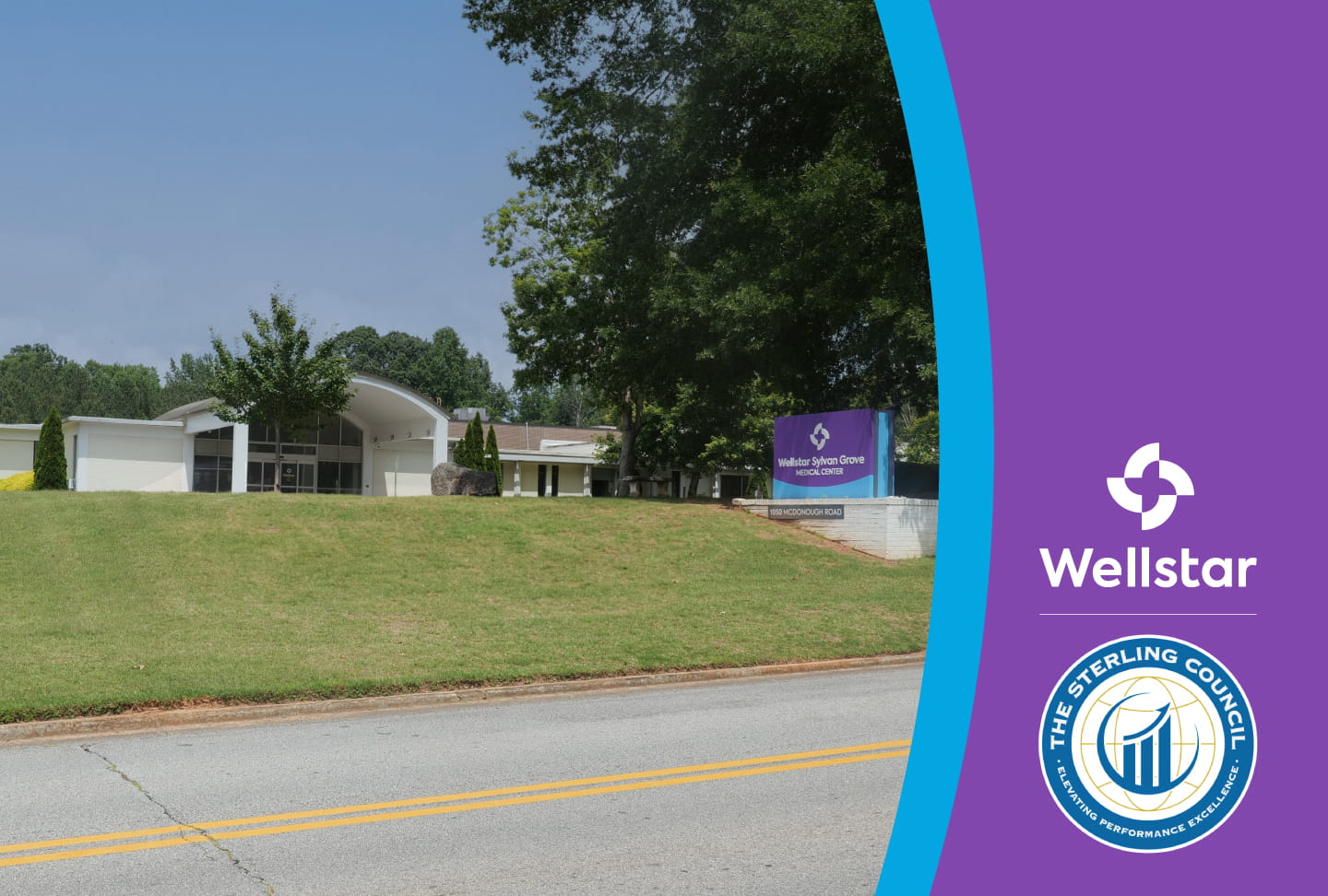
Wellstar Sylvan Grove Medical Center Honored with the Georgia Oglethorpe Award
Wellstar Sylvan Grove Medical Center has been named a first-time Georgia Oglethorpe Award winner. The Sterling Council, established in 1992, is a public/private not-for-profit corporation supported by the Executive Office of the Governor. The Council oversees the Governor’s Sterling Award for Performance Excellence and the Georgia Oglethorpe Award, which is based on the national Malcolm Baldrige Award, with Awards being presented annually to high performing, role-model organizations, both private and public, who demonstrate superior management approaches and role model results.
Wellstar Sylvan Grove is a nonprofit, critical access hospital in Jackson, Georgia and one of 11 Wellstar Health System hospitals. The hospital operates with 25 in-patient/swing beds (subacute rehab) and a 13-bed emergency department. The swing bed unit serves patients from all over the country, and the emergency department treats over 17,000 patients annually. Wellstar Sylvan Grove receives patients from across the nation because of their excellent reputation for rehabilitative care. “Together we can achieve more” describes the mindset of the Wellstar Sylvan Grove team. The hospital’s teamwork approach is the key driver of maintaining zero hospital-acquired infections for over three years and consistently remaining in the top 75th percentile for patient satisfaction as a facility.
Wellstar Sylvan Grove consistently remains one of the top-performing hospitals on the Great Place to Work® Survey, a national employee engagement survey, which resulted in the health system being named one of the Fortune 100 Best Companies to Work For®, earning the award in 2024 for the sixth time. The family culture extends outside of the four walls of the hospital to the people in the community. Wellstar Sylvan Grove participates in many community events, including a mobile market that helps to provide nutritious food and health education to the community at no cost.
Wellstar Sylvan Grove Medical Center is a first-time recipient of the Georgia Oglethorpe Award and is the sixth hospital that is part of the Wellstar Health System to be recognized with the Sterling Oglethorpe Award.
Wellstar Sylvan Grove will be formally recognized on Friday, May 31, at the Hyatt Regency Orlando at a banquet honoring their accomplishments and attainment of this recognition.
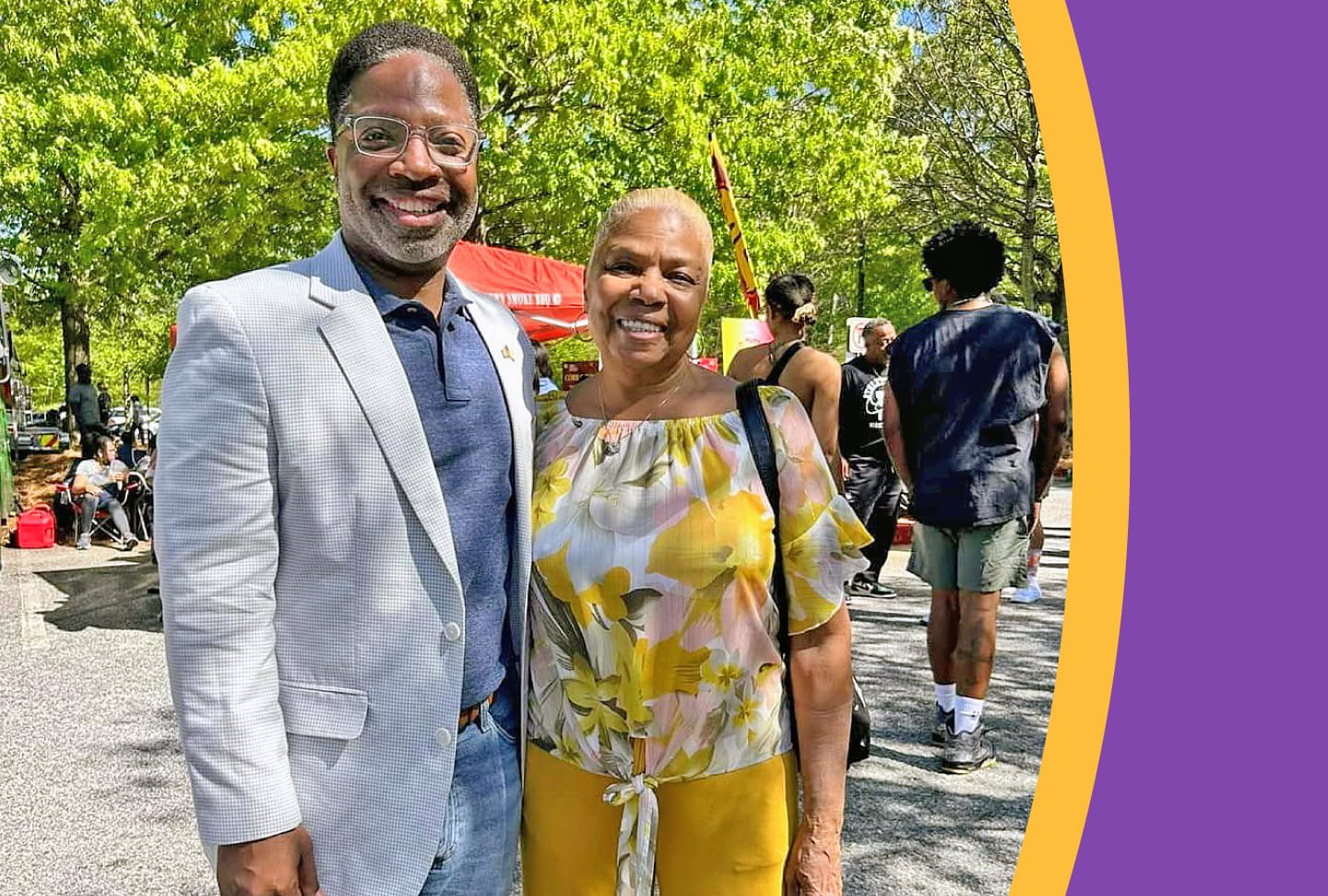
Cobb County Mother and Son Make Service A Lifestyle
Determination and service are family traits shared by the mother-son duo of Claudette Owens and her son Mayor Michael Owens of Mableton. The two have been serving their community in Cobb County for decades leading Michael to become the first Mayor of Mableton in 2023.
Claudette found her calling in nursing and served at Wellstar Cobb Medical Center from October 1998 to April 2012 when she retired. As we celebrate National Nurses week, she expressed that “once you are a nurse, you are always a nurse.”
During her time at Wellstar, she was a staff nurse and a charge nurse. “I think all nurses probably feel the same way. When our patients come in with chest pain, shortness of breath and chest pains so unstable, it is such a good feeling to care for them and bring them back to good health. That was my reward from Wellstar Cobb Hospital when I served on 2 North.”
At that time, her son Michael was pursuing his dreams and attending college. “If he set his mind to do something, he was going to find a way to do it,” Claudette said. “I think determination was his guiding force.”
On the eve of Mother’s Day weekend, Claudette fondly remembers her son when he was young. “He would bring me little pictures and we would go over them. He played basketball with his friends and brothers and was even into modeling and acting. He always kept me busy too because I was always running him here and there, but it was really fun for me.”
Michael started his life of service as a teenager by joining the United States Marine Corps before going on to college. “He’s always been moving towards something,” she said.
“I joined the Marines at 17. My father was in the Marines and my grandfather was in the Navy. Leadership is an extension of serving my country – I am now serving locally,” Michael said.
After enlisting with the Marines, Michael graduated from high school and went to Paris Island for basic training. He served for eight years and then attended North Carolina A&T State University, Georgia Institute of Technology, Harvard University and the U.S. Army War College. He launched a career in cybersecurity and dedicated time to public service. When Cobb County residents voted to create the City of Mableton in 2022, Michael set his sights on his next chapter of community service.
Michael’s drive and inspiration is evident in his mother. “Before she was a nurse, she opened her own beauty salon in a small town in North Carolina,” he said.
Michael’s fondest memory of his mom is when she became a registered nurse. “She inspired me, and she still inspires me. She has always had an appetite for the world and working hard. She was relentless in wanting the best for us as a wife, mother and daughter. She was constantly trying to be everywhere at the same time.”
As Claudette reflected on her time as a nurse, she recalls, “I was welcomed from the very beginning. I always felt welcome there [at Wellstar] and I still feel that way today.”
Michael shared that some of his mother’s best friends served alongside her.
“I used my vacation time back then to make sure to get our family together,” she remembers describing the summers when she would get her entire family, including five children, their spouses and grandchildren together.
The camaraderie she experienced on the floor with her fellow nurses is memorable. “And we all knew one another’s children even though we didn’t see them, but we knew when there was a graduation or birthday.”
Now that she is retired, Claudette is still active in the Mableton community, attending events and enjoying many of the activities the city has to offer, and spending time in her garden and with her family.
For Michael, his service is about “improving the quality of life for everyone.” With strong role models growing up and in adulthood, he is committed to his community. After spending the first year of his term “putting the blocks together” for the newly established city, he’s excited about Mableton 2045, a comprehensive citywide plan that’s being developed.
“The goal is to come up with a flexible and comprehensive plan to determine how the city is going to change and build,” he explained.
Mableton is now the largest city in Cobb County and home to 80,000 people.
The mayor and his mother will have much to celebrate this Mother’s Day, including their legacy of serving their growing community.

Live to the Beat. Powered by Wellstar. Connects Community Members with Heart Health Resources
Live to the Beat. Powered by Wellstar. is an initiative of the Wellstar Center for Health Equity and Wellstar Center for Cardiovascular Care, in collaboration with the American Heart Association, the CDC Foundation and Million Hearts. Through the program, participants meet monthly with a Wellstar Community Health community health worker (CHW) to monitor their blood pressure and discuss ways to keep their heart healthy, such as proper nutrition, exercise and caring for mental health.
Funding has been provided by the Wellstar Foundation to support a partnership with the United Way of Greater Atlanta for a CHW, who is trained using a Morehouse School of Medicine education curriculum.
Participants for the program are identified through the Wellstar Congregational Health Network, which partners with local faith communities to connect congregants with health resources.
The program is one of several Wellstar community initiatives to address social determinants of health, or the non-medical factors that can affect someone’s well-being, such as access to nutritious foods, housing and education.
"To improve community health and reduce heart attacks and strokes, we must consider non-medical factors," said Elise Lockamy-Kassim, Wellstar assistant vice president for community health and Wellstar Center for Health Equity. "For example, limited access to nutritious food can lead individuals to prioritize high-calorie, less healthy options for satiety, contributing to poor heart health. Food insecurity also causes stress, further weakening the body."
Celebrating a year of impact
The program launched in 2024 at two churches in East Point: First Baptist Church East Point and Mount Olive Seventh Day Adventist Church.
With 14 committed participants, First Baptist brought steady engagement and deep personal growth:
With 18 dedicated members, Mount Olive participants also made progress on their heart health journeys:
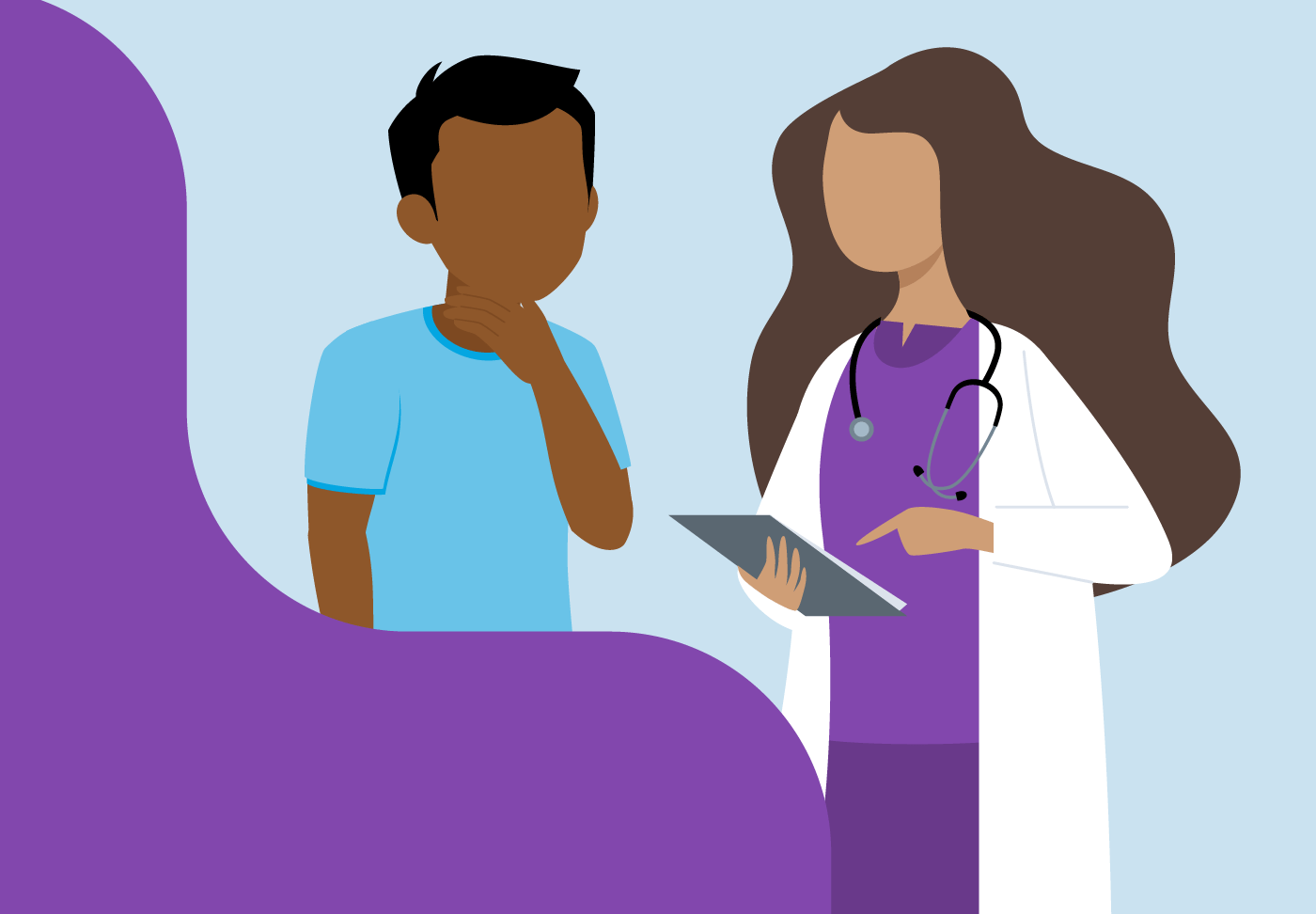
Wellstar Experts Treat Head & Neck Cancers, STAT
At Wellstar, every patient’s care plan is tailored to their needs. When it comes to head and neck cancers, a team of expert specialists form an interdisciplinary care team that supports the patient and their family through the whole treatment process.
In Wellstar STAT Clinics—short for Specialty Teams and Treatments—patients can see multiple cancer specialists to be diagnosed, have questions answered and finalize a treatment plan in a single day at one location. This reduces the need to drive to different locations and helps the patient start treatment faster.
“The concept of multidisciplinary care is tried and true and shown to be effective for cancer patients,” said Dr. Fiyin Sokoya, a Wellstar head and neck cancer surgeon. “This model decreases the time to proceed with and receive care.”
First, a team of medical experts, including a head and neck cancer surgeon and facial plastic surgeon, a radiation oncologist, a medical oncologist, a pathologist and a neuroradiologist, review the patient’s pathology and imaging as a group to diagnose, stage and create a personalized treatment plan.
Next, the patient and their family meet with the experts. This is an opportunity for the patient to learn about the recommended treatments and ask questions.
“Traditionally, patients must drive to several different appointments to learn the stage of their cancer, meet with different specialists and make decisions,” said Wellstar Medical Oncologist Dr. Nagender Mankan. “At that point, four to five weeks have gone by. In STAT Clinics, we are expediting the complicated decision-making process.”
The patient also meets with a nurse navigator. This specialized nurse helps coordinate many aspects of care for the patient including scheduling appointments and connecting patients with support team members, such as a registered dietitian, a speech therapist or a dentist who may help relieve irritation in the mouth and throat.
While Wellstar is well-equipped to help you fight head and neck cancers, there are steps you can take to prevent cancer from forming, including limiting exposure to the sun and cutting out tobacco and alcohol. Your Wellstar care team can work with you on a plan to keep your head and neck healthy and set achievable goals to prevent cancer.
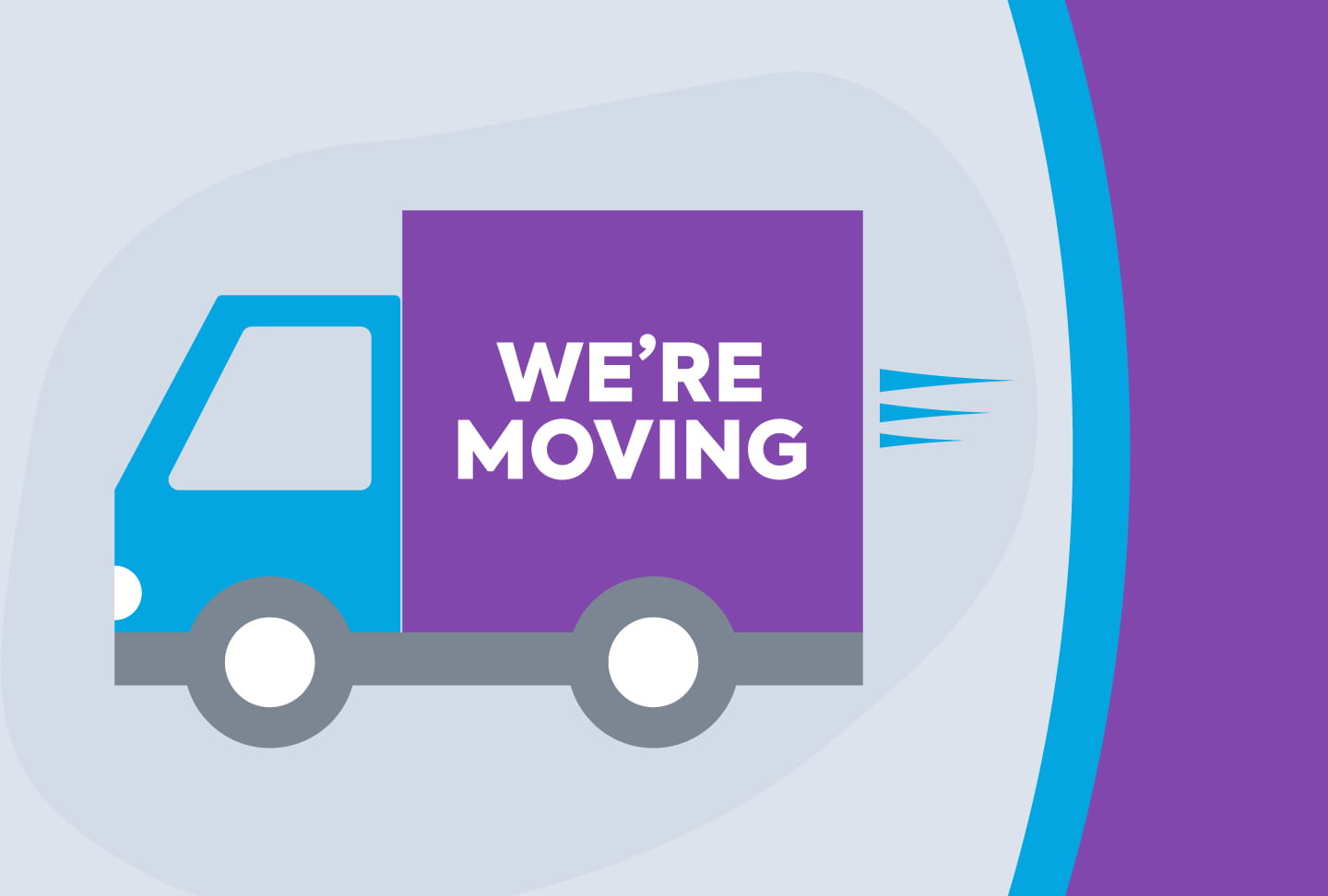
Wellstar Family Medicine in Morrow is Relocating
Wellstar Family Medicine in Morrow is relocating to Douglasville.
Starting April 29, you can find us at:
Wellstar GME Family Medicine - Douglasville
6002 Professional Parkway, Suite 220
Douglasville, GA 30134
(770) 968-6464
We appreciate the opportunity to serve as your healthcare partners, and we hope you will continue your care with us in our new location.
Our last day in Morrow is April 19. If you have an appointment between April 22 and April 26, we will contact you to reschedule. Patient appointments scheduled for April 29 or later will take place in Douglasville.
We are committed to helping you find a location that is both convenient and the right fit for your health needs. Call us at (770) 956-STAR (7827) if you would like assistance in finding a new provider. Several options for continuing care in the Morrow area are:
1. The Family Health Centers of Georgia will begin operating from our current Morrow location (1000 Corporate Center Drive, Suite 200) in early May. They are a Federally Qualified Health Center that provides primary care, family planning and other specialized health programs—regardless of ability to pay. They will move to their newly renovated space nearby at 6685 Merchants Way in July 2024. Learn more about FQHCs.
2. CenterWell Senior Primary Care 1821 Mount Zion Road, Morrow, GA 30260 (470) 491-2020
3. Mayuga Family Medicine 236 Stockbridge Road Suite B, Jonesboro, GA 30236 (770) 742-9326
4. Wellstar Primary Care 3890 Redwine Road Suite 100, Atlanta, GA 30331 (404) 344-0059
5. Wellstar GME Internal Medicine Clinic 747 South 8th St. Suite B, Griffin, GA 30224 (470) 604-8250
6. Wellstar Primary Care 708 S. 8th St., Griffin, GA 30224 (770) 228-5402
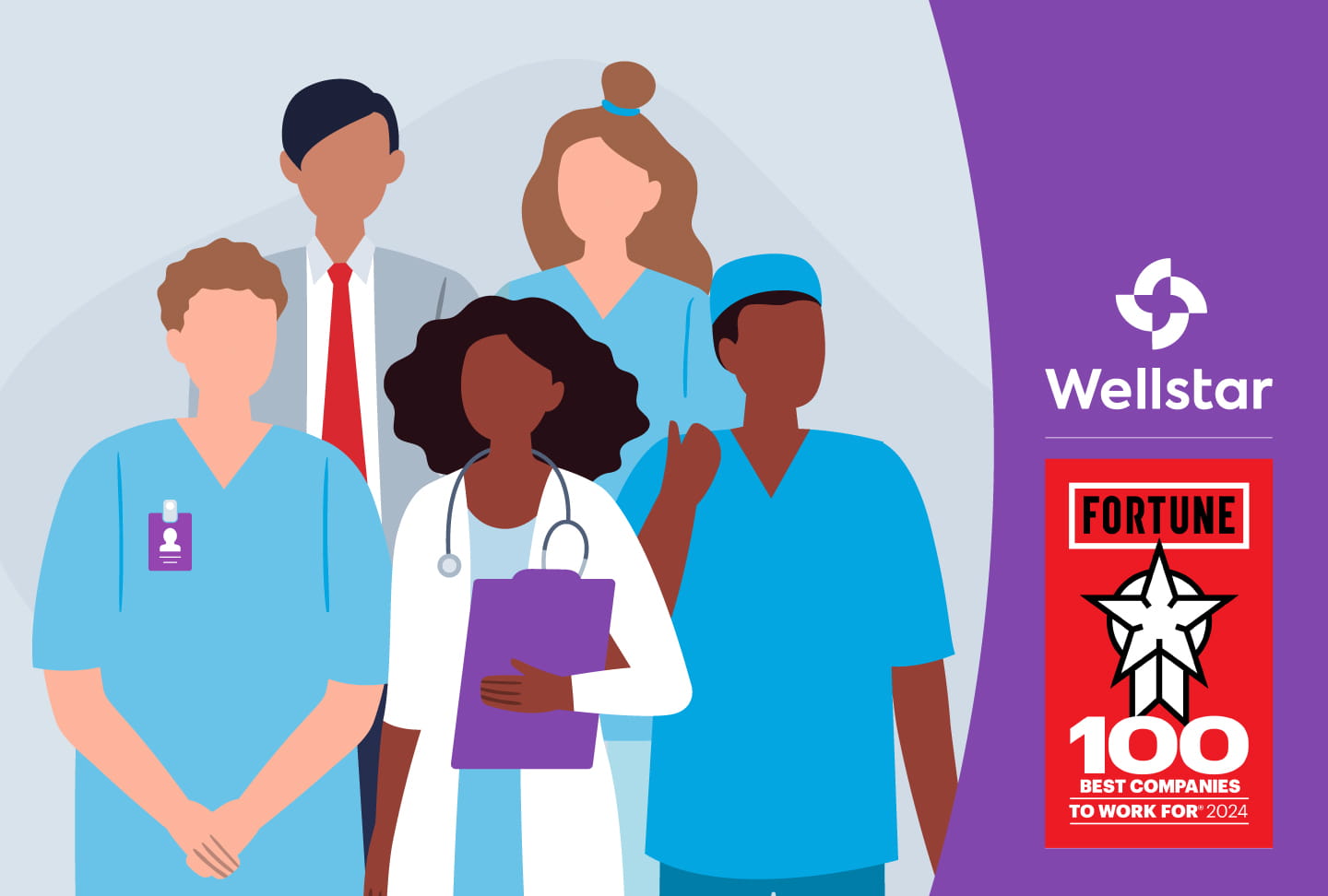
Wellstar Recognized as a Top Employer Nationwide
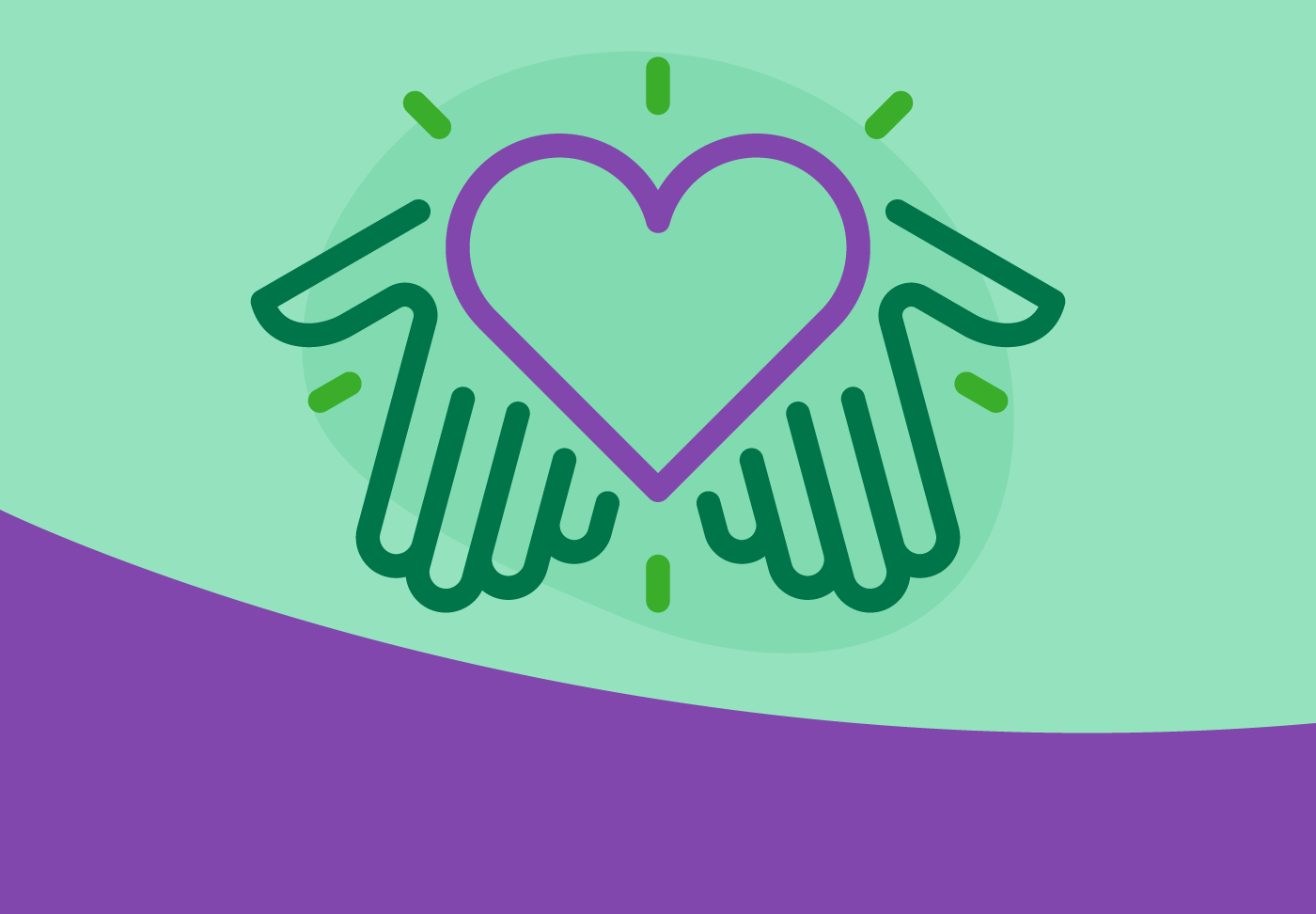
Wellstar Earns Top Hospital Recognition for Community Investment
A new Fair Share Spending Report from the Lown Institute, an independent healthcare think tank, listed Wellstar’s hospitals among the top in the nation for financial assistance and community investment. The recognition is based on what the Institute estimates Wellstar’s invested in the community compared to its 2021 tax exemption, resulting in what the Institute calls a “fair share” surplus. According to the Institute, only 20 percent of nonprofit hospitals nationwide were recognized for their fair share surplus.
Lown calculated Fair Share Spending by comparing the estimated value of private, nonprofit hospitals’ tax exemptions to the amount spent on financial assistance and meaningful community investment—including community health improvement activities, cash and in-kind contributions to community groups, community building activities, and subsidized health services.
This report follows a recent recognition from Modern Healthcare noting that Wellstar provides the second-highest percentage of charity care among large nonprofit U.S. health systems. According to Modern Healthcare, Wellstar devoted 6.11% of its operating expenses in fiscal year 2022 to charity care.
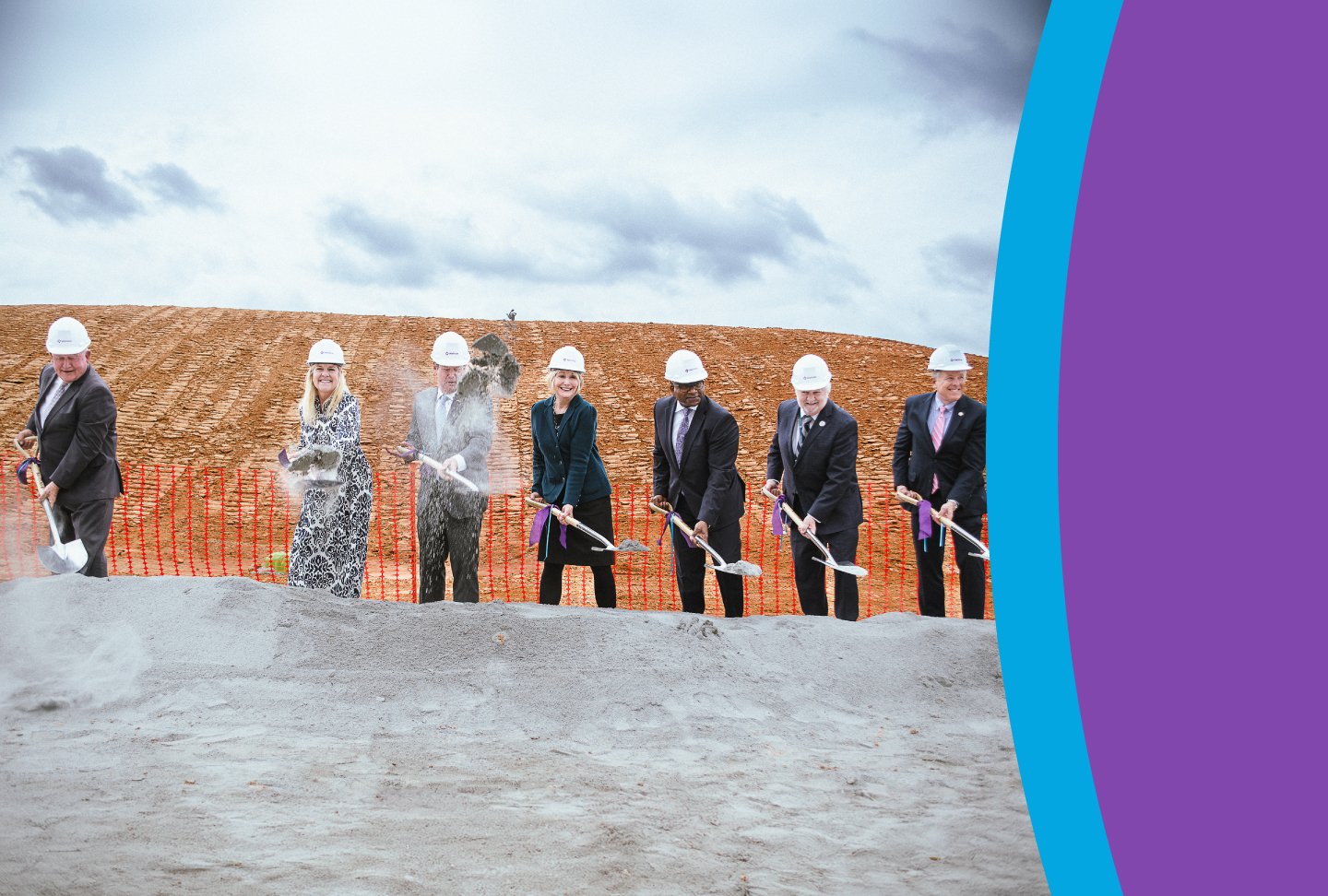
Wellstar MCG Health Celebrates Progress on Wellstar Columbia County Hospital with Ceremonial Groundbreaking
With a mound of red dirt piled behind him and wearing a hard hat, Gov. Brian P. Kemp lifted a purple-bowed shovel full of gray dirt Monday, April 1, ceremonially breaking ground on Wellstar Columbia County Medical Center.
Joining him in this symbolic event were First Lady of Georgia Marty Kemp; Candice L. Saunders, president and CEO of Wellstar Health System; University System of Georgia Chancellor Sonny Perdue; Ralph Turner, president of Wellstar MCG Health Medical Center; Brooks A. Keel, president of Augusta University; Doug Duncan, chairman of the Columbia County Board of Commissioners; and other esteemed dignitaries to commemorate construction of the new hospital and medical office building.
They were among the first to sign a purple beam with a Wellstar logo commemorating the momentous event. The 8-foot-long ceremonial beam will next travel to the Wellstar MCG Health campus so team members who provided input on the facility’s design can also sign it.
“Today’s groundbreaking is a great symbol of the incredible partnership between the state, local and private sector leaders and what is being done every day to expand access to quality, affordable healthcare to Georgians throughout the state,” said Gov. Kemp. “Through this partnership, Columbia County and the surrounding rural area will be able to experience innovative care, and the state will benefit from the generations of new minds that will be molded to provide care in the years to come.”
When Wellstar Columbia County Medical Center and the adjacent medical office building open in 2026, the full-service acute care hospital will feature 100 inpatient beds; an emergency department expected to become a Level II trauma center; a surgical platform that will include operating rooms, catheterization laboratories, and interventional radiology and endoscopy; and a 90,000-square-foot medical office building that will offer primary care, women’s health care and other specialties.
Wellstar Columbia County Medical Center will bring the world-class care already provided at Wellstar MCG Health to the residents of Columbia County and the surrounding areas. The new hospital’s close proximity to I-20 will make accessing that care more convenient and will create more jobs for the community.
“I can’t stress enough how important this partnership is to the people of Columbia County as well as the state of Georgia,” said Perdue. “This facility will expand access to quality healthcare, create more opportunities for students and prove to be a huge turning point in medical provision in Georgia.”
Wellstar is a nonprofit community health system that works to ensure every person has access to personalized, high-quality healthcare. The 11-hospital health system has a deep and long-standing dedication to providing care for diverse communities, those in need and underserved Georgians.
“At Wellstar MCG Health, our mission is to enhance the health and well-being of every person we serve,” Turner said. “We look forward to continuing to work with our community partners in ensuring the patients and the community we serve have the best care possible.”
Wellstar has committed to invest more than $800 million in capital expansion across Richmond and Columbia counties. Wellstar Columbia County Medical Center will complement and expand the world-class resources that are already provided at Wellstar MCG Health.
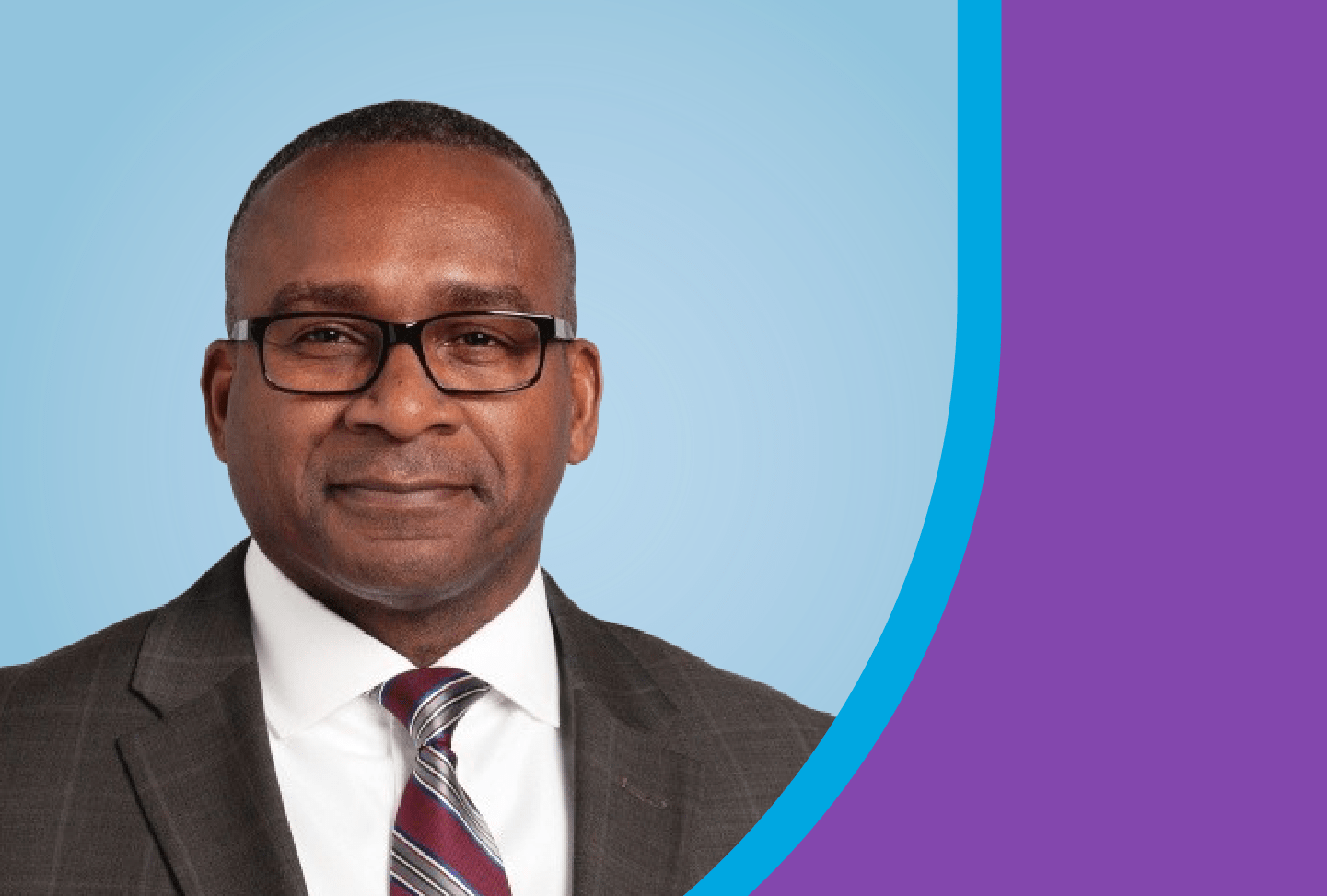
Wellstar MCG Health Appoints President
Ralph Turner has been appointed senior vice president and hospital president at Wellstar MCG Health Medical Center. Prior to his time serving in the role on an interim basis, he served as SVP and president for Wellstar Paulding Medical Center since 2022.
“Ralph has enthusiastically welcomed MCG Health team members into the Wellstar family. He’s doing an extraordinary job leading the integration of our people, processes and technologies into a culture that honors every voice and celebrates academic and clinical excellence,” said Mary Chatman, PhD, RN, Wellstar executive vice president of acute care operations.
Turner has held leadership roles at large, complex healthcare organizations, including MedStar Washington Hospital Center, University of Wisconsin Hospital and Clinics, and Cleveland Clinic. Turner received his doctorate in business administration from the University of Wisconsin-Whitewater and master’s degrees in healthcare administration and public administration from the University of Maryland and Troy University at Dothan, respectively. He served for more than 21 years in the U.S. Army before launching his healthcare career at Walter Reed Army Medical Center as director of the Clinical Engineering Division.
Wellstar MCG Health includes the 478-bed adult hospital, the 154-bed Children’s Hospital of Georgia, the Georgia Cancer Center and more than 80 outpatient clinics across Georgia and South Carolina. The organization partners with Augusta University’s Medical College of Georgia and offers an industry-leading cancer care and telestroke network, the region’s only Level I Trauma Center and the only Level IV Neonatal Intensive Care Unit for critically ill infants with an air transportation team.
Serving as the regional coordinating hospital for Georgia’s East Central District, Wellstar MCG Health responds to statewide natural disasters and events impacting the health of Georgians everywhere.
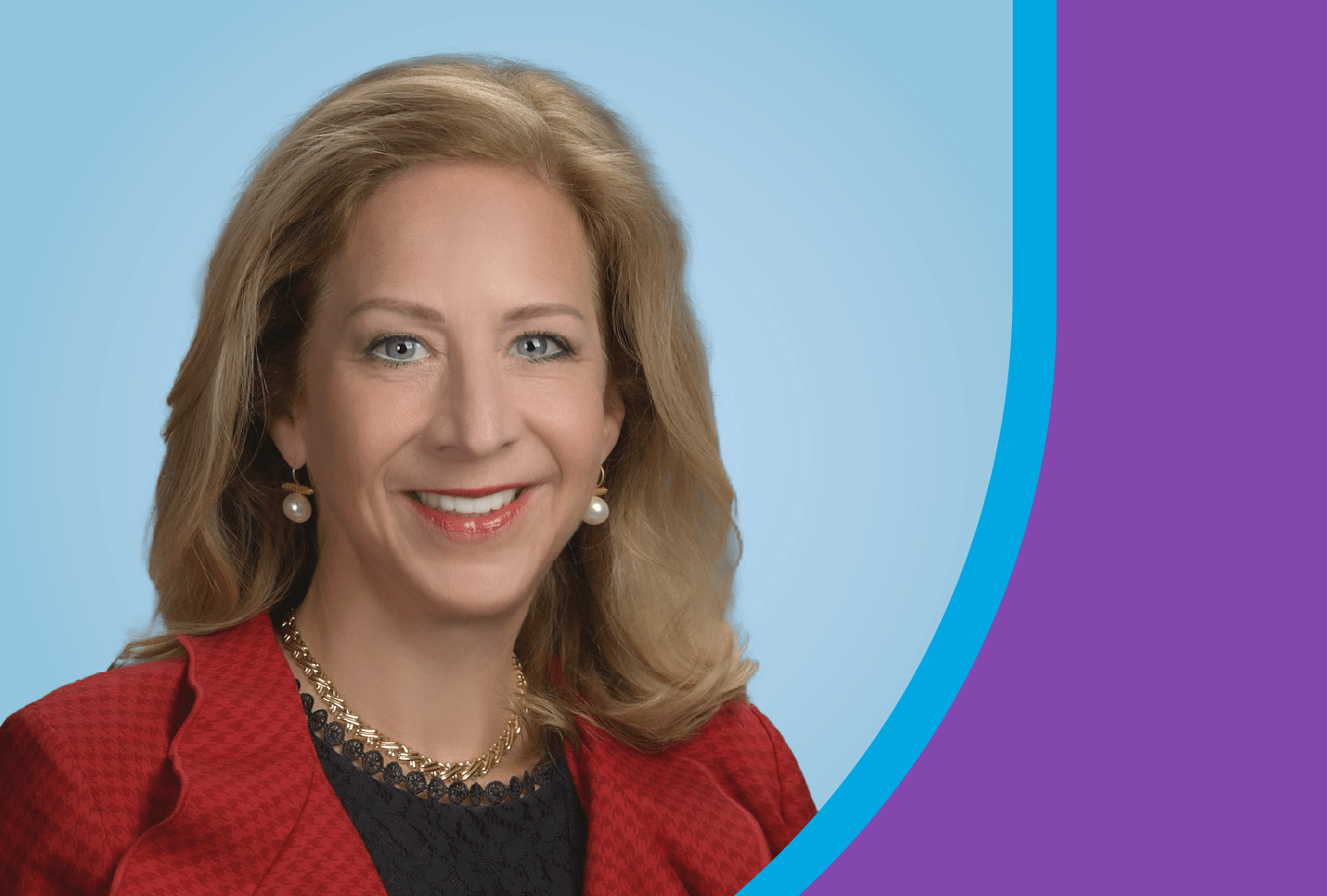
Wellstar Kennestone Regional Medical Center Appoints New President
Wellstar Health System has hired Lorrie Liang to be senior vice president and hospital president of Wellstar Kennestone Regional Medical Center and Wellstar Windy Hill.
“Lorrie is well poised to lead the complexities of Wellstar Kennestone and Wellstar Windy Hill,” said Mary Chatman, PhD, RN, executive vice president of acute care operations and former president of Wellstar Kennestone. “She will be accountable for leading Kennestone's executive team, collaborating with the other Wellstar markets, partnering with our physician enterprise and engaging with key community stakeholders to further the outstanding work and successes we’ve seen at both hospitals in recent years.”
With a background in running large, complex organizations, Liang brings more than 25 years of experience in hospital operations, service lines, physician practices, graduate medical education and research in academic and community hospitals and healthcare systems.
Liang is currently the president of Sarasota Memorial Hospital, which includes 900 beds, 6,400 employees, 1,300 medical staff, a Level II Trauma Center, a Comprehensive Stroke Center, a 60-bed inpatient rehabilitation hospital, an 82-bed behavioral health inpatient and outpatient facility, a 56-bed dedicated oncology tower, a 120-bed skilled nursing facility and a free-standing ER in southwest Florida.
She holds a Master of Health Services Administration degree from The George Washington University School of Business and an undergraduate degree from the University of Maryland Baltimore County.
Wellstar Kennestone Regional Medical Center is a 633-bed hospital located in Marietta, which offers best-in-class multidisciplinary care: state-of-the-art cardiac program, collaborative vascular program, renowned Women’s Center, Level III Neonatal Intensive Care Unit, multidisciplinary STAT cancer treatment and more. Wellstar Kennestone operates the second busiest emergency department (ED) in Georgia and the second largest ED in the U.S. with the capacity to care for more than 220,000 patients annually.
Wellstar Windy Hill is a Total Joint Center of Excellence where experts tailor orthopedic care and provide comprehensive outpatient rehab services and pediatric services. Windy Hill’s Long-Term Acute Care unit is staffed by specialized critical care physicians and specialized nurses who provide care in all-private rooms.

Transforming Healthcare Through Tech at SXSW
Catalyst by Wellstar led this year’s South by Southwest Conference (SXSW) with conversations on how investing in women in the tech space will have rippling effects on our healthcare ecosystem and how it all comes together to transform the patient experience.
From announcing an investment in Betty’s Co., a startup that provides in-person and virtual services in gynecology, behavioral health and wellness with a multi-faceted approach to healthcare for Gen Z women, to working with Gabbi, a startup on a mission to eradicate late-stage breast cancer, and Marani Health, an AI-powered maternal healthcare platform and direct investment announced in 2023, Catalyst has shown its commitment to fostering connections that drive access and clinical growth. These leaders shared the journeys that drove them to build their companies and exemplified the significance of having heart drive innovation.
Jaimie Clark, head of innovation at Catalyst by Wellstar and the director of innovation and venture strategy for Wellstar Health System, spearheaded the panel in an open conversation on how to best meet women's needs today and in the future. "This investment reflects Catalyst's commitment to caring for the women in our communities and beyond, providing them with innovative tools to access healthcare sooner and boosting the next generation of companies in this space," Jaimie said.
Nick Peddy, chief technology officer at CLEAR, and Dr. Hank Capps, chief information and digital officer of Wellstar Health System and president of Catalyst by Wellstar, joined a discussion moderated by Stephen Konya, a senior advisor to the deputy national coordinator for health IT and innovation portfolio lead at the U.S. Department of Health and Human Services (HHS). They shared their vision of transforming the patient experience within healthcare by utilizing cutting-edge technology and insights to make the process more efficient, secure and patient-friendly.
The panels at SXSW discussed how ingenuity can blend with an ecosystem of collaboration to harness and reshape the status quo of an industry. The panels at the conference shared insightful dialogue on raising the bar of healthcare for the next generation. Diagnosed as infertile at the age of 17, Betty's Co. founder and CEO Jennifer Newell experienced firsthand the unique healthcare needs of younger women, and she shares how often the current approach to healthcare for this population lacks in genuinely reaching them. Jennifer shared her powerful story and mission of "creating spaces where every Gen Z woman feels comfortable getting the care they need."

How My Sister's Cancer Prepared Me For Mine
It is often said that we cannot define the bond of sisterhood. When that bond was tested not by distance or careers or even children but by stage IV cancer just 18 months apart, sisters Samantha McInturff and Amanda Glass, now 51 and 48 respectively, stepped up to help the other fight the biggest battle of their lives.
It was October of 2019 when Samantha McInturff's sister Amanda Glass was diagnosed with invasive ductal carcinoma, stage IV breast cancer, at the age of 44, through a routine mammogram. The cancer had metastasized to her liver, and she was placed on two different chemotherapy cocktails. Amanda had been living with Samantha and her family, who helped get her to treatments and doctor appointments. Scared they were going to lose Amanda, Samantha stood by her sister as she began her healing journey from the surgeries and the 38 rounds of daily radiation until September 2020, when she rang the bell! Today, Amanda is cancer-free.
Eighteen months to the day of Amanda's diagnosis, in March of 2021, Samantha found herself needing a colonoscopy after a positive noninvasive at-home colorectal cancer screening test from what she believed to be symptoms of hemorrhoids. At that moment, Samantha's life flashed before her eyes when her gastroenterologist told her she had colon cancer at 48 years old. She was now a stage four colorectal cancer patient with a small tumor in her lower colon and several tiny nodules on her lungs. What were the chances of two sisters finding their bond grow even stronger in the battle of their lives?
"I am thankful for my sister who walked through this before me. She was there for me when I needed her. My boys were in middle school when I was diagnosed. They weren't scared because they had watched my sister, who lived with us then, walk through her battle," Samantha shared.
Samantha had her first infusion treatment in April of 2021, and it was now Amanda's turn to stand by her sister. The treatments worked, and quarterly scans showed Samantha's nodules shrinking and disappearing. Nearly two years later, Samantha received the results the sisters had been waiting for—no evidence of residual, recurrent or metastatic disease. Samantha, too, was stable.
The sisters have one message—get screened! According to American Cancer Society research, colon cancer cases under age 50 are on the rise, and the recommendation is to get your colonoscopy at age 45. Furthermore, colorectal cancer is now the leading cause of cancer death in men and the second in women under 50 years old, making the overall lifetime risk of developing colorectal cancer about 1 in 23 for men and 1 in 25 for women. However, each person's risk might be higher or lower than this, depending on their risk factors.
Wellstar cares for the health and well-being of every person we serve, making a difference in thousands of lives every year—providing deeply compassionate care that takes each person’s unique life story into account and allows people to live their best lives. If you have a family history or symptoms, it is important to get screened earlier. Screening can prevent colorectal cancer by detecting and removing precancerous growths (polyps) and by detecting cancer at an early stage, allowing the treatments to be more successful. Regular adherence to screening reduces the risk of colorectal cancer incidence and death.
Wellstar is actively engaged with the American Cancer Society on several initiatives that address and support patients undergoing cancer treatments in Georgia. Visit cancer.org/getscreened to learn more.
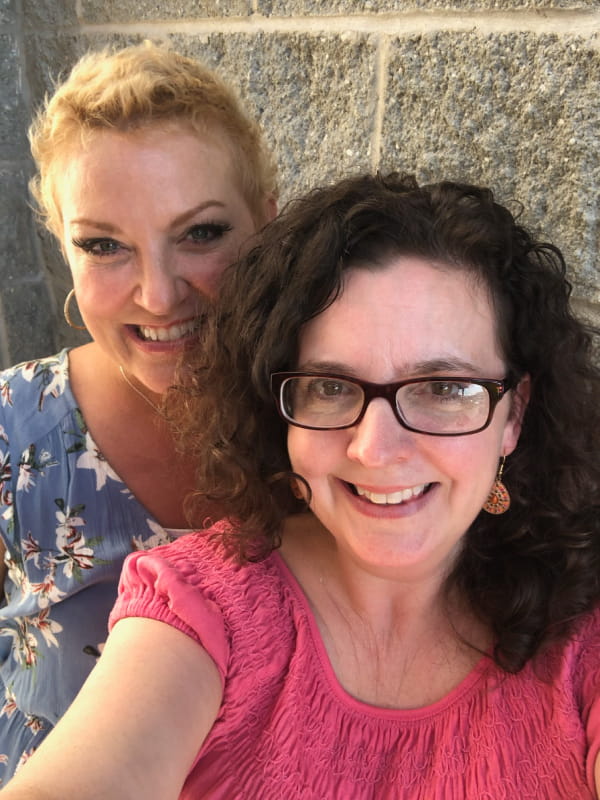
Amanda Glass (left) and Samantha McInturff (right)
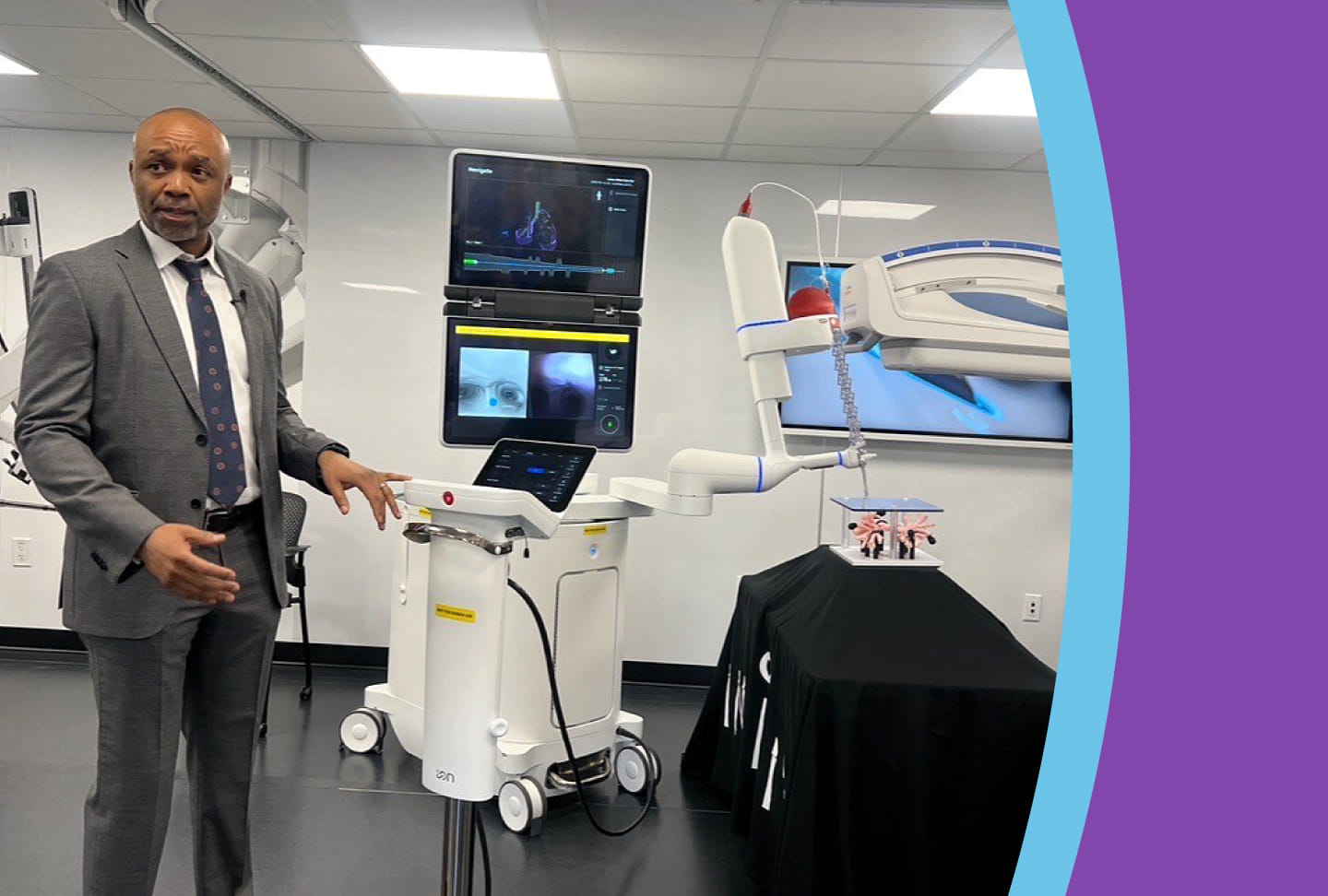
Wellstar Experts Demonstrate the Latest Robotic Technologies Used in Lung Cancer Care
Only 3.8% of those at high risk for cancer in Georgia are screened, according to the American Lung Association’s 2023 State of Lung Cancer report. To help enhance awareness and share the latest robotic technologies with healthcare professionals and community members, Wellstar held a Lung Cancer Showcase February 21 at the Atlanta Marriott Northwest in Cobb County. The event was held in a mobile laboratory with mock operating rooms and robotic surgical systems.
During the event, attended by several medical experts, Dr. Theolyn Price, Wellstar thoracic surgeon, and Dr. Timothy Udoji, Wellstar interventional pulmonologist, demonstrated how they use the Ion robotic bronchoscopy and da Vinci Xi surgical robotic system consecutively under a single anesthesia event to locate, biopsy and treat patients with early-stage lung cancer.
As she demonstrated how to control the da Vinci robot’s spider-like arms to perform surgeries, Dr. Price said, “See how I can use this clutch to move my arms up and down?” From there, she explained in detail how she cut away the cancerous tissue.
Dr. Udoji told participants how he uses the Ion robotic navigation bronchoscopy system to perform biopsies on potentially cancerous lung tissue, “This blue line shows exactly the pathway leading to the nodule inside the patient’s lung.”
The Ion robotic bronchoscopy system has safety features that ensure the instrument does not cause complications in other parts of the lung. Physicians can navigate and biopsy nodules in almost any part of the lungs.
Surgery is just one part of the treatment journey for some patients. Wellstar oncology nurse navigator Pam Plasket said, “We are dedicated to removing barriers to care and treatment. We promptly schedule appointments, connect patients to financial assistance and social support resources, and address transportation, housing and food insecurity needs.”
Wellstar nurse navigators know that shortening the journey for the patient is key and provides personalized care. At the Wellstar Specialty Teams and Treatments (STAT) Clinic, the goal is to move lung and esophageal cancer patients from diagnosis to initiating treatment within 14 days, which is facilitated by the multidisciplinary team of experts individualizing their care.
“It’s a privilege to help them. They have all my contact information and can reach out to me, and so can their caregivers,” Plasket said.
In addition to nurse navigators, several other teams were present to share information, including genetics, screening and lung cancer care. At Wellstar, patients have access to a suite of integrated services encompassing incidental lung nodule management, dedicated lung cancer screening and multidisciplinary lung cancer clinics (STAT Clinics).
Dr. Bill Mayfield, medical director of the Wellstar incidental lung nodule and lung cancer screening programs, explained, “Our goal is to broaden Wellstar’s ability to find lung cancers early and save more lives.” Additionally, patients with lung nodules not diagnosed with cancer but at high risk are monitored through regular lung cancer screening CTs or serial chest CTs if they do not qualify for lung cancer screenings.
Showcasing technologies and sharing the strengths of a comprehensive lung cancer program is just one step the team takes to enhance awareness of this unique and special program, available to all patients, from early detection to advanced treatment. Lung Cancer Awareness Month is held in November, but the team continues to increase outreach efforts year-round to build connections with consumers and educate the communities we serve.
You may learn more about the Ion robotic bronchoscopy and da Vinci Xi surgical systems online and read about our expert approach to comprehensive lung cancer at wellstar.org/lungcancer.
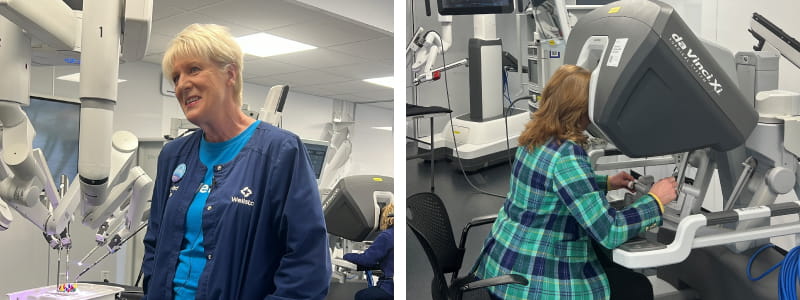
Left photo: Pam Plasket, Wellstar oncology nurse navigator, speaks with participants at the recent Lung Cancer Showcase. Right photo: Dr. Theolyn Price, Wellstar thoracic surgeon, explains how she uses the da Vinci robotic system to perform lung surgeries.
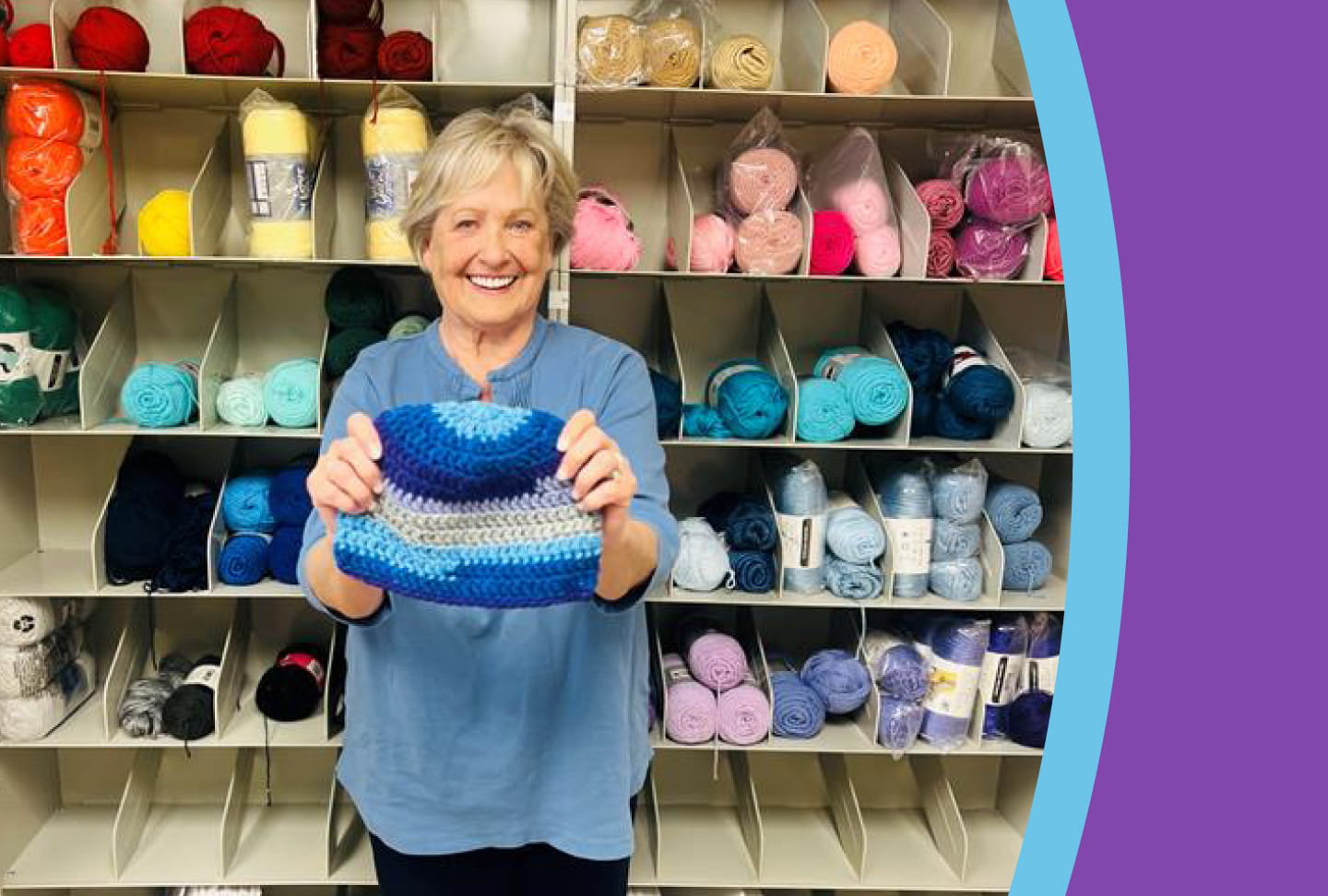
Forty Thousand Hand-Knit Happy Caps and Counting
There's no cap on giving back for thirteen-year lung cancer survivor Kathy DeJoseph. It was her first day getting chemotherapy when a woman approached Kathy and gifted her a knitted cap in appreciation for her kindness during her husband's cancer treatment. That simple act of gratitude inspired Kathy—and after completing treatment for her own cancer diagnosis, she decided to pay it forward by knitting caps for patients also undergoing chemotherapy and cancer treatments.
This passion project became a purpose project for Kathy as she soon found herself recruiting others who knit from across the nation. Knitters have joined from Pennsylvania to Michigan and Alabama to right here in Georgia to help Kathy's Happy Caps thrive.
Fostering meaningful connections within the Wellstar community is part of the charge for the group of volunteers, whose workshop is located at a Wellstar facility in Cobb County. The volunteers work multiple days a week to hand-knit and package caps donated to cancer patients at metro Atlanta oncology facilities, starting with the Wellstar Health System Cancer Centers.
Together, the group has donated more than 44,000 handmade caps and has no plans to slow down. So, we sat down with Kathy to learn what fuels her passion for knitting.
"So, they are each handmade with love by someone who cares and wants to make a difference for those facing cancer."
“Never! The first few years after I was sick, I volunteered to meet with newly diagnosed cancer patients so they could talk to a survivor.
At the five-year mark, my family suggested that I find another way to help cancer patients. I remembered how I felt when a stranger made me a hat when I was sick, and I decided to try my hand at knitting.
In just a couple of months, hats started showing up non-stop. Within a year, my house was full of hats, and we rented storage space where our volunteers would sort and process them. A year later, there were a couple of hundred volunteers, and after almost six years, we needed more space, and Wellstar met that need.
Sadly, there is no shortage of cancer patients, and so we continue to get new requests for Happy Caps from cancer centers. Now that I am getting older, and so are our volunteers, our volunteer base is getting smaller.”
“Just in metro Atlanta, tens of thousands are diagnosed with cancer each year. Most of our volunteers or someone they care about have been affected by cancer. Many are retirement age, but dozens are younger.
Some already knew how to knit or crochet, and others we taught or learned with online videos. They have even formed groups and meet at libraries or senior centers.”
“I need help reaching potential and current volunteers to meet the high demand. We receive donations that keep us in yarn to provide to volunteers, Wellstar generously provides us workspace, and no one is paid.”
Kathy and her volunteers are looking to grow their knitting network and asking their new friends across the country to pick up their needles and yarn and work to keep their mission thriving.
If you are interested in knitting Happy Caps or joining the team during their weekly knitting dates, reach out to Kathy at [email protected].

Left photo: Wellstar President and CEO Candice L. Saunders joins Happy Caps Founder Kathy DeJoseph. Right photo: Some of the more than 44,000 hats knitted by Happy Caps volunteers.

The Heart of the Matter
With Valentine's Day approaching, there seems to be more than love in the air; there is loneliness, too. So, how does love affect our health?
Humans desire connections; we are wired to love and be loved. Feelings of closeness help individuals navigate challenges in both their physical and mental well-being. Being close to others is crucial for mental health, and loneliness can often play a role in worsening psychiatric conditions and major depressive disorders.
In this season of love, Wellstar is dedicated to providing support and care, helping individuals navigate the emotional challenges that may arise, and fostering a community connected by compassion and well-being.
For advice on this timely topic, we asked Dr. Justin Ayankola, medical director of Wellstar Collaborative Care Psychiatry, to help us understand how the heart affects the mind.
"Giving ourselves permission to love and be loved is critical to our well-being because love is the glue that ties communities together.”
For some, this season can trigger depressive feelings, so we wondered how we could go about preparing ourselves for the emotions we might feel during the upcoming holiday.
"The best way to prepare for a difficult time is to optimize your physical, emotional, mental, and spiritual health. Emotionally, being surrounded by people you love and care about is important. It is not the time to explore or salvage relationships.
Practices such as meditation and gratitude journaling can help increase resilience and decrease feelings of loneliness."
Did you know that research indicates both pleasant conversations and physical touch trigger the release of oxytocin? Just 30 minutes of in-person interactions, including a hug, can help release this hormone in our brains.
There is a common misconception that being in a relationship brings an individual "wholeness." Still, a critical part of finding love is loving oneself first, so how does nurturing that relationship help our mental health?
"Prioritizing self-care is equally important in tending to our mental health. Surprisingly, the most significant barrier to forming relationships often lies not in our feelings toward others but our feelings about ourselves.
Love is about connections. These healthy connections take effort to form and trust to keep. We should be aware that even when we focus on self-love, it is an action that is still dependent on relationships with others. It isn't easy to love ourselves while not giving love to others. The work of self-love and giving love must happen simultaneously."
There has often been a connection between Valentine's Day and loneliness or reminders of toxic situations affecting our mental health.
"Toxic relationships are connections that are destructive. There are numerous ways in which these types of relationships manifest; however, the result is often isolation and stress. Stress has both biological and psychological effects.
Biologically, there is an increase in cortisol, which, if elevated chronically, can make individuals more susceptible to depression and anxiety. The isolation that often accompanies toxic relationships only exacerbates these issues."
For many, the pressures of dating and finding "the one" can cause anxiety. Some find online dating a way to seek companionship, but swiping right and left can overwhelm the heart and mind. How do the brain and heart handle the ways of modern love?
"Online dating apps can be invaluable tools for connecting with others. In fact, many people who meet people on dating apps say it led to an exclusive, romantic relationship. However, they should be used responsibly, considering one's vulnerabilities and insecurities.
One size does not fit all. I recommend using apps that do not cater to a person's more problematic habits. Dating apps can facilitate connections for individuals but should not be the sole means for bringing love into their lives."
If you are wondering where to turn if you need help, scheduling an appointment with your primary care provider can be a great way to connect with a behavioral health clinician.
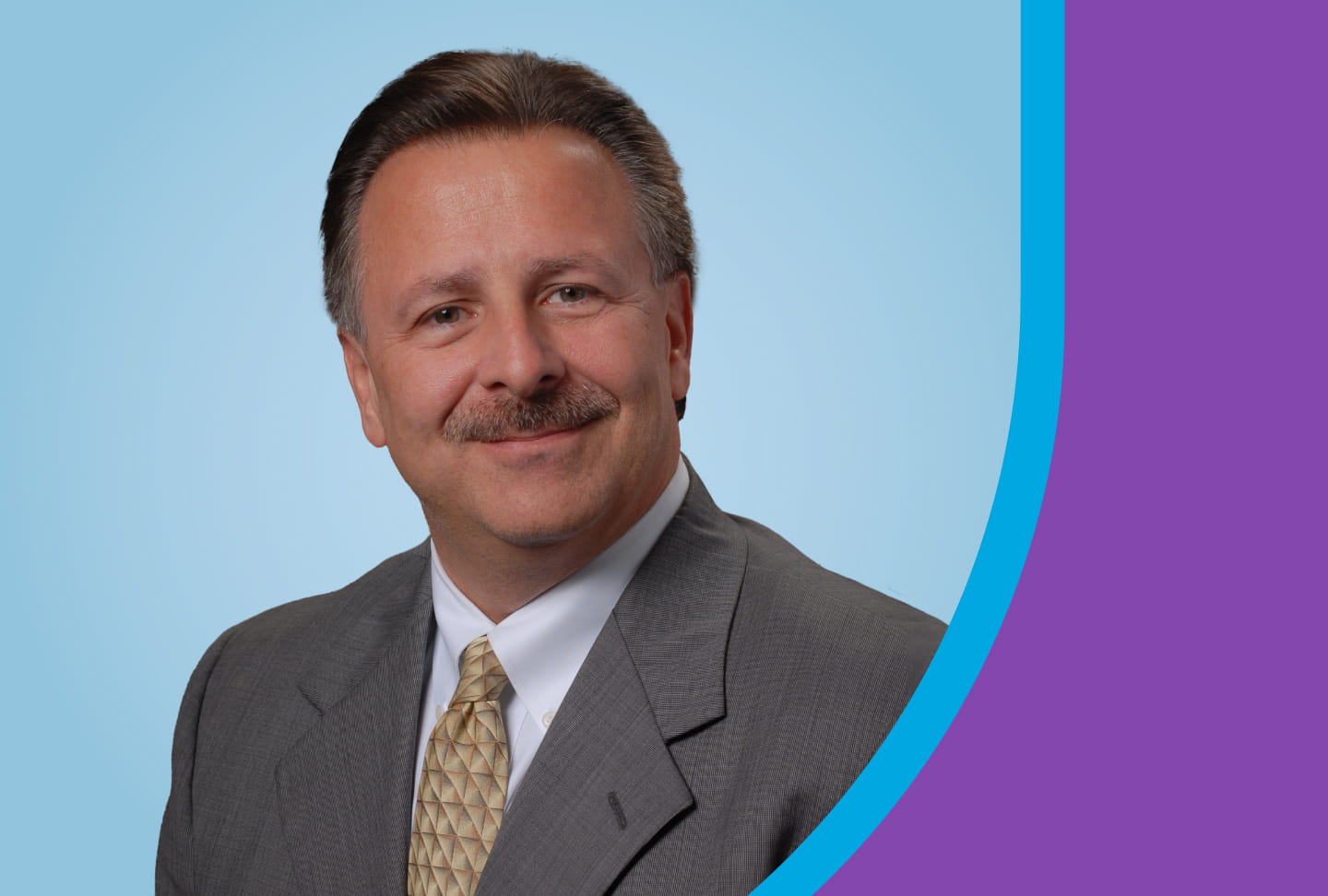
Wellstar Announces Retirement of Jim Budzinski, EVP & Chief Financial Officer After 15-Plus Years of Service
Please join us in extending best wishes to Jim Budzinski, executive vice president and chief financial officer, on his decision to retire.
Jim joined Wellstar in 2008 and has led critical initiatives and strategies that created the foundation for the Wellstar we know today. He has worn many hats during his tenure, including bold champion of our managed care division during significant periods of payer and provider discourse, first president of our highly successful Medicare Accountable Care Organization, head of information systems during our successful Epic implementation and leader of our supply chain team.
Jim has been recognized by the healthcare industry throughout his career. The American Hospital Association designated him an International Emerging Healthcare Leader early in his career. He received a bronze and silver award from the Healthcare Financial Management Association and was honored as one of Atlanta’s top CFOs by the Atlanta Business Chronicle. Last September, Jim was invited by the American Hospital Association to provide expert testimony before a United States House Committee on Ways and Means hearing on the patient impact of surprise medical billing.
Jim’s servant-leader heart and his passion to help others are evident in his decade of volunteerism with organizations like MUST Ministries and The Tommy Nobis Center, where he was recognized as a Thomas A. Slaughter Award recipient in 2016 and as a Community Champion in 2022.
We would like to thank Jim for his years of dedicated service to Wellstar, our patients and our communities. We wish him all the best and can be assured that after a career that spanned five decades, with the last 15-plus years at Wellstar, Jim has earned the opportunity to enjoy his retirement with his wife Deb, his three adult children and his seven grandchildren.
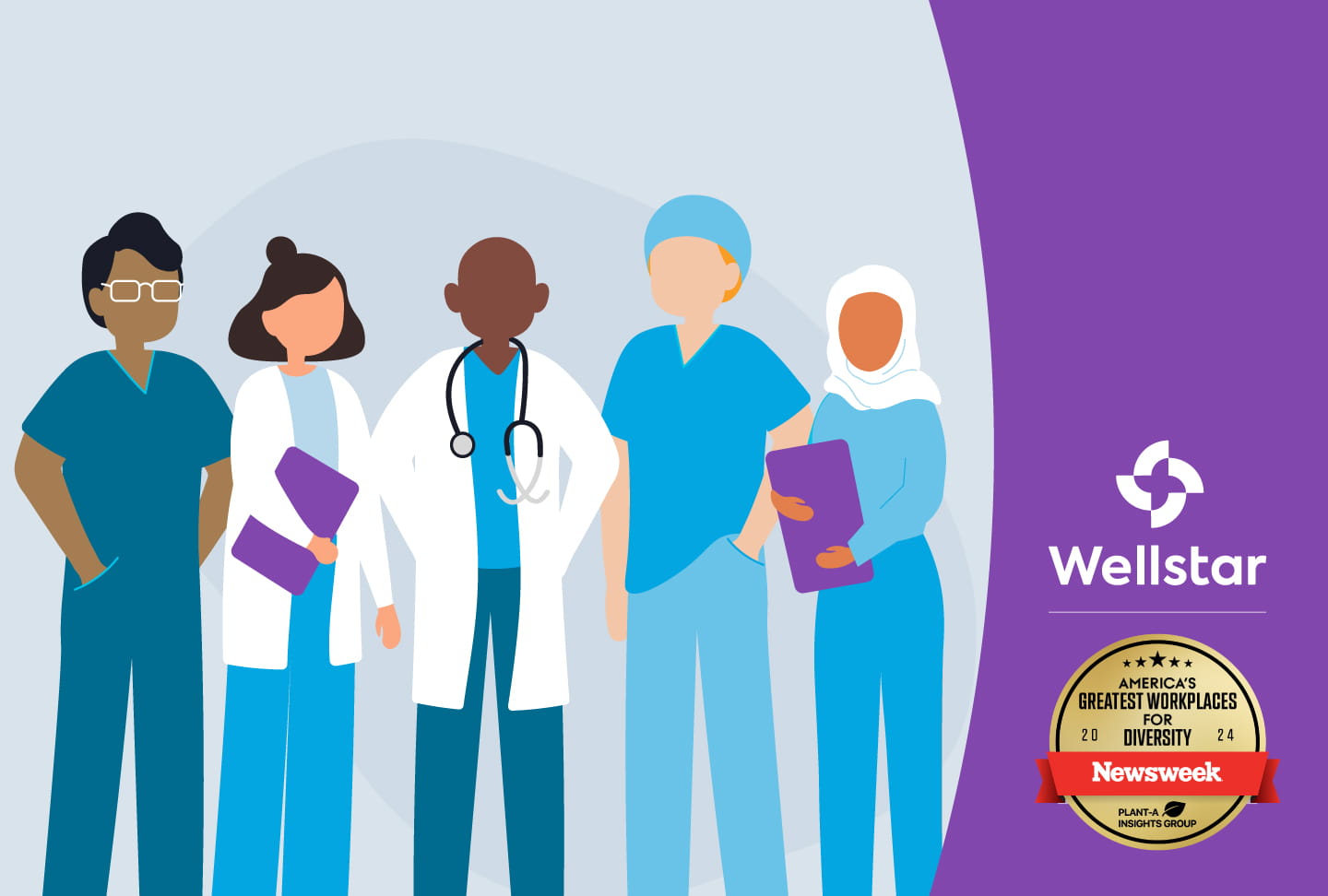
Newsweek Names Wellstar Among America's Greatest Workplaces for Diversity
Wellstar is honored to be recognized by Newsweek as one of America's Greatest Workplaces for Diversity in 2024. According to Newsweek, Wellstar and the other large and mid-size companies were identified for “genuinely respecting and valuing individuals from different walks of life.”
“Our commitment to diversity, equity, inclusion, and belonging is part of our roadmap for success as a healthcare organization,” added Le Joyce Naylor, SVP and chief diversity, equity, and inclusion officer at Wellstar. “It is mission-driven work that touches everything we do, beginning with how we care for our patients, team members, and communities. It is also an ongoing journey that impacts our every action and is demonstrated in the compassionate care we provide to the people in the communities we serve.”
For a second year in a row, Wellstar was named to the list. Newsweek and market data research firm Plant-A Insights Group utilized public data, interviews with HR professionals and an anonymous online survey to determine the scoring. Wellstar, with more than 31,000 team members, is included in the large company category.
With the support of systemwide DEI ambassadors, physicians and team members are trained to increase their cultural competency and awareness of patients, team members and community members from all walks of life. Examples of this programming includes:
“We are cultivating an environment where every individual feels valued, heard, included, and can have a true sense of belonging,” said Naylor. “Fostering a sense of belonging is more than a goal. It’s a fundamental part of our culture. We’re creating spaces where everyone can thrive, contribute their unique perspectives, and become an integral part of our collective success."
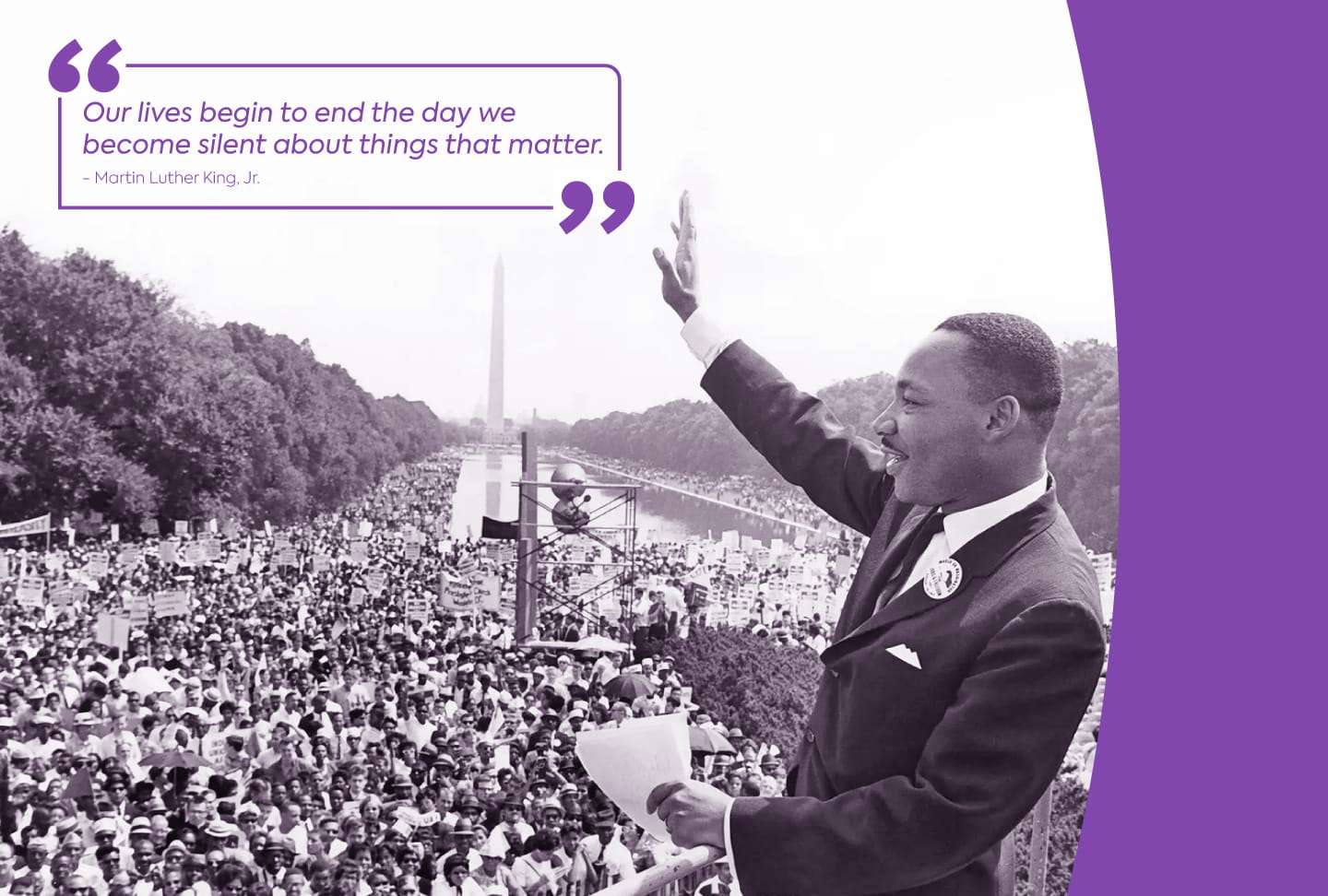
Wellstar Honors 2024 MLK Day with Live Event featuring Ambassador Andrew Young
On Thursday, January 11, Wellstar presented its annual Martin Luther King, Jr. Program. The live-streamed event paid tribute to Dr. King’s impact and provided an opportunity to reflect on his extraordinary life and legacy. The 2024 celebration featured a performance from members of the world-renowned choir, Kevin Lemons’ Higher Calling, and a compelling conversation between Ambassador Andrew Young, Congressman, Mayor, revered Civil Rights icon and close friend to Dr. King, and Monica Pearson, former Atlanta news anchor and current host for CBS46 and Peachtree TV.
Ebenezer Baptist Church, located in the heart of Atlanta’s historic Auburn Avenue, served as a preeminent location for the program’s discussion and recording. Functioning as a central hub for several pivotal moments in the Civil Rights Movement and Dr. King’s ministry, Ebenezer Baptist Church served as a powerful setting for the events of the program and added a significant connection to our shared history.
The featured discussion between Ambassador Young and Monica focuses on Dr. King’s words, “Our lives begin to end the day we become silent about things that matter." Over the course of the conversation, Ambassador Young shares firsthand experiences from his work alongside Dr. King, including reflecting on how Dr. King’s first speech came to be recorded, how the King family’s positive impact and influence in the Atlanta business community contributed to the legacy of Ebeneezer Baptist Church and the global reaction to Dr. King winning the Nobel Peace Prize. He also addresses his instrumental role in the Civil Rights Movement – often serving as a negotiator and mediator in pivotal moments or times of conflict. Further exploring these elements, Ambassador Young highlights the importance of Black and White Atlantans working together and the city’s transition as it progressed from the early Civil Rights Movement to the present day.
Ambassador Young concludes by emphasizing the important impact healthcare team members make in the communities they serve, noting that this work is critical to the progress and prosperity of every city, state and nation. He underscores that robust, balanced healthcare systems like Wellstar are essential to the survival of every community and to the health and well-being of their members.
Wellstar is steadfast in its commitment to ensuring a safe and inclusive environment for every patient, family and team member. Delivering personalized care, comprehensive programs and valuable tools and resources that enrich and empower all Georgians is critical to nurturing a culture of belonging and advancing health equity in our communities. The Wellstar Office of Diversity, Equity, Inclusion and Belonging pioneers the creation of initiatives, including the annual Martin Luther King, Jr. event, that aim to enhance cultural competency, develop workforce diversity, positively influence health equity and amplify community engagement.

Cancer Surgeon Finds New Hope in a Newfound Talent
A cancer surgeon at Wellstar Health System since 2005, Dr. Sahir Shroff never thought his journey to medicine would lead him to find a passion for art. Referring to it as a "serendipitous encounter with painting," Dr. Shroff’s career led him to be a world-class cancer surgeon who sees sick patients as the Surgical Oncology Subsection lead and the Kennestone Cancer Steering Committee Chair. Throughout the years, he realized he needed an outlet to help compartmentalize his life and destress. That is where his newfound passion came into play.
Officially, his journey into art began about a year ago; painting became a means of meditation for Dr. Shroff. As time passed, he realized this hobby offered him something more valuable than he had ever dreamed of- peace and tranquility. "More than what I'm doing - it is what I need to do. It allows me to focus on things other than medicine." The instant he picked up the brush and started painting, he felt a weight lifted from his shoulders.
"I do not consider myself an artist. I am an amateur. I am self-taught; I experiment with different paint mediums and brushes to create the desired effect." Dr. Shroff continued, "Art has never been a big part of my life in the past. Being a physician, I have naturally gravitated towards the STEM topics."
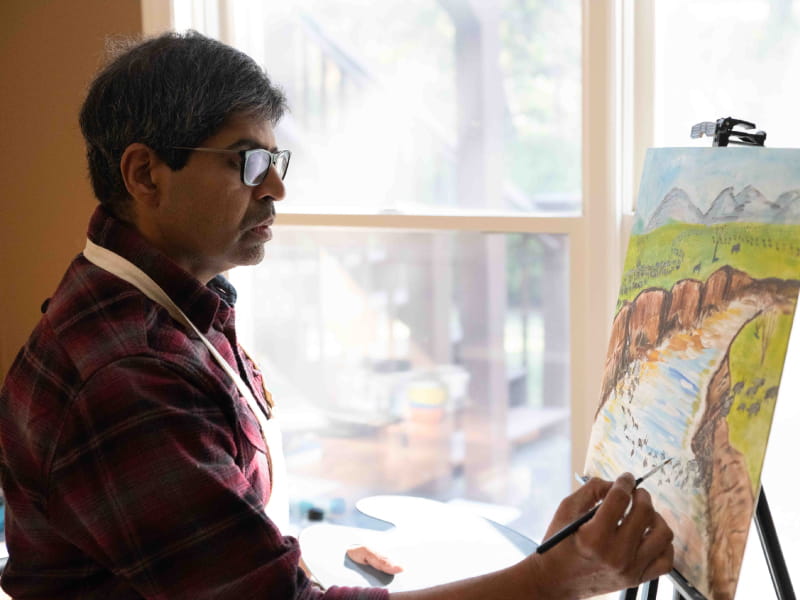
Dr. Shroff was born in Mumbai, India, and completed his residency and fellowship in the United States. He met his now wife, Dr. Paulomi Shroff, a breast surgeon with Wellstar Health System in medical school, and they share a beautiful family. After becoming empty nesters in the past few years, Dr. Shroff realized converting one of his children's bedrooms into an art studio was the perfect culmination of his life's works and his newfound passion for art. Not only is it helping him, but Dr. Shroff has also found that art is a beautiful tool to connect to his patients. His canvasses line the walls at Kennestone Regional Medical Center's Cancer Center, where patients can find a time for respite from the chemotherapy and radiation treatments that so often fill their lives with the angst of the "C Word."
From his art titled "Home Coming" featuring the wildebeests and huts he has found along his travels to villages in Tanzania to the hyenas and big moon in his art 'Blue Moon in the Serengeti' and a cheetah and her cub in 'Now You See Them, Now You Don't.' These moments have inspired Dr. Shroff in so many ways. With this reflective approach to better understanding life's purpose, the love of art has been life-changing for Dr. Shroff, "our role as humans on this earth and our responsibility to safeguard this delicate ecosystem."

Wellstar Health System Provides Second Highest Charity Care Percentage Among Large U.S. Health Systems
According to a Modern Healthcare analysis of data from 255 health systems, Wellstar Health System provides the second-highest percentage of charity care among large nonprofit U.S. health systems. The rankings are based on a review of charity care reported as a portion of operating expenses for fiscal year 2022[1].
Wellstar devoted 6.11% of its operating expenses to charity care, making the system the top provider of charity care in the state and the second nationwide. As a nonprofit healthcare system, Wellstar is committed to bringing expert, compassionate health services to those who need them.
“Wellstar is committed to providing compassionate, expert care to the communities we serve,” Julie Teer, SVP and President of Wellstar Foundation, said. “As a nonprofit health system, we rely on the generosity of donors and strategic partnerships to help us expand access and impact. The Wellstar Foundation is the philanthropic arm of the health system and is fueling innovation and action to address the state’s most pressing health needs.”
Our nine safety net hospitals[2] care for every patient that comes through our doors, regardless of their ability to pay. Wellstar intentionally focuses on philanthropy and partnerships that support health equity, behavioral health, innovation, workforce development and clinical excellence initiatives. Each is critical to the health system’s efforts to provide holistic, tailored care that meets people’s health needs at every age and stage.
As we lead the way to a healthier Georgia, Wellstar is the only health system in the state with an established Center for Health Equity. The Wellstar Center for Health Equity (WCHE) is critical to reaching underserved communities. Every three years, a Community Health Needs Assessment is conducted to help better understand the unique health needs of the communities we serve – further enabling us to create and implement a plan to improve care and promote healthy lifestyles for every person regardless of their race, gender, culture or income.
“We are able to reach a broader range of people in need because of the partnerships we’ve formed,” Elise Lockamy-Kassim, AVP of the WCHE, said. “As a community, we are stronger together. Working with organizations like Goodr; Wholesome Wave Georgia; Healthy Mothers, Healthy Babies; Ser Familia, and hundreds of other partners, we’re able to make a much greater impact.”
Food insecurity is one of Wellstar’s six strategic initiatives because of the WCHE’s findings. Wellstar and the Wellstar Foundation first partnered with Goodr in 2020 to tackle food insecurity during the pandemic. Our partnership initially focused on Mobile Markets, pop-up grocery markets that provide food and fresh produce to thousands of families each year.
The partnership has evolved to also include a Surplus Food Recovery service where leftover food from hospitals and donated to community-based organizations. Most recently, the system launched an Organic Recycling Program with support from Goodr, the Wellstar Foundation, Catalyst by Wellstar and Wellstar Strategic Community Development.
At Wellstar, our strong commitment to clinical and community initiatives, designed to help enhance care and create a healthier Georgia, has recently grown with the addition of Wellstar MCG Health and Children’s Hospital of Georgia.
Please consider supporting Wellstar’s nonprofit work by making a tax-deductible donation through the Wellstar Foundation at wellstar.org/give.
[1] Source: Merritt Research Services, an Investortools Company
[2] Source: Georgia Department of Community Health, Safety Net Hospitals (2019 Data Year)

Wellstar East Point clinic transition urgent care services to Southside on Jan. 12, 2024
ATLANTA (December 12, 2023) – After more than a year of collaboration and partnership between Southside Medical Center and Wellstar Health System to expand preventive and primary care services to the East Point community, the partners will complete the transition of urgent care services from Wellstar East Point Health Center (EPHC) to Southside Medical Center’s East Point clinic on Jan. 12, 2024.
As part of the partnership, Wellstar is investing $5 million over five years to help increase services and expand the Southside East Point clinic’s size and capacity. Wellstar is also committed to a thoughtful process to determine the future of the AMC South site, which includes ongoing cooperation with Dr. David Williams, president and CEO of Southside Medical Center, a Federally Qualified Health Center (FQHC).
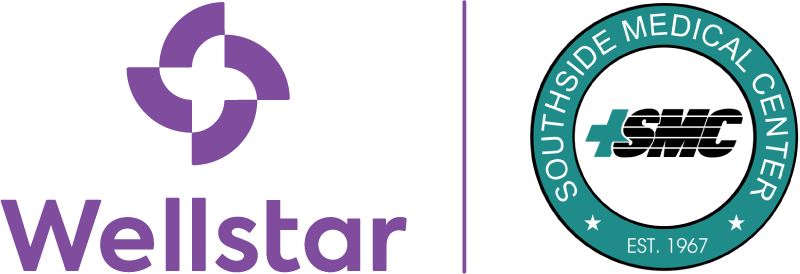
About the Transition
Since announcing the partnership between Southside Medical Center and Wellstar in October 2022, the organizations have been working together to establish a medical home for patients who have received episodic care through the Wellstar EPHC urgent care facility.
With coordinated ongoing care, including preventive visits and management of chronic conditions, patients have had fewer medical needs that require urgent care visits. As a result, the average urgent care volume at Wellstar EPHC has dropped by almost 65%, from nearly 80 patients per day in October 2022 to 28 patients per day in November 2023.
Beginning the first week of January, Southside, a Federally Qualified Health Center (FQHC), will expand its urgent care hours of operation to seven days a week, from 8 a.m. to 7 p.m., for all patients regardless of insurance status or ability to pay.
Expanded Services
People who previously received urgent care services at Wellstar EPHC will have access to a greater range of services at Southside Medical Center's East Point clinic, which is located next door. In addition to urgent care, patients can receive primary care, pediatric care, dental care, OB/GYN services and immunizations at Southside’s East Point facility and support like mental health care services virtually.
Patients can also access substance abuse support and other specialty care like podiatry, basic optometry and urology at the main Southside Medical Center clinic location, located at 1046 Ridge Avenue, less than 10 minutes away from the East Point clinic.
As an FQHC with a patient-centered medical home (PCMH) designation, Southside’s East Point clinic provides enhanced patient access and other benefits, such as decreased pharmaceutical costs and free transportation to medical appointments.
Team Member and Community Transitions
Wellstar is committed to supporting all EPHC team members through this transition and is offering them positions at other Wellstar locations. Additionally, if any impacted Wellstar team member wants to continue serving the East Point community, Wellstar and Southside’s human resource teams will collaborate to offer them opportunities at Southside Medical Center locations.
Both organizations will also work throughout this final transition phase in close alignment with community leaders and partners.
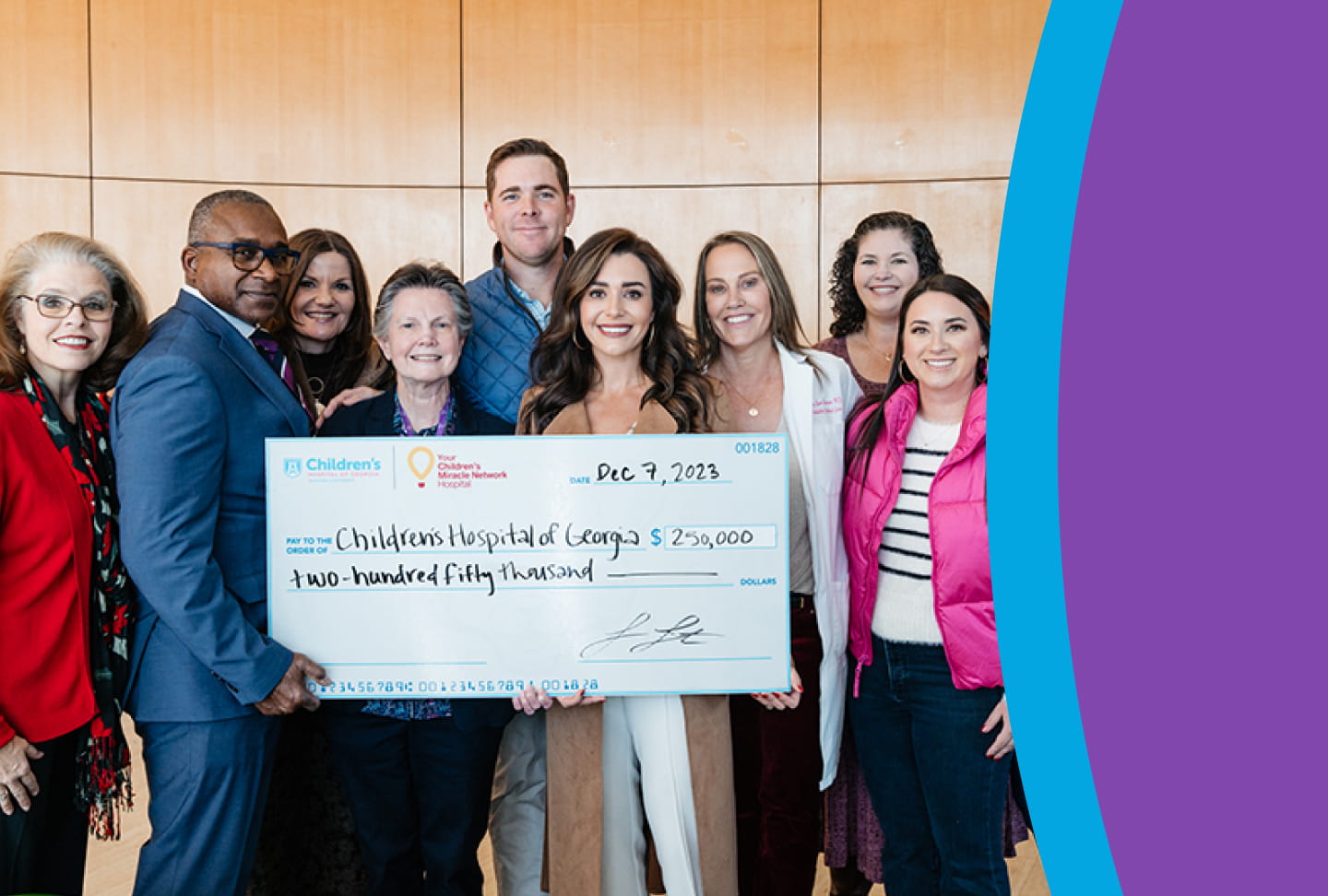
PGA TOUR player Luke List Donates $250,000 to Wellstar Children’s Hospital of Georgia Through RSM Birdies Fore Love
Luke List, a PGA TOUR player, and his wife, Chloe, presented a check for $250,000 to Wellstar Children’s Hospital of Georgia Thursday, December 7. The donation, which was made possible by the proceeds earned when Luke won the RSM Birdies Fore Love charity competition during the 2022-2023 PGA TOUR season, will support the expansion of the Pediatric Intensive Care Unit at Georgia’s second largest children’s hospital.
The Lists’ son, Harrison, was born prematurely on June 5, 2021. After leaving the hospital, Harrison was soon readmitted due to RSV, a respiratory virus, and was intubated for two days. Ultimately, Harrison spent two weeks in the Pediatric Intensive Care Unit at Wellstar Children’s. Helping expand the unit is a cause that is near and dear to the Lists’ hearts.
“It means so much to me and my family to have this opportunity to give back,” Luke said. “We want to share our story just to have people know what they do here and how much they’re really giving and really changing lives.”
Wellstar Children’s is home to the highest level (Level I) Pediatric Intensive Care Unit referral center in the region, providing critical care to children suffering from trauma or serious illnesses. Its team of dedicated pediatric intensivists delivers round-the-clock care to more than 1,000 children annually. Currently, the Pediatric Intensive Care Unit has 14 private rooms to care for children. After the expansion that number will increase to 22 rooms, allowing more Georgia families to benefit from the expert care at Wellstar Children’s.
The RSM Birdies Fore Love competition awards the top player who accumulated the most birdies (or better) during the FedExCup Fall events with the opportunity to donate to their choice of children- and/or family-focused charitable organizations. The List family decided that Luke’s winnings would go to Wellstar Children’s.
Representatives from RSM joined the Lists to present the check to Wellstar Children’s. Since the program’s inception in 2018, RSM Birdies Fore Love has raised $5.25 million in donations for players’ charities, supporting over 85 different organizations. Four players have started their own foundations as a direct result of RSM Birdies Fore Love funds.
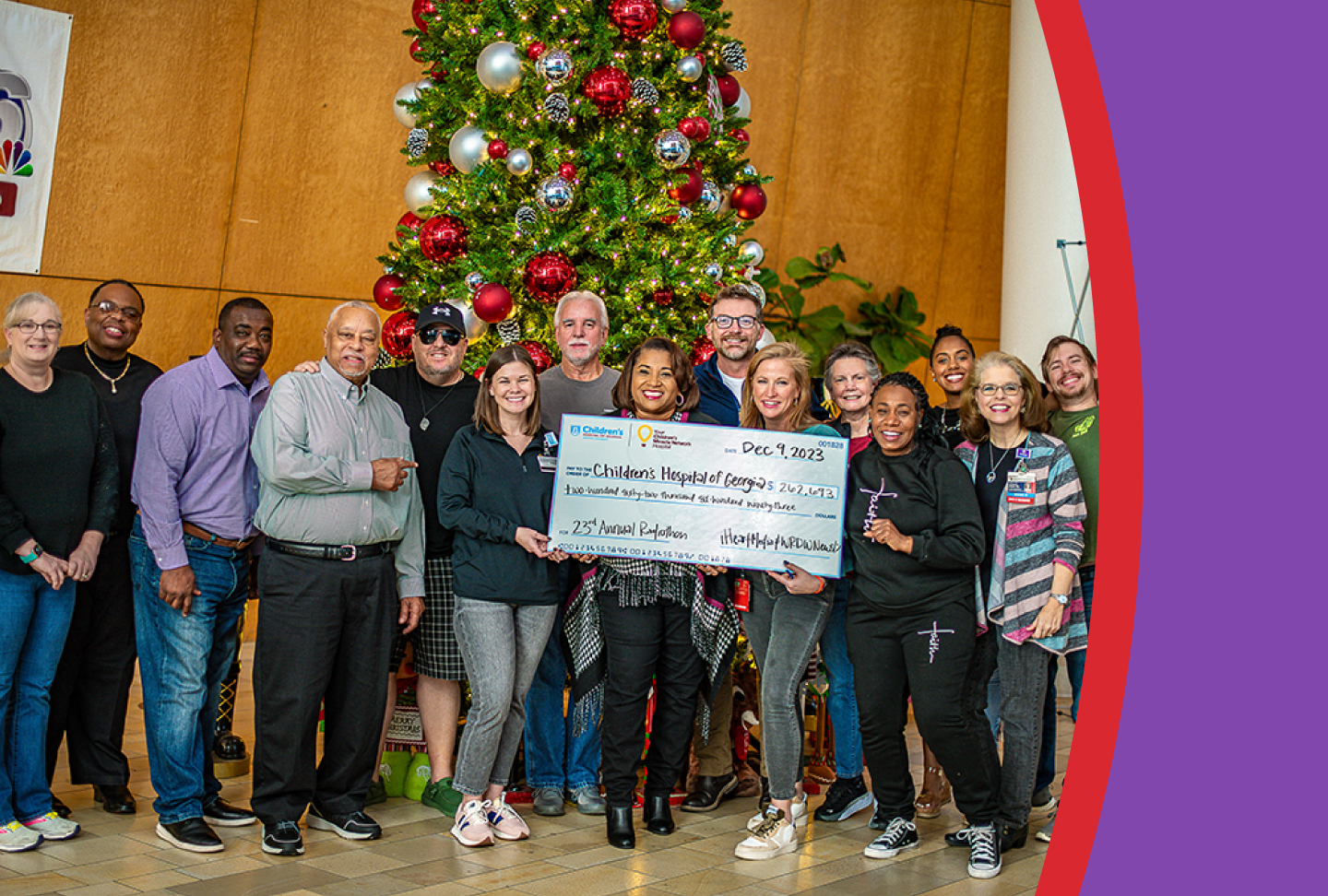
23rd iHeart Media Radiothon Raises $262,693 for Children's Hospital of Georgia
Christmas carols and telephones ringing filled the Wellstar Children’s Hospital of Georgia lobby December 7 through December 9, 2023 for the 23rd annual iHeartMedia Cares for Kids Radiothon.
Thanks to the generosity of supporters, a check for $262,693 was presented to Wellstar Children’s at the conclusion of Radiothon on Saturday, December 9.
Throughout the event, radio stations 104.3 WBBQ, 96.3 Kiss-FM and 105.7 The Bull broadcast live from the lobby while WRDW News 12/NBC 26 shared stories of hope. Families of pediatric patients who have successfully finished treatment or are undergoing treatment at Wellstar Children’s, which is a member of the Children’s Miracle Network, stopped by to share stories of the world-class care their children received from the caring staff and expert caregivers.
“Every dollar that’s raised this weekend with Radiothon stays right here at Wellstar Children’s Hospital of Georgia and directly benefits the care of the children,” said Pediatrician-in-Chief Dr. Valera Hudson. “We’re the second largest children’s hospital in Georgia and the only children’s hospital outside of Atlanta. We offer the highest level of care to the sickest and most complex children. We hope you never need us, but if you ever need us, we’re here.”
Donations to Radiothon are used to purchase much-needed items that are unique to a children’s hospital, such as a vein finder for the neonatal intensive care unit. This device shines a red light through an infant’s arm or leg and helps caregivers find their tiny veins without having to stick them with a needle multiple times to administer fluids and medications.
The funds are also used to provide additional supplies for patient care as needs arise.
Though Radiothon is over, pledges are accepted year-round by calling (706) 721-4004 or by visiting the Cares for Kids Radiothon website.

Wellstar Health System and Wellstar Foundation Recognized as the Only System in Georgia and One of 25 Nationwide to Receive a $2M Grant from The U.S. Department of Health and Human Services (HHS), through the Substance Abuse and Mental Health Services Administration (SAMHSA)
With nearly one in five Georgians struggling with mental health challenges annually, treating mental health conditions and assessing suicide risk is a group effort between health professionals and state, local, and community partners. The U.S. Department of Health and Human Services (HHS), through the Substance Abuse and Mental Health Services Administration (SAMHSA), recognized Wellstar as the only system in Georgia and one of 25 nationwide to be awarded funding as part of a $2M Grant from the Biden-Harris Administration. The grant falls in the Cooperative Agreements to Implement Zero Suicide in Health Systems in the form of an intervention and prevention model for adults throughout our health system.
Wellstar launched a system-wide suicide prevention program in 2017 when the Behavioral Health Service Line adopted the national best-practice Zero Suicide Initiative (ZSI) framework developed by the Suicide Prevention Resource Center (SPRC) and the National Alliance for Suicide Prevention. During the earliest phases of implementation, Wellstar invited national experts from the SPRC to advise on best practices, hosted a series of focus groups with various Wellstar medical specialties and departments, conducted an organizational needs assessment, and convened a Zero Suicide Oversight Steering Council to oversee the development, implementation, and fidelity of the program.
"Behavioral health cannot own the problem alone independent of other members of the healthcare team. We have to consider a systemic approach – how we screen, assess, deliver care and address gaps throughout the entire healthcare continuum," explained Ryan Breshears, PhD, ABPP, chief of Wellstar's Behavioral Health service line and a board-certified clinical health psychologist.
Since the initial 2017 launch, Wellstar's Suicide Prevention Team has implemented an improved suicide screening process for all Wellstar emergency departments and medical floors. These experts have also routinized collaborative safety planning to ensure safety interventions are initiated at the onset of the patient encounter and throughout the duration of care.
“The support of our executive leadership to launch this program in 2017, ongoing system collaboration, and commitment from our suicide prevention team has helped to save lives. The infusion of the SAMHSA grant funding received, in partnership with our Wellstar Foundation, will further enhance our reach and impact to the individuals in this vulnerable population,” says Trisha Velasco, assistant vice president of the Behavioral Health service line.
Wellstar's receipt of the SAMHSA grant builds on the system's established infrastructure through the provision of additional educational resources to healthcare clinicians and the community. It also increases access to evidence-based treatments shown to reduce suicidal thoughts. Specifically, funding will enable follow-up care for high-risk adults who are struggling with suicidal thoughts and/or have experienced a recent suicide attempt. Through this grant, SAMHSA aims to aid the program in continuing to reduce suicide ideation, suicide attempts, and deaths due to suicide.
This grant's objectives align with Wellstar's goals of reducing suicide attempts and suicide death rates among Georgians ages 18 and older by growing the existing Wellstar Zero Suicide Initiative. Adding community-based and treatment-focused strategies, including suicide prevention training throughout the organization coupled with identification, treatment, and care transition, Wellstar will continue strengthening the community. At least 5,000 patients across six Wellstar hospitals and emergency departments will receive care, including to residents in Bartow, Cherokee, Cobb, Douglas, Forsyth, Fulton, Harris, Paulding, Polk, and Troup counties.
Suicide is a leading cause of death in the United States, affecting people of all ages. While mental health plays a role, there are many other factors that may lead someone to contemplate suicide, and there are some warning signs to pay close attention to because they may indicate that someone is at risk of suicide, which include:
The research is clear that enhancing feelings of belonging and connection is a powerful method of reducing suicidal thoughts and behaviors. While suicide can be a difficult topic to talk about, speaking about it non-judgmentally can offer hope. In contrast, avoiding the discussion can contribute to feelings of isolation, further contributing to devastating outcomes.
If you suspect a loved one is at risk for suicide, talk with them. Here are some tips to help guide your conversation:
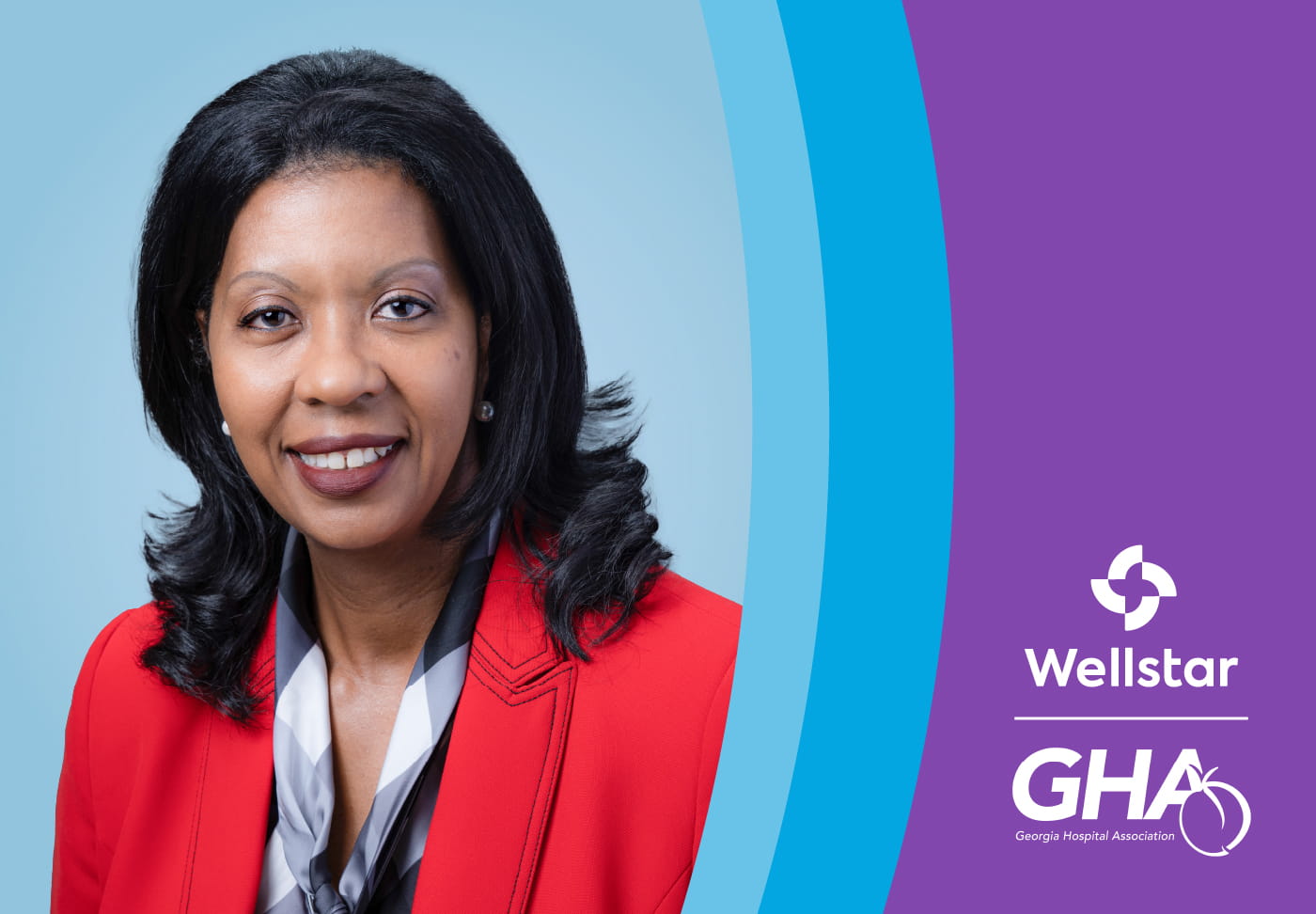
Mary Chatman, Executive Vice President of Acute Care Operations for Wellstar Health System, Elected Chair of the Georgia Hospital Association Board of Trustees
ATLANTA – Mary Chatman, PhD, RN, executive vice president (EVP) of Acute Care Operations for Wellstar Health System, was elected chair of the Board of Trustees of the Georgia Hospital Association (GHA) earlier this month. Chatman, who has served on the GHA Board since February 2020, will lead the Board in developing strategies for GHA hospital members, advocating for the highest quality care for patients, and supporting adequate reimbursement for hospitals.
“Mary Chatman’s extensive leadership experience and skills make her well-equipped to lead our Board,” said GHA President and CEO Caylee Noggle. “She is a strong patient advocate, and her experience will serve our members well.”
Serving as a Wellstar EVP, Chatman oversees the operations of Wellstar’s 11 hospitals, post-acute services, and emergency departments. In 2020, she led the opening of Wellstar Kennestone Regional Medical Center’s new emergency department, the largest in the Southeast.
Prior to serving in her current role, Chatman was the chief operating officer and chief nursing officer at Memorial Health University Medical Center in Savannah, where she was responsible for managing the 654-bed hospital and its nursing operations. She also served as interim chief information officer for Memorial and completed the electronic health record conversion to EPIC.
In 2021, Gov. Brian Kemp appointed Chatman to the state’s Healthcare Workforce Commission, where she has helped address challenges in the hiring and retention of health care workers.
Chatman has been recognized locally and nationally as a prominent leader and strong patient advocate in health care. Atlanta Daily World recognized her among the 2018 Women of Excellence. Diversity MBA Magazine named her among the 2018 Top 100 Under 50 Executive & Emerging Leaders and 2020 Top 100 Women of Influence. Profiles in Diversity Journal named her a 2020 Women Worth Watching® in STEM award winner. Chatman was recognized by Atlanta Magazine among the 2021 Women Making A Mark honorees and by Becker’s as one of the 75 Black Healthcare Leaders to Know 2022. She was also named the 2020 West Cobb Citizen of the Year for serving on the frontlines for Cobb County, fighting COVID-19, and collaborating with local leaders.
Chatman is deeply involved in the community, serving as board member for United Community Bank and active in the fight to find a cure for type 1 diabetes. She is a member of the American Nurses Association and the American College of Healthcare Executives. She earned her Bachelor of Science, Master of Science, and Doctor of Philosophy degrees from East Carolina University in Greenville, North Carolina.
About GHA Founded in 1929, GHA serves nearly 150 hospitals in Georgia and promotes the health and welfare of the public through the development of better hospital care for all Georgia’s citizens. The mission of GHA is to advance the health of individuals and communities by serving as the leading advocate for all Georgia hospitals and health care systems. GHA represents its members before the General Assembly and Congress, as well as state and federal regulatory agencies, and is an allied member of the American Hospital Association. For more information, please call 770-249-4500 or visit gha.org.

Holiday Blues: Why the Holidays Can Sometimes be More Stressful Than Joyful
The holidays can be challenging, especially for those struggling with mental health. Familial factors, unrealistic expectations, past trauma, and grief/loss can all play a role in why sometimes the holidays can be more stressful than joyful.
Physical and behavioral health outcomes are intertwined and provide a holistic view of our health. Physicians refer to assessing depression as “a vital sign” -- like checking blood pressure and heart rate. Considering the assessment of depression is essential for a person’s overall health status.
With nearly one in five Georgians struggling with mental illness yearly, treating mental health conditions and assessing suicide risk is a group effort between health professionals and state, local, and community partners. Wellstar’s director of adult & pediatric primary care behavioral health integration, Dr. Janna Williams-Pitts, helps us to understand why the holidays can be so stressful.
“When the stress response becomes activated due to something we are excited or concerned about, it can have a physiological and psychological impact. This occurs for those with and without a diagnosed mental health condition. The stress response, and more specifically chronic stress, can play a role in the onset of a depressive episode or the recurrence of heightened anxiety symptoms.”
Women are about twice as likely as men to be diagnosed with an anxiety disorder. In speaking with Dr. Williams-Pitts, we wanted to understand how specific risk factors like age and gender can make facing these holiday stressors more challenging.
“Research suggests that there are gender differences in the stress response due to biological factors, specifically hormonal differences. Women appear to be more likely to experience depression due to chronic stress, whereas men may be more likely to develop substance use disorders due to chronic stress. The APA completed a survey to assess for Stress in America in 2022. The results of this survey indicate that inflation, concerns about violence, and the racial climate in America are a few of the factors that contribute to differing experiences with stress for participants. Age differences emerged as well. Forty-six percent of adults under 35 reported feeling so stressed that it impacted their functioning whereas 42% of adults aged 35-44, 16% 45-64, and 4% of adults 65+ reported the same.”
People respond to stress in a variety of ways. Often, individuals can hide their symptoms from those closest to them. But we learned there are signs to look for in loved ones who might be experiencing stress blues during the holidays. Social withdrawal, increased substance use, change in hygiene/self-care, shifts in sleep, and experiencing feeling anxious, overwhelmed, and poor concentration can all be signs that chronic stress is starting to have an impact.
It's common for people to notice increased fatigue and feeling down due to less exposure to sunlight during the winter months. So, it’s only natural to wonder if environmental changes during winter months play a role in the onset of depression.
“Some people experience debilitating depressive episodes during the fall and winter months with significant improvement in the spring and summer months. When depressive episodes occur in a seasonal pattern, this is consistent with the diagnosis of Seasonal Affective Disorder.”
Dr. Williams-Pitts added that it is “important to identify a range of meaningful, enjoyable activities to engage in during the winter months to help reduce the likelihood of worsening depressive symptoms.”
Rescheduling appointments with your behavioral health clinician before the holidays can be tempting. Still, keeping that appointment is helpful for those who experience stress during this season. It serves as an opportunity to review your stress management plan and identify meaningful coping mechanisms, which may help the holiday season go more smoothly.
If you are wondering where to turn if you need help during the holidays but don’t have a behavioral health clinician, scheduling an appointment with your primary care provider can be a great way to connect with a behavioral health clinician.
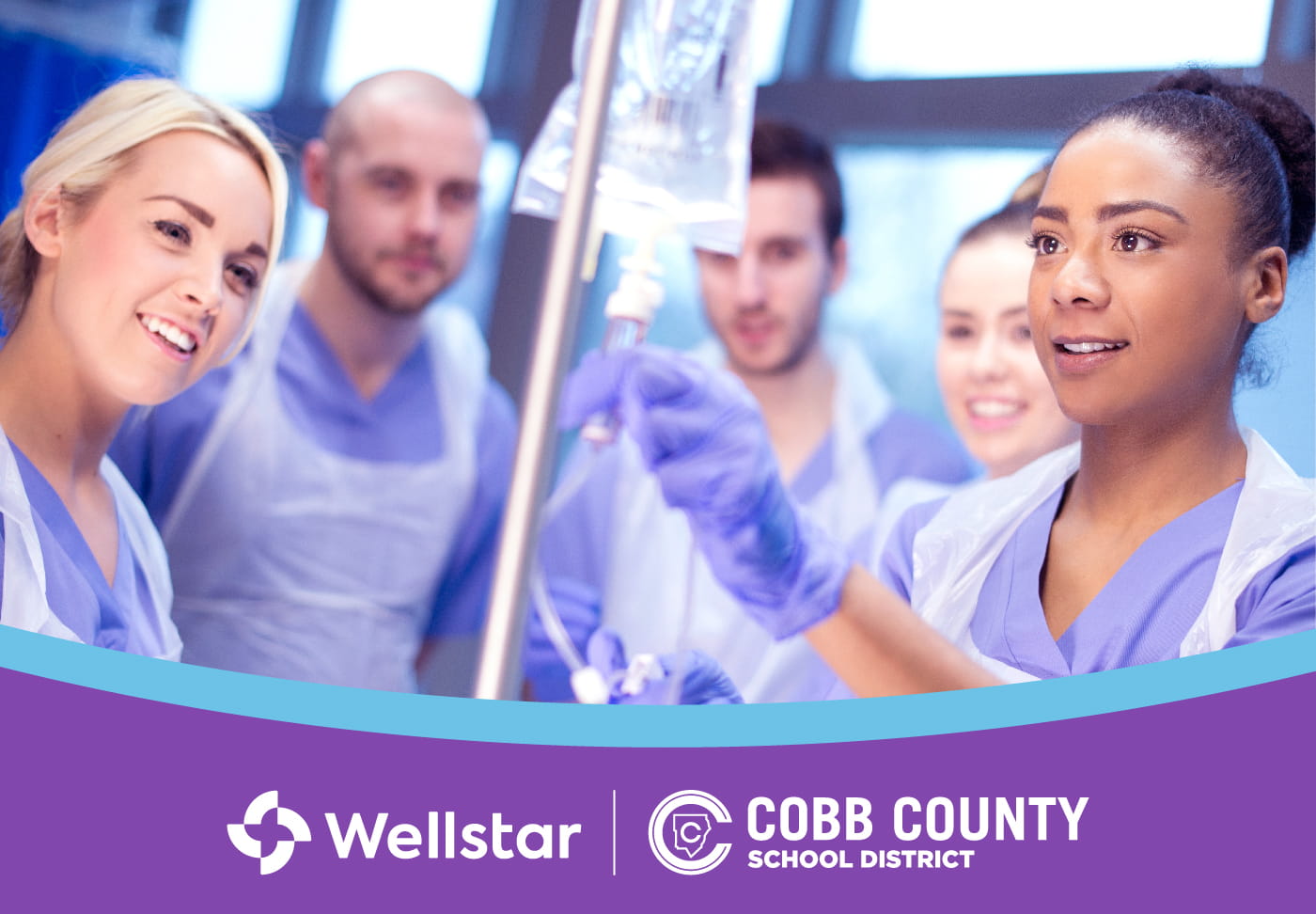
Wellstar Supports Developing Future Healthcare Professionals at Cobb Innovation Technology Academy
According to the American Hospital Association, “Shortages of health care workers in all roles will persist well beyond the pandemic given today’s highly competitive labor market.” To help meet this need, the Cobb County School District and Wellstar Health System are introducing high school students to healthcare careers through the healthcare pathway at the Cobb Innovation Technology Academy (CITA). CITA is an innovative Career, Technical, and Agricultural Education (CTAE) program inside the Cobb County School District (CCSD).
Wellstar Health System and Wellstar Foundation recently awarded Cobb Schools Foundation a $2 million grant to expand the Cobb Innovation and Technical Academy (CITA) over the next five years. The CITA program is a beacon of opportunity for students seeking hands-on learning experiences and career prospects in healthcare through district, post-secondary and industry partnerships.
"This program seeks to inspire, educate, and nurture the next generation of healthcare professionals,” said David Jones, Executive Vice President and Chief Human Resources Officer for Wellstar. “We’re thrilled with the opportunity to help enhance the education of our community’s students and offer them rewarding career pathways."
Cobb students will have direct access to healthcare professionals from Wellstar who will make their classroom experience more practical and prepare them for their real-world jobs. All CCSD students can apply for the opportunity to enroll in CITA. Once enrolled, the Cobb students will be able to:
"The Wellstar Healthcare Pathways Program will offer students exposure to training and potential job opportunities,” said Tiffany Barney, Director, CITA. “The Cobb Schools Foundation appreciates this investment in students who will go on to have careers in healthcare. It will further enhance the quality of education we provide our students in Cobb."

Jace Dion Undergoes Multiple Surgeries at Children's Hospital of Georgia to Repair Cleft Lip and Cleft Palate
Amanda Dion had her heart set on having a girl. After three boys, she was very excited when her doctor told her, based on an early sonogram, that she would finally have one.
Another sonogram a few weeks later told a different story. Not only was she having a boy, but the image showed something concerning. He would have a cleft lip.
“My ultrasound tech was taking more time this time, measuring more,” Dion said. “I’m like, ‘What’s going on?’ She said, ‘We’ll just wait until the doctor comes in.’ About that time, I see her go across his face and you could see his cleft lip in the picture on the screen.”
That wasn’t all. Her doctor sat her down and explained that not only would her baby boy, Jace, have a cleft lip, but he might have a cleft palate. There was also an abnormality in his brain, which was eventually diagnosed as Dandy-Walker syndrome.
Dandy-Walker is a brain malformation that affects coordination. In many children, the condition causes hydrocephalus, in which fluid in the brain doesn’t drain properly. These children often have a large head size and slow motor development.
No one would know how the condition would affect Jace until he grew and began to develop, Dion said.
However, the staff at Wellstar Children’s Hospital of Georgia stepped in to not only deliver Jace early—Dion was borderline preeclamptic and had a c-section at 37 weeks—but also treat Jace and help ensure he lives a healthy, normal life.
Jace spent the first few days of his life in the hospital’s neonatal intensive care unit (NICU) on extracorporeal membrane oxygenation (ECMO). Once he was stable, he was able to go home with oxygen and a feeding tube, but the battles were just beginning. Jace developed pneumonia, needed several sets of ear tubes and had a shunt in his liver repaired. He also had heart surgery to correct a congenital heart defect.
As he grew, Jace had a difficult time eating due to a laryngeal cleft.
“It can cause aspiration, which can make it hard for babies to gain weight and stay well,” said Dr. Heather Koehn, a pediatric otolaryngologist at Wellstar Children’s and assistant professor of pediatric otolaryngology at Augusta University’s Medical College of Georgia.
Jace required a feeding tube and frequently had tubes put in his ears. Koehn explained that children with a cleft palate also tend to have frequent ear infections. Swallowing helps us pop our ears, releasing fluid and ventilating the ear.
“If your palate isn’t born with the muscles connected, then the whole mechanism doesn’t function properly,” Koehn said. “Then you’re not able to ventilate the ears through the Eustachian tubes. The ears end up accumulating thick mucus, and then that fluid is like being underwater all the time. So a child can’t hear clearly, and it puts them at risk of speech delay and other learning delays.”
Jace’s neurologists continue to monitor his Dandy-Walker symptoms, which, thankfully, are not severe. He also sees a team of speech therapists, physical therapists and occupational therapists every other week.
Now 4, Jace is an active boy who loves dinosaurs, playing with his brothers and swimming.
“It took us a long time to get him there, but he’s definitely in a good spot,” Dion said. “He’s definitely super resilient—bounces back from everything.”

Wellstar Clinical Partners Medicare ACO Continues to Significantly Reduce Costs for Patients
The Centers for Medicare & Medicaid Services (CMS) announced the 2022 results for the Medicare Shared Savings Program (MSSP) and Wellstar Clinical Partners (WCP) Medicare Accountable Care Organization (ACO) helped CMS save over $16 million for the entire performance year.
“These latest results from CMS clearly demonstrate how Wellstar is committed to providing world-class care for every person, every time. Our teams never waiver from that commitment – even during some of the most challenging times in healthcare,” said Dr. Alan Muster, senior vice president, Specialty Division for Wellstar Medical Group. Dr. Larry Hornsby, chairman of the board for WCP added, “At Wellstar, we all work together to keep our communities healthy. We provide the highest-quality care, at an appropriate cost, and ensure each patient has an exceptional experience while maintaining a laser focus on our caregiver well-being.”
Even after CMS revised its methodology for calculating the annual Quality score, Wellstar maintained a competitive rating compared to other Georgia systems that participate in the Medicare ACO. The System also saw an increase in patient satisfaction compared to 2021. The WCP Medicare ACO performed in the top 16 percent of ACOs for 2022 based on generated savings, out of more than 480 other ACOs.
“The health and well-being of every patient remain our top priority,” said Barbara Corey, president of the Wellstar Clinical Partners Medicare ACO. “The hard work and dedication of our WCP physicians is clearly reflected in our latest accomplishments, and we are proud of the compassionate care we consistently provide for the communities we serve.”
As one of the largest and most experienced ACOs in Georgia, the WCP Medicare ACO is consistently named one of the top ACOs in the country. Additionally, the ACO is the only one in Georgia to help Medicare bend the healthcare cost curve for nine of the last ten years. Medicare Shared Savings Program (MSSP) ACOs are groups of doctors, hospitals, and other healthcare providers who come together voluntarily to provide coordinated high-quality care to their Medicare patients.
The WCP Medicare ACO leverages its internal resources, infrastructure, and partnerships with employed and affiliated physicians to deliver high quality, cost-effective healthcare to the communities it serves. Since 2012, the WCP Medicare ACO has been a consistent, high-quality, top performing ACO and it is among the top MSSP ACOs when measured by cumulative savings to Medicare of nearly $150 Million.
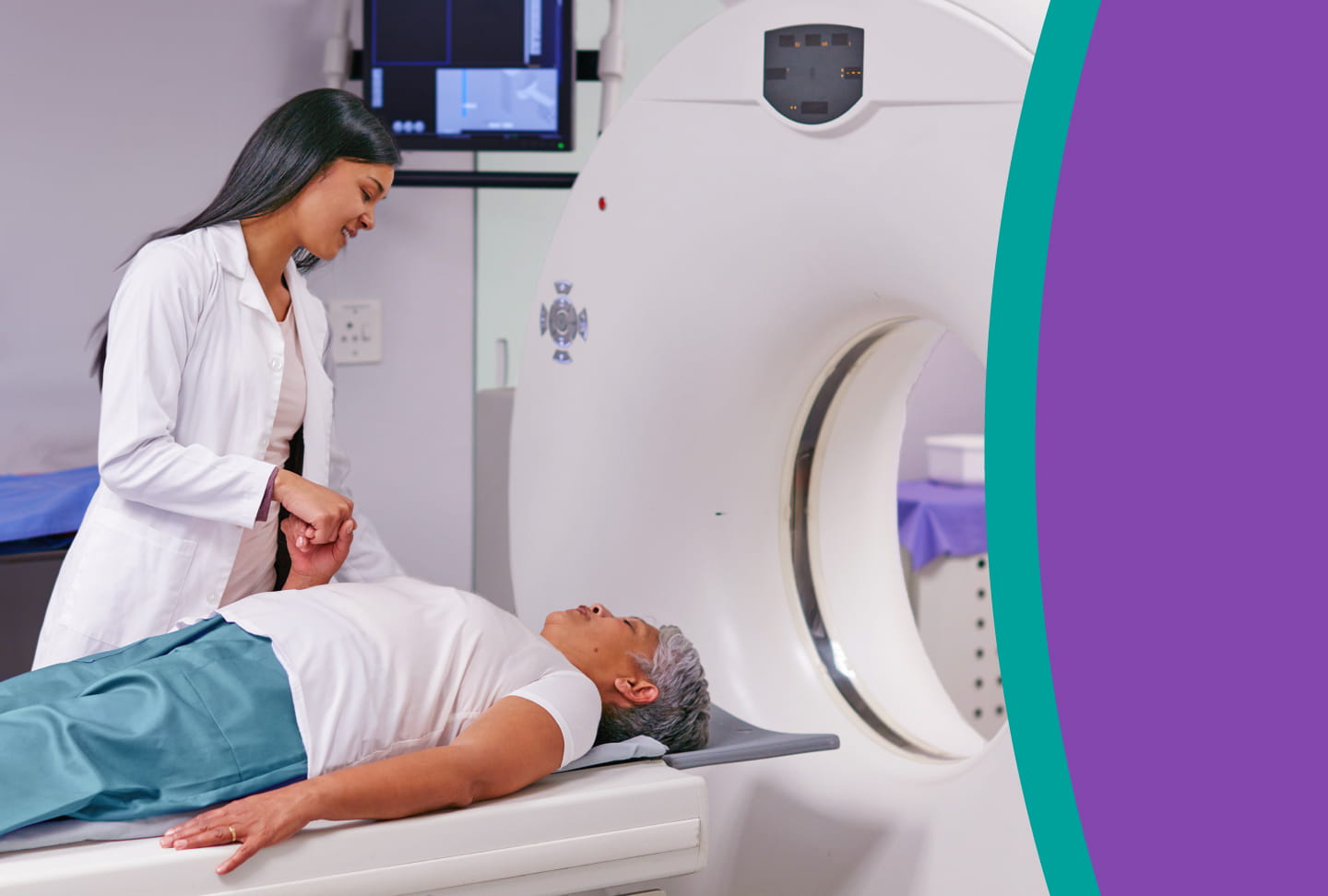
Wellstar Lung Cancer Screening Detects 500 Cancers Since 2008

Pediatric Patients Trick-Or-Treat at Wellstar Children’s Hospital of Georgia
Little superheroes, princesses and witches who spent their Halloween at Wellstar Children’s Hospital of Georgia did not miss out on the fun. Wearing costumes donated by the community, patients enjoyed trick-or-treating by visiting units along the halls of the children’s hospital. Wellstar MCG Health Medical Center employees dressed up as well and handed out goodies from their decorated stations.
A few members of the Child Life Specialists team who were dressed as crayons—including facility dogs Casey and Nugget—pulled wagons filled with treat bags to trick-or-treat for patients who were too ill to walk the halls themselves.
Child Life Specialists work hard to ensure that pediatric patients can still be kids, even in the hospital. But they can’t do it alone. Each community member who donated costumes and each employee who participated and provided treats made the holiday a little brighter for these patients.
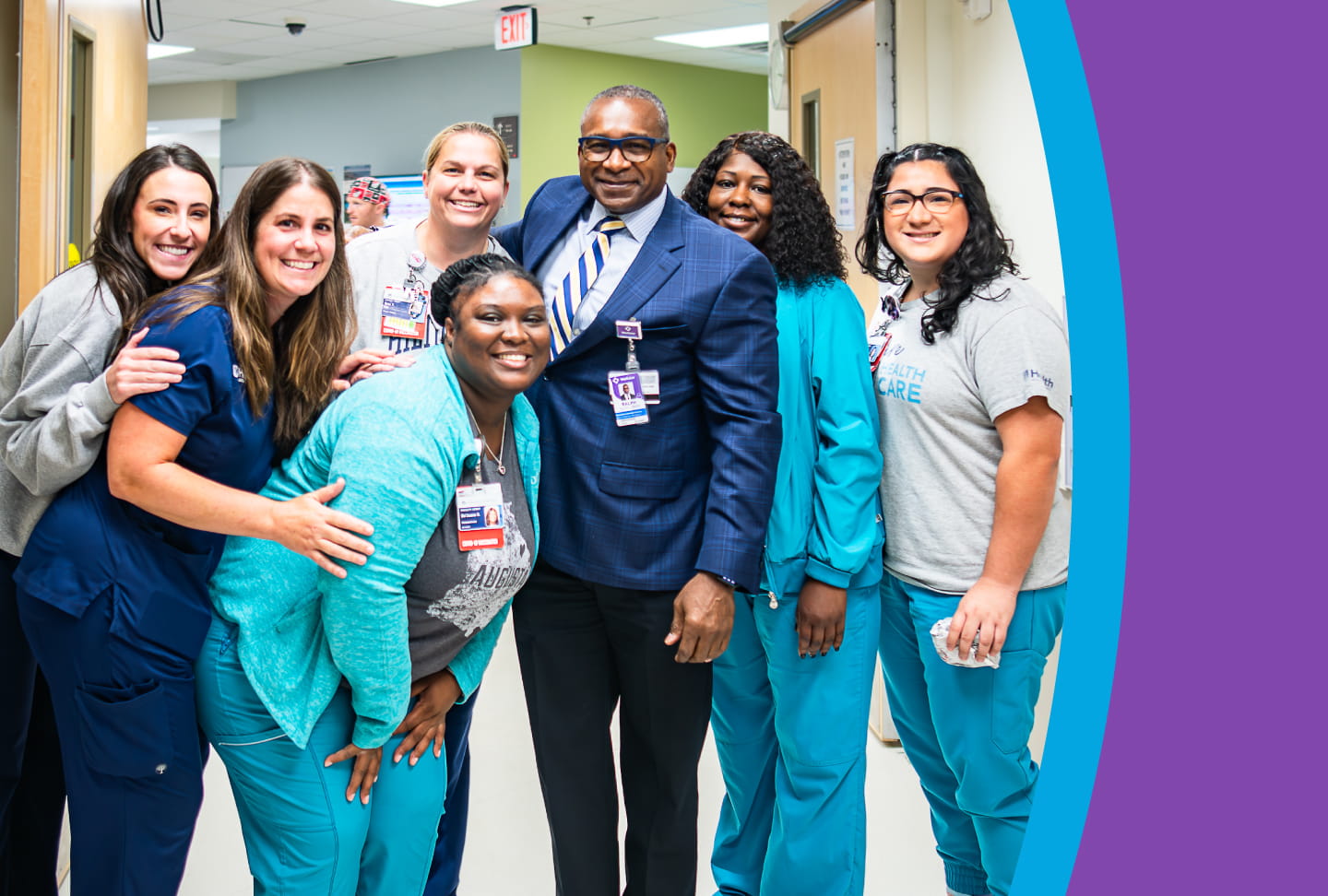
Meet new Wellstar MCG Health President Ralph Turner
Ralph Turner stepped out the front door of his new apartment in North Augusta and ran into his neighbor, who had a Wellstar MCG Health Medical Center badge.
“I work there too,” he said. “Oh, what do you do there?” she asked.
He held out his badge that read “president,” and she looked up in shock.
“There are so many medical students and Wellstar employees in my complex,” he said. “The hospital is such a large part of the community.”
Turner, who has lived out of a hotel in Augusta until last week, still considers Powder Springs his permanent base. He drives to Augusta on Sunday afternoon and back to Atlanta on Thursday night to spend Friday at Wellstar Paulding Medical Center. Saturday is his rest day to enjoy with his wife of 31 years, Ann.
The new leader started his career in 1986 with the U.S. Army, giving him the chance to live around the world—Fort Bliss, Texas; Fort Cavazos, Texas (formerly Fort Hood); Fort Belvoir, Va.; Fort Johnson, La. (formerly Fort Polk); Fitzsimons Army Medical Center in Aurora, Co.; Germany; Alaska; Washington, D.C.; and Seoul, South Korea.
From the start, he knew he wanted to work in healthcare.
“It’s rewarding to help people when they are at their most vulnerable state,” he said. “To me, there is honor in that.”
After graduating from high school in Valdosta, Ga., he joined the Army and took a job repairing hospital equipment. After eight years, he became a warrant officer—a highly respected position for subject matter experts who make up less than 3% of the Army—and began managing clinical engineering departments in hospitals.
At the same time, Turner was taking classes. He earned his bachelor’s degree in 1995, going on to earn a master’s in public administration and then a master’s in healthcare administration.
“My mindset is be all you can be,” he said.
The more senior he became, the more departments he managed. His last assignment for the Army was at the Walter Reed Army Medical Center in Washington, D.C., where he ran support services departments such as property management, environmental services and clinical engineering for facilities. After more than two decades in the Army, he retired in 2008 as a Chief Warrant Officer Four (CW4) and earned an executive position with MedStar Washington Hospital Center as an assistant vice president of facilities and support services.
Turner departed Washington, D.C., for Wisconsin to work at the University of Wisconsin Hospitals and Clinics and thought he was finished with school after three degrees. But when his oldest son began to talk about going to medical school, his competitive side came out. He returned to school at the University of Wisconsin and earned his doctorate in business administration.
“I thought, ‘He’s not going to be the first one in the family to be called a doctor,'” he said in good humor.
From there, he moved his family to Cleveland, where he joined the Cleveland Clinic for two years. He then transferred to Florida for three years for his role as chief operating officer, overseeing a merger between the Cleveland Clinic and Indian River Medical Center in Vero Beach.
Turner’s journey with Wellstar began in May 2022 when he became president of Wellstar Paulding Medical Center in Hiram, Ga. He is now the first president of Wellstar MCG Health in Augusta.
We sat down with Turner last week, and he answered some questions to help the staff and community get to know him and his vision for the future of Wellstar MCG Health.
What’s your day-to-day like right now at Wellstar MCG Health?
Right now, I’m usually at the gym between 5 and 5:30 AM, and then in the office between 7 and 7:30 AM. My day usually ends between 7 and 7:30 PM. If I am not in a meeting, my door is always open. I have an open-door policy. I usually have anywhere from 80 to 100 emails at the end of the day, and I make sure to go through all of them before I leave at night.
What made you want to go into hospital management?
I have always liked helping people, and I knew going into healthcare, you’re doing just that. In high school in Valdosta, we had the South Georgia Medical Center and my plan was to end up there. My father passed when I was 4 so my mother, my grandmother and my godmother raised me. Those three women always told me to treat people the way that I wanted to be treated, and if I got caught not doing that, they always reminded me with a stick, broom or whatever they got their hands on. Needless to say, I quickly learned the Golden Rule and apply that to every area of my life—professional and personal.
What’s the biggest area of improvement you’re working on here?
First, ensuring people are paid fairly. Our Human Resources at the main campus is focused on putting together a comprehensive plan that will start to bring our caregivers to a market-compatible salary. You must make sure you do the right thing for your staff, because that’s the most important resource you have. Second, ensuring that our facility looks like it’s a place of healing. Third, ensuring physicians are supported and strengthening our medical services lines in the market. Smart and efficient growth of our physician staff and service lines lead to market domination, which leads to a stronger training center at our medical school. Fourth, community initiatives—getting out into the community and meeting community leaders to let them know we are here to support them. Fifth, ensuring a good relationship with leadership at Augusta University. And, lastly, protecting our assets. When I say our assets, this includes students in their didactic phase of learning and students in their residency or fellowship. We want to be our students’ first choice when it comes to choosing an employer. We want them to stay with Wellstar, be it here in Augusta or in the Atlanta area. We have a lot of students who come from other universities in and out of the state. My thought is, let’s feed ourselves first and go to outside resources for talent second.
Can you talk more about what improvements you’re planning in regard to facilities?
In our Wellstar Children’s Hospital of Georgia lobby, the only realistic lobby entrance we have, there are a few issues to address. There’s an old water fountain that hasn’t had water in it in 15 years; there’s furniture that was supposed to be antimicrobial and is no longer antimicrobial; there are cracks in the floors near the Chick-fil-A; windows haven’t been washed in eight years; and the bottom is coming off the reception station. It’s not that the team didn’t want to address the issues; it’s that they just didn’t have the capital. Our facility professionals managed a budget of $250,000 to take care of a 2.9-million-gross-square-foot facility. If you have one HVAC go out, there goes all of it. So it’s empowering people. People want to do their job, but they’ve been handcuffed with a budget. I told them, “Just do it.”
What’s the biggest threat to the industry?
A lack of human resources and the cost of healthcare. We have to figure out how to close the gap between the amount that healthcare organizations pay to provide care versus what we get reimbursed for providing the care because we pass a lot of that cost onto the patient.
How is the difficult labor market impacting Wellstar?
Certain hospitals are better than others. I think across our system, our vacancy rate for nurses is about 18%, but at Wellstar Paulding Medical Center, our vacancy rate is about 7.8%. At some of our other hospitals, I think they average anywhere from 18% to 24% vacancy.
What do you anticipate being the biggest challenge of Wellstar partnering with an academic medical center?
Academia focuses on the teaching mission, which may lack the urgency to maximize volumes in our ambulatory clinics, which could lead to low volumes/clinic appointments on a daily basis, in comparison to the amount of staff and available exam rooms.
I need to ensure academia understands our mission, “To enhance the health and well-being of every person we serve.” This means we must ensure we are utilizing every opportunity to maximize our ability to see patients by filling schedules and ensuring we have enough support and operational staff to facilitate safe and efficient operations of our inpatient units and ambulatory clinics. We want to earn as much revenue as possible so we can reinvest it back into our organization by providing better salaries, improving our equipment and improving our facilities.
Where is Wellstar MCG Health now and where do you want it to be?
According to U.S. News & World Report, the Medical College of Georgia ranks 79th nationally in the best medical schools for research. I want us to be ranked in the top 50 in five years, and the top 15 in 10 years. I want to make sure that we become the premier medical school not only in the state of Georgia but also in the U.S. I want us to be able to compete with medical schools like Duke and Emory. I want us to be in the top two to three schools in our region.
What are our strengths and weaknesses? I think one of our biggest strengths is our people. Our team members have true care and concern for people. This is demonstrated daily. A weakness would be the time we have to invest to become fully integrated into Wellstar. It’s a weakness because we can’t come out of the starting blocks moving at a fast speed, driving changes immediately. We are looking at three to five years before we are fully integrated into Wellstar. It takes time to implement the new IT programs and systems that will tie us into Wellstar, which will provide us the opportunity to be more nimble and agile in implementing changes.
Is there anything you want the work-family to know? We feel the most important resource we have is our human resources. I want every leader we have to engage with their staff and to understand what they need to do their job because I will ask every leader. As president, it’s my job to make sure our team members come to work in an environment that’s safe, free from coercion and free from harassment. It’s also my job to make sure they have what they need to do their job, so they don’t feel like they’re handicapped. And if anyone ever feels like they don’t have what they need to do their job or that they are being coerced, harassed or feel unsafe, please let me know directly. Remember, I have an open-door policy. Final thought: Always put the patient first. That’s what we’re here for, to take care of people who cannot take care of themselves at a specific moment in time. If our team members are making decisions with the mindset of putting the patient first, I always have their back.
Do you have a quote you live by? Just do it (Nike). Eighty percent solution is better than 100% analysis paralysis at any time. When you have 80% of the solution figured out, go ahead and start moving the needle. Just do it.
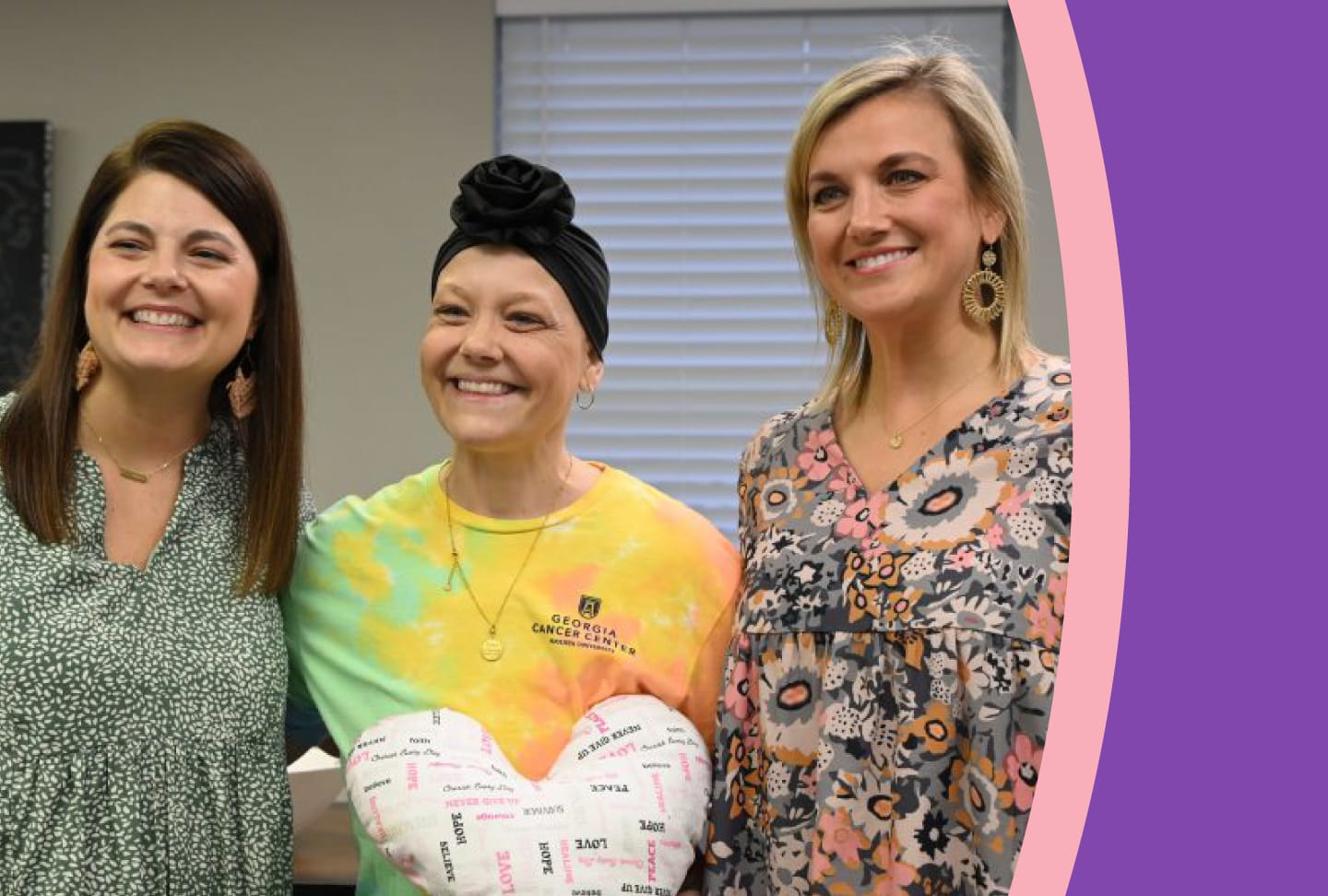
A Gift From the Heart for Patients with Breast Cancer Across the CSRA
It all started with a gift and a special note.
April Sather had just undergone surgery for her breast cancer and was struggling to sleep at night. She would spend the night tossing and turning, trying to get comfortable. “I’m a side sleeper, so that is kind of an issue,” she said when describing her sleeping troubles.
One day she received a gift from a friend: a heart-shaped pillow made with soft flannel that was light pink with beautiful clouds across it. Sather was able to tuck it under her arm and sleep comfortably throughout the night. This gift, combined with a lovely note from one of her nurses after surgery, inspired Sather to want to do the same for others.
“I thought, ‘Wouldn’t it be cool if we could make heart-shaped pillows for other breast cancer patients so that after they get out of surgery, they could feel that same love that I received?’” Sather said. “I shared the idea with a few ladies at church, and the rest is history.”
Healing Hearts Ministry at Warren Belvedere Church now meets once a month to sew, stuff, pray, write notes and package up the hearts to be delivered to patients with breast cancer across the CSRA. There is no commitment, and volunteers are welcome to take the materials with them if they prefer to work in the comfort of their own homes.
“It makes me feel like I’ve done something that’s worthy of helping someone else go through a hard time in their life,” volunteer Susan Elliot shared about each time the group finishes a pillow to be delivered to a patient.
Elliot is one of the women who answered Sather’s call for help with her idea. While she has no personal experience with breast cancer, she is a seamstress and was more than happy to use her knowledge and experience with sewing for the program.
Healing Hearts provides the sewing pattern, fabric and fluff needed to create the pillows, so all that volunteers have to bring are their hands and good spirits. Sometimes the group welcomes speakers during the meetings; in fact, they celebrated their first anniversary by inviting a Wellstar Georgia Cancer Center patient and breast team nurse navigator to come and share their story.
If you would like more information or to make a donation to assist the program, visit the church’s website, select the Belvedere campus, then make the message out to April Sather or Susan Elliot. You can also get in touch through the church’s Facebook page.

Halloween 2023: Trick-or-TREAT and Play it Safe
Halloween is right around the corner, and while many Georgians are planning to celebrate this year, many may have questions about how to do so safely.
Wellstar’s very own Dr. Branstetter recently shared his recommendations to minimize the risk from the triple-demic and to keep family and friends safe while celebrating holiday occasions such as Halloween by ensuring you are up to date with the latest vaccines that help prepare our immune systems to prevent illnesses.
"Some of my patients have already elected to get both their COVID and influenza shots. I don't think there is a perfect way that we need to go through and get these vaccines. The important thing is, if they're indicated for you and you're due for a vaccine, go ahead and get those done." - Dr. Danny Branstetter, Medical Director for Infection Prevention at Wellstar Health System in the Marietta Daily Journal
Millions of people in the U.S. and around the globe, including children of all ages, look forward to the festivities of Halloween. But–lest we forget–it's virus season, and RSV, flu, and COVID-19 are still lurking in the shadows. How can we celebrate while keeping our families, friends, and neighbors safe from the community spread of these viruses, which is essential to everyone's health and well-being? Get creative and think about safety. Think "TREAT!"
Wellstar has created these tips for a healthy Halloween celebration while keeping in mind it's a holiday full of tricks and TREATS!
Wellstar is committed to providing high-quality, tailored and compassionate care. For more information and the latest updates on COVID-19, visit wellstar.org/COVID-19.

Wellstar Health System Recognized by the American Medical Association for Promoting Well-Being of Healthcare Workers
The American Medical Association’s (AMA) Joy in Medicine™ Health System Recognition Program has recognized Wellstar Health System for its commitment to improving physician well-being and reducing burnout among healthcare clinicians. Wellstar is Georgia’s first large health system to receive this distinction.
Prior to 2020, burnout rates among U.S. physicians and other healthcare professionals were rising, but the prevalence spiked dramatically as the COVID-19 pandemic placed acute stress on care teams and exacerbated longstanding system issues. While the worst days of the pandemic have passed, the lingering impact of work-related burnout remains an obstacle to achieving national health goals.
“From our President and CEO Candice L. Saunders to our physician leaders and executive team, this recognition is a meaningful testament to the commitment that our physician and other Wellstar leaders have made to our people,” said Dr. Ryan Breshears, a clinical health psychologist, Wellstar’s chief behavioral health officer, and chair of Workforce Well-being. “The road ahead is long, and by no means does this suggest that our work is finished, but it’s encouraging that the AMA has validated that we’re trending in the right direction.”
When it comes to clinician well-being, elevating the voice of the practicing clinician is paramount. In April 2022, Wellstar’s Clinician Resiliency and Well-being team developed a cross-specialty Physician Well-being Council to identify opportunities to mitigate stress drivers and support physicians and other clinicians in prioritizing their health and well-being. Employing a multi-pronged approach aligned with best practice models, Wellstar has implemented the assessment of clinician well-being annually, developed avenues to build camaraderie, and made improvements to reduce administrative burdens on the clinical workforce. July 2023 data revealed that Wellstar’s prevalence of physician distress has declined by 29% over the past two years and that overall physician well-being is 15% better than the national average during the same timeframe. Following rigorous analysis, these changes proved statistically significant on both accounts.
“Health organizations that have earned recognition from the AMA’s Joy in Medicine Health System Recognition Program are leading a national movement that has declared the well-being of health professionals to be an essential element for providing high-quality care to patients, families, and communities,” said AMA President Jesse M. Ehrenfeld, MD, MPH. “Each recognized organization is distinguished as among the nation’s best at creating a culture of wellness that makes a difference in the lives of clinical care teams.”
"The goal of the Joy in Medicine Health System Recognition Program is to unite the healthcare community in building a nationwide culture committed to the well-being of clinical care teams by helping health organizations invest in action plans promoting professional fulfillment and meaning that clinicians find in caring for their patients,” said Christine Sinsky, MD, AMA vice president of professional satisfaction.
Since its inception in 2019, the Joy in Medicine™ Health System Recognition Program has recognized more than 100 organizations across the country. In 2023, 72 health systems nationwide earned recognition with documented efforts to reduce system-level drivers of work-related burnout and demonstrated competencies in commitment, assessment, leadership, efficiency of practice environment, teamwork, and support.
Learn more about the AMA Joy in Medicine™ Health System Recognition Program at ama-assn.org/joyinmedicine.

Wellstar and Augusta University Officially Launch Unified Health System
Wellstar Health System and Augusta University Health System (AUHS) are pleased to announce that today is our first day as a unified system. AUHS will now be known locally as Wellstar MCG Health. Together, Wellstar and Wellstar MCG Health will revolutionize healthcare and enhance the well-being of communities across Georgia. This transformative partnership is set to make a significant impact on the lives of people throughout the state.
Through this partnership, we are committed to investing in cutting-edge medical facilities and infrastructure, strengthening collaborations with rural hospitals, and providing greater access to digital health services and top-notch clinical care, such as the exceptional pediatric care offered by Wellstar and Children’s Hospital of Georgia. Most importantly, we’re focused on addressing the unique needs of each person and community we serve as effectively and compassionately as possible.
Our vision doesn’t stop there. This partnership also represents a powerful alliance between Wellstar Health System, the University System of Georgia, Wellstar MCG Health and one of the nation’s best public medical schools, Augusta University’s Medical College of Georgia (MCG), to propel medical education and research forward. By continuing to build on the rich legacy of MCG and creating new opportunities for more physicians to be trained in a modern clinical environment, we are addressing physician shortages in our local communities and contributing to solving this challenge nationwide.
The possibilities that lie ahead are extraordinary, and we can’t wait to expand our shared commitment to enhancing the health and well-being of the people we serve across our great state. We are forging a path toward a brighter, healthier future for Georgia and beyond.
This statement is issued jointly by:
Sonny Perdue, chancellor, the University System of Georgia
Candice L. Saunders, FACHE, president and chief executive officer of Wellstar Health System
Brooks A. Keel, Ph.D., acting chief executive officer of Augusta University Health System and president of Augusta University
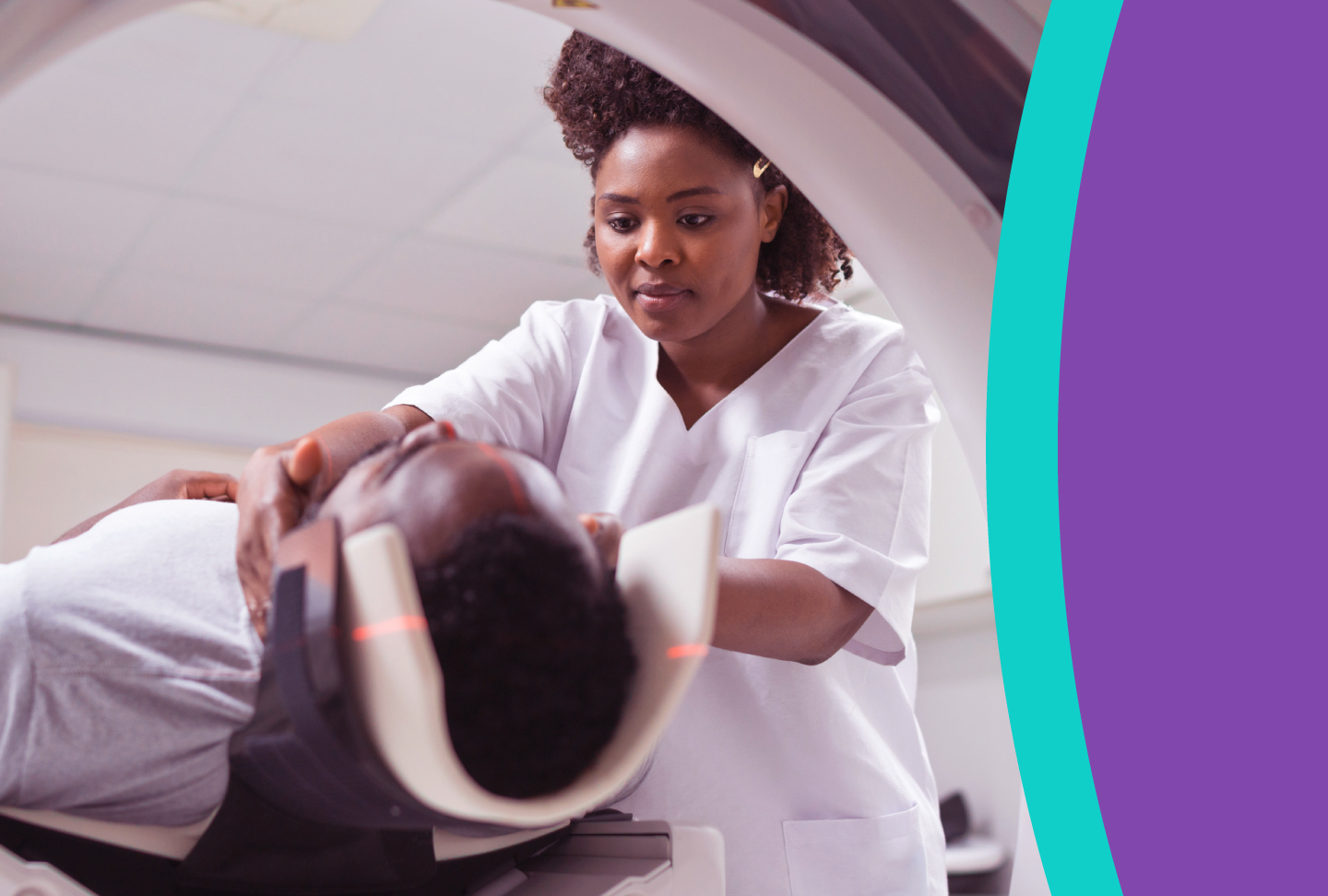
New Clinic for Leptomeningeal Disease at Wellstar Georgia Cancer Center
When a family member receives a cancer diagnosis, you want the absolute best cancer care for them. Having multiple family members impacted by cancer and neurological conditions inspired Dr. Gerald Wallace to pursue neuro-oncology and to create the Leptomeningeal Disease Clinic at Wellstar Georgia Cancer Center. The goal of the clinic is to diagnose, treat and raise awareness of the life-threatening disease.
“Neurology and cancer have deeply impacted my life for as long as I can remember,” said Wallace, an assistant professor in the division of Hematology/Oncology at the Medical College of Georgia. “I love doing this job; everything about it is just fascinating to me.”
Leptomeningeal disease is a type of metastatic cancer. The leptomeninges are two layers of tissue within the meninges that cover the brain and spinal cord. They are the innermost layers, which line the surface of the brain, blood vessels and surround the cerebrospinal fluid. Researchers estimate that 5% to 8% of people with cancer will develop leptomeningeal disease. It is also estimated that of the nearly 54,000 Georgians diagnosed each year with invasive cancer, as many as 4,000 are at risk of developing leptomeningeal disease. While there is still much that is unknown about the disease, experts do know that it is life-threatening. Without treatment, most patients will only live another six to eight weeks. With treatment, people can live well for months and, in some cases, years.
“That six to 12 months is the next graduation, the next wedding, the next birth of a child… at the end of the day I think we are all just fighting for time to spend with our loved ones. So, we should do something. Treatment is not that bad; it is quite tolerable,” said Wallace.
Possible symptoms that are associated with leptomeningeal disease are visual changes, stiff neck, trouble walking, headache that worsens when lying down, urinary/bowel incontinence, and memory issues. Wallace is concerned when he sees a patient with neuropathies or new neurological symptoms that do not connect to a patient’s known disease. When he hears or sees these sorts of symptoms, he sends patients to get tested. He thinks leptomeningeal disease is easily missed because most patients will already have had cancer for months or years. For these patients, symptoms may be attributed to treatment rather than cancer in the leptomeningeal space.
“If you have problems with one nerve here and one nerve over there, and I cannot connect the two… that really makes me nervous. Something is going on in a more global space than would otherwise be indicated in, say, a tumor that was sitting in the visual cortex and you cannot see well,” he said.
There are treatment options for patients diagnosed with leptomeningeal disease. The first step is to confirm the diagnosis. Contrasted MRI of the brain and spinal cord is used to see if there is anything suspicious or out of the ordinary. MRI is followed by two lumbar punctures to see if there is cancer in the cerebrospinal fluid. Once the diagnosis is confirmed, the next step is radiation of the brain and possibly the spinal cord. Finally, patients meet with a neurosurgeon to discuss placement of an Ommaya reservoir. An Ommaya reservoir is a special port that allows access to the cerebrospinal fluid in the brain. It sits under the hairline on the scalp and is an easier way to give chemotherapy, evaluate spinal fluid and decrease intracranial pressure.
Wallace uses a variety of medications that are given through the Ommaya reservoir to treat leptomeningeal disease. The choice of medication depends on the type of cancer, specific mutations in the cancer and, most importantly, the ability of the patient to tolerate therapy. Patients start off going weekly for treatment for a few months. If they see good results, they can start going every other week, then monthly.
In recent years there have been major breakthroughs for drugs that may be able to treat leptomeningeal disease. Wallace is excited about their potential and is working to create clinical trials at the Wellstar Georgia Cancer Center to assess that potential. As people live longer with cancer, the likelihood of a cancer survivor being diagnosed with leptomeningeal disease also increases.
“I think there is great potential to make big strides in survival and quality of life for patients with leptomeningeal disease,” he said.
If you are concerned about leptomeningeal disease, you can schedule an appointment with Wallace and his team by calling (706) 721-2505.
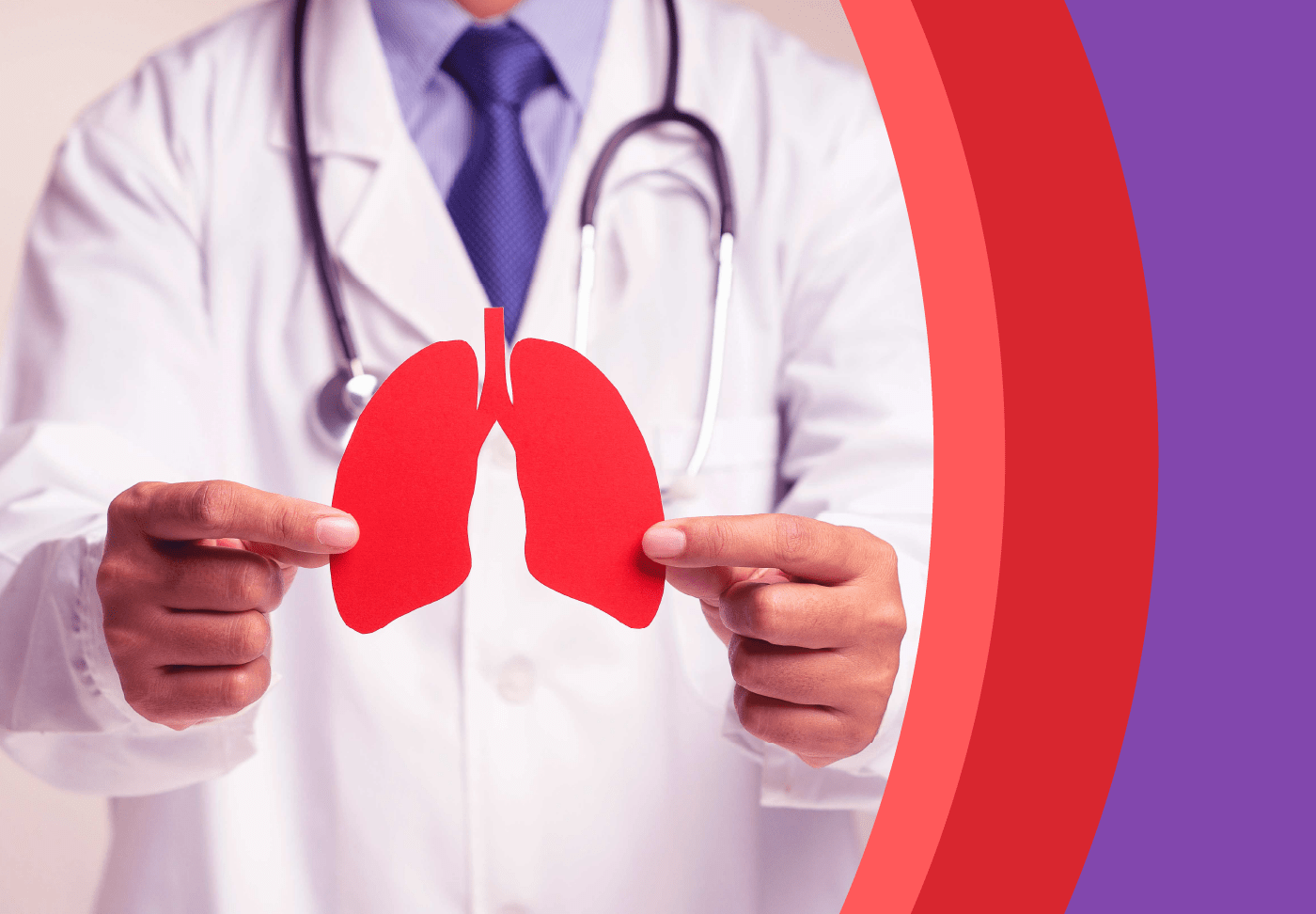
One-Stop Treatment Clinic for Patients with Thoracic Cancer
If you had to guess which cancer took the most lives in America, what would your guess be?
“Lung cancer is the No. 1 cancer killer in the U.S. for both women and men since 1986,” said Dr. Daniel Miller. Miller is the chief of thoracic surgery and the director of the Wellstar Georgia Cancer Center lung cancer screening program.
About 80% of lung cancer cases are associated with cigarette smoking, including secondhand smoke. Unfortunately, when symptoms begin showing, the cancer has already spread, making treatment very time-sensitive. When a patient is diagnosed, their care team typically includes not just one, but four doctors: a thoracic surgeon, an interventional pulmonologist, a medical oncologist and a radiation oncologist. There are many benefits to having a large care team, but a huge drawback can be the wait time between appointments with each doctor.
“When you have cancer, you want to be seen now and be treated now,” said Miller.
The speed of treatment time for patients is what inspired the creation of the Thoracic-Oncology NOW (New Oncology Workgroup) Clinic at Wellstar Georgia Cancer Center. The multidisciplinary clinic is staffed by specialized physicians in the treatment of thoracic malignancies. The staff includes Miller and Dr. John Kuckleman as the thoracic surgeons, Dr. Rabih Bechara as the interventional pulmonologist, Dr. Girindra Raval as the medical oncologist, and Dr. William Grubb as the radiation oncologist.
The clinic has seen 50 patients since opening in October 2022 and treats not just lung cancer, but also esophageal cancer, metastatic disease to the lungs and malignant pleural effusions.
“You’re cutting back on treatment time, waiting time, travel time and, more importantly, you have a group of doctors, rather than a doctor, who are talking about your care,” said Raval.
The clinic operates on Wednesdays and acts as a one-stop shop for patients, saving their time and the time of their loved ones who join them for treatments. Patients also have access to Wellstar Georgia Cancer Center’s registered dietitians and social workers, along with a scheduler, financial personnel and medical assistants, creating one large care team ready to help them on their treatment journey.
“There is a degree of reassurance for the patient that there is a team who are all engrossed in caring for that patient,” said Raval.
To learn more about the Thoracic-Oncology NOW Clinic or make an appointment, call (706) 721-6744 for more information.
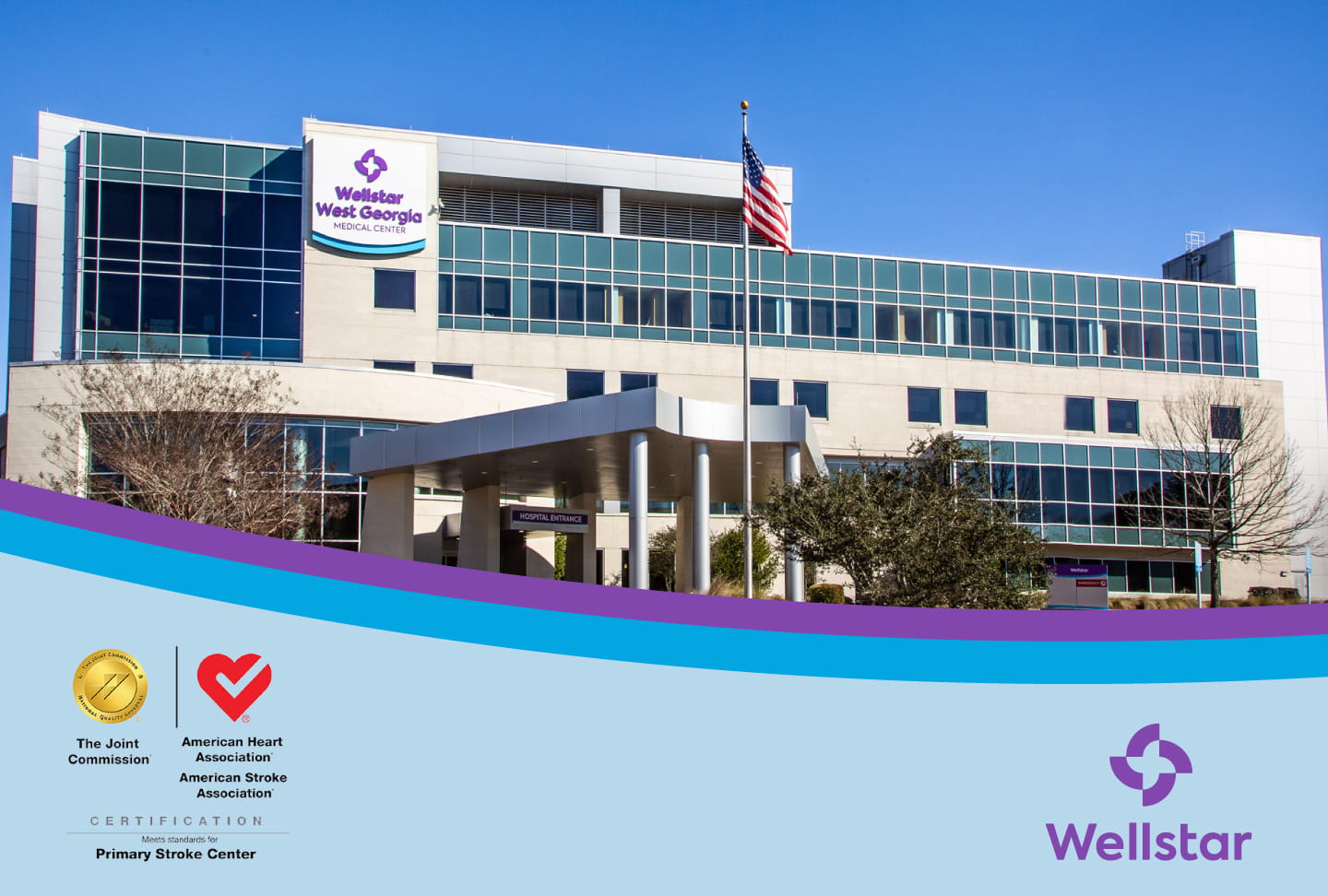
Wellstar West Georgia Medical Center Receives Primary Stroke Certification
Wellstar West Georgia Medical Center recently earned Primary Stroke Certification from The Joint Commission.
Offered in collaboration with the American Heart Association/American Stroke Association, achieving Primary Stroke Center (PSC) Certification means the hospital is making exceptional efforts to foster better outcomes. It’s a signal to the community that quality of care provided meets the unique and specialized needs of stroke patients.
Joint Commission-certified PSCs adhere to a set of standardized performance measures. Organizations collect monthly data for each measure in the set, and the data is then submitted quarterly to The Joint Commission.
“This important certification as a primary stroke center demonstrates our team’s commitment to a higher standard of clinical service,” says Coleman Foss, Wellstar West Georgia Medical Center President. “Stroke patients can be confident in the quality and safety of care, treatment and services delivered at West Georgia Medical Center.”
West Georgia Medical Center joins Wellstar's network of other stroke-certified hospitals, including Comprehensive Stroke Centers Wellstar Kennestone and Wellstar North Fulton, other Primary Stroke Centers Wellstar Cobb and Wellstar Spalding, and Remote Stroke Treatment Centers Wellstar Douglas and Wellstar Paulding.
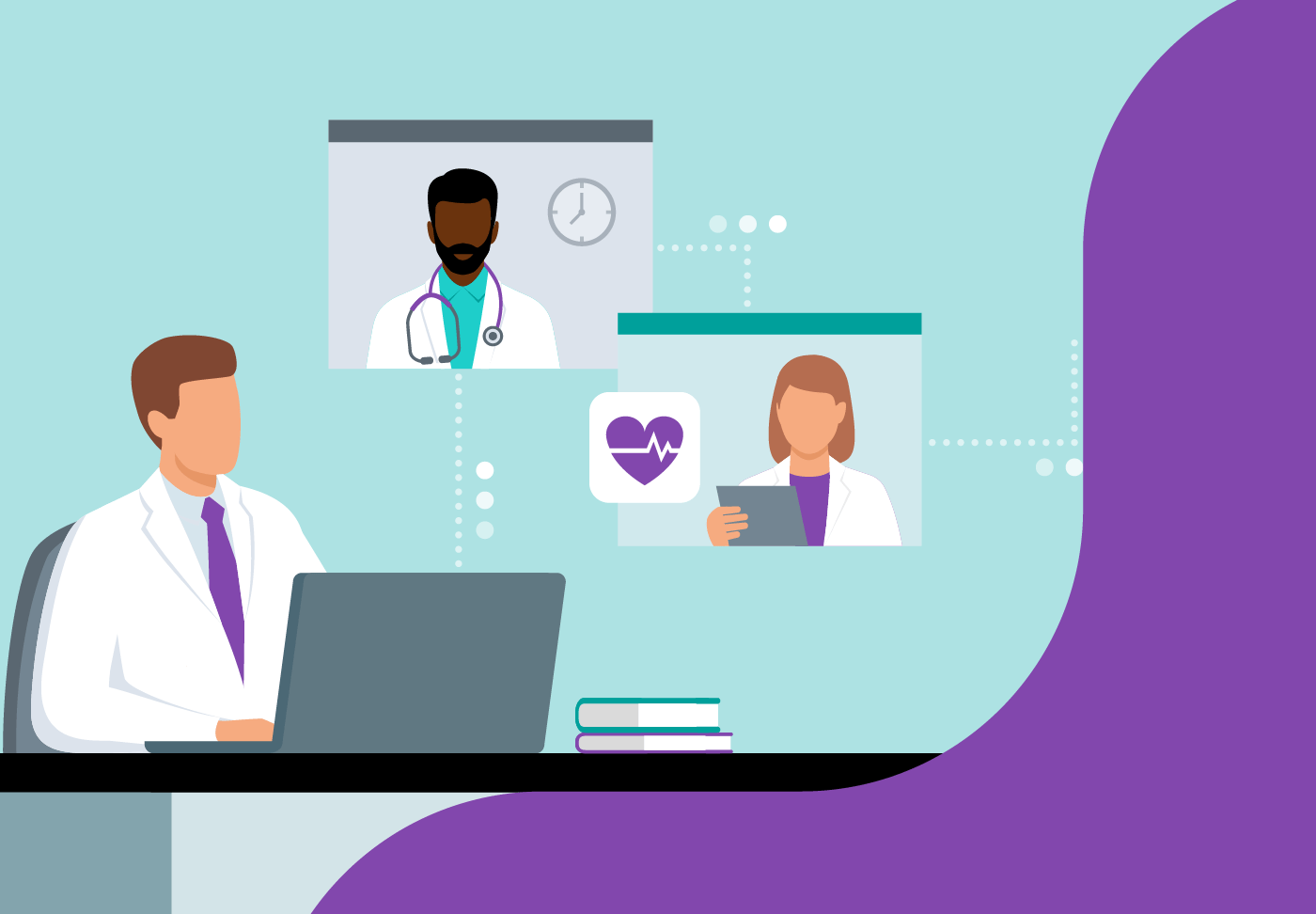
Wellstar, Affiliated with Medical College of Georgia, Adds Bacon County Hospital and Health System to Rural Hospital Virtual Care Network
Wellstar, affiliated with Medical College of Georgia, has added Bacon County Hospital and Health System to its Rural Hospital Virtual Care Network, which comprises 16 hospitals across Georgia and allows patients in rural areas to receive Wellstar’s world-class care closer to home.
Through this network, rural health systems have access to teleconferencing equipment, software and portable point-of-care equipment like ultrasound machines and airway devices, allowing physicians and specialists at Wellstar and the Medical College of Georgia to guide local physicians through diagnostic tests and procedures. This enables patients to remain in their local hospitals while receiving the same level of specialized care they would receive in a larger hospital. Not only is this more comfortable for the patient, but it is more affordable than transferring to a hospital in a larger city.
“For Bacon County, this partnership means we can take care of local patients in our organization and have a network of specialists readily available,” said Kyle Lott, chief operating officer of Bacon County Hospital and Health System. “I’m excited for this partnership and look forward to the opportunities it brings.”
The Rural Hospital Virtual Care Network currently partners with 16 hospitals across Georgia. It has helped more than 2,000 patients be treated in their home communities and increased viability for their local hospitals. For rural hospitals this means increased revenue, which helps them provide high-quality care.
“Bacon was a great location because they are a critical access hospital that has OB/GYN services, which is very unique for a rural community hospital. What we have been trying to do is create the clinical affiliations with sites to help strengthen the relationship and provide opportunities to put residents or medical students onsite to learn in rural Georgia, to hopefully retain those students in rural Georgia,” said Lauren Hopkins, associate vice president of virtual care and community engagement at Wellstar, affiliated with Medical College of Georgia.
The Rural Hospital Virtual Care Network at Wellstar, affiliated with Medical College of Georgia, is part of its telehealth initiative, which also includes Virtual Care at Home.
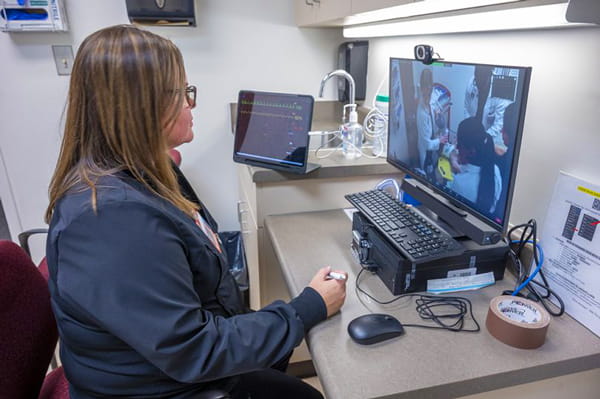
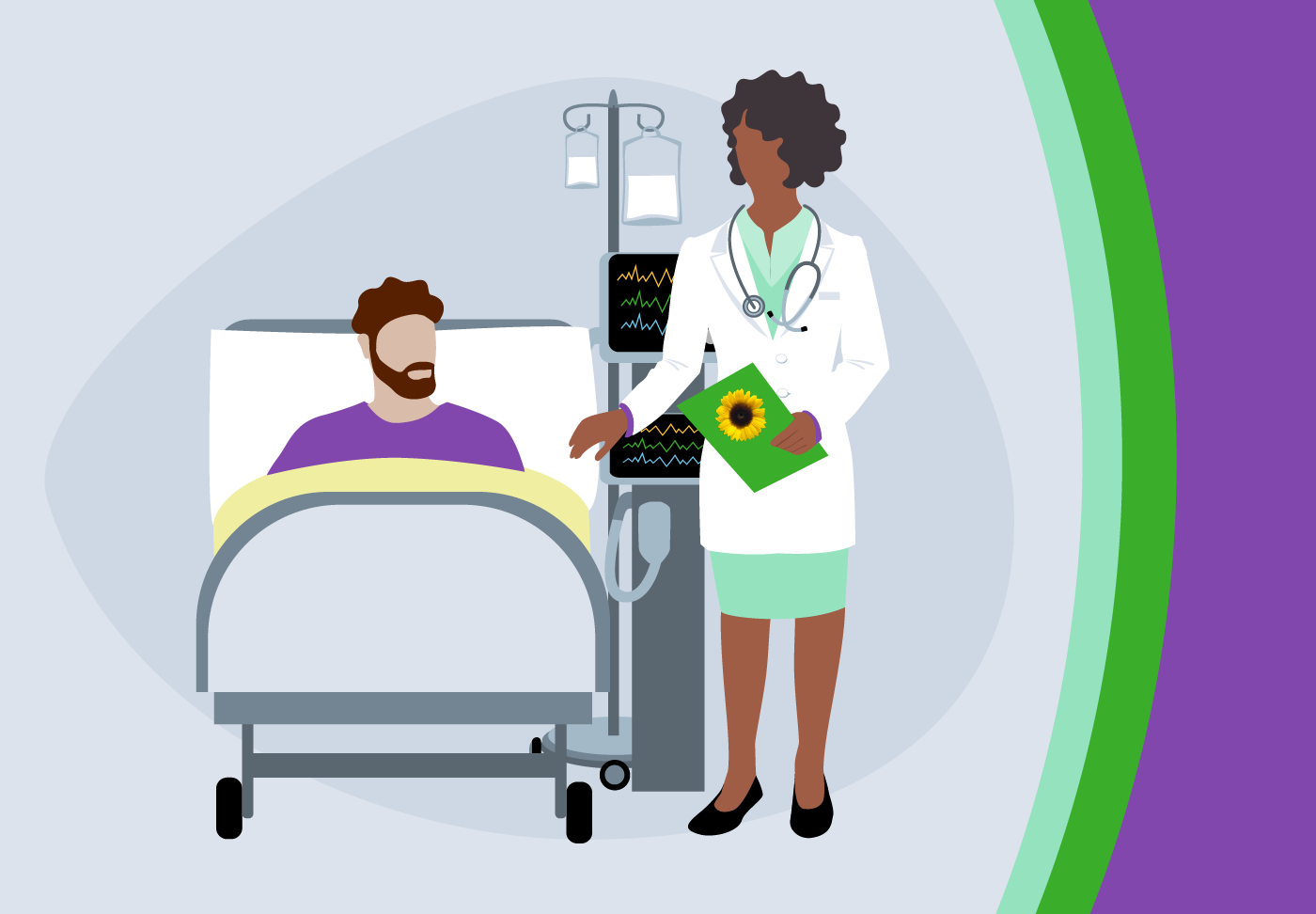
Wellstar Paulding Medical Center Joins Hidden Disabilities Sunflower Network
Wellstar Paulding Medical Center is the first hospital in North America to join the Hidden Disabilities Sunflower network. Adopted by the hospital’s Diversity, Equity, Inclusion & Belonging (DEIB) Council, the initiative aims to help people who have disabilities that are not immediately obvious, such as visual or hearing impairments, autism, chronic pain, dementia or anxiety.
“We want to foster a sense of belonging and respect for every patient, family member and team member,” said Rev. Dr. Rhonda James-Jones, manager of Spiritual Health at Wellstar Paulding Medial Center & Nursing Rehabilitation Center. “Paired with education and other care initiatives, the Sunflower will enable every member of our team to provide the highest quality, most personal care for patients with invisible disabilities.
At the hospital, the official Hidden Disabilities Sunflower logo — a yellow sunflower on a green background — is placed on the door of a patient with a disability. The Sunflower symbol discreetly indicates to patient-facing team members that the wearer needs additional support or a little more time when a diagnosis or procedure is explained.
“The Sunflower will help us in our efforts to honor every voice at Wellstar,” said Tricia Everitte, a Wellstar registered respiratory therapist and Sunflower program initiative lead.
Everitt introduced the effort to the hospital because she cares for people with hidden disabilities both professionally and personally.
She added, “Several nurses and other team members have shared that they have people with hidden disabilities in their lives and are proud to work at a hospital that will go the extra mile to meet their needs.”
The Hidden Disabilities Sunflower has been adopted globally across all public sectors including major airports, supermarkets, entertainment and sports venues, government programs, public safety services and an increasing number of businesses, large and small.
“Our aim is to help make the invisible, visible,” said Paul White, CEO, The Hidden Disabilities Sunflower. “We’re thrilled to welcome Wellstar Paulding Medical Center to the global Hidden Disabilities Sunflower network. As the first hospital in North America to join the Sunflower, we champion and share their drive to support people with non-visible disabilities within the healthcare sector.”
The Sunflower is another layer of support as the team at Wellstar Paulding seeks to provide high-quality healthcare to every person, every time. Patients at Wellstar Paulding also have access to whole person-centered care provided by clinically trained chaplains and pet therapists, as well as through technology such as adaptive phones and interpretation services.

CureSearch Awards $1.2 million for Pediatric Cancer Research at Wellstar Georgia Cancer Center, Wellstar Children’s Hospital of Georgia
The national nonprofit CureSearch for Children’s Cancer presented a check Wednesday, June 14, 2023 for $1.2 million to help fund promising pediatric cancer research at the Wellstar Georgia Cancer Center and Wellstar Children’s Hospital of Georgia.
CureSearch awarded Dr. David Munn and Dr. Theodore Johnson at the Medical College of Georgia at Augusta University with this funding in conjunction with the Catapult Award, which identifies and helps propel high-potential research from the lab into the clinic and, ultimately, to the kids who need it most.
Munn and Johnson have been hard at work for several years developing anti-tumor therapies for patients with brain cancers that are actively progressing. Initially, these patients may have benefited from the groundbreaking therapy of indoximod, the first-in-class drug developed by Munn and his team in 2015 that inhibits the enzyme indoleamine 2,3-dioxygenase (IDO). However, for those children who have become resistant to such treatment, the introduction of ibrutinib may prove successful.
Currently, the focus is on malignant brain tumors—which, unfortunately, is an underserved area of pediatric cancer research and treatment, and there is seldom a pathway of treatment that can offer a cure. The CureSearch funding will help support a Phase 1 trial of ibrutinib/indoximod for patients at Wellstar Children’s. If successful, the novel treatment could improve the quality of life for patients at Wellstar Children’s and beyond.
CureSearch is a national nonprofit organization that only funds translational research projects with the strongest potential of becoming a new treatment and quickly reaching pediatric patients. CureSearch’s mission is to end childhood cancer by driving targeted and innovative research with measurable results in an accelerated time frame. To learn more visit curesearch.org.
The Rally Foundation for Childhood Cancer Research and Fisher Phillips are contributors to CureSearch and helped fund this award.
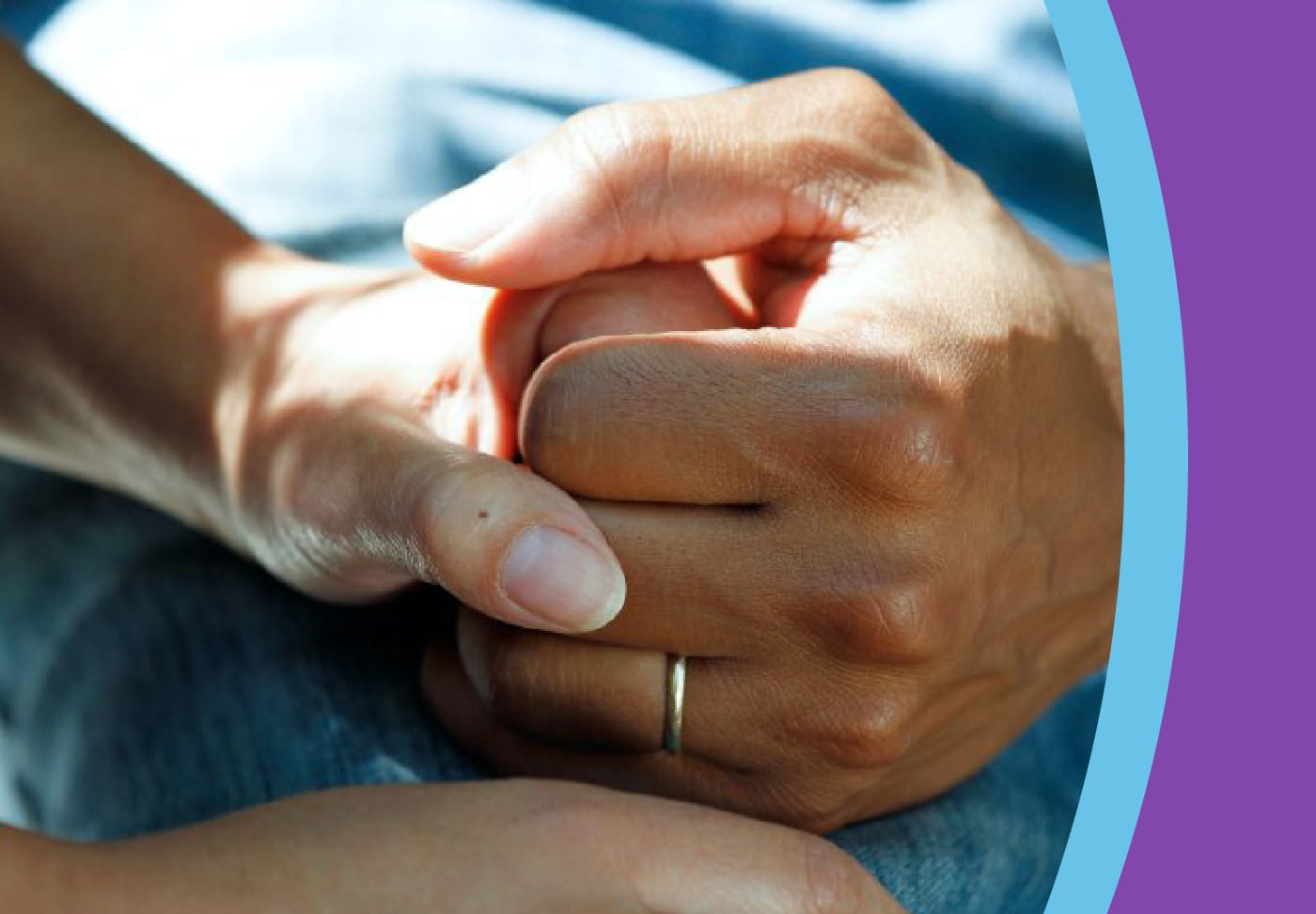
No One Dies Alone Ensures Compassionate Care in Patients’ Final Moments
Many patients have family and friends who surround them during their final moments of life. Others—due to any number of circumstances—find themselves alone, without the support and emotional comfort needed during this difficult time.
To ensure that all patients have companionship and compassionate care at the end of their lives, the Office of Spiritual Care at Wellstar MCG Health Medical Center is launching an initiative called No One Dies Alone (NODA). The program is based on the premise that dying patients should not be left alone during their final moments.
“For patients without families, this means having a peaceful transition,” said Rev. Stephen Hughes, associate director of Spiritual Care. “Somebody is constantly with them, holding their hand, letting them know it’s OK, you’re not alone. I love you. All those things.”
At the heart of the program are caring volunteers. Hughes said the department is looking for six volunteers to begin the program. They will go through training together, form a team to support each other, and take turns sitting with patients who are alone and close to the end of life.
Potential volunteers will go through a drug screen, a background check and a rigorous screening process to ensure they truly want to provide compassionate care. Hughes said he wants to ensure that the volunteers are committed to serving and not just looking for something good to do.
Training includes learning about the dying process, how to provide the care the patient needs, how to be inclusive and how to use inclusive language.
“Training would include what to do to provide that compassionate presence—what tools are available, what to do and not to do in the room,” Hughes said.
If a family is unable to be with a loved one, it can be a comfort for them as well to know that the patient will not be alone in their final moments. Chaplains work together as a team to be with patients at the end of life, and NODA volunteers will partner with them to provide this meaningful care.
Hughes recalled a day during the pandemic when he’d been with several patients in their last moments, but one patient in particular stood out. The patient’s family couldn’t be with him because they all had COVID-19. Hughes had talked with them by phone to assist physicians in getting permission to put the patient on comfort care. The family asked Hughes to stay with the patient and told him some of the patient’s favorite songs.
“I took my phone in there with him and played some of his favorite music until he passed. The family really, really didn’t want him to be alone,” he said. “If it was my family, I would want somebody with him, just to let him know it’s going to be OK.”
For more information, or to learn how to apply to be a volunteer, call Hughes or Chaplain Linda Hamilton in the Office of Spiritual Care at (706) 721-2929.
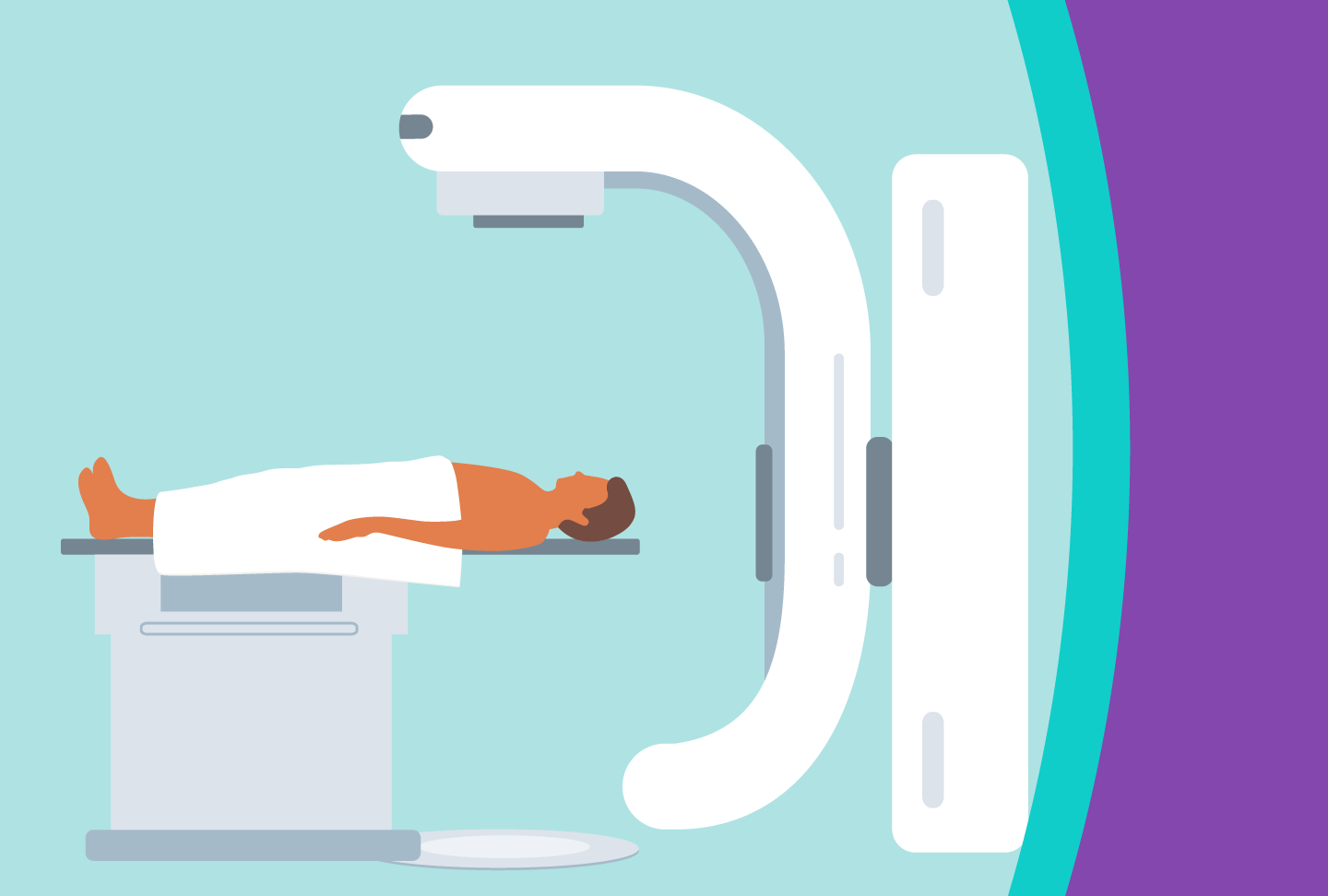
Wellstar Paulding Medical Center Transforms Cancer Care With Major Renovation
On May 23, Wellstar Health System hosted a ribbon cutting to celebrate the completion of a major renovation to bring advanced cancer treatments to people in Paulding County and surrounding communities. The event was hosted at Wellstar Paulding Medical Center in Hiram, Georgia, and attended by patients, physicians, healthcare leaders, team members, government officials and community partners.
“We strive to bring world-class healthcare to our neighbors every day,” said Ralph Turner, Wellstar senior vice president and president of Wellstar Paulding Medical Center. “We opened this new hospital almost 10 years ago, but that was not the finish line — just a stop on our journey. We continue to find new ways to keep pace with this community’s growth and provide the most comprehensive cancer care to this community.
The expansion enhances the patient experience by adding a new radiation vault to house a TrueBeam linear accelerator — an advanced system that delivers radiation therapy. While the capacity to treat people with cancer doubled, new technology brings more cutting-edge treatments to Paulding, alongside a modernized dressing room area offering patients more space and comfort.
“This is a dream come true after seeing the growing need for cancer treatment in this area,” said Dr. William Thoms, Radiation Oncology medical director. “The new TrueBeam allows people to stay closer to home rather than driving outside our own community for radiation therapy."
The expansion enhances the patient experience by adding a new radiation vault to house a TrueBeam linear accelerator — an advanced system that delivers radiation therapy. While the capacity to treat people with cancer doubled, new technology brings more cutting-edge treatments to Paulding, alongside a modernized dressing room area offering patients more space and comfort.
Wellstar Paulding’s new linear accelerator also brings a leading-edge cancer treatment called stereotactic body radiation therapy (SBRT) to Paulding County for the first time.
“SBRT will transform cancer care in our community,” said Dr. Rakendu Shukla, Wellstar radiation oncologist. “In the coming months, we will roll out new treatments previously unavailable in Paulding.”
SBRT is different from conventional radiation therapy because it delivers very high, precise doses of radiation directly to tumors that are traditionally difficult to treat. It is more powerful at killing tumors, and it decreases the amount of radiation that healthy tissue is exposed to, which decreases side effects. And the treatment can be delivered over a short course of time — around 1-5 days rather than weeks or months.
The renovated space is located at Wellstar Paulding Medical Center’s Outpatient Pavilion at 148 Bill Carruth Parkway in Hiram, Georgia.
Pictured l-r: Don Zarkou, VP, Oncology Service Line, Wellstar Health System; Ralph Turner, SVP, Wellstar Health System, President, Wellstar Paulding Medical Center; Dr. Michael Andrews, Chief Cancer Officer, Wellstar Health System; Dr. William Thoms, Radiation Oncology Medical Director, Wellstar Paulding Medical Center; Sandy Kaecher, Post II Paulding Commissioner; Nichole Rydahl, AVP, Operations, Wellstar Paulding Medical Center; Shawn Jackson, Manager, Radiation Oncology, Wellstar Paulding Medical Center; Dr. Rakendu Shukla, Radiation Oncologist, Wellstar Paulding Medical Center.
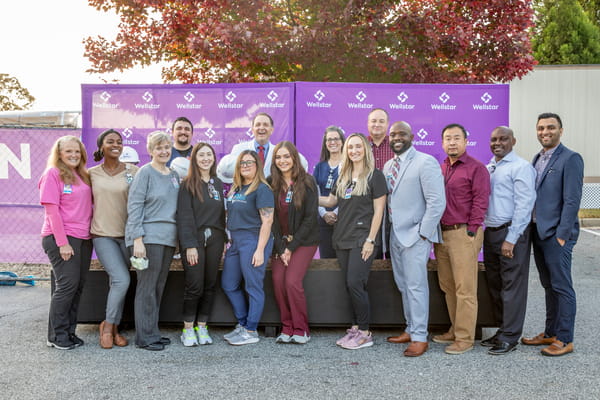
Physicians and team members from the Wellstar Paulding Medical Center oncology team gathered for a ribbon cutting to celebrate the completion of a major expansion to cancer services.
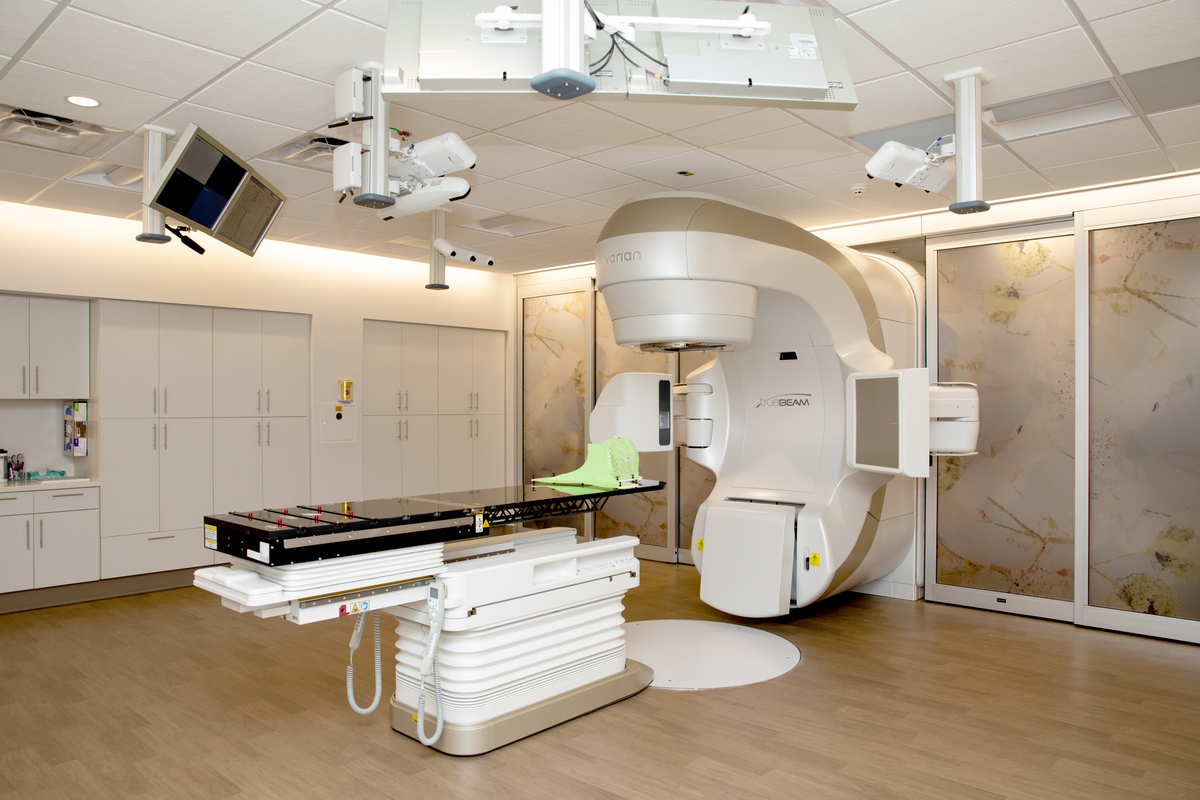
Wellstar Paulding Medical Center’s new TrueBeam linear accelerator helps make cancer treatment more accessible to patients and brings a leading-edge cancer treatment called stereotactic body radiation therapy (SBRT) to Paulding County for the first time.

Lown Institute Recognizes Wellstar Among Most Charitable in the Country
A report by the Lown Institute ranking the value of nonprofit hospitals’ community investment found that Wellstar Kennestone Regional Medical Center and Wellstar Cobb Medical Center are among the top 25 hospitals in the nation providing significantly more community benefit than they are receiving in tax exemption.
Wellstar Kennestone ranked No. 1 in Georgia, while Wellstar Cobb was No. 2. Wellstar is the only health system with two hospitals included on the national top 25 list.
As the top provider of charity care in the state and one of the top 10 providers nationwide, Wellstar is committed to bringing expert, compassionate health services to those who need them. Last year alone, uncompensated and charity care at Wellstar exceeded $1.2 billion, providing care for at-risk and underserved communities across Georgia.
In addition to Wellstar Kennestone and Wellstar Cobb, Wellstar Douglas Medical Center, Wellstar West Georgia Medical Center, Wellstar North Fulton Medical Center, Wellstar Paulding Medical Center and Wellstar Spalding Medical Center were recognized for spending more on financial assistance and community investment than the estimated value of their tax exemptions.

Wellstar Celebrates Earth Day with Programs Addressing Food Waste
For Earth Day this year, Wellstar Health System is making a difference for our environment and supporting our neighbors facing food insecurity. The recently launched Organic Recycling Program at the Wellstar Corporate Office (WCO) in Marietta has already diverted almost one ton of food waste from landfills, preventing over 675 pounds of carbon dioxide emissions.
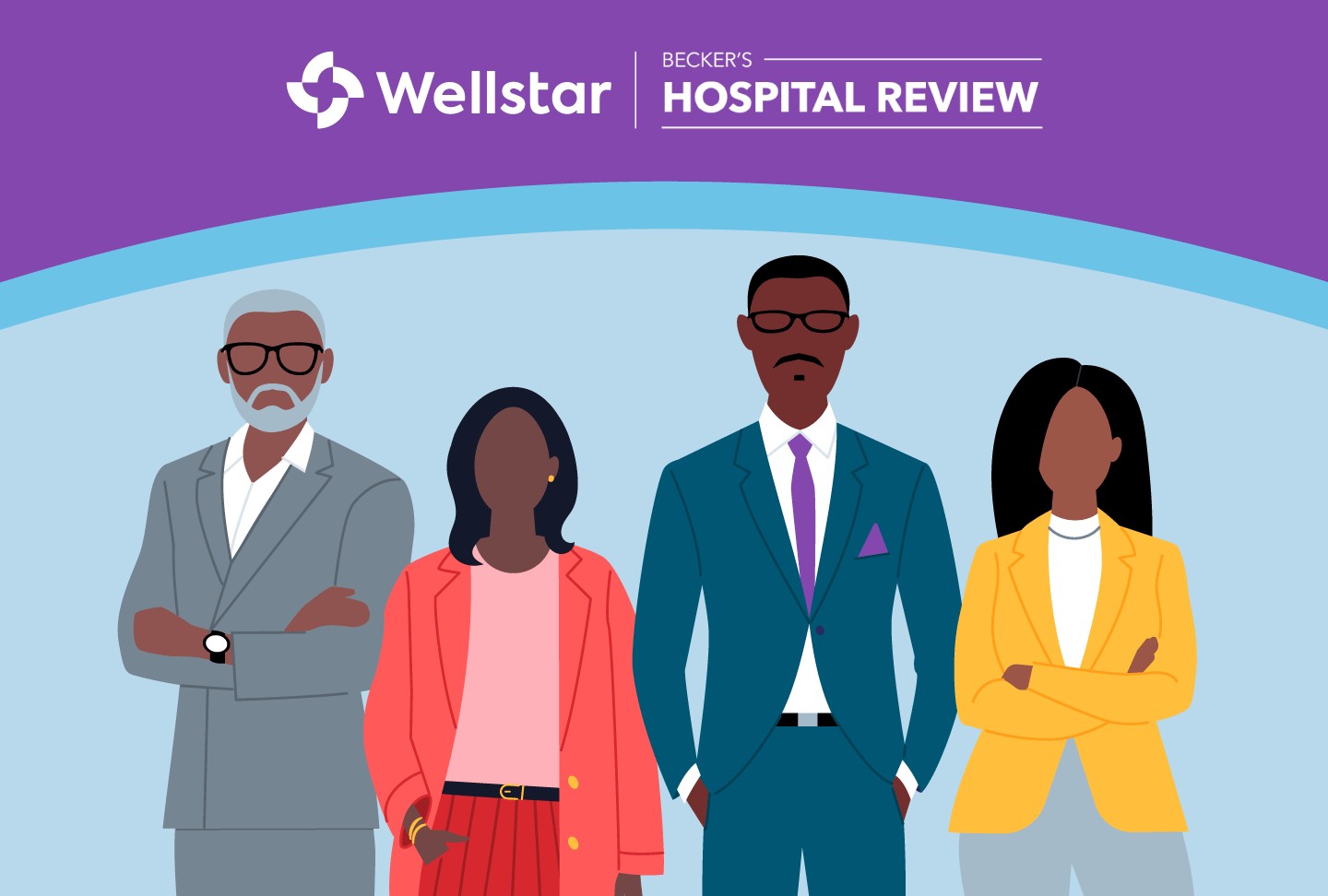
Wellstar Executives Named 2023 Black Healthcare Leaders to Know
We know what makes Wellstar special – our people. It’s evident that people outside of our organization recognize that, too. Recently, we were able to celebrate four Wellstar leaders highlighted in Becker’s 2023 Black Healthcare Leaders to Know.
When we have leaders from diverse backgrounds, we have greater insight into the lived experiences of our team members, patients and communities. We help mitigate our blind spots, grow in compassion and empathy, and build a stronger organization. This leads to more personalized care, improved patient outcomes and a more inclusive place to work.
Join us in congratulating our four recognized leaders: Le Joyce Naylor, Senior VP and Chief Diversity, Equity and Inclusion Officer, David Jones, Executive Vice President and Chief Human Resources Officer, Mary Chatman, RN, PhD, Executive Vice President of Acute Care Operations and President of Wellstar Kennestone Regional Medical Center and Wellstar Windy Hill Hospital, and Ralph Turner, Senior Vice President of Wellstar Health System and President of Wellstar Paulding Medical Center. Read their bios below.
Le Joyce Naylor: Senior Vice President and Chief Diversity, Equity and Inclusion Officer at Wellstar Health System
Le Joyce Naylor offers systemwide thought leadership, strategic thinking and program direction for Wellstar Health System's diversity, equity and inclusion initiatives. Her responsibilities include the design and implementation of programs to advance diversity efforts, achieving measurable outcomes and leading the health system's diversity and inclusion advisory council. Among her many accomplishments are the formation of 11 business resource groups, the recalibration of 11 diversity and inclusion councils and the implementation of Inclusion Cafés, an experience designed to enhance team member connection. She also leads efforts for team members to engage in inclusive virtual and in-person programming to advance cultural competence, humility, and personal development.
David A. Jones: Executive Vice President and Chief Human Resources Officer at Wellstar Health System
David A. Jones has overall responsibility for establishing, enabling, and maintaining organizational effectiveness and a positive employee and labor relations environment across Wellstar Health System. He creates and preserves positive relationships between employees and management throughout the 9-hospital system. Jones is an instrumental leader, equipping caregivers on the front lines with the resources needed to deliver world-class healthcare. Additionally, he believes that every team member should find joy in the workplace – it is his mantra. While keeping joy at the forefront of his mind, he leads critical initiatives to enhance the workplace dynamics of the more than 24,000 team members who are united around enhancing the health and well-being of every person they serve.
Mary Chatman, RN, PhD: Executive Vice President of Acute Care Operations and President of Wellstar Kennestone Regional Medical Center and Wellstar Windy Hill Hospital
Mary Chatman's leadership and collaborative work ethic can be seen throughout the health system. She is a seasoned leader with 32 years of healthcare experience. Having begun her career as a nursing assistant, Chatman is committed to providing patient-centered care and implementing effective operational strategies. She manages a team of more than 10,000, including finance, human resources, nursing, operations, and medical staff. A visionary leader, she led the charge for the 2020 opening of the Southeast’s largest emergency department at Wellstar Kennestone Regional Medical Center, which was designed to further enhance emergency and Level II trauma care for Georgians.
Ralph Turner: Senior Vice President of Wellstar Health System and President of Wellstar Paulding Medical Center
As senior vice president of Wellstar Health System and president of Wellstar Paulding Medical Center, Ralph D. Turner serves as the operating and strategic leader of a 112-bed inpatient facility, as well as its 49-bed emergency department, Level II Trauma Center, comprehensive cardiology services, oncology care, general surgery, neuro care, orthopedics, robotics and urology, as well as an inpatient rehabilitation program and comprehensive cardiac rehabilitation. Turner is responsible for leadership and management for all aspects of operations, including financial performance, clinical quality, employee, physician and community relations. He also oversees more than 1,330 team members as they pursue Wellstar’s vision of delivering world-class care to every person, every time.
Congratulations to our leaders!

Wellstar Health System Partners with CLEAR to Empower Patients to Take Control of their Health Information & Enhance the Consumer Experience
Wellstar Health System, one of the largest and most integrated healthcare systems in Georgia, is collaborating with CLEAR, the secure identity company, focused on optimizing Wellstar consumers’ digital and physical healthcare experiences. Wellstar will embed secure identity verification Powered by CLEAR technology to provide patients with secure and easy access to their personal health information.
Using the Powered by CLEAR platform will provide a seamless and secure experience by eliminating the need for patients to manually re-enter biographic data with each interaction. Wellstar expects the partnership with CLEAR will save patients time, reduce help desk calls and operational costs, improve security, lower fraud risk, and drive consumer adoption and engagement across the health system’s digital ecosystem.
“This exclusive partnership will open the door to new innovations that make accessing care easier and experiences curated in the moments people need them most,” said Hank Capps, M.D., FAAFP, Wellstar’s Executive Vice President and Chief Information and Digital Officer. “As we continue to build future care models that blur digital to brick and mortar experiences, we need advanced capabilities and constant innovation. We are excited to roll-up our sleeves with CLEAR and design that future together.”
“CLEAR’s partnership with Wellstar marks another important step as we work to replace the clipboard and improve the patient experience,” said Caryn Seidman-Becker, CEO of CLEAR. ”We’re excited to power safer, easier experiences - physically and digitally - for Wellstar patients across their healthcare journey.”
Catalyst by Wellstar, a first-of-its-kind innovation company and venture firm, will support the partnership with CLEAR to accelerate innovation.
Powered by CLEAR enables frictionless confirmation of your identity and credentials to make everyday experiences safer and easier – transforming the way people live, work, and travel. Whether CLEAR’s 15 million members are networking online, visiting a doctor, checking into a hotel, renting a car, or cheering on their favorite sports team, they can frictionlessly affirm their identity with CLEAR — for free — wherever life takes them. New users can simply enroll once to verify anywhere in our Powered by CLEAR network.
In Georgia, CLEAR operates its signature expedited identity verification lane at Hartsfield–Jackson Atlanta International Airport (ATL). CLEAR also operates a free, dedicated entry lane at State Farm Arena to help fans get into games and events faster.
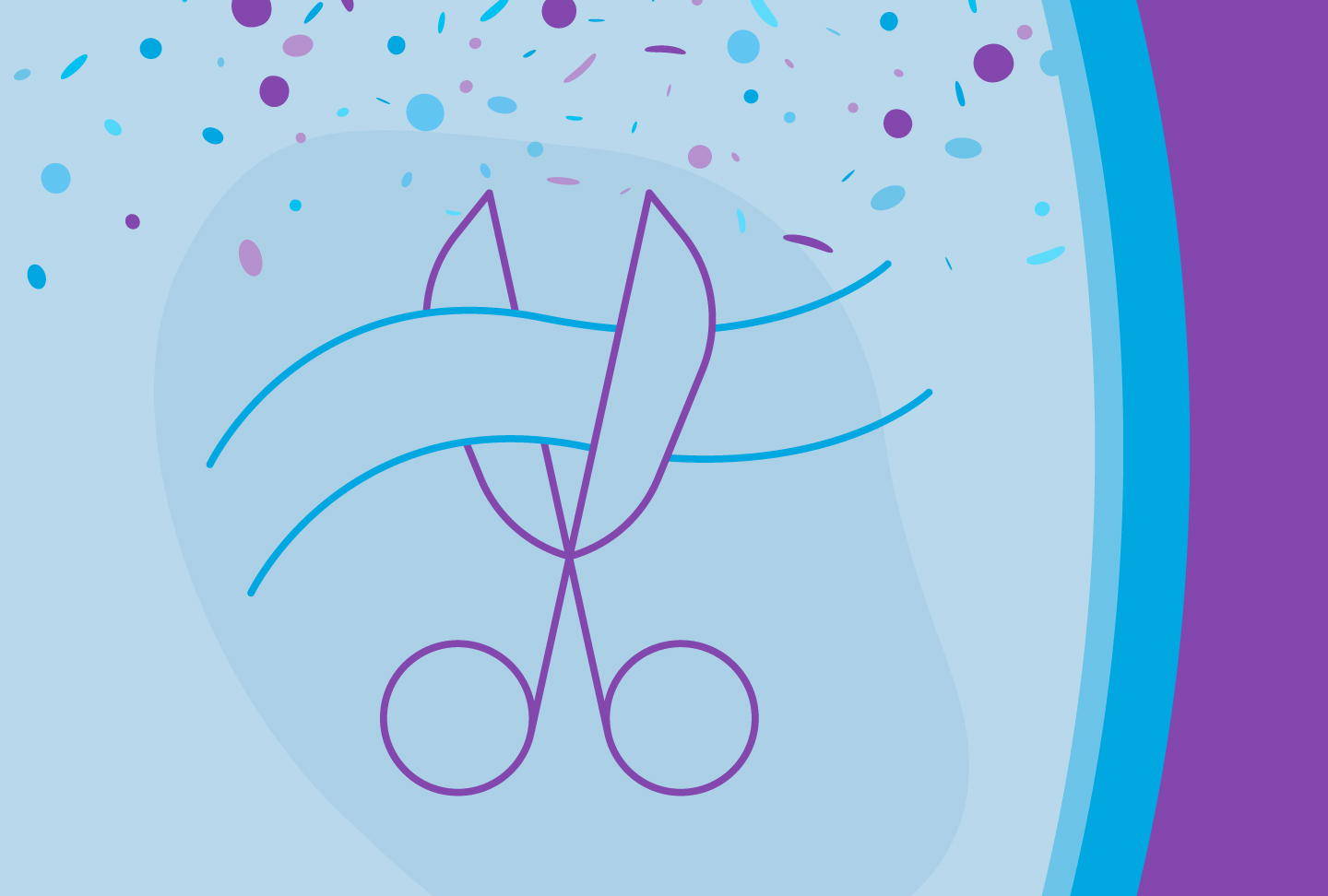
Wellstar North Fulton Medical Center Opens New Comprehensive Cancer Center
Wellstar Health System, one of Georgia’s largest and most integrated healthcare systems, announced the grand opening of the Wellstar North Fulton Cancer Center on the Wellstar North Fulton Medical Center campus in Roswell, Georgia on March 27. The Center will serve as one of only two locations in metro Atlanta featuring state-of-the-art CyberKnife® technology for radiation therapy, a noninvasive treatment for cancerous and non-cancerous tumors and other conditions where radiation therapy is needed.
The Cancer Center will now offer comprehensive cancer services, including medical oncology; radiation oncology; imaging and many medical specialties from nationally recognized, expert and experienced physicians all in one convenient location.
“With this beautiful new $12 million state-of-the-art Comprehensive Cancer Center, we can offer people in our community some of the most advanced cancer treatments close to home,” said Jon-Paul Croom, president of Wellstar North Fulton Medical Center. “People will be able to come to the 12,000-square-foot Wellstar North Fulton Cancer Center for almost all aspects of diagnosis, staging and treatment, with surgery across the way at the hospital.”
Wellstar team members and the Roswell community celebrated the official opening of the Cancer Center last week with a ribbon cutting ceremony following ten months of construction. Attendees had the opportunity to tour the facility and Wellstar’s second CyberKnife system, newly housed at the Cancer Center.
Wellstar first began using the CyberKnife System at Wellstar Kennestone Regional Medical Center in 2006 to treat conditions throughout the body and can be an alternative to surgery or for patients who have inoperable or surgically complex tumors. CyberKnife can reduce radiotherapy timelines from the traditional eight weeks to as little as one to five days.
“We are committed to providing the best treatment options for our patients and are proud to bring the CyberKnife system to this community,” said Dr. Mark McLaughlin, radiation oncology medical director for Wellstar North Fulton Medical Center. “With the state-of-the-art CyberKnife technology, we can deliver high precision radiation in fewer radiotherapy sessions with the goal of making treatment easier and improving outcomes for patients. We look forward to continuing to help patients beat cancer and celebrate their futures.”
The multidisciplinary team of cancer experts onsite will offer patients a high level of knowledge and expertise, along with compassion and hope. The multi-disciplinary physician experts at Wellstar North Fulton Cancer Center include:
Learn more about Wellstar North Fulton Cancer Services.
To learn more about the CyberKnife System, please visit cyberknife.com.
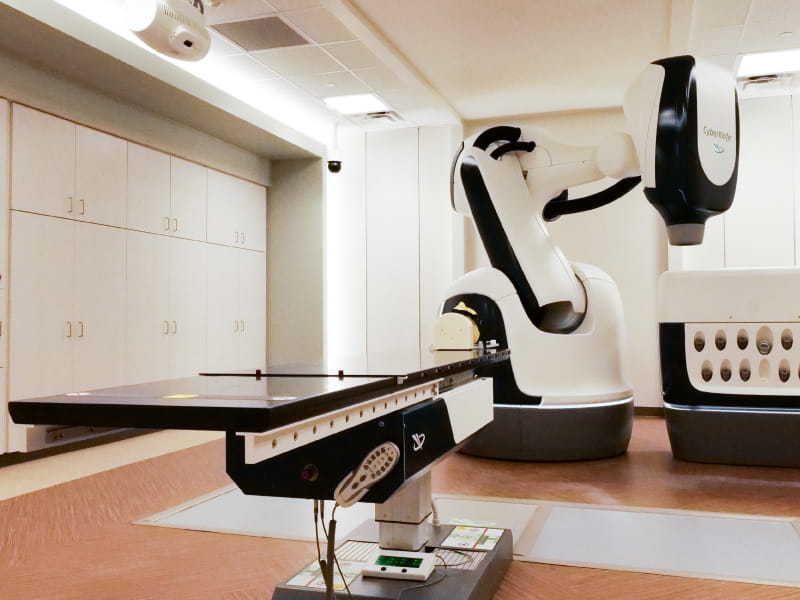
CyberKnife technology

Women’s History Month Event Honors Impact of Female Leadership and Mentorship
On March 8, Wellstar’s Office of Diversity, Equity and Inclusion hosted a fireside chat with leaders, Beth Kost, Kem Mullins and Julie Teer, who also serve as Executive Sponsors to our Women’s Business Resource Group. They engaged inn an important conversation about celebrating women in the workplace. Focusing on the national theme for Women's History Month, "Celebrating Women Who Tell Our Stories," they discussed women who have positively impacted their careers, the importance of mentorship and sponsorship, and advice they would give to female leaders of the next generation.
Kost is senior vice president and chief compliance officer of Wellstar, Mullins is executive president of ambulatory and business development, and Teer is senior vice president and president of the Wellstar Foundation.
Women's History Month celebrates the contributions of women, past and present. President Jimmy Carter instituted the first National Women's History Week in March 1980. He said, "From the first settlers who came to our shores, from the first American Indian families who befriended them, men and women have worked together to build this nation. Too often, the women were unsung and sometimes their contributions went unnoticed. But the achievements, leadership, courage, strength and love of the women who built America was as vital as that of the men whose names we know so well." On March 8, we joined the world in celebrating International Women's Day and incorporate it into our month-long celebration of women's history.
Learn more about diversity, equity and inclusion at Wellstar.
Watch the virtual event below.
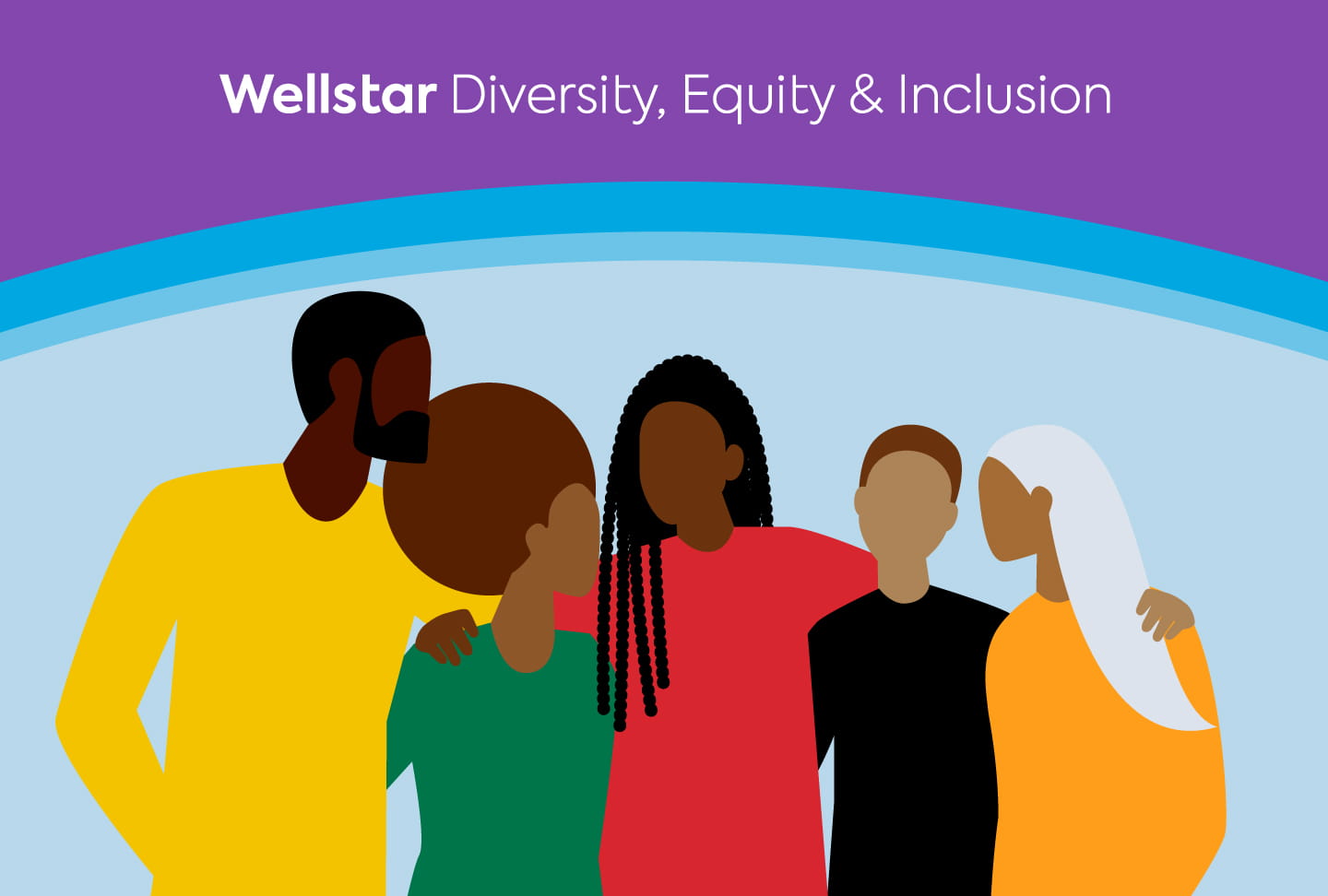
Black History Month Event Celebrates Excellence, Looks to Future
On Wednesday, Feb. 22, Wellstar’s Office of Diversity, Equity and Inclusion partnered with the African American/Black Business Resource Group, B.R.A.V.E., to host an engaging conversation between Dr. Khalil Gibran Muhammad, the Ford Foundation Professor of History, Race and Public Policy at the Harvard Kennedy School, and Dr. Hank Capps, Wellstar executive vice president and chief information and digital officer and B.R.A.V.E. Executive Sponsor. Focusing on “Honoring the Past, Celebrating the Present, and Inspiring the Future,” they discussed wrestling with the fundamental contradictions of our country’s past, addressing bias and holding unflinchingly to science and facts.
"Black History Month allows all individuals to reflect on the power of diversity, equity, inclusion and belonging in every facet of American culture. It is a time to understand and reflect upon Black stories of joy, pain and triumph. It is a time to come together to honor the great achievements of Black individuals, acknowledge and appreciate their many contributions to our society, both past and present, and to celebrate Black excellence," said Wellstar’s SVP and Chief Diversity, Equity and Inclusion Officer, Le Joyce Naylor.
Watch a portion of the program below.

Wellstar Partners with Goodr to Launch Mobile Grocery Store to Address Food Insecurity
Wellstar Health System is proud to announce that Goodr, a sustainable food waste management and hunger relief company, just unveiled Goodr Mobile Grocery Store on March 8 at Atlanta City Hall. Wellstar is proud to sponsor this 26-foot truck stocked with grocery items, including fresh produce, milk, eggs, and shelf-stable items – all for free. The truck aims to bring Goodr's signature free grocery shopping experience to food-insecure communities.
Fully kitted with refrigerators, freezers, and shelving, families will enjoy an experience much like shopping for goods at a local grocery store. Beyond that, every aspect of the Mobile Grocery Store is about access – from the wheelchair ramp to the resource room for private health screenings or social services consultation.
Wellstar’s Community Health Needs Assessments identified food insecurity as a key social determinant of health impacting the well-being of the communities we serve across the state in both 2019 and 2022. In late 2020, Wellstar joined the Goodr partner network and launched the Wellstar Mobile Markets, a uniquely branded variation of the pop-up grocery markets. The Mobile Markets have reached communities in metro Atlanta and beyond.
“I’m honored to represent Wellstar Health System, the Wellstar Foundation, and our generous donors who have helped make this vision, the Goodr Mobile Grocery Store, a reality,” said Julie Teer, SVP, Wellstar Health System, and president, Wellstar Foundation. “At Wellstar, we truly believe each and every person deserves to live their healthiest life, regardless of their circumstances. And, for a person to live their healthiest life, they need sustainable access to fresh, nutritious food.”
Wellstar is incredibly excited for this next chapter in our partnership with Goodr, and we are honored to be the exclusive healthcare partner and sponsor for this new and innovative way to serve communities.
To truly improve the overall health of our communities, it will take all of us working together to address the social determinants of health. The Goodr Mobile Grocery Store is a perfect example of what we can achieve when we work together.
Wellstar has been dedicated for the past 30 years to making Georgia a healthier place for everyone, and it is because of philanthropy that we are able to reinvest in the communities we serve. We appreciate the opportunity to partner with Goodr to offer these critical resources to more people through the Goodr Mobile Grocery Store, and we are excited to see how our organizations can continue to work together to further improve the health of our communities.

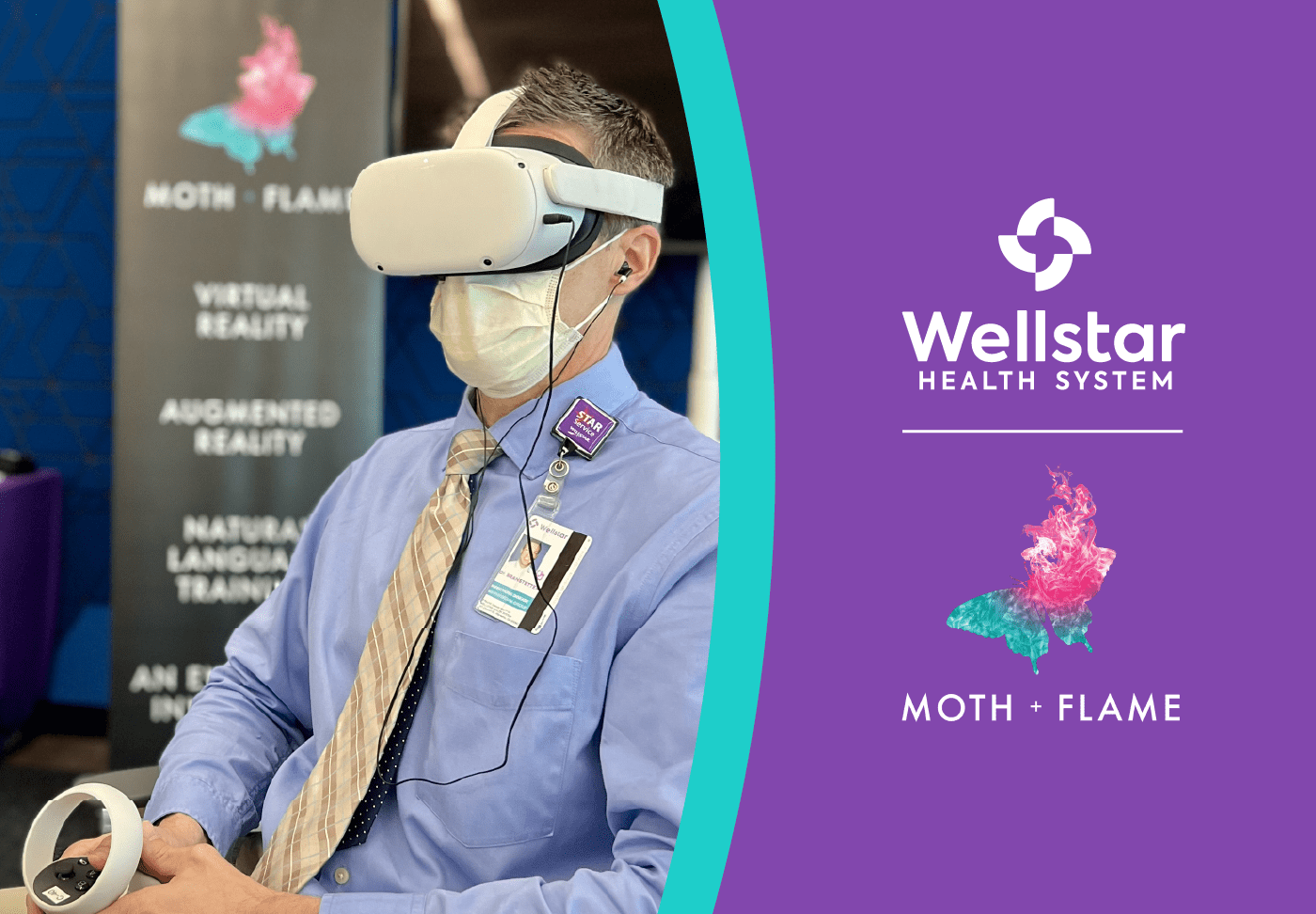
Wellstar Health System Expands Partnership with Virtual Reality Company Moth+Flame
This month Wellstar Health System announced it is extending its partnership with Moth+Flame to further utilize its virtual reality (VR) training technology throughout the enterprise.
Moth+Flame is an award-winning VR communication technology developer and premier enterprise-grade immersive learning provider offering innovative and adaptive learning programs for mastering technical and cognitive skills. Their platform includes content focused on emotional intelligence. When learners put on their headsets, they inhabit and interact with immersive simulated environments. They decide in the moment how to respond and see for themselves the impact their words and decisions have on others — and reflect on how to improve. Trainees receive an empathy rating score at the end of their session.
Last May, Catalyst by Wellstar led Wellstar’s first-ever VR-based leadership development training in collaboration with Moth+Flame. This was Moth+Flame’s first healthcare partnership, and the use of this technology continues to expand within Wellstar’s enterprise.
Following the training, 97% of participants recommended the virtual learning experience to others. They also reported that the training reduced their anxiety around difficult conversations by 57%. As a result of the successful pilot, Wellstar decided to offer VR emotional intelligence training regularly.
“We believe strongly that immersive learning is the future of learning and builds more confidence through practice,” said Kevin Cornish, CEO and founder at Moth+Flame. “Using virtual reality puts you inside of a difficult conversation and gives you a chance to learn in a safe simulated environment.”
The VR emotional intelligence training encourages Wellstar’s employees to build composure and gain practical experience in a highly realistic scenario by navigating difficult conversations and testing resiliency in an emotionally charged environment. This experience helps Wellstar’s workforce develop strategies to build situational awareness and prioritize composure, critical thinking and conscious emotional responses when engaging in triggering conversations.
By gaining conversational expertise and knowledge, Wellstar’s team will know how to respond in real scenarios with the confidence to interact appropriately and strategically.
“The realism within Moth+Flame's VR experiences, from using real-life actors, dramatically increases the emotional connection to the content and helps learners retain the information they learn. We are grateful for Moth+Flame's partnership in helping introduce VR to our leaders,” said Steven LeClercq, executive director of learning and onboarding at Wellstar Health System.
This use of innovation keeps Wellstar on the leading edge of training and team development, and the organization will continue to explore use cases for this technology within a clinical setting.
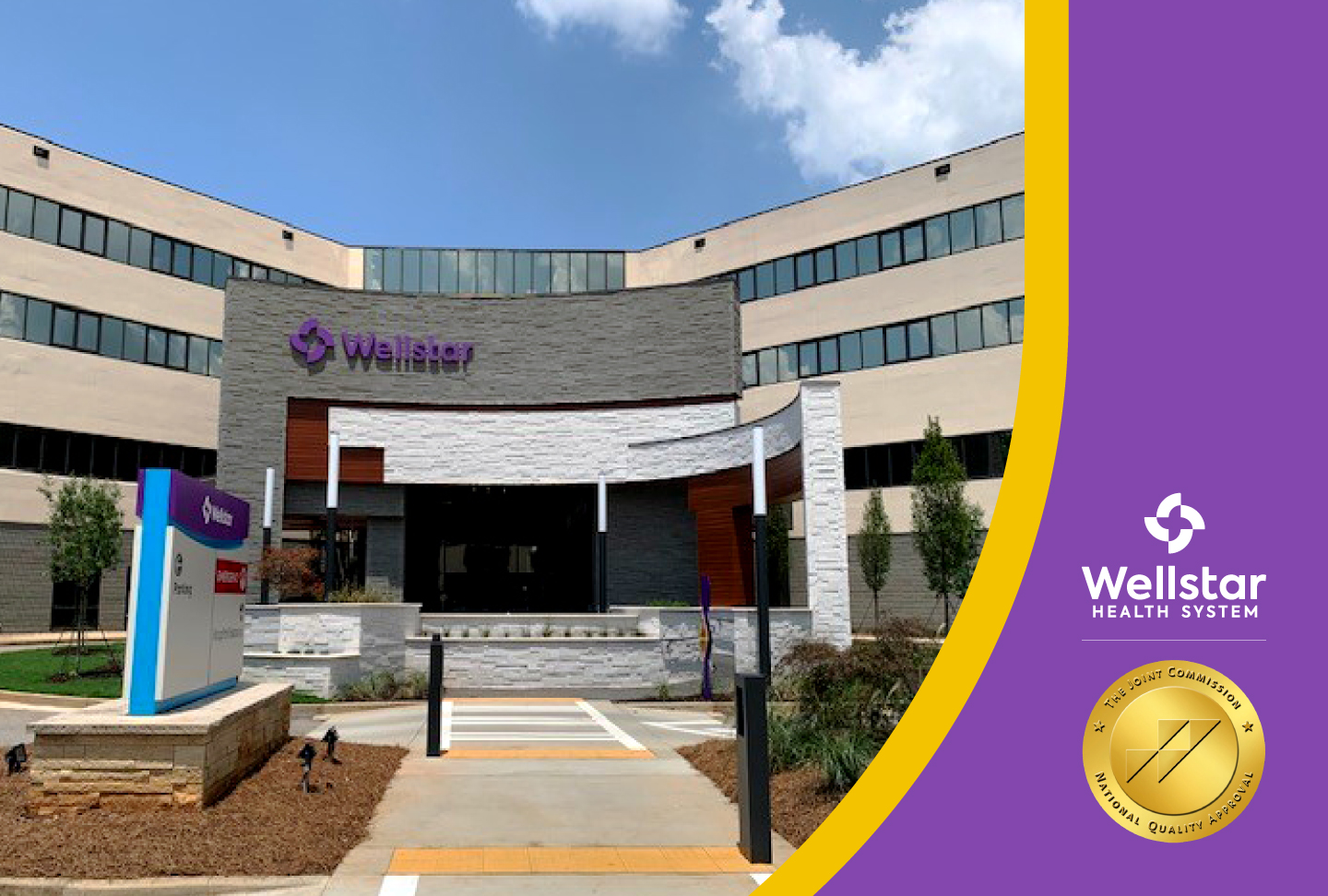
Wellstar North Fulton Medical Center Receives Comprehensive Stroke Center Certification
Wellstar Health System announced today that The Joint Commission recognized Wellstar North Fulton Medical Center as a Comprehensive Stroke Center, the most demanding stroke certification recognizing hospitals that have specific abilities to receive and treat the most complex stroke cases. With two of the eight Comprehensive Stroke Centers in Georgia, Wellstar Health System now offers stroke patients greater access to the highest level of stroke and aneurysm care. Wellstar Kennestone Regional Medical Center is also Joint Commission certified as a Comprehensive Stroke Center.
“For years, we have provided world-class stroke care for each and every patient when they need it most. This designation represents how hard we have worked to provide the very best quality care for patients in North Fulton County and across Georgia. We’re proud that our work and subsequent positive patient outcomes are being recognized,” said Dr. Michael Mendoza, medical director of the Stroke Program at Wellstar North Fulton.
Wellstar North Fulton’s certification allows more Georgians to have access to the most advance diagnostics and treatments for cerebrovascular disease such as stroke. This is important because Georgia is located in the Stroke Belt, which is comprised of 11 states in the Southeast where the associated mortality rate for stroke patients is 10 percent above the national average.
At Wellstar North Fulton and Wellstar Kennestone, patients have access to advanced diagnostics and therapies to care for even the most complicated strokes faster and more effectively. These include:
“Our team of neurosurgeons, neurocritical care physicians, neuroradiologists, advanced practice practitioners and nurses work together to perform world-class thrombectomies, aneurysm treatments, carotid surgeries and cerebral bypass procedures so that patients can regain their best quality of life. Additionally, our dedicated hybrid neurovascular suite is equipped with innovative bi-plane technology. This allows neurosurgeons to view highly detailed images of brain vessels, so we as a team can customize treatments in real time,” said Dr. Arthur Grigorian, neurosurgeon, Wellstar North Fulton.
“When you have a stroke, every second counts. Getting fast, expert stroke care can mean the difference between life, death, or lasting brain damage. We are proud to receive this prestigious certification at Wellstar North Fulton, informing the surrounding community that they don’t have to go far to receive the best treatment possible. We will continue to work hard to provide an interdisciplinary, innovative, and compassionate approach to safe and quality comprehensive stroke care to all the communities we serve,” said Jon-Paul Croom, president, Wellstar North Fulton and senior vice president, Wellstar Health System.
Wellstar is a leading provider of stroke and aneurysm services in Georgia and performs one of the highest numbers of thrombectomy and aneurysm treatments in the country. The Joint Commission is a United States-based nonprofit organization that accredits more than 22,000 healthcare organizations and programs.
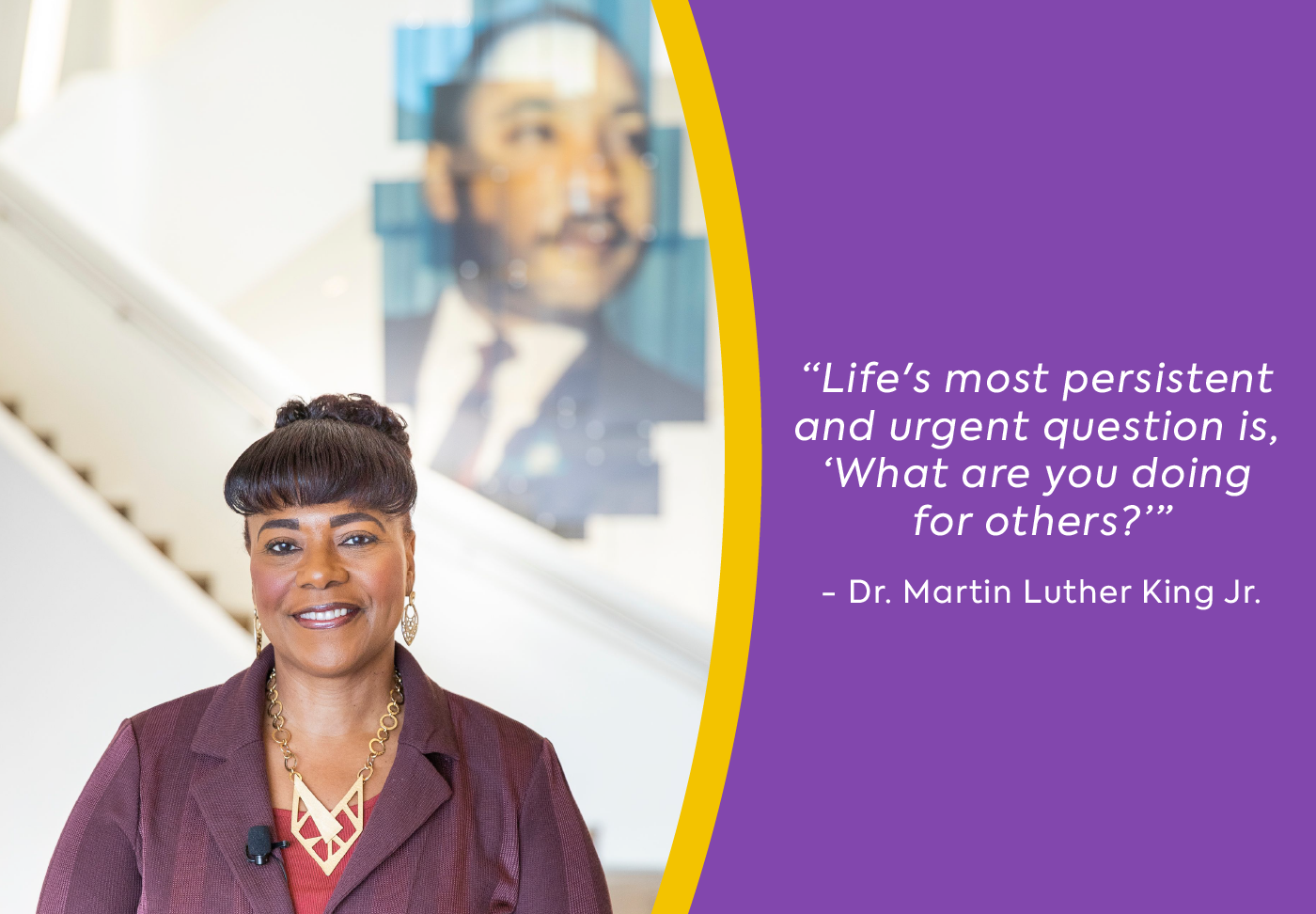
Wellstar Honors the Life and Legacy of Dr. Martin Luther King Jr.
On January 12, Wellstar honored the life, legacy and many contributions of Dr. Martin Luther King Jr. with a live-streamed tribute. The program included performances from The Wellstar Singers, interfaith prayers and a keynote address featuring a conversation between Dr. Bernice A. King, youngest daughter of Martin and Coretta Scott King, and Monica Kaufman Pearson, beloved former Atlanta news anchor.
The program was themed around a 1957 quote from Dr. Martin Luther King Jr., “Life's most persistent and urgent question is, ‘What are you doing for others?’"
Throughout the program, Dr. Bernice A. King shared important life lessons instilled in her as a child, including the value of forgiveness and nonviolence. Dr. King provided insight about the state of the world, growing polarization and the need to take time to listen to those who we perceive as our enemies.
As CEO of The King Center, Dr. Bernice A. King’s mission is to spread her father’s philosophy and methodology of nonviolence. Through programs like Nonviolence365®, Beloved Community Leadership Academy and Students with the King, she is working to make perspective-altering resources available to people of all ages.
This program was pre-recorded in November at the National Center for Civil and Human Rights. The conversation was held in front of a live audience including Wellstar leaders, members of the Minority Physician Business Resource Group and our Diversity, Equity and Inclusion team.
Wellstar is honored to celebrate the life and legacy of American Civil Rights Movement leader and activist Dr. Martin Luther King Jr. and recognizes Martin Luther King Jr. Day as a paid holiday. Team members are encouraged to take the day “on” by volunteering in the community.
Wellstar is proud to be a corporate sponsor partnering with The King Center on a variety of events leading up to the holiday on Jan. 16.
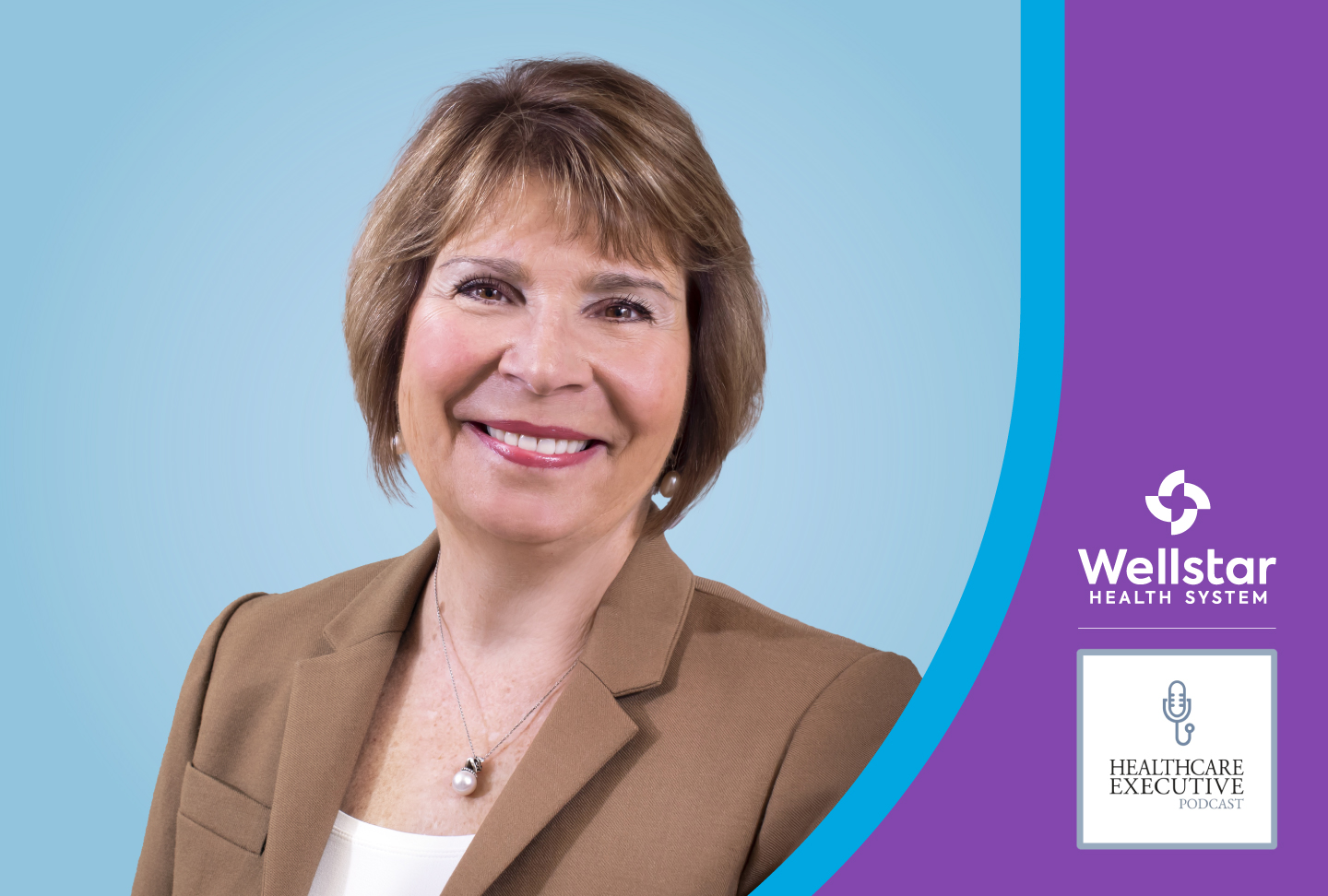
Leadership for Intense Times
Healthcare professionals are trained to work with science, data and facts. But when the pandemic hit, leaders had to grapple with working through the unknown. According to Jill Case-Wirth, senior vice president and chief nurse executive of Wellstar Health System, core tenets of leadership, such as communication, courage, and the ability to establish trust, remained constant, while other characteristics moved more clearly into focus in 2020.
“Humility rose to the forefront,” Case-Wirth said. “You had to be comfortable being able to say, ‘I don’t know, but together we’re going to figure this out … and we’re going to do the best that we can with the information we have available.’”
“We learned a lot of things during COVID about leading differently that we shouldn’t let go of now,” she said.
Case-Wirth shared that data analytics is one of those growth areas for today’s healthcare leaders. Having the ability to review data, gain consensus on the insights, and then quickly develop a plan for an actionable change management strategy is essential for future successful leaders. As a registered nurse, Case-Wirth also places an imperative on planning for the future of nursing, pioneering a career pathway program that starts as young as middle school. In addition to partnering with local universities and technical colleges, she emphasized the importance of being “thoughtful that we have these programs in diverse communities” to reach a wide student population and grow a diverse workforce for the future.
Listen to more insights on Healthcare Executive Podcast.
Case-Wirth was also featured among other healthcare leaders in the article “Leadership for Intense Times” in the November/December issue of Healthcare Executive Magazine.

Augusta University Health System, Wellstar Health System announce letter of intent for statewide health care partnership
Augusta University Health System (AUHS) has signed a letter of intent with Wellstar Health System to form an innovative new partnership that would expand Augusta University’s educational and research missions and allow Wellstar Health System to create a broader affiliation with the university’s Medical College of Georgia (MCG) as AUHS joins the Wellstar Health System.
The potential partnership is the culmination of a thoughtful and deliberate process begun in 2019 by AUHS, its governing board and Augusta University to strategically grow MCG while expanding and improving both patient care and Georgians’ access to health care services across the state.
The proposed partnership would innovate clinical care, training and research while adopting a successful model of bringing together community-based health systems and academic medical centers such as MCG and its teaching hospitals. MCG and Augusta University are part of the University System of Georgia (USG), and MCG serves as the only public medical school in the state.
“AUHS, Augusta University and the Wellstar Health System have a shared mission to solve Georgia’s health care challenges,” USG Chancellor Sonny Perdue said. “By joining forces and working together, we can leverage Wellstar’s clinical platform and leading-edge systems to support patients while providing more opportunities for students to learn, train and care for residents in local communities across Georgia.”
Pending a definitive agreement and regulatory approval, the partnership would focus on three strategic initiatives:
“By bringing Augusta University Health System together with Wellstar Health System and leveraging our respective strengths, we would improve the health of the community, address social determinants of health and expand access to quality care for all Georgians,” said Candice L. Saunders, FACHE, president and chief executive officer of Wellstar Health System.
While there are aspects of the proposed partnership yet to be determined, the partnership would likely result in significant investments to improve existing healthcare facilities and to expand access to care across the state, including a new hospital and medical office buildings in Columbia County.
“Providing health care has never been as dynamic and complex as it is today, and this partnership with the Georgia-based, not-for-profit Wellstar Health System would enable us to extend our mission of improving health through excellence in patient care, education and research for the benefit of Georgians,” said Brooks A. Keel, PhD, acting chief executive officer of Augusta University Health System and president of Augusta University.
Through an expanded affiliation with the university’s Medical College of Georgia, the partnership would address the need to train more physicians and address a growing statewide shortage. With 60 percent of MCG graduates entering a primary care residency, training more physicians in these disciplines would support increased access to frontline care provided by specialists such as family medicine physicians and general pediatricians, especially in underserved areas of the state.
A new teaching campus in Atlanta at Wellstar Kennestone Hospital could also be established under the proposed partnership. As a result, MCG, which already has the ninth-largest freshman medical school class in the nation, would grow to become one of the largest public medical schools in the country.
“With our entire nation facing a physician shortage and our state typically ranking about 40th in the number of physicians per capita, educating the next generation of physicians is more critical than ever,” said David Hess, MD, dean of the Medical College of Georgia and executive vice president of medical affairs and integration at Augusta University. “I’m excited about the partnership with Wellstar, since it will enable our students and residents to continue to learn from some of the most highly qualified physicians and other health care professionals in the state while allowing MCG to expand its contributions to improving public health in Georgia especially in more rural regions.”

A1 Test
Augusta University Health System (AUHS) has signed a letter of intent with Wellstar Health System to form an innovative new partnership that would expand Augusta University’s educational and research missions and allow Wellstar Health System to create a broader affiliation with the university’s Medical College of Georgia (MCG) as AUHS joins the Wellstar Health System.
The potential partnership is the culmination of a thoughtful and deliberate process begun in 2019 by AUHS, its governing board and Augusta University to strategically grow MCG while expanding and improving both patient care and Georgians’ access to health care services across the state.
The proposed partnership would innovate clinical care, training and research while adopting a successful model of bringing together community-based health systems and academic medical centers such as MCG and its teaching hospitals. MCG and Augusta University are part of the University System of Georgia (USG), and MCG serves as the only public medical school in the state.
“AUHS, Augusta University and the Wellstar Health System have a shared mission to solve Georgia’s health care challenges,” USG Chancellor Sonny Perdue said. “By joining forces and working together, we can leverage Wellstar’s clinical platform and leading-edge systems to support patients while providing more opportunities for students to learn, train and care for residents in local communities across Georgia.”
Pending a definitive agreement and regulatory approval, the partnership would focus on three strategic initiatives:
“By bringing Augusta University Health System together with Wellstar Health System and leveraging our respective strengths, we would improve the health of the community, address social determinants of health and expand access to quality care for all Georgians,” said Candice L. Saunders, FACHE, president and chief executive officer of Wellstar Health System.
While there are aspects of the proposed partnership yet to be determined, the partnership would likely result in significant investments to improve existing healthcare facilities and to expand access to care across the state, including a new hospital and medical office buildings in Columbia County.
“Providing health care has never been as dynamic and complex as it is today, and this partnership with the Georgia-based, not-for-profit Wellstar Health System would enable us to extend our mission of improving health through excellence in patient care, education and research for the benefit of Georgians,” said Brooks A. Keel, PhD, acting chief executive officer of Augusta University Health System and president of Augusta University.
Through an expanded affiliation with the university’s Medical College of Georgia, the partnership would address the need to train more physicians and address a growing statewide shortage. With 60 percent of MCG graduates entering a primary care residency, training more physicians in these disciplines would support increased access to frontline care provided by specialists such as family medicine physicians and general pediatricians, especially in underserved areas of the state.
A new teaching campus in Atlanta at Wellstar Kennestone Hospital could also be established under the proposed partnership. As a result, MCG, which already has the ninth-largest freshman medical school class in the nation, would grow to become one of the largest public medical schools in the country.
“With our entire nation facing a physician shortage and our state typically ranking about 40th in the number of physicians per capita, educating the next generation of physicians is more critical than ever,” said David Hess, MD, dean of the Medical College of Georgia and executive vice president of medical affairs and integration at Augusta University. “I’m excited about the partnership with Wellstar, since it will enable our students and residents to continue to learn from some of the most highly qualified physicians and other health care professionals in the state while allowing MCG to expand its contributions to improving public health in Georgia especially in more rural regions.”
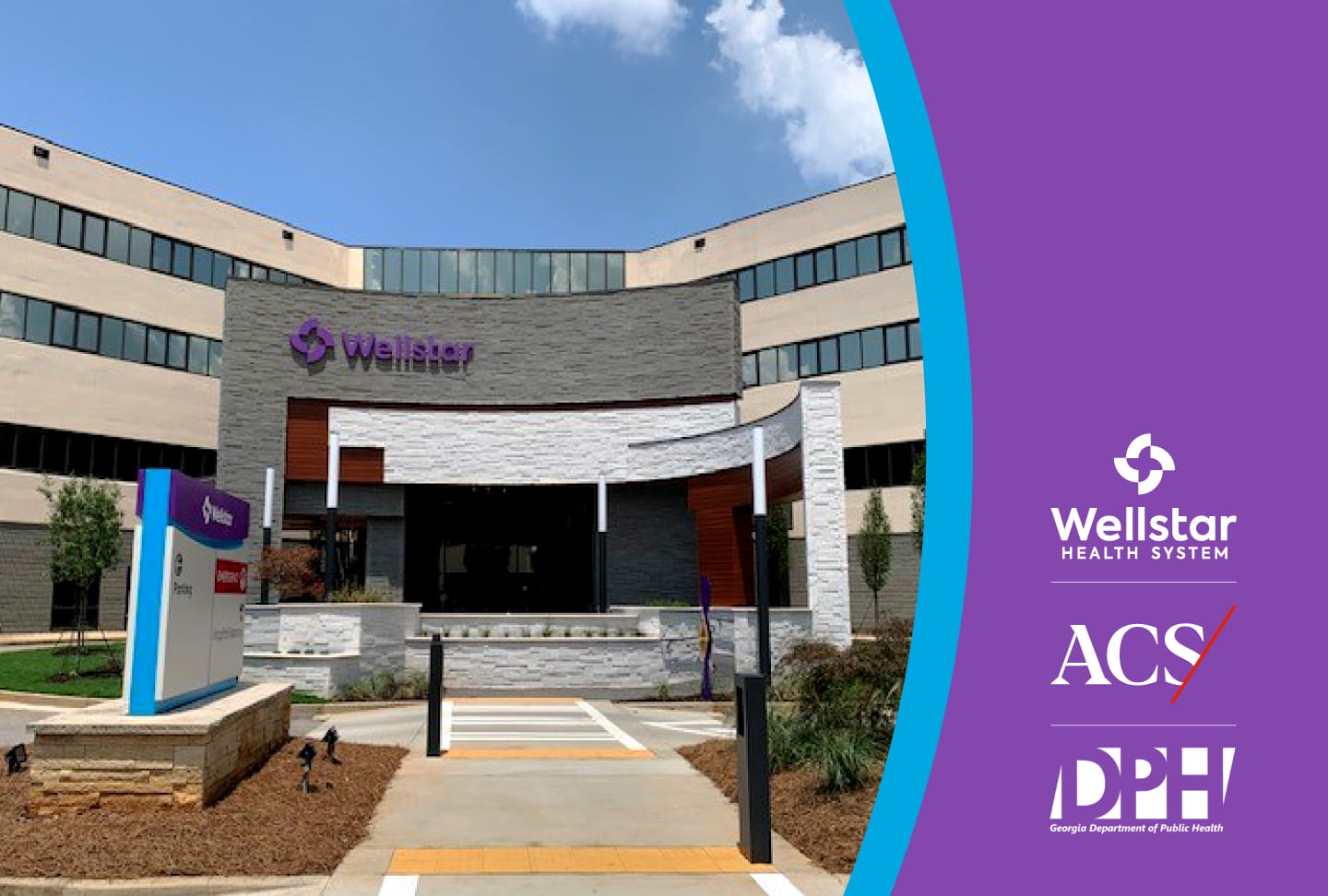
Wellstar North Fulton Medical Center Reverified a Level II Trauma Center
Wellstar Health System, which has one of the largest trauma networks in the state, is proud to announce that Wellstar North Fulton Medical Center was again verified as a Level II Trauma Center by the Georgia Department of Public Health (DPH) and American College of Surgeons (ACS). Wellstar North Fulton has been a Level II Trauma Center since 1987 and was the first in Georgia to be verified by the American College of Surgeons in 2015. This marks the third time the hospital has been designated a Level II Trauma Center, demonstrating its commitment to patients in their time of need.
The option to be verified by the ACS is voluntary and is in addition to the State of Georgia designations. Only a handful of trauma centers are verified by the ACS in Georgia, even though they have state designations.
“This designation represents a unique distinction for a community hospital because it demonstrates we are managing trauma cases according to the highest national standards,” said Mark Gravlee, MD, trauma medical director, Wellstar North Fulton Medical Center. “We are reevaluated by the ACS every three years and continue to meet their rigorous standards, so patients in North Fulton and surrounding communities can rest assured they’ll be cared for expertly and with excellence now and well into the future.”
Wellstar North Fulton’s highly skilled trauma team is ready 24/7 to save lives. Level II Trauma Centers provide 24-hour immediate coverage by general surgeons, as well as coverage by the specialties of orthopedic surgery, neurosurgery, anesthesiology, emergency medicine, radiology and critical care. They also offer trauma prevention and continuing education programs for staff, and a comprehensive quality assessment program. Wellstar North Fulton has board-certified trauma surgeons standing by to offer a heightened level of care.
“We are proud to receive this designation again, and more importantly, to be able to offer the advanced care our patients in Northeast Atlanta suffering from accidents, incidents and injuries need,” said Jon-Paul Croom, president, Wellstar North Fulton Medical Center and senior vice president, Wellstar Health System. “This designation is a shining example of our commitment to deliver world-class care to every patient, every time.”
Other trauma centers across the System include Wellstar Kennestone Regional Medical Center (Level II), Wellstar Cobb Medical Center (Level III), Wellstar West Georgia Medical Center (Level IV), and Wellstar Paulding Medical Center (Level IV). Wellstar’s Trauma Network serves patients across the state of Georgia, and the health system is proud to play a critical role in Georgia’s trauma network, collaborating with peers across the state to ensure patients receive the care they need.

Mary Chatman, Executive Vice President of Wellstar Health System and President of Wellstar Kennestone Regional Medical Center and Wellstar Windy Hill Hospital, Named Chair-Elect of the Georgia Hospital Association Board of Trustees
Mary Chatman, PhD, RN, executive vice president (EVP) of Wellstar Health System and president of Wellstar Kennestone Regional Medical Center and Wellstar Windy Hill Hospital, was named chair-elect of the Board of Trustees of the Georgia Hospital Association (GHA) on Nov. 10. Chatman, who has served on the GHA Board since February 2020, will lead the Board in developing strategies for GHA hospital members, advocating for the highest quality care for patients and supporting adequate reimbursement for hospitals.
“Mary Chatman is a visionary leader whose vast leadership skills have benefited Wellstar hospitals and the communities they serve,” said GHA President and CEO Earl Rogers. “She is a strong patient advocate and we look forward to her expertise and leadership of our Board.”
In addition to serving as a Wellstar EVP and president of two of the system’s hospitals, Chatman oversees the operations of the seven other Wellstar hospitals. In 2020, she led the opening of Wellstar Kennestone’s new emergency department, the largest in the Southeast.
Prior to serving in her current role, Chatman was the chief operating officer and chief nursing officer at Memorial Health University Medical Center in Savannah, where she was responsible for managing the 654-bed hospital and its nursing operations. She also served as interim chief information officer for Memorial and completed the electronic health record conversion to EPIC.
This year, Gov. Brian Kemp appointed Chatman to the state’s Healthcare Workforce Commission, where she has helped address challenges in the hiring and retention of healthcare workers.
Chatman has been recognized locally and nationally as a prominent leader and strong patient advocate in health care. Atlanta Daily World recognized her among the 2018 Women of Excellence. Diversity MBA Magazine named her among the 2018 Top 100 Under 50 Executive & Emerging Leaders and 2020 Top 100 Women of Influence. Profiles in Diversity Journal named her a 2020 Women Worth Watching® in STEM award winner. Chatman was recognized by Atlanta Magazine among the 2021 Women Making A Mark honorees and by Becker’s as one of the 75 Black Healthcare Leaders to Know 2022. She was also named the 2020 West Cobb Citizen of the Year for serving on the frontlines for Cobb County, fighting COVID-19 and collaborating with local leaders.
Chatman is deeply involved in the community, serving as board member for United Community Bank and active in the fight to find a cure for type 1 diabetes. She is a member of the American Nurses Association and the American College of Healthcare Executives. She earned her Bachelor of Science, Master of Science and Doctor of Philosophy degrees from East Carolina University in Greenville, North Carolina.
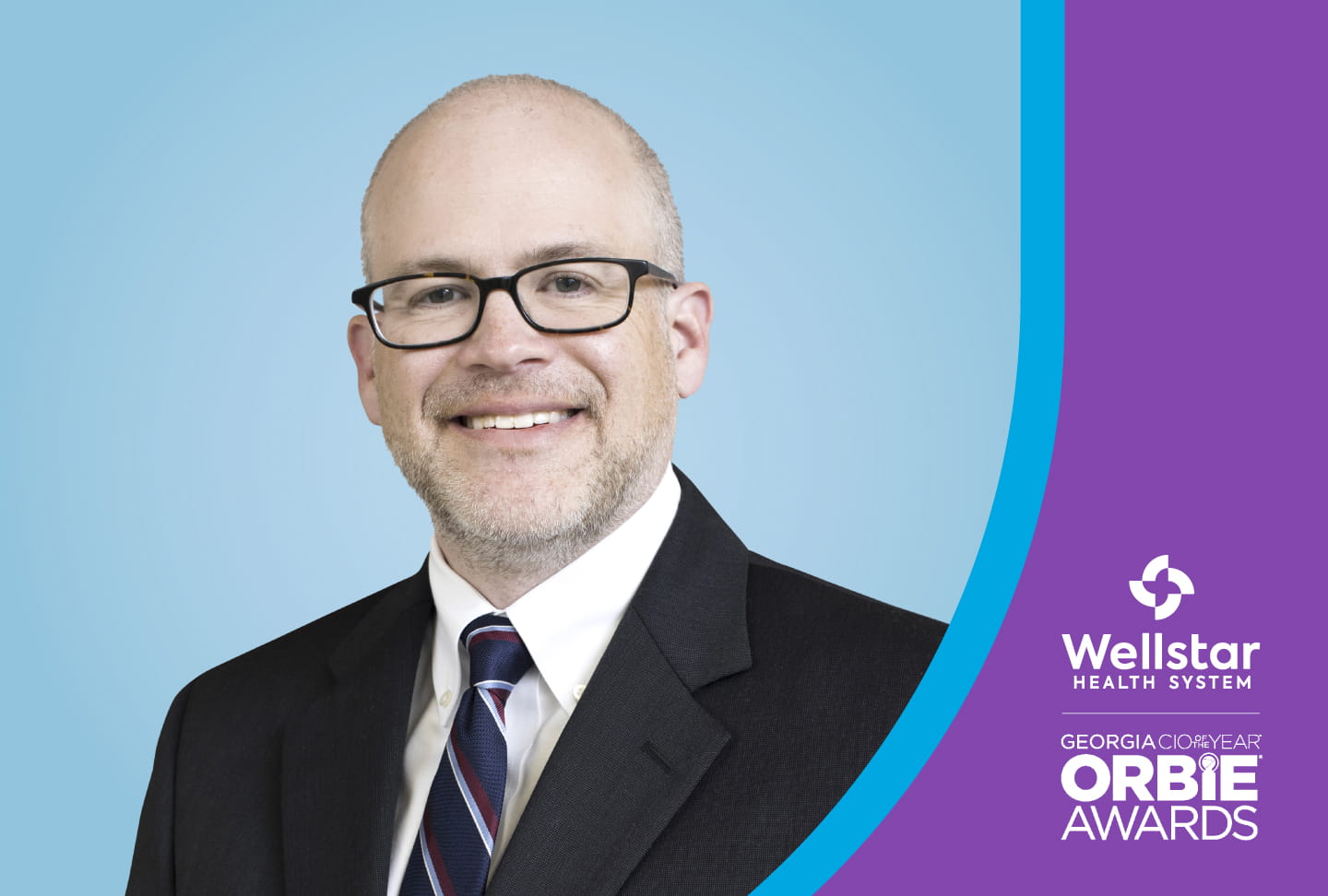
Dr. Hank Capps Awarded 2022 Georgia CIO of the Year® ORBIE® Award in Healthcare
This month Dr. Hank Capps, Wellstar Health System’s executive vice president, chief information and digital officer, and founder and president of Catalyst by Wellstar, was honored by GeorgiaCIO with the 2022 CIO of the Year® ORBIE® Award in the healthcare category.
The CIO ORBIE Awards is the premier technology executive recognition program of its kind that recognizes CIOs in Georgia who have shown excellence in technology leadership. Since its inception in 1998, over 500 CIO winners have received the prestigious ORBIE Award. The ORBIE signifies exceptional leadership, innovation, and vision, representing the characteristics and qualities that inspire others to achieve their potential. GeorgiaCIO is led by an advisory board of CIOs from prominent organizations in Georgia who set the direction for events, membership, and annual Awards program.
“Every organization is technology-dependent, but strong leadership is the X-factor that can turn mundane IT into a remarkable strategic differentiator,” said Brandon Van Orden, GeorgiaCIO Chair. “The ORBIE Awards are meaningful because they are judged by peers – CIOs who understand the challenges of technology leadership.”
Within one year of joining Wellstar, Dr. Capps led the creation and launch of Catalyst by Wellstar, a first-of-its-kind global digital health and innovation center designed to disrupt the future of healthcare. Dr. Capps has also led the transformation of the core technology functions of the organization, including reorganizing around customer needs, launching the Wellstar Data and Insights Institute, and accelerating implementations of ERP, Device Integration, core infrastructure modernization, and data governance initiatives with the main goal to make work easier for clinicians and team members.
“PeopleCare is at the forefront of every project let by the Wellstar team. For myself and the dedicated team at Wellstar, the greatest reward is caring for patients each day,” said Dr. Hank Capps.
Dr. Capps and his team of experts are committed to changing the model from sick care to PeopleCare, by harnessing new technologies and always-connected networks to make care more personalized and focused on well-being through prevention. Some specifics include:
This recognition is a testament to the nearly 1,000 digital, technology, data, and innovation team members who help deliver on Wellstar’s mission of improving the health and well-being of every person served.
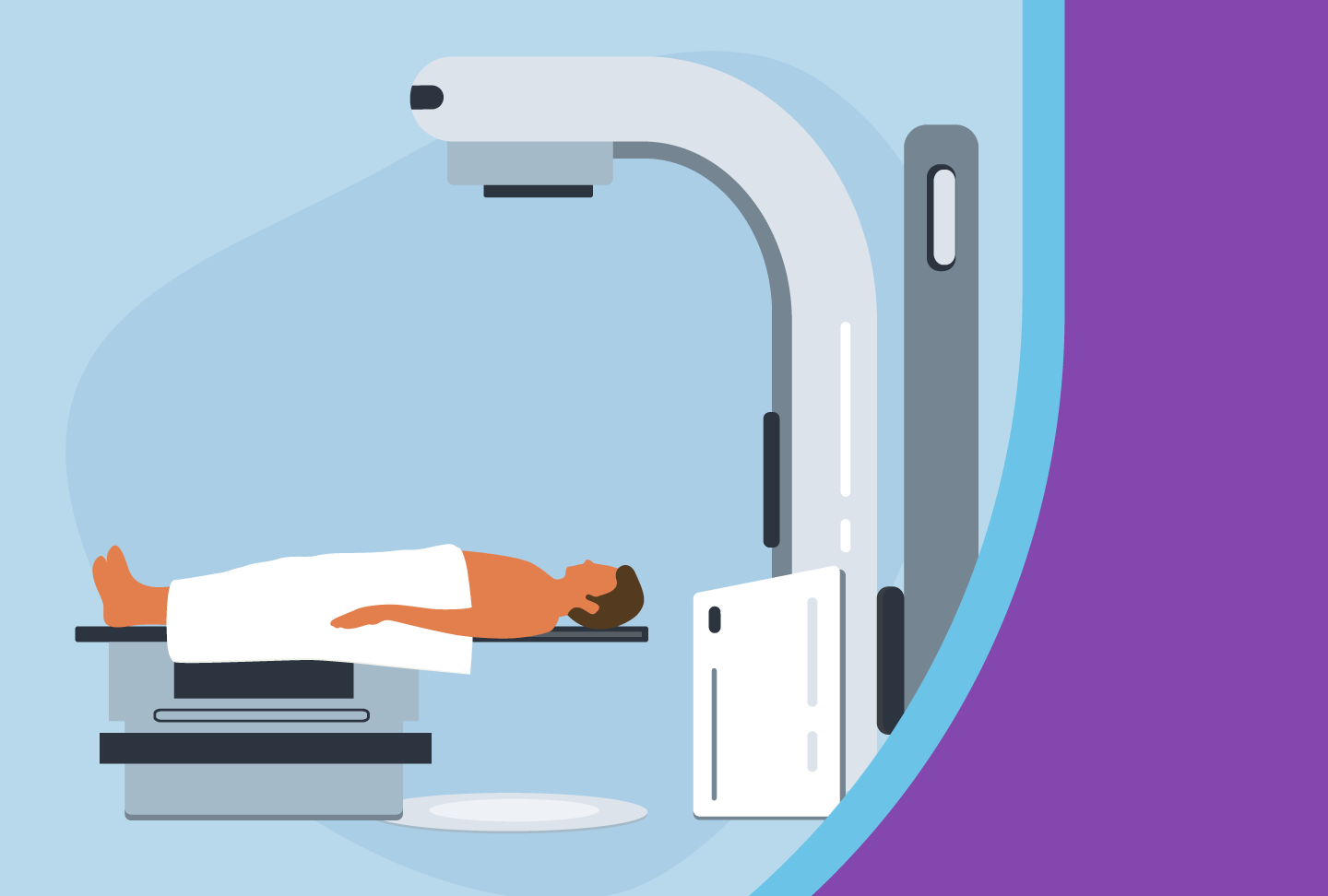
Wellstar Paulding Medical Center Breaks Ground on New Radiation Technology
Wellstar Health System announced a multimillion-dollar investment to bring cutting-edge radiation therapy to Wellstar Paulding Medical Center in Hiram, Georgia on November 2, 2022.
“Our motto is ‘Neighbors Caring for Neighbors’ and these new technologies will enhance access to medical care for every neighbor in Paulding County,” said Ralph Turner, Wellstar senior vice president and president of Wellstar Paulding Medical Center. “Our team is focused on providing a patient-centric experience. Having a short drive and the comforts of home and family nearby helps the healing process.”
The expansion will enhance the patient experience by adding a new radiation vault to house a second linear accelerator — the technology that delivers radiation therapy — and is slated for completion in early 2023.
In the last year, patients received nearly 8,000 radiation treatments. The radiation oncology team often extended hours from 7 a.m. until 7 or 8 p.m. to accommodate patients.
During a recent press conference, a group of patients, physicians, healthcare leaders, team members, government leaders and community partners ceremonially broke ground on the major expansion of Wellstar Radiation Oncology. The facility is located on the ground floor of Wellstar Paulding Medical Center’s Outpatient Pavilion at 148 Bill Carruth Parkway in Hiram, Georgia.
The new machine will also bring a leading-edge cancer treatment called stereotactic body radiation therapy (SBRT) to Paulding County for the first time. This radiation technology uses multiple X-ray beams to treat tumors with highly precise, high-dose radiation to any location in the body, preserving surrounding tissue, organs and nerves. The technology allows patients to have significantly fewer treatment sessions.
“This is a huge step forward for cancer care for the people of Paulding County,” said Dr. William Thoms, who has served as the radiation oncology medical director for Wellstar Paulding Medical Center since 2017. “This expansion will allow people to stay in our community for more advanced treatments with shorter wait times.”
The renovation will also modernize the dressing rooms and add more space to increase patient comfort.
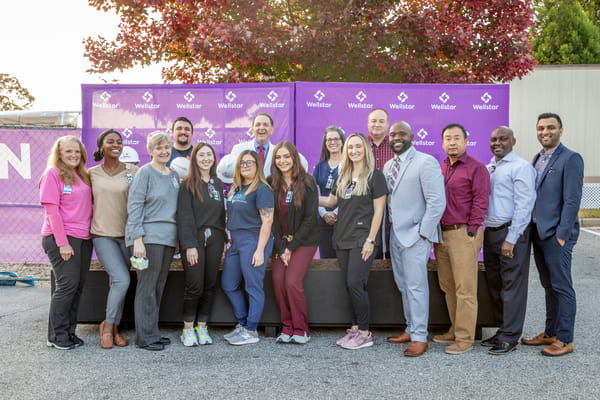
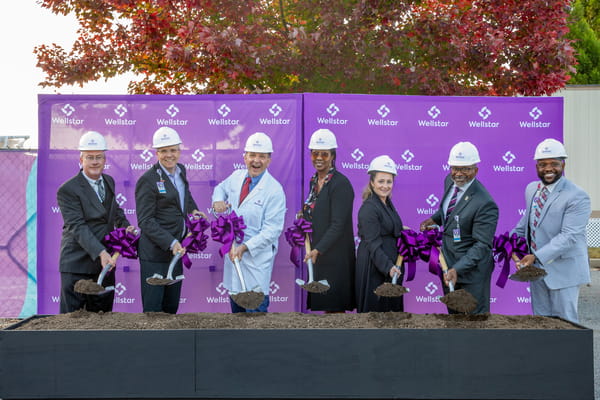
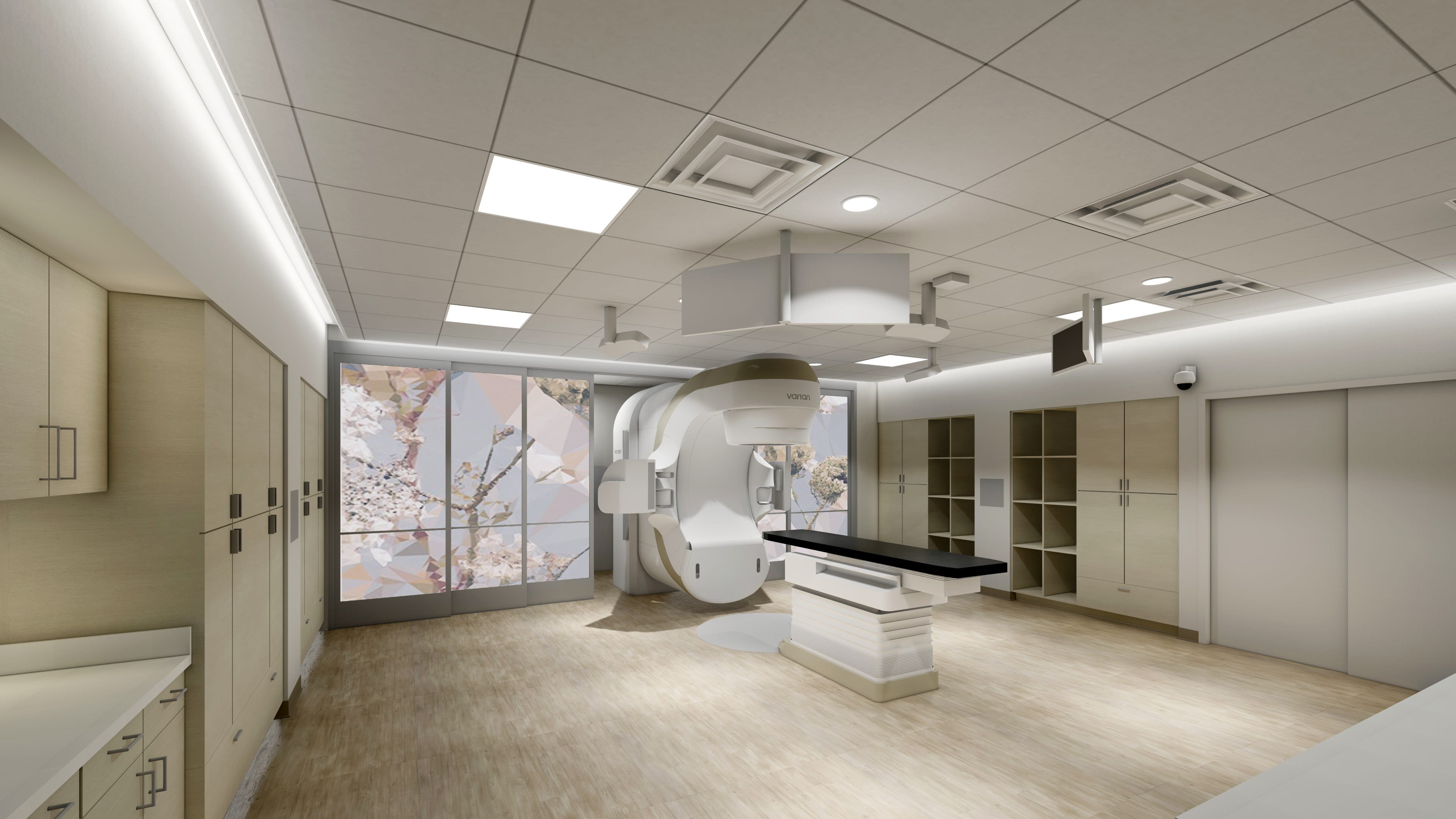
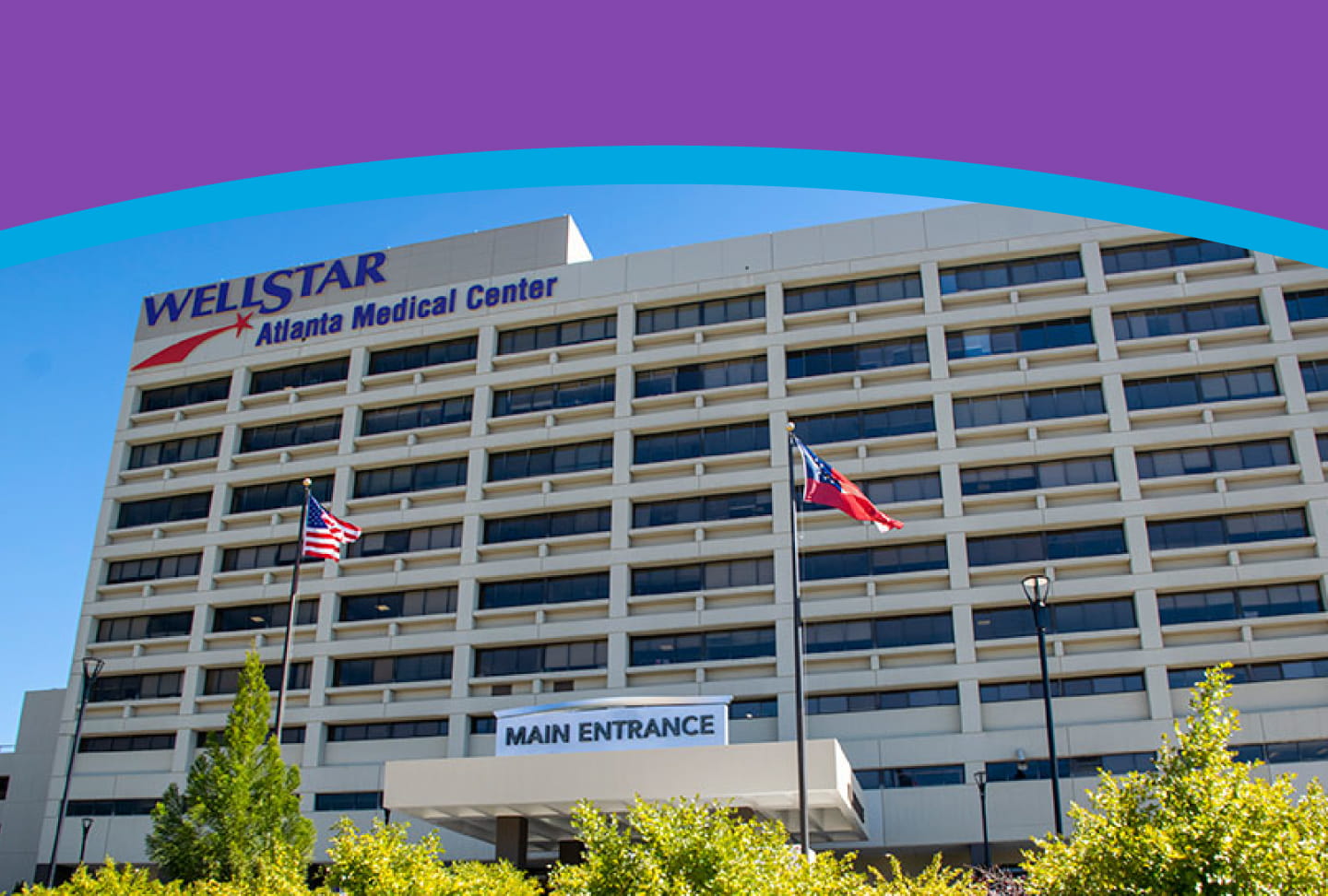
CEO Statement About AMC Closure
Candice L. Saunders, FACHE and O. Scott Swayze, MD
Atlanta Medical Center (AMC) has proudly served the community with compassionate healthcare for more than 100 years. It’s a legacy of service and success spanning its years as Tabernacle Baptist Infirmary, Georgia Baptist Hospital and AMC, and at Wellstar, we are honored to have been part of this story.
We understand and share the community’s disappointment that the hospital has closed as of November 1. While the decision may have felt abrupt, it came after an exhaustive search where a national consulting firm identified a number of potential partners. However, after learning more about AMC’s infrastructure and finances, none were willing to move forward. Discussions with state, local and community officials also offered no alternate paths forward.
Throughout the transition, we have remained focused on supporting our AMC patients and team members. Because our top priority is ensuring patient safety, we worked to thoughtfully wind down services in advance of the closure, including safely transferring the few remaining patients to other appropriate Wellstar hospitals and connecting with partners to ensure people receive the care they need.
We are deeply grateful to the hundreds of AMC team members and clinicians who have worked hard to ensure a successful transition and for their many years of service at AMC. We are honored that nearly 75% of our more than 1,780 offers to AMC team members for new positions have been accepted, and we are grateful they will continue in their shared pursuit of Wellstar’s mission and vision. Now that the hospital has been safely closed, Wellstar will continue to secure and maintain the facility and begin a thoughtful process to determine what is next for the site.
The challenges we faced at AMC were multi-faceted and included the age of AMC’s buildings, patients using less than half of the bed capacity, lack of public support while caring for communities most in need of whole-person wellness offerings such as primary and preventive care. Compounding these issues were the intense financial pressures facing hospital systems across the country. Like many of our peers, we felt the pain of the end of government pandemic aid and the skyrocketing costs of supplies and labor. The needed investment to address these challenges was simply too great for Wellstar alone.
As we look ahead, Wellstar will continue to build lasting partnerships that will provide people with increased access to the care they need. As the largest provider of uncompensated care in Georgia, we are proud to serve 1 in 6 Georgians in diverse communities across the region. We will continue to be there for those who need us for primary and specialized care and through our critical role in the statewide collaborative trauma network.
Through our recently announced partnership with Southside Medical Center, Wellstar will invest $5 million in Southside’s East Point clinic to expand their size and capacity and provide greater access to much-needed primary and preventive care, among other services. This is the latest example of our long-standing commitment to partner with others to provide ongoing care to the AMC community.
Our vision for the future requires collaboration with mission-aligned partners and with our friends and neighbors in our communities. That includes partners within and beyond the healthcare industry who can bring unique ideas and perspectives to support the health of the whole person, address the social determinants of health and expand access to world-class care when, where and how people need it. Together, we can transform healthcare to support the people we serve throughout their health and wellness journeys — not just when they are sick or injured. We can build the bold future of care Georgians need and deserve.
Candice L. Saunders, FACHE, is the president and CEO of Wellstar Health System, one of the largest and most integrated health systems in Georgia. A former critical care nurse, she leads nearly 25,000 team members and physicians overseeing the health and well-being of communities throughout the state.
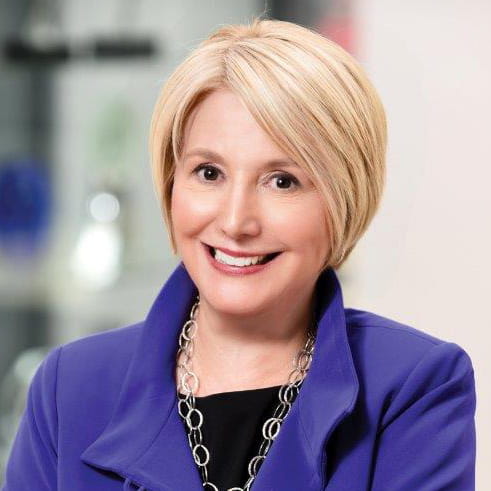
O. Scott Swayze, MD, is the chair of the Board of Trustees for Wellstar Health System. He is an accomplished orthopaedic surgeon, practicing at Pinnacle Orthopaedics and belonging to local, state and national orthopaedic associations.
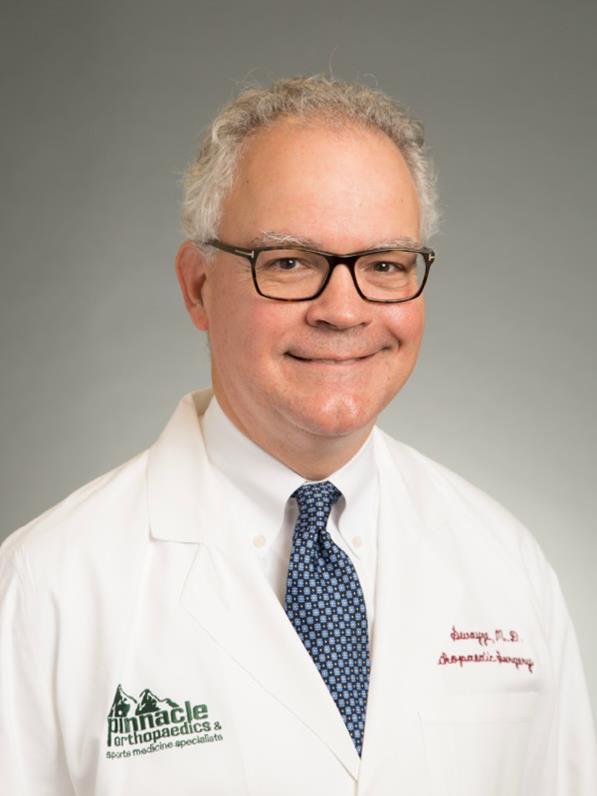
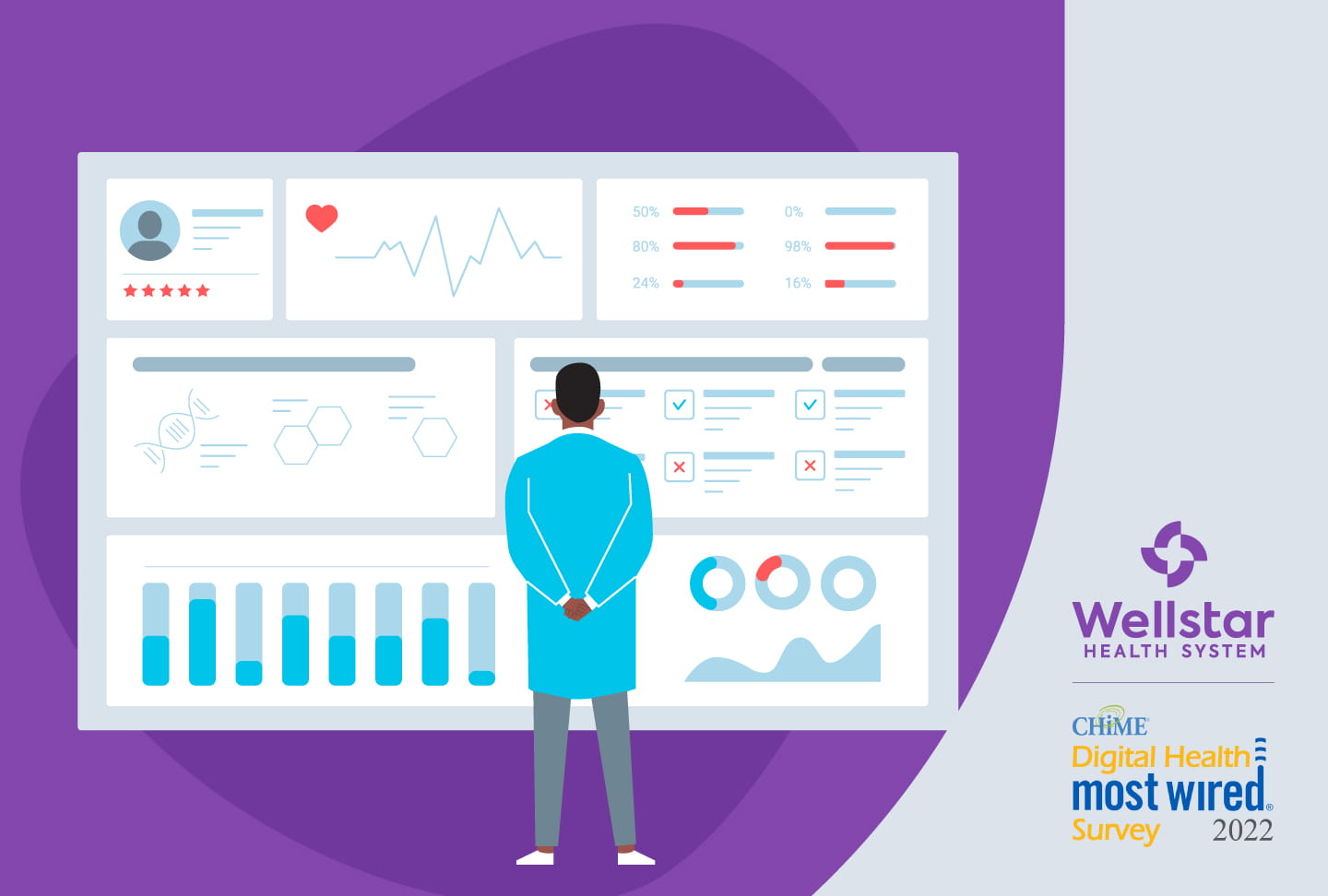
Wellstar Health System Earns Level 9 Ranking for Digital Health Most Wired Recognition
College of Healthcare Information Management Executives (CHIME), has released their coveted Digital Health Most Wired Survey results for the 2022 data collection period. Wellstar Health System is proud to announce our Level 9 recognition in both acute and ambulatory categories survey selection. This is the eighth time Wellstar has been recognized with this award. Wellstar is one of only two organizations in Georgia to receive the Level 9 rating.
The annual survey is designed to recognize healthcare organizations that exemplify best practices through their adoption, implementation and use of information technology.
Among the more than 38,000 organizations surveyed by CHIME, Wellstar Health System ranked above peers in categories like analytics and data management, population health, infrastructure and patient engagement. The survey assessed the impact of technologies in healthcare organizations at all stages of development, from early development to industry leading.
“We are proud to honor your team’s exceptional dedication to excellence in digital health,” said CHIME President and CEO Russell P. Branzell. “Your pioneering performance in the industry inspires other organizations by example. Patients in communities around the world receive better care when you drive change through digital transformation, as you have proven through your success in this rigorous program.”
The Digital Health Most Wired survey and recognition program serves as a comprehensive “Digital Health Check-up” for healthcare organizations across the world. As success in digital health increasingly determines the quality of patient care, the scope of the CHIME Digital Health Most Wired survey reflects the progress of leading healthcare providers as they reinvent healthcare for a new century.
“Patients in our communities can receive better care when we drive change through digital transformation, as we have proven through our success in this rigorous program,” said Dr. Pranav Jain, VP and chief medical information, Wellstar Health System. “These recognitions help Wellstar’s patients understand the high level of care they can receive, and that we strive to better the lives of every patient we serve.”
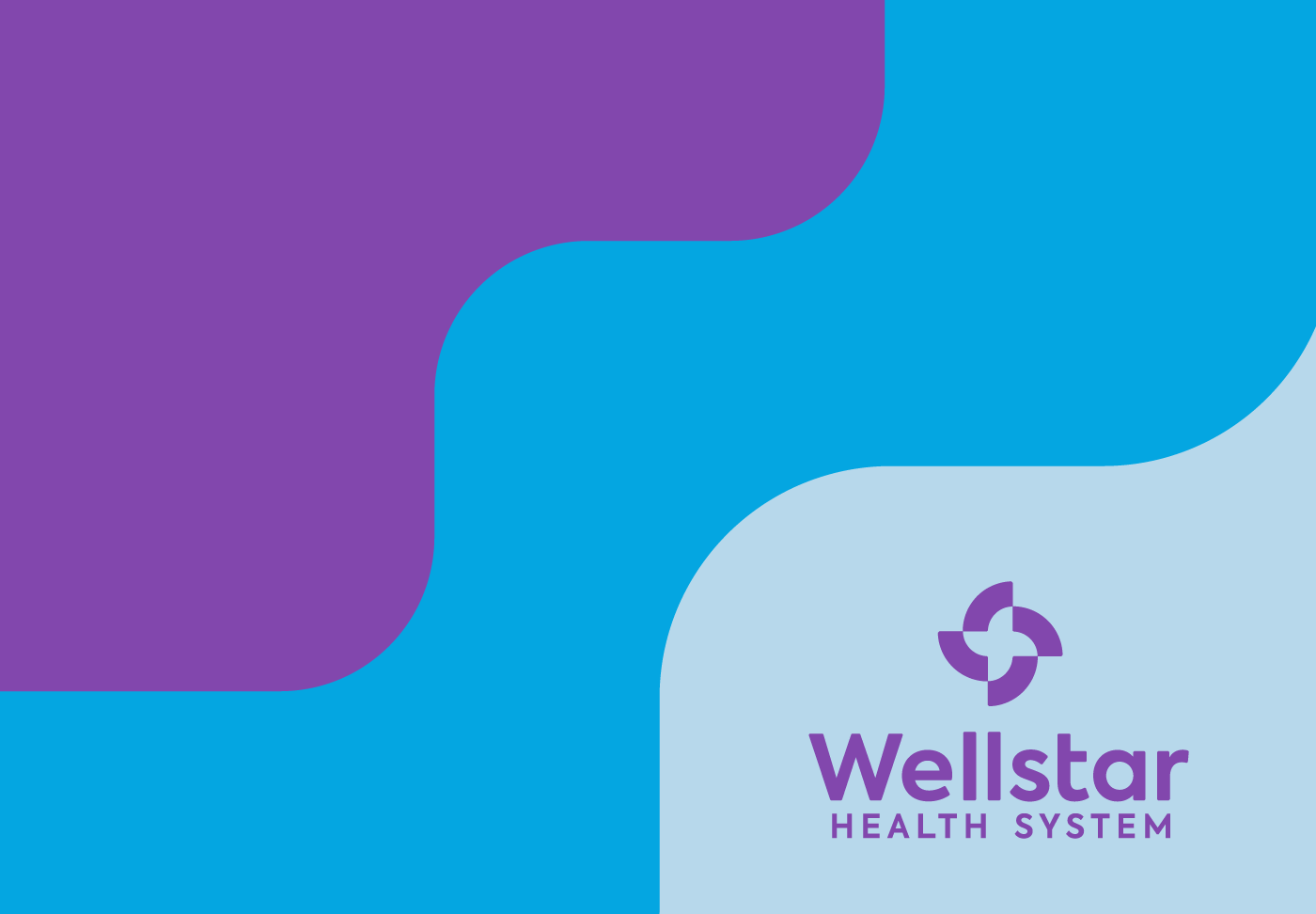
Southside Medical Center and Wellstar Partner to Enhance the Health of Atlanta Communities
Wellstar Health System and Southside Medical Center are announcing a new partnership to improve primary and preventive care throughout Atlanta communities. Together, the organizations will focus on expanding access to preventive, whole-person care and chronic disease support, rather than treating patients episodically when they are acutely sick or injured without guaranteed follow up.
As the first step in this collaboration, Wellstar will invest nearly $5 million toward expanding primary care services for thousands of East Point residents at Southside Medical Center’s East Point clinic located at 1100 Cleveland Ave. Through Wellstar’s investment, the Southside Medical Center clinic in East Point will expand its size, capacity and hours.
“This important partnership will create a much-needed medical home that will meet the primary and preventive care needs of the South Fulton County community,” said David M. Williams, MD, President and CEO of Southside Medical Center. “Wellstar and Southside share a vision to promote a culture of health and well-being. Building upon the initial expansion in East Point, our plan is to promote change in health status, lifestyles and health outcomes in the patients we serve through a new model of care throughout Metro Atlanta.”
The Southside Medical Center clinic is adjacent to Wellstar’s East Point Health Center (EPHC), which offers urgent care, care coordination and behavioral health services. Through this partnership, care coordinators at EPHC will support urgent care patients in developing a relationship with primary care clinicians at Southside Medical Center to support their long-term health and well-being.
“At Wellstar, we know from our experience, and we have heard from our patients and consumers that our communities have a critical need for preventive primary care health services, especially those focused on chronic illnesses,” said Candice L. Saunders, President and CEO of Wellstar Health System. “We are proud to partner with Southside Medical Center to grow access to the kind of care that matches the needs of the community and promotes the long-term health and well-being of the people we serve. This partnership represents Wellstar’s broader vision for the future of healthcare, which is focused on transformative care models that support overall community health and wellness through personalized preventive care.”
In April 2022, Wellstar transitioned the Atlanta Medical Center South hospital campus to an urgent care clinic to better match the care needs of the community. The partnership with Southside Medical Center represents the next step on this journey to create a sustainable care solution that will best serve the South Fulton County community long-term.
By expanding and enhancing the care offered through Southside Medical Center, patients will have access to family medicine, general dentistry, behavioral health services and substance abuse disorders management. Patients will also have access to Southside’s Behavioral Lifestyle Enrichment Center, which provides mental health and addiction treatment through their comprehensive Lifestyle Enrichment Treatment program to address addiction, depression, anxiety and other disorders.
Southside Medical Center is a Federally Qualified Health Center (FQHC) that has provided care to East Point and Atlanta communities for over 55 years. As an FQHC, Southside Medical Center provides primary care access to all patients of the communities it serves, especially
underserved communities. Southside Medical Center has strong ties to the community, and expanding their clinic is the right next step toward a sustainable care solution for a population that needs access to primary care, preventive and mental health services. As an FQHC, Southside Medical Center intends to provide greater access to primary and preventive health care services in addition to addressing the chronic care needs of the community through the patient-centered medical home model, which is designed to address both the clinical and social determinants of health issues which impact the healthcare and well-being of our community.
An important member of the East Point and Atlanta communities, Southside Medical Center has been nationally recognized by the National Association of Community Health Centers for having one of the best primary care delivery systems for the medically underserved.
“I look forward to the incredible impact this clinic will have on the lives of the patients and families we serve,” Dr. Williams said. “The expansion in East Point is just the beginning of an impactful partnership with Wellstar that I’m confident will meaningfully improve the health of our friends and neighbors throughout our region.”
As these groups move forward with this exciting partnership, Wellstar and Southside Medical Center will continue to work in collaboration with East Point Mayor Deana Ingraham, and we look forward to sharing more about this exciting next step.
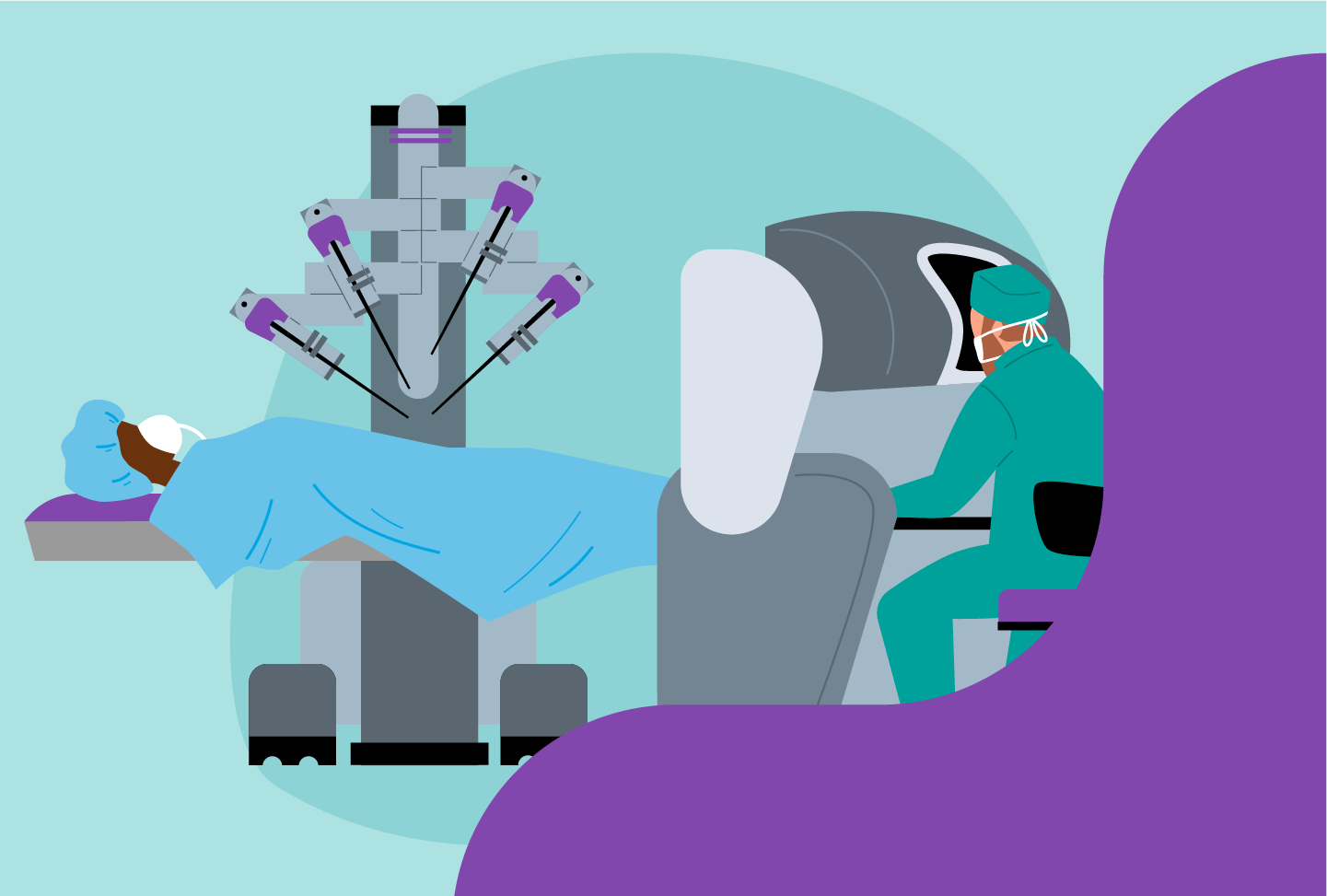
Wellstar Brings Robotic Surgery to the Paulding Community
For the first time, people in Paulding County and nearby communities have access to leading-edge robotic surgery close to home. Wellstar Health System launched a new robotic surgery program at Wellstar Paulding Medical Center.
“We’re thrilled to offer access to game-changing da Vinci robotic surgery at Wellstar Paulding Medical Center for the first time in history,” said Ralph Turner, Wellstar senior vice president and president of Wellstar Paulding Medical Center.
Robotic technology enables surgeons to make highly precise incisions smaller than the human hand can make — as tiny as a keyhole. As a result, people who have robotic surgery typically experience less blood loss, recovery pain and scarring.
“Robotic surgeries are minimally-invasive, which typically means shorter hospital stays and faster recoveries,” said Dr. Beau Dusseault, a urologist who leads the robotics program at Wellstar Paulding Medical Center.
He performed the first robotic surgery at the hospital, assisted by the $1.8 million da Vinci Xi Surgical System, on August 22. Dr. Dusseault has performed more than 440 robotic surgeries for prostate cancer and urinary tract conditions.
Experienced urologists and general surgeons are the first to offer robotic surgery at Wellstar Paulding Medical Center, primarily treating:
The surgical team named the robot “Rosie,” a reference to the robotic maid from the 1960s sitcom “The Jetsons.” It is one of 14 robotic systems patients can benefit from at nine Wellstar locations.
“While our robotic surgery program is new to Paulding, we have high-volume robotic experience that we are bringing from the other Wellstar hospitals,” Dr. Dusseault added.
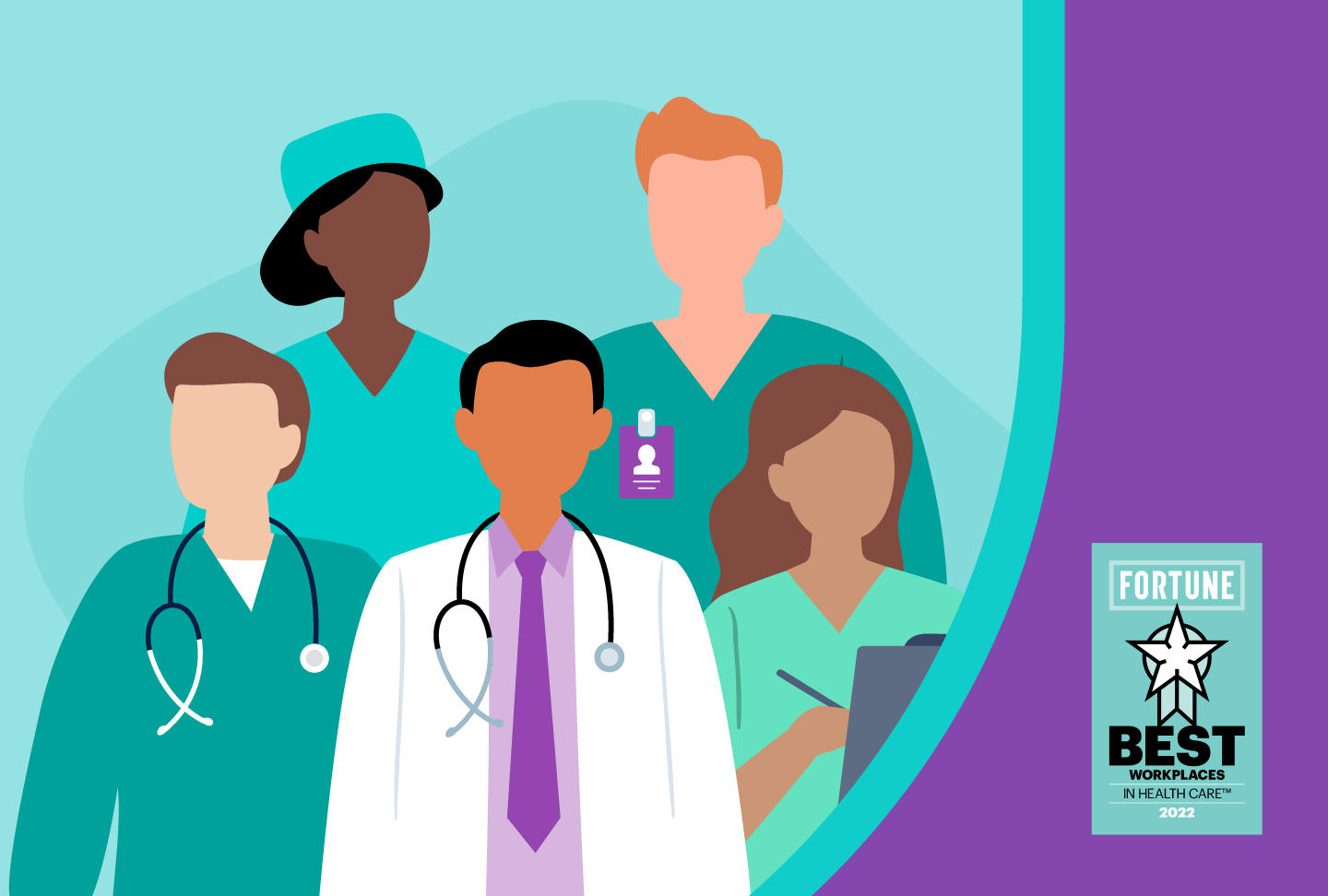
Wellstar Health System Ranked #9 by Great Place to Work® and Fortune Magazine
Wellstar Health System, one of Georgia’s largest and most integrated health systems, has been ranked in the top 10 Best Workplaces in Health Care™ by Fortune Magazine in the “Large Company” category.
The Great Place to Work® Trust Index™ Survey results show that 81 percent of employees at Wellstar Health System say it is a great place to work, compared to an average of 57 percent for other U.S.-based companies. Additionally, 88 percent of Wellstar team members feel a sense of pride in accomplishments made at Wellstar.
To determine the Best Workplaces in Health Care list, Great Place to Work analyzed the survey responses of over 161,000 employees from Great Place to Work-Certified™ companies in the healthcare industry. The survey enables employees to share confidential quantitative and qualitative feedback about their organization’s culture by responding to 60 statements on a five-point scale and answering two open-ended questions. Collectively, these statements describe Wellstar’s positive employee experience, defined by high levels of trust, respect, credibility, fairness, pride, and camaraderie.
Learn more about working for Wellstar at careers.wellstar.org.
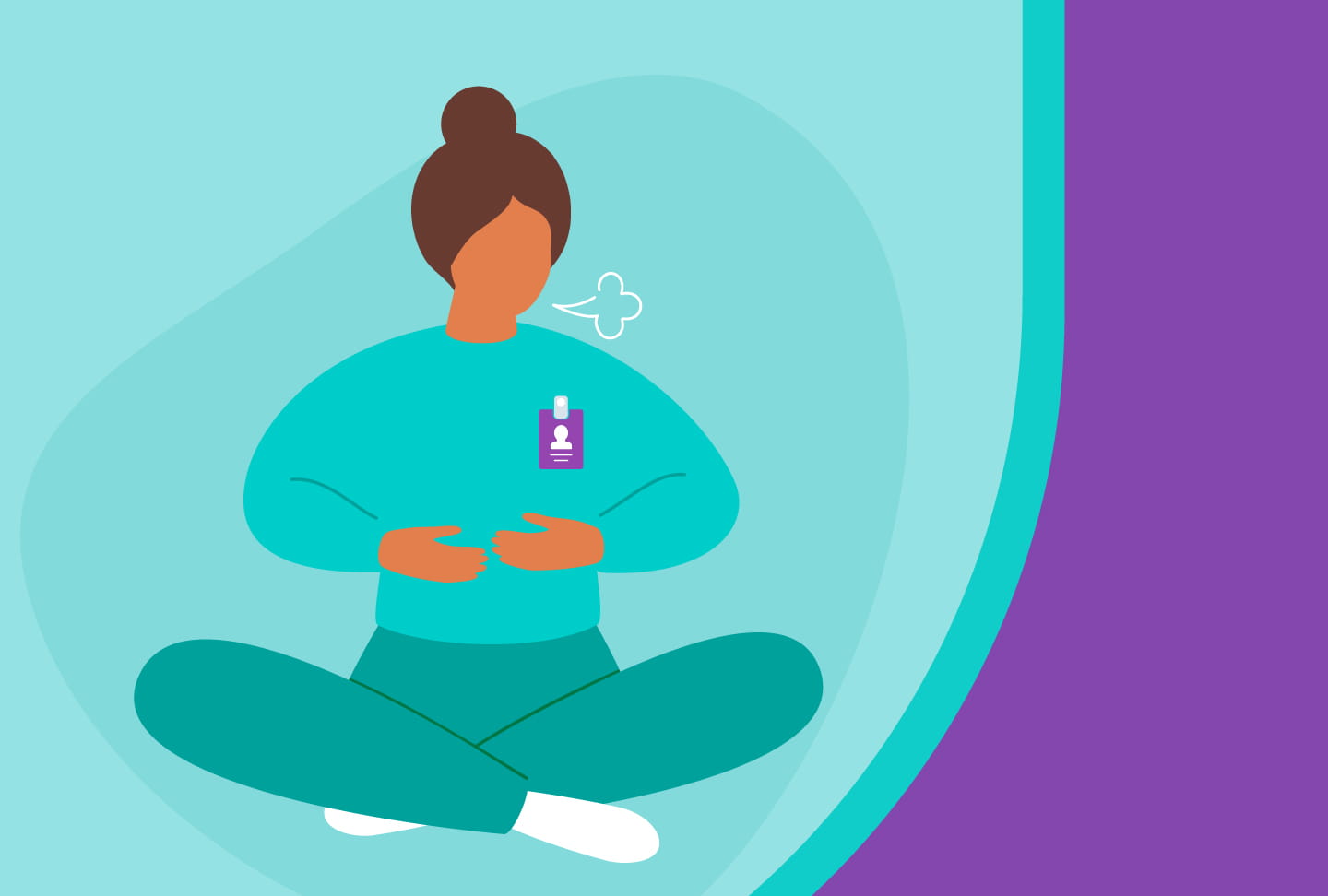
Wellstar Health System Earns Recognition as a Healthiest Employer from Atlanta Business Chronicle
Wellstar Health System, one of Georgia’s largest and most integrated health systems, announces it has been named a “Healthiest Employer” by the Atlanta Business Chronicle in the “Extra Large Company” category, recognizing innovative organizations that have created robust and healthy workplace programs.
“Wellstar is dedicated to putting people first in everything we do, and that starts with our team members,” says David A. Jones, EVP and chief human resources officer at Wellstar Health System. “Prioritizing a culture of wellness is essential as we strive to deliver world-class healthcare to every person, every time. Wellstar is proud to be recognized by Atlanta Business Chronicle for our work in looking out for our team members' health and well-being. When we take care of ourselves, we can better care for our communities.”
The Atlanta Business Chronicle’s Healthiest Employer award is based on the analysis of over 60 scored questions with more than 600 data points for scoring and benchmarking. Wellstar was included in this prestigious list as an organization that takes proactive measures to “better the lives of employees through innovative programs and leadership commitment.” In 2022, wellness rooms were established across the system for team members to have a place to reflect, refuel and recharge during their shifts. Team members also have access to state-of-the-art fitness centers and onsite mental health resources.
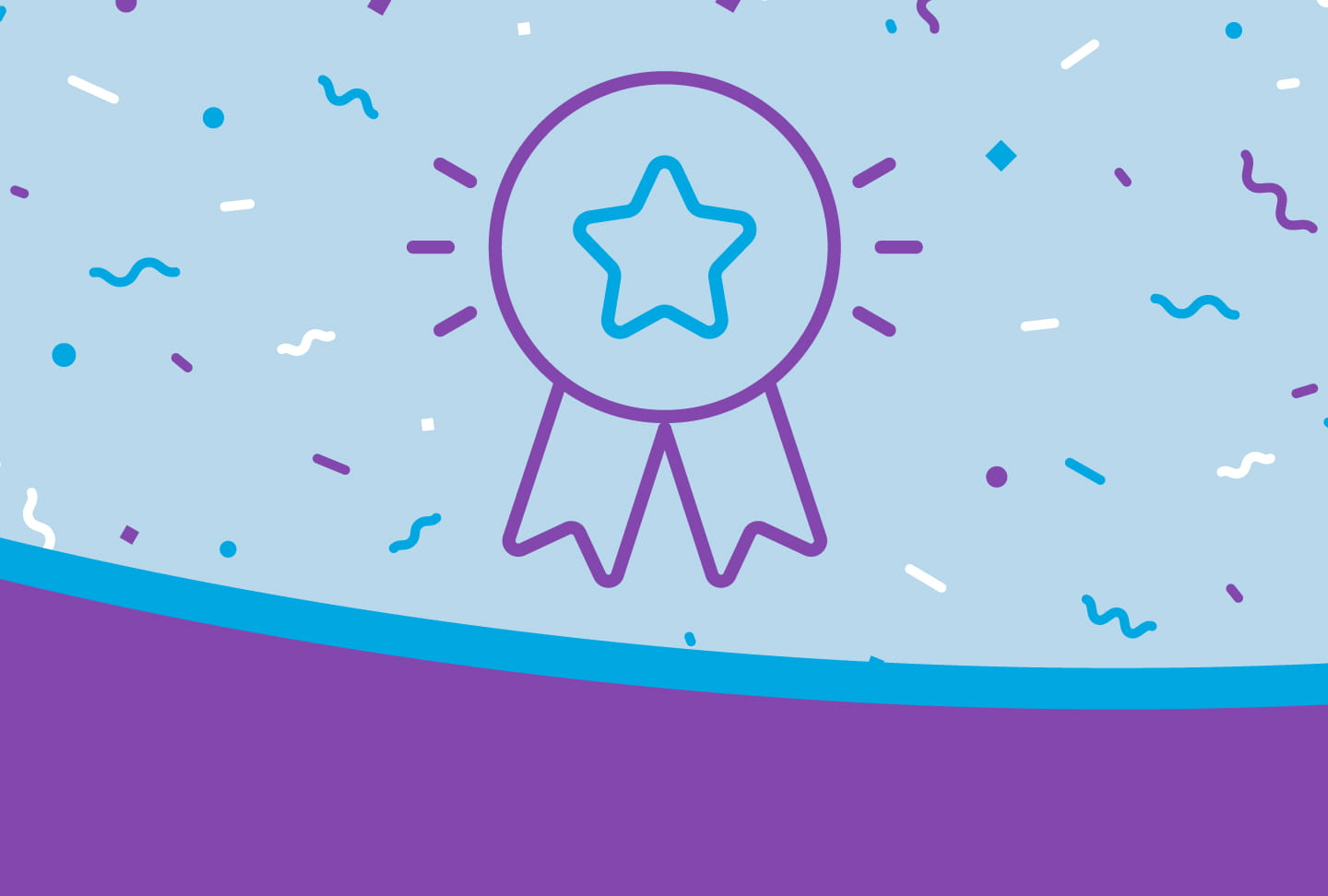
Wellstar Recognized for Expert Patient Care
Wellstar is dedicated to serving our communities with high-quality care that’s conveniently located and accessible when it is needed most.
Several Wellstar facilities have been recognized in the U.S. News & World Report Best Hospitals rankings for providing world-class care in a variety of specialties, including cardiology, neurology and cancer care. Hospitals ranked as high-performing in an area of care are in the top 10 percent in the country.
Our team is grateful to be recognized for our care and looks forward to continuing our mission to enhance the health and well-being of every person we serve. To learn more about care at Wellstar, call (770) 956-STAR (7827).
Wellstar Cobb Medical Center was recognized as high-performing in treating:
Wellstar Douglas Medical Center was named high-performing in treating:
Wellstar Kennestone Regional Medical Center was ranked 32nd in the nation for rehabilitation services and the hospital ranked ninth in the state overall. It was also named a Best Regional Hospital and was recognized as high-performing in the following procedures and treatments:
Wellstar North Fulton Medical Center was recognized as high-performing in treating:
Wellstar Paulding Medical Center was named high-performing in care for:
Wellstar Spalding Medical Center was recognized as high-performing in treating:
Wellstar West Georgia Medical Center was named high-performing in treating:
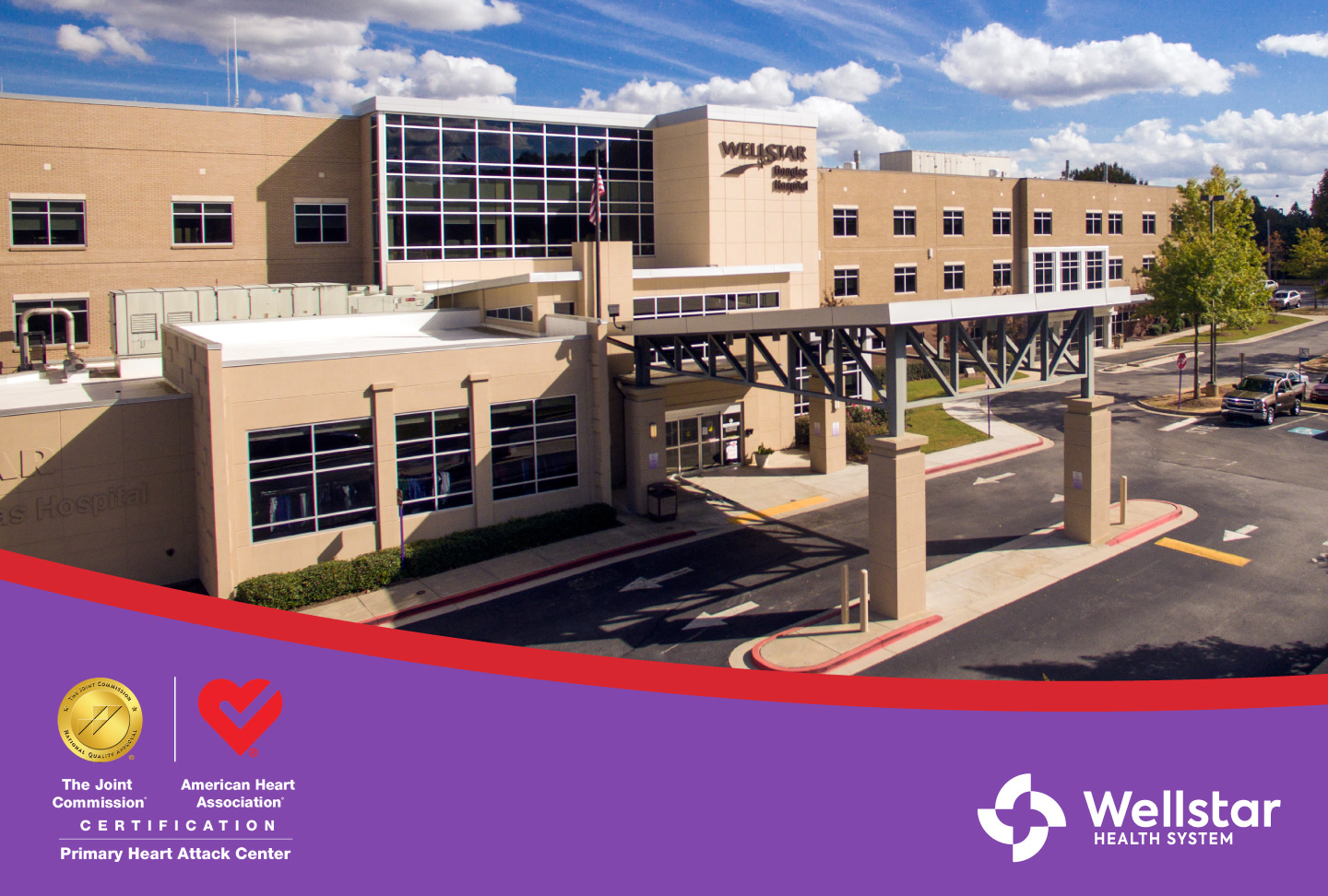
Wellstar Douglas Hospital Earns Advanced Certification
Wellstar Douglas Hospital recently attained advanced certification as a Primary Heart Attack Center (PHAC) by The Joint Commission and The American Heart Association. This means the hospital offers patients the next generation of cardiac care.
“Our cardiac experts in Douglas County are dedicated to doing what is best for the patient,” said Dr. Joshua M. Willis, Medical Director of Cardiac Catheterization Lab at Wellstar Douglas Hospital. “The Joint Commission certification shows that our cardiac program is designed to help people having heart attacks receive the fastest, most evidence-based care.”
Wellstar Douglas Hospital has 24-hour-a-day coverage to treat heart attacks. The hospital’s team communicates with first responders, so patients can get diagnosed and treated as fast as possible upon arrival at the hospital by ambulance.
“Everything we do is centered around giving each person the best chance for positive outcomes,” Dr. Willis said.
The hospital’s team aims to get patients diagnosed fast by performing cardiac tests within 10 minutes of arrival at the hospital. For patients who need surgical intervention, Wellstar Douglas Hospital’s interventional cardiologists perform percutaneous coronary intervention (PCI) — a minimally-invasive procedure that restores blood flow to the heart — within a 90-minute-window.
According to Gene Morris, Director of Cardiac and Vascular Services, the cardiac team has performed 2,500 PCIs since the program launched in 2012.
Wellstar Douglas Hospital is also designated as an Emergency Cardiac Care Center (ECCC) Level II by the Georgia Department of Public Health.
To learn more about Wellstar Douglas Hospital, please visit the hospital webpage.
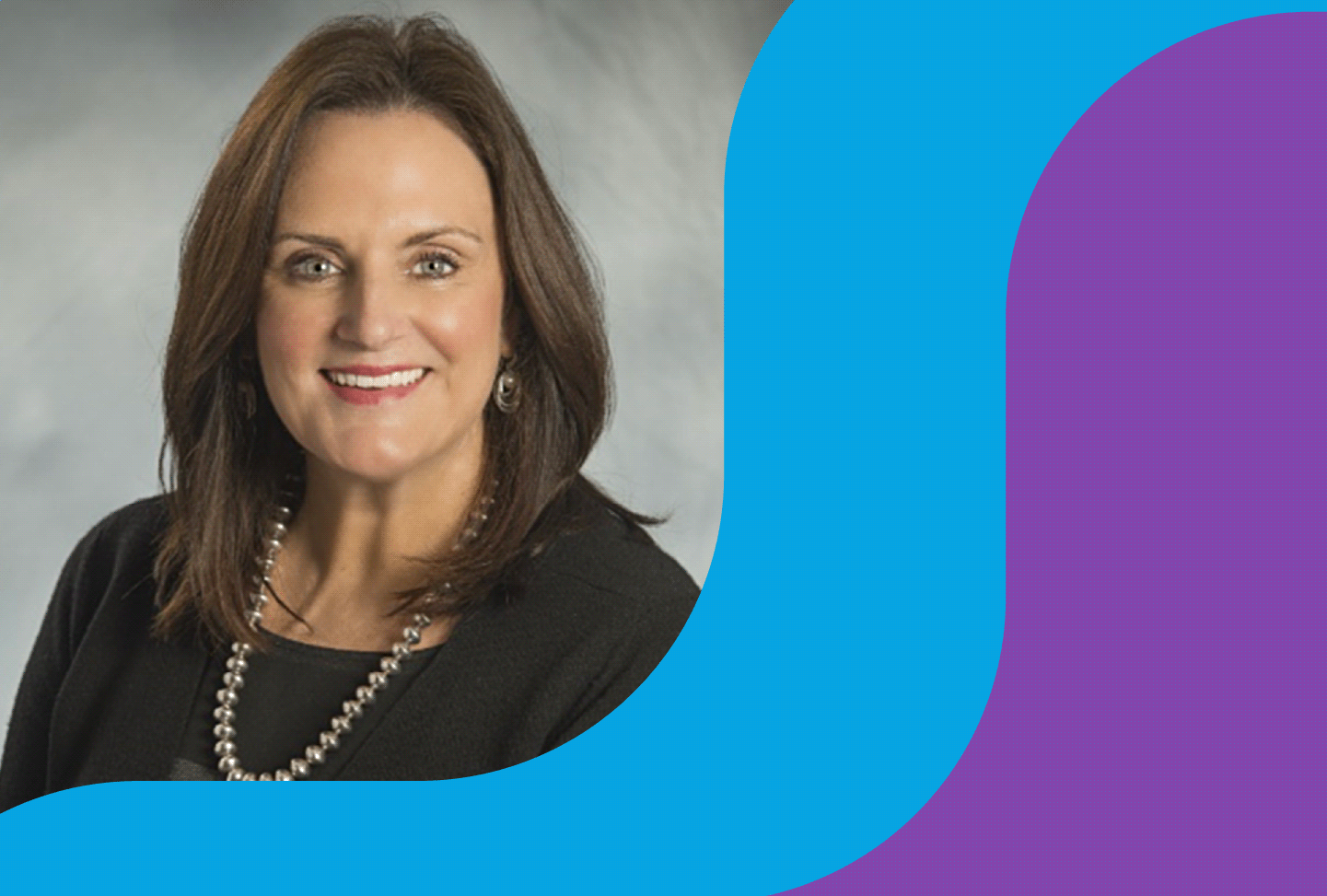
Wellstar Appoints Chief Experience Officer to Drive People Centered Care
Wellstar Health System, one of Georgia’s largest and most integrated healthcare systems, has hired Susan Grant as executive vice president and chief experience officer. Grant will begin her role on July 1 and will be focused on creating holistic, curated experiences that power the continued development and growth of Wellstar’s system of care. She will work closely with Dr. Hank Capps, Wellstar’s Chief Information and Digital Officer, as well as operations leaders across the system to advance digital experience and integration to enhance care model innovation.
"Wellstar Health System has made significant drives to remain on the cutting edge of medical service through our care and dedication to patient experience. Initiatives and programs that define our care often involve addressing the unique needs of each patient and community to be both as effective and compassionate as possible," said Candice L. Saunders, president and CEO of Wellstar Health System. "The more advances we make in the field of medical technology, the more effort we must give to unify these innovations into a holistic experience that benefits not only our patients, but our doctors, nurses, and practitioners as well. Grant’s highly knowledgeable background will help us define and develop that experience across our system."
Grant has operated in healthcare for over 30 years. Her wealth of experience in various roles such as Executive Vice President and Chief Nursing Officer at Beaumont Health in Detroit, Michigan, has led to incredible achievements, including leading the nursing practice of over 10,000 nurses across all care settings and overseeing successful Magnet redesignation of two hospitals. In addition, she helped secure the initial designation of four of eight hospitals in the system at that time.
Grant received her Doctor of Nursing Practice from Vanderbilt University, a Masters in Psychiatric/Community Mental Health Nursing from the University of South Carolina and her Bachelor of Science in Nursing from the Medical College of Georgia. She is currently the chair-elect of the Building Health Systems Excellence expert panel with the American Academy of Nursing, is a member of the Nurse Executive Council for The Beryl Institute and serves on the Board of Directors for the Daisy Foundation Board.
Existing Wellstar Health System programs such as Catalyst by Wellstar, the Wellstar Clinical Partners Program, and the Hospital Quality & Efficiency Program are key components of Wellstar’s dedication to Patient Experience. By increasing the systems, programs, and access to critical care needs, world class technology and care, and highly skilled staff and care practitioners, Wellstar continues to grow its ability to provide both meaningful care outcomes as well as world class care that matters – PeopleCare.
These programs and partnerships have revolutionized the way our patients and our staff engage with medical treatment, from enhanced training techniques, to employee wellness centers dedicated to mental health, to additional family support for hard-working professionals within the system.
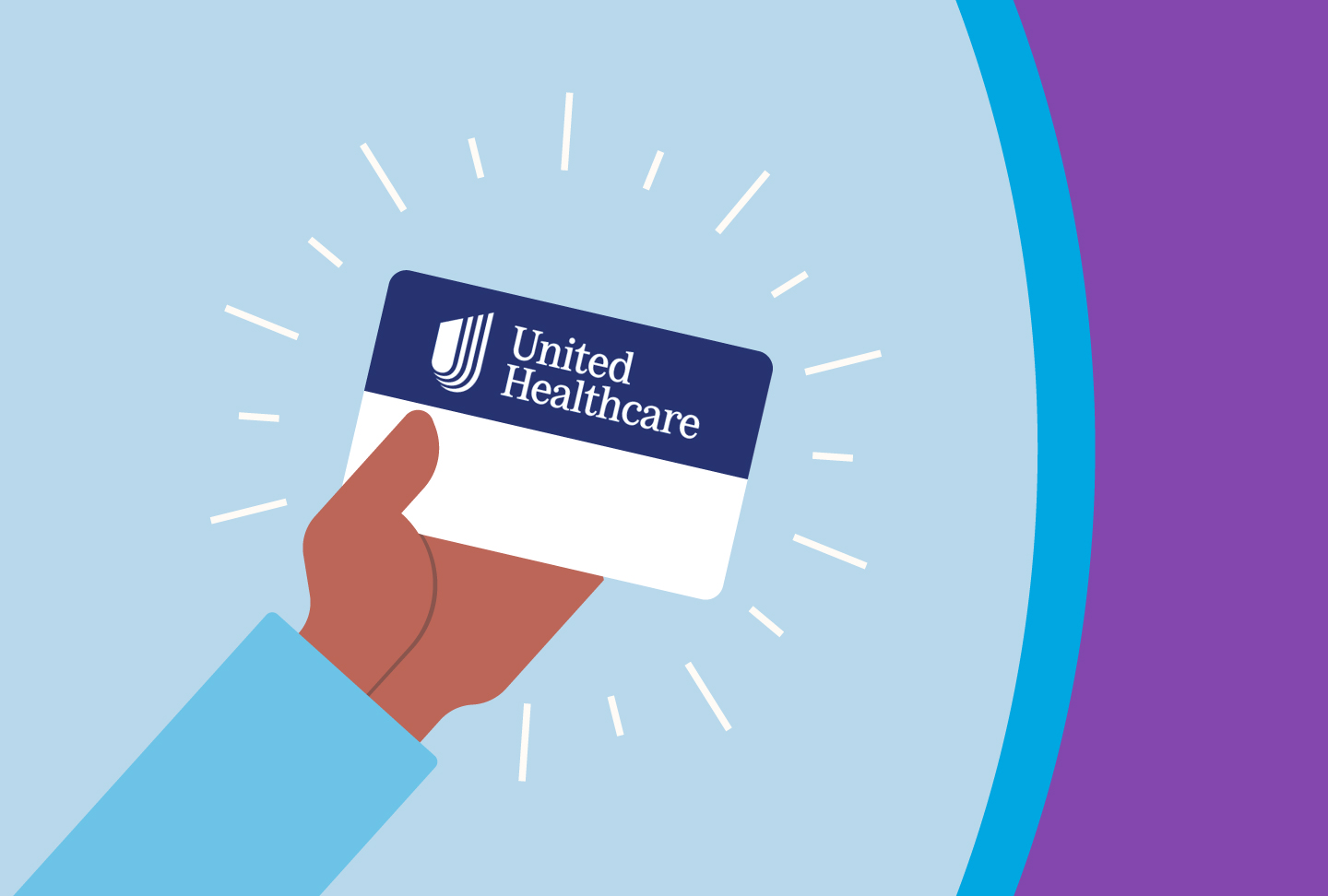
Wellstar Health System and UnitedHealthcare Renew Relationship
UnitedHealthcare and Wellstar Health System have reached a multi-year agreement that restores network access to Wellstar’s clinicians, hospitals, health parks and clinics for people enrolled in UnitedHealthcare employer-sponsored, individual and Medicare Advantage plans, effective July 1, 2022. The agreement also expands access to Wellstar Clinical Partners, skilled nursing facilities, home health and hospice care.
UnitedHealthcare members can begin scheduling appointments with Wellstar today through MyChart or by calling their clinician’s office. For more information, call 770-956-STAR (7827).
“We know how important it is for patients to have local access to high-quality care from the doctors and hospitals they know and trust,” said Candice L. Saunders, President and CEO of Wellstar Health System. “This agreement will offer expanded access and more convenient options for patients with UnitedHealthcare insurance.”
“The care that Wellstar provides to our members is important and personal to them,” said Junior Harewood, CEO of UnitedHealthcare Georgia. “Our top priority throughout this negotiation has been ensuring the people and employers we’re honored to serve in Georgia have access to quality, more affordable health care, and this new agreement helps accomplish that goal.”
Wellstar’s mission is to enhance the health and well-being of every person they serve and provides access to compassionate, high-quality care to 1 in 6 Georgians through 10 hospitals, 300+ medical office locations, 9 cancer centers, 74 rehabilitation centers, 3 hospice facilities, 1 retirement village, 34 imaging centers, 18 urgent care locations and 5 health parks.
In Georgia, UnitedHealthcare serves nearly 1.2 million people through a network of more than 150 hospitals and nearly 35,000 physicians and other care providers.
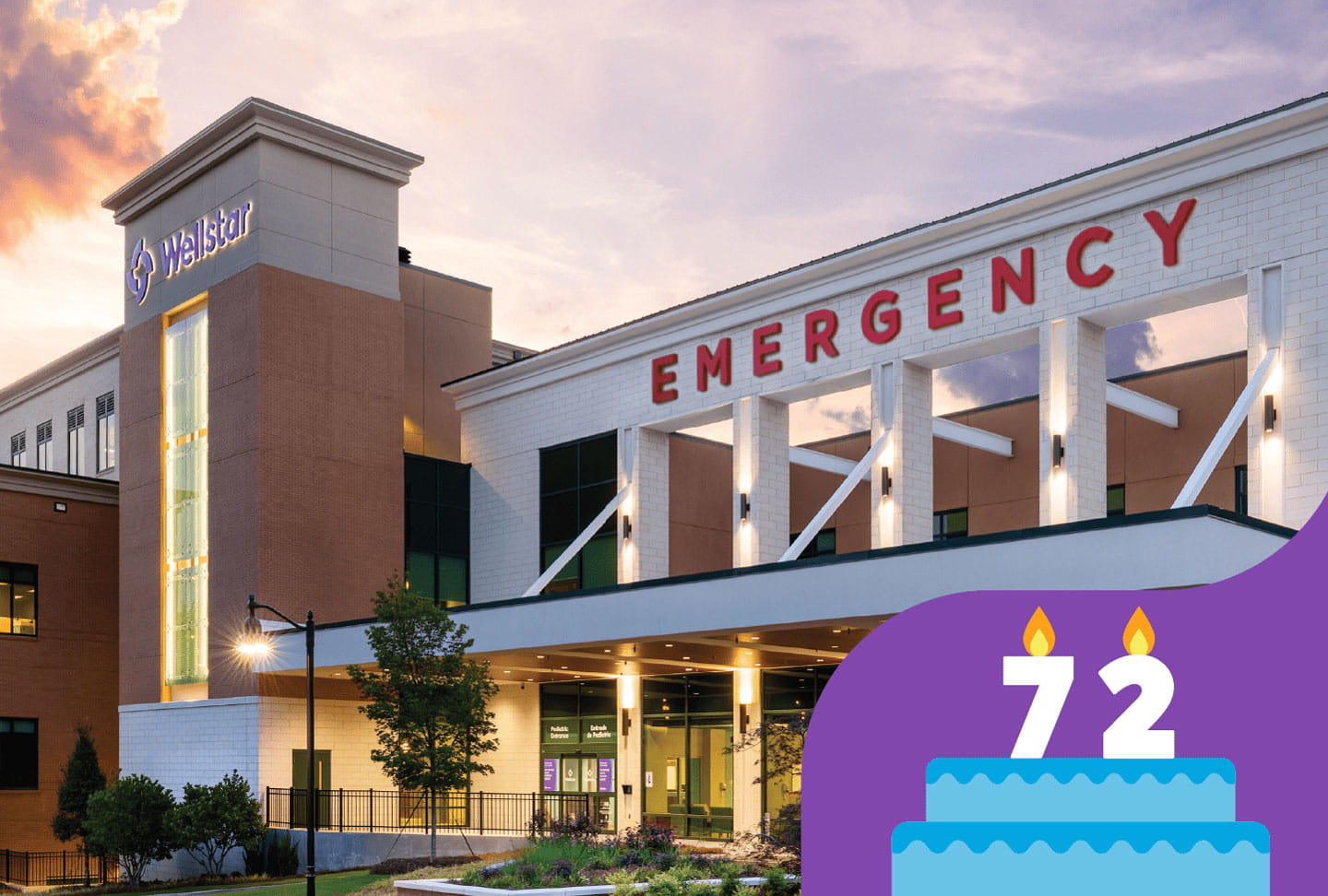
Wellstar Kennestone Regional Medical Center Celebrates 72 Years of Service to the Community as it Prepares to Expand Care
Callie B. Andrews, FACHE, MBA, MSHA, Senior Vice President & Chief Operating Officer, Wellstar Kennestone Regional Medical Center and Wellstar Windy Hill
As Wellstar Kennestone Regional Medical Center celebrates our 72nd birthday, we are grateful for the opportunity to serve our growing community. We also are very grateful for the ongoing partnership and support our community affords us as we continue to evolve and grow to meet the changing healthcare needs of patients and families. This year has been a true testament of excellence in the quality of care we provide at Kennestone. Even through the challenges that the past several years imposed upon us, we have led by taking care of each other, our patients and our communities.
We are honored to continue to be recognized alongside Wellstar and its network of award-winning hospitals as we worked hard, together, to exceed the national standards of care. Among the awards and distinctions bestowed to Kennestone were the National Accreditation Program for Rectal Cancer, a first for Wellstar; Stroke Gold Plus award from the American Heart and American Stroke Associations; the very coveted Georgia Oglethorpe award; and several disease specific re-designations through The Joint Commission.
This year also brought a meaningful opportunity to continue to support our commitment to growth by preparing for the enabling work of a new, state-of-the-art bed tower. This new tower replaces the Baird building on campus and allows us to expand our patient care capabilities. The new tower is expected to be complete by late 2025 and open in 2026. In the meantime, we are engaging with our front line team members, providers, patients and a neighborhood advisory council and listening to their specific needs and desires as we consider this building’s amenities. Among such sought-after features will be private patient rooms.
Additionally, the tower will offer:
All of this will be enabled by technology to ensure the expertise housed within the tower is accessible to everyone. Sustainability is also a key factor as we finalize the tower’s design and materials.
Technology continues to be a priority area for innovation in the healthcare industry and at Kennestone Medical Center. For example, in 2021, we opened a new Hybrid CVOR which enables us to offer advanced cardiovascular operations and procedures with the most up-to-date technology available. Additionally, we have a Neuro Robot in the Vascular Institute and a a Cardiac Robot in the Cath Lab. These robots offer more precise tools for delicate procedures and assist surgeons with life-saving techniques, while also offering additional safety to physicians by reducing their exposure to radiation. This very exciting robotic technology also presents a tremendous opportunity for impact in the future. Robotics will enable our world-class physicians to leverage their expertise and expand our care to rural areas by assisting with operations remotely.
As we advance our mission through deploying a refreshed strategic plan, we look forward to innovating new care models to serve our patients, leveraging digital innovation and heavily investing in ambulatory spaces in order to increase our primary care footprint for easy access to care.
We learned a tremendous amount about disease crises as we watched how this hospital and the entire U.S. healthcare system pivoted to the dedicated care of Covid. In spite of the profound toll the pandemic had on employees everywhere, we remarked at the resiliency of our workers and clinical excellence of our providers and caregivers. We cannot thank you enough for the overwhelming show of support you gave our teams during that time. You nourished their minds and hearts and helped them thrive through incredibly challenging times.
Kennestone’s birthday and our new fiscal year represents a renewed hope in our journey, together, as our country continues to heal, grow and move past the devastating effects of Covid. It is more important than ever to stand in support of one another and continue to invest in resources for our staff. As the health and wellness of our teams continues to be of utmost importance, we continue to work with our staff to implement new and expanded employee programs, including wellness rooms and relief perks as a way to renew and refresh. Health equity also remains a priority. Our Diversity, Equity and Inclusion Team is dedicated to providing each team member with resources including book study groups, dialogue forums, videos and other tools which optimize technology resources for learning aimed at honoring every voice and ensuring equitable care to our patients and their families. This is a theme we carry through our community involvement, as well.
We remain excited to welcome new hires to Kennestone and Wellstar, especially new graduates who have chosen our medical center as their first clinical site. You are the reason we do what we do. We pledge to never stop striving to improve your health and wellness and remain committed to advancing care. Thank you for the trust you place in us to serve you and your loved ones. We are grateful to be your care provider of choice.
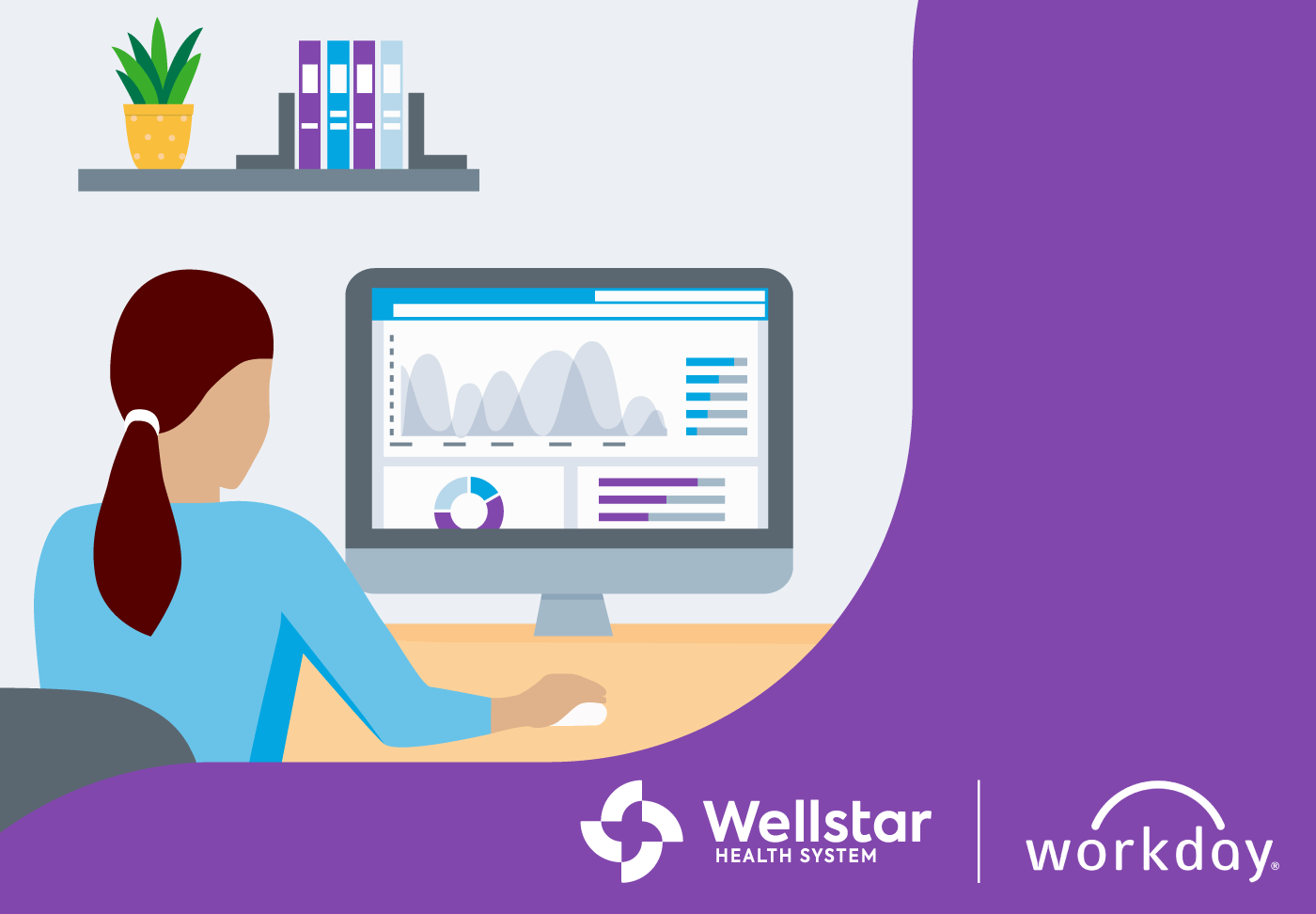
Wellstar Continues to Enhance Team Member Experience with Digital Tools
Wellstar Health System, one of the largest and most integrated health systems in Georgia, has selected Workday as their technology partner for finance, human resources and supply chain. Workday’s online platform will expand Wellstar’s ability to efficiently engage team members through improving how they gather information, distribute information throughout the system and improve existing operations. Wellstar’s continued investment in advanced tools is a part of its broader enterprise strategy that will power our transformation to a more digitally empowered workforce.
“As we look toward our health system's future, how we invest in our people is going to become more important than ever. With the integration of Workday, we will enable our staff to work more efficiently so that they can focus on what matters most – their patients,” says David A. Jones, executive vice president and chief human resources officer at Wellstar. “Our people are at the center of everything we do. We must care for them so that the best people choose to work and stay here.”
Nationally recognized for quality care and as a top employer of choice, Wellstar is committed to continuing to improve patient outcomes and the caregiver experience led them to evaluate new solutions for core administrative functions. Wellstar strives to make the workplace better for everyone who serves, and in doing so they continue to build upon the momentum of their digital transformation, helping to secure recent recognitions such as being honored with the Healthcare Information and Management Systems Society's (HIMSS) Stage 7 validation for its continuous efforts to improve patient outcomes through technological advancements. Stage 7 is the highest ranking an organization can receive, with less than 10% of hospitals nationwide recognized at this level. Wellstar is the only health system in Georgia to achieve this systemwide designation. This expanded capability will increase the communication and performance of team members as the organization continues its digital transformation across all facets of care. By designing the system with best practices and the caregiver in mind, Wellstar will continue to evolve to meet the changing needs of employees and patients.
“We are thrilled Wellstar has joined our growing Workday healthcare customer community. We look forward to helping Wellstar achieve their goals, learning from their extraordinary team and welcoming them into our customer forums as we partner together to help advance the future of healthcare," said Deana Kraft, Global Head, Healthcare at Workday.
With over 25,000 team members, 10 hospitals and more than 300 medical practice offices, Wellstar serves more than 1.7 million patients annually. Workday will provide Wellstar team members with an enhanced experience through greater accessibility and self-service capabilities ultimately reducing team member administration time so the team can focus on what matters – patient care.
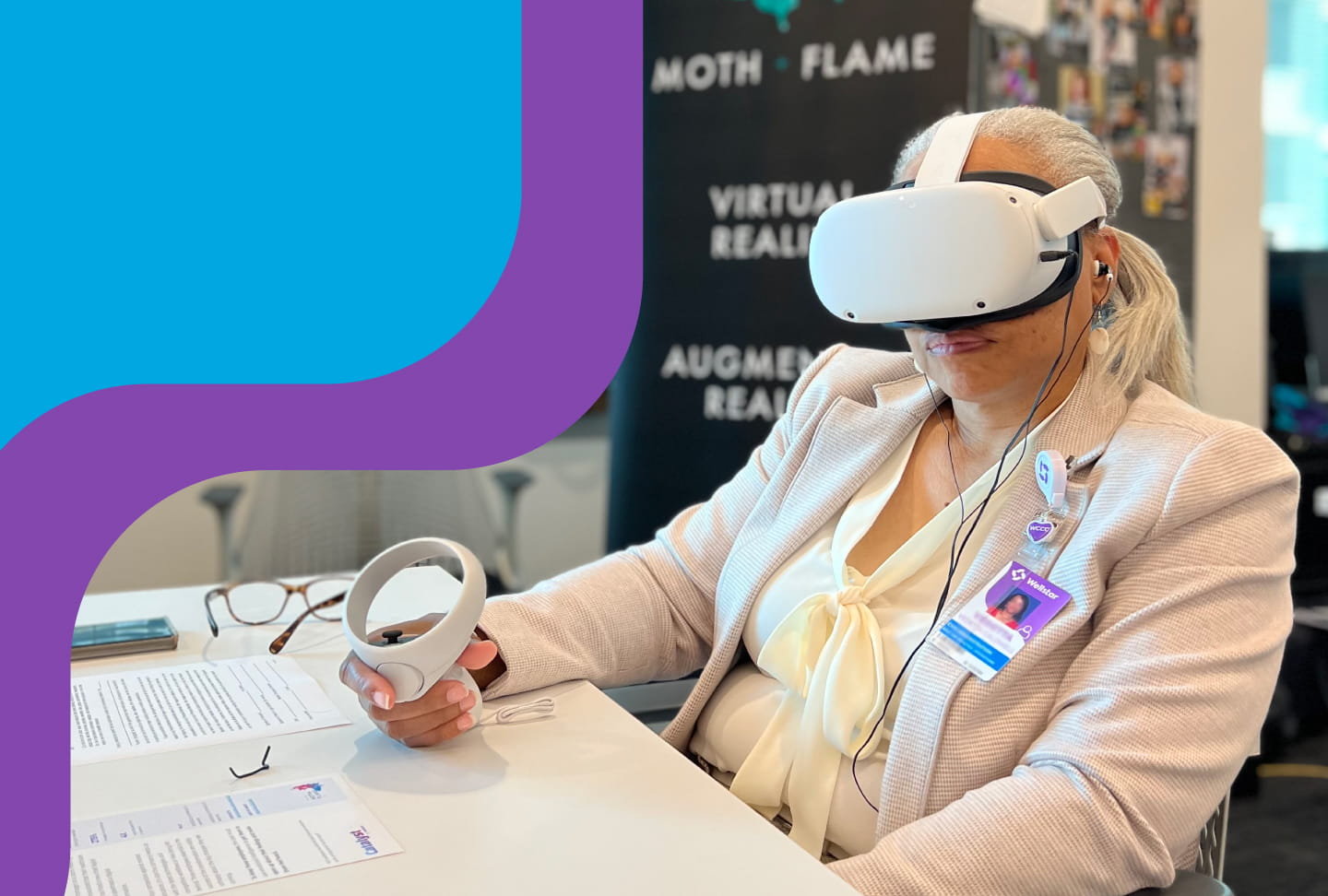
Wellstar Health System Partners with Moth+Flame to Test Virtual Reality Leadership Training
Wellstar Health System is shaping the future of leadership training and development through an initial training program with Moth+Flame, an award-winning virtual reality (VR) provider and technology studio.
On May 18-19, 2022, Catalyst by Wellstar, the health system's global digital health and innovation center, along with Wellstar Leadership Development and Moth+Flame hosted the health system's first-ever VR-based leadership development training, focused on emotional intelligence. Across the two days, more than 100 Wellstar leaders participated in an immersive, VR-powered learning experience to prepare them to lead their teams through ongoing change in the healthcare industry.
"Partnering with Moth+Flame is an opportunity for us to gain a deeper understanding of how virtual reality can impact the way we care for and engage with our patients, consumers and each other," said Hank Capps, M.D., FAAFP, Wellstar's executive vice president and chief information and digital officer. "Our team members are essential in creating curated healthcare experiences, and we hope this initial training will showcase how VR technology can help our team be even more effective, compassionate and culturally competent leaders."
Studies show virtual reality learners learn four times faster than traditional methods and are 275 percent more confident to act on their training. This initial training aims to validate these numbers with a select group of Wellstar's clinical and leadership teams to elevate the organization's leadership development programming. At the end of the two-day training, Wellstar measured an increase in levels of confidence in the material learned and 97 percent of participants reported they would recommend this training.
"We've seen that investment in high quality training can improve retention across all industries," said Kevin Cornish, Founder and CEO of Moth+Flame. "By training in a simulated life-like environment, our product offers employees immersive training that helps them feel more confident. The metrics in Wellstar's launch show a continued trend that virtual reality is proving to be one of the most effective tools for professional development."
"Virtual reality and other technologies can open the door for us to take our leadership and team development to the next level," said Laura Dannels, Wellstar's chief talent officer. "These outcomes show us what's possible when we think outside of the box and embrace solutions from across industries. Our goal is to support our leaders as they guide their teams in creating exceptional consumer and team member experiences."
Unlike most typical VR experiences, Moth+Flame leverages real people instead of virtual avatars, which helps provide a more profound, meaningful experience for the end users. During the session, Wellstar leaders used headsets and iPads to immerse themselves in scenarios designed to prepare them to guide their teams through moments of change. This video describes more about the training.
"This 30-minute VR training on emotional intelligence was more effective and comprehensible than two full days of in-person training," said Michael Collins, Wellstar team member and participant.
Catalyst by Wellstar and Moth+Flame were connected through Engage, a first-of-its-kind collaborative innovation and corporate venture platform. Engage brings together industry-leading corporations, enterprise startups and universities with the shared mission of elevating Atlanta and the Southeast as a leading technology and innovation hub. Wellstar is proud to be the only healthcare organization to partner with Engage as the health system works to create new solutions to transform health and well-being.

Wellstar North Fulton Medical Center to Open Comprehensive Cancer Center
Wellstar Health System, one of Georgia’s largest and most integrated healthcare systems, announced yesterday it will open the Wellstar North Fulton Cancer Center in early 2023 on the Wellstar North Fulton Medical Center campus in Roswell, Georgia. The Center will also serve as one of only two locations in metro Atlanta featuring state-of-the-art CyberKnife® technology for radiation therapy.
Located at 4500 Hospital Blvd., the Cancer Center will offer comprehensive cancer services, including nationally-recognized, expert and experienced physicians; medical oncology; radiation oncology; imaging and many medical specialties all in one convenient location. Oncology surgery will continue to be performed at Wellstar North Fulton Medical Center, on the same campus.
“Wellstar North Fulton has been delivering expert, compassionate cancer care and support to North Metro Atlanta residents for many years,” said Jon-Paul Croom, president of Wellstar North Fulton Medical Center. “Our expansion of cancer services enables patients to receive the most advanced and robust offering of treatments available to beat cancer – close to home.”
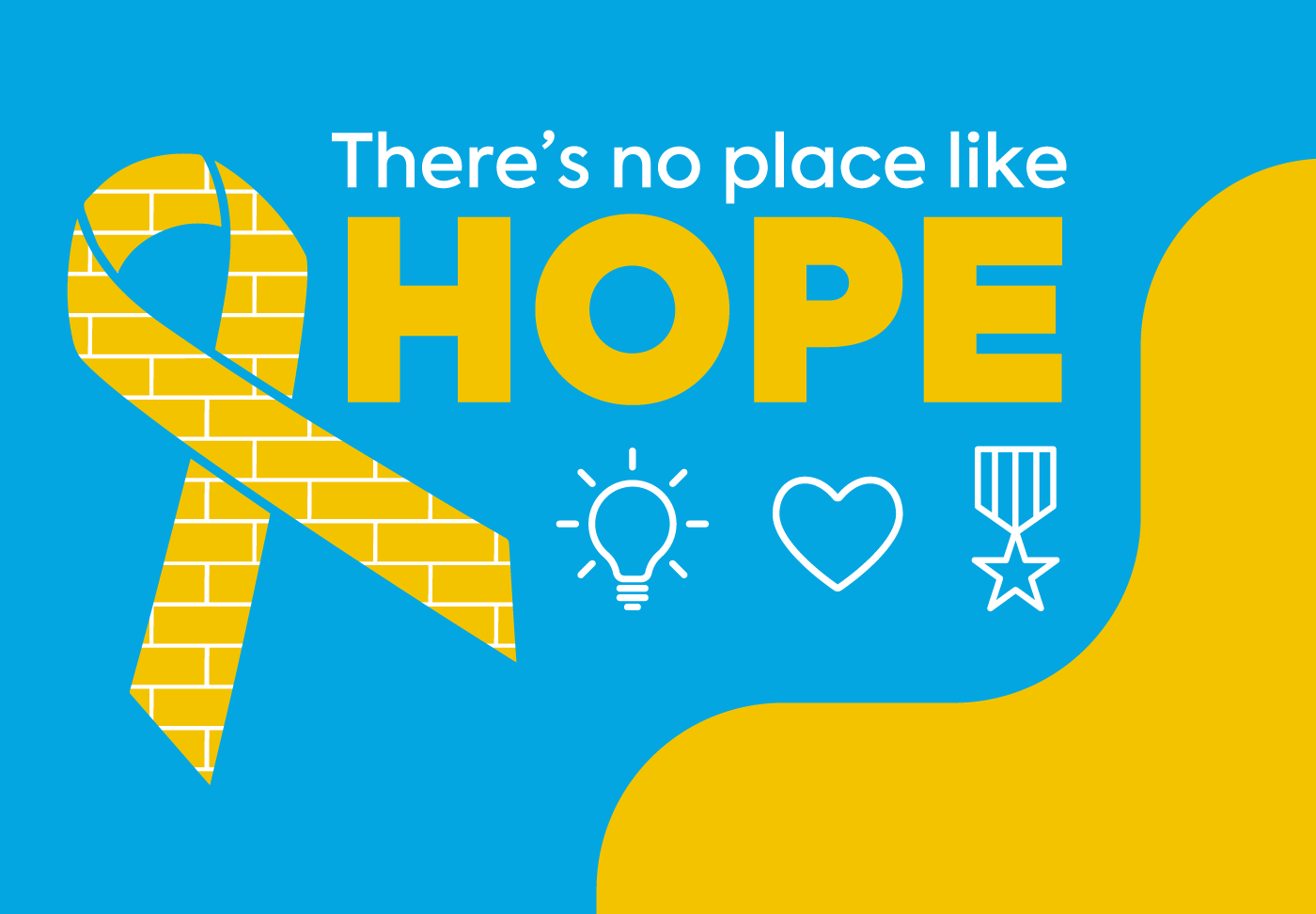
Wellstar Celebrates National Cancer Survivors Day, Offering Hope to the Community
Wellstar Health System supports people with cancer throughout their journeys, from early screening to diagnosis to treatment. However, our encouragement and dedication to delivering world-class, compassionate care doesn’t end in remission.
Across our system, Wellstar honors the bravery and strength of survivors every day, rejoicing in each milestone. This National Cancer Survivors Day, we are proud to pay tribute to people who have conquered cancer while offering hope to those still fighting.
This year’s Cancer Survivors Day theme, “There’s No Place Like Hope,” exemplifies Wellstar’s commitment to being a steadfast source of encouragement for cancer survivors and fighters across Georgia.
“Cancer Survivors Day is a true celebration of life, healing and hope for the future. The special moment allows us to pause, reflect and cherish victories over cancer. It also gives an outpouring of support to people currently diagnosed with the disease — that way, they know they are never fighting alone,” shared Nicole Centers, executive director of the oncology service line & nurse leader at Wellstar Health System.
Several Wellstar facilities will host Survivors Day events — and you can be a part of the celebration.
Learn more about how Wellstar is fighting cancer in Georgia.

Wellstar Supports Child Literacy Through Community Collaboration
The Wellstar Foundation has joined the Literacy and Justice for All initiative, a coalition of leading organizations such as the Joseph B. Whitehead Foundation, United Way, Atlanta Speech School Rollins Center and Marietta City Schools — all committed to ensuring youth have the literacy skills needed to succeed in life. The goal of the program is ensuring that every child can read by third grade and has a foundation for growth in literacy.
Georgia ranks 41 out of 50 states for literacy*. According to the COX Campus, literacy is strongly correlated to zip code, race and ethnicity. The disruption in education due to the COVID-19 pandemic has further heightened the need for childhood literacy programs to ensure no child is left behind.
“We are honored to join this effort in creating a connected ecosystem with schools and early childhood educators to enhance literacy and create a national model that can be expanded to serve and support our country’s youth,” said Julie Teer, senior vice president of Wellstar and president of the Wellstar Foundation.
Through a grant from the Joseph B. Whitehead Foundation, Wellstar Kennestone Hospital and its affiliated OB/GYN and pediatrics offices will implement the Talk With Me Baby program and be part of a literacy ecosystem dedicated to healthy brain development for children.
The team at Kennestone will collaborate with families of babies born there to teach about the importance of building language from an early age. Families will be prepared with the resources needed to improve their child’s “language nutrition.”
According to the Talk With Me Baby program, families can teach their child basic language skills by using loving words, eye contact and facial expressions, as well as repeating words and phrases. Families can partner with their child’s Wellstar care team to learn more about how to engage with their children, and Wellstar clinical and nursing teams will be trained as Talk With Me Baby coaches.
This support will continue at pediatric patient visits as Wellstar partners with families of children from birth through the age of five to promote literacy. Talking, reading, playing and singing together help even the youngest children establish these skills.
Through philanthropy and community partnerships, the Wellstar Foundation fuels innovation and action to address the vital needs of diverse communities in Georgia. Philanthropic contributions are transforming healthcare and improving access for all within four focus areas: health equity, behavioral health, innovation and workforce. The Foundation’s participation in the Literacy and Justice for All initiative combines innovative techniques for early childhood development with health equity endeavors to ensure all parents are equipped with the knowledge to raise thriving children and improve their quality of life.
Teer says, “As a not-for-profit health system, our passion for people extends beyond the walls of our care sites and into the diverse communities we serve. Through collaboration with our partners, we are creating pathways for success to improve the health and well-being of all Georgians with the aim of creating a healthier state for everyone now and in the future.”
To learn more or make a tax-deductible donation, visit wellstar.org/give. If you’re preparing for the arrival of a new family member, learn more about prenatal care at wellstar.org/womenshealth. To find a pediatrician to keep your child healthy, visit wellstar.org/kidcare.

Wellstar Foundation Gala Raises Nearly $1 Million for Behavioral Health Services
The Wellstar Foundation raised more than $900,000 toward combating the behavioral health crisis facing Georgia during its 23rd annual Starlight Grand Gala on April 23 at The St. Regis Atlanta.
Sponsored by ApolloMD and Bank of America, the black-tie event was emceed by Condace Pressley, Director of Community and Public Affairs at WSB-TV, and included a cameo video from Atlanta Braves shortstop Dansby Swanson, both of whom were born at Wellstar’s flagship hospital in Marietta, Georgia, Wellstar Kennestone Regional Medical Center.
Atlanta Hawks Hall of Famer Dominique Wilkins also energized the sold-out crowd by hopping on stage to add two tickets to the auction for NBA playoff game four between the Miami Heat and Atlanta Hawks. Wilkins, who partners with Wellstar as a health ambassador, also shared impassioned words on destigmatizing mental health and how it has impacted his own family.
This message was echoed by Wellstar physician leaders Dr. Ryan Breshears, Chief Behavioral Health Officer, and Dr. Avril Beckford, Chief Pediatric Officer, who have witnessed firsthand the concerning rates of substance use, anxiety, depression and suicide among adults and youth rapidly increase throughout the pandemic.
Julie Teer, Wellstar Foundation President, said, “The Gala was a monumental step in helping our Wellstar Foundation bolster collaboration among healthcare workers, community providers, and private and public sectors to enhance the well-being of every community we serve; this includes a pivotal philanthropic focus on behavioral health which is needed now more than ever. Caring for one-in-six Georgians, Wellstar is not only uniquely positioned but committed to transforming healthcare for everyone in Georgia through corporate and community partnership.”
Kim Gresh, Owner and President of S.A. White Oil Company, Inc., was celebrated as Philanthropist of the Year and David Bottoms, President at The Bottoms Group and Chair of the Wellstar Foundation Board of Trustees, was presented with the Exemplary Service Award.
As one of the largest and most integrated not-for-profit health systems in Georgia, Wellstar is the state’s largest safety net health system and was recently ranked among Modern Healthcare’s top 10 providers for charity care in the nation. 100% of Gala proceeds support Wellstar’s commitment to expand behavioral health services across its 11 hospitals and every community it serves. To make a tax-deductible donation or for information on future Foundation events and corporate partnerships, visit wellstar.org/foundation.
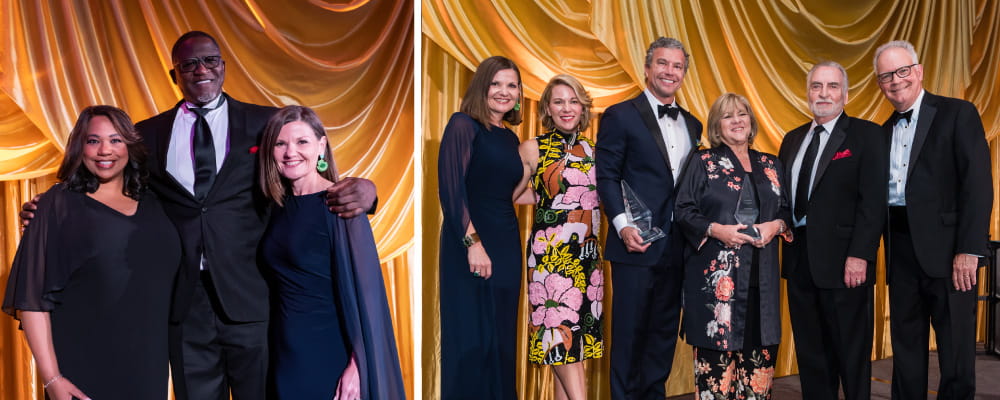
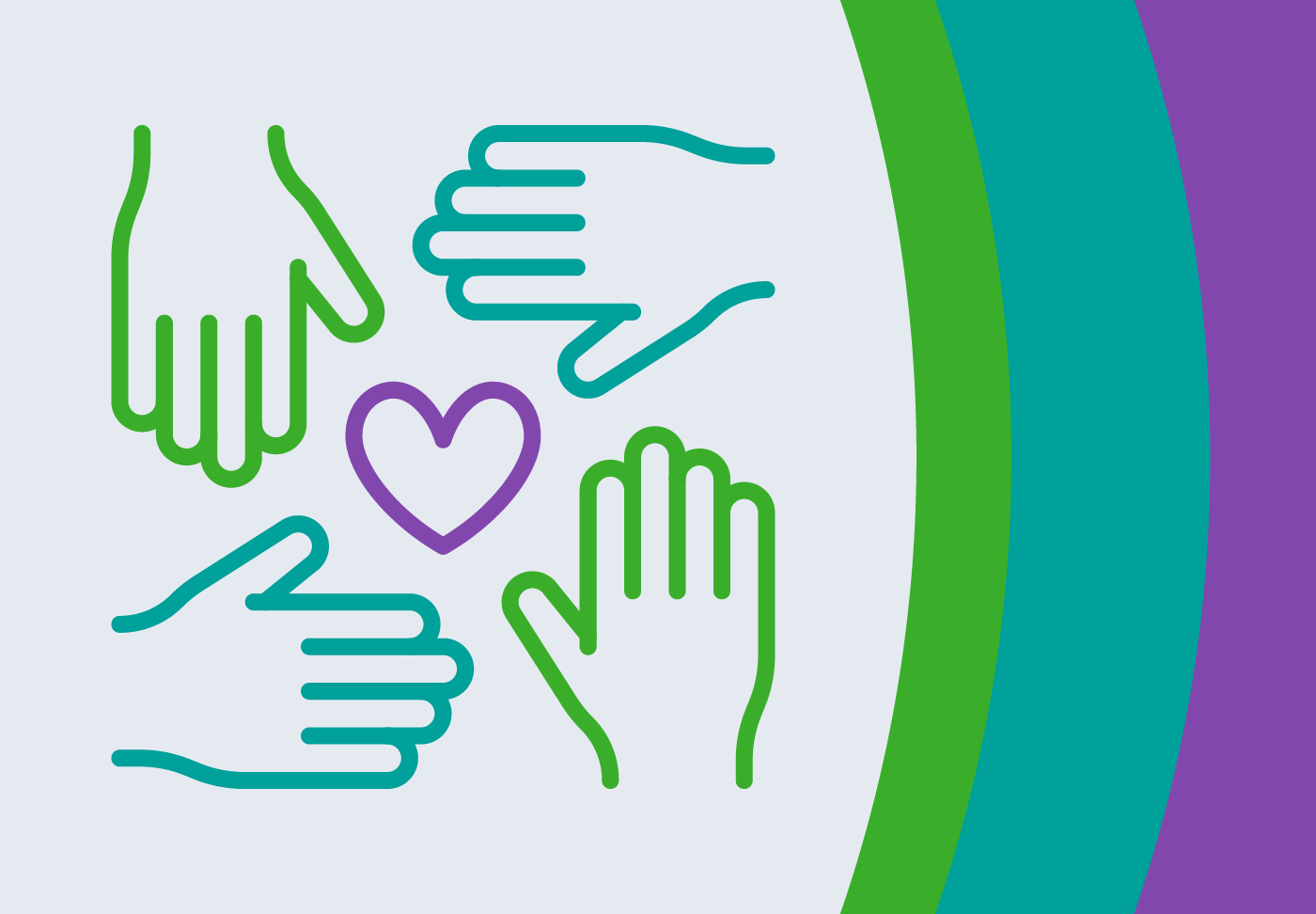
Georgians Uplift Rural Communities Through Tax Credit Program
Access to care close to home is something many take for granted until that care is no longer available. Georgia’s rural hospitals provide critical care to residents when and where they need it. However, industry shifts and economic challenges have forced many rural hospitals to close their doors, forcing millions of people to commute — some for hours — to receive the care they need.
Recognizing this strain on rural hospitals and the communities they serve, the Georgia legislature launched the Georgia Rural Hospital Tax Credit program. Through this program, Georgia taxpayers receive a 100% state income tax credit on contributions made to qualifying rural hospitals such as Wellstar Sylvan Grove Hospital.
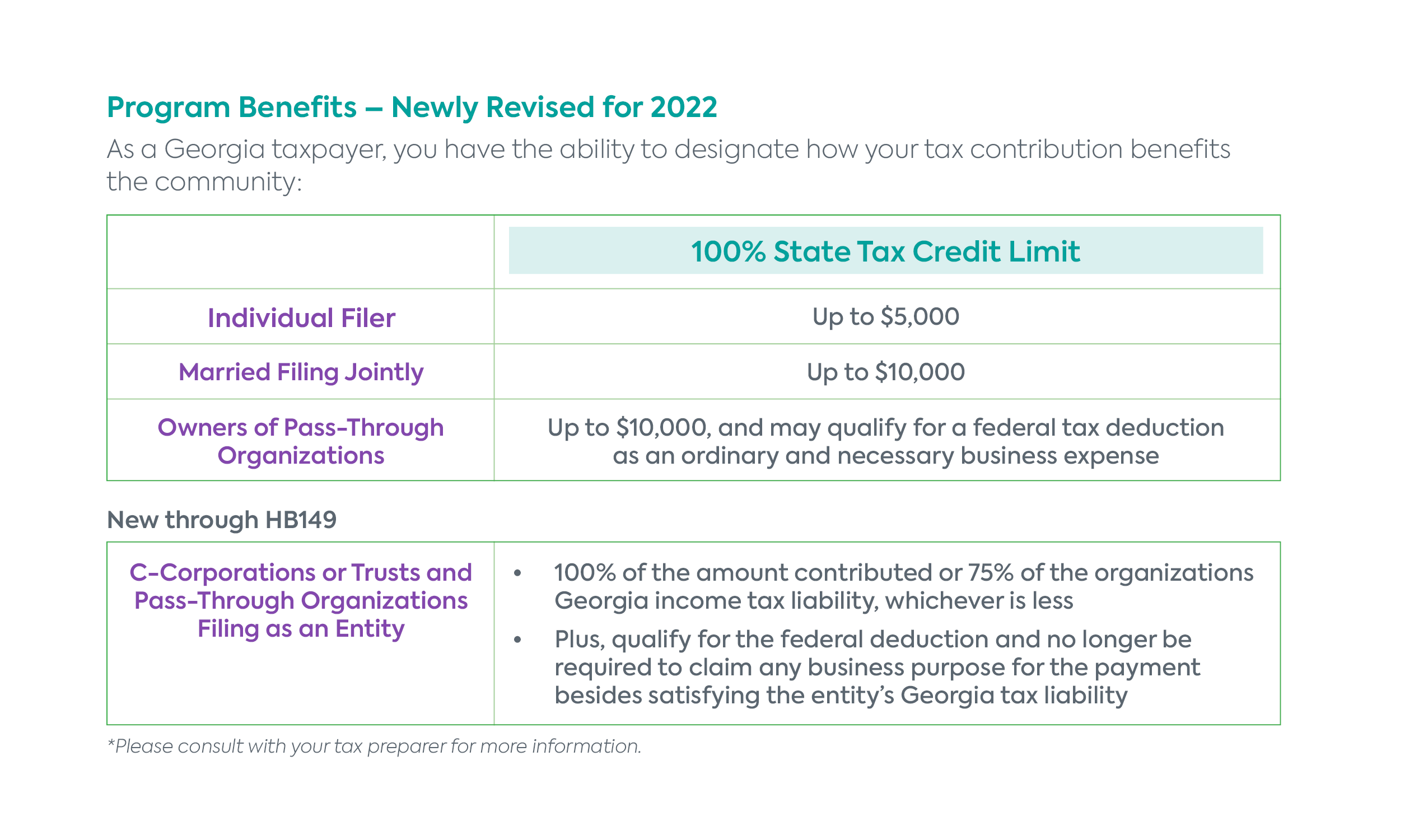
As in past years, contribution limits will be removed on July 1, 2022. Given recent enhancements and increased interest, the program is anticipated to reach its $60 million cap soon after the contribution limits are removed, making now a pivotal time for Sylvan Grove donors to pre-register for unlimited contributions. By registering your contribution early, you help ensure facilities like Wellstar Sylvan Grove Hospital receive the assistance they need.
Starting May 16, 2022 at 9 a.m., our administrative partner — Georgia HEART— will accept pre-registrations to be loaded on a first-come-first-serve basis once the limits are removed. The Wellstar Foundation is offering to assist Wellstar Sylvan Grove Hospital contributors with this pre-registration process. Contact the Foundation at [email protected] for assistance or click here to pre-register directly with Georgia HEART on May 16, 2022.
Since 2016, Wellstar Sylvan Grove Hospital has received a total of $10 million through this program. As facilitated through the Wellstar Foundation, every dollar has accelerated critical upgrades, including a full renovation of the hospital’s emergency department, radiology department expansion and leading-edge innovation, such as advanced CT scanning technology, that enhances physicians’ abilities to make better-informed medical decisions.
Advancements in treatments and technology benefit the residents of Butts County — patients like Mary “Lee” Nelson, a retired Butts County teacher who turned to Wellstar Sylvan Grove Hospital’s outpatient rehabilitation center for post-surgical physical therapy. The outpatient center was recently renovated with state-of-the-art equipment made possible through tax credit program contributions.
The former elementary grade teacher spends her retirement days traveling with her husband Bill, tending to her flower gardens and caring for her chickens. With such an active lifestyle, when Lee learned that she needed a knee replacement in 2021, she knew her local hospital would be able to provide the high-quality, compassionate care needed to get her back on her feet safely and quickly. Now, a few months after completing her physical therapy, Lee shares that she “feels normal again” and able to enjoy all the things that once brought her life so much joy.
Through corporate and community partnership, the Wellstar Foundation is fueling innovation and action to address the vital needs of diverse communities in Georgia, including urban, suburban and rural communities. Wellstar is committed to delivering world-class healthcare to everyone close to home. Philanthropic support of the Wellstar Foundation is advancing innovation and expanding resources to create a healthier Georgia for all. To learn more, visit wellstar.org/foundation or contact the Wellstar Foundation at (770) 956-GIVE (4483).
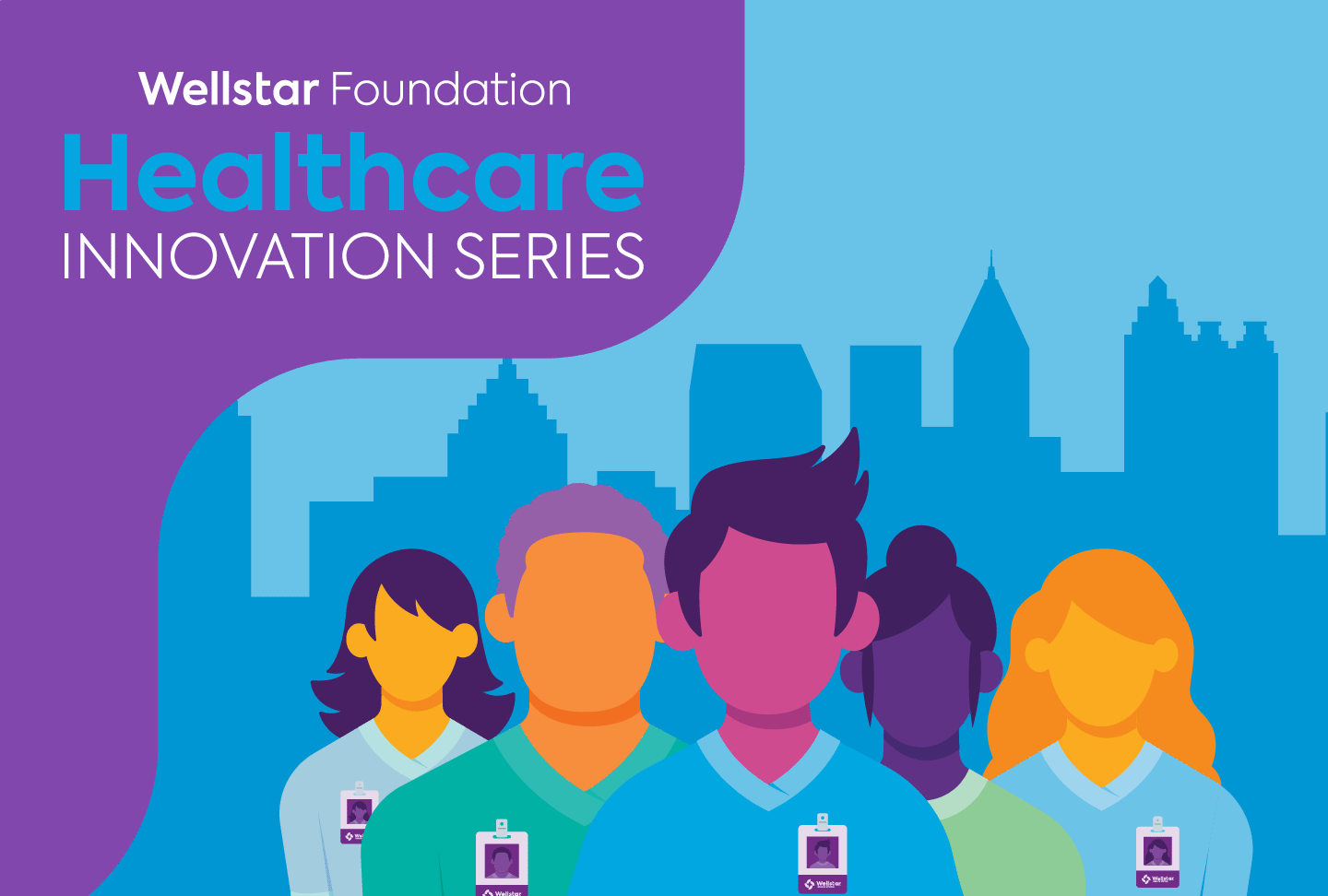
Wellstar Foundation Healthcare Innovation Series Event Addresses Workforce Development Solutions
As technology and healthcare are both rapidly evolving, Wellstar is leading the way in forging partnerships and fostering collaboration to find creative solutions.
The Wellstar Foundation’s Healthcare Innovation Series brings together thought leaders, community partners and industry experts to discuss the future of healthcare and how to better serve Georgians. The most recent virtual event focused on workforce development, a long-standing challenge for many industries, including healthcare.
The event, titled “Building a Healthy Healthcare Workforce,” was hosted by Wellstar President and CEO Candice Saunders, Julie Teer, senior vice president of Wellstar and president of the Wellstar Foundation, and David Jones, Wellstar’s executive vice president and chief human resources officer.
By the year 2030, Georgia could face a shortage of 50,000 nurses. The demand for providers is increasing faster than the pipeline of new healthcare professionals, and the COVID-19 pandemic has introduced new complications and challenges. To ensure that future generations of Georgians have access to high-quality care from expert providers, Wellstar and its community partners are dedicated to making progress in workforce development.
“Confronting these challenges and creating equitable access to care requires a healthy, strong and long-term pipeline of healthcare professionals,” Teer said during the event. “Bolstering our pipeline is critical for the economic prosperity of our local economies and to addressing deep-seated inequities in health.”
Keynote panelists and breakout session leaders included:
Attendees heard about workforce development challenges and how Wellstar and its partners are working to address them — through solutions like engaging youth in career exploration opportunities, forging partnerships with postsecondary academic institutions, and creating a positive, inclusive environment for team members.
Learn more about the Wellstar Foundation and how its strategic initiatives, which include workforce development, can transform healthcare.
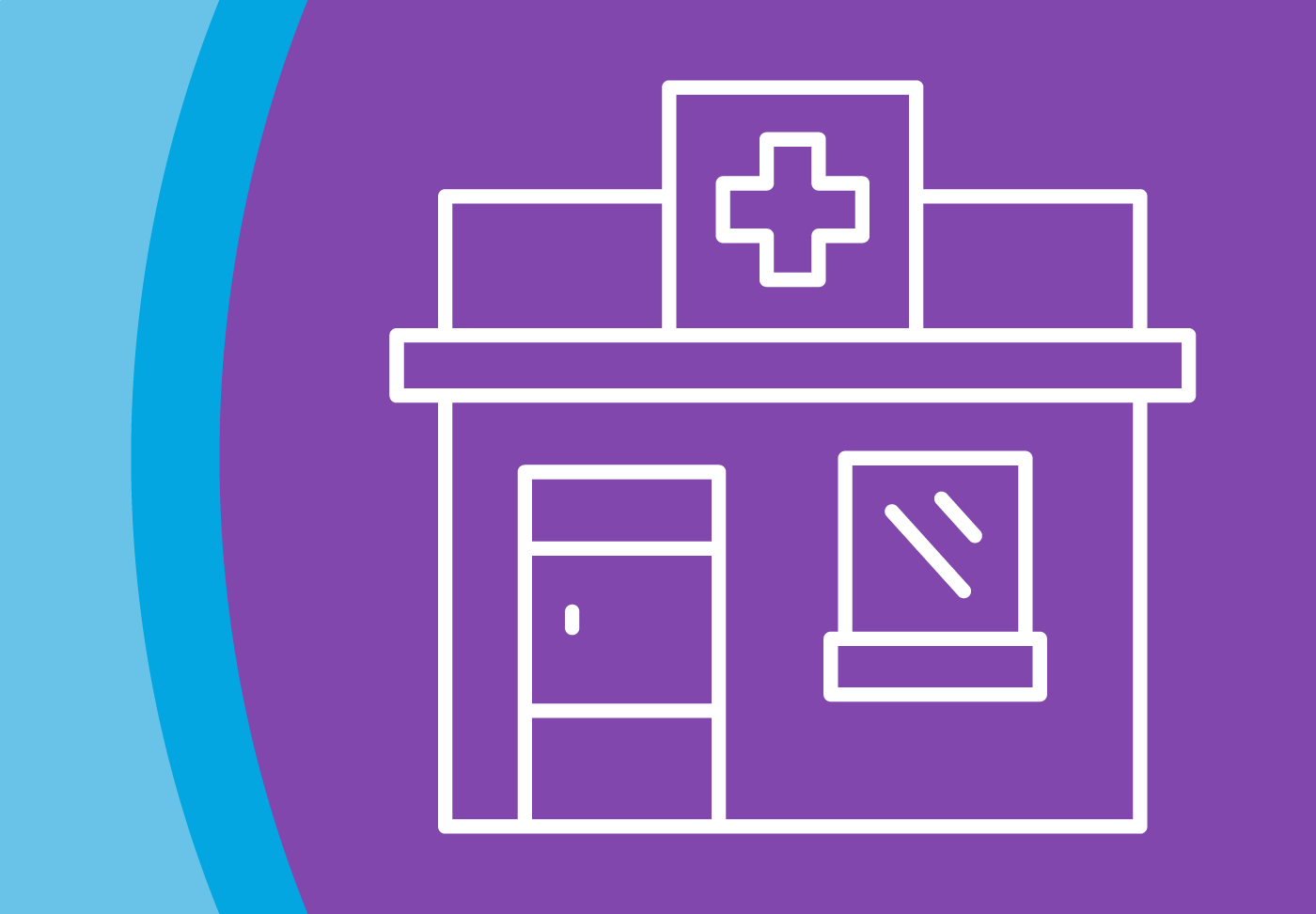
Wellstar GME Internal Medicine Clinic Opens in Griffin
As Wellstar continues to invest in providing quality health care in our communities, primary care patients can now receive care at the new Wellstar GME Internal Medicine Clinic – which also serves as a residency clinic for physicians in Training. Located at 747 South 8th Street, Suite B in Griffin, the clinic, along with the Griffin-Spalding Chamber of Commerce, is hosting a ribbon-cutting event on April 26 at 12 pm.
The GME Internal Medicine Clinic is dedicated to delivering high-quality, evidence-based care to people in the community. “We are your partners in providing whole-person care offering prevention strategies to help you achieve and maintain a healthy lifestyle,” says Dr. Ashok Kumar Kanugula. “This may include routine checkups, managing chronic diseases, immunizations (influenza, tetanus) and age-appropriate screenings (bone density, blood panels), as well as treatment for acute issues, such as abdominal pain and respiratory infections. We can also provide information about nutrition, exercise and mental health.”
The clinic accepts a range of payment options and has established relationships with a variety of health insurance carriers. And to better serve the community, the clinic delivers services to those in need through Wellstar’s Financial Assistance Program.
In addition to providing care for patients, the clinic serves as a graduate medical education (GME) facility, training resident physicians. Residents will begin training at the clinic in July.

Wellstar Health System Honored With Coveted HIMSS Stage 7 Designation
Wellstar Health System is proud to announce it's been honored with the Healthcare Information and Management Systems Society's (HIMSS) Stage 7 validation for its continuous efforts to improve patient outcomes via technological advancements. Stage 7 is the highest ranking an organization can receive. With less than 10% of hospitals nationwide recognized at this level, Wellstar is the only health system in Georgia to achieve this systemwide designation, covering all of its 10 hospitals and nearly quadrupling the number of facilities with this designation across the state. Wellstar's five health parks and more than 300 outpatient facilities also received this distinction.
Wellstar was recognized as Stage 7 in both the Electronic Medical Record Adoption Model (EMRAM) and the Outpatient Electronic Medical Record Adoption Model (O-EMRAM) categories. HIMSS, the world's leading non-profit advocacy and accrediting organization in the healthcare IT industry, conducted a comprehensive review of Wellstar's technology advancements in information governance and compliance, IT security tools and controls, and identity access and management. National rankings are evaluated based on healthcare technology adoption within the organization on a scale from zero-to-seven, with zero being completely paper-based and seven being a fully electronic implementation across all health records and associated tools within the organization.
"Receiving this Stage 7 designation from HIMSS is validation of our fierce commitment to digital technology that benefits our patients. We are honored to be recognized for our dedication to implementing technology solutions that provide better outcomes for patients and improve overall effectiveness in quality of care," said Sandra Lucius, RN, MSN, vice president, Head of Care Platforms, Wellstar Health System. "As technology continues to advance, innovation to solve problems and seize opportunities will evolve and impact how healthcare is delivered and used. Wellstar will continue to transform healthcare through mission-driven technology innovation."
One example of technology innovation that contributed to Wellstar's receipt of the HIMSS validation is its clinical quality improvement ERAS program (enhanced recovery after surgery) proven to help post-surgery colorectal cancer patients. The combined efforts of Wellstar's care teams and patients as part of the ERAS program proved a significant 24% reduction in 30-day readmissions, a 61% reduction in pain medications used, and a patient satisfaction rate of 99%.
The organization will be recognized at the 2023 HIMSS Annual Conference & Exhibition April 17-21, 2023, at the McCormick Place in Chicago, Illinois.

Redefining Healing Experiences with Sound at South by Southwest
Each year a diverse group of artists, entrepreneurs and technologists join policy and business thought leaders from around the globe in Austin, Texas, for the South by Southwest conference and festival. This broad intersection of perspectives and personalities has proven to be fertile ground for big ideas to take root and thrive.
It is within this context that Wellstar Health System participated in the Health & Med Tech track to share how using immersive sound technology in a series of wellness rooms is helping frontline healthcare workers reduce feelings of stress and anxiety. This initiative is the result of a partnership between award-winning immersive audio company and software service Spatial, and Catalyst by Wellstar, Wellstar’s global digital health and innovation center.
During the panel, "Redefining Healing Experiences with Sound," Dr. Hank Capps, executive vice president and chief information and digital officer at Wellstar, shared how impactful the wellness rooms have been to frontline healthcare team members.
"The idea of bringing immersive sound into the wellness rooms and inviting team members who were in the midst of stress, in the midst of a battle, was one of the ways we believed we could make a difference. We went live with the wellness rooms earlier this year to unexpected success and utilization, beyond what we could have pictured," said Dr. Capps.
To help make this impact, the team was challenged to find ways to foster a calming environment without the use of screens, such as TVs. During a 12-hour shift of the near-constant monitoring of vital signs and patient records on computers and mobile devices, screens were something the team was looking to subtract, not add. This insight led to the innovative use of immersive sound technology invisibly imbedded within the walls of the wellness rooms. Team members can choose from a variety of soundscapes and transport themselves virtually to a calm beach, a rainforest with birds gently chirping, or to the bottom of the ocean.
The evidence-based use of sound/music to reduce stress and anxiety is well-documented but patients and consumers are largely unaware of it. In fact, a recent nationwide survey revealed that while only 28% of respondents were aware that sound/music is being used in targeted ways to improve physical and mental well-being, 73% were open to incorporating it as a therapy.
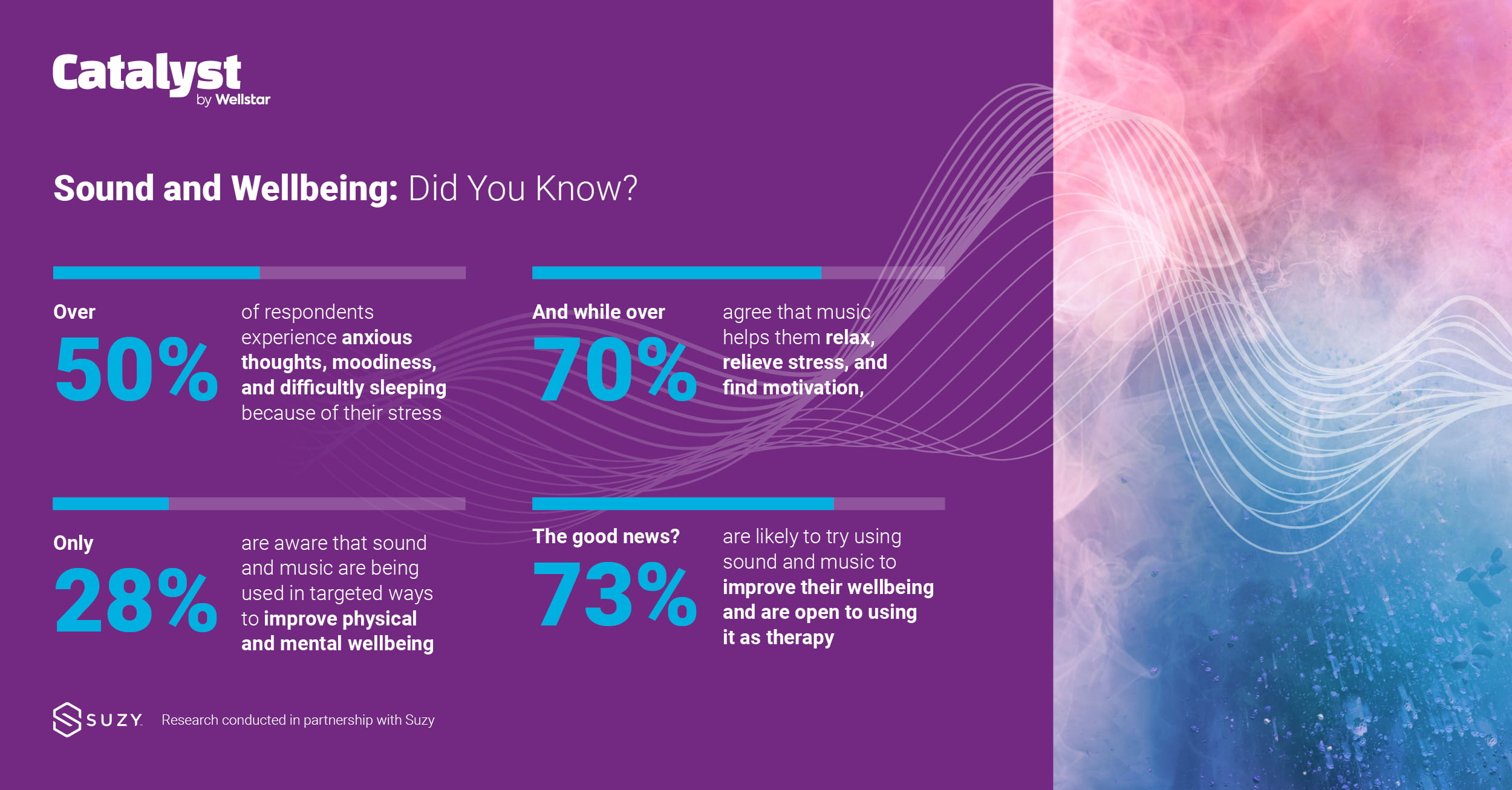
Increasing awareness could help this technology achieve wider adoption. With this pilot project, Wellstar became the first health system to incorporate immersive audio technology with Spatial in a clinical setting.
The response from team members has exceeded expectations.
The four wellness rooms equipped with Spatial technology have been used thousands of times in just over one month of operation. Initial data and anecdotal evidence suggest this component of the wellness rooms is particularly useful in helping Wellstar team members reduce feelings of stress and anxiety. As more is learned from this pilot, the team hopes to expand the use of this technology in patient-facing settings such as labor and delivery rooms or emergency department waiting areas.
Catalyst by Wellstar defines leading-edge, transformative solutions that enhance the health and well-being of people and communities with world-class results and impact. It is particularly meaningful that one of Catalyst’s first pilot projects is enhancing the well-being of people who have given so much of themselves in the service of their communities throughout the pandemic—Wellstar team members.

Wellstar Opens Wellness Rooms Across Facilities Benefitting Frontline Team Members
Frontline team members now have a place to reflect, refuel and recharge at work, funded by the Wellstar Foundation, with innovative technology provided by Catalyst by Wellstar and strategic design implemented by our Employee Wellness group.
Tucked away at nearly every Wellstar facility is a haven for team members to unwind from a challenging shift or stressful day. These Wellness Rooms, which opened in 2022, were designed to transport team members beyond the walls of their facility.
In the Wellness Rooms, lights are dimmed, soundscapes play lightly in the background and the air is filled with fresh, calming scents. Team members flow in and out of the room at their leisure with a tap of their badge, grabbing a healthy snack, a spritz of an essential oil, or a moment of stillness while enjoying the massage chair.
The rooms vary by size at each location, but every room is equipped with tools to provide a serene and safe environment for team members who find themselves in search of calm amidst what can sometimes feel like chaos.
Since opening, thousands of team members have benefited from the Wellness Room, utilizing the space as an outlet for stress management and as a resource for workplace self-care.
Brianna Arrington, an emergency department technician at Wellstar West Georgia Medical Center, recently found herself needing a safe place to process the tragic loss of a pediatric patient. Brianna was led to a Wellness Room by her leader and encouraged to take a moment to breathe.
“This quiet and relaxing space gave me the time to decompress from the anxiety I was feeling and helped me to calm down away from the situation. The Wellness Room was a tremendous help.” Brianna was able to return to her shift and continue serving patients the rest of the day.
Studies show that physically moving away from a hectic environment, even for just a few minutes, helps to regulate our emotional wellness. Thanks to Catalyst by Wellstar and through a partnership with Spatial technologies, some Wellness Rooms are piloting immersive sound technology which is proven to reduce feelings of stress and anxiety. Wellstar is the first health system to use such immersive AI-driven audio technology in a clinical setting. Spatial technology may even be utilized in patient-facing settings in the future, based on positive feedback from team members.
The Wellness Rooms were introduced as part of MyCare Rewards, an Employee Wellness benefit geared toward helping team members prioritize their mental, physical and emotional health. In total, the 16 Wellstar Wellness Rooms across our hospitals and health parks were a $1.5 million investment in the well-being of our team members. Thank you to the Wellstar Foundation for helping to make these rooms possible. The Wellness Rooms will continue to be a resource in times of need and moments of stress, providing a place of solitude to our team members who serve Wellstar patients and communities.
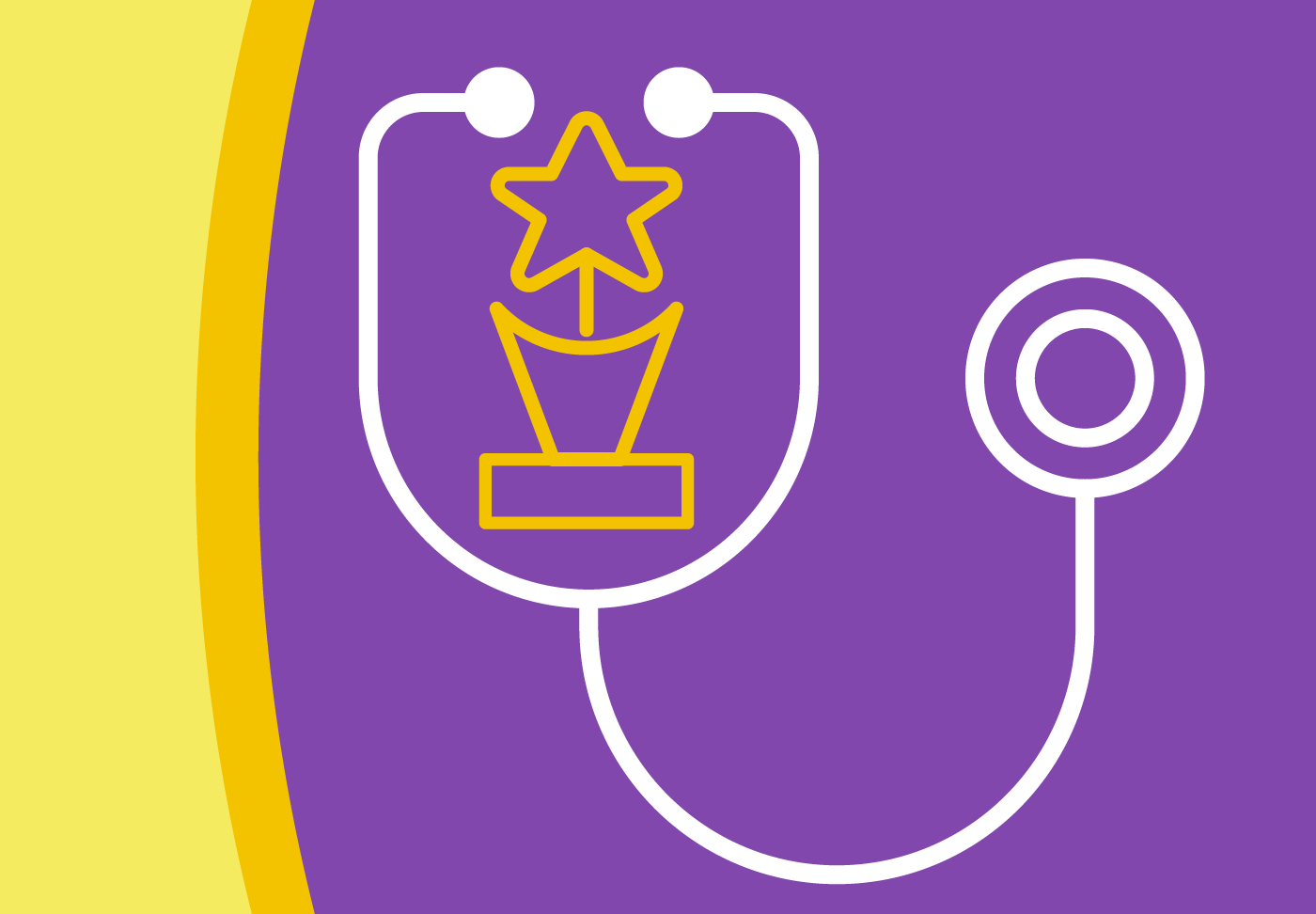
Preeminent Wellstar Leaders Join Inaugural Class of Georgia Nursing Hall of Fame™
Wellstar Health System is proud to announce that two extraordinary women have been inducted into the Georgia Nursing Hall of Fame™, produced by Georgia Nurses Foundation (GNF). Candice L. Saunders, FACHE, president and CEO of Wellstar, and Joyce McMurrain, MSN, RN, a nurse manager and coordinator of the Student Nurse Extern Program at Wellstar Kennestone Hospital, were honored along with eight additional nurses at a recent inaugural inductee ceremony. The 10 inductees are exemplary registered nurses who made or are making improvements to advance the nursing profession locally, nationally, and internationally.
Wellstar Kennestone Hospital’s longest-serving team member, McMurrain, has been a nurse for nearly 60 years, with 56 years—and counting—served at Kennestone Hospital. For many years McMurrain was the nursing director/executive nursing director for Women's Services at Kennestone, and she also served in that position systemwide. She later transitioned to director of special projects, and is now cultivating the next generation of nurses through her role as nurse manager and student nurse extern program coordinator. She uses her vast experience to guide new nurses and helps nearly 100 nursing students each year gain invaluable hands-on experience in preparation for nursing careers.
“Joyce has a natural ability to develop others and is committed to equipping students with the education and opportunities to excel in patient care and gain confidence in their job. She has been indispensable throughout Wellstar’s extraordinary growth and change and has contributed to its evolution to become one of Georgia’s largest and most integrated health systems,” says Saunders.
Saunders has served as a trustee of the American Hospital Association, chair of the American Hospital Association’s Regional Policy board for Region 4, and past chair of the Georgia Hospital Association. She was named one of Modern Healthcare’s Top 25 Women Leaders and among Georgia Trend Magazine’s 100 Most influential Georgians. A strong patient advocate who began her healthcare journey as a critical care nurse decades ago, Saunders has become a nationally recognized leader in improving community access to vital healthcare needs and enhancing the patient care experience. Saunders joined Wellstar in May 2007 as president of Wellstar Kennestone Hospital. She assumed the role of president and CEO in 2015, becoming the health system's first female CEO.
“Candice’s impact on the nursing profession is evident through her continued commitment to attract and retain top nursing talent. Candice began her career as a critical care nurse, and she remains passionate about investing in programs and supporting the growth and development of nurses at every stage in their career to ensure our patients and communities have access to high quality, compassionate care for generations to come,” says Dr. O. Scott Swayze, Chair, Wellstar Health System Board of Trustees.


Wellstar Health System Partnership Provides Maternal Health Resources, Supports New Mothers
Wellstar Health System has partnered with Healthy Mothers, Healthy Babies Coalition of Georgia (HMHBGA) to provide maternal health resources in support of new mothers and birth givers in Georgia. Through Wellstar Community Health and the Wellstar Center for Health Equity, the partnership supports pregnant and postpartum birth givers and encourages positive maternal health and wellness by providing vital resources and education.
According to the 2019 HMHBGA State of the State Report, 58 percent of pregnancy-related deaths in Georgia were preventable. Wellstar’s participation expands HMHBGA’s Pickles & Ice Cream perinatal care package project created to help address pregnancy mortality. Started in 2021, the Pickles & Ice Cream program through Wellstar plans to reach 150 birth givers a month.
The free care packages will include:
Alongside these vital tools, educational information will include topics such as postpartum care planning and safe sleeping. As one of the key partners in this initiative, Wellstar will also distribute COVID-19 safety kits, including cloth masks, hand sanitizers, and informational materials to new mothers.
HMHBGA has impacted the health and well-being of women, children, and families for the past 48 years by supporting the community through direct services, advocacy, and community education.
The Wellstar Center for Health Equity is an extension of Wellstar’s long history of community engagement and allyship to provide people-centric care, and was formed to convene, activate, and support community partners and advocates to address, impact, and drive lasting change at a grassroots level.
Pregnant or postpartum moms, birth givers and organizations serving pregnant women may request a care package. For more information, please visit this link.
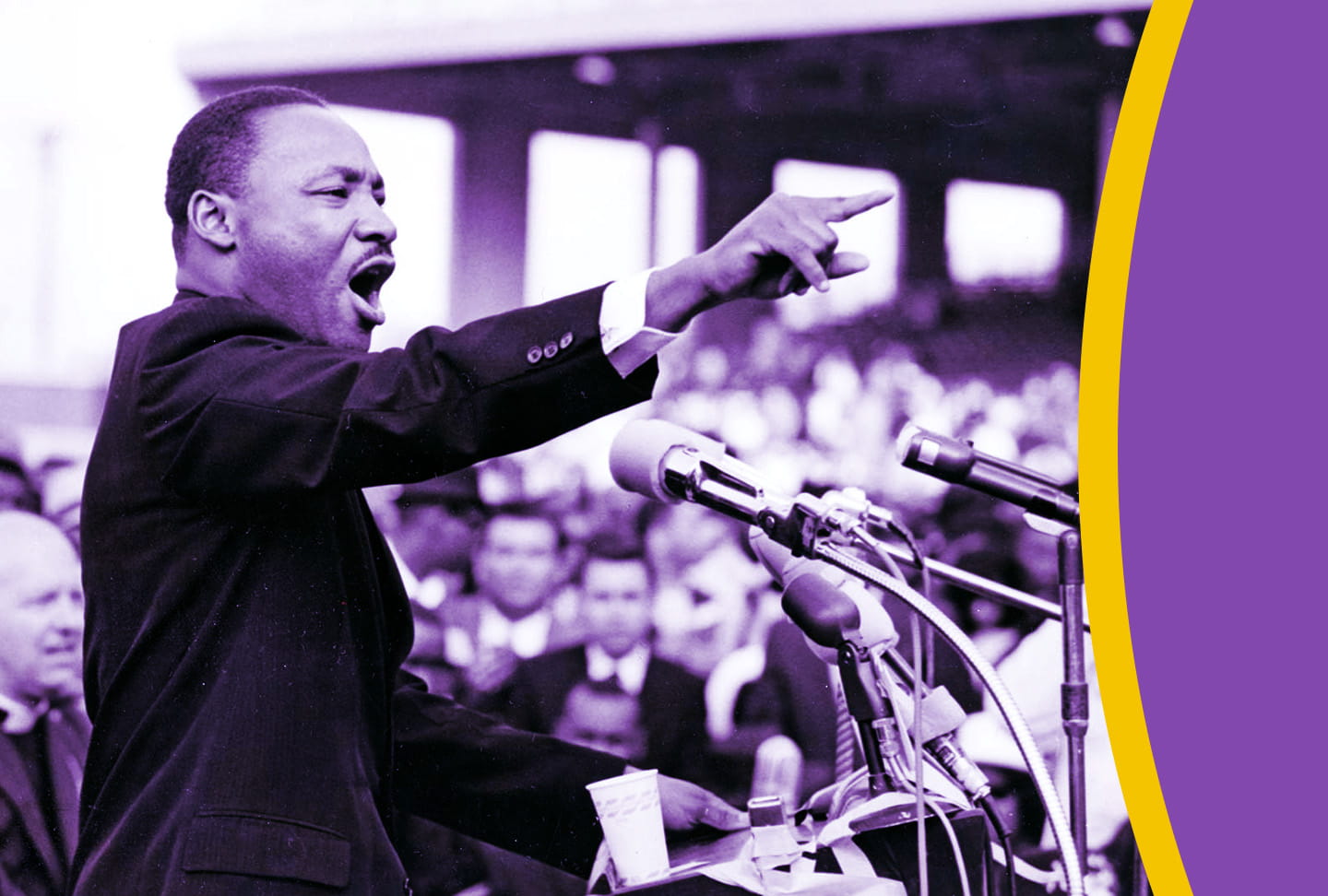
Wellstar Honors the Life and Legacy of Dr. Martin Luther King Jr.
Wellstar Health System honored the life, legacy, and many contributions of Dr. Martin Luther King Jr. with a tribute and virtual ceremony on Jan. 13. The event included team members, faith leaders, and powerful voices from the diversity, equity, and inclusion community with uplifting and moving blessings, song, dance, images and messages.
Wellstar physicians, caregivers, and team members are connected by the desire and commitment to serve with compassion, pursue excellence and honor every voice as the system strives to meet the vital needs of patients and communities.
During the virtual event, Wellstar president and CEO Candice L. Saunders reflected on the organization’s deep commitment to caring for people and Dr. King’s view of the world that all life is interrelated.
The ceremony’s keynote speaker, Dr. Johnetta Betsch Cole, chair and seventh president of the National Council of Negro Women and former president of Spelman College, an historically black college, emphasized the theme of the event from Dr. King’s “Letter from a Birmingham Jail,” wherein he stated: “Injustice anywhere is a threat to justice everywhere.” She talked about the importance of being an ally and advocate for any struggles against injustice, and encouraged all to build a better world where we can stand together. Dr. Cole was introduced by Le Joyce Naylor, Wellstar’s senior vice president and chief diversity, equity & inclusion officer.
In addition to inspiring messages from Dr. Cole and Saunders, the event included prayers and blessings from David A. Spencer Jr., manager of Wellstar Spiritual Health; Cavit Agu, chaplain for Wellstar Health System; Rabbi Judith Beiner of Jewish Family and Career Services of Atlanta; and Patricia Symonette, director of Wellstar Spiritual Health, who sang “Show Me How to Love,” by Babbie Mason. The Fellowship Bible Baptist Church Worship and Arts Ministry sang and danced to “Lift Every Voice and Sing,” by J. Rosamond Johnson and James Weldon Johnson. Dr. Scott Swayze, chair of the Wellstar Board of Trustees, closed the event with a message about Wellstar’s commitment to compassion, excellence, and inclusion.
Wellstar is honored to celebrate the life and legacy of American Civil Rights Movement leader and activist Dr. Martin Luther King Jr. and acknowledge this important federal holiday and National Day of Service in recognition of his enduring impact and example. Wellstar has added Martin Luther King Jr. Day to the paid holiday calendar starting Jan. 17, 2022.
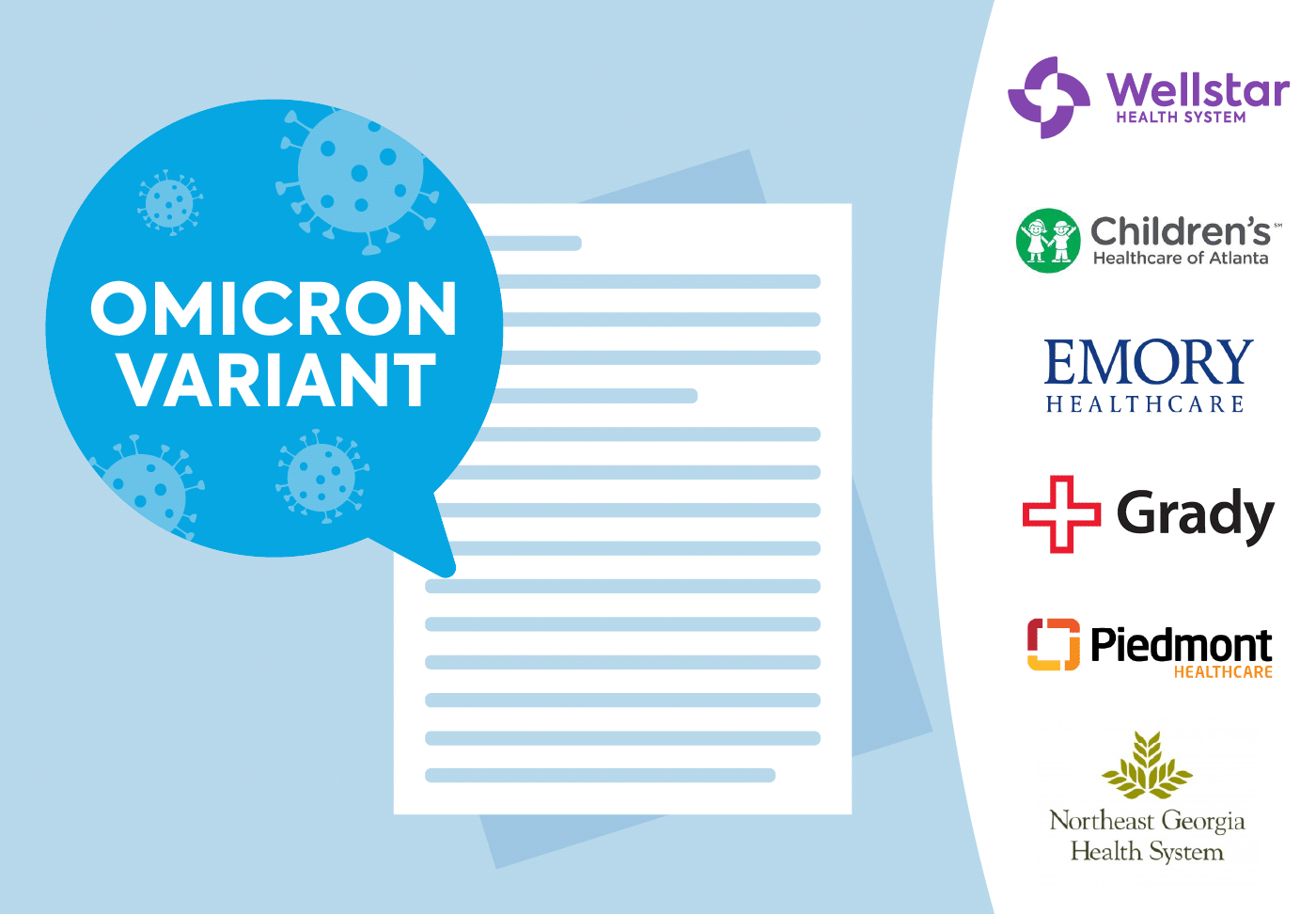
Metro Atlanta Health Care Systems Address Public on COVID-19
Six major health systems that serve metro Atlanta and the state of Georgia have unified to address the public regarding the latest COVID-19 impacts and the result of the rapid spread of the Delta and Omicron variants.
Children’s Healthcare of Atlanta, Emory Healthcare, Grady Health System, Northeast Georgia Health System, Piedmont Healthcare and Wellstar Health System are once again experiencing a staggering surge in adults and children with COVID-19 symptoms and diagnoses. Collectively, the healthcare systems have experienced 100–200% increases in COVID-19 hospitalizations in the past eight days and the vast majority of inpatients are unvaccinated. This comes at a time when the health systems are preparing for an influx of patients with seasonal flu.
Emergency room activity has also increased significantly for both emergent and non-emergent situations, including those seeking COVID-19 testing without the need for further care or treatment. To keep emergency rooms available to individuals who have the most critical health needs, individuals should obtain care at the most appropriate medical facility for their condition and seek COVID-19 testing at primary care locations, public health and mass testing sites or use at-home testing kits.
While hospitals in metro Atlanta and throughout Georgia have best practices in place to actively manage capacity and provide high-quality patient care, we need the public’s help and support. Doing the following will help us all navigate this significant wave, minimize serious illness and hospitalizations from COVID, and better manage emergency room diversions and wait times at our facilities:
The health and safety of our patients and communities remains our top priority. The six metro Atlanta health care systems will continue to work together to educate and inform the public regarding COVID-19 and address the most critical health needs impacting our area. We also would like to express our appreciation to the Governor for his support of our workforce and the newly announced funding to address staffing shortages at hospitals across the state due to COVID-19, and to the Georgia Department of Public Health for continued outreach to the public regarding issues affecting our patients, care team members and community.
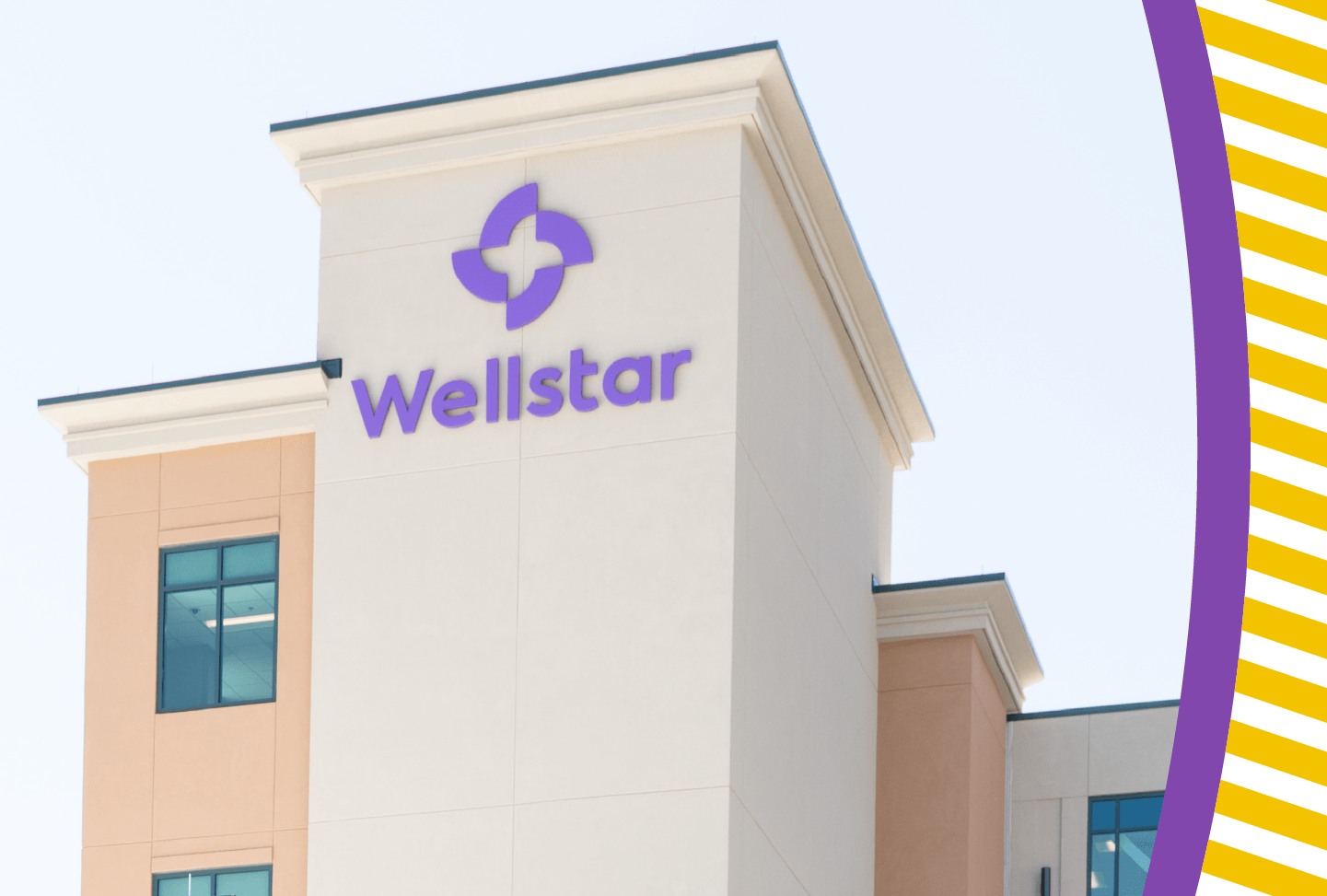
Wellstar Kennestone Hospital Begins Planned Construction and Expansion Project
Wellstar Health System, one of the largest and most integrated healthcare systems in Georgia, is announcing that the planned construction and expansion project to further enhance patient services and facilities will begin at Wellstar Kennestone Hospital on December 20, 2021. During construction, the Church Street entrance to Wellstar Kennestone Hospital will be closed.
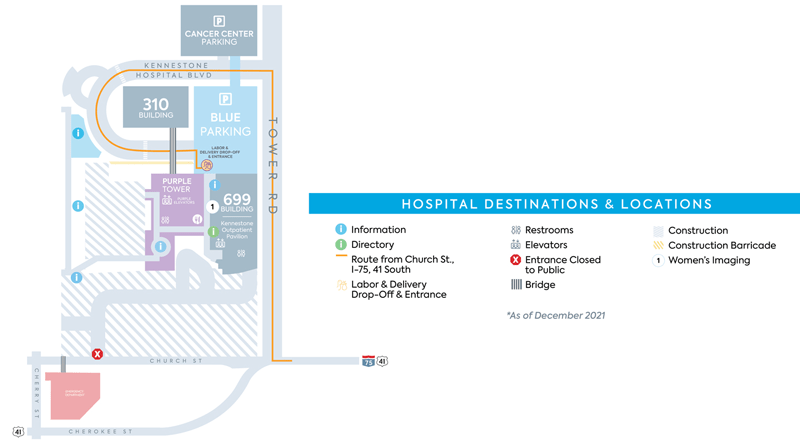
WHEN: Starting December 20, the covered walkway from the hospital’s Blue Parking Deck to the main entrance will be replaced with a temporary covered sidewalk, shifting the Labor & Delivery Entrance and Drop-Off to inside the Blue Parking Deck at the existing Kennestone Outpatient Pavilion (699 Building) entrance. To access the Labor & Delivery entrance, visitors will need to use Kennestone Hospital Boulevard, off Tower Road, then follow the signs into the covered Blue Parking Deck.
Wellstar Kennestone Hospital is taking the following steps to minimize the impact on patients, team members, providers, and the community:
WHY: Wellstar Kennestone Hospital is prepping the site for the proposed expansion project and new patient tower. Wellstar is developing the new tower to expand its women and children services, enhance campus amenities, and address community requests for more private rooms. The new tower will replace the current Baird Building and is expected to open in mid-2025.
To see the latest updates on the project, visit the Wellstar Kennestone Hospital web page.

Innovation is Buzzing at Wellstar Vinings Health Park
Through a new partnership, Wellstar will both help address food insecurity in the communities we serve and have a positive impact on our environment.
Honeybees are an essential part of our ecosystem, and they keep us fed — bees pollinate 70 of the world’s top 100 crops. However, they are dying at high rates as they lose their habitats. Wellstar is taking a step to help by giving a home to three beehives at Wellstar Vinings Health Park in a partnership with Bee Downtown. Wellstar is the first hospital system to partner with Bee Downtown on such an initiative.
These small insects make a huge impact. A single honeybee creates more than 1,200 pollination events each day, so the bees at Wellstar will make billions of pollination events a year. Wellstar’s bees will also produce 80 pounds of honey a year. Some of that honey will be donated to Open Hand Atlanta, which provides home-delivered meals to those experiencing food insecurity and will include honey from Wellstar in its “Market Baskets” of groceries donated to community members in need.
The safety of our patients, community and team members is Wellstar’s highest priority. The bees will be kept in a gated area behind the health park, away from sidewalks and building entrances.
The partnership with Bee Downtown is an initiative of Catalyst by Wellstar, a global digital health and innovation center working to transform healthcare. To learn more, please visit catalyst.wellstar.org.

Innovation is Buzzing at Wellstar Vinings Health Park
Through a new partnership, Wellstar will both help address food insecurity in the communities we serve and have a positive impact on our environment.
Honeybees are an essential part of our ecosystem, and they keep us fed — bees pollinate 70 of the world’s top 100 crops. However, they are dying at high rates as they lose their habitats. Wellstar is taking a step to help by giving a home to three beehives at Wellstar Vinings Health Park in a partnership with Bee Downtown. Wellstar is the first hospital system to partner with Bee Downtown on such an initiative.
These small insects make a huge impact. A single honeybee creates more than 1,200 pollination events each day, so the bees at Wellstar will make billions of pollination events a year. Wellstar’s bees will also produce 80 pounds of honey a year. Some of that honey will be donated to Open Hand Atlanta, which provides home-delivered meals to those experiencing food insecurity and will include honey from Wellstar in its “Market Baskets” of groceries donated to community members in need.
The safety of our patients, community and team members is Wellstar’s highest priority. The bees will be kept in a gated area behind the health park, away from sidewalks and building entrances.
The partnership with Bee Downtown is an initiative of Catalyst by Wellstar, a global digital health and innovation center working to transform healthcare. To learn more, please visit catalyst.wellstar.org.
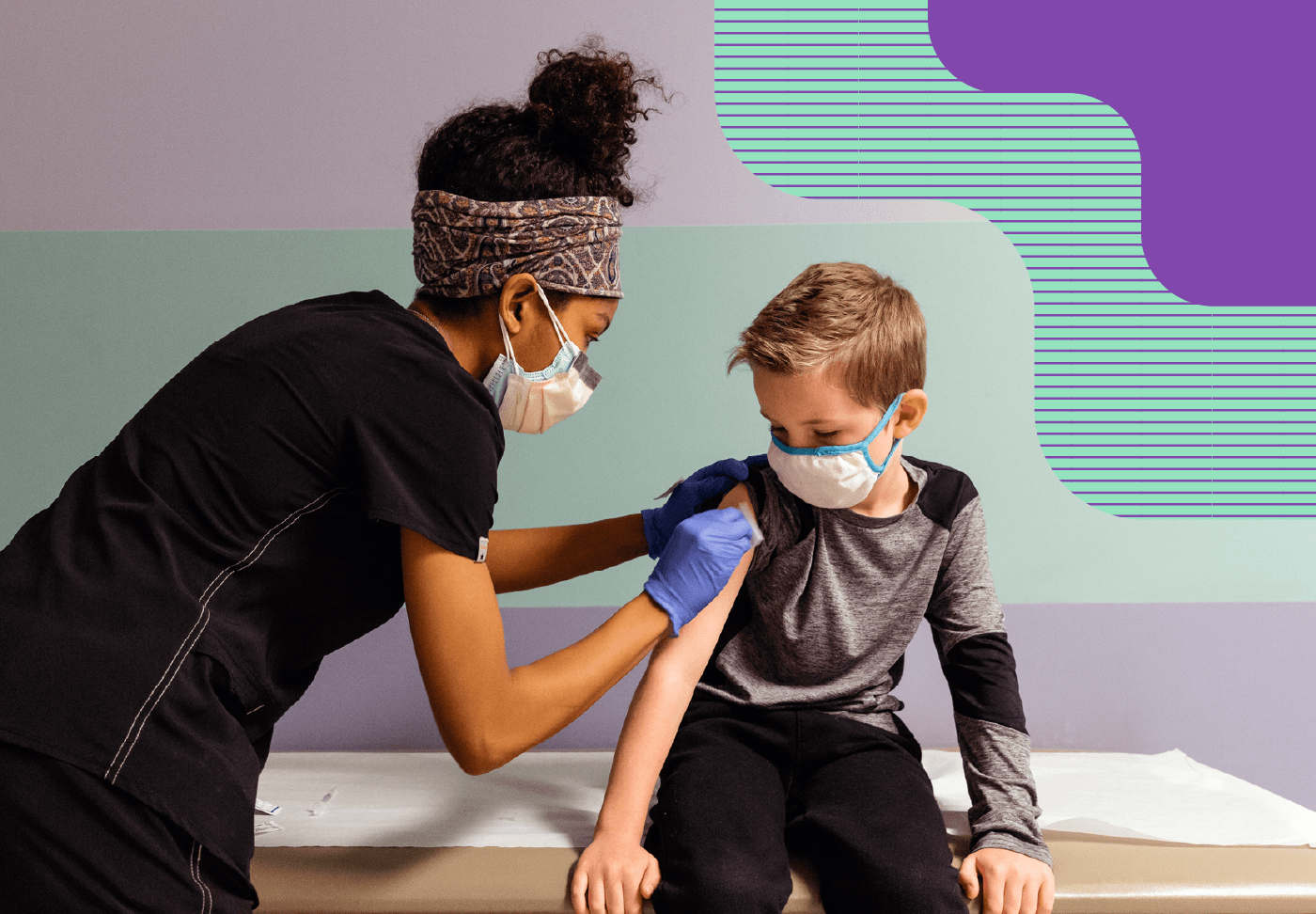
Wellstar Health System Opens Pediatric COVID-19 Vaccination Clinics to Enthusiastic Community Response
Wellstar Health System has opened two pediatric COVID-19 vaccination centers following the United States Food and Drug Administration’s (FDA) Emergency Use Authorization (EUA) of the COVID vaccine for existing Wellstar pediatric patients aged 5 to 11. Wellstar began offering COVID vaccinations for children under age 12 the weekend of Nov. 5 and quickly filled more than 100 vaccination appointments on the first day. To date, nearly 2,000 appointments have been scheduled through January 2022. The Wellstar pediatric COVID vaccination sites are currently located at the East Cobb and Acworth Health Parks, and parents and caregivers are encouraged to schedule a vaccination appointment with their children’s pediatrician.
“During the COVID pandemic, Wellstar has remained dedicated to protecting our practitioners, patients, and the children of our communities,” said Dr. Avril Beckford, chief pediatric officer for Wellstar Health System. “We are incredibly excited by the high demand and interest in pediatric vaccinations and proud of the families who have taken the important step to vaccinate their children to offer some of our youngest patients protection against COVID.”
Wellstar’s COVID pediatric vaccination clinics include waiting rooms for families to relax in while their children are vaccinated. In addition, parents can also schedule follow-up visits, including the second vaccine dose and other important immunizations while waiting.
“I decided to get my two children ages five and seven vaccinated,” said Hunter Carlson, executive director of Health Parks and Pediatric Center for Wellstar Health System. “The kids had a great time and enjoyed interacting with the physicians and staff. In addition to wearing masks, the vaccine will give my children and family an extra layer of protection against the disease.”
The best protection against COVID-19 is prevention, vaccination and stopping community spread. Be sure you and your family members who are age five and up get the COVID-19 vaccine. Parents can also help protect their children’s health by teaching them the 3Ws—wear a mask, wash your hands and watch your distance.
For more health tips and information on how to schedule pediatric vaccinations, visit our Pediatric Care During COVID-19 page.
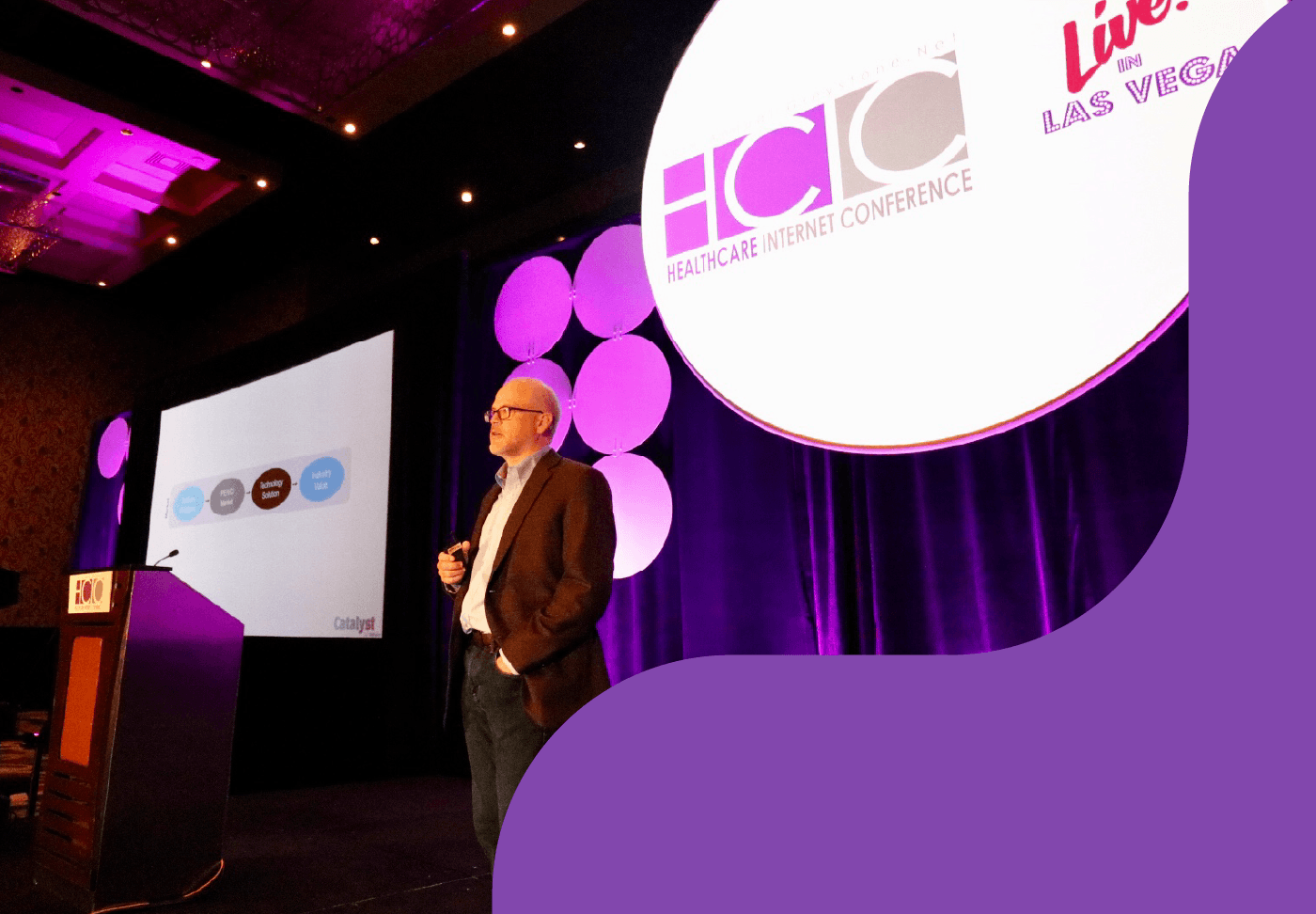
Reimagining the Future of Care
Hank Capps, MD, Wellstar Health System’s Chief Information and Digital Officer, recently delivered a keynote address about the future of care at the 2021 Healthcare Internet Conference in Las Vegas. This article summarizes Dr. Capps’ remarks regarding how the future of care is taking shape and how digital technology can be leveraged to achieve better patient outcomes and community health.
Never in our recent history has society gone through a period where technological innovation is moving more rapidly than it is right now, while impacting every aspect of our daily lives in the process.
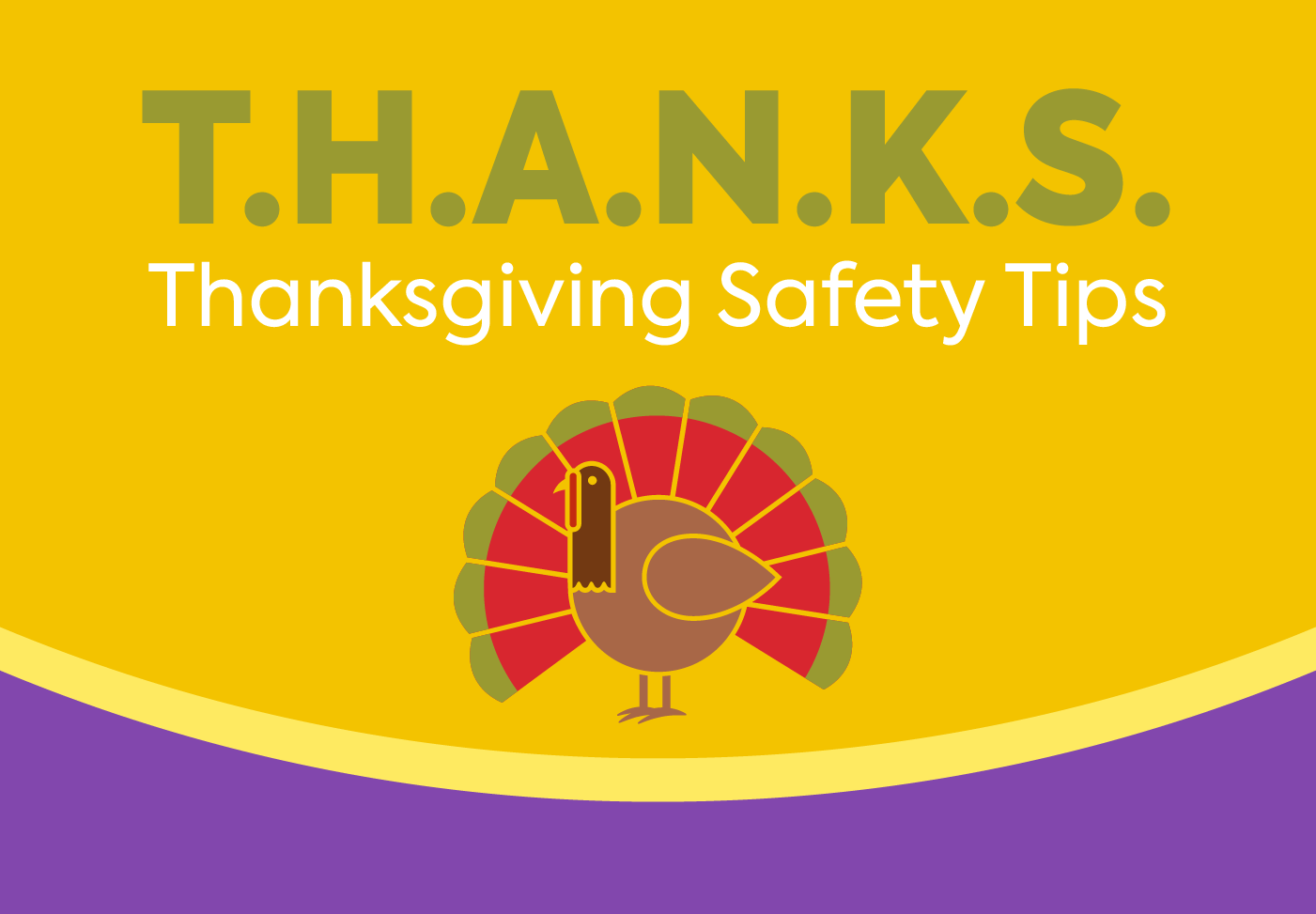
‘Tis the Time for T.H.A.N.K.S. Again
Dr. Danny Branstetter
Another year has come and gone, and while COVID-19 is still with us, this year brings gratitude for one of the best ways to protect against the disease – vaccinations. While safety measures are still encouraged, family gatherings are a bit safer this year due to the safety and efficacy of the vaccines rolled out late last year. COVID vaccines are now available for people who are at least five years old and offer important protection for families, friends, and communities as they gather for the holiday season.
Wellstar Health System has provided the healthy and helpful tips below to help families safely enjoy the winter holidays and give T.H.A.N.K.S. again:
T - TAKE STEPS EARLY: Preventing the spread of COVID during the holidays is more than just wearing a mask, watching your distance, and washing your hands. It’s about caring for those you love by taking steps to be sure you keep everyone safe. The best way to do that is to get vaccinated.
H - HAVE FAMILY PLANS: No matter how you celebrate the winter holidays, COVID can easily throw a wrench into any occasion. Having a family plan to prevent catching or spreading the disease can keep unneeded worry out of holiday gatherings.
A – AWARENESS: Stay aware of the latest COVID-19 news and information by checking updates from credible sources such as the CDC and local public health departments.
N - NEW TREATMENTS ARE HERE: The holidays are a time to gather with loved ones and give thanks. Many new medical advances have been approved that help treat COVID and limit the severity of the disease. That is reason to be thankful!
K - KEEP CALM AND BE KIND: The past two years have been challenging, and many are finding new ways to cope with unexpected loss. Please be considerate and kind and try to remain calm when faced with anxieties about the pandemic.
S -SUPPORT OTHERS: Support those interested in learning more about COVID vaccines by sharing information from credible sources such as the CDC. The spread of misinformation can negatively affect COVID-19 vaccine confidence and because we know how truly effective the vaccines have been in our communities, let’s all work together to focus on the facts from healthcare experts.
Wellstar is committed to providing world-class healthcare during the COVID-19 pandemic. Click here for more information and tips on how to prevent COVID.
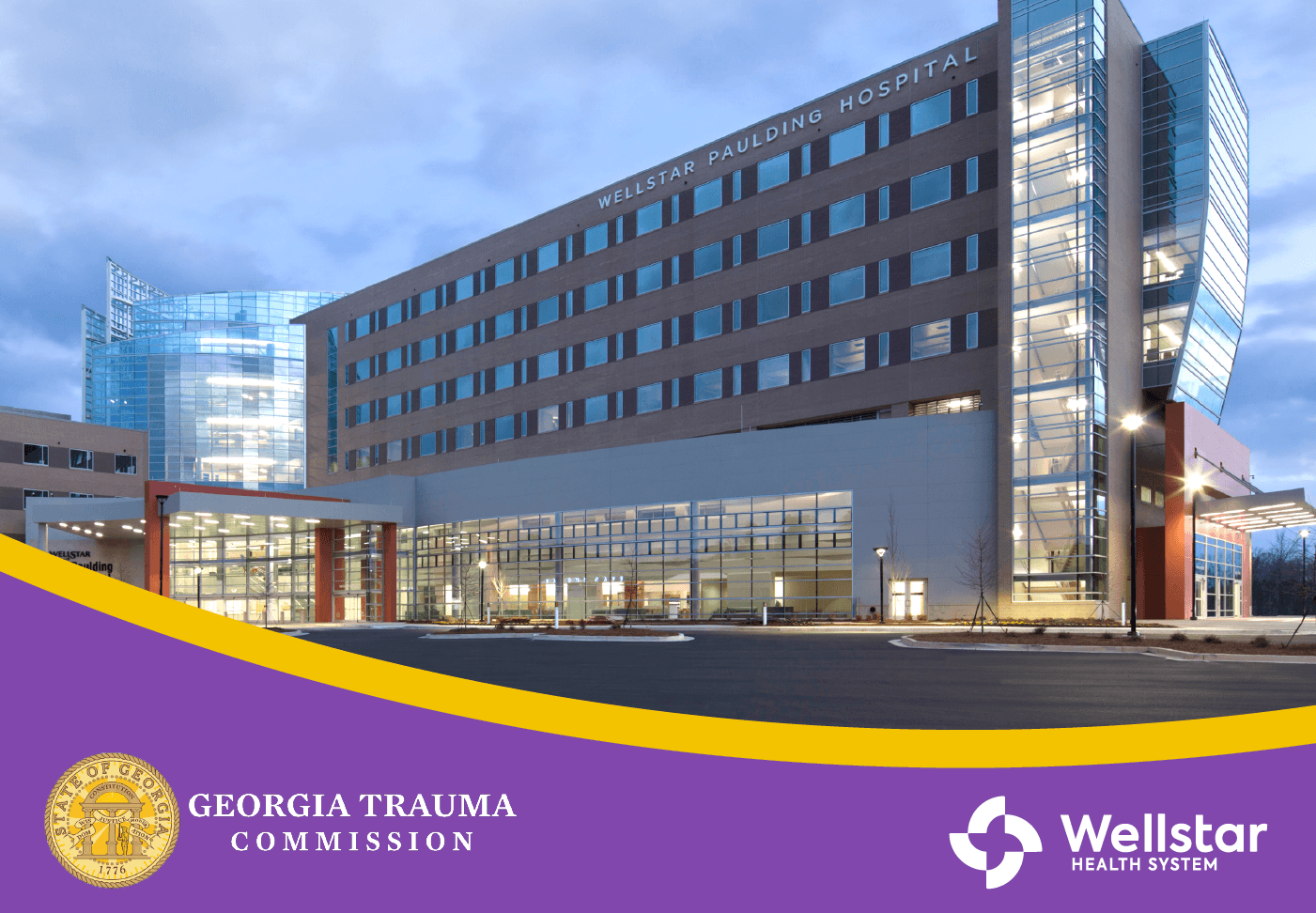
Wellstar Paulding Hospital Designated a Level IV Trauma Center
When kids or adults are injured, a specialized trauma team is ready 24/7 in Paulding County to provide high-quality patient care. As a result of its commitment to advanced trauma care, Wellstar Paulding Hospital was recently designated a Level IV Trauma Center by the Georgia Department of Public Health (DPH). Level IV Trauma Centers demonstrate the ability to provide advanced trauma life support prior to transfer of patients to a higher-level trauma center when necessary.
“Wellstar Paulding Hospital is part of the largest trauma network in the state, delivering compassionate, high-quality care to people in our community suffering from accidents, incidents and injuries,” said Frances Van Beek, assistant vice president of Trauma & Neuro Services for Wellstar Health System. “Patients benefit from our team’s tight-knit communication and collaboration, as well as our physician and caregiver expertise that enables us to save lives every day.”
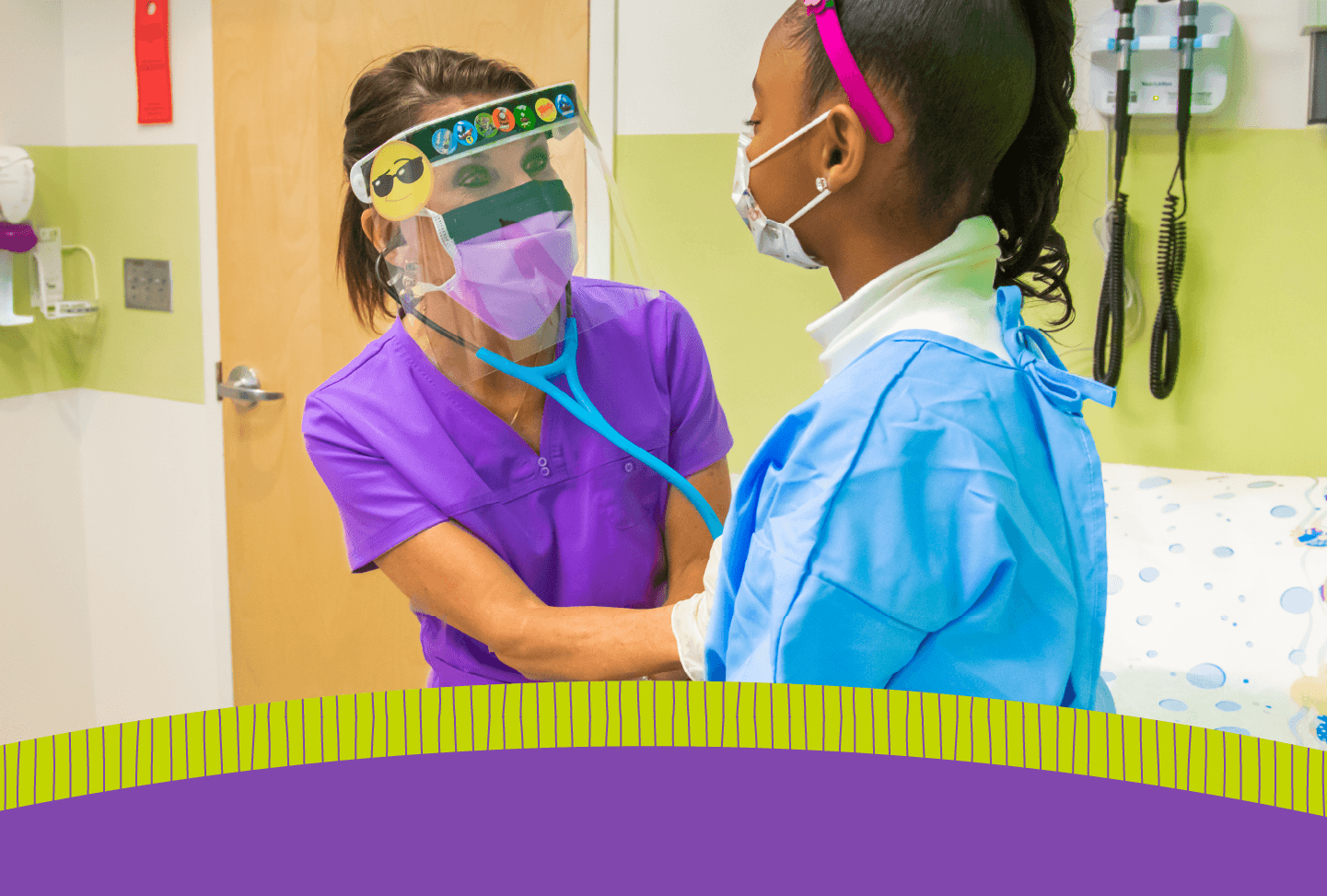
Babies, kids and teens now have their own emergency department at Wellstar Douglas Hospital
For a child, going to the hospital can be scary. That’s why Wellstar Douglas Hospital’s new $5.7 million Pediatric Emergency Department (ED) offers a kid-friendly and kid-sized experience for Douglas County’s youngest patients. The nautical-themed 7,600 square-foot facility provides specialized care for children from birth to 18 years of age.
The world-class “just-for-kids” facility has a separate entrance and waiting room from the main Emergency Department and is currently open from 11 a.m. to 11 p.m. The ten treatment rooms feature child-sized furniture, equipment and supplies.
“We created an environment that is optimum for healing and that helps our youngest patients feel as comfortable as possible,” said Dr. Avril Beckford, chief pediatric officer, Wellstar Health System. “Children in Douglas deserve to see doctors and nurses who understand them. We also wanted to give parents a state-of-the-art facility staffed by pediatric physicians close to home – there is no need to travel long distances with a sick child now, because this specialized facility is right here, in the Douglas County community.”
Staffed by kid-friendly nurses and skilled providers devoted to children, the new kids’ ED is a result of collaboration between the architect, construction firm and pediatric experts. Wellstar’s pediatric team cares for children at more than 114,000 emergency visits a year across Wellstar’s hospitals.
“From the outside, there are colorful floor-to-ceiling glass windows,” Dr. Beckford said, as she imagined a child’s first impression. “It feels almost like you’re walking into an aquarium.”
Inside the pediatric ED, children and their parents are greeted by warm staff members, soothing murals of ocean life, a large flat screen TV and child-sized furnishings.
To help children be seen and treated more quickly, some rooms will be dedicated to patients with less serious conditions – such as sore throats and sprains. There will also be a trauma bay and a dedicated room for adolescent gynecological concerns.
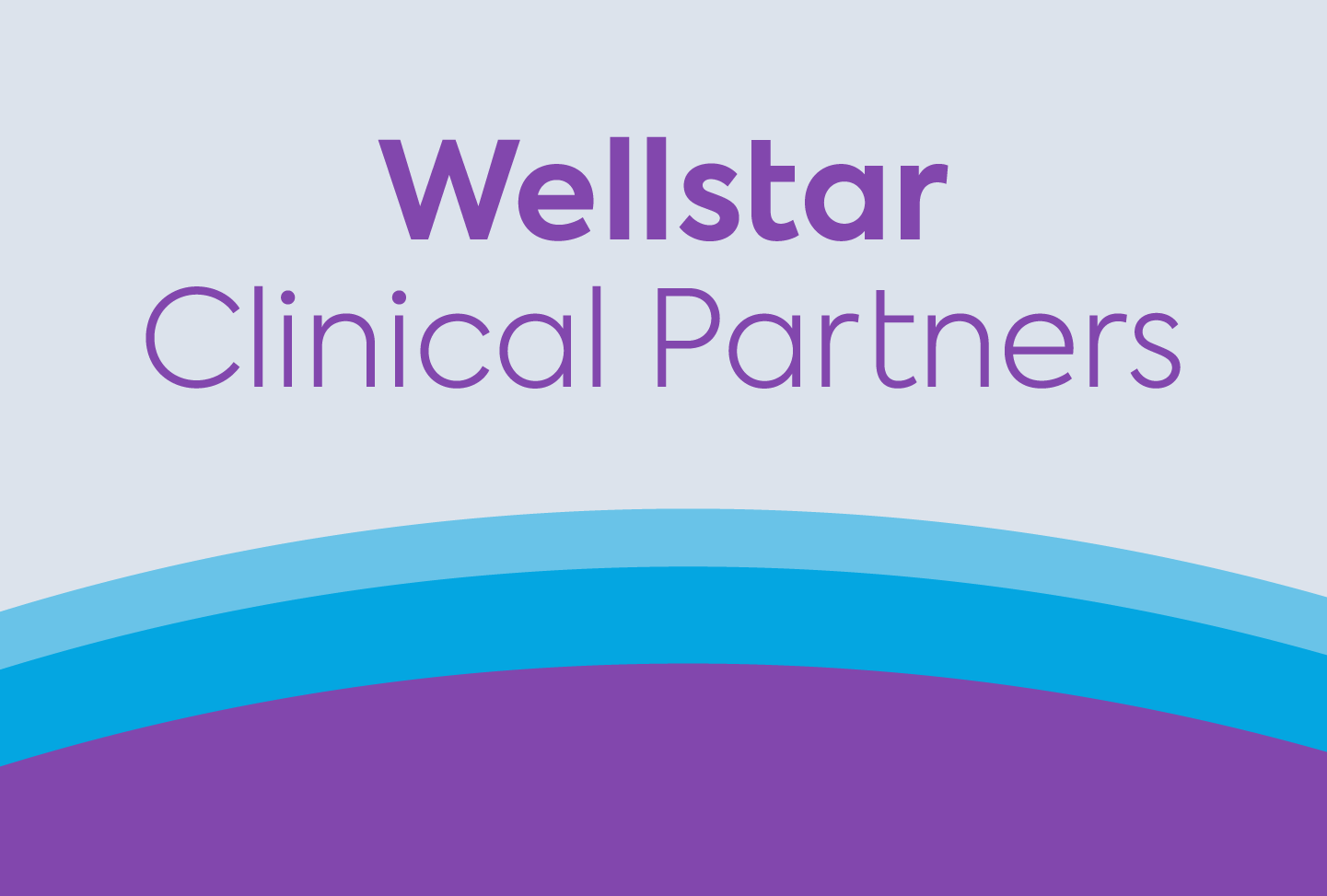
Wellstar Clinical Partners Medicare ACO Significantly Reduces Cost for Patients
The Centers for Medicare & Medicaid Services (CMS) announced the 2020 results for the Medicare Shared Savings Program (MSSP) and Wellstar Clinical Partners (WCP) Medicare Accountable Care Organization (ACO) helped CMS save over $18 million for the entire performance year. During the 2020 calendar year, WCP Medicare ACO also received its highest quality score and yielded the third-best financial performance, resulting in cost savings for patients.
“Even through the most challenging times such as the current COVID-19 pandemic, Wellstar has remained dedicated to providing high-quality, world-class care for our patients,” said Dr. John Brennan, executive vice president and chief clinical integration officer of Wellstar Health System. Dr. Joseph Havlik, chairman of the board for WCP added, “While we continue to work together to keep our communities safe, we’re all proud that we have been able to remain focused on excellent quality, appropriate cost, exceptional patient experience and caregiver well-being.”
Wellstar achieved a quality score of 97%, a metric that rates ACOs on patient experience, patient safety, preventive health and at-risk populations. The WCP Medicare ACO performed in the top 15 percent of ACOs for 2020 based on generated savings, out of more than 500 other ACOs.
“Our physicians and partners are passionate about the health and well-being of our patients,” said Barbara Corey, senior vice president of Managed Care for Wellstar Health System. “The scores and accomplishments for the 2020 calendar year are a true testament to our commitment to providing compassionate and exceptional care.”
One of the largest and most experienced ACOs in Georgia, the WCP Medicare ACO is consistently named one of the top ACOs in the country. Additionally, the ACO is the only one in Georgia to help Medicare bend the healthcare cost curve for seven of the last eight years. Medicare Shared Savings Program (MSSP) ACOs are groups of doctors, hospitals, and other healthcare providers who come together voluntarily to provide coordinated high-quality care to their Medicare patients.
The WCP Medicare ACO leverages its internal resources, infrastructure, and partnerships with employed and affiliated physicians to deliver high quality, cost-effective healthcare to the communities it serves. Since 2012, the WCP Medicare ACO has been a consistent, high-quality, top performing ACO and it is among the top MSSP ACOs when measured by cumulative savings to Medicare of over $111 million.

Día de los Muertos 2021: A time to honor and safely celebrate
Día de los Muertos, or Day of the Dead, is a festive, multi-day cultural celebration among Mexican and Latinx communities where family and friends come together to pay respects to friends and family members who have died. The celebrations can sometimes take a serious or a humorous tone, as celebrants remember funny events and anecdotes about the departed, marked by gatherings, music, colorful costumes, and food.
This year, Día de los Muertos celebrations are expected to take place during the global pandemic once again, which means the COVID-19 safety measures observed over the past 20 months should still be followed to protect your loved ones. This is particularly important since 26.2% of all COVID-19 cases in the U.S. have been among Hispanics and Latinos, representing 18.45% of the total deaths from the virus.
To keep everyone protected during this special celebration, Wellstar has compiled some tips for a fun and safe Día de los Muertos celebration.
1 – Vaccination can make celebrations safer: Now that we have the protection of COVID-19 vaccines available, every celebration and gathering can be safer. The more people in your group who have been fully vaccinated, the better for everyone, especially if other safety measures are followed. If you are eligible, be sure and get a booster as soon as you can, too.
2 – Make masks the star of Catrina costumes: Masks are not only fun, they’re also proven to minimize the spread of the virus for everyone age two and older. Get creative by incorporating masks in Catrina costumes and make-up by using fabric paint, glued-on sequins, or stickers to decorate them. In a pinch, use a printed Catrina mask and do your make-up to match or complement the mask. Don’t forget to share photos on social media with the hashtag #celebraciónsegura.
3 – Celebrate outside with appropriate social distancing: Outside is the best place to celebrate. Weather and health permitting, being outside to celebrate Día de los Muertos can promote airflow and help minimize close contact with others. For parades and visits to gravesites, wear a mask and stay at least two meters apart from people who do not live with you. “Air” hugs and waves are much safer than physical hugging and kissing during the pandemic.
4 – Avoid shared food and utensils: Because parties can be a big part of Día de los Muertos, not sharing food and utensils is one of the best ways to keep the spread of COVID-19 in check. If you do get together with a few close friends and family members, take measures to make it a safe celebration by bringing your own meal and utensils to limit sharing or use disposable items. As convenient as it may be, a buffet-style meal is not a good idea during a pandemic. Space your tables and chairs out, possibly outside or in a large area, to limit the spread of the disease, and wear a mask when you are not eating, especially those who are unvaccinated.
5 – Wash hands and sanitize: During the celebration, keep disinfectant wipes nearby to use on surfaces such as tables, chairs, and doorknobs. Everyone should frequently wash and sanitize their hands and remind children and other family members about all safety measures to help keep everyone COVID-free.
6 – Stay at home: Everyone loves a party, but it’s best to avoid any gathering, particularly if you have underlying health conditions such as diabetes, heart or lung issues, obesity, cancer, or other conditions that compromise your immune system. With the rise in pediatric COVID-19 cases, since many children are still not vaccinated, they may also be at greater risk of infection. Anyone can be a carrier or become infected and seriously ill, but these groups are at the greatest risk of contracting and succumbing to COVID. If anyone in your group is feeling ill or has symptoms, it's best to play it safe and stay home to celebrate.
Regardless of how you choose to celebrate Día de los Muertos and the autumn season with fun activities during the pandemic, be sure and refer to the Centers for Disease Control and Prevention guidelines for specific guidance on how to stay safe and well.
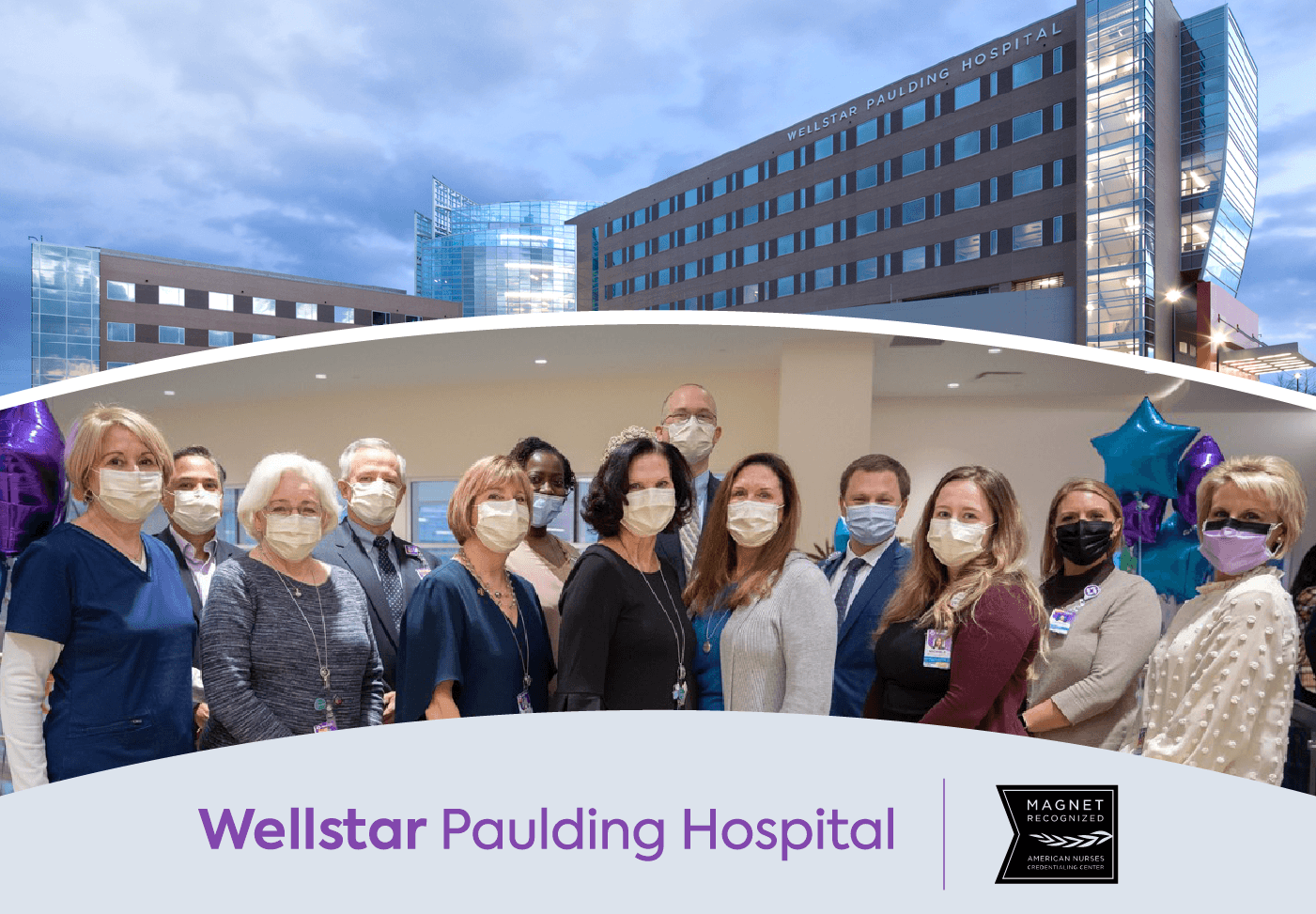
Wellstar Paulding Hospital Achieves Magnet® Recognition for Nursing Excellence
Wellstar Health System announces that Wellstar Paulding Hospital achieved global Magnet recognition in October. This honor is a reflection of its nursing professionalism, teamwork and excellence in patient care. The American Nurses Credentialing Center’s (ANCC) Magnet Recognition Program® distinguishes organizations that meet rigorous standards for nursing excellence. Wellstar Paulding Hospital is only the 12th hospital in the state of Georgia to receive this recognition.
With this credential, Wellstar Paulding Hospital joins the global community of Magnet-recognized organizations. Only a small and select group of U.S. healthcare organizations have achieved Magnet recognition due to the complex requirements and meticulous evaluation process. This prestigious honor further underscores Wellstar Paulding Hospital’s commitment to world-class, compassionate, and tailored care in all the communities we serve across Georgia.
“Magnet recognition provides our community with the ultimate benchmark to measure the quality of patient care,” said Jill Case-Wirth, chief nurse executive for Wellstar Health System. “Achieving Magnet recognition validates the culture of excellence that is a cornerstone of how we serve our community. It’s also tangible evidence of our nurses’ and interprofessional teams’ commitment to providing the very best care to our patients, of which we are extremely proud.”
Magnet recognition is the gold standard for nursing excellence and is a factor when the public considers healthcare organizations. U.S. News & World Report’s annual showcase of “America’s Best Hospitals” includes Magnet recognition in its ranking criteria for quality of inpatient care.
Research demonstrates that Magnet recognition provides specific benefits to healthcare organizations and the communities they serve, such as:
“Magnet recognition has many benefits — not just for the nurses who provide care, but also for the patients who receive that care,” said Vicky Hogue, vice president of Patient Services & chief nursing officer at Wellstar Paulding Hospital. “For example, changes in nursing practice are guided by research for better outcomes, which results in higher patient and employee satisfaction and a shorter patient stay.”
The Magnet Model provides a framework for nursing practice, research, and measurement of outcomes. Through this framework, ANCC evaluates applicants across a number of components and dimensions to gauge an organization’s nursing excellence. The foundation of this model comprises various elements deemed essential to delivering superior patient care. These include the quality of nursing leadership and coordination and collaboration across specialties, as well as processes for measuring and improving the quality and delivery of care.
“Ultimately, this recognition aligns with the Wellstar Paulding’s culture of ‘Neighbors caring for Neighbors,” Hogue said.

Halloween 2021: Make it Spooky and Play it Safe
Halloween is right around the corner, and while many Georgians are looking to celebrate this year, many may have questions about how to do so safely.
We’re still in a global pandemic, but we are one year smarter about the best ways to protect ourselves and others from COVID-19, including the safe, effective vaccines that are now available. In fact, the Centers for Disease Control and Prevention recently released guidelines recommending vaccination to minimize COVID-19 risk and to keep family and friends safe while celebrating holiday occasions such as Halloween.
Moreover, Halloween is a great occasion to show your creative flair and incorporate mask wearing. Adding decorative touches to face masks and even transforming a face shield into a superhero mask can be fun and adds a layer of protection from COVID and other viruses.
Wellstar has created these SPOOKY Halloween tips for a healthy Halloween celebration during the pandemic.
S- SANITIZE often and thoroughly. Have your kids wash their hands before heading out, then bring along sanitizer and use it frequently while trick-or-treating. Sanitize candy wrappers when you get home and remind children of safety measures that can help keep everyone COVID-free. If children are visiting your home for trick-or-treating, keep hand sanitizer handy to help prevent the spread of viruses.
P- PHYSICAL DISTANCING is still highly recommended by the CDC. Whether trick-or-treating at a front door or hanging around food and drinks at a party, large group gatherings should be avoided as much as possible. Six feet distancing when possible and small groups are still recommended, even when outside.
O- OUTDOORS is the best way to celebrate Halloween, weather permitting. Being outside promotes air flow and helps minimize close contact with others. If guests are coming to your home for Halloween, consider sitting outside. If you’re planning to make “Grab-n-Go” treats instead of offering a big bowl of treats for kids to dig into, space the bags out for added safety. Reminder: being outdoors doesn’t mean you should ignore sensible safety COVID precautions.
O- OBSERVE your youngest trick-or-treaters. They don’t always know how to stick to the safety guidelines, so keeping an eye on them and making sure that children use face masks, sanitizer, and other safety measures will help make Halloween safe and fun.
K- KIDS having fun and creating positive childhood memories is what Halloween is all about. Try to follow the recommended CDC guidelines for holidays to avoid or minimize COVID exposure while having fun.
Y- YOUR JUDGMENT is key to making good and healthy decisions and minimizing COVID-19 exposure. In addition to wearing masks and getting vaccinated for layers of protection for you and your loved ones, take additional safety precautions such as washing your hands and be sure to stay home if anyone in your family has symptoms.
Wellstar is committed to providing high-quality, tailored, and compassionate care. For more information and the latest updates on COVID-19, visit wellstar.org/COVID-19.
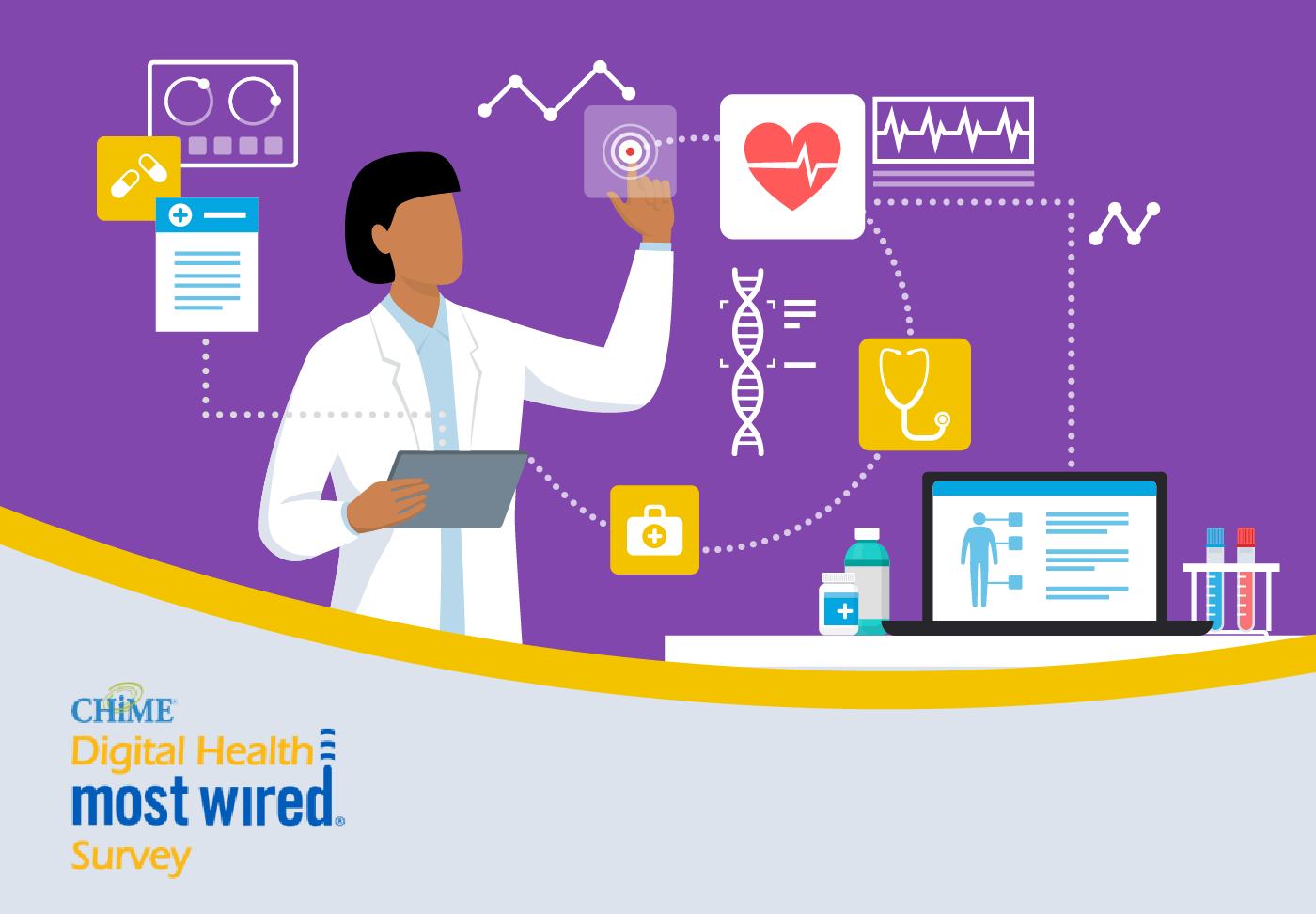
Wellstar Health System Earns Seventh CHIME Digital Health Most Wired Recognition
The College of Healthcare Information Management Executives (CHIME) is pleased to announce that Wellstar Health System has earned 2021 CHIME Digital Health Most Wired recognition as a certified level 8 in acute, ambulatory and long-term care. This is the seventh time Wellstar has received this annual distinction. The CHIME Digital Health Most Wired program conducts an annual survey to assess how effectively healthcare organizations apply core and advanced technologies into their clinical and business programs to improve health and care in their communities.

“Digital transformation in healthcare has accelerated to an unprecedented level since 2020, and the next few years will bring a wave of innovation that empowers healthcare consumers and will astound the industry,” said CHIME President and CEO Russell P. Branzell. “The Digital Health Most Wired program recognizes the outstanding digital leaders who have paved the way for this imminent revolution in healthcare. Their trailblazing commitment to rapid transformation has set an example for the entire industry in how to pursue a leadership vision with determination, brilliant planning and courage to overcome all challenges.”
“This recognition reflects the care, dedication and extraordinary professionalism the Wellstar team brings to work every day in service of our communities,” said Dr. Hank Capps, executive vice president and chief information and digital officer, Wellstar Health System. “Through this challenging season, the team has delivered on Wellstar’s mission of enhancing the health and well-being of every person we serve.”
A total of 36,674 organizations were represented in the 2021 Digital Health Most Wired program, which includes four separate surveys: acute, ambulatory, long-term care and international acute. The surveys assessed the adoption, integration and impact of technologies in healthcare organizations at all stages of development, from early development to industry leading.
Each participating organization received a customized benchmarking report, an overall score and scores for individual levels in eight segments: infrastructure; security; business/disaster recovery; administrative/supply chain; analytics/data management; interoperability/population health; patient engagement; and clinical quality/safety.
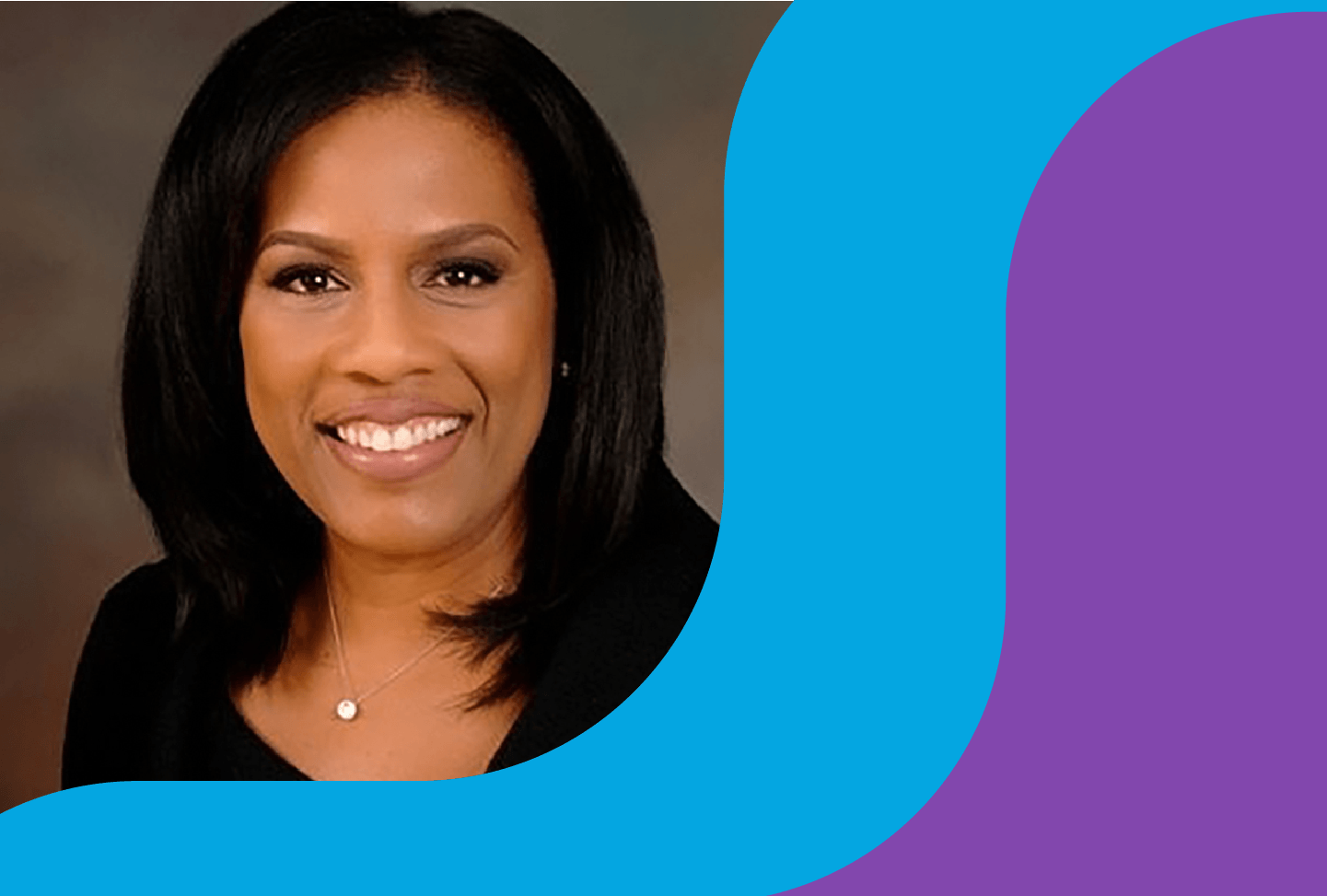
Wellstar Appoints Chief Diversity, Equity & Inclusion Officer
Wellstar Health System has hired Le Joyce Naylor as senior vice president and chief diversity, equity, & inclusion officer. Naylor began her role on August 2 to provide systemwide thought leadership, strategic planning, and implementation of DE&I initiatives at Wellstar.
“Wellstar is committed to sustaining a diverse, equitable and inclusive environment that honors and values the voice of each patient and team member,” said Candice L. Saunders, president and CEO of Wellstar Health System. “Le Joyce will work with leaders across our organization to advance Wellstar’s diversity, equity, and inclusion (DE&I) and cultural competence programs to positively impact patients, team members and the communities we serve – both today and into the future.”
Naylor has nearly 20 years of diversity and inclusion experience and an exceptional track record of setting strategy, engaging stakeholders and driving results, including leadership of DE&I initiatives in a healthcare setting. Most recently, she served as the executive director diversity & inclusion officer at the Cleveland Clinic. She was responsible for driving the diversity and inclusion strategy and execution for more than 66,000 employees and oversaw the system’s 21 Diversity Councils and 13 Employee Resource Groups. Under Naylor’s leadership, the Cleveland Clinic received National recognition for their employee resource groups, along with being recognized by DiversityInc. as a Top 10 Health System for twelve consecutive years, most notably ranking #1 in 2019.
Wellstar is dedicated to nurturing a diverse workplace that mirrors its communities. Approximately 81% of the company’s employees are women, and just over half (51%) of the workforce is comprised of minorities. When it comes to ascension, 47% of Wellstar’s executives and 77% of frontline managers are women, while minority executives make up 21% of the workforce, with minorities in 38% of the frontline management roles. Also, Wellstar has 7,300 nurses, of which approximately 90.2% of the system’s clinical RNs are women.
In December 2020, Wellstar formally launched the Diversity, Equity & Inclusion Advisory Council to identify opportunities to grow and drive positive change for our communities, patients and team members. As part of her scope, Naylor will lead the council to collaboratively address workforce diversity, a culture of inclusion, cultural competence, health equity, community engagement, and supplier diversity. Wellstar is regularly recognized for diversity excellence, including accolades from Diversity MBA magazine, Diversity Best Practices, Working Mother/Working Father, and National Association for Executive Women (NAFE), among others. Wellstar was also named among Great Place to Work® and Fortune “Best Companies to Work For” and “Best Workplaces for Diversity,” as well as in PEOPLE “Companies that Care,” in part due to the health system’s emphasis on inclusive policies and programs for Wellstar’s workforce and communities.
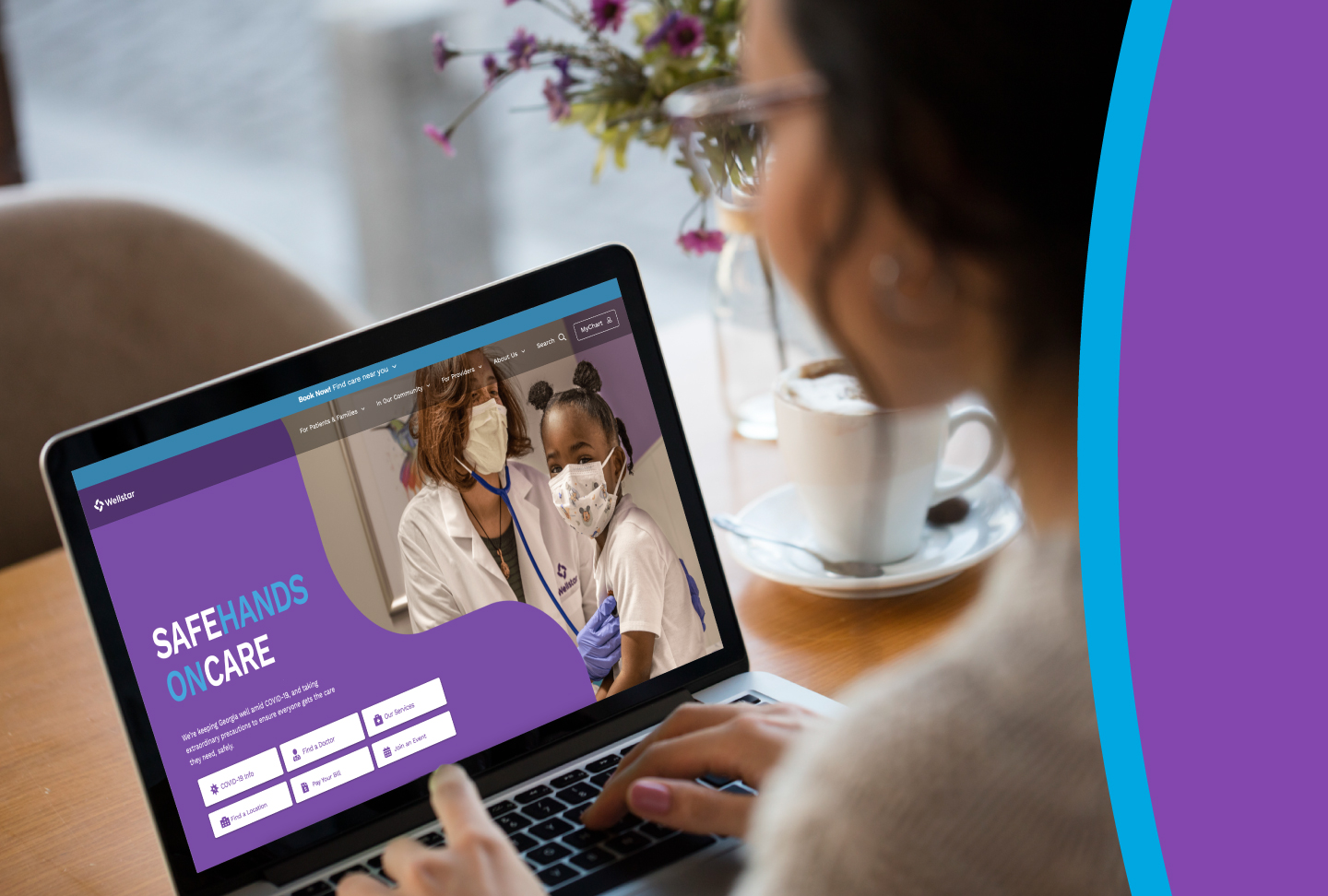
Wellstar Named National Healthcare Diversity Leader
Wellstar Health System has been recognized by Modern Healthcare as one of ten 2021 Top Organizations for Diversity from across the nation. Wellstar is the only health system in Georgia included in the inaugural listing and was honored for demonstrating a commitment to workforce diversity, including leadership positions.
“Healthcare organizations widely promote their diversity, equity and inclusion efforts when they're first announced. But it's more important to track success and make sure those initiatives deliver on the long-term results the companies and communities they serve expect. This year, we increased the cadence of our diversity recognition program and expanded eligibility to include companies as a whole, as well as individuals,” said Modern Healthcare editor, Aurora Aguilar. “The 2021 class of Top Diversity Leaders lead the pack in healthcare. These are people and companies that exemplify ‘walking the walk.’”
This is the inaugural year for Modern Healthcare’s Top Organizations for Diversity awards, which recognize healthcare companies that are “bolstering the diversity of their workforces” at all levels.
“Wellstar is committed to fostering an inclusive culture and workforce that mirrors the communities we serve and celebrates our diversity,” said Candice L. Saunders, president and chief executive officer, Wellstar Health System. “Some of our greatest impacts are a direct result of the diversity of our people: the incredible talent we attract, the daily contributions of our team members, the positive effects we create in our communities, and the programs, resources, and initiatives we implement as a leading healthcare provider. Being recognized as one of Modern Healthcare ten Top Organizations for Diversity honors not just what we do, but who we are.”
Wellstar has a long-standing commitment to diversity, equity and inclusion. In 2020, Wellstar formally launched the Diversity, Equity and Inclusion Advisory Council to identify opportunities to grow and drive positive change for its communities, patients and team members. The Council holds regular listening sessions to ensure the voices of team members across the organization are heard and reflected in a connected cycle of feedback across the system. Every Wellstar facility and department is represented in Wellstar’s diversity efforts.
Nurturing a diverse workplace that mirrors its communities, approximately 81% of Wellstar’s employees are women, and just over half (51%) of the workforce is comprised of minorities. When it comes to ascension, 47% of Wellstar’s executives and 77% of frontline managers are women, while minority executives make up 21% of the workforce, with minorities in 38% of the frontline management roles.
Wellstar believes every person should have access to safe, high-quality healthcare and offers inclusive medical services across its System. In 2019, Wellstar opened a family medicine practice providing specialized health services to people who identify as LGBTQ+. Additionally, physicians are trained to talk about specific issues that the LGBTQ+ community may encounter and support patients through transition goals with gender-affirming care. Wellstar also employs native-language interpreters across the System to serve patients and their families, including a team of full-time Spanish interpreters, a Mandarin Chinese interpreter, as well as full-time Nationally Certified American Sign Language interpreters to support Deaf and hard-of-hearing patients and their families.
Wellstar is regularly recognized for diversity excellence, including accolades from Diversity MBA magazine, Diversity Best Practices, Working Mother/Working Father, and National Association for Executive Women (NAFE), among others. Wellstar recently received two awards exemplifying excellence that include Great Place to Work® and PEOPLE magazine’s 2021 PEOPLE Companies that Care®, and Atlanta Business Chronicle’s 2021 Healthiest Employers. Wellstar has been recognized for outstanding diversity efforts and named in Fortune’s “Best Companies to Work For” and “Best Workplaces for Diversity.”
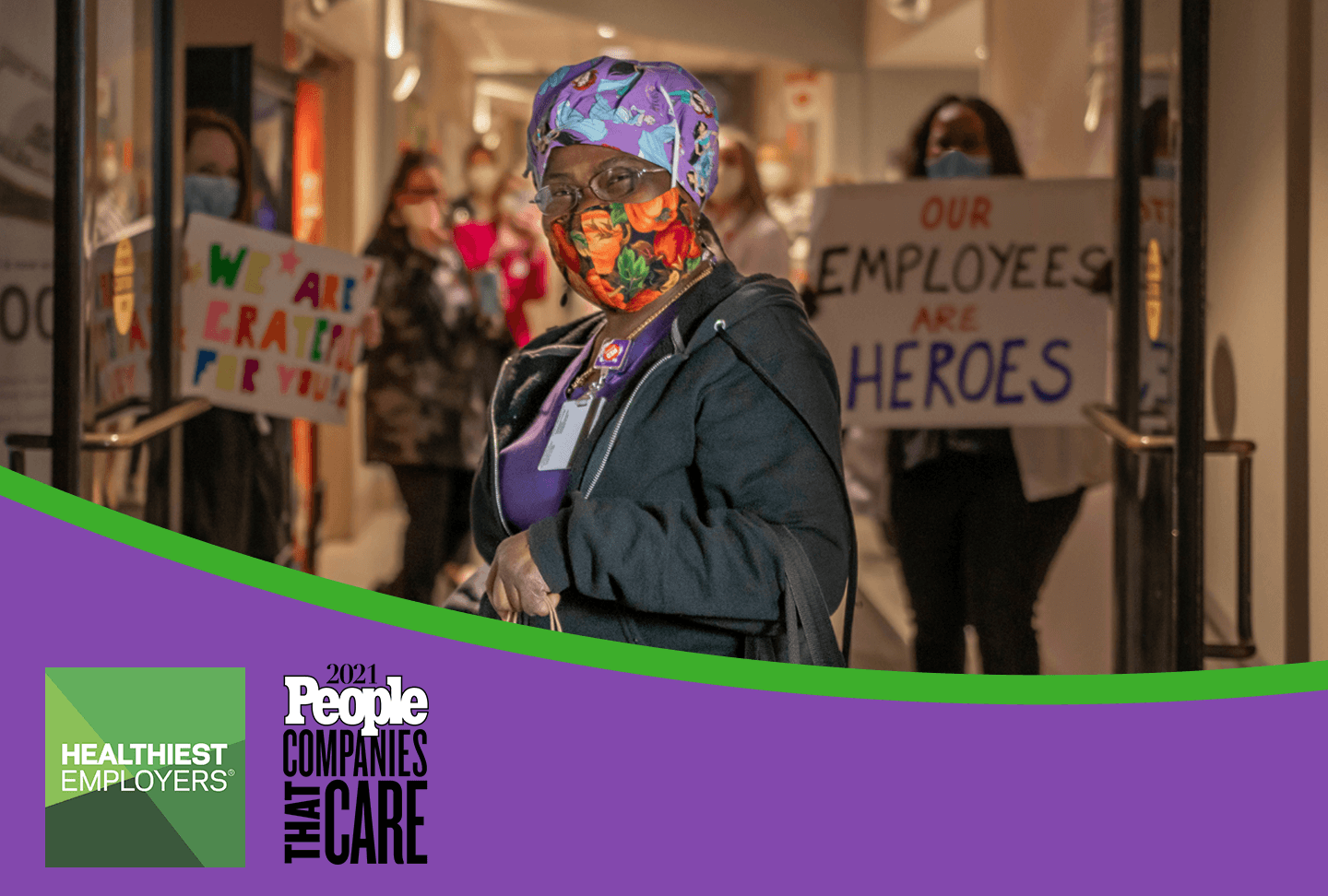
Wellstar Recognized as One of 2021 People Companies that Care and Atlanta Business Chronicle's 2021 Healthiest Employers
Wellstar Health System has received two prestigious awards that exemplify excellence: Great Place to Work® and PEOPLE magazine’s 2021 PEOPLE Companies that Care®, and Atlanta Business Chronicle’s 2021 Healthiest Employers.
The two accolades underscore Wellstar’s focus on “More than healthcare. PeopleCare.”—putting people first both inside and outside the walls of Wellstar across the many communities and regions served by the health system.
“People are at the center of everything we do at Wellstar, and these awards underscore our dedication to compassionate care and wellness for everyone we serve,” said David A. Jones, chief human resources officer, Wellstar Health System. “We are honored and humbled by this recognition, and commit to continuing to nurture our culture of caring and excellence.”
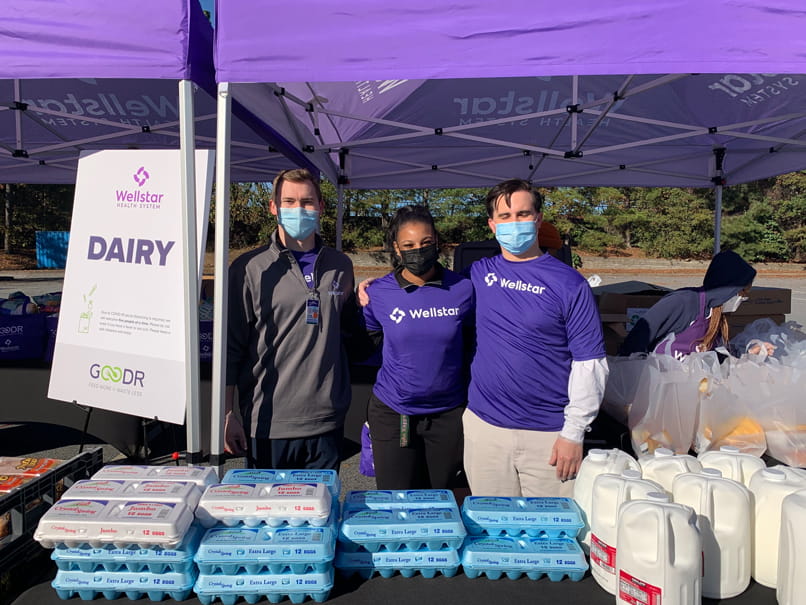
Great Place to Work® and PEOPLE magazine have honored Wellstar as one of the 2021 PEOPLE Companies that Care®. This is Wellstar’s first time being named to this prestigious list, this year coming in at 50th place of the 100 companies recognized. Earning a spot means that Wellstar is one of the best companies to work for in the country. Wellstar is one of only four Georgia-based companies and one of only six health systems included in the ranking.
Wellstar was highlighted for its LGBTQ+ primary care family practice in Atlanta and for the more than $900 million invested last year in charity care, unreimbursed care and community programs as a leading non-profit health system.
“These companies show up for humanity in a variety of ways—from showing compassion for their employees to giving back to their communities to putting diversity, equity and inclusion in the forefront,” says Michael C. Bush, CEO of Great Place to Work®. “They are paving the way for more socially responsible business and are fostering high-trust workplaces for all. Congratulations to the winners of the PEOPLE's Companies that Care list!”
The PEOPLE Companies that Care award is highly competitive and based on analysis of survey responses from more than five million current employees across all industries and U.S. geographies. Companies were only considered if they are a Great Place to Work-Certified™ organization.
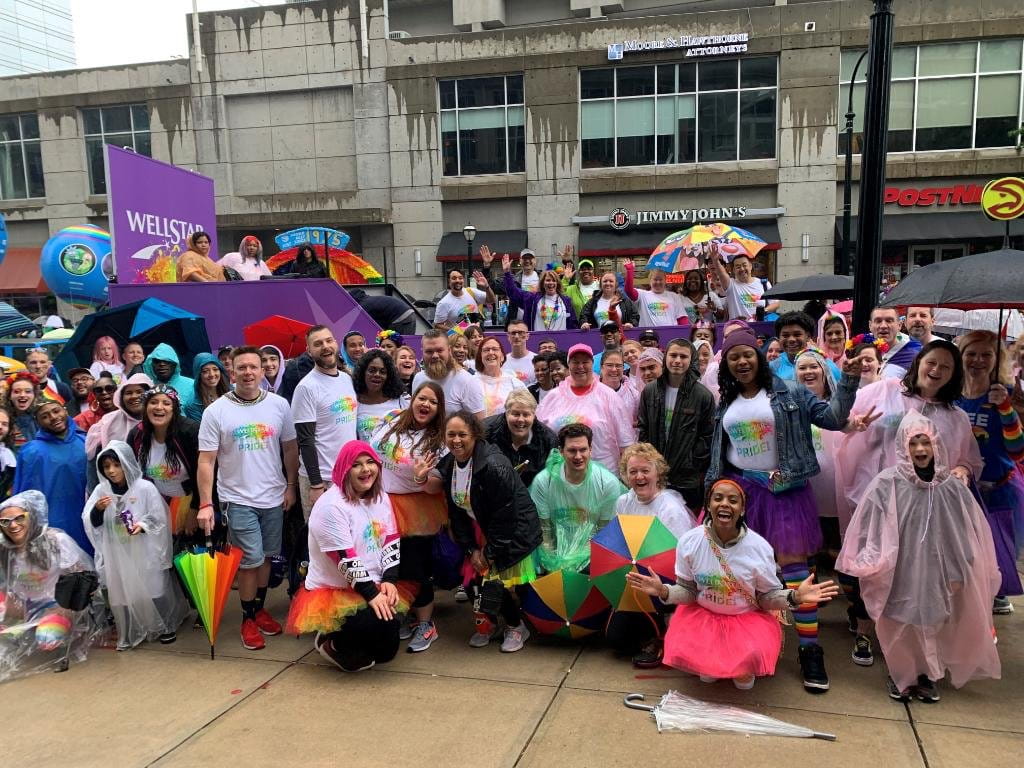
Wellstar was recognized on the Atlanta Business Chronicle’s 2021 Healthiest Employers list in the “Extra Large Company” category as one of only two health systems included. Healthiest Employers recognizes the innovative organizations that have created robust healthy workplace programs and companies that go “above and beyond to create a culture of wellness.”
Wellstar was included in this prestigious list as an organization that takes proactive measures to “better the lives of employees through innovative programs and leadership commitment.”
The assessment measures wellness programming in six categories: leadership commitment, foundational components, strategic planning, communication and marketing, programming and interventions, and reporting and analytics.
In addition to serving its mission to enhance the health and well-being of everyone in the communities it serves, Wellstar invests significantly in its more than 24,000 team members across Georgia, with broad and innovative resources, programs, and initiatives. From wellness rooms, concierge services, fitness facilities and services, and childcare support, to paternity leave, wellness apps, and mental health services and hotlines, Wellstar is committed to putting people first and caring for those who provide care for Georgians each and every day.

Prevent Summer Spike
By Dr. Danny Branstetter
While the Delta variant has contributed to a sharp increase in new COVID cases, there are still steps we can take to protect ourselves and others.
"The Delta variant is extremely contagious and responsible for the recent summer spike in COVID cases seen all over the world, including here in Georgia," said Dr. Danny Branstetter, medical director of infection prevention for Wellstar Health System. "The best protection against COVID is prevention, and now is the time to prioritize getting vaccinated, practicing safety measures, and getting tested if you are experiencing symptoms or have been exposed."
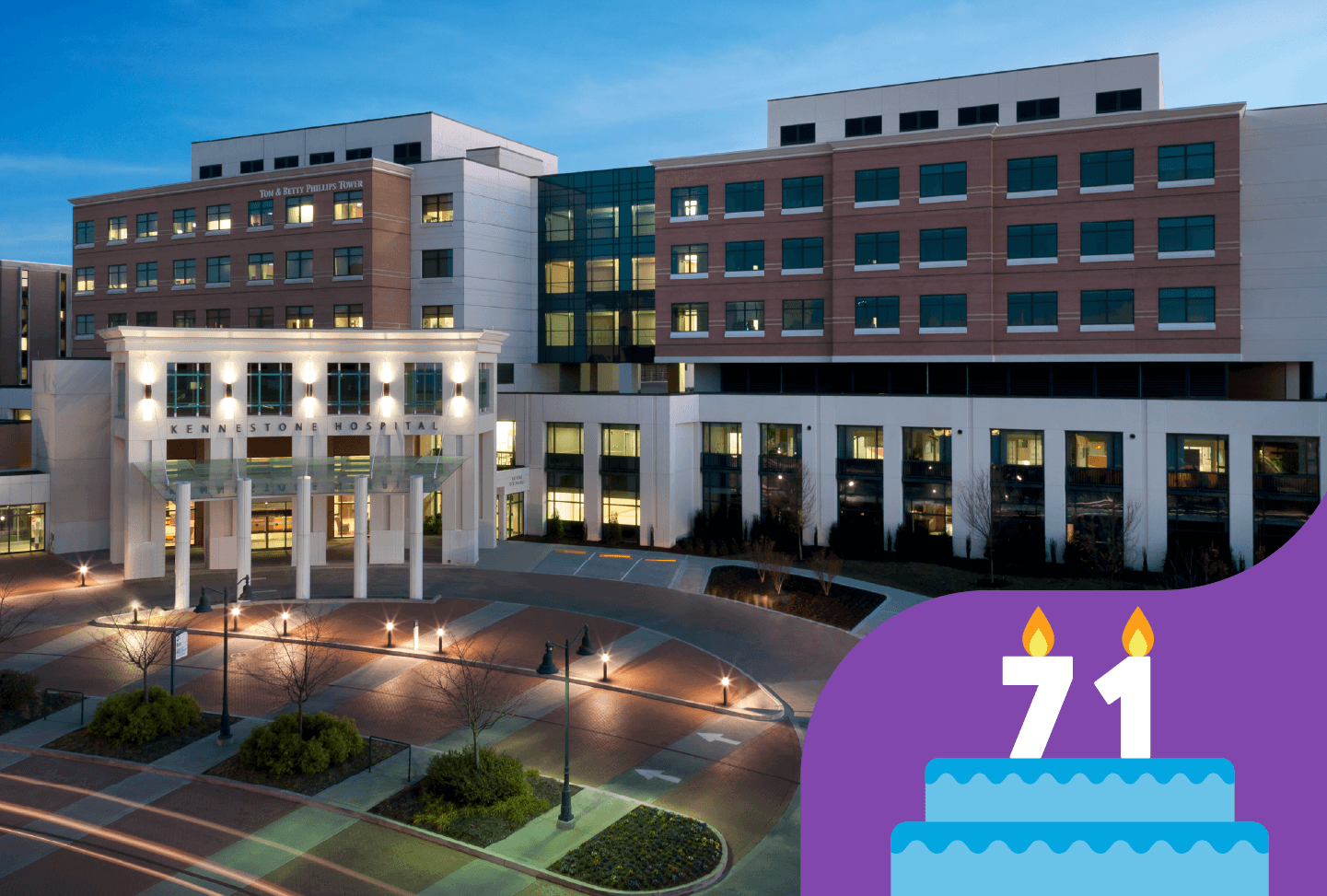
Wellstar Kennestone Hospital Celebrates 71 Years of Community Service and Care Excellence
Wellstar Kennestone Hospital, the largest hospital in the nationally recognized nonprofit Wellstar Health System, is celebrating its 71st anniversary. In addition, Wellstar Kennestone is marking a year of significant accomplishments and accolades that include national emergency and trauma care designations, as well as community and national recognition for service and care excellence.
“Wellstar Kennestone Hospital has proudly provided lifesaving and compassionate care to Georgians for 71 years,” said Mary Chatman, Wellstar Health System executive vice president and president of Wellstar Kennestone and Windy Hill Hospitals. “We are an integral part of the community we serve, and so grateful for the support we have received over the past year, which has been especially challenging for everyone.”
“Our exceptional and dedicated team members stand ready to serve the community’s healthcare needs with excellence and compassion,” said Marianne Hatfield, chief nursing officer at Kennestone. “As one of the largest and busiest hospitals in the state, recent designations and accolades we have received simply underscore what we are committed to doing every day: providing expert medical care to people, no matter their age or stage in life.” Founded on June 27, 1950, Wellstar Kennestone Hospital marked its 71st anniversary this week by hosting a small reception to thank hardworking and selfless team members, dedicated community members, and key supporters.
Wellstar Kennestone has a rich history of delivering quality care for Georgians, and has received many national and regional accolades and certifications for care excellence over the years. The hospital recently received the highest level of recognition for emergency cardiac care in Georgia and was designated a Level I Emergency Cardiac Care Center by the Georgia Department of Public Health, Office of Cardiac Care.
Wellstar Kennestone Hospital was also verified as one of only four Georgia Level II Trauma Centers by the American College of Surgeons. This achievement recognizes the Trauma Center's dedication to providing optimal care for injured patients.
Wellstar operates the largest trauma network in Georgia, with Wellstar Kennestone managing one of the nation's newest and largest emergency departments, with state-of-the-art care for pediatric and adult patients. The new emergency department is connected to the main hospital and is located near the intersection of Church and Cherry Streets at 115 Cherry Street NE, Marietta, Georgia 30060.
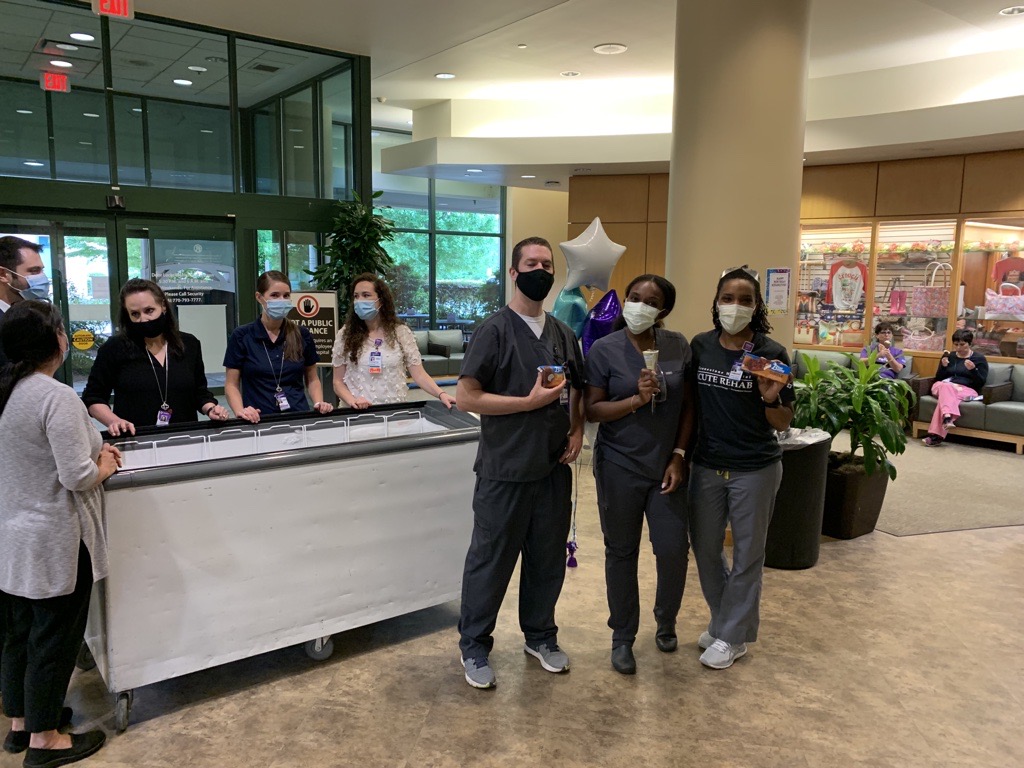
Wellstar Kennestone Hospital celebrated its 71st anniversary by hosting an ice cream social to thank team members for providing outstanding and compassionate care to the community.
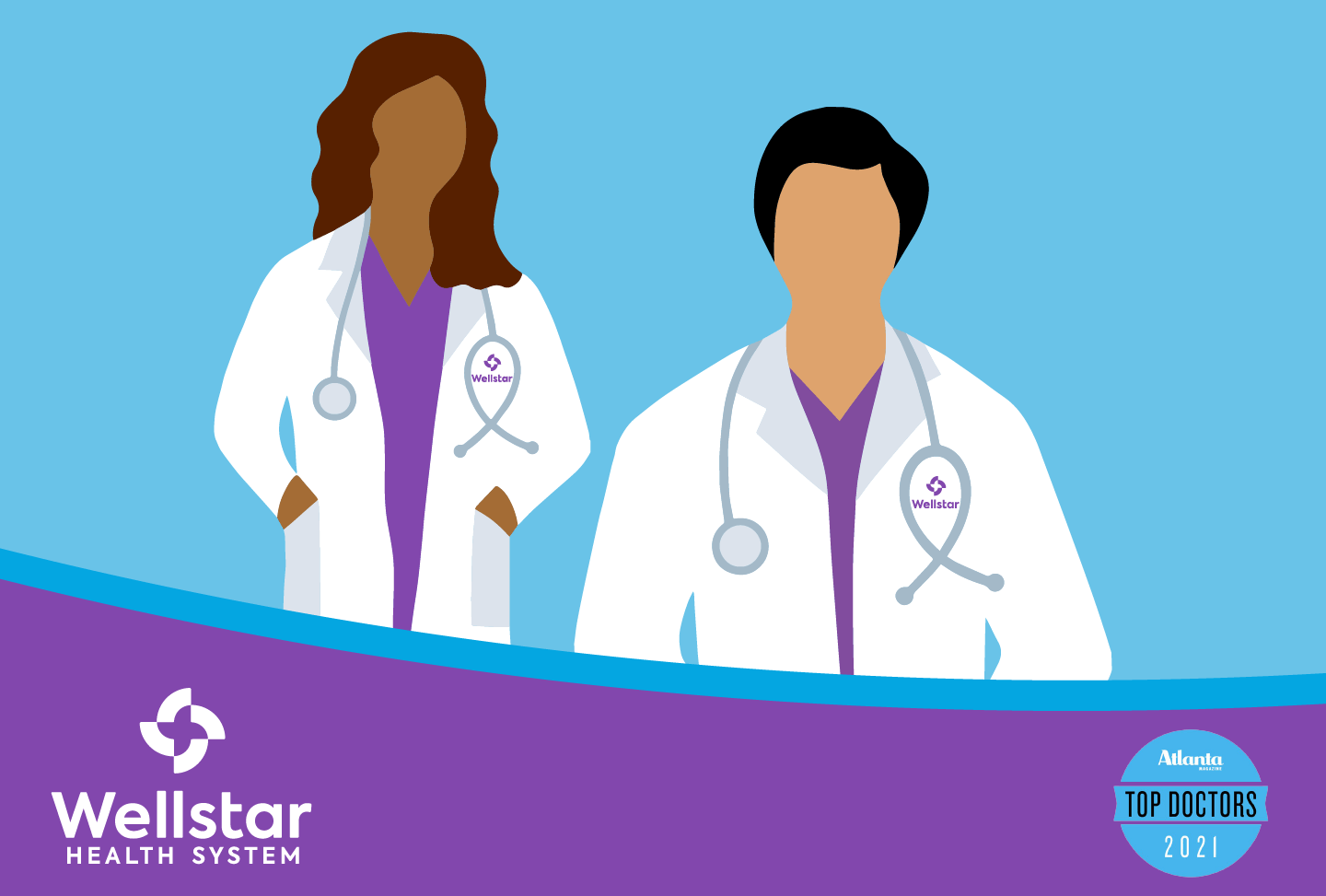
Wellstar Physicians Named as “Top Doctors” in Atlanta Magazine’s 2021 List
Wellstar Health System has announced that Atlanta magazine recognized 79 Wellstar physicians on its 2021 "Top Doctors" list in the July issue. This list is compiled annually from nominations by physicians whom they consider to be among the top experts in their region for their medical specialty. The number of Wellstar doctors named to the distinguished list increased 14% from 2020 to 2021.
"As a community-based, non-profit health system, Wellstar physicians are focused on providing high-quality patient-centered care to everyone who comes through our doors," said Dr. John Brennan, executive vice president and chief clinical integration officer of Wellstar Health System. "Wellstar is extremely proud of the doctors recognized by this prestigious list published annually by Atlanta magazine, as well as all of our team members, who are committed to delivering outstanding care to every person, every time."
Atlanta magazine's "Top Doctors" list is compiled by Castle Connolly Medical Ltd., a leading healthcare research and information company founded to help consumers reach America's top doctors and hospitals. Physicians are nominated by their peers and selected after a rigorous screening process that reviews professional, educational, and patient care excellence. The final list with detailed information about the doctors’ education, training, and medical expertise is included in Atlanta magazine's July 2021 issue. Below is the complete list of Wellstar physicians who were honored on the 2021 list.
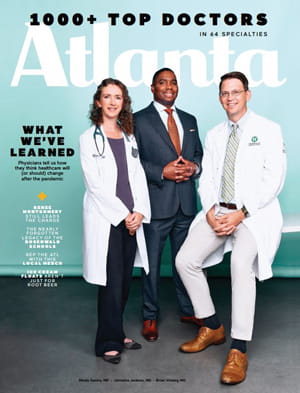
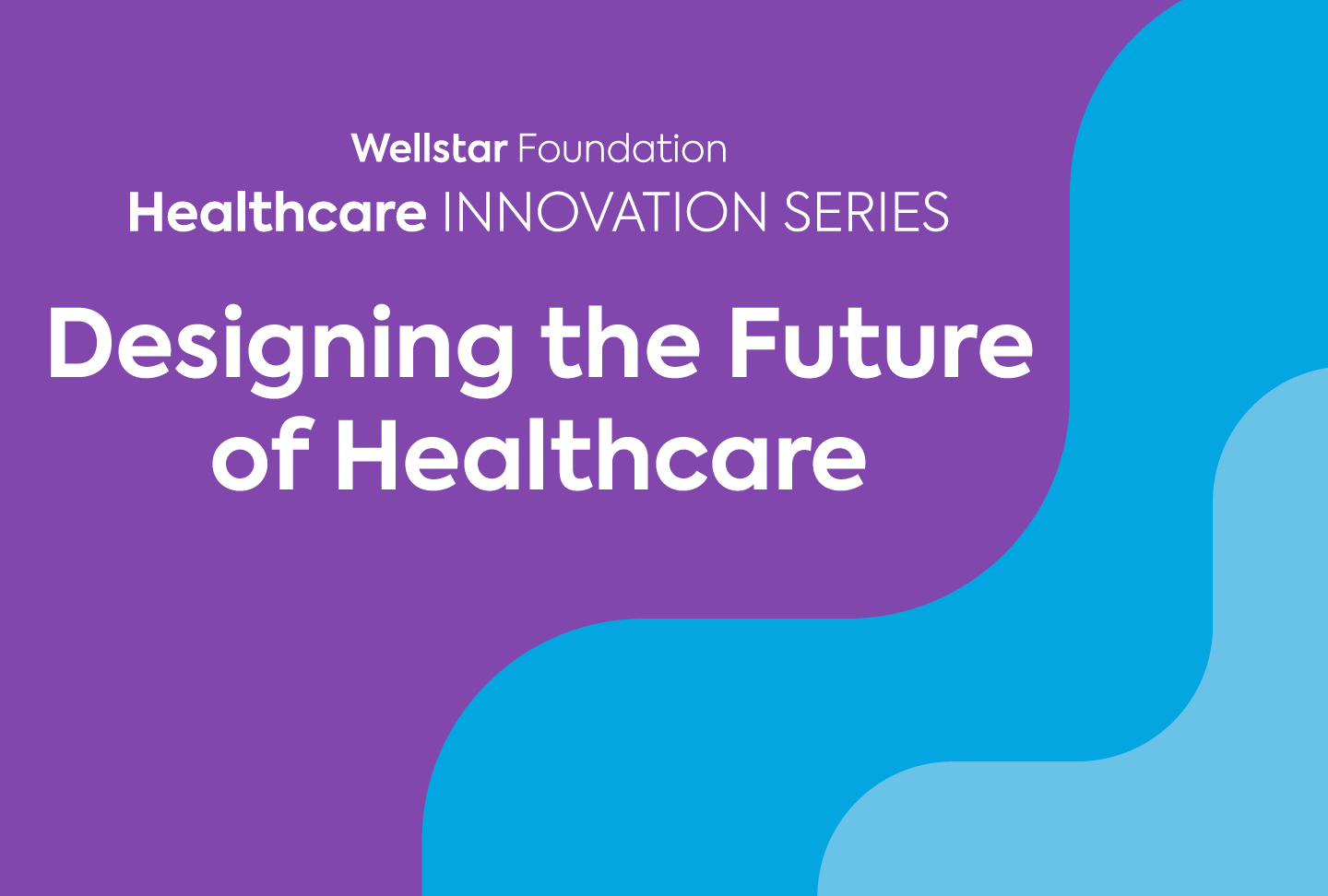
Wellstar Innovation Series Explores Future of Healthcare
More than 100 participants attended the virtual roundtable event, which included a panel discussion and breakout sessions focused on leading technologies that have the potential to transform healthcare. The panel was moderated by Julie Teer, senior vice president of Wellstar and president of the Wellstar Foundation. Panelists included:
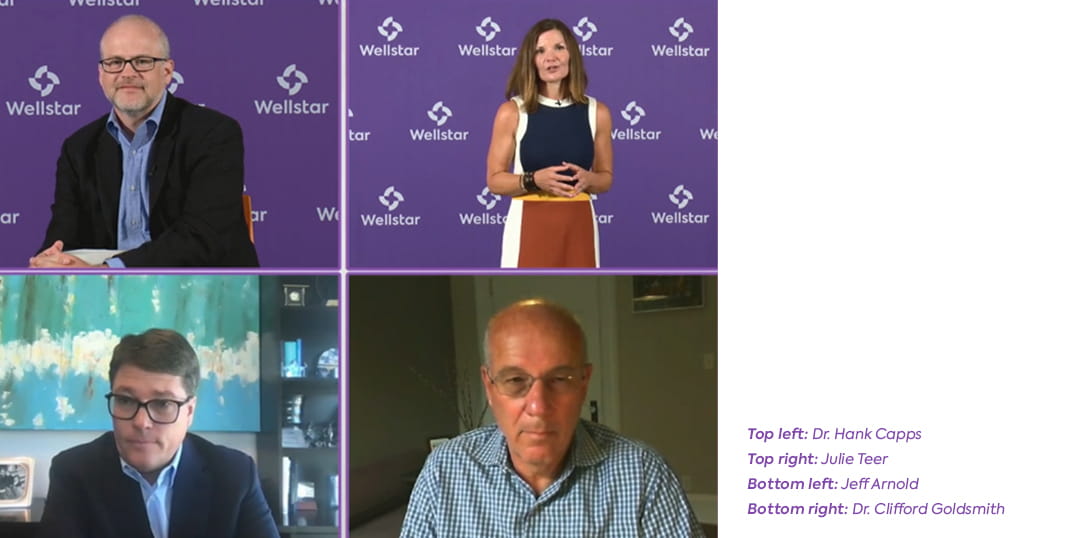
“There has never been a time in healthcare when getting the technology strategy right was more imperative than now,” Dr. Goldsmith said. “There is a massive transformation underway in healthcare to significantly increase clinician productivity and enable teamwork across the care continuum, which will be a huge boost to patient satisfaction. Thank you to Wellstar for hosting this important conversation to fuel innovation.”
Digital health is transforming healthcare through integrating innovation and advanced technology into patient care, improving quality of care and expanding access. In addition to the panel, three breakout sessions facilitated conversation about leading-edge, advanced technologies, including:
Physician leaders from Wellstar Medical Group provided expert insights in the breakout discussions on the potential applications and impacts of these technologies on the future of healthcare. Physician experts included:
“The future of healthcare is not a 2025 vision – it is a 2021 reality,” said Sharecare’s Arnold. “Georgia continues to strengthen its position as a global center for public health, information technology, and digital media; and Wellstar is at the center with their focus on partnerships and healthcare innovation. Discussions such as the Wellstar Innovation Series help create momentum around viable solutions that will address gaps in care and a make a meaningful difference in the health and well-being of communities throughout the Peach State and beyond.”
The event followed Wellstar’s March 3, 2021 announcement that it will become the country’s first Sharecare-enabled health system, and the May 18, 2021 launch of Catalyst by WellstarTM, the first-of-its-kind global digital health and innovation center created and operated within a health system. Catalyst by Wellstar is designed to harness, accelerate, optimize, and scale people-centric solutions that:
To further fuel healthcare transformation, Wellstar also announced a partnership with Engage, a collaborative innovation and corporate venture platform. Wellstar is the only healthcare company to partner with Engage, alongside other partners Chick-fil-A, Cox Enterprises, Delta Air Lines, Georgia-Pacific, Georgia Power Foundation, Georgia Tech, Goldman Sachs, The Home Depot, Inspire Brands, Intercontinental Exchange, Invesco, Invest Georgia, Tech Square Ventures, and UPS.
The Wellstar Foundation’s Innovation Series convenes thought leaders, community partners, and industry experts in a series of roundtable discussions to explore how to transform healthcare to better serve Georgians. The conversations aim to facilitate collaboration that will lead to meaningful action and a pathway to transforming healthcare in Georgia. The series covers topics of health equity, digital health technologies, behavioral health and wellness, women’s health and pediatrics, and workforce planning.
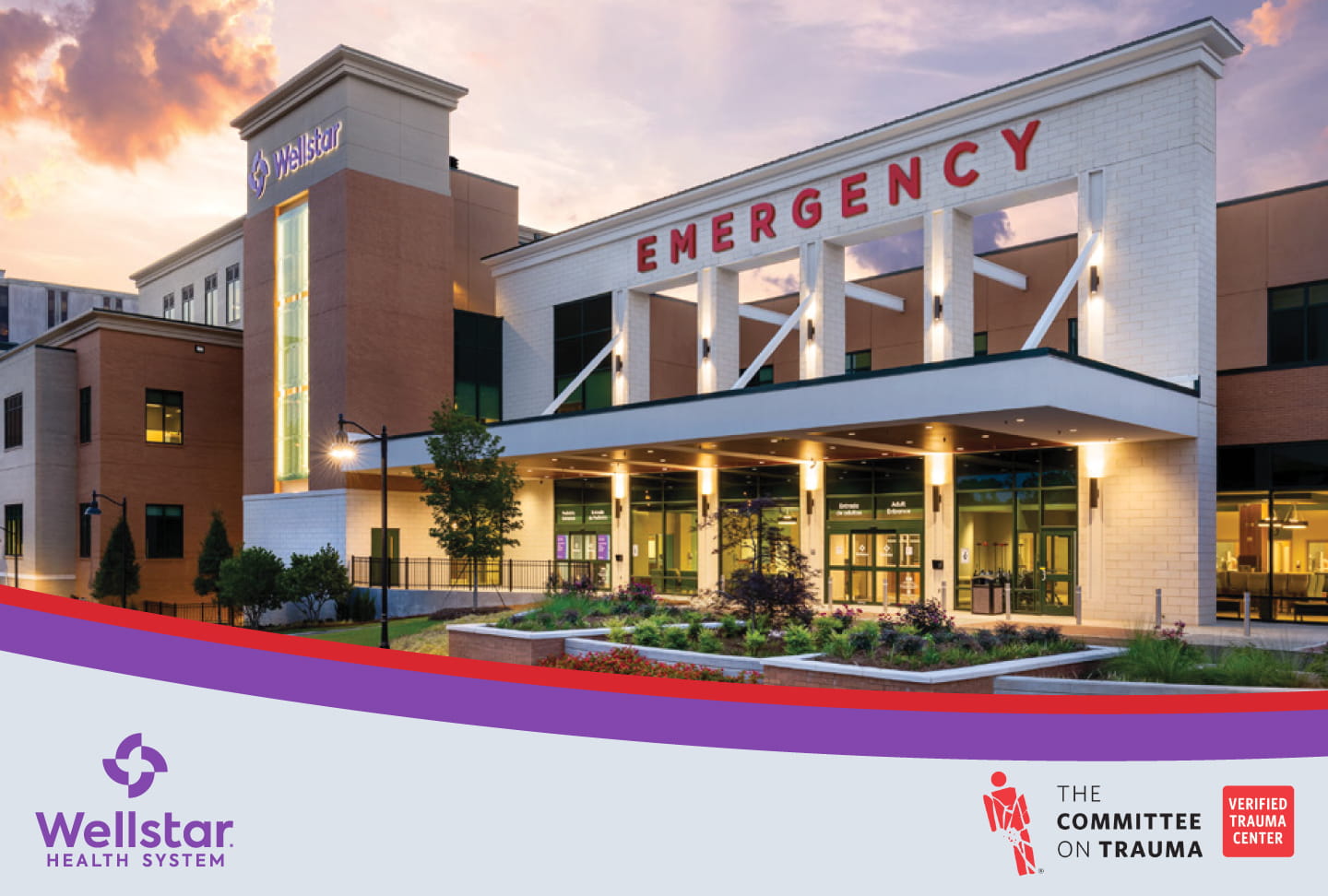
Wellstar Kennestone Hospital Verified as Level II Trauma Center by American College of Surgeons
Wellstar Health System, which has the largest trauma network in the state, has announced that the Wellstar Kennestone Hospital Trauma Center has been verified as one of only four Georgia Level II Trauma Centers by the American College of Surgeons (ACS). This achievement recognizes the Trauma Center's dedication to providing optimal care for injured patients.
Building on Wellstar’s commitment to healthcare excellence, the system was also named a top-five finalist for the American Hospital Association’s 2021 Quest for Quality Prize and had 130 physicians – representing almost 26% of the total list – named as Georgia Trend “Top Doctors.”
Wellstar operates the largest trauma network in Georgia, with Wellstar Kennestone’s new state-of-the-art emergency department, which opened in July 2020, being one of the largest and busiest in the nation. Kennestone provides comprehensive trauma care, with 24/7 access to on-site trauma, critical care trained surgeons, and a wide range of surgical subspecialties to consistently meet the needs of the most seriously injured patients following the highest care, quality and safety standards.
Established by the ACS in 1987, the Committee on Trauma’s (COT) Consultation/Verification Program for Hospitals promotes the development of trauma centers. Participants provide the hospital resources and level of care necessary to address the needs of all injured patients across the entire trauma continuum of care. Trauma center verification provides a structure for trauma care that can raise the overall level of performance throughout a hospital.
This prestigious verification recognizes the Wellstar Kennestone Trauma Center’s commitment to providing the highest quality of care for injured patients, spanning community outreach and injury prevention efforts, emergency trauma, operative care, critical care, and rehabilitation.
"Receiving this verification further validates the exceptional life-saving care we provide at Wellstar Kennestone for patients who have suffered from all ranges of traumatic injury," said Mary Chatman, Wellstar Health System executive vice president and president of Wellstar Kennestone and Windy Hill Hospitals. "We are so proud of the Trauma Center team's commitment to ensuring that all patients get the appropriate care in a timely and coordinated manner because our communities rely on Wellstar to provide the very best care for every person, every time."
Trauma is the leading cause of death and disability between ages 0-44 and the fourth leading cause of death overall. According to the Georgia Trauma Foundation, nine main causes account for 92.1% of trauma in Georgia. The leading causes of major trauma are motor vehicle crashes (37.7%); falls (22.2%); gunshot wounds (8.0%); motorcycle crashes (5.4%); pedestrian incidents (5.2%); assaults (4.3%); accidents (4.0%); stab wounds (2.9%) and all-terrain vehicle crashes (2.4%).
As an additional indicator of excellence, Wellstar was one of only five national American Hospital Association 2021 Quest for Quality Prize finalists. The award recognizes healthcare leadership and innovation in providing, improving, and advancing health in communities.
Nominees are highlighted for partnering with community organizations to improve health outcomes, developing new models of care, and collaborating with patients to design the patient care experience. One way that Wellstar addresses vital community needs to enhance health and wellness is via the Wellstar Center for Health Equity (WCHE). Over the past year, the WCHE orchestrated multiple, high-impact initiatives, including free pop-up COVID-19 testing, mobile food markets, and anchoring vulnerable patients with resources, benefiting thousands of Georgians. Wellstar was also honored for pandemic response efforts, including quickly leveraging telehealth to serve patients, creating team member mental wellness programs, and allocating and redeveloping resources across the system.
The May issue of Georgia Trend included the 2021 “Top Doctors,” the second annual listing of the state’s top physicians. Close to 26% of the physicians on the list were part of the Wellstar Health System enterprise, totaling 130 doctors across the majority of categories.
Physicians deemed by Georgia Trend as “outstanding” span Wellstar’s service areas, facilities, and service lines, including cardiology, neurology, gynecologic oncology, pulmonology, internal medicine, family medicine, emergency medicine, radiology, endocrinology, pediatric orthopedics, spine surgery, and sports medicine, among others. The physicians are selected via peer voting and review of government information sources. Inclusion on this list of the top medical experts in the state further validates Wellstar’s commitment to world-class healthcare.

Wellstar Announces First-of-its-Kind Global Digital Health and Innovation Center
Building on a rich history of innovation and impact in healthcare delivery, Wellstar Health System has launched Catalyst by WellstarTM, a global digital health and innovation center.
As part of the center’s work, Wellstar has partnered with corporate innovation and venture platform Engage to connect and collaborate with industry-leading corporations, enterprise startups, and universities to fuel innovation. To foster meaningful discussion, action, and philanthropy around healthcare innovation, the Catalyst by Wellstar leadership team will participate in a Wellstar Foundation-hosted Innovation Series virtual event on June 15.
Catalyst by Wellstar is the first-of-its-kind global digital health and innovation center created and operated within a health system to holistically address healthcare disruption by harnessing problems, solutions, investments, and partnerships across industries. The center defines and drives leading-edge, transformative solutions that enhance the health and well-being of people and communities with world-class results and impact.
As technology continues to advance and consumers become more empowered by digital solutions and information access, innovation to solve problems and seize opportunities will evolve and impact how healthcare is delivered and used. Wellstar is committed to transforming healthcare through problem sourcing from patients, community members, physicians and team members, and partners to lead mission-driven innovation. Catalyst by Wellstar is designed to harness, accelerate, optimize, and scale people-centric solutions that:
“Innovation is vital to our mission of enhancing the health and well-being of every person we serve, today and into the future,” said Candice L. Saunders, president and CEO, Wellstar Health System. “Catalyst by Wellstar positions us to lead change across our system, communities, and the healthcare industry.”
Catalyst by Wellstar convenes and activates best-in-class entrepreneurs, philanthropists, innovation ecosystems, research and development experts, corporate partners, academicians and scientists, and thought leaders inside and outside of the healthcare industry. The center will encompass innovation that drives positive impact related to:
“There is endless opportunity to transform healthcare in positive and meaningful ways,” said Dr. Hank Capps, executive vice president and chief information and digital officer, Wellstar Health System. “With Catalyst by Wellstar, our system is poised to purposefully drive innovation faster than the speed of change through thought leadership and collaboration. Our global digital health and innovation center will equip Wellstar to transform the way healthcare is delivered for years to come.”
The first Catalyst by Wellstar partnership is an investment in Atlanta-based Engage, a first-of-its-kind collaborative innovation and corporate venture platform. Engage brings together industry-leading corporations, enterprise startups, and universities with the shared mission of elevating Atlanta and the Southeast as a leading technology and innovation hub. Wellstar is the only healthcare company to partner with Engage. Saunders has joined Engage’s board of directors and Capps has been named to the Engage Advisory Board.
“As a regional and national healthcare leader, Wellstar brings critical industry perspective to the Engage platform,” said Daley Ervin, managing director of Engage. “Our corporate partners are facing challenges posed by large-scale digital transformation and rapidly evolving customer expectations. Through this partnership, Wellstar will benefit from the expertise of a broad network of industry-leading companies while also leveraging the startup and university research ecosystem on their journey to design the future of healthcare.”
As a result of Wellstar’s investment in Engage, the system will have the opportunity to collaborate with startup technology companies as part of the innovation process, alongside other Engage partners: Chick-fil-A, Cox Enterprises, Delta Air Lines, Georgia-Pacific, Georgia Power Foundation, Georgia Tech, Goldman Sachs, The Home Depot, Inspire Brands, Intercontinental Exchange, Invesco, Invest Georgia, Tech Square Ventures, and UPS. The Engage Fund is managed by Tech Square Ventures. Engage’s exclusive partnership with Georgia Tech, one of the country’s top research and technology commercialization universities, provides unique access to its startup, innovation, and research initiatives.
“Healthcare is one of the strategic areas of focus for UPS and I am thrilled to welcome Wellstar to the Engage partnership," said Matt Guffey, president of Global Strategy and Transformation at UPS and Engage Advisory Board member.
The second Wellstar Foundation Healthcare Innovation Series virtual roundtable will take place on June 15, 2021 from noon to 1:30 p.m. The event will focus on “Designing the Future of Healthcare,” with emphasis on the role of technology and innovation. The Series convenes community, philanthropic, and thought leaders to facilitate conversation and collaboration to propel the transformation of healthcare. More than 100 participants attended the inaugural event and engaged in discussion about how to enhance health equity. For more information, contact [email protected].
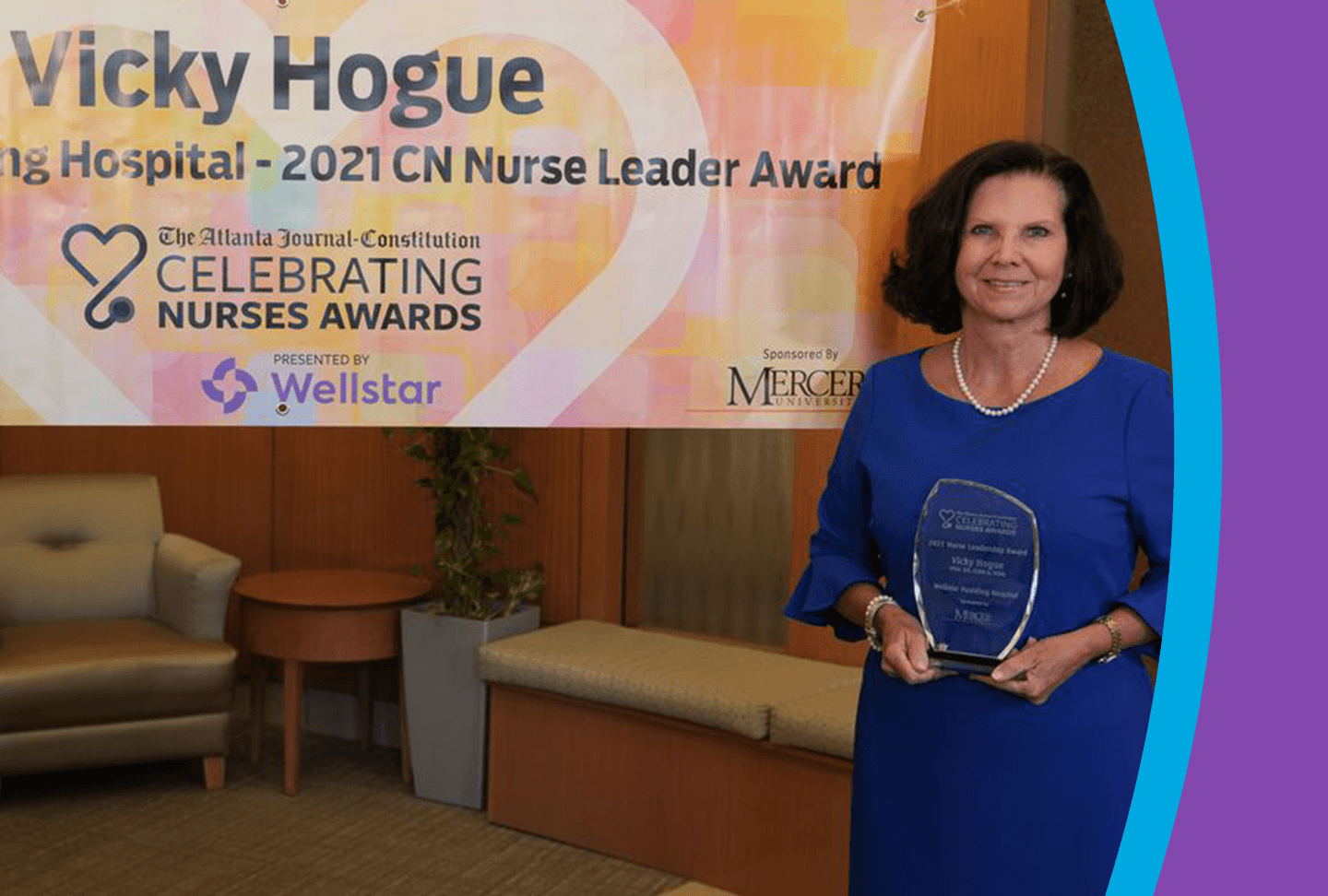
Wellstar Wraps Up Special Week of Gratitude for Nurses
Wellstar Health System wrapped up a weeklong celebration of its healthcare heroes during National Healthcare Week and National Nurses Week honoring team members for their selfless service, sacrifices, and dedication amid the pandemic. Wellstar team members were also recognized by the Atlanta Journal-Constitution and Atlanta Business Chronicle for outstanding work and serving their communities with compassion and excellence.
The Atlanta Journal-Constitution’s 16th Annual Celebrating Nurses Awards honored four Wellstar nurses, including selecting Vicky Hogue, chief nursing officer at Wellstar Paulding Hospital, as the Nurse Leadership Award recipient. Hogue will celebrate 41 years with Wellstar in August and her background includes working as a critical care and ICU nurse. When the pandemic began, she said that the crisis was exactly what she and her fellow nurses have trained for — answering the call to care for the community. In addition to nursing leadership, Hogue was highlighted for serving as a nurse advocate at the local, state, and national levels, volunteering to administer COVID-19 vaccinations and providing unwavering support for team members. Given annually to an outstanding nurse director, Hogue was chosen from 47 nominees to receive the Nurse Leadership Award.
Additional honorees included:
• Clayton Fowler, Wellstar Kennestone Hospital: A registered nurse for 11 years, Fowler helped to care for some of Wellstar’s sickest ICU patients during the height of the pandemic. In March 2020, Wellstar Kennestone was converted to take care of critical COVID-19 patients, and Fowler served on the frontlines providing life-saving therapies, such as extracorporeal membrane oxygenation (ECMO) treatment.
• Laurie Pazda, Wellstar Kennestone Hospital: A veteran nurse with more than 20 years of service, Pazda works in the cardiac intensive care unit and helped provide care for intubated COVID-19 patients designated to negative pressure rooms.
• Laura Moss, Wellstar Spalding Regional Hospital: Moss became a registered nurse in 2019 and immediately started a career of service by providing compassionate care to Wellstar patients. During the pandemic, Moss served as an extended family member to many COVID patients and helped the family of one intubated COVID-19 patient communicate with distant family members by setting up nightly FaceTime visits.
Wellstar held systemwide Nurses Week award celebrations, events, and activities to congratulate honorees and thank Wellstar team members for their dedication and resiliency throughout the pandemic. The Wellstar Nursing Excellence Awards spotlighted nurses at each hospital nominated by their peers for elevating the field of nursing and enhancing the health and well-being of patients. Employees also shared “Videos of Gratitude” showing appreciation for fellow team members.
Three Wellstar team members were also announced as finalists in Atlanta Business Chronicle’s 2021 “Healthcare Heroes” Awards, including two in the Nurse category and one in the Community Outreach category. The finalists are Vicky Hogue (chief nursing officer, Wellstar Paulding Hospital), Nadine Lynch (ICU unit manager, Wellstar Kennestone Hospital) and Dr. Shara Wesley (assistant vice president, Community Health and Wellstar Center for Health Equity). The awards acknowledge “the outstanding work on the frontlines” of the COVID-19 pandemic during an “exceptional year,” and winners will be announced on May 28.
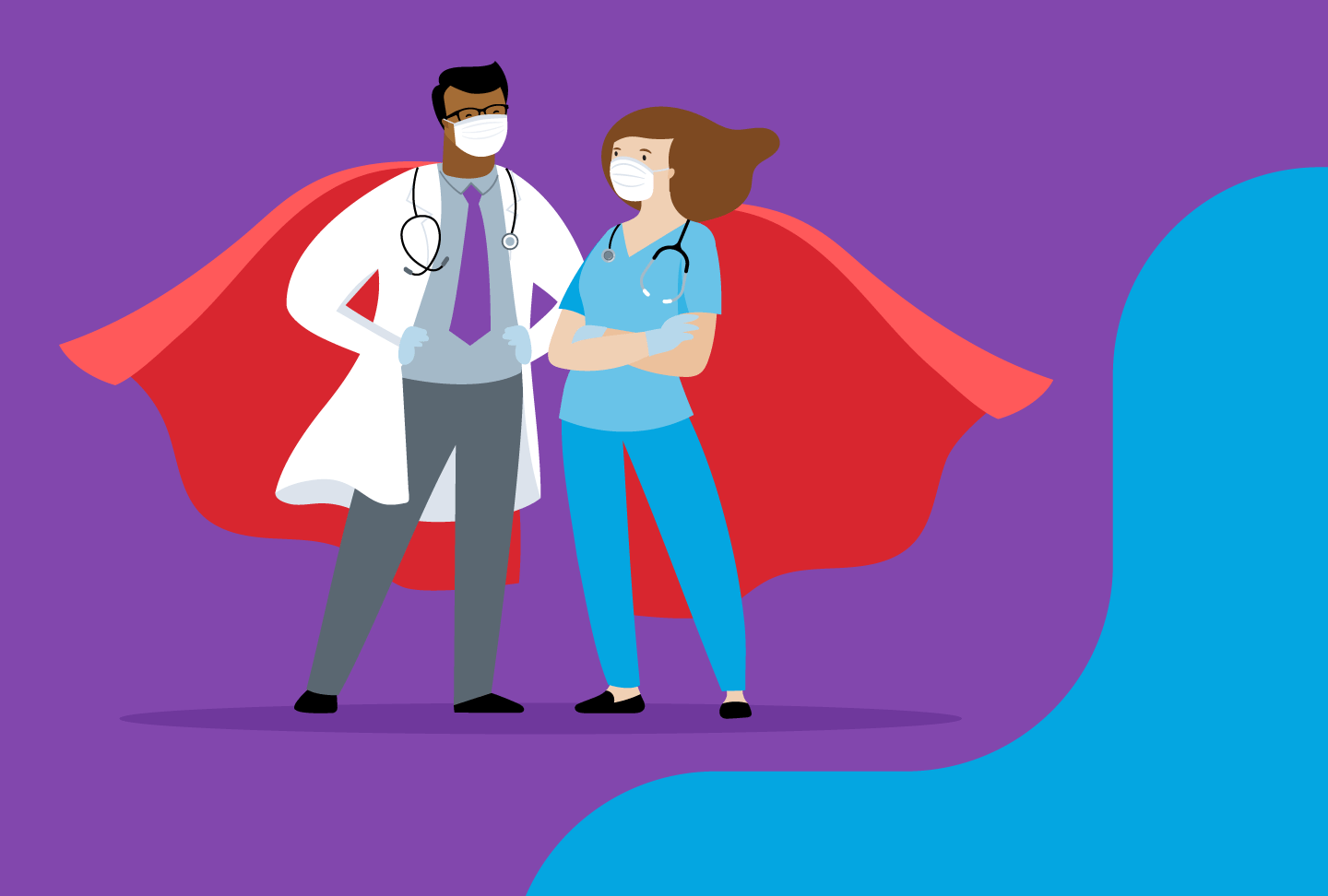
Wellstar Announces “Healthcare Heroes” Award Finalists
During National Nurses Week, Wellstar Health System is celebrating three finalists in Atlanta Business Chronicle’s 2021 “Healthcare Heroes” Awards, including two in the Nurse category and one in the Community Outreach category. The awards acknowledge “the outstanding work on the frontlines” of the COVID-19 pandemic during an “exceptional year,” and highlight some of the many healthcare professionals who have created positive impact through their leadership.
Nursing professionals are instrumental in providing expert, compassionate care, no matter the medical circumstance. The 7,300 nurses at Wellstar are valued and vital caregivers for patients, communities, families, and each other, which has been pivotal to navigating the pandemic.
Two of the three finalists in the Nurse category are Wellstar nursing professionals:
• Vicky Hogue, chief nursing officer, Wellstar Paulding Hospital. Hogue’s background as a critical care and ICU nurse has been instrumental in serving as a leader throughout the pandemic and across her 41-year career. Her leadership is noteworthy and marked by Wellstar Paulding Hospital’s recent recognition as a recipient of the prestigious Malcolm Baldrige Award for performance excellence.
• Nadine Lynch, ICU unit manager, Wellstar Kennestone Hospital. Lynch cares for some of the sickest patients who need extracorporeal membrane oxygenation (ECMO) treatment for vital blood oxygenation, along with many of the facility’s COVID-19 patients. She knows it’s important to focus on more than just the medical care they need, which is why she is always considering ways to ignite her patients’ passions to meet their mental and emotional needs, which aids the healing process.
Both of these nurse leaders have emphasized that close teamwork and collaboration have helped them to achieve positive impact at Wellstar, with people at the center of everything they do.
The Wellstar finalist in the Community Outreach category is:
• Dr. Shara Wesley, assistant vice president, Community Health and Wellstar Center for Health Equity (WCHE). As a convener of thought leaders, community advocates, and action drivers, Wesley has demonstrated over a distinguished career her commitment to public and community health in nearly every facet of the industry.

The WCHE – an extension of Wellstar’s long history of community engagement and allyship to provide people-centric care – was formed under her leadership to drive lasting change at a grassroots level through activating strategic partnerships with government agencies, businesses, philanthropies, non-profit organizations, academia, and citizens.
Qualifications for the awards are that “the nominee must be: employed in the healthcare industry; based in metro Atlanta; and have at least one year in the nominated position or role, and with the same company.” Finalists were selected from nominations for healthcare professionals across Metro Atlanta that highlighted stories of outstanding work with “passion, expertise, and patient care” over the past year. Entries were judged by a panel of editorial staff members from Atlanta Business Chronicle. Winners of the “Health Care Heroes” awards will be announced and featured in a special section of Atlanta Business Chronicle on May 28.
Last month, Great Place to Work® and Fortune honored Wellstar Health System as one of the 100 Best Companies to Work For®, Wellstar’s fourth time on this prestigious list of the best companies to work for in the nation. Wellstar is the only Georgia-based healthcare company included in the 2021 ranking; only two other companies headquartered in Georgia were included in this year’s list.

Wellstar Addresses Persistent Health Inequities
The system continues to build on its legacy and commitment to serving communities by actively listening to best understand and respond to what consumers want, need, and expect from their healthcare provider.
“As a leader in healthcare, we must take action to meet the evolving needs of people and communities. Health equity connects to everything we do, and recognizing hardships, disparities, and inequities is just the first step,” said Candice L. Saunders, president and CEO of Wellstar Health System. “Through strategic partnerships and programs, Wellstar is committed to supporting people and communities to make a tangible and lasting difference, enhancing the health and well-being of everyone we serve.”
The Wellstar Center for Health Equity (WCHE) – an extension of Wellstar’s long history of community engagement and allyship to provide people-centric care – was formed to drive lasting change at a grassroots level. The six areas of focus were informed by Wellstar’s triennial Community Health Needs Assessment (CHNA) of 2019: Primary Care, Behavioral Health, Food Insecurity, Suicide, Cancer, Women’s Health.
Each of these strategic domains connects to Wellstar medical service lines to bring to bear the deep expertise and broad bench of resources needed to identify pertinent needs, relevant partnerships, and viable programs.
To create meaningful impact, Wellstar has forged strategic partnerships with government agencies, businesses, philanthropies, non-profit organizations, academia, and citizens. Examples of how WCHE has activated resources in the community include:
Walk-up, pop-up family COVID-19 testing: With the support of community partners, Wellstar conducts free walk-up, pop-up family testing at churches and school lunch pick-up sites and distributes safety kits in English and Spanish. To-date, WCHE has orchestrated 29 pop-up testing sites, administered over 3,000 COVID tests, and distributed more than 51,000 wellness kits with culturally and linguistically appropriate safety information.
Reaching faith-based congregants with vital information and vaccines: WCHE is hosting a series of community town halls to debunk myths about COVID-19 and vaccines in partnership with the Wellstar Congregational Health Network. In April, WCHE hosted a Hispanic town hall to address community questions and launched a series of equity-centric and language-proficient vaccination clinics for congregants at faith-based organizations.
Providing nutritious meals to food-insecure communities: In partnership with Goodr, an organization that provides food resources for people in need, and funded in part by Wellstar Foundation donations, the WCHE “Mobile Market” hosts “pop-up” farmers’ markets in seven communities, feeding over 700 families monthly.
Enabling technology-driven community health transformation: WCHE launched a year-long initiative to enhance access to medical care via technology with leading community partners. Supported by contributions to the Wellstar Foundation, the “Community Health Transformation” program enables the following community organizations to reach, engage, and support at-risk individuals with measurable results: Bethesda Community Clinic; Empowerment Resource Center; Healthy Mothers, Healthy Babies Coalition of Georgia; Good Samaritan Health Center of Cobb; and MUST Ministries.
Anchoring vulnerable patients with vital healthcare resources: When the Centers for Disease Control and Prevention (CDC) reported that 80% of COVID-19 patients in eight Georgia areas were Black people, WCHE developed “Anchoring Vulnerable Patients,” a project in Clayton County to assess and address the medical and social needs of Black patients with co-morbidities that put them at risk for contracting COVID-19.

Wellstar Health System Celebrates Accolades
Wellstar Health System, one of the largest healthcare systems in Georgia, announces multiple accolades, including national, regional and local recognition for facilities, service lines and leaders. Awards and accreditations for quality, safety, performance excellence and community service exemplify Wellstar’s commitment to world-class healthcare.
“Dedication to excellence is a hallmark of Wellstar,” said David Jones, executive vice president and chief human resources officer of Wellstar. “People are at the center of everything we do. Achieving these accolades is a testament to our team’s hard work to enhance the health and well-being of every person, every time. It is not only our mission—it is our calling and our honor to offer tailored, compassionate healthcare to the people we serve.”
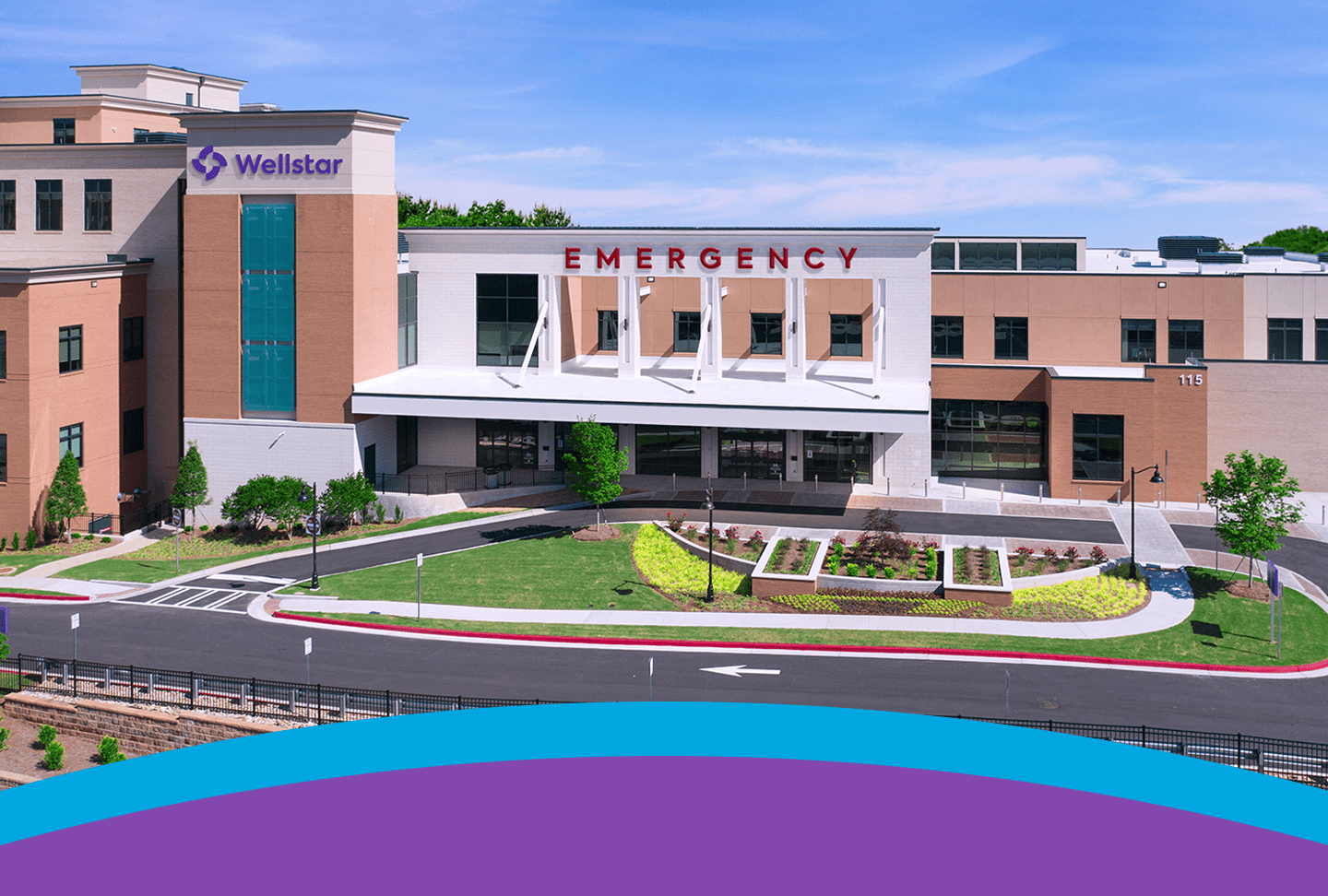
Wellstar Kennestone Hospital Wins Best in Real Estate Award
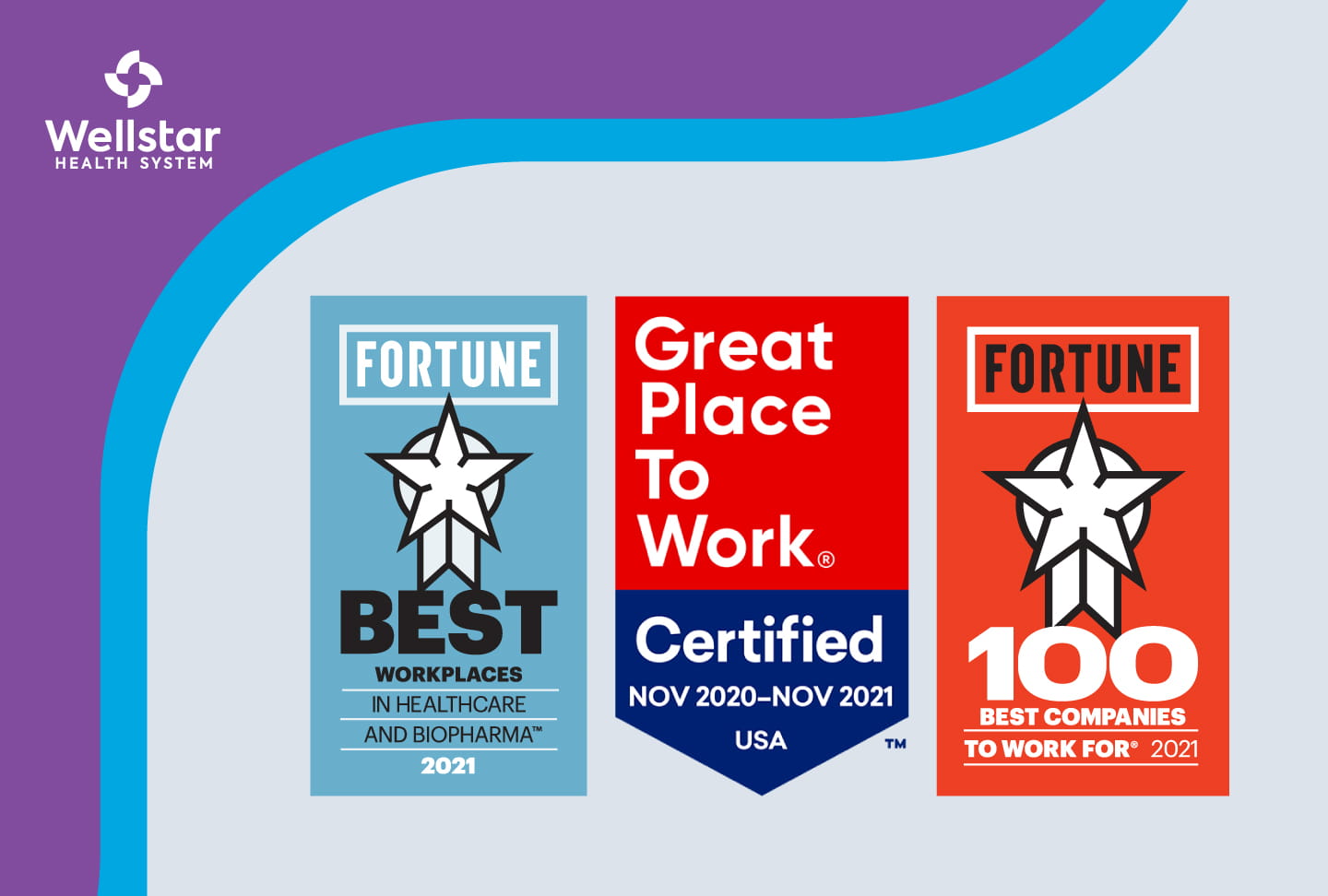
Wellstar named Great Place to Work® & Fortune 100 Best Companies to Work For®
Wellstar Health System is recognized as one of the best companies to work for in the country for the fourth time; People-centric programs, benefits, and culture foster an inclusive, team-based workplace
Great Place to Work® and Fortune have honored Wellstar Health System, one of the largest and most integrated healthcare systems in Georgia, as one of the 100 Best Companies to Work For®. This is Wellstar’s fourth time on this prestigious, national list. Wellstar is the only Georgia-based healthcare company included in the 2021 ranking; only two other companies headquartered in Georgia were included in this year’s list.
“In a year of immeasurable challenges, our Wellstar team members and caregivers have remained focused on our mission to enhance the health and well-being of everyone we serve,” said Candice L. Saunders, president and CEO, Wellstar Health System. “Earning the 100 Best Companies to Work For award is a testament to their bravery and unwavering commitment to providing people-centric care for millions of Georgians.”
The Fortune 100 Best Companies to Work For® award is based on analysis of survey responses from more than half a million current employees across the U.S. In that survey, 79% of Wellstar’s employees said Wellstar is a great place to work. By comparison, the average percentage of employees in the U.S. who say their company is a great place to work is only 59%.
"Offering the resources, support, and workplace culture team members need to be their best benefits everyone and everything we do,” said David Jones, executive vice president and chief human resources officer, Wellstar Health System. “We care for our employees so they can care for our community. We are grateful for the recognition from Fortune and, especially, for the all the people who make Wellstar a great place to work.”
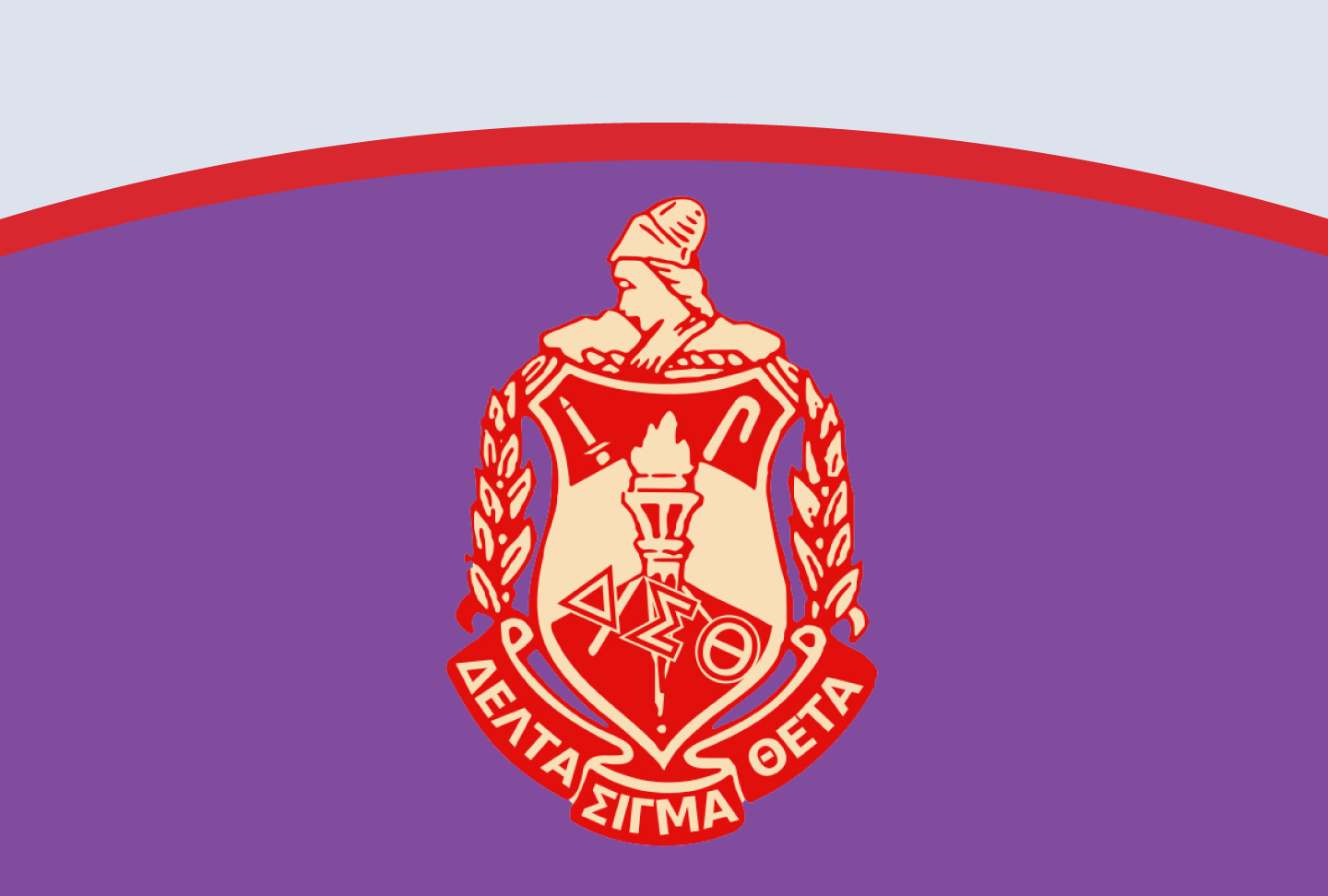
Delta Sigma Theta, Inc. National President and CEO, Members Get COVID-19 Vaccine at Wellstar
Wellstar and Delta Sigma Theta, Inc., the largest African American women's organization in the world with more than 350,000 college-educated members, have united to reach vaccine-reticent populations in Georgia by sharing personal “My Why” stories and reasons for receiving the COVID-19 vaccine.
Who: Beverly E. Smith, national president and CEO of Delta Sigma Theta Sorority, Inc., joined Wellstar team members in sharing a personal reflection about receiving the COVID-19 vaccine. A recent poll found that Black voters in Georgia are less sure about vaccine safety than another racial or ethnic group, with 36 percent reporting that they are unsure if the vaccine is safe or not. The video aims to tackle these concerns and offer hope for the future as more Georgians become fully vaccinated. Delta Sigma Theta Sorority Inc. national president and CEO, Beverly E. Smith, joins Wellstar team members in sharing a personal reflection about receiving the COVID-19 vaccine.
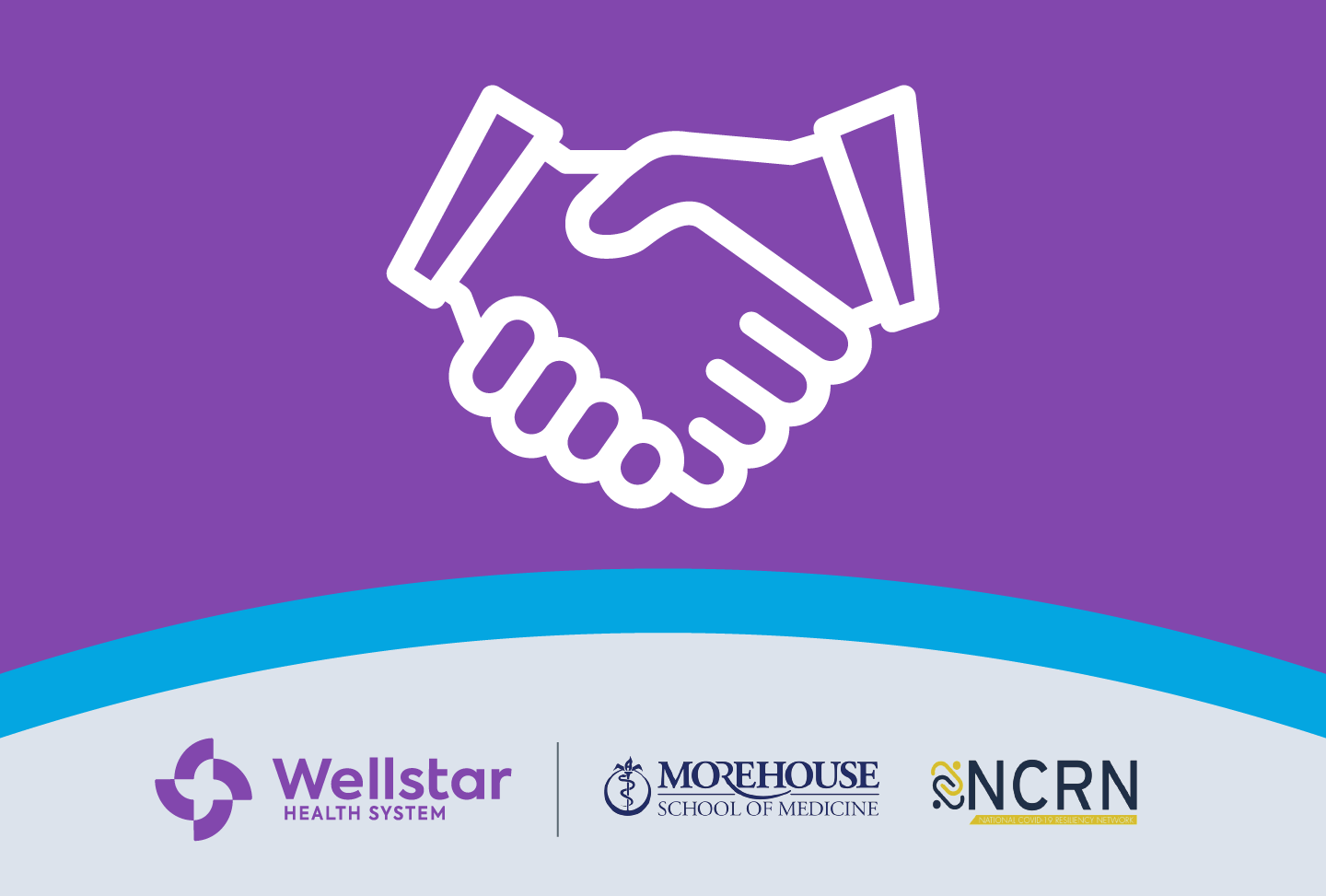
Wellstar Partners with Morehouse School of Medicine to Support At-Risk Populations
Responding to vital needs among vulnerable communities during the pandemic, Wellstar is the first Georgia-based health system to become a national partner in new initiative
Wellstar Health System has joined Morehouse School of Medicine (MSM)’s National COVID-19 Resiliency Network (NCRN) of partners to further inform community-driven response, recovery, and resiliency strategies for addressing the impact of COVID-19 on communities.
In response to the needs of at-risk communities across the health system’s service areas, Wellstar has partnered with the MSM-NCRN and its 40 network partners across the U.S. to collaborate on offering COVID-19-related services to disproportionately impacted communities. As a not-for-profit system dedicated to providing “More than Healthcare. PeopleCare.” Wellstar is committed to addressing inequities that impact the health and well-being of people and communities through more than 450 community partnerships, Wellstar Community Health initiatives, and activities led by the Wellstar Center for Health Equity (WCHE).
One of the most critical barriers to health during the pandemic has been consumer access to reliable, science-based, culturally appropriate, and native language information resources, which the partnership will facilitate. Wellstar is the first Georgia-based health system to become a national partner in this important, new initiative.
“Wellstar is pleased to partner with Morehouse School of Medicine to provide vital information and resources for at-risk communities,” said Candice L. Saunders, president and CEO, Wellstar Health System. “The NCRN is a strong complement to the important work that our Wellstar Center for Health Equity is doing, and we are thankful for the collaboration.”
Morehouse School of Medicine’s National COVID-19 Resiliency Network Builds Community Resiliency
The MSM-NCRN coordinates a strategic and structured national network of national, state/territorial/tribal and local public and community-based organizations that, together, will work to mitigate the impact of COVID-19 on racial and ethnic minority and rural populations. The network helps to provide awareness of culturally appropriate health education information and linkage to care, helping organizations and families recover from pandemic difficulties. In addition to educational and informational resources in at least 10 languages to accommodate cultural competency, initiatives will include COVID-19 testing, vaccinations following phases directed by DPH, training opportunities for community leaders.
“Our national network connects individuals, families, community organizations and clinical providers to timely and relevant COVID-19 information and services in their neighborhood,” says Dominic Mack, MD, MBA, professor of family medicine and director of the National COVID-19 Resiliency Network in the National Center for Primary Care at MSM.
“Morehouse School of Medicine’s National COVID-19 Resiliency Network is designed to not only provide structure to the resources that are on the ground-level fighting this pandemic but is an important resource for our partners in serving the underserved and getting people the healthcare they need,” said Valerie Montgomery Rice, MD., MSM president and dean. “Organizations such as Wellstar here in Georgia, its Wellstar Center for Health Equity, and the partnerships we cultivate, are critically important to the mission of health equity and in fighting and defeating COVID-19.”
Wellstar Center for Health Equity Addresses Health Inequities across Georgia
The WCHE addresses health inequities across Georgia to enhance the health and well-being of the people and communities served by Wellstar. Through partnerships such as the one with MSM-NCRN, the WCHE implements multi-disciplinary approaches to address deeply entrenched social disparities and healthcare gaps. Programs led by the WCHE over the past year include walk-up, pop-up COVID-19 family testing; distribution of masks and safety kits to at-risk communities; Congregational Health Network communications, collaboration, information, and support; Spanish-language educational information for Latinx communities; a technology-driven Community Transformation initiative for local non-profits; joint Webinars on health equity topics in collaboration with Partnership for Southern Equity, Atlanta Regional Collaborative for Health Improvement (ARCHI), and Georgia Health Policy Center; and a series of “Mobile Market” free farmer’s market-style grocery shopping experiences for hundreds of families with Goodr.
The partnership between Wellstar and MSM-NCRN will extend the organizations’ reach and resources to enhance information access and drive positive impact.
The NCRN launch follows a $40 million award from the U.S. Department of Health and Human Services Office of Minority Health to coordinate a strategic network focused on delivering COVID-19-related information to communities hardest hit by the pandemic. The launch of the NCRN occurs alongside the release of new digital technology accessible through the NCRN website. It provides location-based recommendations on where community members can get a COVID-19 test or receive a COVID-19 vaccine when distribution increases in the coming months.
Learn more about our COVID-19 vaccine updates. To access MSM-NCRN COVID-19 resources, visit www.msm.edu/ncrn.
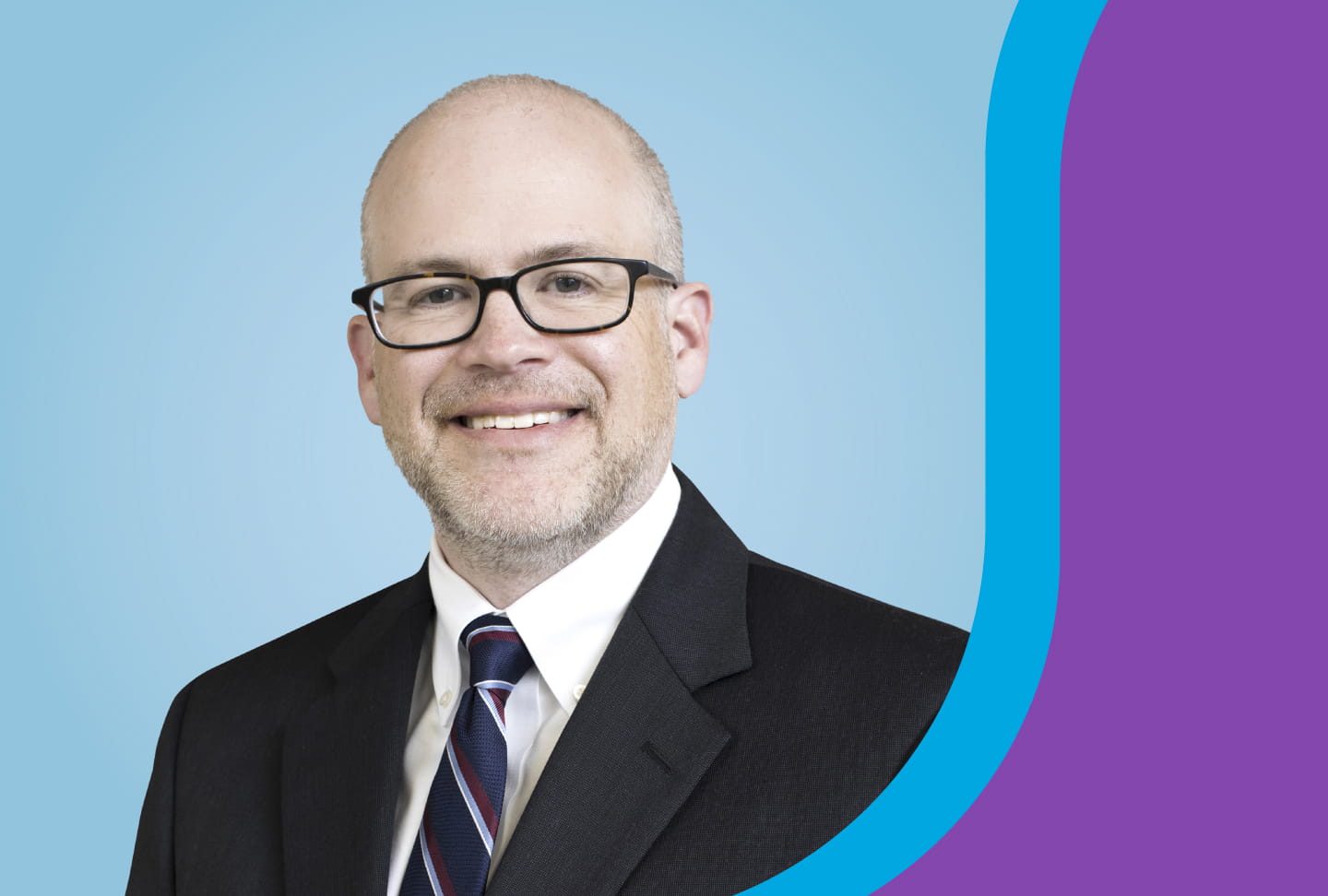
Wellstar Hires Chief Information and Digital Officer
Physician leader and digital healthcare strategist Hank Capps, MD, to drive next-generation healthcare delivery strategy for leading health system.
Wellstar has hired Hank Capps, MD, as executive vice president and chief information and digital officer. In his role, Dr. Capps will be responsible for advancing the system’s digital strategy to reimagine and enhance the consumer healthcare journey and experience, while evolving and optimizing the not-for-profit company’s operational technology-based platforms, processes, and partnerships.
Dr. Capps joins Wellstar after more than 18 years with Novant Health in North Carolina, where he held a series of clinical and administrative roles as an executive leader. His proven skills and expertise as an accomplished operator and digital healthcare strategist will further equip Wellstar to leverage advanced technology to transform healthcare with deeper patient engagement and consumer control.
“At Wellstar, we put people at the center of everything we do, and that includes our digital strategy,” said Candice L. Saunders, president and CEO, Wellstar Health System. “As both healthcare delivery and technology continue to evolve at a rapid pace, Wellstar is focused on how to accelerate and leverage the intersection of these two industries to improve patient care and outcomes. Dr. Capps is the experienced and visionary leader we need to define the path forward for our system and the communities we serve.”
The global COVID-19 pandemic has triggered an unprecedented shift in the healthcare industry, resulting in consumer and provider demand for next-generation care and tools. Dr. Capps will head a team of technology and digital healthcare experts to identify gaps and opportunities in healthcare delivery and consumer engagement to create innovative, world-class solutions that fulfill this expectation.
“Wellstar’s industry leadership in healthcare excellence is grounded in continually and intentionally enhancing both the patient and provider experience,” said Dr. Capps. “The pandemic has impacted the dynamic of that consumer journey, accelerating technology adoption and exacerbating the need for creative solutions that enable access to quality care. I am thankful for the opportunity to be part of the Wellstar team as we leverage emerging technology and innovative thinking to transform the future of healthcare.”
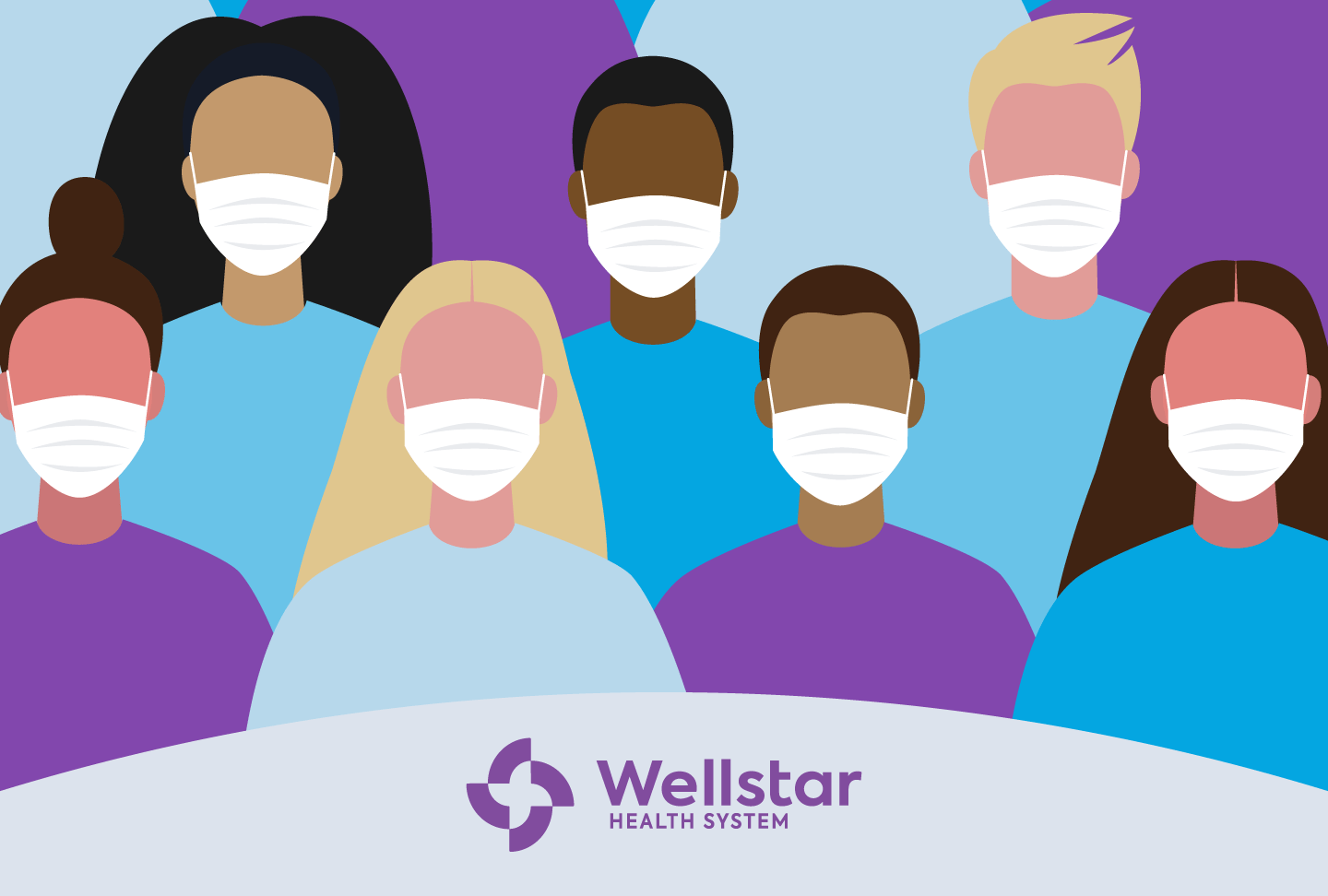
Wellstar Center For Health Equity Event To Answer Questions About COVID-19 Vaccines
The Wellstar Center for Health Equity will host a Virtual Town Hall this Thursday, March 4, at 6:30 p.m. to address community questions about COVID-19 and vaccines. To register, visit wellstar.org/townhall
Marietta, Ga. (MARCH 2, 2021) — Wellstar Health System, one of Georgia’s largest and most integrated healthcare systems, is hosting a Wellstar Center for Health Equity Virtual Town Hall with its Congregational Health Network this week.
What: The event, held in collaboration with the Wellstar Congregational Health Network, Morehouse School of Medicine National COVID-19 Resiliency Network (MSM-NCRN), and Atlanta Regional Collaborative for Health Improvement (ARCHI), will address pertinent questions about COVID-19 and vaccines with faith communities across Georgia. The 90-minute event will feature a panel of healthcare experts, including Wellstar and Morehouse School of Medicine physicians, who will address questions provided by the community in advance of and during the event, including the latest information and resources to combat COVID-19.
When: The Virtual Town Hall will be held via Zoom on Thursday, March 4, at 6:30 p.m. and will offer participants the opportunity to ask questions and get answers from healthcare experts who are dedicated to community education and outreach. Faith leaders and congregation members are invited to register at wellstar.org/townhall.
Panel: The panel of experts will include Dr. Tabia Henry Akintobi, Morehouse School of Medicine; Dr. Jeffrey Hines, Wellstar Center for Health Equity; and Dr. Zandraetta Tims-Cook, Wellstar Medical Group.
ABOUT WELLSTAR HEALTH SYSTEM
At Wellstar, people are at the center of everything we do. By listening actively to what people want, need and expect from their healthcare, Wellstar is able to provide “More than Healthcare. PeopleCare.” — at every age and stage. Nationally ranked and locally recognized for our personal, high-quality care, inclusive culture, and exceptional doctors and team members, Wellstar provides access to compassionate, high-quality care through our: 11 hospitals; 300+ medical office locations; 9 cancer centers; 74 rehabilitation centers; 3 hospice facilities; 1 retirement village; 29 imaging centers; 16 urgent care locations; and 5 health parks. As one of the largest and most integrated healthcare systems in Georgia, Wellstar is growing our services, footprint, capabilities, and ability to meet evolving patient needs. Our passion for people extends into the communities we serve. As a not-for-profit health system, we thoughtfully reinvest annually in prevention and wellness programs, as well as charity care for eligible patients. Our Wellstar Foundation also supports our mission to enhance the health and well-being of every person we serve with funding for equipment, services, and programs that provide more than healthcare.
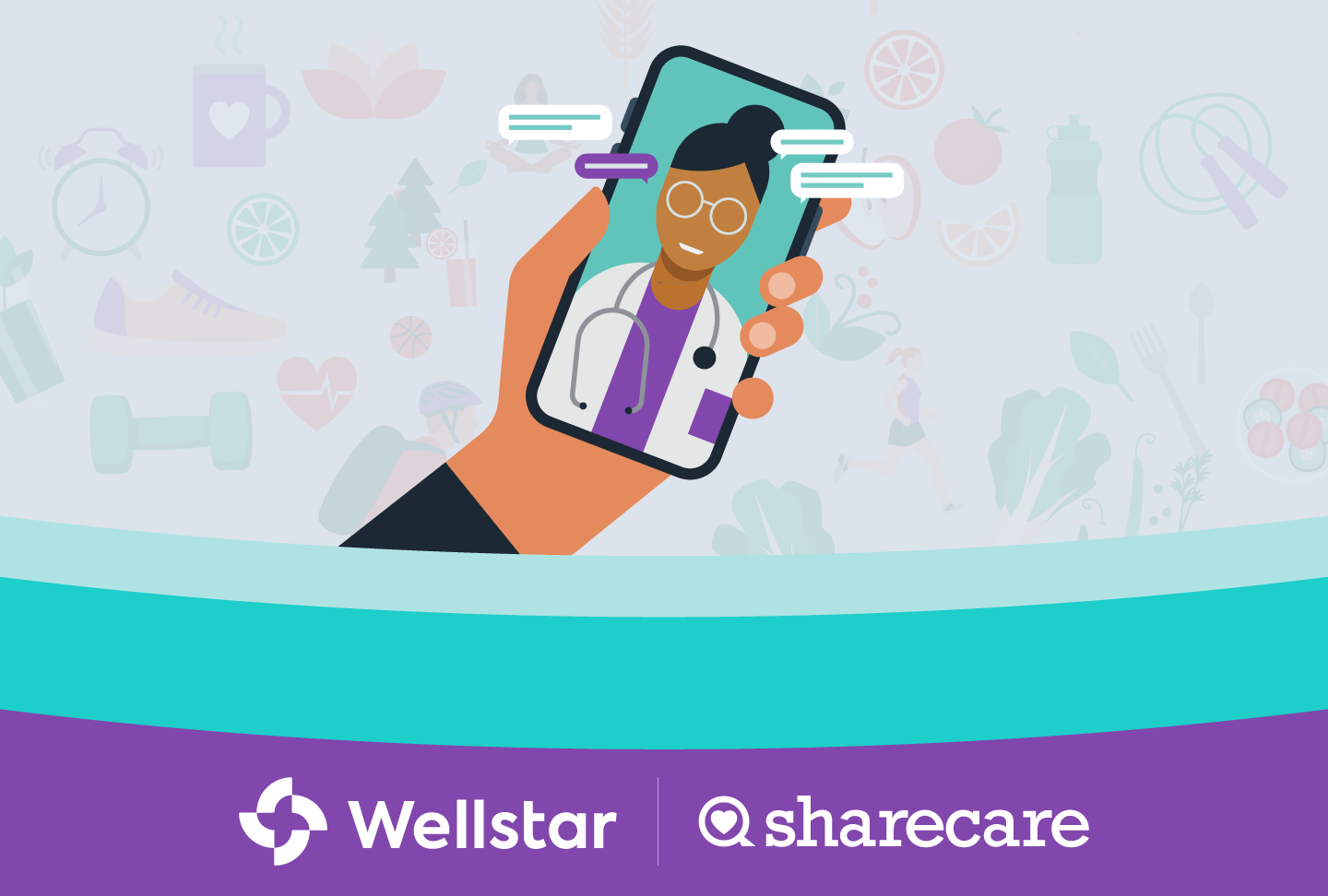
Wellstar and Sharecare Partner to Deliver Personalized Health and Wellness Platform
Wellstar Health System, one of Georgia’s largest and most integrated healthcare systems, and Sharecare, the digital health company that helps people manage all their health in one place, announced a strategic partnership to collaborate on unique, market-leading innovations in personalized care delivery, population health, and consumer engagement.
“People are at the center of everything we do,” said Candice L. Saunders, president and CEO, Wellstar Health System. “Our partnership with Sharecare was forged to deliver an innovative experience that will engage and empower people in improving their health and wellness in unprecedented ways. Together, we are building on our vision for the healthcare system of the future that empowers the consumer.”
Wellstar will leverage Sharecare’s digital engagement platform and expertise to equip its team members with enhanced resources and health information to take control of their day-to-day well-being. Through this partnership, Wellstar also will become the first “Sharecare-enabled” health system in the country, utilizing Sharecare’s solutions to accelerate the transformation to value-based care and applying resulting insights to optimize, expand, and, ultimately, re-imagine the overall consumer healthcare experience.
Sharecare delivers each person a customized digital experience where they can easily access extensive information, engagement resources, and clinically validated tools to improve their individual health and well-being, no matter where they are in their health journey. In Summer 2021, Wellstar will roll out Sharecare’s award-winning virtual care platform to its 24,000 team members to help them manage their overall physical and mental well-being and navigate related employee benefits, all in one place. In addition to the comprehensive content and resources already available through Sharecare, the two organizations will focus on innovating incentives and rewards administration that tie to engagement and outcomes and capitalize on existing Wellstar workplace well-being strategies and programs, such as employee fitness centers and biometric screening programs.
“Our team members are dedicated to caring for Georgians each and every day,” said Saunders. “That’s why it’s important that we care for them with world-class solutions that equip them to be at their best.”
As the country’s first Sharecare-enabled health system, Wellstar will work with Sharecare to co-develop consumer-facing offerings—available in Georgia through Wellstar exclusively through 2023—to achieve better health outcomes. To accomplish this, Wellstar will integrate its electronic medical record system with the Sharecare platform and utilize the digital health company’s robust portfolio of provider solutions, data management tools, and artificial intelligence capabilities to better identify and close gaps in care. Once a condition or potential care gap is identified, Wellstar providers can “prescribe” patients with additional information, digital therapeutics, and clinical programs through the secure, unified Sharecare platform, where in turn people can access those resources, monitor their progress, and, ultimately, become more engaged in their overall health and well-being.
“In addition to supporting our client partners throughout the pandemic, we have also continued to innovate and make strategic acquisitions—the collective impact of which has yielded new strategic opportunities, including accelerating our ability to bring our vision for the Sharecare-enabled health system to life,” said Jeff Arnold, founder, chairman, and CEO of Sharecare. “The key, however, was finding the right health system partner—one who shared our commitment to not only compassionate, community-driven care but also digital innovation and optimizing patient-clinician encounters through data. As a Georgian, I take pride in the fact that the ideal partner to help us realize this vision is Wellstar.”
To support the definition and development of the consumer-facing offerings, Wellstar has made a $10 million strategic investment in Sharecare, joining several investors who also are customers. The firms will collaborate on platform deployment, integration, and content strategy to drive value for all audiences, with a focus on the consumerization of healthcare and evolving the consumer healthcare experience. As Sharecare’s newest strategic partner, Wellstar is joining the company’s already impressive roster of investors, whose reach extends from the living room to doctors’ exam rooms and into the workplace. Select Sharecare strategic partners include hospitals, healthcare investment firms, and health plans, in particular HCA, Trinity Health, the Heritage Healthcare Innovation Fund and CareFirst; media companies Discovery Communications, Harpo Productions, and Sony Pictures Television; high-growth technology investment firms such as Claritas Capital; noted institutional investment funds such as Wellington Management; and other major reputable corporations such as Aflac Corporate Ventures, Quest Diagnostics, Wells Fargo, and Swiss Re. The partnership between Sharecare and Wellstar is the first of its kind for the two organizations.
The closing date of the strategic investment from Wellstar preceded the February 12, 2021 announcement that Sharecare has entered into a definitive merger agreement with Falcon Capital Acquisition Corp. (NASDAQ: FCAC), a special purpose acquisition company.
At Wellstar, people are at the center of everything we do. By listening actively to what people want, need and expect from their healthcare, Wellstar is able to provide “More than Healthcare. PeopleCare.”—at every age and stage. Nationally ranked and locally recognized for our personal, high-quality care, inclusive culture, and exceptional doctors and team members, Wellstar provides access to compassionate, high-quality care through our: 11 hospitals; 300+ medical office locations; 9 cancer centers; 74 rehabilitation centers; 3 hospice facilities; 1 retirement village; 29 imaging centers; 16 urgent care locations; and 5 health parks. As one of the largest and most integrated healthcare systems in Georgia, Wellstar is growing our services, footprint, capabilities, and ability to meet evolving patient needs. Our passion for people extends into the communities we serve. As a not-for-profit health system, we thoughtfully reinvest annually in prevention and wellness programs, as well as charity care for eligible patients. Our Wellstar Foundation also supports our mission to enhance the health and well-being of every person we serve with funding for equipment, services, and programs that provide more than healthcare.
Sharecare is the leading digital health company that helps people—no matter where they are in their health journey—unify and manage all their health in one place. Our comprehensive and data-driven virtual health platform is designed to help people, providers, employers, health plans, government organizations, and communities optimize individual and population-wide well-being by driving positive behavior change. Driven by our philosophy that we are all together better, at Sharecare, we are committed to supporting each individual through the lens of their personal health and making high-quality care more accessible and affordable for everyone. To learn more, visit sharecare.com.
Falcon Capital Acquisition Corp. is a newly incorporated blank check company whose business purpose is to effect a merger, capital stock exchange, asset acquisition, stock purchase, reorganization or similar business combination with one or more businesses or entities. While the Company may pursue on initial business combination opportunity in any industry or sector, it intends to focus on business in the media, digital media/consumer technology, mobile gaming, interactive entertainment, health wellness/lifestyle and related industries which capitalize on its management team's expertise. The Company's management team is led by Alan G. Mnuchin, the founder and chief executive officer of Ariliam Group. The Company has formed an investment partnership with Eagle Equity Partners, which is a founding investor in the Company's sponsor.
In connection with the proposed business combination, FCAC has filed a registration statement on Form S-4 (the "Registration Statement") with the U.S. Securities and Exchange Commission (the "SEC"), which includes a proxy statement/prospectus, and certain other related documents, to be used at the meeting of FCAC stockholders to approve the proposed business combination. Investors and security holders of FCAC are urged to read the proxy statement/prospectus, any amendments thereto and other relevant documents that will be filed with the SEC carefully and in their entirety when they become available because they will contain important information about Sharecare, FCAC and the proposed business combination. The definitive proxy statement/prospectus will be mailed to stockholders of FCAC as of a record date to be established for voting on the proposed business combination. Investors and security holders will also be able to obtain copies of the Registration Statement and other documents containing important information about the business combination and the parties to the business combination once such documents are filed with the SEC, without charge, at the SEC's web site at www.sec.gov, or by directing a request to: Falcon Capital Acquisition Corp., 660 Madison Avenue, 12th Floor, New York, NY 10065, Attention: Saif Rahman, Chief Financial Officer.
FCAC and its directors and executive officers, under SEC rules, may be deemed participants in the solicitation of proxies from FCAC's stockholders with respect to the proposed business combination. A list of the names of those directors and executive officers and a description of their interests in FCAC is contained in the final prospectus for FCAC's initial public offering, which was filed with the SEC on September 23, 2020, and is available free of charge at the SEC's web site at www.sec.gov, or by directing a request to Falcon Capital Acquisition Corp., 660 Madison Avenue, 12th Floor, New York, NY 10065, Attention: Saif Rahman, Chief Financial Officer. Additional information regarding the interests of such participants will be set forth in the proxy statement/prospectus for the proposed business combination when available. Each of Sharecare and its directors, executive officers and other members of its management and employees, under SEC rules, may also be deemed to be participants in the solicitation of proxies from the stockholders of FCAC in connection with the proposed business combination. A list of the names of such directors and executive officers and information regarding their interests in the business combination will be contained in the proxy statement/prospectus for the proposed business combination when available.
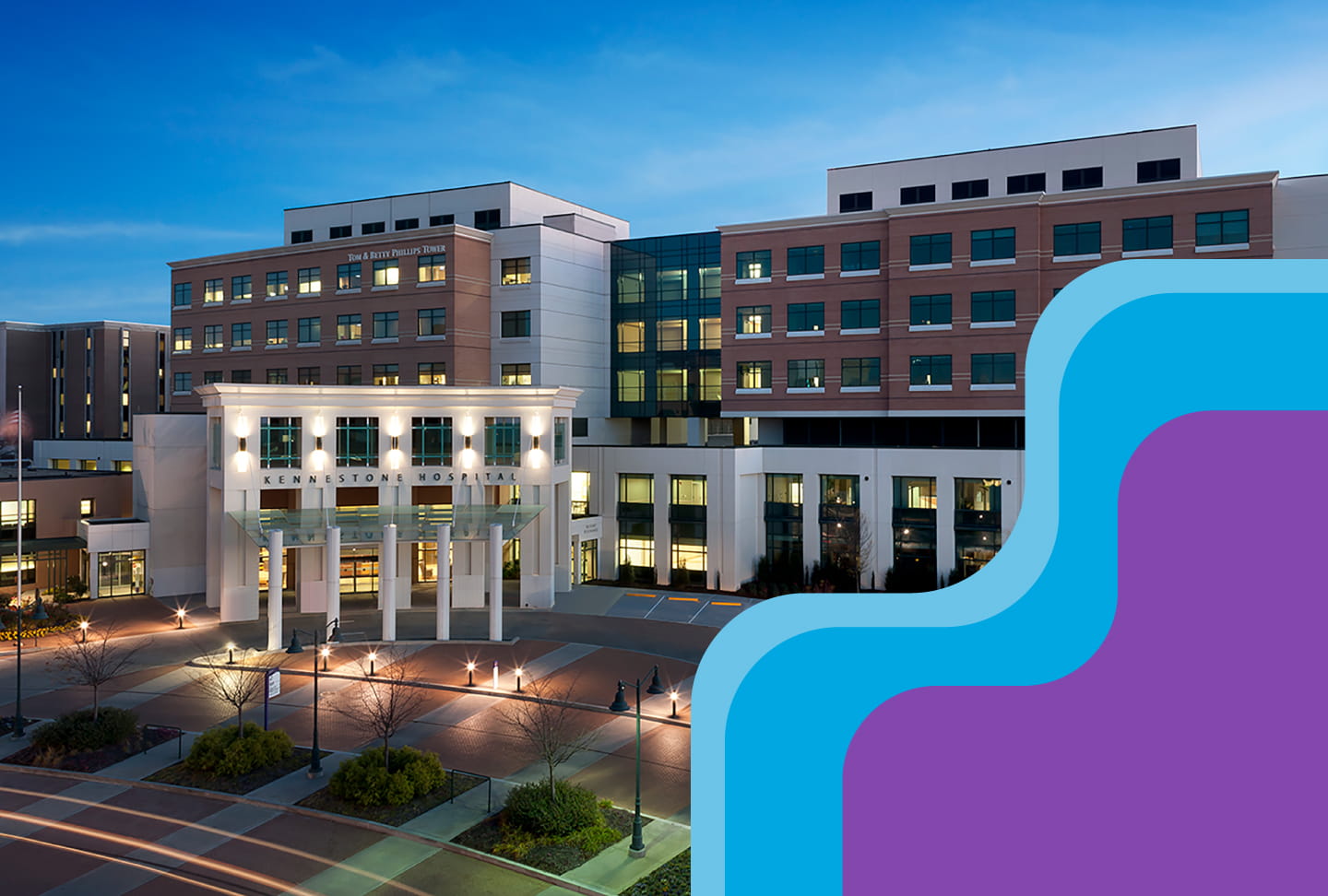
Wellstar Recognized as Cancer Treatment Leader
Wellstar Health System, one of Georgia’s largest and most integrated healthcare systems, announced that the Wellstar Cancer Network was recently recognized nationally as a cancer treatment leader. Honored with an Outstanding Achievement Award from the American College of Surgeons Commission on Cancer and designated as a Care Continuum Center of Excellence by the GO2 Foundation for Lung Cancer, the Wellstar Cancer Network continues to pioneer innovative cancer treatments and technologies to improve outcomes and quality of life for patients.
“Wellstar Health System is dedicated to providing patients with the highest quality of compassionate and personalized care,” said Dr. Michael Andrews, Chief Cancer Officer of the Wellstar Cancer Network. “We are extremely proud of the Wellstar Cancer Network and our team of highly skilled physicians, nurses and oncology support services who excel at treating the spectrum of cancer illnesses with the most advanced, patient-centric technologies and treatments. We are focused on enhancing the health and well-being of everyone we serve, with a commitment to delivering world-class cancer care.”
Wellstar earned an Outstanding Achievement Award for the third consecutive cycle from the American College of Surgeons Commission on Cancer (CoC). The highest honor in the United States awarded to a cancer program, the Wellstar Cancer Network was recognized for achieving excellence in providing care to cancer patients. Award recipients must have received commendation ratings in all seven commendation standards and receive a compliance rating for each of the 27 remaining cancer program standards.
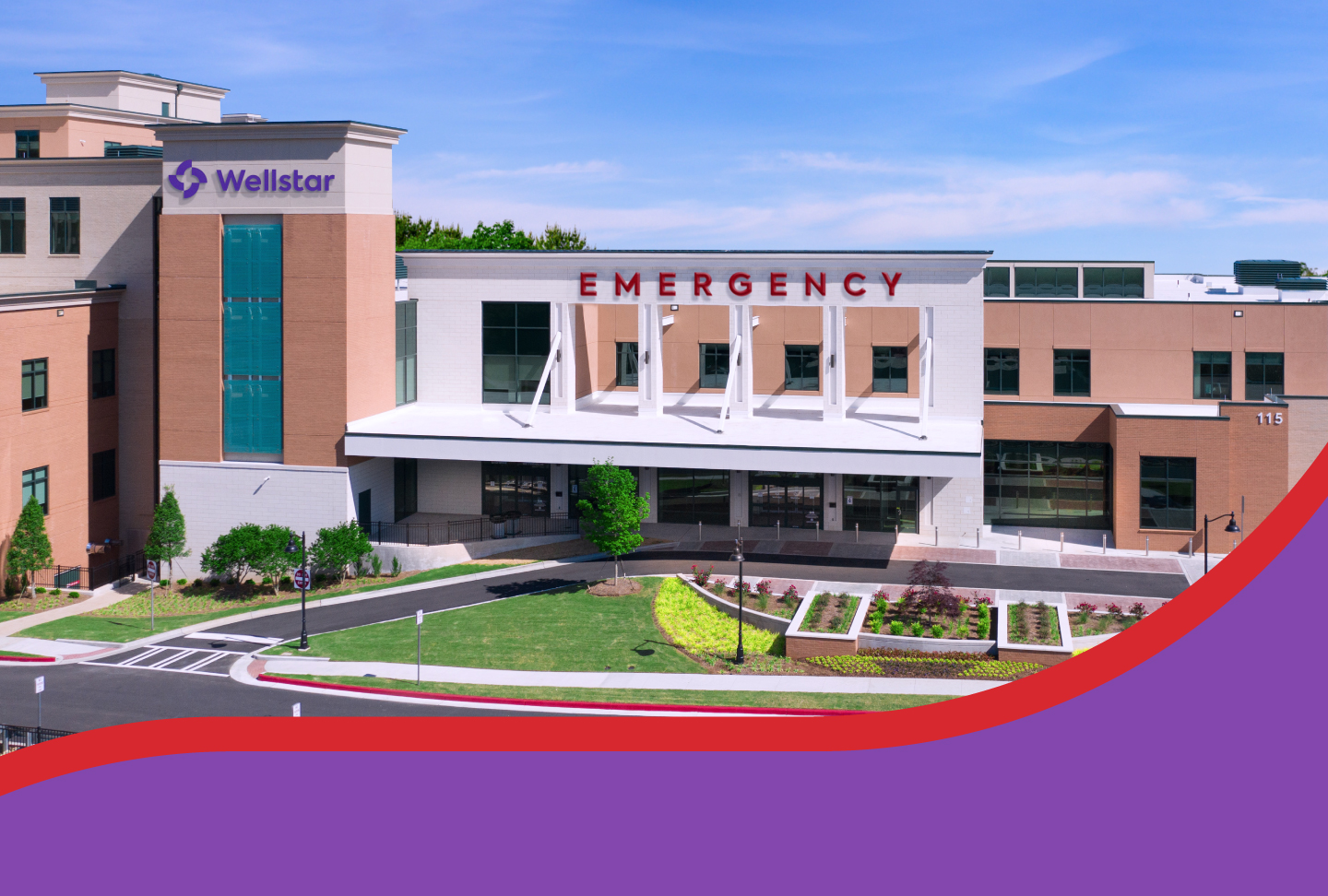
Wellstar Kennestone's New Emergency Department is Now Open
At Wellstar, not one patient, symptom or treatment plan is the same—even in an emergency. Now, the new, state-of-the-art emergency department (ED) at Wellstar Kennestone Regional Medical Center delivers quality and compassionate care to every patient, every time.
Located just north of metro Atlanta, this 263,000 sq. ft. medical facility is one of the largest and busiest EDs in the nation and:
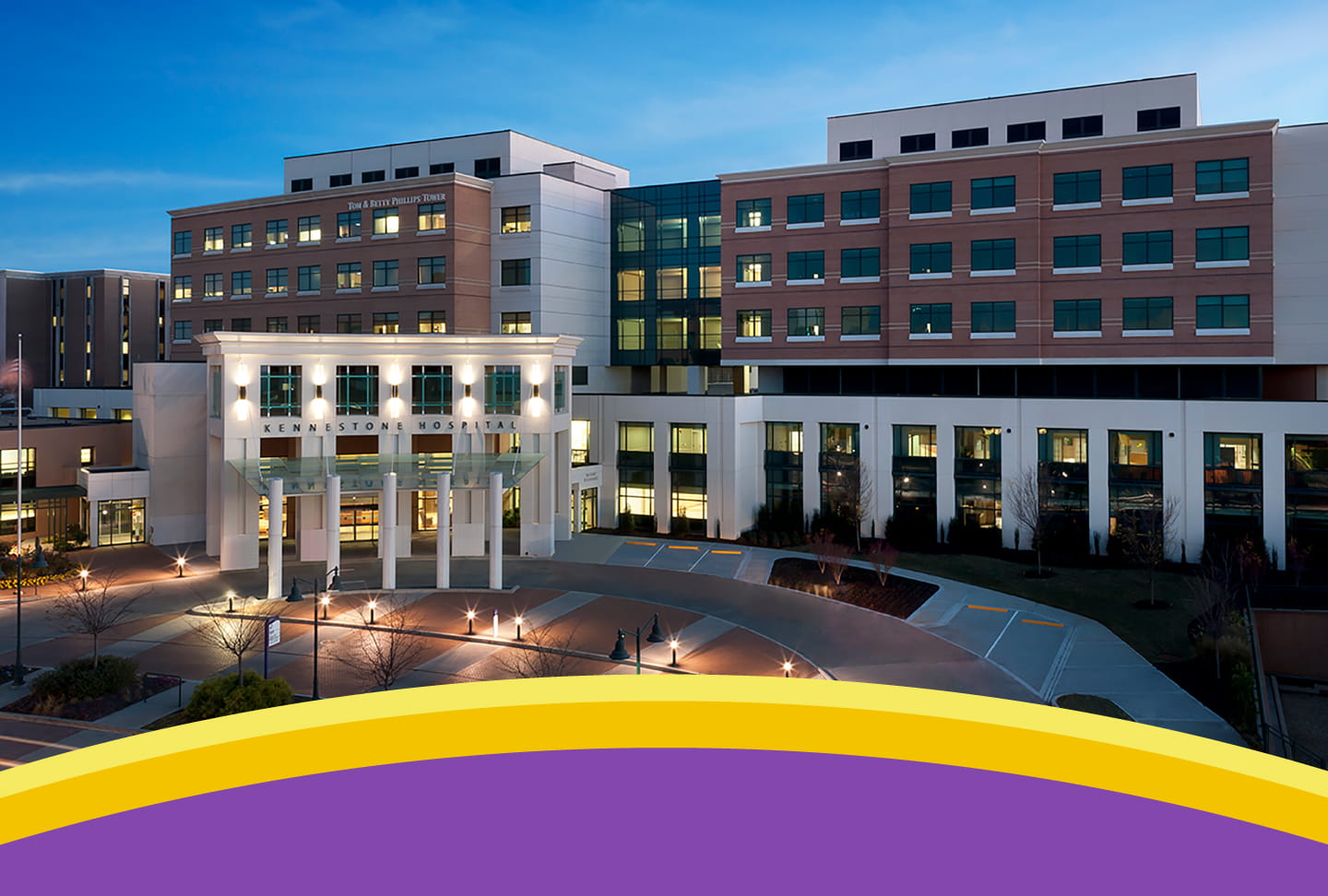
Wellstar Kennestone Receives Georgia Oglethorpe Award for Organizational Excellence
Wellstar Health System, one of Georgia’s largest and most integrated healthcare systems, today announced Wellstar Kennestone Hospital was named the recipient of the prestigious Georgia Oglethorpe Award for 2020, Georgia’s highest level of recognition for organizational performance excellence. Presented by the Florida Sterling Council, the award recognizes organizations and businesses “that have successfully achieved performance excellence within their management and operations.” This award announcement falls on the 70th anniversary of the hospital—a significant milestone in community care.
Due to its high standard for excellence, the Georgia Oglethorpe Award represents one of the most significant levels of recognition an organization can receive. Recipients of the Georgia Oglethorpe Award are examples for excellence for other organizations.
This award is presented after rigorous evaluation to recognize organizations that have achieved management and operations performance excellence. Only 89 organizations have earned awards since 1992 from the Florida Sterling Council—the organization that orchestrates the Georgia Oglethorpe Award. The awards are “presented annually to high performing, role-model organizations, both private and public, that demonstrate superior management approaches and role model results,” according to the Florida Sterling Council.
Founded in 1950, Wellstar Kennestone Hospital is a 633-bed hospital, anchoring the regional medical center located in Marietta, Georgia, and is part of the nationally recognized non-profit Wellstar Health System. The hospital serves hundreds of thousands of visitors each year and consistently demonstrates high performance levels across all metrics, including quality, safety, satisfaction, and operations.
Wellstar invests consistently in new innovations that help address vital healthcare needs, such as Georgia’s first CyberKnife®, TomoTherapy® and da Vinci® robotic surgical systems.
As one of only three Level II trauma centers in Metro Atlanta, and part of the state’s largest trauma network, Wellstar Kennestone operates the second busiest emergency department (ED) in Georgia and the eighth busiest ED in the U.S., caring for more than 138,000 patients per year. The new ED is slated to open late June 2020 and will be one of the top two largest and busiest EDs in the nation, serving up to 600 patients per day and 220,000 patients each year at full capacity, doubling the current trauma and emergency capacity. The 263,000-square-foot facility will include dedicated isolation and decontamination rooms that can be used for patients who present with infectious disease, behavioral health, or chemical contamination issues and multiple entrances for different levels of patient severity. Offering a dedicated pediatric ED and many industry-leading features and processes, the new ED dramatically enhances access for Georgians to vital healthcare needs and will be a model for best practices in emergency services, both for the region and nationally.
Today, Wellstar Kennestone Hospital is honored to celebrate its 70th anniversary. The hospital was founded in 1950 to serve the needs of the rapidly growing Cobb County community, which had tripled in the ten years prior. The May 21, 1950 edition of the Marietta Daily Journal stated the facilities “are said to be among the best available in hospital circles in the Southeast”—a fact that stands true today. For the last 70 years, the hospital has been a pinnacle in the Marietta community and is a destination hospital for North Georgia and neighboring states.
“Every birthday that we celebrate not only signifies our maturity in age but also our advancement in serving our community,” said Mary Chatman, executive vice president of Wellstar Health System and president of Wellstar Kennestone Hospital and Wellstar Windy Hill Hospital. “We, the more than 5,000 employees of Wellstar Kennestone Hospital, are proud to be the healthcare choice for many patients, from the beginning of life, when we celebrate birth, to the end of life, when we demonstrate dignity.”
The hospital’s longest-tenured team member and unofficial historian, Joyce McMurrain, has worked at Kennestone for almost 55 years. Joyce began her career as a staff nurse in the maternity unit and has served in many roles. McMurrain is currently the nurse manager for professional practice and helps to guide rising senior nursing students. “One of my proudest accomplishments is helping Wellstar to re-shape and re-structure women's health services,” said McMurrain. “The hospital moved from a traditional maternity model to a modern family-centered approach that provides women greater access, support, decision-making in the delivery process, childbirth, and care.” She credits her longevity to her credo of believing that we are all connected and that service makes a significant difference in people's lives.
Chatman and McMurrain join Wellstar Kennestone Hospital team members in celebrating this significant milestone 70th anniversary, knowing that the hospital will continue to provide compassionate care for the communities it serves for years to come.
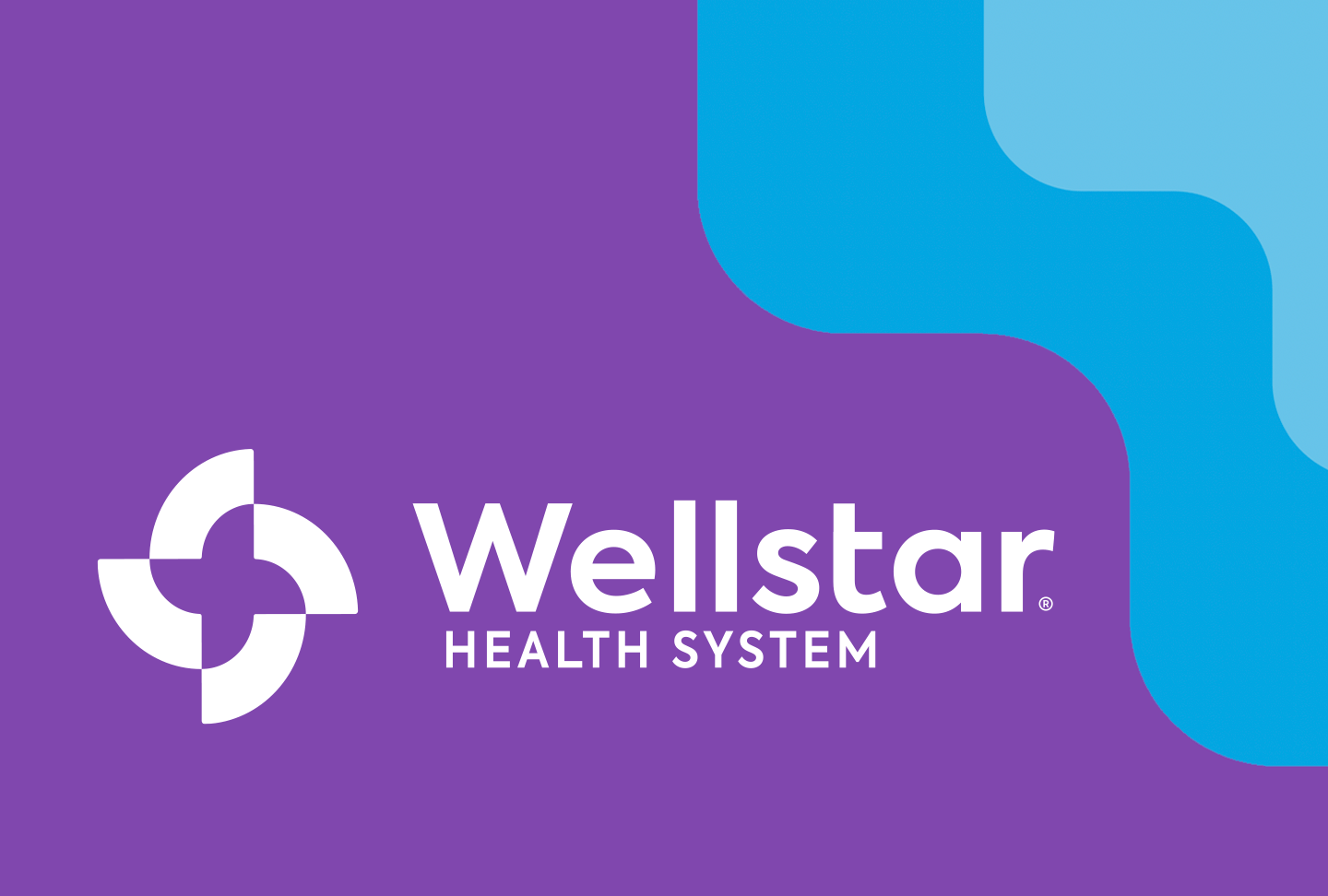
Wellstar Reveals What Georgians Want from their Healthcare System... and it's Personal
The healthcare landscape and the needs of patients and communities, both throughout Georgia and across the country, are ever changing. Wellstar Health System—nationally ranked and locally recognized for its high-quality care, inclusive culture, and exceptional doctors and team members—actively listens to the people in the communities it serves to best understand and respond to what they want, need, and expect from their healthcare provider.
Actively and regularly listening ensures that Wellstar is evolving alongside its patients and communities, providing not only responsive care to emergent needs, but also ongoing, quality, and personalized care at every age and stage of life. Wellstar spent the last 18 months on a renewed listening journey, interviewing more than 8,000 Georgians, including team members, community partners, patients, and consumers, with the objective of informing strategy and taking action to best serve the healthcare needs of the people they serve.
“Enhancing the health and well-being of people requires pausing—and listening—to what consumers and communities tell us they want, need, and expect for their healthcare journey,” said Candice Saunders, FACHE, president and CEO of Wellstar Health System. “Much of what we hear and learn from our ongoing research is exactly what we strive to deliver to every patient, every time: compassionate, quality care. Over the last year and a half, we heard directly from people across the state that they want to feel valued as a unique person and in control of their healthcare decisions—in partnership with their providers. This insight not only validates our approach to patient care, it guided us to take action and renew our commitment to excellence with a personalized and integrated approach that is more than healthcare."
”Combining these research insights with patient feedback, as well as critical regional insights from its 2019 Community Health Needs Assessment with the Georgia Health Policy Center, Wellstar refined its mission, vision, and values and launched a new brand identity. Today, the not-for-profit announced the launch of its new system-wide brand campaign—“More Than Healthcare. PeopleCare.”
“Many people are asking ‘why now?’, and the answer is that our focus over the past few years has been fully integrating our healthcare service offerings across our entire system to ensure that our patients and communities have access to the care they need and deserve across the entire Wellstar footprint,” said Saunders. “Now, we want to make it clear to everyone we serve that being one of the largest and most integrated healthcare systems in Georgia equips us to provide a full spectrum of world-class health services from birth to end of life. This approach also applies to our team members. We are people taking care of people, and we want to ensure that everyone considers Wellstar a place where individuals can advance their careers and feel appreciated.”
Wellstar now has 11 hospitals; 250+ medical office locations; 9 cancer centers; 55 rehabilitation centers; 3 hospice facilities; 1 retirement village; 21 imaging centers; 15 urgent care locations; and 5 health parks. By doubling in size—growing its services, footprint and capabilities—Wellstar has grown its ability to meet the evolving healthcare needs of patients and communities across Georgia.
By taking the time to listen and understand the individual needs of the communities they serve throughout Georgia, Wellstar is recreating the standard for Georgia healthcare by:
“When you’re 39 years old, you never think you’ll be dealing with something like a heart attack,” said Brett Faucett, a husband and father of two, who drove himself to Wellstar Kennestone Hospital after his arm went numb in the shower. Upon arrival, he was rushed to the operating room for a 99-percent blocked artery. A few years later, it happened again, and he was treated at Wellstar Atlanta Medical Center.
“When you’re in a situation like that, your world is flipped upside down. My family has a dad and a husband because of Wellstar—they saved my life,” said Faucett.
The new brand campaign “More Than Healthcare. PeopleCare.” is centered on real Wellstar patient stories that demonstrate the health system’s commitment to providing personal care that takes each person’s unique life story into account across the continuum of his or her personal healthcare journey – from inpatient to outpatient, pediatric to adult, birth to end of life. For more PeopleCare stories, visit wellstar.org/peoplecare.
Wellstar puts patients and communities in the driver’s seat by listening and providing an extensive choice of facilities and a wide breadth of services so that patients have access to all the options they need to make the best, most informed healthcare decisions. Each Wellstar hospital and healthcare facility offers an access point to a compassionate care team and a wide range of service lines that work in concert to provide personalized care for each patient’s needs.
“There’s no better time than the beginning of the year to reflect, refocus, and rebrand so that patients and communities know who we are and what we do,” said Dave Preston, senior vice president of Brand Experience and Communications at Wellstar. “Our new brand campaign, ‘More Than Healthcare. PeopleCare.’ features real-life patient stories that illustrate Wellstar’s commitment to providing high-quality, tailored care that meets their individual needs at every age and stage of life.”
Wellstar isn’t growing just for growth’s sake. The system has served one out of six Georgians, and patients in 148 out of 159 counties across the state. Wellstar is the only health system in Georgia with a network of Level 1, Level 2, and Level 3 trauma centers located in metro Atlanta to serve the most critical patients with a range of emergency care options. Today, Wellstar Kennestone Hospital operates the busiest emergency department in all of Georgia. The new emergency department will open this year, serving as a beacon for access to emergency care for Georgians. The 263,000 square foot building will connect directly to Wellstar Kennestone Hospital and will hold 166 exam rooms. Upon its completion, it will be the second largest emergency department in the nation.
In addition to its new emergency department, the health system recently opened Wellstar Avalon Health Park, the fifth of its kind, giving patients in greater Atlanta easier access to a variety of high-quality, personalized healthcare services available at one convenient location. The Wellstar health park model gives patients access to primary care physicians and specialist appointments, outpatient procedures, urgent care, physical therapy and imaging in a single building.
The health priorities of the communities Wellstar serves are reflected in the 12 service lines that set the strategy of delivering effective, evidence-based care to their patients. All service lines are led by physician and nurse leaders who work with their team members to develop and deliver tailored care plans that tap the expertise of clinicians in an integrated and personalized manner, depending on specific patient needs.
Wellstar has been able to successfully evolve because of its unwavering commitment to listening to its patients. Truly personal, quality care means its patients have choices and access to the right care, at the right place, and at the right time.
Wellstar’s passion for people extends far beyond its system and into the communities it serves. The health system collaborates with more than 450 community partners to bring important initiatives into its service areas across Georgia.
Being a not-for-profit health system enables Wellstar to offer care when and where it matters most. In 2019, Wellstar provided more than $784 million in charity care, unreimbursed care, and community programs. In 2019, the Community Health Needs Assessment Wellstar conducted in partnership with the Georgia Health Policy Center identified six specific care gaps within the community: food insecurity, opioids and behavioral health, women’s health, cancer, suicide and access to primary care. To address and help fill these gaps, Wellstar convened a group of system-wide experts and community partners to provide services, equipment, prevention and wellness programs such as free mammograms, school health programs, hospital chapels, healing gardens, and more. For example, Wellstar partnered with local organizations to provide first books to every baby born in 2020 at Wellstar Kennestone and Wellstar Douglas Hospitals.
“We have been a partner with Wellstar Health System for more than 20 years,” said Dr. Dwight "Ike" Reighard, president/CEO MUST Ministries and senior pastor of Piedmont Church. “From supporting our 41 food pantries through food drives, including MUST in their annual Day of Service to address food inequities, and supporting the various health needs of our clients, to sponsoring programs like the annual Gobble Jog and the MUST annual Giving Gala, Wellstar has been a steadfast partner, helping us to be a beacon of hope and place of refuge for our neighbors in need with compassion and love. This wouldn’t be possible without community support from partners like Wellstar.
”By taking the time to actively listen, Wellstar’s knowledge has grown, its collaborations have grown, and its capacity to provide integrated, quality care where and when its patients need it most has grown. “More Than Healthcare. PeopleCare.” reflects Wellstar’s commitment to always listening and being there for patients in their hour of need and beyond; understanding the underlying factors that may affect their overall health; and creating processes, programs, and initiatives that promote the personalized care and well-being of every person they serve.